 Reliance joins hands with Warner Brothers and HBO: Soon you will be able to watch great series like Game of Thrones and Harry Potter on Jio Cinema
Reliance joins hands with Warner Brothers and HBO: Soon you will be able to watch great series like Game of Thrones and Harry Potter on Jio Cinema
NEW DELHI:MMNN: 27 April 2023
Movies and shows like Game of Thrones, Harry Potter, Succession and Discovery will soon be available on the Jio Cinema app. For this, Mukesh Ambani's company Viacom18 has a deal with Hollywood's well-known production house Warner Bros Discovery Inc. After this deal, Jio Cinema will give direct competition to Amazon Prime Video and Disney Hotstar.
Viacom18 and Warner Bros said, movies and shows on Jio Cinema will premiere in the US only. Previously, Disney had the rights to stream content from Warner Bros. and HBO. This partnership ended on 31 March 23. For this reason Indian viewers were not able to stream shows like HBO's Game of Thrones. Warner Bros. is the parent company of HBO.
Warner Bros' content will be available only on Jio Cinema
News agency Reuters wrote quoting sources that this partnership will be exclusive. That is, Warner Bros. shows and movies will not be able to offer most of their popular movies and series to other Indian OTT platforms including Amazon Prime Video and Disney Hotstar.
Farzad Palia, Head - Subscription Video-on-Demand and International Business, Viacom18, said, "Jio Cinema has become the largest platform for live sports. We are now on a mission to make Jio Cinema the most magnetic destination for entertainment.
Jio is showing IPL for free
This time live streaming of IPL is happening for free in 4K quality. Jio Cinema is the official live-streaming partner of IPL 2023. Earlier, IPL was shown on Disney Hotstar. In such a situation, Hotstar subscription had to be taken to watch it. Right now you do not have to pay any fee to watch anything on Jio Cinema.
Subscription will have to be taken on Jio Cinema,
in an interview given to Bloomberg in the past, Reliance's Media and Content Business President Jyoti Deshpande had said that there is a plan to release more than 100 movies and web series on Jio Cinema. New content will be released before the end of IPL 2023.
Jio Cinema will start charging for original content. Although Jyoti Deshpande told that the company has not yet finalized the Jio Cinema plan, the price will be decided soon. Deshpande had said that the current OTT platform is dominated by foreign content.
5.5 billion unique views in Jio Cinema
Jio Cinema has claimed that the platform has received 5.5 billion unique video views in the first week of IPL. And on April 12, 2023, a record 22 million people watched the Chennai Super Kings vs Rajasthan Royals match in Jio Cinema. Let us tell you that IPL has started from March 31, whose last match will be played in Bengaluru on May 21.
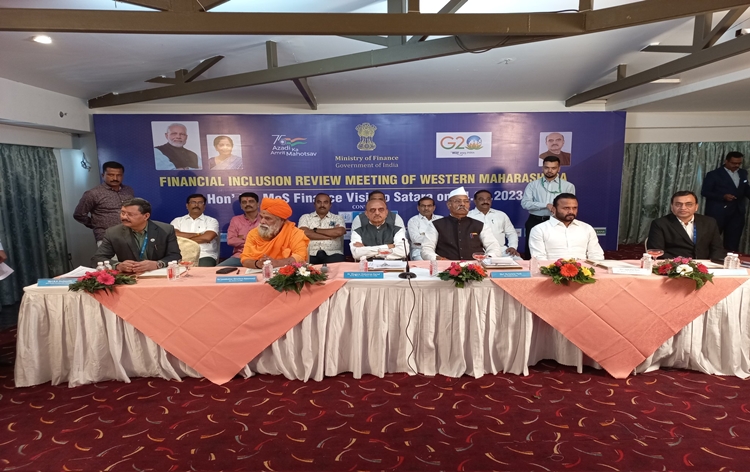 PM Svanidhi's scheme gives small loans to needy people without CIBIL score: MoS Finance Bhagwat Karad
PM Svanidhi's scheme gives small loans to needy people without CIBIL score: MoS Finance Bhagwat Karad
NEW DELHI:MMNN: 24 April 2023
Union Minister of State for Finance Dr. Bhagwat Karad today asked bankers to focus on banking the unbanked, securing the unsecured, and funding the unfunded. He was speaking at a review meeting on the Financial Inclusion Parameters of Western Maharashtra in Satara today.
The Minister further said that PM Svanidhi's scheme gives small loans to needy people without the condition of collateral or a CIBIL score. The Minister also exhorted bankers to increase banking penetration in rural areas. He directed banks to reduce the waiting period for loan disbursement. The Minister added that even a developed State like Maharashtra has scope for increasing the number of bank branches in rural areas.
Shri Karad further stated that the banking sector is a big pillar in the target towards becoming a five trillion economy. The Minister further added that new customers should be incorporated into the banking sector by opening their bank accounts, and special camps should be arranged for the same. He suggested imbibing a competitive spirit in the banking sector for the development of all. The Minister on this occasion appreciated the all round performance achieved by Kolhapur District on Financial inclusion parameters.
 Apple's store in Delhi after Mumbai, know who will benefit and who will be harmed
Apple's store in Delhi after Mumbai, know who will benefit and who will be harmed
NEW DELHI:MMNN: 20 April 2023
After Mumbai, the world's leading tech company Apple, which manufactures iPhone, is now going to open its store in Delhi as well. iPhone and other Apple products are already being sold in the country. But tremendous enthusiasm is being seen in the country regarding Apple's stores. The question arises that what is going to be the benefit of opening Apple's store? The reason for this is that the way Apple has changed the retail business in the world, its example is rarely seen. The company opened its first retail stores in 2001 in California and Virginia. To reduce dependence on other retailers and better showcase its products, the company decided to open its own stores. Now it has become a status symbol in a way. Apple has 272 stores in the US alone.
Today Apple's stores are in more than 20 countries of the world. After America, it has the maximum number of 45 stores in China. There are 39 stores in the UK, 28 in Canada, 22 in Australia, 20 in France, 17 in Italy and 16 in Germany. Apple is the largest company in the world by market cap. The biggest feature of Apple's store is its design. Apple has a unique way of displaying products in its stores. Also, users get a different experience in this. Huge crowds are seen outside Apple stores during the launch of new products in the US and Europe. Apple's store in Mumbai is inspired by Kaali Peeli Taxi
what will be the benefit
All employees at Apple Stores have a mobile POS. This makes it easy to sell products. That is, you do not need to stand at the bill counter. You can make payment at the counter where you are checking the product. The biggest advantage of buying products from the Apple Store is that you get exclusive deals and offers there. For example, if you are a student, you can get the benefit of back to university offer. In the US, the company gives a gift card of $ 150 under this. Not only this, if you buy a product from Apple's store, then you can give it a personal touch according to your own.
Till now the company used to sell its products through exclusive Apple premium partner stores, major retailers and trade and e-commerce platforms. The company says that the new retail locations will expand its business in India. With these stores, the company's customers in India will be able to explore new products. It is believed that in its stores, the company will also set up experience centers for the customers. This will cause some loss to the retailers. Retailers are apprehensive that with the opening of Apple stores in Mumbai and Delhi, the number of their customers may decline by 50 to 60 percent.
who will be harmed
Mumbai and Delhi account for 20 per cent of the total annual sales of iPhones in India. Some say that Apple will first release the stock for its stores. This may harm the rest of the retailers. However, sources in the company have dismissed this apprehension. He says that the entire retail ecosystem will benefit from the opening of Apple's retail stores. Navneet Pathak, general secretary of All India Mobile Retailers Association, said that the company would like to create similar hype in Delhi and Mumbai during the new launch. Existing Apple customers may want to visit these stores before purchasing a new product. Although some people do not give it much preference. He says that 80 percent of Apple's new customers come from small towns. In such a situation, two Apple stores are not going to make much difference.
Young Indians-YEA Summit 20 April to
MMNN: 18 April 2023
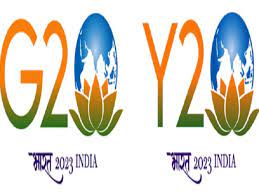
Bhopal/Business:Young Indians, a wing of the Confederation of Indian Industries, will host the summit organized by the G20 Young Entrepreneurs Alliance (YEA). This conference, organized in collaboration with the Ministry of Sports and Youth Affairs, will be held on April 20 at the auditorium of LNCT Group, Raisen Road. Mayor Mrs. Malti Rai will be the chief guest and speaker of this program. Deputy Collector, Bhopal Nidhi Choksey; Shivendra Agarwal, President, Young Indians, Bhopal Chapter; Vice President Poojashree Choukse; National Youth Vice President Anuj Garg; Former President Anjali Goyal; and Bhakti Sharma, National Executive Member of Bharatiya Janata Yuva Morcha; And Shantanu Saxena, Managing Director of Magna Peritus Law Firm, will express his views in the panel discussion organized during this period. Shivendra Agarwal, President of Young Indians, Bhopal Chapter, said in a press release that the theme of the convention was ' 'Samvad' has been held between Young Indian Achievers and Heads of Urban and Rural Government Institutions. He also pointed out that the G20 YEA seeks to promote youth entrepreneurship as a powerful driver of economic renewal, job creation, innovation and social change. Each year, the G20 YEA brings together hundreds of the world's top young entrepreneurs to share their ideas with leading business and political leaders to catalyze global change.
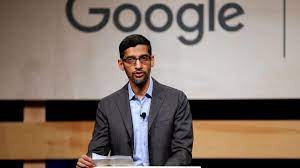 Google CEO Sundar Pichai hints at more layoffs, wants to ensure efficiency
Google CEO Sundar Pichai hints at more layoffs, wants to ensure efficiency
NEW DELHI:MMNN:13 April 2023
New Dehli: Google CEO, Sundar Pichai, has hinted at another round of layoffs at Google. In January this year, Google decided to fire six per cent of its workforce, leaving 12,000 Googlers without a job.
Sundar Pichai was speaking with the Wall Street Journal when he hinted towards more layoffs. However, he did not directly address the subject.
He also discussed Google's work in the artificial intelligence (AI) domain. He said that Google's chatbot Bard was being integrated into products like Gmail and Google Docs to increase efficiency.
He said, "We're very, very focused on this set of opportunities we have, and I think there's a lot of work left. There's also an important inflection point with AI. Where we can, we are definitely prioritizing and moving people to our most important areas, so that is ongoing work."
Sundar Pichai said they were looking into every aspect of Google's work and taking steps to re-engineer its cost base permanently. He said that Google aims to increase its efficiency by 20 per cent. He stressed that Google needs to build upon the improvements it has made in recent times.
He added that job cuts were made after careful consideration. He said, "We've decided to reduce our workforce by approximately 12,000 roles. We've already sent a separate email to employees in the US who are affected. In other countries, this process will take longer due to local laws and practices."
This is a better chance to increase trade with Russia: Minister Shri Sakhalecha
MMNN: 5 April 2023
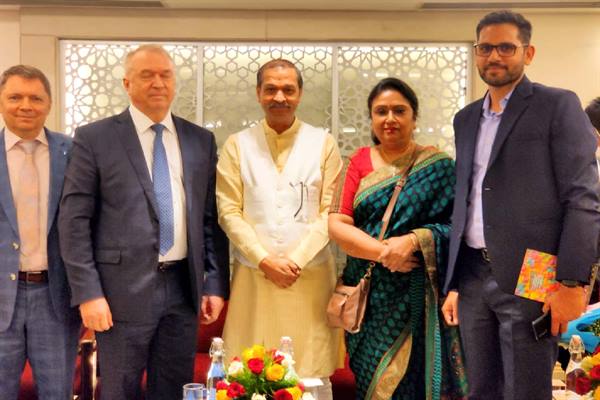
Business:MSME Minister Shri Omprakash Sakhalecha has said that the establishment of the Chamber of Commerce and Industry of the Russian Federation in India will give a boost to the country's international cooperation, partnership and business development. India has long standing relations with Russia and now there is a need to increase trade with these relations. Minister Shri Sakhalecha was addressing the inauguration ceremony of the Chamber of Commerce and Industry of the Russian Federation at the India Habitat Center in Delhi on Tuesday.
Minister Mr. Sakhalecha said that CCI India being launched under the chairmanship of Mr. Igor Pyasetsky, India head of CCI Russian Federation, aims to establish long-term cooperation between India and Russia through creation of new environment as well as support domestic companies Is. Shri Sakhalecha said that a new environment has been created in the country for MSMEs under the leadership of Prime Minister Shri Narendra Modi. Shri Sakhalecha highlighted the policies of MSME and Science and Technology Department in Madhya Pradesh under the leadership of Chief Minister Shri Shivraj Singh Chouhan and invited business representatives of Russian Federation to invest in Madhya Pradesh.
Minister Shri Sakhalecha said that their manufacturing units with Russian supply chain are entering the Indian markets, which is a golden opportunity for the entrepreneurs of both the countries. CCI of Russian Federation will act as a bridge between India and Russia to solve the problems of entrepreneurs and for their sustainable development.
At the event, the President of CCI of the Russian Federation said that there are about 350 entrepreneurs working in India looking for business opportunities in metallurgy and machinery, defense and agro processing. He said that 20 companies of Russian Federation are ready for cooperation/MoU. The inaugural ceremony was attended by Mr. Sergey Kataryin, President, CCI Russian Federation, India Head, CCI Russian Federation, Mr. Igor Piasetsky, Secretary, Embassy of Russia, Mr. Ildar, Ex-Chief Minister of Goa, Mr. Digambar Kamat, Mr. Panna Lal Bhansali of Seva Bharati, representatives from different states of Russia Representatives of MSME and Science and Technology Department of the Government of Madhya Pradesh were present along with the representatives of M.P.
 
Nita Mukesh Ambani Cultural Centre to open doors to audience on March 31
:MMNN: March 31 2023
A multi-disciplinary cultural space, India’s first-of-its-kind, the Nita Mukesh Ambani Cultural Centre, will open on March 31 with an exquisite showcase of the best of India across music, theatre, fine arts and crafts to audiences from India and the world.
The launch will feature a specially curated art and craft exposition called ‘Swadesh’ along with three blockbuster shows – a musical theatrical called ‘The Great Indian Musical: Civilization to Nation’; a costume art exhibition called ‘India in Fashion’ and a visual art show called ‘Sangam/Confluence’.
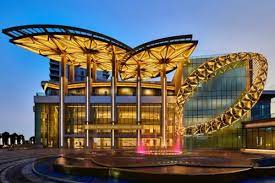 
Together these will present the diversity of India’s cultural traditions and their impact on the world while also showcasing the diversity of spaces at the cultural centre.
Speaking on the eve of the inaugural day, Nita Ambani said, “Bringing this cultural centre to life has been a sacred journey. We were keen to create a space for both promoting and celebrating our artistic and cultural heritage in cinema and music, dance and drama, literature and folklore, arts and crafts and science and spirituality. A space where we showcase the best of India to the world and welcome the best of the world to India.”
The centre will offer free access for children, students, senior citizens and the differently-abled. It will focus on community nurturing programmes, including school and college outreach and competitions, awards for art teachers, in-residency programmes and art literacy programmes among others.
‘The Great Indian Musical: Civilization to Nation’ will see a line-up of exceptional Indian talent, along with a Tony & Emmy award-winning crew, and has been conceived and directed by Feroz Abbas Khan. The marquee production will bring together talents such as Ajay-Atul (music), Mayuri Upadhya, Vaibhavi Merchant, (choreography) along with 350+ artists, including an epic 55-piece live orchestra from Budapest, to showcase India’s cultural journey through history. The visual spectacle will also feature over 1,100 costumes designed by leading fashion designer Manish Malhotra.
The cultural centre, located within the Jio World Centre at Bandra Kurla Complex, is home to three performing arts spaces: the 2,000-seat Grand Theatre, the technologically advanced 250-seat Studio Theatre, and the dynamic 125-seat Cube.
It also features the Art House, a four-storey dedicated visual arts space built as per global museum standards with the aim of housing a shifting array of exhibits and installations from the finest artistic talent across India and the world.
Spread across the centre’s concourses is a captivating mix of public art by renowned Indian and global artists, including ‘Kamal Kunj’ – one of the largest Pichwai paintings in India.
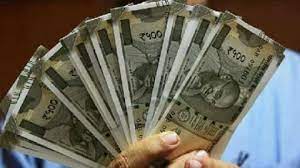 Invest in the right place for higher returns on FD: Many banks including SBI and HDFC have increased interest rates, see here where more interest is now
Invest in the right place for higher returns on FD: Many banks including SBI and HDFC have increased interest rates, see here where more interest is now
NEW DELHI:MMNN:24 February 2023
New Dehli: Due to increasing the repo rate of RBI this month, most of the banks have announced to give higher interest rate to the customers on FD investment. In this sequence, many banks including SBI, HDFC Bank, PNB and Yes Bank have recently increased their FD interest rates. The new interest rates will be applicable for investment amount less than Rs 2 crore
State Bank of India (SBI) has increased interest rates on select FDs by up to 25bps on 15 February 2023. New interest rates Interest rates up to 7 percent have been announced for tenure ranging from 7 days to 10 years tenure. Senior citizens can earn up to 7.5% interest on SBI Fixed Deposit. The bank is paying 7.1 percent interest to ordinary citizens and 7.6 percent to senior citizens on special FD Amrit Kalash with the highest interest rate of 400 days tenure.
HDFC Bank has made new interest rates on FD effective from 21 February 2023. The bank gives an opportunity to invest in FDs for a period ranging from 7 days to 10 years. HDFC Bank is offering interest rates ranging from 3% to 7.10% to the general public and 3.50% to 7.60% to senior citizens.
Private sector leader Yes Bank has increased the interest rate on FDs by 25 to 50 basis points on 21 February 2022. Yes Bank offers investors an opportunity to earn hefty returns on tenure ranging from 7 days to 10 years. The bank is offering interest rates ranging from 3.25 per cent to a maximum of 7.50 per cent for regular citizens. At the same time, it has been announced to give interest rate ranging from minimum 3.75 percent to maximum 8 percent interest rate to senior citizens. The highest interest rate is being given to ordinary citizens at 7.75 per cent on FD with a tenure of 35 months. Whereas, it has been announced to give 8.25 percent interest to senior citizens investing on the same period.
Punjab National Bank (PNB) has increased FD interest rates by up to 30bps on 20 February 2023. The highest interest rate offered by the bank to regular citizens is 7.25 per cent for a tenure of 666 days. The bank has offered an interest rate of 7.75 per cent to senior citizens for FDs with a tenure of 666 days and 8.05 per cent to super senior citizens with a tenure of 666 days.
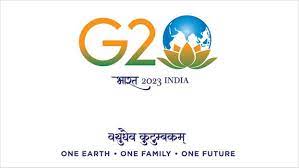 G20 Summit 2022: Looking for the role of G-20 amid global crises, expert view
G20 Summit 2022: Looking for the role of G-20 amid global crises, expert view
NEW DELHI:MMNN: 19 Nov 2022
Today, about 14 years ago, the global economy suffered a major setback, when the Asian financial crisis slowed down the rate of economic growth and once again from 2020, the world economy is going through a severe economic crisis and many Big countries are also finding themselves unable to make economic recovery. One thing that is worth noting in both these times of economic crises is the role of the G-20 organization.
Seeing the effects of the Asian financial crisis, the G-20 was formed in 1999 and now again when the world is surrounded by economic, geo-political storms, once again the G-20 conference was held recently in Indonesia to find a solution. K is done in Bali. A special thing that should be noted in this conference is that now the developed countries of G-20 have recognized the role and potential of emerging market economies like India, Brazil and South Africa to bring the global economy back on track. started.
The proof of this is also that India will organize G-20 in the year 2023, while Brazil and South Africa will organize it in 2024 and 2025 respectively. The declaration of G-20 issued in Bali shows that developed and developing countries are considering G-20 as the most effective means of global economic recovery. Perhaps that's why keeping aside their economic differences and ambitions, there seems to be an agreement among the nations to ensure global economic cooperation by abandoning economic protectionist policies.
The Russia-Ukraine war and other geopolitical tensions have badly affected the economy of European countries, especially the UK. Therefore, at the Bali Summit of the G-20, the nations said that they oppose Russia's barbaric and bestial mentality of war and want Russia to stop its military action against Ukraine without any conditions, Because war is now heading towards a huge human tragedy and rule based international order and democratic values do not allow any country to sacrifice global peace, security and economy for its personal ambitions.
Before the G-20 meeting held in Bali, US President Joe Biden and Chinese President Xi Jinping also said that there should be no nuclear war under any circumstances. Both countries have also said that war can never be won with nuclear weapons. Both countries have also condemned Russia's nuclear threats to Ukraine. Such an approach by China is giving a different kind of courage to the western countries, because China is able to be candid on very few occasions.
The G-20 does not want the critical supply chain in the world to collapse, the members of the G-20 do not want the countries that have been affected by the Kovid epidemic to face war-borne energy problems. G-20 countries want that now work should be done for such a sustainable development, so that the fears of economic recession can be eliminated. This echoes the theme of Indonesia's G20 presidency, "Recover Together, Recover Stronger". For the timely achievement of the Sustainable Development Goals, the G-20 countries have asked the Multilateral Development Banks to increase both the volume and speed of financial cooperation in this direction, so that it can be easier for the nations to deal with the food problem.
 Piyush Goyal Favours Printing Currency To Finance Deficit
Piyush Goyal Favours Printing Currency To Finance Deficit
Bhopal:MMNN: 11 February 2019
NEW DELHI: Noting that finance ministers all over the world are perennially in search of revenue to balance government budgets, Union Minister Piyush Goyal on Sunday favoured printing currency as a way of deficit financing, citing the example of the US.
Mr Goyal's remarks follow his presentation of the interim Budget 2019-20 earlier this month, which contained major largesse for the stressed agriculture sector as well as tax sops for the middle class with implications for the fiscal deficit.
The fiscal deficit estimate for the current year has been revised upwards to 3.4 per cent of the gross domestic product (GDP).
"As finance ministers we are always in need of money," Mr Goyal said addressing the foundation day anniversary event of the state-run Security Printing and Minting Corporation of India (SPMCIL), and recalled that the Fiscal Responsibility and Budget Management Act (FRBM), 2003, had been enacted during the Atal Bihari Vajpayee-led NDA government.
The FRBM Act aims to institutionalise financial discipline, reduce fiscal deficit, improve macroeconomic management and the overall management of the public funds through a balanced budget.
"I have heard that the US does deficit financing only by printing currency," Mr Goyal said.
He told the gathering in jest that as finance minister he would have been happier if he had known of SPMCIL's recent creditable performance on both the production and profit fronts.
SPMCIL, which supplies bank notes, coins and security documents to the central government and the states, posted a net profit of Rs. 630 crore last year, of which Rs. 200 crore has been handed over to the government as dividend.
According to senior officials, the company is on course to print 10,000 million pieces by the end of the current fiscal ending March.
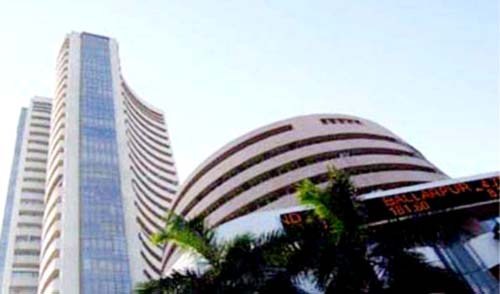 Sensex crashes by 424.61 pts
Sensex crashes by 424.61 pts
Bhopal:MMNN: 9 February 2019
Mumbai, The benchmark index of Bombay Stock Exchange (BSE) on Friday dropped by 424.61 points to settle at 36,546.48 as sell-off in the automobile and metal stocks amid weak global cues.
The Nifty of National Stock Exchange (NSE) was too down by 125.80 points at 10,943.60.
The Sensex registered the day's high and low at 36,885.58 and 36,480.62 points respectively.
The Nifty registered day's high and low at 11,041.20 and 10,925.45 points, respectively.
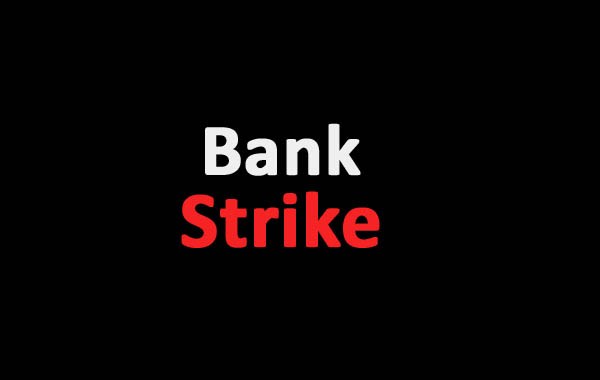 Banks' strike on Jan 8, 9; operations affected
Banks' strike on Jan 8, 9; operations affected
Bhopal:MMNN: 8 February 2019
New Delhi, Banking services were affected across the country as bank unions have called for a two-day strike on January 8 and 9, demanding a better pay hike and rollback of Bank of Baroda, Vijaya Bank and Dena Bank merger.
The All India Bank Employees Association (AIBEA) and the Bank Employees Federation of India have already informed the Indian Banks Association (IBA) about the two-day nationwide strike.
The IDBI bank in a stock exchange filing said: "It is advised that the bank is in receipt of notice of two days nationwide strike on January 08-09, 2019 from All India Bank Employees Association (AIBEA) & Bank Employees Federation of India addressed to the Chairman, Indian Bank's Association (IBA), in support of their various demands."
The Allahabad Banks also said the IBA has advised the bank that the AIBEA and the BEFI have served notice informing their decision to go on two days strike on 08th and 09th January, 2019 in support of their certain demands.
The issues and demands are of industry level and strike call is also given at industry level. Therefore, if the strike takes place, the functioning of branches of the bank may be affected. The bank is taking all the necessary steps in terms of the existing guidelines for smooth functioning of bank's branches/offices on the day of strike(s), in the event the strike materialises, the bank added.
Besides AIBEA and BEFI, the bank union which are supporting the hartal included INTUC, AITUC, HMS, CITU, AIUTUC, AICCTU, UTUC, TUCC, LPF and SEWA.
Due to the strike, the banks would be functional only for three days - Monday, Thursday and Friday. Second Saturday is again a weekly holiday.
The bank hartal was the third strike within past 20 days. Prior to this, the bank unions have called for a strike on December 21 and December 26.
 Tech Mahindra Hits 52-Week High On Profit Beat In Q3
Tech Mahindra Hits 52-Week High On Profit Beat In Q3
Bhopal:MMNN: 6 February 2019
Tech Mahindra shares surged as much as 6.66 per cent to a fresh 52-week high of Rs. 800 after its quarterly profit beat analysts' estimates. Tech Mahindra's net profit rose 13 per cent in the quarter ended December 31, 2018 as against Rs. 1,064.3 crore in the previous quarter. Analysts had on an average expected the net profit at Rs. 1,103 crore, news agency Reuters reported citing Refinitiv data. Tech Mahindra's revenue from operations advanced 3.63 per cent to Rs. 8,943.7 crore in the December quarter, as against Rs. 8,629.8 crore in the previous three-month period.
The company reported a strong operating performance with a 6.4 per cent increase in its operating profit - or earnings before interest, tax, depreciation and amortization (EBITDA) - to Rs. 1,723 crore. Tech Mahindra said its margins rose by 50 basis points to 19.3 per cent sequentially.
Commenting on the quarterly performance, CP Gurnani, the company's managing director and chief executive officer, said, "This is a milestone quarter for Tech Mahindra with 5 billion dollars annual revenue run rate in sight. The current quarter has been impressive on all fronts, delivering steady growth in enterprise and communications business along with margin expansion. Our Run, Change and Grow strategy has helped us deliver a strong 10 per cent sequential growth in digital revenues. We are confident of continuing the growth momentum."
Here are some of the key deal wins in the December quarter, as reported by the IT company in its regulatory filing:
Engaged by a telecom company in UK, as a partner in their transformation journey. Tech Mahindra will be responsible for driving improved customer experience through Next-gen transformation, automation and system rationalization.
Bagged a contract from one of the largest banks in the Australia New Zealand region for digital channel integration across core banking processes and asset finance.
Selected by a leading provider of jet engines and components for commercial and military aircraft as its partner for digital transformation solutions and cloud migration services, leveraging Tech Mahindra's delivery excellence.
Awarded a multi-year, multi-million dollar, customer experience transformation deal, by one of the largest railroad companies in North America for technical infrastructure management and enterprise security, using best-in-class artificial intelligence and automation-based solution.
Selected by a leading healthcare solution and device manager as long-term, strategic partner for engineering services leveraging Tech Mahindra's expertise in Next-Gen technologies.
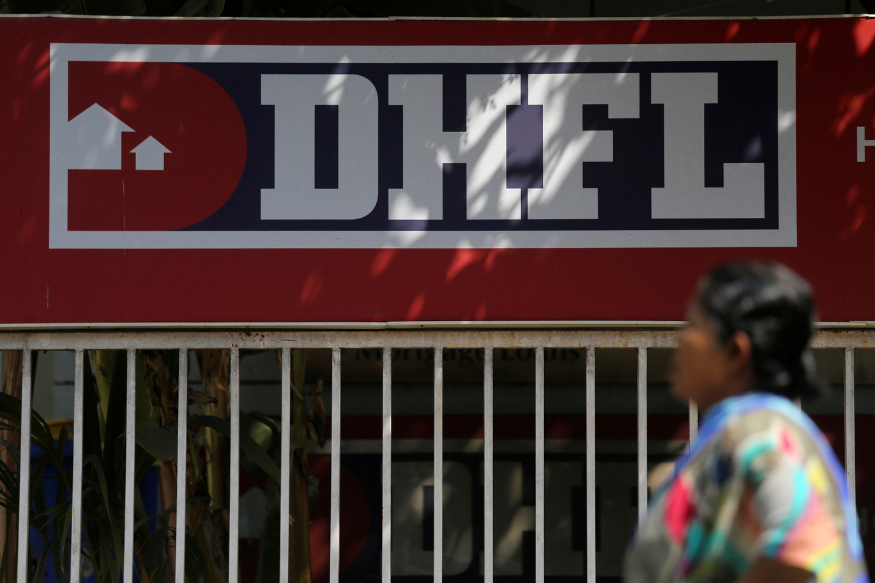 Dewan Housing Finance Sinks to Over Five-Year Low Amid Allegations of Financial Mismanagement
Dewan Housing Finance Sinks to Over Five-Year Low Amid Allegations of Financial Mismanagement
Bhopal:MMNN: 4 February 2019
Bengaluru: Shares in India's Dewan Housing Finance Corp Ltd plunged on Monday to their lowest in over five years as claims of financial mismanagement and broader sectoral woes continue to plague the home loan provider.
Investigative media outlet Cobrapost had alleged last week that loans from Indian state banks were diverted by Dewan to shell companies, including those linked to its controlling shareholders.
Dewan has, however, denied lending to shell companies and said it had not received any communication from the government in relation to an investigation.
Separately, Dewan said on Saturday it would sell a 9.15 percent stake in housing finance firm Aadhar Housing Finance Ltd to private equity funds managed by Blackstone Group LP. Wadhawan Global Capital will also sell its 70 percent stake in Aadhar Housing to Blackstone.
Dewan's shares fell as much as 13 percent to 96.8 rupees on Monday, their lowest since Dec. 23, 2013. They were last down 5.8 percent at 104.90 rupees as of 0400 GMT.
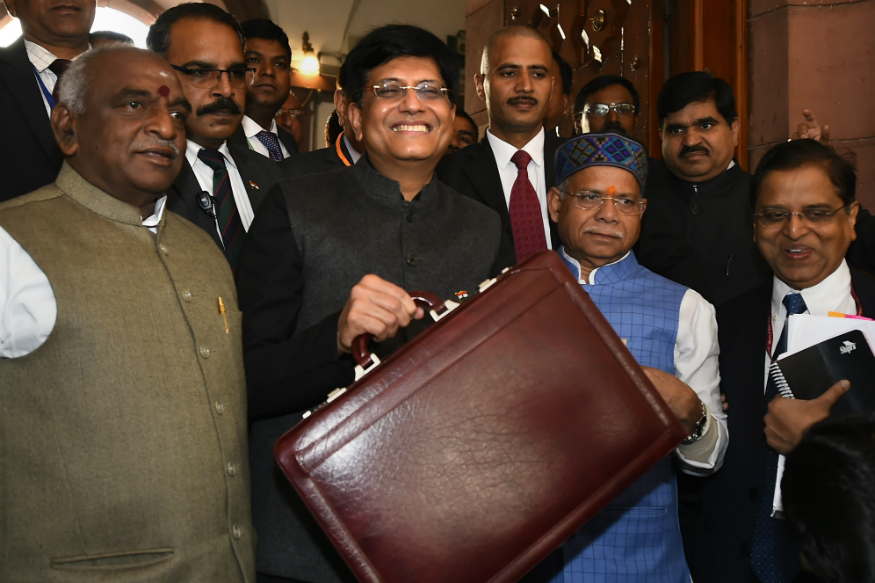 Budget 2019 Brings Cheer to Startup Sector as Govt Promises 1 Lakh Digital Villages
Budget 2019 Brings Cheer to Startup Sector as Govt Promises 1 Lakh Digital Villages
Bhopal:MMNN: 2 February 2019
Mumbai: The startup sector has welcomed the interim budget proposal of setting up one lakh digital villages saying that it will give boost to the sector.
Taking forward government's Digital India programme, Finance Minister Piyush Goyal Friday said that the government has set an aim of building one lakh digital villages in the next 5 years.
The initiative to set up of one lakh digital villages when rolled out will have multiplier effect on startups in segments like edutech, content based companies, media tech and of course fintech and e-commerce," Unicorn India Ventures managing partner Anil Joshi said.
This will ensure faster financial inclusion of people who still continue to be outside of formal banking system and have no credit history. Startups working in fin tech and edutech should see this as a promising opportunity to tap the unaddressed and underserved rural population, Joshi said.
City-based cyber security startup Sequretek welcomed the government's focus on artificial intelligence, as other countries have already made a start by investing heavily in AI and lead initiatives to become a data rich economy. Bengaluru-based fin tech startup in direct lending segment Smartcoin said the initiative to build one lakh digital villages would mean more money being transacted digitally as the country possibly has the lowest penetration
when it comes to mobile and data tariffs in the world.
"Digitally progressive would also mean better internet connectivity and hence we expect the untapped rural consumers to start using digital payments. For us, this means more alternate data generated to assess loan seekers. And over time a formal credit history will be built, as they will not only transfer money but also take micro loans for their needs. For a fin tech company in
direct lending space like ours, this is a huge push to achieve our vision of bringing under banked masses under a formal credit system, it said.
Noting the move to enhance tax exemption for salaried employees and digitising the entire tax filing process, Fintech company Zeta's co-founder Bhavin Turakhia said, "The decision to carry all tax verifications via an anonymous digital interface and processing all tax returns within 24 hours displays the government's strong intention to build a digital nation, whilst putting convenience in the hands of its citizens and ensuring complete transparency."
Wearable devices-maker Goqii that is backed by Ratan Tata and Paytm founder Vijay Shekhar Sharma, among others, said healthcare announcements made in the budget are a welcome move and will help build a strong economy.
 Union Budget 2019: Top 5 Announcements By Piyush Goyal In Election Year
Union Budget 2019: Top 5 Announcements By Piyush Goyal In Election Year
Bhopal:MMNN: 1 February 2019
NEW DELHI: Union Minister Piyush Goyal today presented the last Interim Budget of the NDA government led by Prime Minister Narendra Modi before the Lok Sabha elections due by May. From direct cash transfer to small farmers and better gratuity terms to income tax relief, the Interim Budget appeared to be keeping the national elections in its radar.
Here are the top 5 announcements by Piyush Goyal:
1-Individual taxpayers with annual income up to Rs. 5 lakh will get full tax rebate. Individuals with gross income up to Rs. 6.5 lakh will not need to pay any tax if they make investments in provident funds and prescribed equities. Around three crore middle class taxpayers will get tax exemption due to this measure.
2-Within the next two years, assessment of all tax returns should be done electronically without any personal interface. Direct tax collections up from 6.38 lakh crore in 2013-14 to almost 12 lakh crore; tax base up from 3.79 crore to 6.85 crore. All income tax returns to be processed within 24 hours.
3-The PM Kisan Samman Nidhi Yojana will provide assured income support of Rs. 6,000 per year to small and marginal farmers with landholding below two hectares, through direct cash transfer. It will be paid in three installments of Rs. 2,000.
4-"EPFO shows two crore accounts in two years. This shows formalisation of the economy. When there is such a high growth, jobs are created," Piyush Goyal said. Gratuity limit has been increased from Rs. 10 lakh to Rs. 30 lakh.
5-Pension scheme for unorganised sector workers with monthly income up to Rs. 15,000 will be given. Assured monthly pension of Rs. 3,000 after they retire on reaching 60.
 Trivago-fame guy Abhinav Kumar joins Paisa Dukan's advisory board
Trivago-fame guy Abhinav Kumar joins Paisa Dukan's advisory board
Bhopal:MMNN: 30 January 2019
New Delhi, Leading Peer to Peer (P2P) online money lending marketplace Paisa Dukan on Tuesday announced Trivago-famed guy Abhinav Kumar has joined its Board of Advisors.At Paisa Dukan, Mr Kumar will look after the digital marketing and branding space.
Talking to Agencies, Paisa Dukan CMD Rajiv Ranjan said, "While the entire Fintech industry works on the concept of digitization to provide contactless financial solutions with Abhinav coming in the advisory board of the Paisa Dukan, his experience will help in to elevate our digital marketing strategy. I also see an exponential growth in our digital footprint in next quarter."
The Mumbai-based firm is playing a pivotal role in providing their clients with the finest financial platform to create a smart way of lending or borrowing money in a transparent way.
"The peer to peer marketplace is an interesting thing and the way internet population is growing it would be beneficial for both the lending and borrowing fraternity. The loan seekers can get the loan easily while the young salaried class who are in search for avenues investing their savings can take advantage of this platform," Mr Abhinav Kumar told UNI on his joining at the Paisa Dukan.
"I believe that my experience will help the company in creating a niche marketplace for lending and borrowings," Mr Kumar added.
Recently, the company had appointed independent director at Yes Bank U P Agarwal and former CFO of Infosys V Balakrishnan in the Board of Advisors.
Mr Kumar is currently heading the Trivago's country development of India. An alumnus of University DI Trento has an experience of around a decade in the field of digital marketing. He has done his graduation in Commerce from Pune University and schooling from Ranchi-based Bishop Westcott Boys' School.
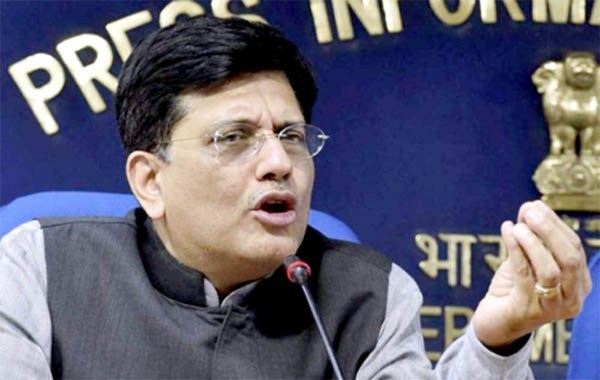 Budget: Relief package for farmers including interest-free loan likely to address agrarian distress
Budget: Relief package for farmers including interest-free loan likely to address agrarian distress
Bhopal:MMNN: 29 January 2019
New Delhi, With the announcement of Lok Sabha elections barely a few weeks way, one of the most awaited budgets for the farming community is the one to be presented on February 1 by Finance Minister Piyush Goyal.
It is expected that the government will come up with a relief package for farmers that will include interest-free credit for growers to address agrarian distress. The outgo for this measure could be an estimated Rs 26,000 crore.
The government also looked at the possibility of replicating Telangana government's Farmers Investment Support Scheme which involves payment of Rs 4,000 per acre for each farmer.
If implemented in the entire country, the outgo for this is expected to be over Rs 1.5 lakh crore and therefore, much thought is going into it.
Pre-budget consultations also threw up the idea of a Universal Basic Income which was mentioned in the 2015-16 Economic Survey Report presented by then Finance Minister Arun Jaitley.
However, on Monday, Congress president Rahul Gandhi beat the Modi government to it and announced Minimum Income Guarantee Scheme for poor if voted to power.Such a scheme will benefit 40 per cent of the population, including small farmers, the party said.
In Its Economic Survey Report, the Modi government had hinted at a Universal Basic Income costing about 4.5 to 5 per cent of the GDP replacing all subsidies, including food and fertiliser.But whether all this is possible in a vote-on-account budget or interim budget is under debate.
In all of its five years in power since 2014, the Modi government has resisted pressure for loan waiver of farmers' credit, whereas the Congress Party has played upon this theme which paid the party dividends in the Assembly elections in Punjab, Madhya Pradesh, Rajasthan and Chhattisgarh.
The BJP did the same in Uttar Pradesh in 2016 elections where it won handsomely.Instead of loan waiver, the Modi government expressed its commitment to doubling farmers' income by 2022.
It took measures to that effect including bringing more hectares under cultivation, e-National Agriculture Market to link mandis, Soil Health Card, Pradhan Mantri Fasal Bima Yojna, Pradhan Mantri Krishi Sinchai Yojna and Pradhan Mantri Annadata Aay SanraksHan Abhiyan.
Recently, the government raised the Minimum Support Price of Kharif crops to 1.5 times of production cost.
It also took measures to create a buffer stock for pulses and gave generous package to sugar millers to pay off farmers. It also experimented with the Price Differential Scheme of the previous Madhya Pradesh government.
By all accounts much of the problem lies with implementation of schemes by states and union territories be it payment of Minimum Support Price to farmers, the price for sugarcane to growers or providing proper relief/compensation to farmers in times of distress or natural calamity.
In the last budget, the central government provided incentives to Farmer Producer Companies (FPC) and the Food Processing Industries with encouraging results.
If the BJP-led National Democratic Alliance government and the major opposition agree on reducing farm distress there should be unanimity in providing succour rather than show one another down during elections.
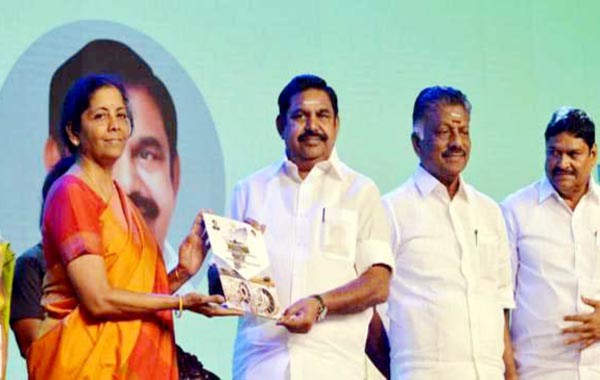 GST biggest economic reform, make India ideal destination for investment : Nirmala
GST biggest economic reform, make India ideal destination for investment : Nirmala
Bhopal:MMNN: 24 January 2019
Chennai, Defence Minister Nirmala Sitharaman on Wednesday said systematic reforms have been taken up courageously by the Centre under the leadership of Prime Minister Narendra Modi and one such measure was the GST, which was the India's biggest economic reform.
Inaugurating the second edition of the TN Global Investors Meet (GIM) 2019 here, she said these reforms had made India an ideal destination for those who want to invest.
While talking about the present industry scenario in the country, she said India was seen as bright spark all over the world for ease of doing business. She also made a note on recent IMF report which says that India's growth will sustain.
Appreciating the Tamil Nadu government for bringing a policy on Aerospace industry, Ms Nirmala invited the global trade community to invest in these sectors and promised full support from the Centre.
She said Tamil Nadu has shown interest in industrial growth for centuries. 'For example, Cholas had taken the Tamil Nadu culture all over the world through industrial ties and Poompuhar was one of the popular port of that time', she added.
'We have lot of trade associations today like CII, Assocham. But Tamil Nadu was known for having trade associations even in Chola period and there are some inscriptions regarding this in various countries like Thailand, Cambodia and so on', Ms Nirmala added.
She pointed out that Tamil poet Subramania Bharathi had insisted on making business globally in his writings.
 Non-Filers Asked To Submit Income Tax Returns Within 21 Days: 10 Things To Know
Non-Filers Asked To Submit Income Tax Returns Within 21 Days: 10 Things To Know
Bhopal:MMNN: 23 January 2019
If you haven't filed your income tax return yet, you have few days left to do so to avoid legal proceedings. Individuals who have not filed their income tax returns (ITR) for the assessment year 2018-19 should do the same within 21 days to avoid proceedings under the Income Tax Act, news agency IANS (Indo-Asian News service) reported citing a government statement. The Central Board of Direct Taxes (CBDT) had identified through the Non-filers Monitoring System several potential individuals who had carried out high value transactions in financial year 2017-18 but had still not filed returns, the agency reported.
Here are 10 things to know about CBDT's warning to non-ITR filers:
1- carried out an analysis to identify non-filers about whom specific information was available in its database of the Income Tax Department.
2-"Non-filers are requested to assess their tax liability for assessment year 2018-19 and file the ITR or submit online response within 21 days," it said in the statement.
3-If the explanation offered is found to be satisfactory, matters will be closed online. However, in cases where no return is filed or no response is received, initiation of proceedings under the Income-tax Act, 1961 will be considered," it added.
4- reiterated that there was no need to visit any Income Tax office for submitting a response as the entire process can be completed online.
5-Taxpayers can access information related to their case from the compliance portal' accessible through the e-filing portal- incometaxindiaefiling.Gov.In.
6-Meanwhile, the CBDT has directed the I-T department to withdraw all appeal cases from various courts by this month-end as part of the government's drive to end frivolous litigations.
7-These include cases pertaining to certain monetary limits and parameters.
8-The entire exercise of withdrawal of appeals must conclude by the end of the month and withdrawal figures should be intimated to the board by January 3.
9-CBDT or Central Board of Direct Taxes, a statutory authority functioning under the Central Board of Revenue Act, 1963, is the apex policymaking body of the Income Tax Department.
10-The officials of the board function as a Division of the Ministry dealing with matters relating to levy and collection of direct taxes.
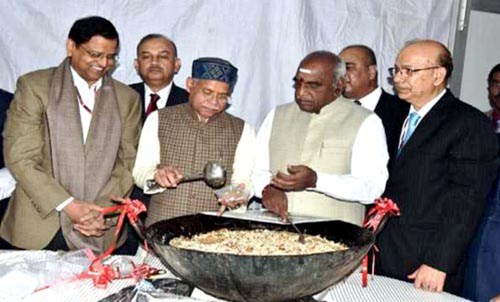 Interim Budget: 'Halwa ceremony' held without Jaitley
Interim Budget: 'Halwa ceremony' held without Jaitley
Bhopal:MMNN: 22 January 2019
New Delhi, To mark the ceremonial beginning of printing of the Interim Budget 2019, the Finance Ministry on Monday organised the "Halwa Ceremony" in the absence of Union Finance Minister Arun Jaitley.
Both Ministers of State for Finance Shiv Pratap Shukla and P Radhakrishnan shared the customary halwa with finance officials at the ceremony held at the North Block here.
Union Finance Minister Mr Jaitley was not present during the halwa ceremony as he was in the US for the treatment. He has been diagnosed with Cancer.
The event marks significance as once the sweet dish is served, a large number of officials and support staff, who are directly associated with the budget making and printing process, are required to stay in the ministry and remain cut off from their families till the presentation of the Budget in the Lok Sabha
The Interim Budget would be presented in Parliament on February 1.
TRAI Chairman bets big on 5G; says it is digital tomorrow
MMNN:18 January 2019
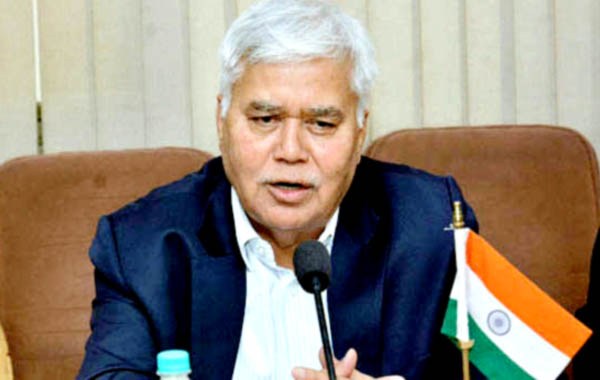
New Delhi, With digital media on a roll in recent times, TRAI chairman Ram Sevak Sharma said on Thursday that the 5G will be the digital tomorrow of this nation of fast growing internet consumers.
"5G spectrum, unlike the previous spectrums of 2G, 3G and 4G will not be focusing on high speed or connectivity only. Rather it will be an important and horizontal platform where multiple applications will ride fine, especially the real-time and M2M apps, because of the very little latency feature," Mr Sharma said here.
He was speaking at the first day of the 13th India Digital Summit, organised by the Internet and Mobile Association of India (IAMAI).
Mr Sharma was positive and hopeful about the Government's regulations and policies, and believes that the huge investments required by the 5G spectrum and infrastructure to be available to entire India can be possible by favourable initiatives taken by the Government.
OTT or over the top content is considered to be another strong point of digital India's future, he added.
Microsoft's M12 expands investment reach to India
MMNN:17 January 2019
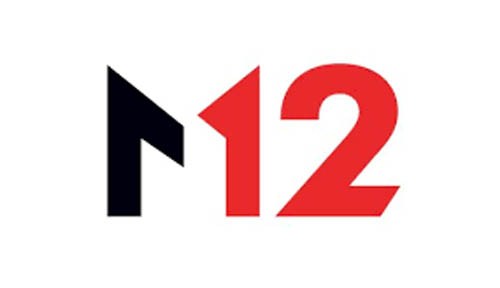
Bangalore, M12, Microsoft's corporate venture fund, on Wednesday announced that it would extend its investing coverage to India to help entrepreneurs innovate and grow with Microsoft's reach, expertise, and technologies. Rashmi Gopinath, partner at M12, will be leading M12's investments in India.
Microsoft continues its portfolio of investment in the Indian startup ecosystem with M12 announcing its first India investment, Innovaccer, a startup working to solve data interoperability challenges in healthcare and helping health systems enhance their clinical and financial outcomes with a data-first approach.
Venture capital investments in Indian tech business-to-business (B2B) start-ups have been trending upwards with over 3.09 billion dollars raised in equity funding across 415 deals in 2018, 28 per cent more than 2.41 billion dollars invested in 2017.
Moreover, an increasing number of enterprise B2B startups are being founded in India that cater to a global customer base, most notably in artificial intelligence and machine learning, robotics, software as a service (SaaS), data analytics and Internet of Things (IoT). These sectors continue to be top strategic priority focus areas for Microsoft and M12 as well.
In addition, India offers unique competitive advantages by being home to top technical talent in the world including deep tech areas such as computer vision, robotics, blockchain and autonomous driving. These factors position India favourably to support highly innovative startups that can effectively compete on a global scale.
Innovaccer is a shining example of the startup opportunity in India. The healthcare SaaS startup has offices in both India and the United States, offering a comprehensive Healthcare Data Platform and intelligent care application modules for over 10,000 healthcare providers across 500 practice locations.
Leveraging machine learning and healthcare-related contextual expertise, Innovaccer enables its users to consolidate financial, claims, patient, and operational data together to provide a comprehensive patient 360-view for better decision-making, care coordination, and reporting.
India's retail inflation comes at 18-month low of 2.19 per cent
MMNN:15 January 2019
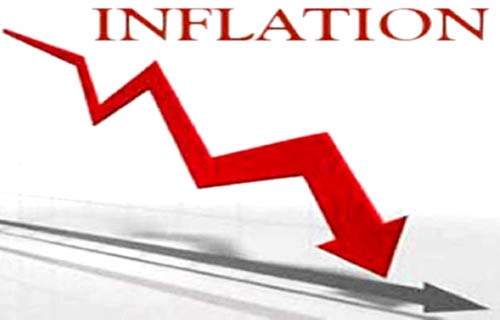
New Delhi, India's November retail inflation slumped to 2.19 per cent in December 2018 against 2.33 per cent in November and 3.38 per cent in October.
The Central Statistics Office (CSO) data on Monday showed the Consumer Food Price Index (CFPI) rose to (-)2.51 per cent from (-)2.61 per cent in November.
According to data, Food and Beverages recorded (-)1.49 per cent , Pan Tobacco and intoxicants recorded 5.77 per cent retail inflation.
Clothing and Footwear stood at 3.52 per cent and Housing at 5.32 per cent.Vegetables recorded 16.14 per cent, Fruits, (-)1.41 per cent and Pulses & Products saw (-) 7.13 per cent retail inflation.
Fuel and Light registered retail inflation at 4.54 per cent.
India A Bright Spot In Global Economy: Vice President M Venkaiah Naidu
MMNN:14 January 2019

MUMBAI: Vice President M Venkaiah Naidu on Saturday said a steady growth rate of almost 7 per cent coupled with a series of reforms made India the most favourite destination for investments in the world. He said India would continue to be the fastest growing major economy. Quoting the World Bank's latest forecast, he said GDP (gross domestic product) is expected to grow at 7.3 per cent this fiscal year and at 7.5 per cent in the following two years.
"It is the right time for foreign investors to tap the huge potential offered by India in various sectors from real estate to healthcare," Mr Naidu said, addressing the inaugural session of the Confederation of Indian Industry's (CII) Partnership Summit on the theme 'New India: Rising to Global Occasions'.
The government's initiatives and reforms helped India achieve the 11th rank in the Global FDI confidence index 2018, Vice President's Secretariat said in a statement.
"The annual FDI inflows would rise to $75 billion over the next five year and India with its growth momentum would soon become a $5 trillion economy," he said referring to a report by Swiss bank UBS.
Mr Naidu said the robustness of India's institutions, resilience of its policy frameworks, reforms initiated by the government and responsiveness of industry bodies such as CII have insulated its economy from stagnation and helped in achieving the dual distinction of being a stable democracy and one of the fastest growing economies in the world.
Appreciating the healthy competition among states to attract investors, Mr Naidu said the public-private partnership model was the way forward for effective implementation of infrastructure projects like construction of airports in Hyderabad, Delhi, Bengaluru and Mumbai.
He observed that the increasing internet penetration in rural India provides a great opportunity to improve rural India. Connecting all gram panchayats with optical fibre network under the BharatNet project by March 2019 would transform rural India, he said.
Advising the industry to promote innovation and research and development, he urged industry bodies like CII to promote business ethics, values, transparency and accountability.
Mr Naidu called upon the business community to share more of their wealth through Corporate Social Responsibility initiatives to address challenges like poverty, illiteracy, double burden of infectious diseases and non-communicable diseases and unemployment.
Calling terrorism a global concern that demands global attention and cooperation, he said the United Nations should conclude the Comprehensive Convention on International Terrorism at the earliest.
"Terror is enemy of humanity, we must see to it that is eliminated the earliest... the world community also should ensure that economic fugitives get extradited without delays," he said.
CII welcomes proactive measures taken by GST Council in its 32nd meeting
MMNN:12 January 2019
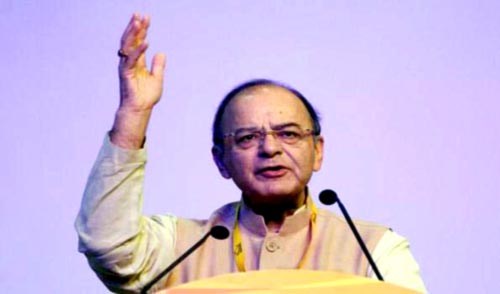
New Delhi, CII strongly welcomed the proactive measures taken by the GST Council in its 32nd meeting held on January 10.
"The GST Council led by Finance Minister Arun Jaitley has once again shown its complete commitment to ensuring a smooth and facilitative indirect tax regime in the country," stated CII Director General Chandrajit Banerjee on Friday.
In a statement here, the CII noted that the GST Council, since the introduction of the GST in July 2017, has continuously moved towards a simpler tax system.
It has steadily reduced the tax rates on many items, ensuring a movement towards a 3-slab GST structure with a standard rate, a higher demerit rate and a lower rate for items consumed by the poor.
The Council has further proactively addressed procedural matters, enabling smaller enterprises to file returns at intervals and extending the time for adjustment. It has also taken up issues of consistency to minimize disputes and litigation, stated the CII press release.
The CII said that the Council's decision to double the threshold limit for exemption from registration and payment of GST to Rs 40 lakh in the general category states brings huge relief to lakhs of small enterprises. These would no longer be liable to prepare returns and pay taxes from April 1, 2019, enabling them to conduct their business smoothly.
The confederation welcomed the extension of the composition scheme for services in particular. It stated that including suppliers of services and mixed suppliers under the composition scheme with a tax rate of 6 per cent would greatly help small service providers and professionals earning less than Rs 50 lakhs per annum.It would lower costs for buyers of these services down the supply chain as well.
The CII had recommended including services enterprises under the Composition Scheme and thanks the GST Council for this decision.
Felicitating the GST Council for raising the turnover limit for the composition scheme from Rs 1 crore to Rs 1.5 crore, CII said that this would release numerous small enterprises from the procedural burden. Further, these enterprises can file returns annually, freeing them from the need to maintain documents on a quarterly basis.
A key decision of the GST Council was to set up a group of ministers to look at the possibility of introducing the composition scheme for the residential real estate sector. The residential sector has been impacted due to the divergence between GST on under-construction and finished houses as well as introduction of Real Estate Regulation Act (RERA) simultaneously.
CII hopes that the committee would provide relief to the housing sector, particularly low-cost housing.With such progressive decisions from the GST Council headed by Finance Minister Arun Jaitley, CII is confident that GST will emerge as a game-changer for the Indian economy and fulfill the promise of adding 1-1.5 percentage points to the GSP growth rate within the shortest period of time.
UST Global to host upcoming TEDx Talk on Jan 20
MMNN:11 January 2019
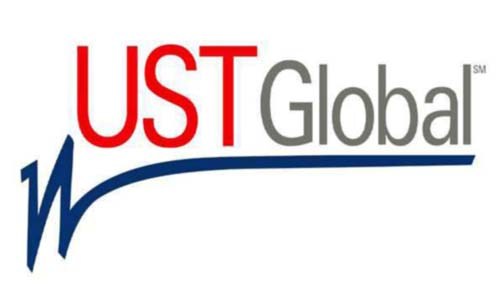
Thiruvananthapuram, UST Global will host the upcoming TEDx Talk at its campus here on January 20.TEDx is the city level event in Kerala and is the largest independently organized in the state.
TEDx stands for Technology, Entertainment and Design, and the 'x' standing for independently organised event proclaims the slogan, 'Ideas Worth Spreading'.
TED Talk have lively discussions on a range of relevant issues and was initiated by an American non-profit organisation called the Sapling Foundation in 1990.
TEDxThiruvananthapuram has 10 diverse speakers who have been selected after careful consideration and with whom the team has been working with to curate talks and ideas relevant for the city.
District collector Dr. Vasuki, DGP Prisons R. Sreelekha, Renowned International Mathematician Dr. Joseph Gheverghese George and several other innovators and changemakers would be speaking at TEDxThiruvananthapuram.
The presenting partner of TEDxThiruvananthapuram is UST Global.
A festival for the curious, these talks seek to facilitate the exchange of unique ideas and thereby cultivate a more inspired and thoughtful community, yearning for positive change.
Steve Jobs, Bill Gates, Bill Clinton, Shahrukh Khan and the Pope figure among some of the prominent personalities who have been part of the TED talks, that are held on an annual basis.
The organizers' move to democratise the phenomenon in 2009 saw TED going viral, not merely online but the world over with the 'x' suffix getting attached to the acronym.
Denoting 'independently organised event', these talks broke out of its more elite, American intelligentsia barrier and spread to remote locations across the world.
The local-level TED experience is further encouraged by the fact that the licences are let out for free, albeit after fulfilling an exhaustive criteria.
Moreover, specific issues of that particular location are discussed rather than the initial focus being on the terms in the acronym.
TEDxThiruvananthpuram is one of the few events that aims to spread inspiring Ideas in the local community.
Electric vehicles have potential to support India's growth: Jaitley
MMNN:10 January 2019
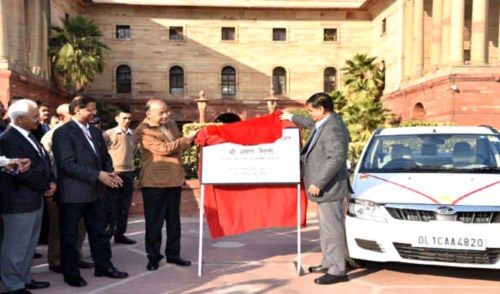
New Delhi, Electric mobility helps in reducing adverse impact of climate change and at the same time electric vehicles have the potential to support the India's growth by enhancing manufacturing, job creation and technical capabilities, Union Finance Minister Arun Jaitley said on Wednesday.
"Electric mobility is an attractive, sustainable and profitable solution to mitigate adverse impact of climate change and the threat to public health caused especially by vehicular emission," Mr Jaitley said.
He said EVs have the potential to support India's growth by enhancing manufacturing, job creation, and technical capabilities. "We are glad to be a part of India's mission of rapid adoption of e-mobility."
He was speaking after launching the induction of 15 Electric Vehicles in the Department of Economic Affairs, Ministry of Finance along with Union Power and New and Renewable Energy Minister RK Singh.
The electric vehicles will reduce dependence on oil imports and promote power capacity addition in India thereby enhancing energy security of the country. It will further reduce GHG emissions from the transport sector and also positively impact the pollution level in the cities.
Marking the adoption of e-mobility, the Department of Economic Affairs has signed an agreement with Energy Efficiency Services Limited (EESL), an entity under the Ministry of Power for deployment of 15 EVs for their officers.
Also, 28 charging points (24 slow charging points charging in six hours and four fast charging points charging in 90 minutes) have been installed at the North Block for charging these vehicles.
With the induction of these 15 vehicles being provided on lease basis for a period of five years, the Department is expected to save over 36,000 litres of fuel every year besides leading to reduction of over 440 tonnes of CO2 annually. These vehicles are automatic and fully air-conditioned with zero emission.
The Government will also save in maintenance and operating cost which is almost one fourth in comparison to an internal combustion engine.
The development marks the Department's participation in India's e-mobility goal of 30 per cent fleet electrification by 2030. The Department of Expenditure has also issued an office memorandum for all the government offices in Delhi to switch over to electric vehicles.
Fuel prices witness a hike on Monday; petrol gets costlier by 21-22 p/l
MMNN:8 January 2019
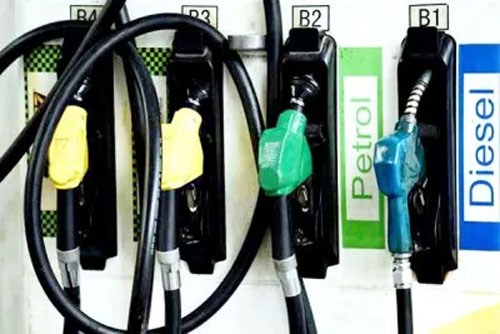
New Delhi, Fuel prices increased on Monday after a gap of 20 days as the price hike comes on the back of an increase of over 8 per cent in brent crude oil rates in the last seven days.
Petrol prices were hiked by 21-22 paise per litre across major cities while diesel became costlier by 8-9 paise per litre.
In the national capital, petrol is retailing at Rs 68.50 a litre while diesel costs Rs 62.24 per litre.In Mumbai, petrol is retailing at Rs 74.16, becomes costlier by 21 paise while diesel price was hiked by 8 paise per litre to Rs 65.12.
Similarly, in Noida, petrol was hiked by 29 paise per litre to Rs 69.79 and diesel was hiked by 20 paise to Rs 61.93 as compared to 61.73 on Sunday.
In Gurugram, petrol prices increased to Rs 69.82 and diesel price rose to Rs 62.54.In Chennai, petrol costs Rs 71.07 per litre while diesel is at Rs 65.70 a litre. Whereas in Kolkata, petrol is at Rs 70.64 and diesel at Rs 64.01 a litre.
India Set To Replace UK As 5th Biggest Economy, But There Are Bumps
MMNN:5 January 2019

India's economy grew at a faster pace than most major nations in 2018, and this year, it's poised to overtake the UK to become the world's fifth-biggest.
But that journey won't be smooth. The outcome of a general election due by May is a potential pitfall for a nation already battered by emerging market turmoil and a currency rout last year. Also, any attempts by the government to undermine the central bank's freedom and raid its surplus capital may spook investors and carry damaging consequences for the economy.
Here are the key themes to watch for in 2019:
Global Slowdown
Nomura Holdings Inc. estimates global growth will ease to around 2.8 percent in 2019 from 3.2 percent in 2018, led by a slowdown in China, and a moderation in the U.S. and euro-area toward long-term trends. "As cyclical impulses become less favorable, we expect exports, manufacturing and the investment cycle to weaken" in India, Nomura analysts said.
Monetary Policy
After raising interest rates twice last year, 2019 may see the Reserve Bank of India reverse course by giving up its hawkish monetary policy bias in favor of a neutral stance. With demand slowing and oil prices easing, inflation is expected to average toward the RBI's medium-term target of 4 percent in the first quarter of 2019. The six-member monetary policy committee may even be in a position to lower interest rates in the first half of the year, according to some analysts.
Shaktikanta Das, the new central bank governor, is seen as more dovish on monetary policy, saying inflation is benign and supporting growth is part of the RBI's focus. His predecessor, Urjit Patel, who unexpectedly quit last month, took a more cautious approach on price growth.
Interest-rate cuts could give a boost to lending and growth before the general election.
Election Risks
With the world's biggest election around the corner, Prime Minister Narendra Modi is under pressure to boost spending, especially to help farmers, to shore up voter support and spur an economy that's starting to slow. Data for the three months through September showed growth eased to 7.1 percent from the 8-plus percent pace seen in the previous quarter.
Spending pressures intensified last month following disappointing results for PM Modi's Bharatiya Janata Party in state elections, and farm loan waivers announced by the opposition Congress party in three states it won from the BJP.
The government is said to be studying three options, including a cash handout for farmers, to ease the distress for farmers and to shore up popular support ahead of elections. It's already slashed taxes on some goods and services and announced exemptions on pension withdrawals to appease voters.
These are in addition to programs for guaranteed crop prices and healthcare, the full impact of which will be known only in the budget, due to be delivered on Feb. 1.
With the government already exceeding its budget deficit targets in October, any additional measures will need to be balanced with possible reductions in spending to meet the fiscal goal of 3.3 percent of gross domestic product for the year through March.
A loss for PM Modi in the general election is a risk in terms of policy continuity, and investors are watching the events closely.
Sonal Varma, chief India economist at Nomura Holdings Inc. in Singapore, expects the government to be in limbo until a new administration is in place in May, posing a drag on spending growth in the first half of 2019
Cabinet approves merger of Vijaya Bank, Dena Bank into Bank of Baroda
MMNN:3 January 2019
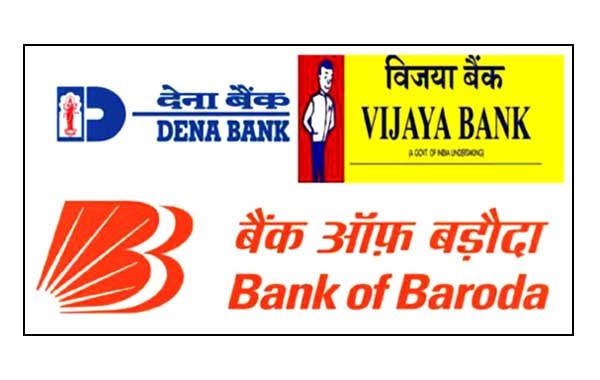
New Delhi, The Union Cabinet on Wednesday cleared the merger of Bank of Baroda, Vijaya Bank and Dena Bank.
The Bank of Baroda would be the transferee bank while Vijaya Bank and Dena Bank would be transferor banks, Union Minister Ravi Shankar Prasad told a press conference after the Cabinet meet.
Mr Prasad said the merger would come into force from new financial year April 1, 2019.
The Cabinet was held under the chairmanship of Prime Minister Narendra Modi here.
Jet Airways Defaults On Debt Payment To Banks, Shares Plummet Nearly 6%
MMNN:2 January 2019
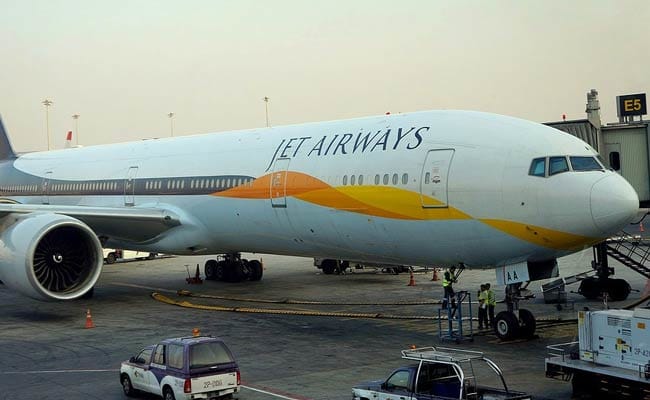
Cash-strapped Jet Airways said late Tuesday it defaulted on debt payment to a consortium of banks, prompting ratings agency ICRA to downgrade the carrier and sending its shares sharply lower. The payment of interest and principal instalment was delayed "due to temporary cash flow mismatch", Jet said in a statement, adding that it was in talks with the consortium led by State Bank of India. The deadline for payment was Monday, December 31.
ICRA cut Jet's long- and short-term ratings on Wednesday, citing the payment delays.
Timely implementation of liquidity initiatives, including equity infusion and a stake sale in the airline's loyalty programme Jet Privilege, will be critical to the company's credit profile, ICRA said.
The 25-year-old airline is facing financial difficulties and owes money to pilots, lessors and vendors. Intense pricing competition, a weak rupee and rising fuel costs weighed on the country's airlines in 2018.
Jet, the country's biggest full-service carrier by market share, had a debt of Rs. 8,052 crore ($1.15 billion) as of September 30, 2018.
Jet and its second-largest shareholder, Etihad Airways, are in talks with bankers on a rescue deal that may involve the Abu Dhabi-based airline increasing its stake from 24 per cent at present.
The airline's shares declined as much as 5.84 per cent in their sharpest intraday drop in over three weeks and were last down 5.27 per cent at Rs. 266.00, as of 2:33 pm on the NSE.
SAIL must keep pace with new growing companies: Birender Singh
MMNN:29 December 2018
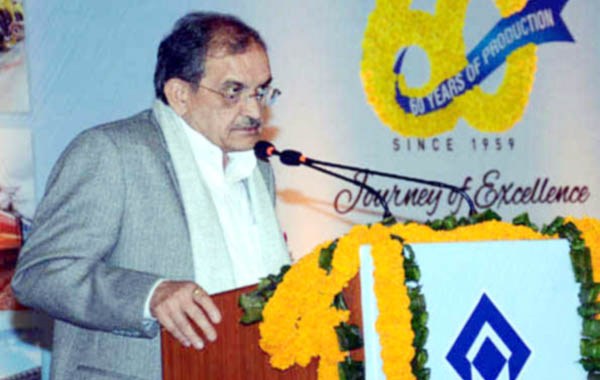
New Delhi, Times are changing and SAIL must keep pace with the new and fast growing steel companies, Union Steel Minister Chaudhary Birender Singh said on Friday.
Outlining four mantras for SAIL - Speed, Aggression, Innovation and Loyalty - the Minister said decisions, actions and projects need more speed and marketing.
He said new areas and markets like North-East need to be explored and technology, thinking and working has to be innovative and all this will happen only if those associated with SAIL have loyalty and commitment towards the company and country.
Mr Singh was addressing an event, organised to commemorate the 60 years of the SAIL foundation here.
The Minister exhorted SAIL to invest in research and development, technology development and production of high-grade, value-added steel as these are the priorities of the government and SAIL has a crucial role to play in all these areas.
"National Steel Policy, 2017 has set ambitious target of 300 MT steel capacity by 2030-31 and SAIL with 1/6th of the proposed capacity is going to be a key contributor. However, all this must be done in a systematic and planned way. Each plant and unit has to adopt the culture of 'Safety First'."
Stressing that the culture of safety has to be an integral part of the working, he said the Ministry will observe daylong of the year as Safety Day for the steel sector from 2019.
Minister of State for Steel Vishnu Deo Sai expressed hope that with its continued hard work, SAIL will be able to fulfill the right expectations of the country in future too.
The first furnace of Rourkela Steel Plant began functioning in 1959 setting the foundation for building India's economic development. SAIL nowadays is a Maharatna company and the largest steel producer and also the highest iron ore miner in India. Steel is a deregulated sector and SAIL operates in open economy producing 21.4 million tonnes steel per annum and contributing 1.5 times of India's GDP and 6.8 times to employment generation.
Steel Ministry Secretary Binoy Kumar and SAIL Chairman Anil Kumar Chaudhary and top officials of Ministry of Railways and other Central Government departments were also present on this occasion.
Suzuki Motorcycle India launches 2019 edition of its ultimate sportbike 'Hayabusa'
MMNN:28 December 2018
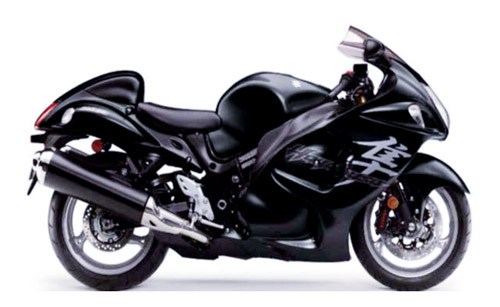
Mumbai, Suzuki Motorcycle India Private Limited (SMIPL), a subsidiary of two-wheeler manufacturer, Suzuki Motor Corporation, Japan, on Thursday launched the 2019 edition of the Hayabusa, one of the most iconic motorcycle in India. Suzuki Hayabusa will be available across all Suzuki Big Bike dealerships for Rs 13,74,364 (ex-showroom, Delhi).
The legendary Hayabusa enjoys wide base of loyalists and enthusiasts globally and is known for its high speed and sportiness.The 2019 edition of Suzuki Hayabusa will be offered in two new colour schemes- Metallic Oort Gray and Glass Sparkle Black- with updated graphics, and an added pair of side reflectors for Indian conditions.
Commenting on the launch of 2019 Suzuki Hayabusa, Mr Satoshi Uchida, Managing Director, SMIPL said, 'For 20 years, Suzuki Hayabusa has been one of the most loved sportsbike among the enthusiasts for almost two decades and has received an excellent response in India.
It is our constant endeavour to offer great products, and we are pleased to launch the 2019 edition of Hayabusa in two new colour schemes appealing to a larger fan base and enthusiasts in India.'
Suzuki Hayabusa is powered with 1340cm3 four stroke fuel injected liquid-cooled DOHC engine to deliver a broad wave of torque for effortless acceleration. The advanced aerodynamics add to superb wind protection both for normal and completely tucked-in seating.
Government Has Revival Plan For Air India, Says Jayant Sinha
MMNN:27 December 2018

NEW DELHI: The government has prepared a revival plan for Air India that provides for a comprehensive financial package, differentiated strategies for each of the airline's core businesses and robust organisational reforms, Union Minister Jayant Sinha said on Thursday. Various initiatives to turnaround the national carrier, which is staying afloat on a bailout package extended by the previous government, including monetisation of real estate assets are progressing. Mr Sinha told the Lok Sabha that the government has prepared a revival plan for Air India which focuses on building a competitive and profitable airline group.
A comprehensive financial package, including transfer of non-core debt and assets to a Special Purpose Vehicle, implementation of a robust organisational and governance reforms by the board and differentiated business strategies for each of the core businesses of Air India are part of the plan.
"Higher levels of operational efficiency by strengthening management and implementing best business processes," are among the major elements of the plan, Mr Sinha said. The minister of state for civil aviation also said that Air India has planned to monetise its unutilised and surplus immovable real estate assets over the next few years.
"Till date, Air India has realised an amount of Rs. 410 crore through sale of its non-core assets in various cities in India and abroad. "Air India has also realised a rental income of Rs. 314 crore approximately," he said during the Question Hour.
The minister also said that amount of revenue likely to be generated from monetisation of land and properties depends on the bid process and subject to no-objection certificates from authorities concerned. Air India is estimated to have a debt worth over Rs. 55,000 crore. In a written reply, Mr Sinha said the government remains committed to the disinvestment of Air India.
"In this regard, AISAM has directed to separately decide the contours of the mode of disposal of the subsidiaries -- Air India Engineering Services Ltd (AIESL), Air India Air Transport Services Ltd (AIATSL) and Airline Allied Services Ltd (AASL)," he noted. The Air India Specific Alternative Mechanism (AISAM) has also approved the contours for sale of subsidiaries of Air India and has directed to expedite the sale of AIATSL, the minister added.
Crude Oil Price Plunges 6% As Economic Slowdown Fears Grip Market
MMNN:25 December 2018

Crude oil prices plunged more than 6 per cent to the lowest level in more than a year on Monday, pulling back sharply late in the session as fears of an economic slowdown rattled the market.
US crude futures and global benchmark Brent hit their lowest levels since 2017 during the session, putting both benchmarks on track for losses of about 40 per cent in the fourth quarter.
"What's happening in the stock market is raising fears that the economy is grinding to a halt and thereby will basically kill any future oil demand," said Phil Flynn, an analyst at Price Futures Group in Chicago. "They're pricing in a slowdown in the economy if not a recession with this drop."
The fourth-quarter price decline is likely to cause producers to throttle back on their output, he said.
US crude futures have hit the lowest level since June 22, 2017, as jitters have grown about the impact of the escalating US-China trade dispute on global growth and crude demand. Brent crude is at its lowest level since August 17, 2017.
Markets across asset classes have come under pressure as the US government shutdown that began just after midnight on Saturday intensified growth concerns. Investors have flocked to safe-haven assets such as gold and government debt at the expense of crude oil and stocks.
A gauge of stocks worldwide hurtled toward an eighth straight decline on Monday as investors ignored the US Treasury secretary's actions to reinforce confidence in the economy and US President Donald Trump criticized the Federal Reserve as "the only problem our economy has".
The US Senate has been unable to break an impasse over Mr Trump's demand for more funds for a wall on the border with Mexico, and a senior official said the shutdown could continue until January 3.
US crude futures settled at $42.53 a barrel, down $3.06, or 6.7 per cent. Brent crude futures settled down $3.35, or 6.2 per cent, at $50.47 a barrel. The market settled early ahead of the Christmas holiday. Prices extended losses in post-settlement trade.
Brent fell 11 per cent last week and hit its lowest level since September 2017, while US futures slid to their lowest level since July 2017, bringing the decline in the two contracts to more than 35 per cent for the quarter.
The macroeconomic picture and its impact on oil demand continue to pressure prices. Global equities have fallen nearly 9.5 per cent so far in December, their biggest one-month slide since September 2011, when the euro-zone debt crisis was unfolding.
The US-China trade dispute and the prospect of a rapid rise in US interest rates have brought global stocks down from this year's record highs and ignited concern that oil demand will be insufficient to soak up any excess supply.
The Organization of the Petroleum Exporting Countries and allies led by Russia agreed this month to cut oil production by 1.2 million barrels per day from January.
Should that fail to balance the market, OPEC and its allies will hold an extraordinary meeting, United Arab Emirates Energy Minister Suhail al-Mazrouei said on Sunday.
COMMENT
"Oil ministers are already taking to the airwaves with a 'price stability at all cost' mantra," said Stephen Innes, head of trading for Asia-Pacific at futures brokerage Oanda in Singapore.
Fuel prices dip again; petrol costs Rs 75.97 p/l in Delhi
MMNN:23 November 2018

New Delhi, Fuel prices witnessed a dip again on Thursday as the rates were slashed up to 43 paise per litre on Thursday, owing to a reduction in the rates of crude oil in the global market.
The petrol price was reduced by 40 to 43 paise per litre in all four metro cities, while diesel has witnessed a dip of 30 to 48 paise per litre.Petrol in Delhi is retailing at Rs 75. 97 per litre, while diesel costs Rs 70.97 per litre.
In Mumbai, petrol is being sold at Rs 81. 50 per litre and diesel at Rs 74.34 litre.
In Chennai and Kolkata petrol after the revision of price costs Rs 78.88 per litre and Rs 79.31 per litre respectively.
Diesel in Kolkata was Rs 72.83 per litre, a cut of 30 paise and in Chennai is is being sold at Rs 74.99 per litre, a slash of 32 paise.
Fuel prices registers no change on Wednesday;remains the same
MMNN:22 November 2018
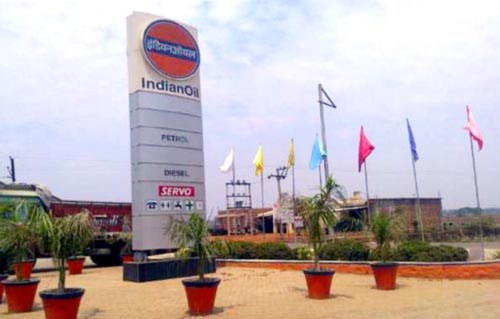
New Delhi, Fuel prices remained the same on Wednesday after consecutive fall for six days.
According to the Indian Oil Corp data, petrol was priced at Rs 76.38 per litre in the national capital.
In Mumbai, petrol is retailing at Rs 81.90 per litre, Rs 78.33 in Kolkata and Rs 79.31 in Chennai.
Diesel too remained unchanged across the four metros. In Delhi, diesel is selling at Rs 71.27 per litre. Similarly, prices of diesel in Mumbai was at Rs 74.66 per litre, in Kolkata and Chennai prices were declined to Rs 73.13 and Rs 75.31 a litre respectively.
The 4 Reddy Sisters Running $2 Billion Apollo Empire
MMNN:21 November 2018

Next to Suneeta Reddy's desk in the executive suite of Apollo Hospitals Enterprise Ltd. hangs an icon of goddess Durga, who Reddy prays to each morning. The deity's presence seems fitting at a company run by four women engineering an aggressive expansion into new territory. About a decade ago, Reddy and her three sisters took over most executive functions at Apollo, the country's largest hospital chain, from their father. They embarked on a multi-year building spree in a bet that the economic growth would spread from its metropolises to second-tier cities, where patients are getting richer. But Apollo's stock tumbled as the sisters' investments weighed on profits.
Now, almost Rs. 2,000 crore ($280 million) and four years of construction later, there are signs that strategy is about to pay off. All those hospitals are built. Analysts are predicting that annual earnings are poised to climb for the first time since 2015. Apollo's shares have gained about 30 per cent after hitting a four-year low in June, and stock forecasters are more bullish than they have been in a decade.
The four of us recognized there was a demand and supply gap, and we needed to fill it," Reddy, 59, who holds the title of co-managing director, said in an interview this month in Chennai. "The capacity to pay more will exist."
The company's stock climbed as much as 2.5 per cent in Mumbai before trading 1.9 per cent higher at Rs. 1,215.70 at 11:51 a.m in Mumbai, reversing three days of declines on a day when the broader market was down.
Tackling Hurdles
Health-care is becoming one of the largest businesses, with the size of the hospital industry projected to more than double to $133 billion over the next four years, according to the government's India Brand Equity Foundation. Most patients pay health costs out of pocket, but incomes are rising and the insurance industry is developing. More citizens could be insured over the coming decades as Prime Minister Narendra Modi's government expands a new initiative to provide health insurance for the poorer half of the country's population
Yet, even as Apollo's expansion has offered fresh opportunities, it's also brought the sisters new challenges. Despite signs that investors are coming around, expenditures from the sisters' big build have left the stock and profits well below their peaks, and debt has more than doubled over the past four years.
There are other hurdles that have the potential to hamper growth if Apollo doesn't get its formula right. Convincing an internationally trained surgeon to relocate to Mumbai is hard enough, never mind inland to a small city. Also, Apollo found that people in smaller cities aren't always willing to pay as much, a hurdle for a model of premium prices for premium care. Competition is also growing with more hospitals jostling for a slice of the market.
And Reddy doesn't expect an immediate effect from the government's new insurance program. While Apollo plans to allocate beds for the programme, it won't turn a profit on those patients because those facilities are set up to cater to the high end of the market, she said. The company is starting to conduct experiments in lower cost care in suburban Chennai such as paying doctors fixed salaries rather than for individual services and substituting generic drugs for brands.
Reddy said Apollo is digging deeper into the pool of domestically trained doctors, and developing detailed protocols to ensure smaller centers follow uniform practices. And it's become more "flexible" about pricing to establish itself in new communities, she said.
She predicts occupancy at newer hospitals will gradually increase to the 70 per cent level seen in established ones. The company also predicts that profit margins at the new hospitals will approach the 20 per cent level from around 6 per cent now.
"They seem to be getting their calculations right in terms of their return expectations," Rakesh Nayudu, an equity analyst for Haitong Securities India. "They're targeting the right cities." Of the 23 analysts that cover the company, 21 recommend buying the stock.
Reddy's father Prathap, a doctor, founded Apollo in 1983 after a patient of his died because a cutting-edge treatment wasn't available in India. Apollo now has a market value of $2 billion, annual revenue of $1 billion, internationally-trained doctors, operating theatres with the latest equipment. Patients can choose to recuperate in suites with a living room and two bathrooms. The family still owns 34 per cent of the company.
Prathap Reddy remains chairman at age 86, with two of the sisters, Preetha Reddy and Shobana Kamineni, acting as co-vice chairs. Suneeta and Sangita Reddy share the title of managing director, typically the equivalent of the CEO role in corporate India.
There are also the tricky questions around succession that will have to be managed. When their father relinquishes his role, the plan is for the eldest sister Preetha to succeed him, though strategy would still be decided by a vote between the four sisters, Suneeta Reddy said.
Having all four of them on the 10-person board means the company has four times as many women as the average domestic board, and more on average than major companies in the US and the UK. Reddy says their cohesiveness comes down to a clear division of labour that plays to each one's strengths.
"It's because we're sisters that we're able to weave it together," Reddy said. "I think if the chairman had four sons they probably would have created four companies to do it."
Prabhu launches AirSewa 2.0; says improving service quality is on priority
MMNN:20 November 2018
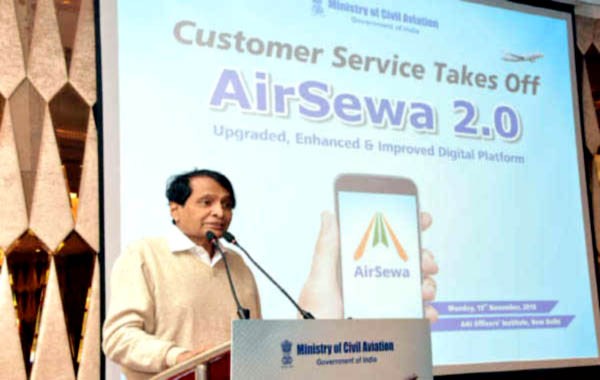
New Delhi, Union Civil Aviation Minister Suresh Prabhu on Monday said the focus is on improving the quality of services so that passengers who are travelling have a safe and comfortable experience.
He said a need was felt for development of an upgraded version of AirSewa to provide a superior user experience with enhanced functionalities. Major improvements include features such as secure sign-up and log-in with social media, chatbot for travellers support, improved grievance management such as social media grievances, real-time flight status and details flight schedule.
Mr Prabhu said this after launching the upgraded version of AirSewa 2.0 web portal and mobile app here along with Minister of State for Civil Aviation Jayant Sinha.Mr Prabhu said the upgrade and improved version of AirSewa will offer passengers a convenient and hassle-free air travel experience. The web portal and application will help to capture air travellers' feedback for policy interventions.
Speaking on the occasion, Mr Sinha said today, five crore passengers have been travelling every year and would grow exponentially in the near future. There was an urgent need of upgrading AirSewa and systemic intervention in improving customer services.
Air passengers, he said, face issues like flight delays, problem in refunds, long queues, inadequate facilities at airports and complaints of lost baggage and his Ministry launched AirSewa web portal and mobile app in November 2016 to address this need.
The AirSewa 1.0 was received well, with around 30,000 app downloads and around 75,000 web portal hits since its launch. It has helped significant number of air passengers to get their concerns resolved with 92 per cent closure rate for grievance solutions. In addition to grievance redressal, AirSewa also provides real-time flight status and flight schedules, he added.
The junior Minister said further upgrades of AirSewa are also being planned which would include DigiYatra registration, airport maps, BHIM payment integration and grievance escalation and transfer.
The two Ministers also gave away the champion award to Chennai airport which saw 100 per cent timely closure of grievances in one year.
RBI Board, Govt meeting underway to solve rifts
MMNN:19 November 2018
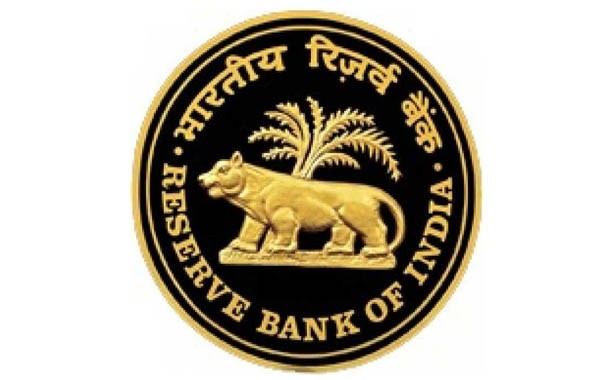
New Delhi/Mumbai, A crucial meeting of the Reserve Bank of India and the Government is underway on Monday to draft new prompt corrective actions for weak lenders amid increasing non-performing assets and bad loans, providing liquidity to non-banking financing companies and new capital guidelines for the central bank.
The RBI Board of Directors include five full time members - RBI Governor Urjit Patel, Deputy Governors N S Vishwanathan, Viral V Acharya, B P Kanungo and Mahesh K Jain.
The Government has inducted Department of Economic Affairs Secretary S C Garg and Department of Financial Services Rajiv Kumar into the Board as its representative. The Board has also 11 independent directors.
The meeting is also expected to take up issues of resolving liquidity crunch to lend sufficient capital to non-banking finance companies in wake of IL&FS defaults.
It may also frame new prompt corrective actions (PCA) for weak banks amid growing bad loans in order to make them stable and stand on their own feet.
The meeting is likely to also discuss the issue that there should be sufficient capital and easier norms for small and medium businesses.The issue of RBI reserve surplus is also expected to surface in the meeting of which the Central Bank is not in favour.
Besides, sources say the government has recommended that the RBI Board frame rules and regulations such as financial stability and monetary policy transmission. However, the Bank wants that these regulations should be draft by experts only.
NDA govt has influenced aspirations of low-income people: Jaitley
MMNN:16 November 2018
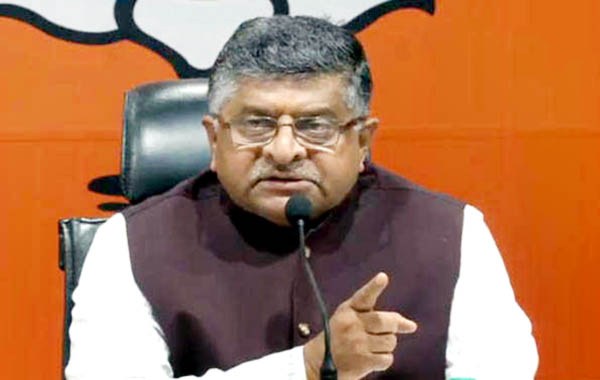
New Delhi, The NDA Government's achievement in financial inclusion have in a way influence the aspirations of low-income population, leading to improve lives in rural areas, Union Finance Minister Arun Jaitley said on Thursday.
Mr Jaitley said the government in just four years has achieved remarkable results as it has opened numerous bank accounts under the Jan Dhan Yojna, providing funds to Start-Ups and covered the rural areas.
"Within a short span of time, what started of as a financial inclusion experiment, we have been able to achieve remarkable results in banking the unbanked, securing the unsecured, funding the unfunded and covering the uncovered rural areas. Our achievements in financial inclusion have in a way influenced the aspirations of the low-income population. This has led to improving the rural sanitation, providing better quality of life to poorer population in the villages," the Minister added.
The Finance Minister said the subject of digital financial inclusion is a topic of extreme importance to a country like India where they have adopted a higher growth rate to propel development.
He was speaking at the 25th World Congress of Savings and Retail Banks organised here.
NABARD chairman Dr Harsh Kumar Bhanwala said the financial inclusion model adopted by India has contributed to inclusive growth and laying down a huge digital infrastructure which can be used by state governments for providing various benefits to the poorer population.
He said the NABARD has also enabled outreach to more than 100 million rural women through partnerships with over 60,000 bank branches and over 5,000 civil society organisations. Savings plays a very critical role in all the financial inclusion approaches promoted by NABARD.
Mr Bhanwala said NABARD is also in the process of digitisation of self-help groups, which contributes to intensification of credit, convergence of various government benefit schemes and providing better business opportunities for banks with over 100 million members of SHGs.
Speaking on the occasion, outgoing WSBI President Heinrich Haasis provided a summary of achievements made during his six-year association presidency, including inroads made toward a WSBI pledge to provide "an account for everybody", which was outlined in a 2012 WSBI declaration in Marrakesh.
"Since our World Bank Universal Financial Access 2020 commitment made in 2015, WSBI members have added 340 million accounts for 234 million people into the formal financial system thanks to their efforts," he added.
Department of Financial Services Secretary Rajiv Kumar was also present on the occasion
Jet Airways Surges 26% On Reports Of Tata Pursuing Controlling Stake
MMNN:15 November 2018

Jet Airways shares jumped as much as 29.93 per cent on the Bombay Stock Exchange (BSE), before closing 24.52 per cent or Rs. 63.20 higher at 320.95, on Thursday. The surge in Jet Airways share price came after reports emerged that Tata Sons is in pursuit of a controlling stake in the debt-laden carrier. Jet Airways share price rose by as much as Rs. 77.15 to touch Rs. 334.90 at the day's strongest point, from the previous close of Rs. 257.75.
On the National Stock Exchange (NSE), Jet Airways shares closed at Rs. 326 apiece, a rise of Rs. 68.10 or 26.41 per cent against a 0.38 per cent rise in benchmark index Nifty. Jet Airways share price surged by as much as Rs. 77.1 to touch an intraday high of Rs. 335 on the NSE, from their previous day's close of Rs. 257.90.
On Wednesday, news agency Reuters, citing people aware of the talks, reported that Tata is weighing up the economic viability of a deal which would make it Jet Airways' decision-maker, necessitating the departure of the airline's founder, Naresh Goyal. "There are compelling reasons but any deal with Jet is opportunistic," one of the people said. "Tata needs to see if it fits into its overall aviation strategy."
Tata Sons is the holding company for Tata Group which already has two aviation ventures in India - Vistara with Singapore Airlines, and AirAsia India with Malaysian carrier AirAsia Group. Jet Airways chairman Mr Goyal is the majority owner of the airline in which Etihad Airlines also owns a stake. The struggling airline has also not been able to pay salaries to the employees on time.
Earlier, Jet Airways posted its third straight quarterly loss at Rs. 1,297 crore for the quarter that ended September.
Wholesale Inflation Surges To Four-Month High In October
MMNN:14 November 2018

Wholesale inflation - based on the Wholesale Price Index (WPI) - accelerated to a provisional 5.28 per cent in October from 5.13 per cent in September, and 3.68 per cent in October 2017, government data showed on Wednesday. The wholesale or headline inflation reading of 5.28 per cent marked the highest level recorded in four months. The Central Statistics Office (CSO), under the Ministry Of Commerce & Industry, had last reported a higher inflation at 5.68 per cent in in June this year.
The rate of price increase in manufactured products, which has the maximum weightage (more than 64 per cent) on the Wholesale Price Index, stood at 4.49 per cent in October, the CSO said in its official release. The index for manufactured products comprises items such as food products, beverages, chemicals, metal goods, machinery and electricity.
Wholesale inflation in primary articles, including food articles (cereals, paddy, onions, milk etc.) and petroleum items (crude and natural gas), was at 1.79 per cent in October. The index for primary articles has the second highest weightage of 22.6 per cent on the WPI.
Petrol, diesel and liquefied petroleum gas (LPG) or cooking gas, which form a part of the fuel and power basket, registered a rise of 19.85 per cent, 23.91 per cent and 31.39 per cent respectively. Inflation in the 'fuel and power' basket in October spiked to 18.44 per cent, from 16.65 per cent in September.
The uptick in the WPI inflation in October 2018 reflected the impact of the pass through of higher commodity prices and the INR depreciation, whereas the disinflation in food prices had a much smaller impact on wholesale inflation than the CPI (consumer price index), given the difference in weights for food items in the two indices," said Aditi Nayar, Principal Economist, ICRA Ltd.
Wholesale prices of food articles, vegetables, pulses and onion witnessed a deflation of 1.49 per cent, 18.65 per cent, 13.92 per cent, and 31.69 per cent respectively.
Earlier this week, official data showed that retail inflation eased to a 13-month low of 3.31 per cent in October. This was a third straight month in which consumer inflation remained below the central bank's medium-term target of 4 per cent. The Reserve Bank of India takes into account consumer inflation while determining the monetary policy.
Reliance to create world's largest online-to-offline New Commerce Platform- Mukesh Ambani
MMNN:13 November 2018
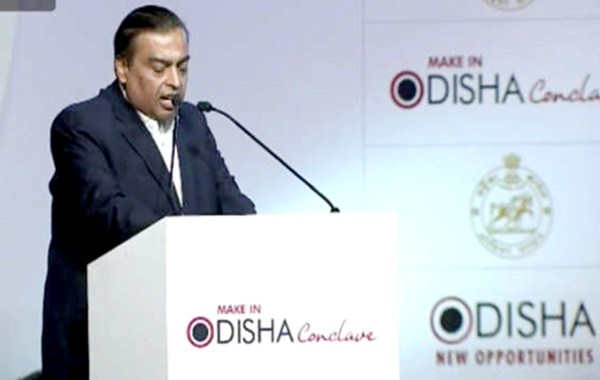
Bhubaneswar, Reliance is working on creating the world's largest online-to-offline New Commerce Platform and transforming the lives and businesses of three crore merchants and small shopkeepers in the country,Chairman and Managing Director Reliance Industries Limited Mukesh D Ambani said.
"We will enable them to do everything that large enterprises and large ecommerce players are able to do", Mr Ambani said while addressing the Make in Odisha Conclave here today.
"I can assure you that Reliance and Jio will considerably improve the Ease of Living of each and every citizen of India, and also improve the Ease of Doing Business for Odisha's small and medium enterprises", he said.
Mr Ambani said Prime Minister Narendra Modi's inspiring vision of Digital India is to make India a leader in the digital economy globally adding that today, India is the fastest digitizing economy in the whole world.
Stating that Jio is leading India's digital transformation, he said since Jio commenced operations a little over two years ago, India has moved from the 155th rank in mobile broadband penetration to being the number one nation in mobile data consumption in the world.
With JioGigaFiber, Mr Ambani said, "We have now begun an ambitious push in the fixed broadband through Fiber-to-the-home and Fiber-to-the-premises and our aim and resolve is to ensure that India rises from the present 135th rank to be among the top three nations in fixed broadband in the next three years'.
Mr Ambani said, "I have a big reason for focusing on the digital business.The world is at the cusp of a digital revolution. Everything in the world is going digital - music, movies, commerce, banking, cars, homes, healthcare, education - every aspect of life is going digital'.
Digital technologies will completely transform every sector of the economy, and every field of life and this will be achieved by using the most powerful tool of our times.the tools of connectivity and digital technologies. New generation digital technologies, with Artificial Intelligence at their core, are rapidly transforming our world like never before in world history, he added.
India still 27 positions away from its target, says Jaitley
MMNN:2 November 2018
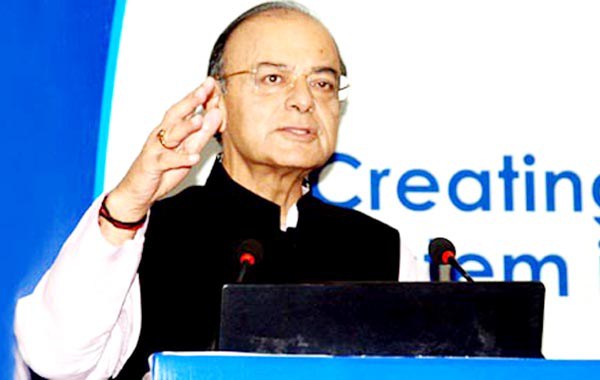
New Delhi, India is still 27 positions away from target, set by the NDA government that New Delhi should be amongst the first 50 nations in the 'Ease of Doing Business', Union Finance Minister Arun Jaitley said on Thursday.
Mr Jaitley said when the NDA took the regime in 2014 that, the Narendra Modi government's objective was to ensure that India should be amongst the first 50 nations in the 'Ease of Doing Business'. His call seemed to be a tall promise since India was on 142 rank and had to move up 92 positions.
The Minister said this in his blog 'India and the Ease of Doing Business',posted on the social media. The Government started working on each of the criteria in 2014 itself. Announcement of a change, a legislation or a policy is not enough unless the effect of the same is felt on the ground. The World Bank doesn't regard announcements as a worthy improvement. There is always a timeline between the reform and the upgrade, he added.
Mr Jaitley said: "Having inherited the legacy of position No142, we moved up, in the first two years, and retained position No 130. In the third year, we have made a major jump of 30 positions to reach position No 100 and in the fourth year, we have moved to position No 77. This is a 65 point improvement in the first four years. We are still 27 positions away from the target. The impossible now looks plausible."
The Minister said India has witnessed high level of corruption, policy paralysis and abandonment of all reforms during UPA. In the five year tenureof UPA-II, the country witnessed a global ranking 134, 132, 132, 134 and finally 142. This was UPA's miserable track record.
Mr Jaitley added that on the 'Starting of Business', the country have improved in four years by 21 points. In 'Construction Activity', four year improvement is a massive 132 points. For 'Getting Electricity', it has improved a phenomenal 132 positions.
On registration of properties, it is still at position no 166. On ''Getting Credit', the country is at position no 22. On 'Protecting Minority Investors', the nation has reached at position no 7 - the highest position in any category. On 'Trading Across Borders', which involves customs, New Delhi has improved significantly to position No 80 from an all time high of 146.
After the enactment and implementation of the GST and the Insolvency and Bankruptcy Code, India has improved in 'Payment of Taxes' by 37 positions but are still at 121. In 'Resolving Insolvency', it has improved 29 positions but are still at 108. On 'Enforcement of Contracts', it has improved by 23 positions but is still at 163.
"The other area where India has to make a special effort to further improve is in relation to 'starting a business'.Current year the ranking of 137 has improved by 21 position in the last four years. It is still not a satisfactory position. There are several processes which are relevant both at the level of the Central Government and the State Governments. Much improvement is required in these areas," he wrote in his blog.
AirAsia India May Appoint Tata Steel Executive As New CEO: Report
MMNN:10 October 2018

New Delhi: AirAsia India is close to appointing an executive from Tata Steel Ltd to head the troubled low-cost carrier as its local partner, Tata Sons, moves to take greater control of the company, two sources aware of the matter told Reuters on Wednesday. Sunil Bhaskaran, who is currently vice president of corporate affairs at Tata Steel, has been chosen to head the airline - a joint venture between India's autos-to-steel conglomerate Tata Sons and Malaysian low-cost carrier AirAsia Group Bhd.
AirAsia India did not immediately respond to a request for comment. Bhaskaran could not immediately be reached.
AirAsia India has seen several high-profile exits in recent months and has been without a CEO for nearly six months. Bhaskaran's appointment would also come at a time when the airline and some of its executives are being investigated for alleged wrongdoing.
Indian police in May filed a case against AirAsia Group, CEO Tony Fernandes and its domestic entity AirAsia India, over allegations of corruption and breaking rules in obtaining a flying licence.
The Central Bureau of Investigation (CBI) accused the airline, some of its employees and third parties of violating India's foreign direct investment rules while obtaining the licence, and of allegedly bribing government officials in an attempt to get regulations relaxed to allow AirAsia India to fly international routes.
AirAsia India has refuted the allegations of wrongdoing.
Gold Rates Edge Lower On Weak Global Cues: 5 Things To Know
MMNN:8 October 2018

Tracking a weak trend overseas amid subdued demand from local jewelers, gold prices fell by Rs. 30 to Rs. 31,870 per 10 gram at the bullion market on Monday, reported Press Trust of India (PTI). In the national capital, gold of 99.9 per cent and 99.5 per cent purity declined by Rs. 30 each to Rs. 31,870 and Rs. 31,720 per 10 gram, respectively. Silver rates, too, slumped by Rs. 500 to Rs. 39,300 per kg due to reduced offtake by industrial units and coin makers.
Here are 5 things to know about gold prices, silver rates on Monday:
1. Muted demand from local jewellers and weak trend in the global markets, after dollar strengthened as China's central bank eased its domestic policy, reduced appeal for the precious metals as a safe haven, led to the decline in gold prices, traders said.
2. Sovereign gold remained flat at Rs. 24,600 per piece of 8 gram.
3. Silver ready plunged by Rs. 500 to Rs. 39,300 per kg and weekly-based delivery by Rs. 420 to Rs. 38,555 per kg. Silver coins maintained a steady trend at Rs. 73,000 for buying and Rs. 74,000 for selling of 100 pieces.
4. Globally, gold price fell by 0.66 per cent to $ 1,197.50 an ounce and silver by 0.11 per cent to $ 14.48 an ounce in Singapore. Gold has fallen more than 12 per cent from a peak in April largely due to the dollar's strength, which reflects a vibrant US economy, rising US interest rates and fears of a global trade war, reported news agency Reuters.
5. Gold is highly sensitive to rising rates, which lift the opportunity cost of holding non-yielding assets such as bullion, while boosting the dollar, in which it is priced.
Sensex ends lower at 35,169.16 pts on heavy sell-off in blue chip
MMNN:5 October 2018
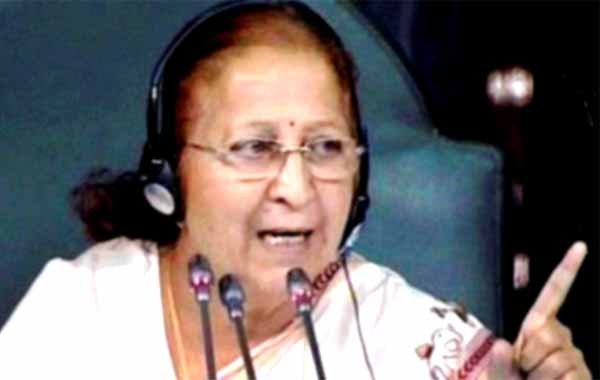
Mumbai, The BSE Sensex slumped on Thursday by 806.47 points to end negative at 35,169.16, as index heavyweight Reliance Industries and TCS, among others, were badly hit amidst sinking rupee and surging crude oil prices.
The Nifty of National Stock Exchange (NSE) also crashed by 259 points to 10,599.25.
The Sensex edged down by 155 points to 35,820.53 in the morning trade and remained negative throughout the day. Finally, it closed at 35,169.16, slipping by 806.47 points as compared to its last close.With today's crash, the Sensex has plummeted by 1,356 points in past couple of days.
The Nifty recorded day's high and low at 10,754.70 and 10,547.25 points, respectively.
Indian equity benchmarks extended recent slump as blue chip stocks came under heavy selling pressure. The sinking Indian currency and surging crude prices also put pressure on shares. As India imports a majority of its crude, a surge in crude raises concerns on fiscal deficit, inflation and gives lesser room for the government to boost growth through spending on infrastructure. A weak rupee raises the cost of importing crude oil.
The sectoral indices such as Energy, Oil & Gas, Telecom, Technology, Auto and Health Care dragged the market down, falling by more than 6 per cent.Scrips of Reliance Industries plunged by more than 7 pc, followed by HeroMoto Corp by 5.45 pc, TCS by 4.54 pc, Adani Ports by 4.17 pc and ONGC by 3.74 pc.
Shares of oil marketing companies fell by up to 13 per cent on Thursday on BSE, after Finance Minister Arun Jaitley announced that these companies will absorb excise duty by one rupee on petrol and diesel.
HPCL, BPCL and IOC tanked up to 13 per cent following the announcement.Another major stock, ICICI Bank, climbed over 4 per cent to Rs 316, after the bank's chief executive Chanda Kochhar resigned from the post with immediate effect.
The broader markets fell today, as the BSE Mid-Cap index and Small-Cap lost by 1.93 per cent and 2.07 pc, respectively.The market breadth was weaker on BSE, as 769 shares advanced against 1,897 declined and 136 were unchanged.
Negative global cues also spoiled sentiment. Investors were cautious ahead of the outcome of Reserve Bank of India's (RBI) three-day Monetary Policy Committee (MPC) meeting tomorrow.
The sectoral indices that were battered were Energy (by 6.66 pc), Oil & Gas (by 6.58 pc), Health Care (by 3.02 pc), Technology (by 2.97 pc) and Telecom (by 1.86 pc).
Major losers were Reliance Industries (by 7.66 pc), Hero MotoCorp (by 5.45 pc), HDFC Bank (by 4.01 pc) and Adani Ports & Special Economic Zone (by 3.97 pc).
IT major Tata Consultancy Services (TCS) fell 4.38 pc. Engineering and construction major, Larsen & Toubro, rose 1.09 pc on today's announcement that its wholly-owned subsidiary, L&T Hydrocarbon Engineering (LTHE), in consortium with Baker Hughes, a GE company, and McDermott International Inc. has been awarded the subsea contract for India's Oil & Natural Gas Corporation's (ONGC) largest deepwater oil and gas project, the development of block DWN-98/2 in the Krishna Godavari basin.
In the foreign exchange market, the rupee edged lower against the US dollar, with the partially-convertible currency hitting the record low of 73.815, compared with its previous close of 73.34.
All Chief Ministers On Test Now," Says Arun Jaitley, Cutting Fuel Price
MMNN:4 October 2018

NEW DELHI: Union minister Arun Jaitley today slashed skyrocketing fuel prices by Rs. 2.50 a litre and asked the state governments to match it to make a real difference to the consumers. In what was seen as a political challenge to the states ruled by opposition parties, the minister said while he would send a written appeal to the states, the decision would be theirs and the government will not interfere.
"This will be a test for all state governments, especially leaders who were only offering lip service earlier," Mr Jaitley pointedly remarked.
As fuel prices started spiraling earlier this year, opposition leaders have relentlessly criticized the government for failing to check it. Many demanded that instead of multiple taxes, petrol and diesel be brought under the ambit of the government's flagship Goods and Services Tax or GST.
As the prices started a steep climb again in September after a brief period of stabilization, more than 20 opposition parties lent support to a nationwide strike led by the Congress.
Announcing an oil duty cut of Rs. 1.50 and another Re 1 drop by oil marketing companies today, Mr Jaitley appealed to the states to reduce value-added tax or VAT by Rs. 2.50 so the total benefit to citizens is at least Rs. 5.
"I am sure the states will also start delivering immediately," the minister added.
Three BJP-ruled states, Gujarat, Maharashtra and Tripura, have already announced price cuts.
Thanking the Finance Minister, Maharashtra Chief Minister Devendra Fadnavis tweeted: "Maharashtra Government also decided to give additional relief of ?2.5/litre on Petrol to give total benefit of ?5/litre in the State of Maharashtra."
Arun Jaitley Asks State-Run Banks To Be Strict With Wilful Defaulters
MMNN:25 September 2018

NEW DELHI: Finance Minister Arun Jaitley Tuesday asked public sector banks to take "effective action" in cases of fraud and wilful loan defaults. Reviewing the performance of state-owned lenders, he exuded confidence that formalisation of the economy would help India achieve sustainable growth of 8 per cent. "FM, Shri @arunjaitley exhorted the banks to ensure all steps at their end to ensure clean lending & effective action in cases of fraud & wilful default, to justify the trust reposed in banks. Banks must strive to be seen always as institutions of clean & prudent lending," the Finance Ministry said in a tweet.
The meeting is taking place in the backdrop of the 'Alternative Mechanism' (AM) deciding to merge three public sector banks -- Bank of Baroda, Vijaya Bank and Dena Bank -- with a view to create a global-size lender which would be stronger and sustainable.
Banks have stepped up efforts as far as recovery of bad loans is concerned. Lenders have made recovery of Rs. 36,551 crore in the first quarter of the current fiscal. This is 49 per cent higher than the same quarter of last fiscal. During 2017-18, banks recovered Rs. 74,562 crore.
As per another tweet of the ministry, Jaitley said that formalisation of the Indian economy coupled with inclusive growth through massive financial inclusion has unlocked purchasing power which would drive India's growth. "This should help India sustain a growth rate of around 8 per cent," he was quoted as saying in the tweet. Jaitley, who also holds the portolio of Corporate Affairs, said that formalisation of the economy through the Insolvency and Bankruptcy Code (IBC), GST, demonetisation and digital payments have enabled better assessment of financial capacity and risks.
2 Years After Demonetisation, Some Hits And Many Misses: Report
MMNN:24 September 2018

India's shock move to ban high-denomination currency notes almost two years ago caused much hardship, with limited benefits.
As the dust settles on the demonetisation episode, the data show it didn't weed out black money or cash gained through illegal means, which was a key objective of Prime Minister Narendra Modi's plan. On the plus side, there's been some widening in the country's dismal tax base, an increase in digital payments and a drop in fake notes.
PM Modi invalidated 86 percent of India's currency in November 2016 in the hope that people who had stashed away illegal cash wouldn't be able to exchange it for new notes at banks. The return of 99.7 percent of the banned 500 rupee and 1,000 rupee notes -- the highest value currencies before demonetisation -- shows that didn't happen.
Here's a look at some of the few hits and many misses that followed the cash ban:
Economic Growth
The economy took a sharp knock from the cash crunch, with growth sliding to as low as 5.6 percent in the quarter through June 2017. More than 100 lives were lost in the panic to exchange old notes for new ones, millions of daily-wage earners lost their livelihood for several weeks, and thousands of small businesses were shut down, former Finance Minister P. Chidambaram said last month.
Another growth setback came last year when the government introduced a nationwide consumption tax, which was marred by glitches and disrupted business activity. Since then growth has bounced back to reach 8.2 percent last quarter, the fastest pace of any major economy.
Tax Revenue
India saw a whopping 27 percent increase in personal income tax collections in the year to March 2017, the biggest jump in the past decade, and a solid 21 percent gain in the past fiscal year. That's helped to underpin overall government revenue, but not enough to plug a budget shortfall as the government picks up spending in the lead up to an election due by May. The deficit target is 3.3 percent of gross domestic product for the current year, a goal that Finance Minister Arun Jaitley recently said will be met, given that revenue and asset sale targets are likely to be exceeded.
Part of the gain in tax income is due to the increase in new taxpayers that followed demonetisation. Government data shows 10.1 million new taxpayers were added to the system in the year through November 2017 compared with an average of 6.2 million in the preceding six years.
India still has a way to go though. While the number of taxpayers increased almost 30 percent to 82.7 million in the first three years of PM Modi's rule, as a proportion of the $2.6 trillion economy, that base remains low. Even after the introduction of the goods-and-services tax and sophisticated tools to nab tax evaders, India's tax-to-GDP ratio lingers around the levels seen a decade ago and is lower than the global average.
Black Money
Black money, the local term for income that escaped taxes or was earned illegally, was the buzzword in India's federal elections in 2014 and one of the key reasons PM Modi took the step to demonetise. Many Indians were initially convinced of the need for the cash ban, ignoring the inconvenience of waiting in long bank queues because they believed the billions of rupees stashed by corrupt or errant fellow Indians would be made worthless.
But that didn't happen. The income tax department found higher undisclosed income from fewer raids last year, indicating the government hasn't been able to put a lid on corruption and generation of black money.
Digital Payments
Another objective of demonetisation was to formalize an economy where more than 90 percent of payments were made in cash. Electronic transactions went up sharply in November 2016 since most people had no option but to use digital wallets, credit cards or debit cards. It has lost steam since then.
Cash remains the most popular form of tender in India. Currency with the public has increased to 18.5 trillion rupees in August from 17.9 trillion rupees before demonetisation.
Catching Duplicates
2 COMMENTS
No high quality counterfeit new currency notes have been seized by any agency post demonetisation, and those seized in the recent past are scanned or photocopied notes, the government told Parliament last month. The "short-term benefit" of the cash ban was the elimination of the existing stock of fake and counterfeit currency, it said.
SAIL Declines Dividend To Government Citing Cash Crunch
MMNN:31 August 2018

New Delhi: State-owned Steel Authority of India Ltd (SAIL) has declined a government call for a dividend this year, saying it did not have "any cash and bank balance" and that its debt-to-income ratio was much higher than agreed with some lenders, showed an internal company document reviewed by Reuters. SAIL's refusal could make it harder for the government to meet its budgeted target of raising Rs. 1.06 lakh crore ($14.95 billion) from the dividends and profit of state-owned companies this fiscal year ending March. Last fiscal year, the government received Rs. 123 crore, 13 per cent below the then target.
India's second-biggest steel firm by current production said it was due to pay out Rs. 2,171 crore including tax to the government based on its "net-worth" last fiscal year. "SAIL does not have any cash and bank balance and would need to borrow from the market for payment of dividend," SAIL said in an explanation sent to the government expressing its inability to pay the dividend.
"It is getting increasingly difficult to borrow further from the market in the current market conditions, especially for the steel sector, as the financial institutions and banks are reluctant to take further exposure on steel industry."
A SAIL spokesman told Reuters that the firm posted a loss in the 2017/18 fiscal year "so there is no chance of a dividend".
The Ministry of Finance did not respond to a request for comment.
The document also showed SAIL's net debt-to-earnings before interest, taxes, depreciation and amortization (EBITDA) ratio was 8.5, against the 1.5 to 3.75 "the company in financial covenants agreed to with some of the foreign lenders".
The firm has Rs. 3,220 crore debt due for repayment this fiscal year, which will have to be "met from borrowed funds".
"In the last three quarters, the company has been in profit and production is also ramping up although the loans do exist. But this year, the company will end up showing net profit in toto," the spokesman said.
Hike in fuel prices; petrol rise by 14 paise, diesel 15
MMNN:29 August 2018
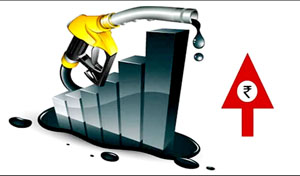
New Delhi, With no relief in sight for consumers, diesel recorded a hike of 15 paise while petrol prices went up by 14 paise on Tuesday.
In Delhi, petrol prices will now cost Rs 78.05 per litre, diesel Rs 69.91 per litre, according the Indian Oil Corporation data.
In Mumbai and Kolkata, petrol was at Rs 85.47 and Rs 80.98 respectively. In Chennai, it was priced at Rs 81.09.In Mumbai, Kolkata and Chennai, diesel was priced at Rs 73.90, Rs 72.46 and Rs 73.54 per litre respectively.
On May 29, petrol prices were at an all-time high. In Delhi, Kolkata, Mumbai and Chennai petrol was being sold at Rs 78.43, Rs 81.06, Rs 86.24 and Rs 81.43 per litre respectively.
The surge in fuel prices is largely attributed to the recent rise in crude oil price and the high excise duty levied on transportation fuel in the country.
Rupee Edges Higher, Still Below 70 Mark Against Dollar
MMNN:28 August 2018

The rupee rose mildly against the US dollar to close at 70.10 on Tuesday. That marked a recovery of 6 paise against the greenback, compared to the all-time closing low of 70.16 registered in the previous session. Selling of the US currency by exporters and banks amid fresh inflow of foreign funds supported the rupee, say analysts. Weakness in the dollar, which declined to its lowest level recorded in nearly a month against a group of six major currencies, also provided some support to the rupee.
The rupee had advanced to 70.02 at the day's highest point, but limited the upside by the end of the session.
The United States and Mexico agreed on Monday to overhaul the North American Free Trade Agreement (NAFTA). The trade deal pushed the dollar lower against a basket of major currencies as investors sought riskier assets and the greenback's safe-haven appeal declined.
"With the US reaching a bilateral agreement with Mexico, the dollar index has dropped from 96 to 94 levels. However, with Brent oil inching up to $75 / barrel, rupee will continue to be under pressure," Salil Datar, CEO and executive director, Essel Finance VKC Forex, told NDTV.
International crude oil prices rose towards their highest since July 11, thanks to evidence of still-modest increases in output from OPEC and improving Chinese refining demand. Brent crude oil futures were around $76.65 a barrel in recent trade.
Meanwhile, domestic stock markets continued their record-setting spree. BSE benchmark index gained 202 points to close at a record 38,896 while the NSE Nifty settled above the 11,700 mark for the first time. Continued inflows by institutional investors pushed the stock markets higher.
Foreign portfolio investors (FPIs) net purchased equities worth Rs. 252.52 crore while net buys by domestic institutional investors (DIIs) stood at Rs. 1,117.24 crore on Monday, according to provisional data from the NSE.
Analysts will closely watch the GDP growth data for the April-June quarter due on Friday.
"We expect Rs. 70/dollar now to be the new normal. With the GDP data expected this week, we expect rupee to range between Rs. 69.75-70.40," Mr Datar added.
Gold Demand Falls As Kerala Floods Hit Festival Buying
MMNN:25 August 2018

Mumbai/Bengaluru: Demand for physical gold was modest in India this week as the top bullion consuming state of Kerala coped with floods, while interest for the metal remained lacklustre elsewhere in Asia as buyers awaited a dip in prices. Gold demand usually sees a jump in Kerala during the festival of Onam, but this year, the southern state is reeling from some of the worst floods in a century, leaving thousands displaced and causing damage of at least Rs. 20,000 crore ($2.85 billion).
"Demand has taken a hit in Kerala. For the next few weeks, demand will remain sluggish there as people are focusing on building their damaged homes," said Harshad Ajmera, the proprietor of JJ Gold House, a wholesaler in the eastern Indian city of Kolkata.
Dealers in India were charging a premium of up to $1.25 an ounce over official domestic prices this week, compared to a premium of $1 the last week. The domestic price includes a 10 per cent import tax.
Local prices have risen more than 1 per cent in a week due to the depreciating rupee and that is prompting some jewellers to postpone purchases, said a Mumbai-based dealer with a private bank.
In the Indian market, gold futures were trading around Rs. 29,635 per 10 grams on Friday, after falling to Rs. 29,268 last week, the lowest level since Jan. 10.
Meanwhile, global benchmark spot gold prices hit $1,201.51 an ounce on Wednesday, its highest since August 13, and were set to register their first weekly gain in seven.
In top consumer China, premiums rose to $6-$8 an ounce this week from last week's $3 to $5, while premiums in Hong Kong were little changed at 90 cents-$1.40 versus 90 cents to $1.50 previously.
"When prices went down to $1,160-$1,170, people were happy to buy, but nobody wants to chase up on this ($1,200) level," said Ronald Leung, chief dealer at Lee Cheong Gold Dealers in Hong Kong.
Premiums in Singapore also remained largely unchanged at 80 cents to $1.50 an ounce compared with 90 cents-$1.50 last week.
"Demand in Singapore is slightly subdued right now... if the prices move down by $5-$10, I think we will see a lot of demand," said a Singapore-based banker, adding that there is a lot of demand around the $1,175 price level.
Japan premiums inched down to 75 cents-$1 an ounce versus $1 last week as higher prices muted demand, a Tokyo-based trader said.
Tata Sons Cannot Force Cyrus Mistry To Sell His Shares: Tribunal
MMNN:24 August 2018

New Delhi: In a partial relief to Cyrus Mistry, the National Company Law Appellate Tribunal (NCLAT) on Friday stated that Tata Sons cannot force him to sell his shares. However, the two-judge bench headed by Justice S.J. Mukhopadhyaya, declined Mistry's appeal to stay the conversion of Tata Sons into a private company. The court said it will decide on conversion of Tata Sons into a private company after the final hearing on September 24.
Further, NCLAT has admitted Mistry's appeal against his removal from the post of Tata Sons' Chairman in 2016. The appeal was against the order of the NCLT, Mumbai bench.
Larsen & Toubro Board Approves Rs. 9,000-Crore Share Buyback
MMNN:23 August 2018
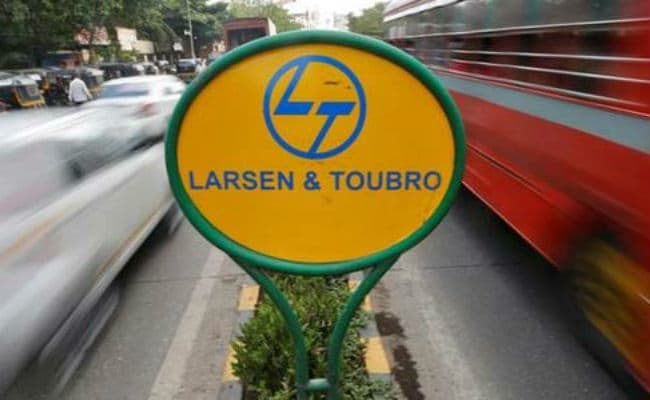
Infrastructure major Larsen & Toubro on Thursday said its board approved a share buyback worth Rs. 9,000 crore. The board of directors, in a meeting held on Thursday, approved a proposal to buy back up to six crore shares, amounting to 4.29 per cent of the total paid-up equity share capital, at a maximum price of Rs. 1,500, L&T said in a regulatory filing.
Larsen & Toubro said the share buyback is subject to approval of the members by means of a special resolution through a postal ballot. The process, timelines and other requisite details will be released in due course, it added.
Shares in Larsen & Toubro jumped nearly 3 per cent on Thursday, after the announcement of share buyback.
At 12:05 pm, L&T shares were trading 2.5 per cent higher at Rs. 1,355.65 apiece on the NSE, whose benchmark index Nifty was trading flat.
Tycoon Pallonji Mistry Tries To Unlock $17 Billion, In Battle With Tatas
MMNN:21 August 2018

Billionaire Pallonji Mistry has about 85 percent of his estimated $19.9 billion fortune locked up in a legal battle with India's largest conglomerate.
The conflict between Mistry and the Tata Group began with a boardroom coup in 2016, when the former's son was ousted as chairman of the latter. The 89-year-old Mistry is one of the largest shareholders in Tata Sons Ltd., which controls the $100 billion conglomerate, and his family has since filed numerous lawsuits against the holding company's board, alleging suppression of minority interests and governance lapses.
The courtroom battle has continued, most recently focused on a move by Tata Sons to restrict shareholders from freely selling their stake -- a change recognized by the government this month. Mistry, who derives an estimated $16.9 billion of his fortune from his 18.4 percent equity in Tata Sons, can no longer sell those holdings without the approval of a board his family has been fighting for two years.
Mistry's Shapoorji Pallonji group didn't reply to an email seeking comment. A Tata Sons spokesman declined to comment.
While Tata Sons has always been a closely held private entity, it was considered a public limited company due to its size under an old legal provision. That allowed investors greater flexibility in transferring their shares, according to Daizy Chawla, a New Delhi-based senior partner at law firm Singh & Associates.
The law was altered some years back, allowing Tata Sons's shareholders to approve a change to its legal status last year, overriding objections from Mistry's son.
"Being a private company there is now restriction on the free transfer of shares by its shareholder and the transfer needs to be done with the approval of the board of directors," Chawla said.
A New Delhi court last week heard arguments on a plea to put on hold government approval of Tata Sons's conversion. The dispute may eventually wend its way to India's top court since the losing party will have the right to appeal.
The discord has battered a relationship that goes back almost a century. A Mistry company had financial links with Tata Sons from as early as 1927, though the family only began acquiring equity from the 1960s onward. Over time, purchases from Tata family members and a rights issue grew their holding to the present 18.4 percent.
Mistry inherited the stake from his father, who built the Tata Group's automobile factories and steel mills. His Shapoorji Pallonji group, founded in 1865, is also responsible for some of financial capital Mumbai's most iconic structures including the Reserve Bank of India buildings and The Taj Mahal Palace hotel.
After earning a reputation for being reclusive, Mistry and his family were thrust into the spotlight in 2012, when his younger son was chosen to helm the Tata group. The bonhomie ended with his son's ouster in October 2016, which triggered one of India's worst corporate showdowns.
Still, it's the exposure to Tata companies that's helped bump up Pallonji Mistry's fortune by $2.5 billion this year as investors piled into Tata Consultancy Services Ltd., Asia's largest software services provider. Mistry ranks 44th on the Bloomberg Billionaires Index and is among the richest men living in India.
Article 75
Another point of contention that's emerged as the Tata-Mistry relationship soured is article 75 of Tata Sons's articles of association, which the board can use to force a shareholder to sell out. This provision is also being contested in court.
Combined with the decision to go private, the restriction puts Mistry in a tight spot. On the one hand, he can be forced to sell his stake while, on the other, he needs Tata Sons to sign off on a suitor he picks.
"Tata Sons can choose to preempt any stake sale by enforcing article 75 in its articles of association and forcing an existing shareholder to sell out," said Sudip Mahapatra, a partner at law firm S&R Associates. "That's what's putting the Mistry family on a weak footing."
Sensex, Nifty Close At Record Highs; Larsen & Toubro Gains Nearly 7%
MMNN:20 August 2018

Stock markets scaled fresh record closing highs on Monday. BSE benchmark index Sensex gained 330 points to close at a record 38,278, and the NSE Nifty settled 81 points higher at 11,551. Advances in metal, infrastructure and auto stocks pushed the markets higher while gains in other Asian markets also supported the sentiment. Top gainers on the 50-scrip index were Larsen & Toubro, Tata Motors, ONGC, Tata Steel and Hindalco, closing with gains of between 3 per cent and 6.7 per cent.
Sentiment picked up across Asia as investors awaited developments on proposed Sino-US trade talks and the yuan rallied from alarming lows. Investors were also encouraged by news China and the US will hold lower-level trade talks this month, offering hopes of resolving an escalating tariff war.
"Both the major economics, US and China, have agreed to talk and resolve trade war issue and markets across the globe including ours gave thumbs up to this development. At the same time, earnings season went off well on local front which subsided worry related to currency depreciation to some extent," said Jayant Manglik, President, Religare Broking.
Construction major L&T rose 6.7 per cent in its biggest daily percentage gain in over two years. It said on Saturday that the board will consider a proposal for a share buyback later this week. The Nifty infrastructure index settled 2.8 per cent higher, driven by L&T.
Infosys CFO MD Ranganath Resigns To Pursue Professional Aspirations
MMNN:18 August 2018

Infosys Ltd announced that the board at it's meeting on Saturday accepted the resignation of M D Ranganath, as the Chief Financial Officer (CFO) and key Managerial Personnel of the company. Ranganath will continue in his current position as Chief Financial Officer till November 16, 2018. The board will immediately commence the search for the next Chief Financial Officer, said a press release issued by the company. Ranganath had been appointed as the CFO of India's second-biggest software services exporter in 2015, a press release issued by the company said.
During his long tenure of 18 years in Infosys, Mr Ranganath has been a part of the Infosys Leadership team and has played several leadership roles in the areas of consulting, finance, strategy, risk management and M&A and has worked closely with the board and its committees in formulating and executing strategic priorities for the company, said Infosys.
In tendering his resignation, Ranganath stated that, "After a successful career spanning 18 years in Infosys including as CFO for the last 3 crucial years, I now plan to pursue professional opportunities in new areas"
On his resignation, Salil Parekh, Chief Executive Officer said, "Ranganath and I have worked closely over the past few quarters in shaping the strategic direction of the company. I admire his strong financial acumen, deep understanding of the company's business and ability to deliver consistent results. He played a crucial role as the CFO and provided strong leadership for the company. I am confident that over the next few months Ranganath will ensure a smooth transition. I thank him for his lasting contribution and wish him all the best."
Rupee Hits Fresh Record Low Of 70.32 Against US Dollar: 10 Points
MMNN:16 August 2018

The rupee hit a fresh record low of 70.32 against the US dollar in early trade on Thursday. Experts believe that the rupee is unlikely to recover soon. Asia's currencies also remained under pressure, with the dollar holding near 13-month peaks as political turmoil in Turkey and concerns about China's economic health continued to support safe-haven assets. However, the government said on Wednesday that the foreign exchange reserves are comfortable by global standards and can combat any undue volatility in the rupee.
Here are 10 things you should know about rupee's trade today:
The rupee opened at a record low of 70.25 a dollar and weakened further to trade at a fresh low of 70.32, down by 43 paise, reported news agency Press Trust of India (PTI). At 9:13 am, the rupee was trading at 70.25/26 per dollar, versus its Tuesday's close of 69.90/91. Markets were closed on Wednesday for a national holiday, reported news agency Reuters.
Experts attributed the fall in rupee to the trade deficit hitting a 5-year high. "The trade deficit is the major trigger for today's fall in the rupee. Even though the Turkish lira has recovered, the dollar index continues to move higher. The rupee will recover when global market stabilizes. I think, the rupee will remain under pressure in the next few sessions," said Rushabh Maru, Research Analyst, Anand Rathi Share and Stock Brokers.
The trade deficit for July widened to a more than five year high of $18.02 billion, driven largely by a surge in oil imports.
Even if the rupee appreciates, the appreciation would not sustain for long due to global uncertainty, Mr Maru added.
PTI reported forex dealers as saying that besides strong demand for the American currency from importers, capital outflows mainly weighed on the domestic currency.
Furthermore, depreciation of the Turkish lira against the dollar after the US imposed tariffs on steel and aluminium imports also put pressure on the Indian rupee, they added.
On Wednesday, Union Minister Arun Jaitley said, "Recent developments relating to Turkey have generated global risk aversion towards emerging market currencies and the strengthening of the dollar. However, India's macro fundamentals remain resilient and strong. The developments are being monitored closely to address any situation that may arise in the context of the unsettled international environment."
On Tuesday, the rupee settled at 69.90 against the greenback, after weakening to a fresh all-time low of 71.10.
Meanwhile, oil prices recouped some of the previous day's losses after Beijing said it would send a delegation to Washington to try to resolve trade disputes between the United States and China that have roiled global markets. International Brent crude oil futures were at $70.93 per barrel at 0335 GMT or 9:05 am IST, up 17 cents, or 0.26 percent, from their last close, reported Reuters.
Since a weaker rupee is positive for IT companies, tech stocks traded higher. The Nifty IT index traded 0.29 per cent higher as seven out of 10 stocks advanced. At 9:52 am, the Sensex traded at 37,778.08, down 73.92 points or 0.20 per cent and the Nifty50 was at 11,415.90, down 19.20 points or 0.17 per cent.
Gold Prices Fall For Second Straight Day: 5 Things To Know
MMNN:14 August 2018

Gold prices fell for second straight day on Tuesday even as global prices of the yellow metal recovered from 17-month lows hit on Monday. Safe haven buying did not help lift gold prices, said experts. Strength in the dollar led to weakness in the rupee which hit an all-time low of 70.09 against the US dollar. There was a lot of economic turmoil after the Turkish lira hit a record low against the US dollar on Monday. Investors traditionally use gold as a means of preserving the value of their assets during times of political and economic uncertainty and inflation, but it has this year failed to benefit, according to a report by news agency Reuters. Silver too plunged by Rs. 335 to Rs. 38,715 per kg due to poor offtake by industrial units and coin makers.
Here are five things you should know about gold, silver trade today:
Gold eased by Rs. 30 to Rs. 30,630 per 10 gram, driven by a subdued global trend amid tepid demand from local jewellers, stated news agency Press Trust of India.
"Safe haven buying did not help gold at all as the metal fell to 17-month lows yesterday, following strength in US Treasuries and a stronger dollar as investors eyed a financial market rout triggered by a crashing Turkish lira. Today even as the domestic currency recovered from all-time low, prices of the yellow metal stayed weak," Jigar Trivedi, Fundamental Research Analyst - Anand Rathi Commodities. Furthermore, sluggish demand from local jewellers and retailers at domestic spot market fuelled the downtrend in gold rates, said market men.
In the national capital, gold of 99.9 per cent and 99.5 per cent purity fell by Rs. 30 each to Rs. 30,630 and Rs. 30,480 per 10 gram, respectively. The precious metal had lost Rs. 40 in Monday's trade.
Silver ready dropped by Rs. 335 to Rs. 38,715 per kg and weekly-based delivery by Rs. 310 to Rs. 37,740 per kg. On the other hand, silver coins held steady at Rs. 73,000 for buying and Rs. 74,000 for selling of 100 pieces.
In global markets, spot gold was up 0.2 per cent at $1,195.77 an ounce, as of 0341 GMT (9:11 am IST). US gold futures were up 0.3 per cent at $1,202 per ounce
Sensex Closes 224 Points Lower As Markets Extend Losses To Second Day
MMNN:13 August 2018

Domestic stock markets started the week on a lower note, with the BSE Sensex closing 224 points down amid weakness in banking and financial services equities. The 30-scrip BSE benchmark index settled at 37,644 while the NSE Nifty ended 73 points lower at 11,355, ahead of release of consumer inflation data due later in the day. Gains in IT and pharma shares provided some support and limited the downside in the key indices. Top laggards on the Nifty 50 were BPCL, HPCL, Yes Bank, Vedanta, and IOC, closing with losses of between 3 per cent and 6 per cent.
The Nifty Bank and the Nifty Financial Service - the NSE's sectoral indices comprising banking and financial services stocks - fell 1.2 per cent and 1.4 per cent respectively. SBI, Bank of Baroda and Punjab National Bank shares fell 1-3 per cent. Private sector peers ICICI Bank, HDFC Bank, HDFC, Axis Bank, Yes Bank and Indiabulls Housing Finance finished between 0.8 per cent and 3.6 per cent lower.
"We feel any decline due to external factors would be short-lived... it's healthy to have such corrective phase as it eliminates weak hands. However, it also causes trouble to traders as stock selection and position management become difficult," said Jayant Manglik, president, Religare Broking.
On the other hand, IT stocks kept the fall in check, with HCL Tech, Tech Mahindra, Infosys and Mindtree rising 1.6-3.6 per cent. The Nifty IT index closed 1.4 per cent higher. TCS and Wipro advanced 0.3 per cent and 1.1 per cent respectively.
Pharma stocks also rose, led by up to 2 per cent gains in heavyweights Sun Pharma and Cipla. That provided some more support to the markets.
Shares in other Asian markets dipped, as risk aversion following the sharp drop in the Turkish lira drove demand for safer asset classes. The rupee hit an all-time low of 69.62 against the US dollar on broader weakness in other emerging market currencies following the Turkish rout spill-over. The MSCI world equity index, which tracks shares in 47 countries, was down 0.5 per cent on Monday.
Mr Manglik suggests monitoring global developments along with the ongoing earnings season closely for market direction.
Analysts will closely watch inflation data due for release at 5:30 pm. A Reuters poll estimates July inflation of 4.51 per cent compared with a five-month high of 5.0 per cent hit in the previous month.
Meanwhile, foreign portfolio investors (FPIs) sold shares worth Rs. 510.66 crore while domestic institutional investors (DIIs) purchased equities worth Rs. 457.83 crore on a net basis last Friday, provisional data from the NSE showed.
Petrol, Diesel Prices Hiked For Third Straight Day: Check Fuel Rates Here
MMNN:4 August 2018

Oil Marketing Companies (OMCs) raised the prices of petrol and diesel across the nation for the third straight day on Saturday. According to the rate chart of IOC (Indian Oil Corporation), petrol is now being sold at Rs.76.70 per litre in Delhi and Rs. 84.14 per litre in Mumbai. Petrol prices in Kolkata and Chennai are at Rs. 79.62 per litre and Rs. 79.68 per litre respectively. Diesel can be purchased today at Rs. 68.20 per litre in Delhi. Diesel prices stand at Rs. 72.40 per litre in Mumbai, Rs. 70.98 per litre in Kolkata and Rs. 72.03 per litre in Chennai, as stated by IOC, the nation's largest fuel retailer.
The above listed rates are applicable from 6 am on August 4, 2018. State-run oil marketing companies Indian Oil, Bharat Petroleum and Hindustan Petroleum revise fuel prices with effect from 6 am on a daily basis. Government allowed revision of fuel rates on a daily basis since mid-June last year to reflect changes in costs instantly.
On Friday, petrol was sold at the rate of Rs. 76.50 per litre in Delhi, Rs. 79.42 per litre in Kolkata, Rs. 83.94 per litre in Mumbai, and Rs. 79.48 per litre in Chennai. Diesel was sold at the rate of Rs. 68.02 per litre in Delhi, Rs. 70.80 per litre in Kolkata, Rs. 72.21 per litre in Mumbai, and Rs. 71.86 per litre in Chennai.
On global front, oil prices went down on Friday amid rising supplies from countries including Russia and Saudi Arabia. Russia and key OPEC (Organization of the Petroleum Exporting Countries) members such as Saudi Arabia and Kuwait have all increased production recently, trying to help compensate for a potential decline in Iranian crude supplies once planned US sanctions take effect later this year, news agency IANS reported.
China's proposed tariffs on US liquefied natural gas and crudeoil exports opens a new front in the trade war between the two countries, at a time when the White House is trumpeting growing US energy export prowess.
China included LNG for the first time in its list of proposed tariffs on Friday, the same day that its biggest US crude oil buyer, Sinopec, suspended U.S. crude oil imports due to the dispute, according to a Reuters report.
Rupee Hits Fresh 1-Week Low Against US Dollar: 5 Developments So Far?
MMNN:3 August 2018

The fresh fall in Indian rupee is due to the increased demand for the American currency from importers amid sustained foreign capital outflows.
Here are 5 major developments:
The Indian currency weakened for second straight say today. However, a higher opening of the domestic equity market, capped the rupee's losses today, said forex dealers. Domestic share markets opened on a positive note on Friday, the last trading day of the week. The benchmark Sensex opened at 37,327.16 while the Nifty50 index opened at 11,297.80. Strong global cues lifted the domestic equity indices.
On Thursday, the rupee had dropped by 27 paise to close at a one-week low of 68.70 against the US dollar.
On global front, oil prices were steady on Friday, supported by traders placing new hedges in the futures market in anticipation of a decline in U.S. crude inventories, but held back from advancing by the prospect of rising global supplies, said news agency Reuters.
In foreign exchange, the dollar index against a basket of six major currencies extended its overnight gains and rose to a two-week high of 95.211 before easing slightly to 95.131.
Foreign portfolio investors (FPIs) sold shares worth a net of Rs. 639.87 crore, while domestic institutional investors (DIIs) sold shares worth a net of Rs. 340.30 crore on Thursday, provisional data showed.
Rate Hike A "Non-Event" For Markets, All Eyes On 2019 Election: Experts?
MMNN:2 August 2018

The morning after the day before and equity strategists remain split on whether the world-beating rally in domestic stocks will continue or pause for breath after Wednesday's rate hike.
All seem to agree that the big focus for investors now is next year's election.
"Investors will forget the rate hike and refocus on individual companies and their outlook," said Kishor Ostwal, managing director at CNI Research Ltd. in a telephone interview. "The fate of general elections next year will be the focus of attention."
Domestic stocks will surge to a new high as most investors are short and this quarters' earnings are better than expected on aggregate, according to Ostwal.
The central bank raised interest rates to the highest in two years to tackle inflation pressures in the world's fastest-growing major economy and shore up the rupee if a global currency war breaks out. Reserve Bank of India Governor Urjit Patel hinted at possibly more tightening to maintain economic stability amid growing risks from global trade and currency tensions.
The benchmark S&P BSE Sensex Index slipped 0.2 per cent Wednesday after the hike. Still, the gauge has advanced 10 per cent this year, holding its place as Asia Pacific's best performing market and becoming the world's best major stock market in local currency terms.
While Abhimanyu Sofat, vice president at India Infoline Ltd. also sees further gains, he expects a "churning" in terms of market leadership. A selection of banks and industrial stocks, such as Reliance Industries Ltd., is likely to lead to new highs, he said.
"Investors are likely to forget this hike soon as earnings growth is improving led not only by consumer but now industrials as well," he said.
Still, other market participants suggest the rally is now due for a pause, with extended valuations causing investors to become more cautious. And coming back on to the investment radar is politics.
"We may see some consolidation coming in as we are getting closer to an election cycle," said Soumen Chatterjee, head of research at Guiness Securities Ltd. "Markets can take this policy decision as non-event."
The federal election due by next year will determine whether Prime Minister Narendra Modi extends business-friendly policies he put in place after the 2014 vote, when his party won the largest majority in three decades. While economic growth initially surged after his victory, it took a hit after he banned 86 per cent of the country's currency in a bid to stamp out unaccounted wealth in 2016, and has only recently recovered.
With his popularity receding, polls show that PM Modi's ruling Bharatiya Janata Party may fall short of a full majority.
"Elections brings uncertainty and that is something which markets generally don't like," said Guiness's Chatterjee.
RBI Retains Policy Stance At 'Neutral', Surprises Economists?
MMNN:1 August 2018
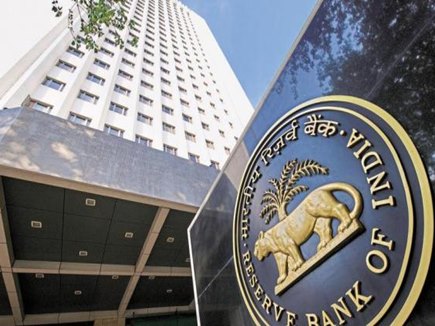
Bengaluru: The Reserve Bank of India on Wednesday raised interest rates for the second straight meeting, but retained its "neutral" stance as it aimed to contain inflation while not choking growth. The RBI's monetary policy committee raised the repo rate by 25 basis points to 6.50 per cent, in line with predictions by 37 of 63 economists in a Reuters poll last week. Five of the six members on the rate panel voted for a rate increase. The reverse repo rate was also raised by 25 basis points, to 6.25 per cent.
Here's what experts say:
ANAGHA DEODHAR, ECONOMIST, ICICI SECURITIES
"The hike was expected, but what is surprising is the stance has remained "neutral". We were expecting that since this is the second consecutive hike in two policies, the stance would be changed to "tightening".
They have not quantified the impact of MSP (minimum support prices) on inflation, or when MSP will start affecting inflation - whether it will be in October or earlier than that. I would have liked to see some clarity on that.
We are expecting at least one more hike this financial year.
I don't think rupee will be a key factor in the Reserve Bank of India's rate decision because they have repeatedly said they do not target any specific value of rupee - they just want to curb volatility.
The high-frequency indicators show that growth has been pretty good - we expect Q1 growth to be between 7.6 per cent and 7.7 per cent. With the implementation of MSP hike, I expect H2 inflation will be higher than the initial forecast."
SHASHANK MENDIRATTA, INDIA ECONOMIST, ANZ BANK
"The tone of policy seems slightly on the hawkish side despite RBI tinkering only marginally with its second-half inflation projection. The RBI continues to reiterate long-standing risks to inflation and in particular oil prices remain a key risk.
HRA revision by the state government is another item on the RBI's radar. Another factor is MSP. A part of the MSP increase has already been incorporated by the RBI in June inflation projection, and the marginal increase in inflation projection this time is due to higher than historical revision in MSP.
The rupee will remain under pressure due to worsening domestic fundamentals and capital outflows.
The case for another hike is not off the table, there could be one in October."
KUNAL SHAH, SENIOR VP & FUND MANAGER, KOTAK MAHINDRA LIFE INSURANCE
"The tone of policy statement is broadly neutral. I think what they have delivered is somewhat concluding the expected increase in inflation rather than the realised inflation because realised inflation has been running lower than forecast. So, maybe some expectation of MSP (minimum support price)-related increase in inflation, and they want to pre-emptively be cautious and deliver a rate hike, and that is what I think the market is expecting.
"Inflation continues to remain under control. Even today, the Reserve Bank of India has not revised its inflation forecast... I think even the RBI is comfortable with the projected inflation, but they are not comfortable with the unexpected rise in inflation... so they just gave a pre-emptive hike, otherwise they could have increased their inflation projections, which they have not done."
DHANANJAY SINHA, HEAD OF INSTITUTIONAL RESEARCH, EMKAY GLOBAL FINANCIAL SERVICES
"We were expecting rate hikes to happen, and the Reserve Bank of India seems to have taken a positive view on the growth momentum. I think the rate hike decision is fairly justified based on the assessment of various factors which influence inflation.
Also, we seem to be clearly following the core inflation trend which is on the rising side... which is good. The increase in commodity prices, the rupee depreciation, higher rural spending would all affect inflation.
The rupee depreciation has implications on inflation and liquidity in the money markets. However, right now, its impact on liquidity is larger and more relevant in terms of monetary policy decisions."
LAKSHMI IYER, CIO (DEBT) & HEAD-PRODUCTS, KOTAK MF
"Policy stance remains neutral despite the rate hike. We maintain this... is a shallow rate hike regime and no great reason at this juncture for back-to-back rate hikes.
"The rupee would be vulnerable to developments on the global trade war front. Emerging market currencies are in general trending on the softer side, and hence, India may not be an exception. Hike in rates should provide near term support to INR given the massive depreciation year-to-date in 2018.
"Next few readings on CPI likely to be on the lower side. Given vulnerable commodity prices, we don't expect major negative surprises on the inflation front. The current growth momentum too, we believe, can be maintained."
Idea Cellular Surprises Analysts With Profit Of Rs. 257 Crore In April-June?
MMNN:30 July 2018

Idea Cellular reported a surprise quarterly profit on Monday, helped by a one-time gain from the sale of its telecom towers.
Net profit came in at Rs. 257 crore ($37.43 million) for the quarter ended June 30, compared with a net loss of Rs. 815 crore last year, Idea said in a statement.
Analysts, on average, were expecting a net loss of Rs. 1,371 crore, according to estimates by Thomson Reuters.
Revenue from operations fell about 28 per cent to Rs. 5,889 crore, with the mobile carrier hit by an aggressive pricing war set in motion by the entry of deep-pocketed rival Reliance Jio.
Idea Cellular shares closed 3.6 per cent higher at Rs. 58.40 apiece on the NSE, ahead of release of the earnings.
Reliance Industries Reports Record Profit Of Rs. 9,459 Crore In April-June?
MMNN:28 July 2018
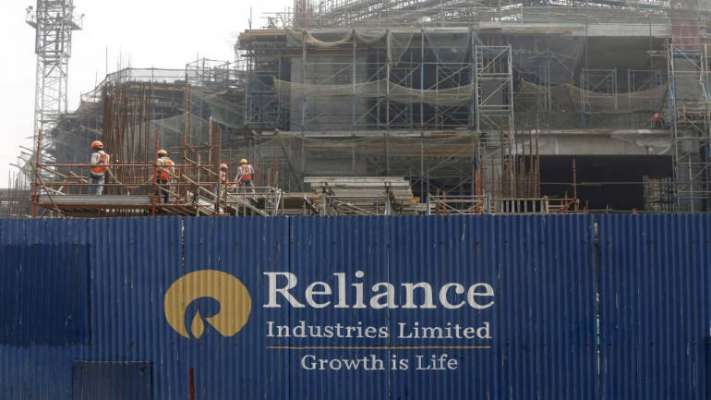
Reliance Industries on Friday reported a record net profit of Rs. 9,459 crore for the April-June period. The energy conglomerate had registered a net profit of Rs. 9,108 crore for the quarter ended June 2017, which included exceptional items worth Rs. 1,087 crore representing profit from divestment of stake in Gulf Africa Petroleum Corporation. Revenue for the three-month period ended June 30, 2018 stood at Rs. 1.41 lakh crore, 56.5 per cent higher compared with Rs. 90,537 crore in the year-ago period.
"We continue to focus on strong delivery through operational excellence in our portfolio of businesses. Financial results of 1Q FY19 underscore the strength of the petrochemicals we have reinforced over the last investment cycle. Our petrochemicals business generated record EBITDA with strong volumes and an upswing in polyester chain margins," said chairman and managing director Mukesh Ambani.
"Refining business performance remained steady despite the seasonal weakness in cracks. Continuing strength in global demand for oil products and implementation of more stringent environmental norms for marine fuels augurs well for our refining business," he said.
On a standalone basis, Reliance Industries' profit - which includes the Indian oil-to-retail conglomerate's refining, petrochemicals and oil and gas exploration and production businesses - was Rs. 8,820 crore versus Rs. 8,196 crore a year ago. The standalone number excludes retail and telecom operations. That compared with an average estimate of Rs. 8,643 crore from 10 analysts, according to Thomson Reuters.
Reliance Jio Infocomm, the telecom arm of Reliance Industries, posted a third straight quarterly net profit, as its cut-price plans continued to bring in more customers. Reliance Jio, which provides telecom services under brand Jio, posted a profit of Rs. 612 crore ($89.15 million) in the quarter ended June 30, versus Rs. 510 crore in the previous quarter. (Also read: Reliance Jio doubles customer base in 12 months, says Mukesh Ambani)
On performance of Reliance Jio, Mr Ambani said: "215 million customers within 22 months of start is a record that no technology company has been able to achieve anywhere in the world."
Shares in Reliance Industries ended 1.6 per cent higher at Rs. 1,128 on the NSE, ahead of the earnings announcement by the company.
Vodafone Idea Gets Final Government Approval: Report?
MMNN:26 July 2018

Department of Telecom has given final approval to Vodafone, Idea Cellular merger, news agency Press Trust of India reported citing government sources. At 3:15 pm, Idea Cellular shares were trading 4 per cent higher at Rs. 57.20 on the BSE, whose benchmark index was up 140 points at 36,998.
The combination will create India's largest mobile-phone company and help the firms compete with billionaire Mukesh Ambani's Reliance Jio Infocomm Ltd., which upended the world's second-largest mobile-phone market by offering free calls and cheap data. Idea has reported losses every quarter since Jio started services in September 2016.
The merger, announced in March 2017, will topple current market leader Bharti Airtel Ltd. and create a behemoth with 438.8 million subscribers.
HDFC AMC IPO Opens: Should You Subscribe?
MMNN:25 July 2018

The IPO or initial public offer of HDFC Asset Management Company (AMC) opened for subscription on Wednesday. It is the most profitable AMC and the second largest in terms of assets under management (AUM) with a 14 per cent market share. By 4:00 pm, the 1.88 crore issue had received 1.77 crore bids. That meant a subscription of 0.94 times for HDFC AMC IPO, according to data from the National Stock Exchange or NSE. The price band of HDFC AMC IPO - worth an estimated estimated Rs. 2,787-2,800 crore - has been set at Rs. 1,095-Rs. 1,100.
HDFC Asset Management Co (HDFC AMC) is the asset management arm of the HDFC Ltd (Promoter) and was established in 1999. In 2001, Standard Life Investments acquired 26 per cent stake in HDFC AMC. As on March 2018, it managed an AUM of Rs. 2,91,985 crore out of which 51 per cent was equity AUM.
But should you subscribe to HDFC AMC IPO?
NDTV.com here brings to you what top brokerages say on HDFC AMC IPO:
Emkay Global said that HDFC AMC has maintained its market leadership in equity AUM (15.8 per cent share) and retail AUM (13.7 per cent share). Healthy traction from individual investors ensures consistency and lower volatility in AUM growth, it added. HDFC AMC has been generating stable returns for the past several years with the least capital requirement, which in turn has resulted in best-in-class return on equity.
However, any adverse impact on inflows, both for equity as well as debt funds, may impact overall revenues as well as profitability of the company, Emkay Global said.
According to Angel Broking, HDFC AMC is the most profitable AMC among top five AMCs. For FY18, HDFC AMC had reported profit after tax/average assets under management of 0.26 per cent, whereas the other top five players had reported the same in the range of 0.21-0.14 per cent, the brokerage noted.
Angel Broking gave a 'subscribe' call to HDFC AMC IPO citing huge potential for mutual fund industry's growth, strong return ratios, asset light business, higher dividend payout ratio and track record of superior investment performance of the company.
HDFC AMC also has strong brand recall value among customers, which can be attributed, in part, to the strength of its brand and strong parentage, said HDFC Securities. With an individual investor focused strategy, HDFC AMC has a customer base with a greater proportion of individual AUM in comparison to the country's mutual fund industry.
However, if investment products underperform, HDFC AMC's AUM could decline and adversely affect the revenues, reputation and brand. Historical growth rates may not be indicative of future growth and if it does not manage growth effectively, its financial performance could be adversely affected, the brokerage said. If techniques for managing risk are ineffective, HDFC AMC may be exposed to material unanticipated losses
Gold Extends Losses For Second Straight Day; Check Prices Here
MMNN:24 July 2018

Gold prices softened for the second straight day on Tuesday amid a weak global trend but silver rates rose on scattered enquiries from industrial units and coin makers. Experts hoped that gold prices would recover due to manufacturing PMI data of the US, which is scheduled to be released later in the day. "With manufacturing PMI data of the US predicted to come slightly weak in the evening, gold prices can recover some lost ground of the past few days," said Jateen Trivedi, Research Analyst, Bonanza Portfolio.
Here are five things to know about gold prices and silver rates today:
1. Ten grams of gold was sold in Delhi for Rs. 30,840. In the national capital, gold of 99.9 and 99.5 per cent purity fell by Rs. 50 each to Rs. 30,840 and Rs. 30,690 per ten gram, respectively, according to a report by news agency Press Trust of India.
2. Fall in demand from local jewellers and retailers at the domestic spot markets weighed on gold prices, said market men. Investor sentiment remained bearish on the back of weak global cues where gold prices edged lower on a firmer dollar and US Treasury yields rose on expectations of rate hikes by Federal Reserve.
3. Globally, gold fell 0.27 per cent to $1,220.70 an ounce and silver by 0.10 per cent to $15.32 an ounce in Singapore.
4. Global gold prices have shed more than 10 per cent since touching a peak of $1,365.23 in mid-April, largely hit by a stronger dollar amid US interest rate hikes. Last week it hit a one-year low. "Gold is likely to see a sideways trend in coming weeks, trying to find a bottom," said Carsten Fritsch, commodity analyst at Commerzbank in Frankfurt, according to a report by news agency Reuters.
5. Silver ready, however, inched up by Rs. 5 to Rs. 39,325 per kg and weekly-based delivery by Rs. 20 to Rs. 38,390 per kg. Silver coins held steady Rs. 74,000 for buying and Rs. 75,000 for selling of 100 pieces
Sensex Hits Record Close Of 36,718, Nifty Ends At 6-Month High
MMNN:23 July 2018

Domestic share markets started the week on a strong note, with the BSE Sensex posting a fresh all-time closing high. The BSE benchmark index Sensex gained 222 points, or 0.61 per cent, to settle at 36,718 while the NSE Nifty ended at 11,084, up 74 points or 0.68 per cent - its highest close since January 29. During the session, the Sensex registered a fresh all-time high of 36,749, surpassing the last all-time intraday high of 36,747 recorded on July 18. Consumer stocks such as heavyweight ITC led the gains, days after the GST Council reduced tax rates on several items while keeping the cess on cigarettes unchanged. Other top gainers on the 50-scrip index were UPL, Vedanta, Bajaj Finserv and Adani Ports, finishing the session with gains between 3.6 per cent and 15.5 per cent. Hindustan Unilever closed 1.9 per cent higher.
Here are 10 things to know about Monday's trading session:
The latest move by the GST Council will lead to lower taxes on more than 100 items, such as paints, leather goods, televisions, washing machines, refrigerators. The revised tax rates will come into effect from July 27. The relief for consumers in the form of lower taxes under GST supported investor sentiment, say analysts.
The Nifty FMCG index, the NSE's sectoral index comprising consumer goods stocks, rose 2.5 per cent. Besides ITC and HUL, Godrej Industries, Tata Global, Emami and Britannia finished the day with gains of around 1-2 per cent each. Asian Paints and Akzo Nobel finished 2.7 and 1.5 per cent higher respectively. The GST Council moved paints and varnishes from the 28 per cent tax slab to 18 per cent.
AK Prabhakar, head of research at IDBI Capital, attributed the advances in the markets to the winning of no-confidence motion by the government and the latest action by the GST Council.
The government won the no-confidence vote in Parliament on Friday.
"The winning of no-confidence motion gives the government a very good grip on its chances in 2019 and takes out uncertainty," he said.
Footwear retailer Bata India last Friday reported a 37 per cent year-on-year rise in net profit to Rs. 82.6 crore over sales of Rs. 797.3 crore for the April-June period. The company, however, said the results were not comparable to the previous period because of introduction of GST from July 2017. Bata India shares ended around 7.5 per cent higher on Monday.
Bank of Baroda rose 5 per cent, PNB 4 per cent, Carara Bank 3.8 per cent, leading the pack of state-run banking stocks on the NSE. SBI rose nearly 2 per cent.
Other prominent gainers included metal stocks. Vedanta, Hindustan Copper, Tata Steel and Jindal Steel - surging between 2 per cent and 4 per cent each - pushed the Nifty Metal index 1.5 higher.
UPL gained after the agrochemicals company said on Friday that it would buy a unit of Platform Specialty Products, Arysta LifeScience, for $4.2 billion.
Meanwhile, foreign portfolio investors (FPIs) net purchased shares worth Rs. 310.27 crore while domestic institutional investors net sold equities to the tune of Rs. 50.73 crore on Friday, according to provisional data from the NSE
Wipro Posts Rs. 2,121 Crore Profit In Q1, Beats Analysts' Estimates
MMNN:20 July 2018

Country's third-largest software services exporter Wipro Ltd reported a two per cent rise in first-quarter net profit on Friday, beating estimates, helped by higher revenue from its Banking, Financial Services and Insurance business (BFSI). Net profit for the three months to June 30 rose to Rs. 2,121 crore ($307.55 million) from Rs. 2,077 crore a year earlier, the Bengaluru-headquartered said in a statement on Friday.
That topped the Rs. 1,952 crore profit expected by analysts, Thomson Reuters data showed.
Revenue from IT services grew by about 5 per cent to Rs. 13,700 crore while the BFSI business grew 17.5 per cent to Rs. 4,110 crore.
Wipro shares finished with a loss of 1.5 per cent on the NSE and 0.8 per cent on the BSE.
Wipro said it expected IT services revenue to grow 0.3-2.3 per cent quarter on quarter for the three months to September 30. IT services revenue is expected to rise to between $2.01 billion and $2.05 billion, it said, excluding the impact of its divestment of its hosted data centre services business.
"We have seen a pick-up in spending in the developed markets, particularly in North America and BFSI," said Chief Executive Officer Abidali Z Neemuchwala.
Meanwhile, Wipro also said it would buy US-based Alight Solutions' India operations for $117 million in cash. The IT major said it would buy Alight HR Services India Pvt Ltd, which is Alight Solutions' captive operations in India. The deal is expected to be completed in the quarter ending September.
India's $154 billion software services industry, led by Tata Consultancy Services and Infosys Ltd, faces tighter margins in legacy businesses such as routine infrastructure maintenance as clients increasingly demand more work for less money.
Still, Tata Consultancy Services this month posted a record profit helped by a rebound in its financial services business.
Infosys reported a rise in net income but missed estimates.
New 100 Rupee Note To Be Issued Shortly. Here's What It Looks Like
MMNN:19 July 2018
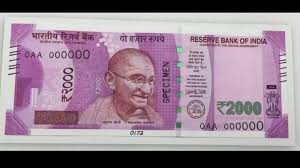
The Reserve Bank of India (RBI) on Thursday said it would issue new Rs. 100 banknotes "shortly". The new banknote of Rs. 100 denomination will be of the Mahatma Gandhi (New) Series, the central bank said. The new banknote of Rs. 100 will be in the base colour of lavender and will have a motif of Rani Ki Vav - a heritage site located in Gujarat - on the reverse side. The existing banknotes of Rs. 100, issued by the RBI in the earlier series, will continue to be legal tender.
Here are five things to know about the new Rs. 100 banknote:
1. The dimensions of the new Rs. 100 banknote will be 66 mm x 142 mm.
2. Printing and supply of the new Rs. 100 banknote "will gradually increase", the RBI said.
3. The note has other designs, geometric patterns aligning with the overall colour scheme, both at the obverse and reverse.
4. On the front side, also known as obverse, the new Rs. 100 banknote will have features such as a see-through register with the denominational numeral 100 in the Devnagari script.
5. On the reverse side, the Rs. 100 note will have the year of printing on the left and the Swachh Bharat logo with slogan.
Here are some other features of the new 100 rupee note, as stated by the RBI:
Front side
1. See through register with denominational numeral 100
2. Latent image with denominational numeral 100
3. Portrait of Mahatma Gandhi at the centre
4. Guarantee Clause, Governor's signature with Promise Clause and RBI emblem towards right of Mahatma Gandhi portrait
5. Ashoka Pillar emblem on the right
6. Mahatma Gandhi portrait and electrotype (100) watermarks
7. Number panel with numerals in ascending font on the top left side and bottom right side
Reverse side
1. Year of printing of the note on the left
2. Swachh Bharat logo with slogan
3. Language panel
4. Motif of Rani Ki Vav
Gold Prices Plunge To 5-Month Low: 5 Things To Know
MMNN:18 July 2018

Gold prices on Wednesday tumbled by Rs. 250 to trade at over five-month low of Rs. 30,800 per 10 grams at the bullion market amid weakening global trend and considerable fall in demand from local jewellers, reported news agency Press Trust of India (PTI). Silver followed suit and dropped by Rs. 620 to Rs. 39,200 per kg on poor off take by industrial units and coin makers. Traders said sentiment was downbeat as gold prices slipped to their lowest in a year in global markets, as the dollar firmed after Federal Reserve Chairman Jerome Powell's US economic outlook reinforced views that the central bank is on track to steadily hike interest rates, eroding appeal of the precious metal.
Here are key things to know about gold and silver prices today:
1. Globally, spot gold was largely unchanged at $1,227.78 an ounce in early day trade. On Tuesday, it fell 1 per cent and hit its lowest since last July at $1,225.58 an ounce, reported news agency Reuters. US gold futures for August delivery were little changed at $1,227.80 an ounce.
Besides, muted demand from local jewellers and retailers at domestic spot markets too weighed on prices.
2. In Delhi, gold of 99.9 per cent and 99.5 per cent purity plunged by Rs. 250 each to Rs. 30,800 and Rs. 30,650 per 10 grams, respectively, a level last seen on February 8, 2018. The precious metal had lost Rs. 100 yesterday. Sovereign, however, remained unaltered at Rs. 24,700 per piece of eight grams.
3. Analysts expect the price of gold to dip to Rs. 29,500 per 10 grams this week.
"As far as mid-term trend in domestic gold prices is concerned, festive demand will start not before September. We may see a jump in physical demand for advance purchasing of jewellery in August since wedding season will kick-start post Diwali in November," says Gaurav Katariya, research head, commodities, Arihant Securities.
4. Following gold, silver ready dropped by Rs. 620 to Rs. 39,200 per kg and weekly-based delivery by Rs. 690 to Rs. 38,290 per kg.
5. Silver coins, on the other side, were unaltered at Rs. 74,000 for buying and Rs. 75,000 for selling of 100 pieces in scattered deals.
HUL Share Price Falls 4% Despite Strong Q1 Earnings
MMNN:17 July 2018

Shares in HUL or Hindustan Unilever fell nearly 4 per cent on Tuesday, a day after the FMCG major reported strong quarterly earnings. HUL shares opened nearly 1 per cent lower at Rs. 1,770 on the BSE, and dipped to as much as Rs. 1,685.05 at the day's lowest point. On the broader NSE, HUL shares fell 3.9 per cent to hit an intraday low of Rs. 1,683.25. At 1:00 pm, HUL shares were trading more than 3 per cent lower on both the bourses. HUL was also the top laggard on benchmark indices Sensex and Nifty.
HUL registered a 19 per cent year-on-year rise in net profit at Rs. 1,529 crore in the quarter ended June, according to a regulatory filing post-market hours on Monday. The company had reported a net profit of Rs. 1,283 crore for the corresponding period a year ago. Total sales grew 3 per cent to Rs. 9,356 crore during the quarter, compared with Rs. 9,094 crore in the year-ago period.
Analysts said the quarterly performance of HUL was in line with their estimates.
"HUL has been enjoying a favorable base along with market share gains in the last 4 quarters. However, the base will be higher in the coming quarters. This may lead to relatively slower growth performance. Input inflation is high but co has enough levers to pass-on to consumer," said HDFC Securities.
The brokerage sees limited upside in HUL shares from the current juncture. It recently downgraded HUL to 'neutral' with a target price of Rs. 1,709.
Going forward, brokerage Edelweiss expects HUL to be a key beneficiary of "an anticipated rural recovery and herbal push". Edelweiss recommends 'hold' with a revised target price of Rs. 1,887.
HUL shares traded with large volumes. By afternoon, nearly 2.2 lakh HUL shares had changed hands, compared with a two-week average of 64,000
Infosys Announces Bonus Issue, Net Profit Falls To Rs. 3,612 Crore In April-June
MMNN:13 July 2018

IT major Infosys posted a net profit of Rs. 3,612 crore, 2.1 per cent lower than Rs. 3,690 crore in the last quarter, the company said on Friday. However, on a year-on-year basis, the net profit increased by 3.7 per cent as it had reported a net profit of Rs. 3,483 crore in the quarter ended June 2017. Analysts, on average, had expected a net profit of Rs. 3,740 crore, according to Thomson Reuters data. Infosys' board also approved the issue of one free equity share for every equity share held (1:1 bonus issue).
The company has recorded a reduction in the fair value amounting to Rs. 270 crore in respect of the Panaya business.
Infosys posted a revenue growth of 5.8 per cent on a quarter-on-quarter basis and 12 per cent on a year-on-year basis to Rs. 19,128 crore for the quarter under review.
"The strong revenue and margin performance in this quarter shows that our dual emphasis on Agile Digital and AI (artificial intelligence) -driven Core services is resonating with our clients", said Salil Parekh, CEO and Mangaing Director of Infosys.
"With our Agile Digital business growing sequentially at 8 per cent in constant currency and increase in our large deal wins to over US$ 1 billion, we see good traction in the market."
Large deal wins crossed $1 billion, of which over 40 per cent was from the financial services business, said Infosys. Infosys' earnings per share (EPS) grew by 9.1 per cent on a year-on-year basis. The country's second-biggest software services exporter maintained revenue guidance for the fiscal year ending March 2019 at 6-8 per cent in constant currency terms. The FY 19 operating margin guidance has also been retained at 22-24 per cent.
For the financial year ended March 31, 2018, Infosys had reported an increase of 11.7 per cent in its consolidated net profit at Rs. 16,029 crore.
Ahead of the June quarter results, Infosys shares closed 1.12 per cent higher at Rs. 1,309.10 on the Bombay Stock Exchange (BSE).
Rival Tata Consultancy Services posted a net profit of Rs. 7,340 crore in the June quarter.
Vodafone-Idea Deal Cleared, Government To Be Paid Rs. 72 Billion In Dues
MMNN:11 July 2018

Vodafone Group Plc said it received approval from the government to combine with Idea Cellular Ltd., a deal first announced 16 months ago.
The Department of Telecommunication has approved the merger provided arrears amounting to as much as Rs. 72.5 billion ($1.1 billion) are paid to the government, according to the department's order seen by Bloomberg. The outstanding amount is for airwaves.
The combination will create India's largest mobile-phone company and help the firms compete with billionaire Mukesh Ambani's Reliance Jio Infocomm Ltd., which upended the world's second-largest mobile-phone market by offering free calls and cheap data. Idea has reported losses every quarter since Jio started services in September 2016.
"Happy to get the merger letter," Vodafone Chief Executive Officer-designate Nick Read told reporters after meeting with officials of India's telecom ministry. "We will remain competitive."
Of the total arrears to be paid, more than Rs. 39 billion is for aligning Vodafone's airwaves, allocated at a fixed price in the pre-auction era, to market prices, while the rest is a one-time spectrum charge levied on billionaire Kumar Mangalam Birla-led Idea, according to a telecom department's letter.
The merger, announced in March 2017, will topple current market leader Bharti Airtel Ltd. and create a behemoth with 438.8 million subscribers
TCS Reports Net Profit Of Rs. 7,340 Crore In June Quarter, Beats Analysts' Estimates
MMNN:10 July 2018

Kicking off the corporate earnings season, TCS or Tata Consultancy Services on Tuesday reported a net profit of Rs. 7,340 crore in the April-June quarter, above analysts' estimates. Net profit grew at about 24 per cent on a year-on-year basis compared to the June quarter last year, helped by strong growth in its banking, financial services and insurance division. Analysts, on average, had expected a consolidated net profit of Rs. 6,983 crore, according to Thomson Reuters data. TCS said its total income from operations stood at Rs. 34,261 crore. That marked a sequential (quarter-on-quarter) growth of 6.8 per cent and annual (year-on-year) growth of 15.8 per cent. In the previous quarter, TCS had reported a net profit of Rs. 6,904 crore over net income from operations of Rs. 32,075 crore.
"We are starting the new fiscal year on a strong note, with the growth engine firing on all cylinders. Our Banking vertical recovered very nicely this quarter, while other industry verticals maintained their momentum. With a good set of wins during the quarter, a robust deal pipeline and accelerating digital demand, we are positioned well for the future," CEO and MD Rajesh Gopinathan said.
Tata Consultancy Services' growth in the North America business was the highest in 12 quarters, the IT major said in a regulatory filing.
The board of TCS announced an interim dividend of Rs. 4 per equity share of Rs. 1 each. The dividend will be paid to the equity shareholders on July 25, TCS said.
TCS shares closed 0.6 per cent lower at Rs. 1,877 on the BSE earlier today.
Gold Prices Break Three-Day Rising Streak
MMNN:7 July 2018

New Delhi: Gold prices went down by Rs. 40 to Rs. 31,650 per 10 grams at the bullion market on Saturday, driven by a weak trend overseas amid easing demand from local jewellers. However, silver held steady at Rs. 40,500 per kg on scattered deals from industrial units and coin makers.
Marketmen said that besides weak global cues, a fall in demand from local jewellers and retailers at existing levels in the domestic spot market, mainly weighed on the gold prices.
Globally, gold fell 0.22 per cent to $1,254.50 an ounce and silver by 0.12 per cent to $16.01 an ounce in New York on Friday.
In the national capital, gold of 99.9 per cent and 99.5 per cent purity fell by Rs. 40 each to Rs. 31,650 and Rs. 31,500 per 10 grams, respectively.
The precious metal had gained Rs. 330 in the previous three days.
Sovereign, however, remained flat at Rs. 24,800 per piece of eight grams.
On the other hand, silver ready was unchanged at Rs. 40,500 per kg, while weekly-based delivery declined by Rs. 90 to Rs. 39,790 per kg.
Silver coins, however, continued to be enquired at last levels of Rs. 75,000 for buying and Rs. 76,000 for selling of 100 pieces.
Mukesh Ambani Announces JioGigaFiber, New Version Of JioPhone At 41st AGM
MMNN:5 July 2018

Reliance Industries (RIL) chairman and managing director Mukesh Ambani on Thursday launched JioGigaFiber at RIL's 41st annual general meeting (AGM). This is the broadband service of Reliance Jio, Reliance Industries' telecom arm that will be spread in 1,100 cities of India. "The JioGigaFiber will allow the users to watch 600 plus TV channels, thousands of movies and millions of songs at your will," said Akash Ambani, Mukesh's son.
Besides the JioGiga Fiber, RIL also announced monsoon hungama offer, that will enable the JioPhone users to replace their existing feature phones for a small price of Rs. 501. This means the effective entry cost has been reduced from Rs. 1500 to as low as Rs. 501.
Also starting August 15, the JioPhone 2 will be made available for Rs. 2,999. Further details will be made available on Jio.com
"Our goal is that Jio reaches in every district, taluka, gram panchayat of India," said Mukesh Ambani.
"Jio phone has taken the country by storm. We have over 25 million jio phone users in india. We are now taking the jio phone to another level," said Mr Ambani.
"We still lack behind in fixed line broadband and currently stand at 134th in global ranking poor fixed line infra. More than 80 percent internet usage happens indoors in home and offices. So, optical fiber based broadband is the future," he added.
"Jio is determined to bring India among the top 5 in the fixed line broadband. Jio has invested Rs. 250 000 crore digital infrastructure which is the largest anywhere in the world," he said in the address
Minimum Support Or Purchase Price For Paddy Cleared To Fulfill Budget Promise
MMNN:4 July 2018

The government on Wednesday hiked the minimum support price (MSP) or purchase price for paddy crops up to Rs. 200 per quintal as it looked to fulfill its poll promise to give farmers 50 per cent more rate than their cost of production. The decision, taken by the Union Cabinet headed by Prime Minister Narendra Modi, comes less than a year before the 2019 general election. An announcement to give farmers a price of 1.5 times of cost was made by Union Minister Arun Jaitley in Budget 2018 presented on February 1 this year.
The announcement of higher MSP coupled with the forecast of normal monsoon this year, could further boost foodgrains output. However, a higher support price could also fuel food inflation.
The Cabinet Committee on Economic Affairs (CCEA), in its meeting, approved the MSP of 14 Kharif (summer-sown) crops. According to sources, the MSP of paddy (common grade) has been increased by Rs. 200 to Rs. 1,750 per quintal, while that of Grade A variety by Rs. 160 per quintal to Rs. 1,750.
The MSP of paddy (common) was Rs. 1,550 per quintal and Rs. 1,590 per quintal for paddy (grade A) variety. The MSP of cotton (medium staple) has been increased to Rs. 5,150 from Rs. 4,020 and that of cotton (long staple) to Rs. 5,450 from 4,320 per quintal.
In pulses, tur MSP has been raised to Rs. 5,675 per quintal from Rs. 5,450, and that of moong to Rs. 6,975 per quintal from Rs. 5,575. Urad MSP has been hiked to Rs. 5,600 from Rs. 5,400 per quintal. Hike in paddy MSP will increase the food subsidy bill by over Rs. 11,000 crore based on procurement figure of the 2016-17 marketing year (October-September).
The Food Corporation of India (FCI), the government's nodal agency for procurement and distribution of foodgrains, buys wheat and rice from farmers at MSP and supplies the grains under the food security law.
Paddy is the main kharif (summer sown) crop, the sowing of which has already begun with the onset of southwest monsoon. Earlier, sources had said that the MSP rate proposed by the agriculture ministry is higher than the government's farm advisory body Commission for Agricultural Costs and Prices (CACP), considering growing farm distress because of a fall in prices of most crops, owing to bumper production.
India is estimated to have harvested a record foodgrains production at 279.51 million tonnes in the 2017-18 crop year (July-June) on all-time high output of rice, wheat, coarse cereals and pulses.
US Plan On Work Permits For Spouses Of H-1B Visa Holders In Limbo
MMNN:3 July 2018

The US has yet again missed the deadline to issue a notification on ending the H-4 visas, which are issued to spouses of H-1B visa holders, mostly held by highly-skilled Indian IT professionals. Earlier, the Department of Homeland Security (DHS) had informed a court that it was working to issue a Notice of Proposed Rule Making (NPRM) regarding H-4 visas in June this year. H-4 visas are essential for spouses of H-1B visa holders because they allow them to work. Former US President Barrack Obama, under a special order, had provided work authorization to spouses of H-1B visa holders under H-4 visa scheme.
Here are 10 latest updates on H-4 visas, issued to spouses of H-1B visa holders:
1) According to a report by news agency Press Trust of India (PTI), at the end of the month of June, the DHS did not give any explanation for not issuing the notice of proposed rulemaking (NPRM), which would have formally kicked off the process to terminate work authorization to spouses of H-1B visa holders.
2) "I have no updates to provide at this time," a DHS official told PTI, noting that he cannot speculate on when a decision would be made.
3) As recent as June, the DHS had insisted that there was no change in its plans to withdraw the Obama-era rule of providing authorization to certain categories of H-4 visa holders.
4) In February, the DHS had missed a similar deadline when it told a federal court, which was hearing a litigation, that it anticipated submitting to the Office of Management and Budget for review and clearance the proposed rule in time for publication in June 2018. (Also Read: US Announces 15,000 Additional Visas For Foreign Workers)
5) The United States district court of Columbia is hearing an ongoing petition by Save Jobs USA which has filed a lawsuit against the decision of the previous Obama administration to give work authorization to spouses of H-1B visa workers whose green card applications have been approved.
6) More than one lakh H-4 visa holders have been beneficiaries of the Obama-era rule.
7) The 2015 rule issued by the Obama administration allows work permits for spouses who otherwise could not be employed while H-1B visa holders seek permanent resident status - a process that can take a decade or longer.
8) The H-1B programme offers temporary US visas that allow companies to hire highly-skilled foreign professionals working in areas with shortages of qualified American workers.
9) Since taking office last January, the Trump administration has been talking about cracking down on the H-1B visa scheme.
10) During his election campaign, President Trump promised to increase oversight of H-1B and L-1 visa programmes to prevent their abuse. L-1 visa also allows for temporary transfer of foreign workers in the managerial, executive or specialized knowledge category to the US to continue employment with an office of the same employer.
Indian Entrepreneurs educated on Soy food Processing prospects
MMNN:2 July 2018
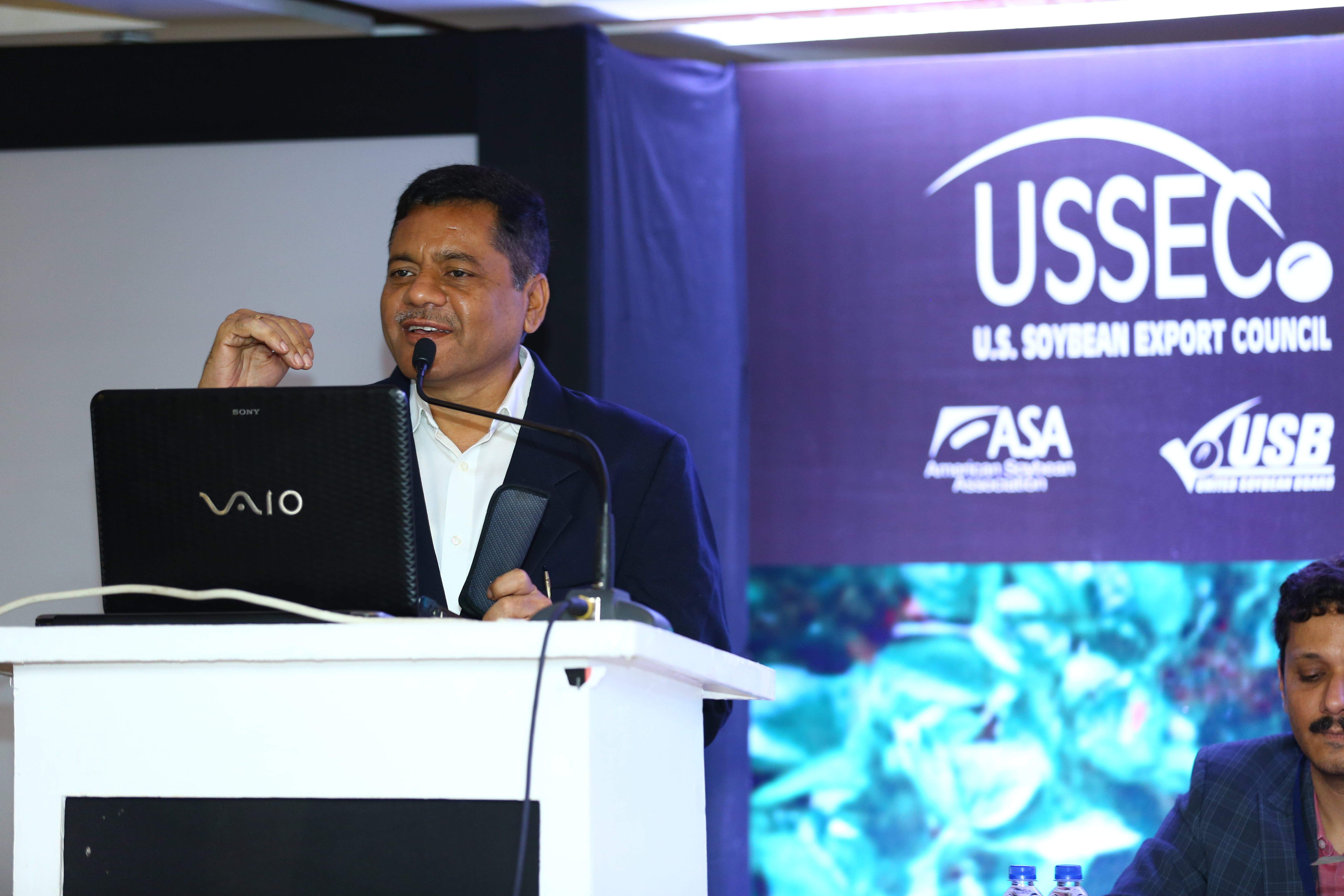
Mumbai, 2nd July 2018 : In order to encourage soy food processing, Conference on the "Entrepreneurship Development in Soy Food Processing " was held at Mumbai. This program was organised by the US Soybean Export Council (USSEC) jointly with the Association of Food Scientist and Technologists (AFST) and involving various stakeholders from the industry, government, academia, agri. Policy experts, US department of Agriculture (USDA), Food Safety and Standards Authority of India (FSSAI), Solvent Extractors Association of India (SEAI) and the financial institutions etc.
Mr. P Muthumaran, Director FSSAI for the Western and Southern Region was the chief guest on the occasion.
Speaking on the soy food business potential in India and the role soy can play in health and nutritional security of India, Dr. Ratan Sharma of the USSEC stated that Soybean is one of the very few plants those provide a high quality protein with minimum saturated fat. Soybean helps people feel better and live longer with an enhanced quality of life. Soybeans contain all the three macronutrients required for good nutrition, as well as fiber, vitamins, minerals. Soybean protein provides all the essential amino acids in the amounts needed for human health. Protein in just 250 grams of soy bean is equivalent to protein in 3 liters of milk or 1 kg of mutton or 24 no's of eggs. In addition to being a rich source of nutrients, soybean has a number of phytochemicals (isoflavones), which offer health benefits along with soy protein. Soy protein and isoflavones together contribute to a number of health benefits such as, cancer prevention, cholesterol reduction, keeping heart healthy, combating osteoporosis and menopause regulation. Being low in glycaemic index soy plays a very important role in maintaining the low sugar levels in diabetics.
Dr. Sharma further explained about the nutritional quality of the soy oil from USA. Besides the regular nutritious soy oil US has developed high oleic soy oil. High oleic soy oil is being very popular as industry preferred substitute for partially hydrogenated vegetable oils and are used in all manners of processed foods especially the snack foods for deep frying. High oleic soy oil is free from trans fats as well as lower in saturated fat and contains three times more of beneficial monounsaturated fatty acid compared to conventional soy oil.
As per Dr. sharma US Food and Drug Administration FDA approved Bunge North America's petition for a qualified health claim linking soybean oil consumption to reduced risk of heart disease. Soybean oil is the US' most commonly used ingredient and top dietary source of polyunsaturated fats. Soy oil is the second largest edible oil used in India. Soybean oil is considered heart-healthy oil as it's cholesterol-free and low in saturated fatty acids - it contains 61 % poly-unsaturated fatty acids. Two fat components essential for health and wellbeing, linoleic and linolenic acids, are also found in the right proportions in soybean oil. It is also a good source of vitamin E. Like fish oils, soybean oil contains omega-3, known to be protective against heart disease and cancer. He told that US soy oil is known for its nutritional superiority in comparison with the soy oils from other origins.
Discussing about the Soy food business opportunities in India Dr. Sharma very clearly mentioned that raw material plays a major role to produce a quality product delivering proper nutrients and making a tasty product. Food specialty soybeans are not grown in India limiting the growth of soy food sector in lack of desired quality product with limited value addition possibilities. Dr. Sharma highly recommended the food specialty soybeans from USA which produces an excellent quality soy food with much better acceptability of the end product and excellent value addition possibility when compare with the Indian soybeans.
Mr. Adam Branson the senior Agri. Attaché of Agriculture Affairs at the Foreign Agriculture Services, USDA of the United States Consulate general at Mumbai explained that a huge opportunity exists for the agriculture products trade between India and the United States. Adam stated that Agriculture is one of the top economies of the US and we look forward India as a great partner to us for the agri. business and the related trade. Adam further discussed about the bilateral trade relations between US and India, environmentally sustainable production of soybeans, about agri. commodities and other areas of US agriculture and agri. Products where both the countries can work together.
Mr. G. Chandrasekhar, a senior agriculture policy and trade expert spoke about addressing the nutritional challenges and creating employment through soy food business. He replied the query on various aspects of the food and agriculture policies of the Indian government. Dr. Prabodh Halde, head regulatory affairs, Marico and president of AFST, India covered the regulatory norms on various food products, processing and labelling etc. Dr. BV Mehta talked about the supply and demand of the edible oils in India and he told that India has a great potential of using soybean oil. The consumption of soy oil is increasing because of its nutritional superiority to other edible oils. Mr. Indranil Chatterjee from the DuPont Nutrition presented about the protein rich foods and beverages made by using soy protein isolates and concentrates. Dr. Uday Annapure discussed about the scope and benefits of extrusion technology in the Indian food processing sector and about the phenomenal growth in this segment especially the soy nuggets (Soy Bari) which are very popular in India. Speaking on the nutritional and functional properties of the soybean oil Dr. Meena Mehta interpreted about the nutritional facts of the soybean oil and highlighted its nutritional and functional properties.
Some of the soy food start-ups shared their experience and the achievements in the soy food processing sector. Here it is very important to note that there are more than 2,000 soy food processing industries are there in India. This segment is growing at a rate of 12% on an annual basis.
Recently soy food processing has been immersed as a very good source of creating the employment opportunities on a small, medium and large scale. India is the fifth largest producer of soybeans but in lack of awareness on its nutrition and the proper processing technologies this product is not getting the acceptance in the Indian diet. Although the soy food processing sector is growing at a faster rate of 12% annually but still needs to develop with a pace to bridge the protein gap of the country and soy processing industries should be integrated to the nutrition intervention program for an easy access of the soy food products on local as well as regional level. This would be the best way to provide the low cost nutrition to the masses and creating employment opportunities through the soy food processing on small, medium and large scale.
This program was attended by a large number of people from the soy food industry, trade associations, nutrition professionals, scientists and professionals from the multinational companies from all over the country. The U.S. Soybean Export Council (USSEC) is a dynamic partnership of key stakeholders representing U.S. soybean producers, commodity shippers, merchandisers, allied agribusinesses and agricultural organizations. Through a global network of international offices and strong support in the U.S., USSEC provides trade and technical services as well as market access support in order to build a preference for U.S. soy and soybean products.
June Factory Activity Grows At Fastest Pace This Year, Finds Survey
MMNN:2 July 2018

BENGALURU: Factory activity grew at its fastest pace this year in June on robust output driven by solid demand, according to a business survey that also showed input costs increased the most in nearly four years. That points to continued strong economic activity in the quarter that ended in June, after Asia's third-largest economy grew at its quickest pace in nearly two years in January-March.
The Nikkei Manufacturing Purchasing Managers' Index, compiled by IHS Markit, rose to 53.1 in June from May's 51.2, the highest since December. The reading has been above the 50-mark, which separates growth from contraction, for 11 consecutive months.
"India's manufacturing economy closed the quarter on a solid footing against a backdrop of robust demand conditions, highlighted by the sharpest gains in output and new orders since last December," Aashna Dodhia, an economist at IHS Markit, said.
Orders from international markets rose at the strongest pace since February, Dodhia added.
IHS Markit made no mention of increasing global trade tensions, which are worrying manufacturers in many countries.
The June sub-index tracking input costs jumped to nearly a four-year high of 58.6 from May's 54.7 per cent, indicating a further rise in inflationary pressures which manufacturing firms are at the moment reluctant to pass on entirely to customers.
Retail inflation is rising in India, and through May was above the Reserve Bank of India's medium-term target of 4 seven straight months in May. This bolsters expectations the central bank, which raised the key interest rate in June, will increase it again in August.
While manufacturing firms in June increased hiring at the fastest pace since December, concerns over rising price pressures and higher interest rates pushed down the long-term output index - a gauge of optimism on future business - to an eight-month low.
"The dip in optimism partly reflected concerns of a potential market slowdown in the year ahead," Dodhia said. "Indeed, some of the key challenges to the 12-month outlook include tighter domestic monetary policy and persistently high inflation."
Check Today's Petrol, Diesel Prices In Your City Here
MMNN:30 Jun 2018

Petrol and diesel prices remained unchanged on Saturday, June 30, 2018. A litre of petrol was being sold for Rs. 75.55 in national capital Delhi, Rs. 83.06 in financial capital Mumbai, Rs. 78.23 in Kolkata and Rs. 78.40 in Chennai. A litre of diesel was being sold for Rs. 67.38 in Delhi, Rs. 71.49 in Mumbai, Rs. 69.93 in Kolkata and Rs. 71.12 in Chennai. Petrol and diesel rates were listed on the website of Indian Oil Corporation (IOC) and its app, Fuel@IOC.
Saturday was the fourth consecutive day when petrol and diesel prices remained unchanged in Delhi, Kolkata and Chennai. In Mumbai, petrol prices were slashed by 6 paise on Friday.
As for diesel prices, in Delhi and Chennai, Saturday was the fourth consecutive day of no change in prices. In Mumbai, diesel prices were last slashed on Friday by 3 paise and in Kolkata, the last cut happened on June 25 to the effect of 7 paise.
Oil marketing companies like IOC, Bharat Petroleum and Hindustan Petroleum revise fuel prices with effect from 6 am every day.
Meanwhile, US crude futures settled up 0.95 per cent at $74.15 per barrel. Brent was last at $79.44, up 2.04 per cent on the day, according to a report by news agency Reuters.
After hitting record highs in some cities last month, petrol and diesel prices have been softening since June. On May 30, petrol and diesel prices were slashed for the first time after 16 days of hikes.
The government allowed daily revision of fuel prices on June 16 last year. It deregulated petrol prices in 2010 and diesel prices in 2014. Deregulation freed petrol and diesel pricing mechanism from the control of the government.
The domestic petrol and diesel prices are decided on a daily basis by oil marketing companies according to global crude oil rates and the rupee-dollar exchange rate, among other factors.
"Understand Basics": Arun Jaitley Counters Congress On Swiss Bank Data?
MMNN:29 Jun 2018

NEW DELHI: Arun Jaitley hit back at the Congress for assuming that a spike in Swiss Bank deposits by Indians was due to black money, asserting that those who participate in a public discourse must understand "basic facts".
"To assume that all the deposits are per se tax evaded money or that Switzerland in the matter of illegal deposits is what it was decades ago, is to start on a shaky presumption," Mr Jaitley said in a blog.
Mr Jaitley's rebuttal came hours after Congress president Rahul Gandhi took a swipe at the government for changing the goal posts and suggesting that the spike in Indian money in Swiss Banks is not black money. Mr Gandhi's party had followed up, pointing that Swiss Bank deposits had declined during the UPA government's tenure but risen during PM Narendra Modi's level.
The Congress's stinging jab came after the Swiss Banks reported that deposits by Indians rose by 50 per cent in 2017, reversing a three-year downward trend.
According to official Swiss Bank data, deposits by Indians have made up for a very small share of money held by Swiss banks. The latest report for 2017, news agency PTI said, has put the value of the deposits by Indians at about Rs. 7,000 crore.
But Swiss Banks, once the favoured destination of tax evaders in India, have continued to be synonymous for black money in the country's political discourse.
The Union Minister also underlined that Swiss Banks are "no longer an ideal destination for tax evaders" because the Alpine nation has taken significant efforts to get out of the image of being a tax haven.
Fortis Healthcare Q4 Net Loss Widens To Rs. 932 Crore On Impairment Charges?
MMNN:27 Jun 2018
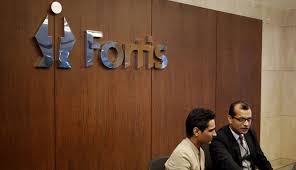
Fortis Healthcare Ltd, which is embroiled in a takeover battle that has drawn international bidders, on Wednesday said loss for the March quarter ballooned to 9.32 billion rupees ($136.3 million) hurt by impairment charges.
Fortis, which delayed reporting results for the quarter as it completed an internal probe, said the goodwill impairment charges and write-offs were related to inter-corporate deposits and advances. Net loss for the year-ago quarter was 638 million rupees.
Fortis detailed the findings of its internal investigation and said it was in the process of taking "suitable legal measures" against former Executive Chairman Malvinder Singh to recover payments and company assets held by him.
Fortis has become the target of a bidding war by suitors seeking to get a share of a boom in India's private healthcare market. Its board is looking at bids from parties including Malaysia's IHH Healthcare Bhd and a consortium of Manipal Health Enterprises and private equity firm TPG Capital.
Despite the significant interest, no suitor has gone all out on the offer price mainly due to regulatory investigations into allegations that Fortis' founders, Malvinder Singh and Shivinder Singh, siphoned off funds from the company. They quit as directors in February but have denied any wrongdoing.
Fortis said it will appoint an external agency to investigate its internal controls and also evaluate its organisational structure, including the delegation of powers of the board.
Tata Motors Shares Fall Over 10% In Two Days. Should You Buy?
MMNN:26 Jun 2018

Tata Motors shares declined over four per cent on Tuesday, extending losses to the second straight day. Tata Motors shares closed 4.4 per cent lower at Rs. 276.55 apiece on the Bombay Stock Exchange. Tata Motors shares opened at Rs. 289.70 and hit an intraday low of Rs. 275.10, before settling at Rs. 276.55 for the day. That marked a decline of more than 10 cent in two days. Analysts say that concerns relating to the automaker's higher-than-expected capex for its subsidiary Jaguar Land Rover hurt the investor sentiment. Tata Motors shares were the biggest laggards on Sensex and Nifty.
In an investor meeting last week, Tata Motors-owned Jaguar Land Rover revealed plans of investment worth 13.5 billion pounds (around Rs. 1.2 lakh crore) in the next three years. Investment will be 4.5 billion pounds per annum from FY19 to FY21 and subsequently targeted at 12-13 per cent of turnover, JLR said in the investor presentation.
The investments will be made on new models, technology, capacity with significant amount of it on electrification, and on a new platform, modular longitudinal architecture (MLA). The company also said it will launch four new models by FY24.
In a research note, brokerage Edelweiss termed the capital expenditure higher than expectations. "Management commentary during JLR's investor day reaffirms our core concern on FCF (free cash flow) due to the higher-than-expected capex and lower volumes. Moreover, we perceive normalising margin in China as an incremental negative... We appreciate JLR's efforts and capabilities on various technological aspects, enabling it to now be at the forefront of disruption in the global automobile industry," it said.
Jaguar Land Rover has "effectively bridged the technological gap with peers over the past eight years, enabling it to be at the fore front of electrification and adopt flexible manufacturing", said Edelweiss, which maintains a 'hold' call on Tata Motors shares.
A K Prabhakar, head of research at IDBI Capital, said Jaguar Land Rover's big capex plans led investors into a state of panic, leading to the recent fall in Tata Motors shares. He said investors were worried about the company's cash flow and top line due to the capex plans.
Mr Prabhakar, however, believes the stock can be a good buying opportunity below the price of Rs. 250 (5 per cent from current levels).
Tata Motors shares traded with heavy volumes on Tuesday. On the BSE, 20 lakh Tata Motors shares changed hands, compared with a two-week average of nearly 6 lakh.
Tata Motors shares are trading below all important moving averages, which indicates that there may be further bearishness in the short-term, said Rajesh Palviya, head-technical and derivative research at Axis Securities. "The stock is trading near its important support level of Rs. 270-265. If the stock holds this support level then some pullback action can be seen from these levels. On the breakdown of Rs. 265, it will resume its downtrend and it can slide further towards Rs. 255-250 level in short term," he said.
"On the higher side, Rs. 305-315 are likely to act as stiff resistance for any minor pullback action in the near term."
Gold Prices Continue Rising Streak For Third Day: 5 Things To Know
MMNN:25 Jun 2018

New Delhi: Gold gained Rs. 50 to close at Rs. 31,650 per ten gram at the bullion market on Monday on persistent buying by local jewellers despite a weak trend overseas, reported news agency Press Trust of India (PTI). Silver, however, fell by Rs. 100 to Rs. 40,900 per kg on reduced offtake by industrial units and coin makers. Traders said continued buying by local jewellers to meet increased demand for jewellery at domestic spot markets mainly kept gold prices higher, but a weak trend overseas capped the rise.
Here are key things to know about gold and silver prices today:
1. Globally, gold fell 0.20 per cent to $1,266.30 an ounce and silver slipped 0.55 per cent to $16.33 an ounce in Singapore on a strong US dollar amid prospects of higher interest rates. A depreciating rupee against the dollar making imports of gold costlier also supported the uptrend, traders added.
2. In the national capital, gold of 99.9 and 99.5 per cent purity advanced by Rs. 50 each to Rs. 31,650 and Rs. 31,500 per ten gram, respectively. It had gained Rs. 30 in the previous two days.
3. Sovereign however remained unaltered at Rs. 24,800 per piece of eight gram in limited deals.
4. On the other hand, silver ready fell by Rs. 100 to Rs. 40,900 per kg and weekly-based delivery by Rs. 115 to Rs. 39,680 per kg.
5. Silver coins, however, continued to trade at last level of Rs. 76,000 for buying and Rs. 77,000 for selling of 100 pieces
Petrol Prices Cut Up To 18 Paise, Diesel Stays Uniform. Check Fuel Prices In Your City
MMNN:22 Jun 2018

Petrol prices on Friday were slashed between 14-18 paise a litre. In Delhi, prices were cut by 14 paise to Rs. 76.02, while in Mumbai the petrol prices were brought down by 18 paise a litre, information on the Indian Oil Corporation (IOC) revealed. At the same time, Kolkata and Chennai saw the petrol price cut by 13 paise, and 15 paise respectively. Petrol prices have continuously been cut from May 30 onwards as the fuel prices were rising before then, and even touched Rs. 78.43 a day prior to that i.e. on May 29. In the past 24 days, the prices have been slashed by Rs. 2.41 in Delhi and 2.5 in Mumbai. On Thursday, petrol and diesel prices were cut.
However, diesel prices were kept same today. In Delhi, the fuel prices stand at Rs. 67.68. At the same time, diesel prices in Mumbai, Kolkata and Chennai stand at Rs. 71.99, Rs. 70.23 and Rs. 71.44, respectively.
From May 30, diesel prices are also being slashed continuously since the were rising before then and had even touched Rs. 69.31 in Delhi, Rs. 71.86 in Kolkata, Rs. 73.79 in Mumbai and Rs. 73.18 in Chennai respectively a day prior to that i.e. on May 29.
In past 24 days, diesel prices have been slashed by Rs. 1.63 in Delhi and Rs. 1.8 in Mumbai
Prior to June 16, 2017, petrol and diesel prices were revised on twice-a-month basis. The switch to the daily system of price reviews was aimed at a more rapid transmission of changes in global oil rates to the domestic consumer.
In the global markets, however, oil prices rose by more than 1 percent in early Asian trading on Friday, pushed up by uncertainty over whether OPEC would manage to agree a production increase at a meeting in Vienna later in the day.
Brent crude futures the international benchmark for oil prices, were at $74.07 per barrel at 6.04 am, up $1.02 cents, or 1.4 percent, from their last close.
The Organization of the Petroleum Exporting Countries (OPEC), a producer cartel de-facto led by top exporter Saudi Arabia, is meeting together with some non-OPEC members including top producer Russia at its headquarters in the Austrian capital to discuss output policy.
Gold Prices Fall For Second Straight Day: 5 Things To Know
MMNN:21 Jun 2018

New Delhi: Gold prices tumbled Rs. 145 to Rs. 31,570 per 10 grams at the bullion market today on fall in demand from local jewellers and retailers amid a weak trend overseas, reported news agency Press Trust of India (PTI). Gold on Wednesday fell by Rs. 185 to Rs. 31,715 per ten gram. However, silver traded at its previous level of Rs. 41,000 per kg on scattered enquiries from industrial units and coin makers. Marketmen attributed the continuous fall in gold prices to muted demand from jewellers. Besides, a weak global trend as a strengthening dollar diminished the safe-haven appeal of the precious metal, aided the downtrend.
Here are five key things to know about gold prices today:
1. Globally, gold fell 0.17 per cent to $1,265.66 an ounce and silver shed 0.23 per cent to $16.24 an ounce in Singapore today.
2. In the national capital, gold of 99.9 per cent and 99.5 per cent purity fell by Rs. 145 each to Rs. 31,570 and Rs. 31,420 per 10 grams, respectively. The yellow metal had lost Rs. 185 yesterday.
3. Sovereign, however, remained unaltered at Rs. 24,800 per piece of eight grams.
4. On the other hand, silver ready traded at Rs. 41,000 per kg on scattered deals but weekly-based delivery fell by Rs. 240 to Rs. 39,490 per kg on speculative selling.
5. Silver coins continued to be traded at the previous level of Rs. 74,000 for buying and Rs. 75,000 for selling of 100 pieces.
US Child Separation Policy: 5 Things Microsoft CEO Satya Nadella Said
MMNN:20 Jun 2018

The Donald Trump administration is drawing criticism for separating families with the children while it cracks down on illegal immigrants. The strict anti-immigration stance is an offshoot of a policy, announced in April, that directs that all immigrants apprehended while crossing the US-Mexico border illegally should be criminally prosecuted.
Parents referred by border agents for prosecution are held in federal jails, while their children are moved into border shelter facilities under the custody of the Office of Refugee Resettlement, a Department of Health and Human Services agency, reported Reuters. The problem has turned so acute that 2,342 children had been separated from their parents at the US-Mexico border between May 5 and June 9, said US Customs and Border Protection, Reuters reported.
The policy has sparked condemnation from politicians, United Nations officials, medical professionals, and rights activists and corporate bigwigs. Even Microsoft's chief executive officer (CEO) Satya Nadella also condemned the move, that too quite harshly.
In a blog post that he shared on Wednesday on LinkedIn, he said that he is appalled at the abhorrent policy of separating immigrant children from their families at the southern border of the US.
Five Things That Satya Nadella Said On US immigration policy:
1. New policy is cruel and abusive: This new policy implemented on the border is simply cruel and abusive, and we are standing for change. Today (Microsoft's president) Brad detailed our company's position on this issue, as well as the immigration legislation currently being considered in Congress, and I encourage you to read this.
2. Nation of Immigrants: America is a nation of immigrants, and we're able to attract people from around the world to contribute to our economy, our communities and our companies. We are also a beacon of hope for those who need it the most. Like many of you, I am appalled at the abhorrent policy of separating immigrant children from their families at the southern border of the US. As both a parent and an immigrant, this issue touches me personally.
3. Credits immigration policy for own success: I consider myself a product of two amazing and uniquely American things - American technology reaching me where I was growing up that allowed me to dream the dream and an enlightened immigration policy that then allowed me to live that dream. My story would not have been possible anywhere else.
0
COMMENTS4. Microsoft is not party to this: I want to be clear: Microsoft is not working with the U.S. government on any projects related to separating children from their families at the border. Our current cloud engagement with U.S. Immigration and Customs Enforcement (ICE) is supporting legacy mail, calendar, messaging and document management workloads.
5. Immigration policy is our strength: The immigration policy of this country is one of our greatest competitive advantages, and this is something we must preserve and promote. America is a nation of immigrants, and we're able to attract people from around the world to contribute to our economy, our communities and our companies. We are also a beacon of hope for those who need it the most. This is what makes America stronger. We will always stand for immigration policies that preserve every person's dignity and human rights. That means standing with every immigrant who works at Microsoft and standing for change in the inhumane treatment of children at the U.S. border today.
Narayana Murthy Created A "Dream" Company In Infosys, Says Ex-Top Official
MMNN:19 Jun 2018

HYDREABAD: As IT major Infosys completed 25 years of its listing on the stock exchange, a former senior official of the firm paid rich tributes to the co-founder NR Narayana Murthy for creating the "dream" company. "I don't think the country is going to see one more Infosys again because Infosys has been a dream company for many generations," said ex-Chief Financial Officer V Balakrishnan. The Bengaluru-headquartered company, he said, created the middle-class aspiration in the country and made them think global.
Balakrishnan saw it as an extraordinary story of how a few people with little background came together, built a global company and ran it in a legal and ethical manner, still creating enormous amount of wealth and share it with all stakeholders. "I think all this had been possible because of one iconic leader -- Murthy who had created the dream of Infosys which attracted the best talent to come and work and make their company much bigger," he told PTI.
Balakrishnan also said Infosys, which last week celebrated the silver jubilee of its listing in 1993, to some extent institutionalised the capital market. When Infosys was listed two-and-half decades ago, the Indian capital market was not institutionalised. With global aspiration, the then small company set benchmark for disclosures and value system and enhanced the profile for the whole corporate world in India, according to him. "If you look at the SEBI's recommendations on corporate governance, most of them had been followed (earlier) by Infosys, which was later mandated by the regulator to all companies to follow. So, it improved the whole profile of the corporate world in India, and enhanced corporate governance standards", Balakrishnan said.
Infosys put value before profits, and Murthy always demonstrated leadership by example which attracted a good team of people which came and made the dream much bigger, he said. As long as Infosys sticks to its core value system, and governance standards, it would continue to do well, he said.
(Also Read: Infosys CEO Salil Parekh To Receive Rs. 13 Crore Equity Grant)
Infosys as a company, Balakrishnan said, has tremendous amount of goodwill of investors and stakeholders, and "everyone wants the company to perform well." The company has done extraordinarily well in the last many years and created tremendous amount of wealth for investors. "I don't see why it (the same thing) will not happen for the next 25 years. Key thing is they should not lose their sight on core value system and principles," he added.
ICICI Bank Board Meets On Allegations Against CEO Chanda Kochhar: Report
MMNN:18 Jun 2018

MUMBAI: Board members of ICICI Bank are meeting today to decide on the appointment and the scope of the BN Srikrishna panel to look into the allegations of conflicts of interest against chief executive Chanda Kochhar, say sources. The crucial question over Kochhar's continuance as managing director and chief executive till the probe is over may also be addressed today, they said, adding the board will take a decision on it. The decision on appointment of a retired Supreme Court judge and the scope of his work will be taken by the board's sub-committee on corporate governance.
Media reports today said Sandeep Bakshi, who heads the bank's life insurance arm, may be appointed the interim chief executive and sector regulator Irdai has also been told "informally" about the move. Kochhar is on her "annual leave" right now, ICICI Bank had said earlier.
According to sources, she comes to work on a "need basis" during her annual leave and was also present at the board meeting last week when the bank decided to dilute 2 per cent more in ICICI Prudential Life.
It can be noted that last month, the board had constituted an independent external probe panel after more allegations had surfaced against Kochhar violating the bank's code of conduct. Later, media reports said Srikrishna would beheading the probe.
"The scope of enquiry would be comprehensive and will include all relevant matters arising out of and in the course of examination of the facts and wherever warranted, use of forensics/e-mail reviews and record statements of relevant personnel, etc," the bank had said on May 31. The board had on March 28 reposed full faith in Kochhar after allegations of possible conflicts of interest, lack of disclosure and possible quid pro quo first surfaced against Kochhar, following a complaint by an activist.
Even as the board stood by her, details of misdoings emerged in the media, leading to a multi-agency probe against Kochhar by various law enforcement agencies.
The cases under scanner include the bank's Rs. 3,250 crore loan to Videocon Group in 2012 and the involvement of Kochhar family members, including her husband Deepak Kochhar, in first sanctioning the loan and then restructuring the same.
Interim finance minister Piyush Goyal had earlier this month said the law would take its course in the alleged case of nepotism at ICICI Bank, even though it is a good bank with "very robust processes" and there was no cause for concern for any of the stakeholders of ICICI Bank per se. There are also allegations that NuPower got investments of Rs. 325 crore from Mauritius-based Firstland Holdings, a company owned by Nishant Kanodia, the son-in-law of Essar Group co-founder Ravi Ruia.
TCS To Buy Back Rs. 16,000-Crore Worth Shares At Rs. 2,100 Per Unit
MMNN:15 Jun 2018

India's largest IT firm Tata Consultancy Services (TCS) has approved the buyback of 1.99 per cent of equity share capital, not exceeding Rs. 16,000 crore, the company announced after a board meeting that concluded at 2.35 pm on Friday. TCS will carry out the share buyback at Rs. 2,100 per equity share, a handsome premium of over 17 per cent against Friday's opening price of Rs. 1,800.
"Further to our intimation dated June 12, 2018, we wish to inform you that the Board of Directors of the company at its meeting held today has approved a proposal to buyback up to 7,61,90,476 equity shares of the company for an aggregate amount not exceeding Rs.16,000 crore being 1.99 per cent of the total paid up equity share capital, at Rs. 2,100 per Equity Share," TCS said in a market filing.
"The buyback is proposed to be made from the shareholders of the Company on a proportionate basis under the tender offer route using the stock exchange mechanism in accordance with the provisions contained in the SEBI (Buy Back of Securities) Regulations and the Companies Act, 2013 and rules made thereunder," the company further stated.
0
COMMENTSA total of seven crore sixty one lakh ninety thousand and four seventy six shares will be bought back by the IT major, the company announced. Last year too, TCS exercised a share buyback programme of similar value (Rs. 16,000 crore) that materialised in the month of May.
TCS shares jumped to a high of Rs. 1,849 in intraday trading before closing at Rs. 1,845, 2.94 per cent higher against the previous session's closing of Rs. 1,792.25 on the BSE.
Gold Prices Fall On Muted Demand, Silver Up On Increased Offtake
MMNN:14 Jun 2018

New Delhi: Gold prices slipped by Rs. 90 to Rs. 31,860 per ten gram at the bullion market today on slackened demand from local jewellers, shrugging off a firm trend overseas. On the other hand, silver ready surged by Rs. 400 to Rs. 41,950 per kg backed by increased offtake by industrial units and coin makers.
Traders said easing demand from local jewellers as well as retailers at the domestic spot market led to the downtrend in gold prices, but a firm trend overseas capped the fall.
Globally, Gold prices hit a two-week high on Thursday, supported by a weaker dollar and trade worries between Washington and Beijing, even as the US Federal Reserve forecast a slightly faster pace of interest rate hikes this year. Spot gold rose 0.3 percent to $1,302.50 per ounce at 0744 GMT. It earlier hit a high of $1,303.38 an ounce, its best since May 31. US gold futures for August delivery rose 0.4 percent to $1,306 per ounce.
Silver too rose 0.44 per cent to $17.08 an ounce in Singapore. In the national capital, gold of 99.9 per cent and 99.5 per cent purity declined by Rs. 90 each to Rs. 31,860 and Rs. 31,710 per ten gram, respectively. It had gained Rs. 150 in yesterday's trade. Sovereign gold however remained flat at Rs. 24,800 per piece of eight gram.
On the other hand, silver ready rebounded by Rs. 400 to Rs. 41,950 per kg and weekly-based delivery rose by Rs. 505 to Rs. 41,125 per kg. Silver coins continued to be traded at last level of Rs. 76,000 for buying and Rs. 77,000 for selling of 100 pieces. (With Reuters inputs)
7th Pay Commission: Over 23 Lakh Pensioners To Get Benefit Up To Rs. 18,000'
MMNN:12 Jun 2018

The government has revised the pension limits of teaching and non-teaching staff of central and state universities under the recommendations of the Seventh Pay Commission. This decision will benefit 25,000 current pensioners of central universities and University Grants Commission (UGC)-maintained deemed universities, the government has said. Approximately eight lakh teaching and 15 lakh non-teaching staff who have retired from state public universities and affiliated colleges - that wish to adopt or have adopted pay scales prescribed for Central Universities - will also benefit from the decision.
"This order is applicable in only those cases where such pension schemes have already been adopted with prior approval of Government of lndia/ Ministry of Human Resource Development (MHRD)... lf the university/ college has fixed the pension in a manner different from the above formulation, the same may have to be reworked by the concerned university/ colleges and necessary adjustment be made," according to an official communication addressed to the Secretary, UGC.
Here are five things to know:
1) Around 25,000 present pensioners will benefit in Central Universities and UGC maintained deemed to be Universities to the tune of Rs. 6,000 to Rs.18,000.
2) This was told by Minister for Human Resource Development Prakash Javadekar on microblogging site Twitter.
3) Last year, the Union Cabinet had given its approval for revision of pay scales for about 8 lakh teaching and other equivalent academic staff in higher educational institutions under the purview of the UGC and in centrally-funded technical institutions. The implementation of this pay revision would enhance the teachers' pay in the range of Rs. 10,400 and Rs. 49,800, the government had said.
4) Earlier, a government order had stated that central government employees would not get a daily allowance on Leave Travel Concession (LTC).
5) The recommendations of the Seventh Pay Commission are with effect from January 2017.
Sensex Rises For Second-Session, Nifty Settles At 10,786; Bharti Airtel Rises Over 3%'
MMNN:11 Jun 2018

S&P BSE Sensex gained 39.80 points or 0.11 per cent and closed at 35,483.47 on Monday while NSE Nifty gained 19.30 points or 0.18 per cent and closed at 10,786.95. Stock markets ended positive today for second session. Optimistic buying in blue-chip stocks ahead of release of industrial production data drove stocks higher, particularly in early trade today. Retail inflation data for May is scheduled to be released on Tuesday. Sentiments were also lifted by gains in Asian stocks ahead of key summit between US President Donald Trump's and North Korean leader Kim Jong Un. Markets were also driven by state-run lenders such as State Bank of India (SBI) after the government set up a panel to explore mechanisms for resolving the burgeoning bad debts plaguing the financial sector.
At the end of the session today, Bharti Airtel, Sun Pharma, Maruti, Dr Reddy's, Induslnd Bank and Adani Ports were the top gainers on 30-share Sensex pack while Tata Steel, Power Grid, Coal India, Yes Bank and ICICI Bank were the major losers.
Bharti Airtel, Bajaj Finance and Grasim were leading the pack of Nifty gainers. While the main losers on NSE were Tata Steel, Power Grid, HCL Tech.
Among sectoral indices, pharma, metals and IT stocks traded higher, while midcaps, too, saw good gains today.
The rupee strengthened marginally against the US dollar on Monday.
"While DIIs (Domestic Institutional Investors) have been buying consistently, FIIs (Foreign Institutional Investor) have also bought in F and O segment in the last few days. This accompanied by sector specific positive news flows in pharma and PSU Banks has kept the market buoyant", said Viral Berawala, CIO, Essel Mutual Fund.
Investors are now awaiting May inflation data due on Tuesday for further cues about the local economy.
Retail inflation likely jumped further in May to a four-month high, primarily driven by a surge in energy prices, according to a Reuters poll of economists, suggesting more policy tightening from the central bank is coming.
The Nifty PSU bank index gained as much as 1.9 per cent to a two-month high. SBI rose 2 per cent to its highest since 26 February today, while Punjab National Bank jumped 4.7 per cent.
The Nifty pharma index gained 2.1 per cent, boosted by Sun Pharmaceutical Industries Ltd after the US health regulator issued a "voluntary action indicated status" for the company's Halol plant.
Inox Wind Ltd dropped 8.6 per cent to a record low after the company said its auditors Patankar & Associates (P&A) resigned, citing 'time constraints'. (With inputs from Agencies)
Important For India To Address Banking Crisis: IMF'
MMNN:8 Jun 2018

Washington: The International Monetary Fund (IMF) on Friday said addressing the ongoing crisis in the banking sector was important for India to support investment and inclusive growth agenda.
"Addressing the banking sector balance sheet issues and improving the performance of particular public sector banks is a very important issue for India to support investment and its inclusive growth agenda," IMF Spokesman Gerry Rice told reporters at his bi-weekly news conference.
Responding to a question on India's banking crisis, he said the authorities have made progress in addressing the stock of non-performing assets and were taking further measures to deal with the flow problem.
"These steps include the recognition of these non-performing assets, the resolution framework under the Insolvency and Bankruptcy Code. It's in an early stage, but we think that's an encouraging development," Mr Rice said.
He said it was a positive step as a more proactive approach was being taken to identify and closely monitor asset quality issues.
These needs to be complemented by further governance reforms in this area, especially regarding the public-sector banks to materially improve risk management and operations, he added.
"But we welcome the authority's intention to make public sector bank recapitalisation contingent on measures to strengthen governance and operations and encourage the accelerating implementation of the ongoing reforms," Mr Rice said.
0
COMMENTSMeanwhile, gross non-performing assets in the banking system, which stood at 11.2 per cent in FY2018, are likely to touch 11.5 per cent in this fiscal year, according to a report by Crisil. "We expect gross NPAs in the banking system to peak at around 11.5 per cent this fiscal and then start reducing," the rating agency Crisil said.
In FY18, the banking system reported a net loss of Rs. 40,000 crore because of the sharp rise in NPAs and the resulting increase in provisioning costs. In the previous fiscal year, as much as Rs. 5 lakh crore of bank loans slipped into the NPA category, taking the total slippages in the past three fiscals to Rs. 13.6 lakh crore.
Petrol, Diesel Prices Cut Further. How Much You Pay For Fuel In Your City Today'
MMNN:7 Jun 2018

Petrol and diesel prices were lowered marginally on Thursday. With effect from 6 am, petrol prices were at Rs. 77.63 per litre in Delhi, Rs. 80.28 per litre in Kolkata, Rs. 85.45 per litre in Mumbai and Rs. 80.59 per litre in Chennai, according to Indian Oil Corporation. Diesel prices were at Rs. 68.73 per litre, Rs. 71.28 per litre, Rs. 73.17 per litre and Rs. 72.56 per litre in Delhi, Kolkata, Mumbai and Chennai respectively. Petrol and diesel prices are deregulated in India, therefore prices at fuel stations are market-determined, based majorly on global crude oil rates and rupee-dollar forex rates.
Oil Minister Dharmendra Pradhan ruled out any rollback of deregulation of fuel prices. Despite having the burden of repaying oil bonds, the government will take full responsibility of keeping fuel prices in check and ensuring they don't go out of reach of the common man. He also reiterated that the government was working on a long-term solution to address oil price fluctuations while taking a holistic view of all factors.
While Thursday marked the ninth cut in a row for prices of petrol, diesel prices were lowered for eight days in nine. During this period, petrol prices have been lowered by 80 paise per litre in Delhi, 78 paise per litre in Kolkata, 79 paise per litre in Mumbai and 84 paise per litre in Chennai, data shows. Diesel prices have been brought down by 58 paise per litre in Delhi and Kolkata, and 62 paise per litre in Mumbai and Chennai.
The daily cuts since May 29, except diesel on June 3, followed sixteen days of hikes when petrol prices were raised by a total Rs. 3.74-4 per litre across the four metros and diesel by Rs. 3.23-3.62 per litre.
Brent crude oil prices touched their 2014 highs around $80 a barrel last month, which led the surge in domestic petrol and diesel prices. Crude oil prices have, however, made some recovery since then.
The rupee, down nearly 5 per cent so far this year, traded in the range of 67.08-66.94 on Thursday morning. It had settled at 66.92 against the US dollar, a one-month high.
Despite latest cuts in fuel rates, petrol and diesel prices are up Rs. 7.66 per litre in Delhi, Rs. 7.56 per litre in Kolkata, Rs. 7.58 per litre in Mumbai and Rs. 8.06 per litre in Chennai so far this year, Indian Oil Corporation data shows. Diesel prices are up Rs. 9.09 per litre, Rs. 8.98 per litre, Rs. 9.9 per litre and Rs. 9.73 per litre in Delhi, Kolkata, Mumbai, and Chennai respectively.
RBI Hikes Repo Or Key Lending Rate To 6.25%, Home Loan EMIs Likely To Rise'
MMNN:6 Jun 2018

The Reserve Bank of India (RBI) on Wednesday hiked the key lending or repo rate by 25 basis points to 6.25 per cent as it announced its second bi-monthly monetary policy statement for 2018-19. The repo (or repurchase) rate is the rate of interest which the RBI charges to lend short-term loans to the commercial banks. The reverse repo rate under which the RBI borrows from banks was adjusted to 6 per cent. "The decision of the MPC (Monetary Policy Committee) is consistent with the neutral stance of monetary policy in consonance with the objective of achieving the medium-term target for consumer price index (CPI) inflation of 4 per cent within a band of +/- 2 per cent, while supporting growth," the RBI said in its policy statement. All six monetary policy committee (MPC) members voted in favour of the repo rate hike. Dr Chetan Ghate, Dr Pami Dua, Dr Ravindra H. Dholakia, Dr Michael Debabrata Patra, Dr Viral V. Acharya and Dr Urjit R. Patel voted in favour of the decision.
The RBI, however, maintained a neutral stance in the policy statement and retained the GDP growth for 2018-19 at 7.4 per cent.
RBI's decision to hike repo rate was guided by a sharp spike in retail inflation which rose sharply to 4.6 per cent in April. Some experts, however, feel that the hike is positve for "savers". "Recent hike in crude prices & better GDP for last quarter of FY 18 suggest inflation trajectory may be on the higher side. Though, this may put some pressure on borrowers, it is positive news for the savers in the economy," said Anita Gandhi, Whole Time Director at Arihant Capital Markets.
The RBI kept the retail inflation in the range of 4.7-5.1 per cent in the first half of 2019 and 4.4 per cent in the second half of the fiscal.
RBI's decision was surprising because most experts were expecting it to take a hawkish stance in the June policy review and to go for a rate hike only in August.
Immediately after the announcement, the S&P BSE Sensex was trading 222.81 points or 0.64 per cent higher at 35,126.02 while the broader Nifty50 of the National Stock Exchange traded at 10,646.05, with a gain of 52.90 points or 0.50 per cent. The banking stocks turned negative as the Nifty Bank index lost 0.14 per cent.
Earlier, a Reuters poll, which was taken before the figures for the gross domestic product (GDP) were released, 21 of 57 economists, or about 40 per cent, expected the RBI to raise interest rates in the June meeting. However, in a snap poll of 56 economists taken after the GDP data release, 26 of the respondents, or about 46 per cent, said that they expect the RBI to take the repo rate higher in June.
7
COMMENTSIn the January-March quarter, the economic growth or gross domestic product (GDP) accelerated to 7.7 per cent, which is a near 2-year high.
Retail inflation rose to 4.58 per cent, after easing for three straight months while wholesale inflation rose to 3.18 per cent in April. This was the sixth straight month in which retail inflation level was higher than the RBI's medium-term target of 4 per cent
Services Activity Shrinks For 1st Time In 3 Months, Shows Survey'
MMNN:5 Jun 2018

Activity in the service industry shrank in May for the first time in three months as new orders stagnated, but business optimism was the highest since 2015 on expectations that demand will turn around, a business survey showed. The Nikkei/IHS Markit Services Purchasing Managers' Index fell to 49.6 in May from April's 51.4, sinking below the 50-mark that separates growth from contraction. While data last week showed that Asia's third-largest economy grew at its quickest pace in nearly two years, the latest PMI survey suggested it may have trouble maintaining that momentum.
Last quarter's faster growth, coupled with accelerating inflation, have dramatically changed expectations for the Reserve Bank of India's monetary policy. It is now expected to change its stance to hawkish as early as a policy review on Wednesday and raise rates in August.
A recent surge in the price of oil, the biggest import item, and a sharp weakness in the rupee will be inflationary, keeping prices on an up-trend.
While the jump in input prices was evident in the latest survey, firms continued to absorb most of the cost pressure to attract dwindling demand, pressuring profit margins.
The new business sub-index, an indicator of domestic and foreign demand, fell sharply to 50.2 in May from April's 51.4, near the neutral level and remaining well below the long-run mean average of 54.3.
"The performance of the service sector was disappointing in May," Aashna Dodhia, an economist at IHS Markit, said in a release.
"India saw the slowest improvement in the health of the overall economy since February in May, whilst the latest survey showed the effects of higher global oil prices as the private sector recorded the most marked input cost inflation for three months."
The survey also showed firms were turning more cautious about hiring, with the pace of job creation easing to the weakest so far this year. If the labour market continues to soften, it could put pressure on Prime Minister Narendra Modi's government ahead of next year's general elections.
A similar survey on Friday showed the factory activity grew at a weaker pace in May from the previous month, as weak domestic demand proved a drag on output.
Taken together, they pushed the composite PMI - which includes both manufacturing and services - to 50.4 in May from April's 51.9, barely above the 50 mark that shows growth and its lowest reading in three months.
However, services firms remained optimistic about the future, with the business expectations index rising to its highest since January 2015.
The performance of the service industry is crucial for the economy as it contributes about 60 per cent to gross domestic product.
IDBI Bank CEO Mahesh Jain Appointed As RBI Deputy Governor'
MMNN:4 Jun 2018

State-run IDBI Bank CEO Mahesh Kumar Jain was appointed as a deputy governor of the Reserve Bank of India (RBI), the government announced on Monday. His appointment is for three years, Rajeev Kumar, secretary, Department of Financial Services at the Ministry of Finance, said on Twitter. Mr Jain has more than 30 years of experience in the banking sector. He has in the past served on boards of Exim Bank, NIBM (National Institute of Bank Management) and IBPS (Institute of Banking Personnel Selection).
Mr Jain began his banking career with Punjab National Bank.
Mr Jain had assumed charge as managing director and CEO of IDBI Bank with effect from April 3 last year. Before that, he was managing director and CEO of Indian Bank, from November 2015 to March 2017, the tweet added.
Mr Jain had joined Indian Bank as an executive director in September 2013, according to IDBI Bank's website. Prior to joining Indian Bank, he served as a general manager with Syndicate Bank.
Mr Jain holds an MBA and an MCom. Besides. His qualifications include a CAIIB (Certified Associate of Indian Institute of Banking), a CFA (Chartered Financial Analyst) and an FRM (Financial Risk Manager).
ICICI Bank Denies Report On Sending CEO Chanda Kochhar On Leave'
MMNN:1 Jun 2018

ICICI Bank on Friday denied a recent news report that said CEO Chanda Kochhar has been asked to go on leave until an independent enquiry on alleged cases of impropriety is concluded. "She is on her annual leave which was planned in advance," ICICI Bank, the country's largest private sector bank, said in a clarification to stock exchanges. The Mint newspaper report, citing sources, had also said that Ms Kochhar has been asked to "proceed on indefinite leave from the company...until an independent enquiry announced by the lender's board to probe alleged cases of impropriety is concluded." ICICI Bank's board also denied that "it has appointed any search committee to find her successor".
ICICI Bank had said earlier this week that it will institute an inquiry into the allegations raised by an anonymous whistle blower against chief executive Ms Kochhar. The bank is battling allegations that she allegedly favoured Videocon Group in its lending practices.
ICICI, India's third-biggest lender by assets, said the probe, headed by an independent person, would examine allegations that the chief executive did not adhere to provisions relating to the bank's code of conduct and whether her actions involved "conflict of interest".
Market regulator Sebi had also earlier served a notice on Chanda Kochhar on dealings of the bank with Videocon Group and Nupower, an entity in which her husband Deepak Kochhar has economic interests, ICICI Bank said.
Appropriate response would be submitted to the Sebi, the bank had said in a stock exchange filing.
1
COMMENTSThe CBI has launched a preliminary investigation into Rs. 3,250 crore loan ICICI Bank had extended to Videocon in 2012 and the possible role of Deepak Kochhar.
ICICI Bank had in the March quarter reported its smallest quarterly profit in two years as stricter RBI rules forced the bank to account for more bad loans. Net profit for its fiscal fourth quarter to March 31 almost halved to Rs. 1,020 crore
RBI May Move Away From Neutral Stance, Turn Hawkish In June, Say Experts'
MMNN:31 May 2018

BENGALURU: The Reserve Bank of India (RBI) will hike rates in August on concerns that already above-target inflation will climb further, according to economists in a Reuters poll, in contrast to a survey just a month ago which saw an increase only in the second half of 2019. That dramatic shift in expectations was driven by the annual consumer price inflation accelerating in April to 4.58 per cent, above the central bank's target of 4 per cent for the sixth month in a row, after easing in each of the three previous months.
The May 24-30 poll of nearly 60 economists showed the RBI will hike its repo rate by 25 basis points to 6.25 per cent in August.
While the median suggests the RBI will keep rates on hold when it meets on June 6, about 40 per cent of the economists polled expected a hike next week.
"As global market turmoil takes its toll, we are changing our RBI policy rate call from an extended pause to a 25 basis point hike at the August meeting," said Kunal Kundu, India economist at Societe Generale.
"The RBI may announce a change in policy stance during the June meeting and follow that up with a hike in August."
Kundu said that while RBI's inflation expectation has been "erring on the side of hawkishness, with actual inflation mostly relatively underwhelming, the latest inflation data, though not too high, raises the prospect of a rate hike."
The inflation rate increased due to higher domestic food costs and crude oil prices, which hit $80.50 a barrel on May 17, their highest since November 2014.
With the country importing 80 per cent of its fuel needs and government spending increasing before national elections next year - which will likely add to price pressures - expectations have firmed for the RBI to move away from a neutral stance next week.
Out of 42 economists who answered an extra question, 24 said they expect the central bank to change its monetary policy stance to a tightening bias in June. More than 35 per cent anticipated that in August.
Just last month, a majority said the RBI would turn hawkish by December.
Currently, the RBI estimates consumer inflation of 4.7-5.1 per cent in April-September before dipping to 4.4 per cent for the remainder of this fiscal year.
A total of 19 out of 31 economists who answered another question said the RBI would revise inflation projections up. Eleven said it would be unchanged and one said it would be revised down.
"The RBI cut its inflation forecasts based on the weakness of observed inflation the first couple of months of the year, so it was not premature to cut the forecasts," said Shilan Shah, senior India economist at Capital Economics.
"It did note some upside risks to the inflation outlook, some of which have come to fruition. So it is likely that forecasts will now be revised up."
The first three months of 2018 likely saw the fastest economic expansion since July-September 2016. Data for the latest quarter will be announced later on Thursday.
0
COMMENTSMore than 80 percent of the 30 economists who answered an extra question said the RBI would keep its growth projections for 2018/19 unchanged. Two predicted an upgrade and three said it would be revised lower.
State Bank Of India (SBI) Hikes Interest Rate On Fixed Deposits'
MMNN:30 May 2018

Here is some good news for savers. India's biggest lender State Bank of India (SBI) has revised its interest higher on retail fixed deposits or FDs below Rs. 1 crore. The revised rate on SBI FDs will be effective from May 28. SBI has revision interest rates by up to 25 basis points in select maturities, according to the bank's website. Interest rate on SBI fixed deposits with a maturity of one year to less than two years has been increased to 6.65 per cent for the public, from 6.4 per cent earlier. Senior citizens will get an interest rate of 7.15 per cent as compared to 6.9 per cent earlier.
SBI fixed deposits with a maturity of two years to less than three years will fetch an interest rate of 6.65 per cent, higher than 6.6 per cent earlier. Senior citizens will get 7.15 per cent as compared to 7.10 per cent earlier.
The interest rates across other maturities have been kept unchanged. For example, SBI will offer an interest rate of 5.75 per cent on fixed deposits with a maturity of seven days to 45 days, 6.25 per cent on 46 days to 179 days and 6.35 per cent on 180 days to 210 days. Other maturity brackets of 211 days to less than one year will fetch 6.40 per cent, three years to less than five years will offer 6.70 per cent and five years and up to 10 years will give 6.75 per cent.
With SBI increasing its interest rate on fixed deposits, other banks are also expected to follow suit.
MTNLs Difference In Pay Scales, Debt Impede Merger, Says BSNL Head'
MMNN:29 May 2018

Mumbai: Bharat Sanchar Nigam (BSNL) feels a merger with MTNL will be positive for both the companies,but there are a few impediments like the later's huge debt and the difference between pay scales which need to be sorted out, a top official has said. However, there is no specific plan on the merger in the works at present, beyond the appointment of a consultant by the government.
The state-run telco has inked a pact with Softbank to co-work on "interest areas" and is also in talks with the Japanese telecom company's investee company Paytm for a tie-up, the official said. "Merger between the two (MTNL and BSNL) is going to begood for both the companies. Lets take the argument that itis going to be good, but there are various issues that need to be sorted out," its chairman and managing director Anupam Shrivastava told PTI recently. The impediments include MTNLs debt of over Rs. 16,000 crore as of December 2017 and the difference between the pays scales for employees of both the companies, he said.
Another difficult factor will be MTNL being a widely-owned listed entity, he added. In the comments that come after telecom minister Manoj Sinha has denied any plan to merge the two state-run loss making telcos, Shrivastava said there is no specific plan in the works. "Not at this point of time. The government has appointed a consultant to frame the timeline and road map for the merger of BSNL and MTNL," he said, when asked if there isa plan to merge the two. The CMD, however, declined to elaborate both on the tie-up with Softbank and proposed joining hands with payments bank Paytm. "At this point of time, an agreement has been signed(with Softbank) and we are working on various interest areas...Lets see what happens," he said, making it clear that it does not involve equity changing hands.
0
COMMENTSHe said while the company, which has a reach into allthe corners of the country, has no plans to venture into thepayments bank space as has been done by many other telcos,he said. BSNL has launched a mobile wallet in association withlargest lender SBI and will be working to promote that aswell, he said. He said FY19 will be a year of transition, where ithopes to increase revenue on greater volumes and expandingmarket share, even as it continues to shed average revenue peruser (ARPUs). After the arrival of the deep-pocketed Reliance Jio,BSNL has actually seen its market share increase and hopes tocontinue this, he said. The state-run player wants to take competition"head-on" and is working on a strategy that involves "meetingtariff by tariff," Shrivastava said.
Good Days For India Inc In Foreign Loan Market May Soon End: Report'
MMNN:28 May 2018

The good days for India Inc. in the offshore syndicated loans market may soon be over, as foreign banks pinched by their own rising borrowing costs balk at the lowest lending rates in a decade.
"India may be approaching a turning point for loan pricing to come up a bit to facilitate syndication," said Samuel Tan, co-head of loan syndication and distribution for United Overseas Bank in Singapore.
As the Federal Reserve gears up for more interest-rate hikes, a surging dollar is also fueling bets that developing nations may also raise rates faster than anticipated. That's all pressuring some global banks' cost of funding. As a consequence, there are signs that foreign lenders are growing more selective with Indian loans, even as they cheer signs that the nation is moving toward cleaning up about $210 billion of non-performing assets.
In another sign of weakening demand from global banks, more Indian companies have been forced to rely on a smaller group of lenders to underwrite borrowings or to use their relationships to strike so-called club deals.
Companies may get cheaper borrowing costs through the club arrangements. But doing so makes them reliant on a smaller group of banks, creating the risk that any shift in those lenders' willingness to extend funds could hamstring the firms.
Indian Railway Finance Corp. hired lenders to arrange loan facilities, more than two months back, but is yet to start marketing to a wider group of banks in syndication. IndusInd Bank's $500 million loan led by six mandated lead arranging banks, or MLABs, and signed in April, only drew three banks in syndication. The $249 million loan for Great Eastern Shipping Co. unit, Greatship India, attracted two participating lenders which took over half of the allocation. Birla Carbon, a holding company of conglomerate Aditya Birla Group, opted to only seek lenders at top-ticket levels, rather than seeking a larger group of banks. Hindustan Petroleum Corp., which mandated a $300 million 3Y facility earlier this year, has decided against marketing the loan in general syndication, according to people familiar with the matter, who are not authorized to speak publicly and asked not to be identified.
The ability for lead banks to sell down Indian loans is decreasing due to low interest margins, according to Sandeep Bhatt, Mumbai-based senior regional manager for India at Export Development Canada.
1
COMMENTS"In some cases, bankers are asking borrowers to bring their relationship banks as lenders to overcome this problem," Bhatt said. "Pricing for large corporates is not expected to go down below current levels for the next six months."
Videocon Case: Sebi Issues Notice To ICICI Bank MD Chanda Kochhar'
MMNN:26 May 2018

Stock markets regulator Securities and Exchange Board of India (SebI) issued a notice to ICICI Bank, and its managing director and CEO Chanda Kochhar in connection with the Rs. 3,250-crore Videocon loan case, the bank said on Friday. The notice, which ICICI Bank received on Thursday, had sought responses from the second largest private lender for not adhering to the stock market disclosure requirements in connection with the ongoing controversy over alleged conflict of interest involving Chanda Kochhar in the case. Media reports had claimed in March that Chanda Kochhar had approved a loan in 2012 to Venugopal Dhoot's Videocon Group in return for a favour received by NuPower Renewables, an entity in which Mr. Deepak Kochhar has alleged economic interests.
Sebi sent the notice in the wake of responses sent by the bank to several queries in the recent past relating to the Videocon case. The markets regulator felt that adequate disclosures were not made by ICICI Bank to the stock markets relating to the case.
Thus, Sebi issued the notice for alleged violations of certain provisions of the Listing Obligations and Disclosure requirements (LODR). The notice has been sent under the Rule 4(1) of SCR (Procedure for Holding Inquiry and imposing penalties by Adjudicating Officer) Rules 2005, ICICI Bank said. As per the securities market regulator's LODR regulations, all listed entities are mandated to immediately disclose relevant and important information to stock exchanges.
"Appropriate responses would be submitted to Sebi by the Bank in accordance with regulation," ICICI Bank said in a regulatory filing.
In 2008, Mr Dhoot set up a company with Deepak Kochhar and two relatives. Mr Dhoot later allegedly gave Rs. 64 crore loan to NuPower Renewables through an entity owned by him. Later, he transferred the ownership of this entity to a trust headed by Deepak Kochhar for a meagre amount of just Rs. 9 lakh, an Indian Express investigation had disclosed.
The transfer of the company to Deepak Kochhar happened six months after Videocon Group got a loan of Rs. 3,250 crore from ICICI Bank.
11
COMMENTSICICI Bank's management has denied the allegations on the grounds that it was not only ICICI Bank but a consortium of 20 banks and financial institutions that sanctioned in 2012 credit facilities to the Videocon Group for a debt consolidation programme and for its oil and gas capital expenditure programme aggregating to approximately Rs. 40,000 crore.
Besides CBI, even the income tax (I-T) department has also tracked the Videocon case closely. During the course of investigation, the I-T department on May 15 questioned Mr Dhoot regarding an allegation of tax evasion. Earlier, Deepak Kochhar was also questioned and notices were issued to him for his alleged dealings with Mr Dhoot. The Central Bureau of Investigation (CBI) is conducting a preliminary enquiry in the case, whereby it is probing if there was any quid pro quo arrangement when the loan was issued by ICICI Bank
India's $32 Billion Bailout To State Banks Stumbles As Losses Mount'
MMNN:25 May 2018

MUMBAI: When the government announced a surprise $32 billion bailout plan for state-controlled banks last October, credit rating firms and the central bank saw it as a huge step to getting the industry back to robust health - and lending more to businesses and consumers. But their optimism may have been majorly misplaced judging by the latest numbers coming out of the banks. And that may in turn crimp economic growth in the economy. Thirteen state banks have reported combined losses of $8.6 billion for the year to March - including $6.5 billion in the last quarter - and their non-performing loans have surged nearly a fifth from end-December levels. Two state banks have reported modest profits and six are still to report.
While many of the banks, including top lender State Bank of India, have said the worst is probably over, they still see one or two more quarters of pain. That means more bad loans getting disclosed and loss provisions shooting up as a central bank order will cause more debt defaulters to be dragged into bankruptcy.
"The government capital is only going to just plug the hole, there is definitely no growth capital," said Udit Kariwala, an analyst at Fitch Ratings' India Ratings & Research. He said smaller state lenders with limited ability to raise capital from the market will have to curtail their lending.
The 21 state lenders hold two-thirds of the banking assets, and accounted for the bulk of the record $150 billion of soured loans in the banking sector last year.
The banks, which have been blamed for indiscriminate lending to sectors such as metals and power that turned sour, can still be held responsible for much of the balance sheet carnage.
A more than $2 billion fraud at the second-biggest state lender, Punjab National Bank, disclosed less than four months ago, not only left a hole but also underlined how weak the banks' grip on risk is.
Exacerbating the problems is a move in February by the Reserve Bank of India to withdraw half a dozen loan restructuring schemes that banking experts said were helping banks to avoid disclosing dud loans. It also tightened other rules governing bad loan accounting.
In addition, the RBI this month banned Dena Bank, a loss-making smaller state-run lender, from making any new loans. Days later, Allahabad Bank, another smaller state-run lender, said it had been asked by the regulator not to increase the number of risky loans and costly deposits on its books due to its capital and leverage position.
Bank analysts say more state banks could come under similar restrictions aimed at conserving limited capital. The RBI already has 11 state lenders under its "prompt corrective action" framework that restricts them from expanding.
That is not all. Capital needs will also be exposed by global banking rules fully kicking in by March 2019. They mandate banks to have a minimum core capital ratio of 8 per cent, and at least six banks, including PNB, are short of that number.
ELECTION AGENDA
Under the recapitalisation plan - aimed mainly at driving credit growth in an economy where bank loans are the main source of funding for everything from buying a car to building a port - the government has already injected about Rs. 88,000 crore ($13 billion) into 20 banks as of end-March.
It has Rs. 65,000 crore to inject in the current fiscal year, and the banks themselves were supposed to raise Rs. 58,000 crore through share and asset sales.
Some, including SBI and PNB, last year raised funds from share sales, but several others have postponed such plans.
Kariwala at India Ratings estimates the banks now need Rs. 80,000 crore to Rs. 1 lakh crore to fund soured-asset provisions and maintain minimum capital ratios alone, which means there will be little left from the bailout for lending growth.
Some bank analysts say the government may have to increase the size of the bailout.
Certainly, bank lending - and its impact on growth - will be on Prime Minister Narendra Modi's agenda ahead of a general election that has to be held within a year.
"Given how the stocks are doing, the nearly 0.6 trillion (Rs. 0.6 lakh crore) rupees banks need to raise looks difficult. So, the government may have to slightly increase the amount they are planning to inject," said Srikanth Vadlamani, vice president of the Financial Institutions Group at Moody's Investors Service.
Moody's said this week that PNB alone would need Rs. 12,000-Rs. 13,000 crore of new capital in the year to March to achieve an 8 per cent core capital ratio. At the end of the last quarter it was at just 5.95 per cent.
IMPORTERS' FUNDING CHANNEL SHUT
Businesses, especially the smaller ones, are already complaining of not getting the loans they want.
In February to March, lending to small businesses dropped 0.2 per cent, though overall lending grew 5.9 per cent.
For importers, a major channel of funding - overseas credit through letters of undertakings from domestic banks - has been shut after the PNB fraud, forcing those businesses to depend more on domestic rupee loans.
The government will ensure that all state banks including the weaker ones meet the minimum regulatory capital ratio, said Rajeev Kumar, the top bureaucrat overseeing the banking sector at the finance ministry.
1
COMMENTSHe also said with the planned recapitalisation some of the banks will have room to grow, while bad loan recoveries in the bankruptcy process will further aid banks' bottomlines. He said he expects the banks woes to subside in a quarter or two.
"Whenever you do the cleaning part, a bit of dust, a bit of pain, upfront is okay," said Kumar. "It's only one quarter that you have to just wait."
Rupee Touches Fresh 16-Month Low Of 68.29 Against US Dollar: 5 Points'
MMNN:23 May 2018

The rupee weakened further against the US dollar today. The rupee, which has traded around 68 against the US dollar for the past few sessions, touched 68.29 on the downside during Wednesday's session. That marks the weakest level seen against the greenback since January 11, 2017. Dollar strengthened against a basket of currencies on uncertainty over the outcome of US-China trade talks. US President Donald Trump said he was not pleased with recent trade talks between the United States and China, tempering optimism over progress made so far in trade talks between the world's two largest economies. In late morning deals, the rupee was trading at 68.19 against the US currency.
Here are five things to know about the rupee's movement against the US dollar today (INR vs USD):
1. The rupee is likely to trade in the range of 68.07-68.40 with in the near term, says forex advisory firm IFA Global.
2. The rupee is down 6 per cent so far this year amid concerns over current account deficit after global crude oil prices surged to multi-year highs.
3. "The risk sentiment seems to have dampened post Trump denying his administration's claim that a framework on trade was being worked out with China that would ease the current trade tensions," said IFA Global, a forex advisory firm. Mr Trump's remarks followed Beijing's announcement that it would cut import tariffs for automobiles and car parts. Investors also awaited minutes of the Federal Reserve's last policy meeting due later in the day for hints on the pace of further US monetary tightening.
4. Forex traders will also watch FOMC (Federal Open Market Committee) minutes for any signs of hawkishness and perceptible changes in views of US central bank members on expected economic conditions.
5. Weakness in the stock markets also impacted the rupee. A selloff in metal and energy stocks dragged the BSE Sensex and NSE Nifty lower. However, a surge in heavyweight SBI shares limited the downside. Foreign portfolio investors (FPIs) sold shares worth a net Rs. 1,651.63 crore while domestic institutional investors (DIIs) bought shares worth Rs. 1,496.83 crore on Tuesday, provisional data shows.
State Bank Of India Reports Record Loss Of $1.1 Billion In March Quarter'
MMNN:22 May 2018

State Bank of India (SBI) reported a loss of Rs. 7,718 crore ($1.1 billion) - its biggest ever - in the January-March quarter, as the country's biggest lender set aside more provisions for bad loans after a change in banking regulation.. The loss for the three months to March 31 was deeper than what the market had expected. Analysts on average had expected SBI to report a loss of Rs. 1,285 crore, according to Thomson Reuters data. In the December quarter, SBI had posted a loss of Rs. 2,416 crore. SBI share prices rallied after the results were announced. Shares rallied to close nearly 4 per cent higher after the bank said that it expects a key bad loan metric to fall sharply in two years.
Management had indicated that the quarter's results would be "very bad", so this was largely expected, said A K Prabhakar, head of research at IDBI Capital. "The worst is over for SBI."
Gross bad loans as a percentage of total loans rose to 10.91 per cent from 10.35 per cent three months earlier and 6.90 per cent a year prior, the lender said in a statement. The Mumbai-based bank expects a compound annual growth rate for credit of 12 percent by 2020, and aims for a gross non-performing advances ratio of under 6 per cent by March 2020, Chairman Rajnish Kumar said.
In March quarter, SBI net interest income rose to Rs. 19,974 crore, from Rs. 18,688 crore in December quarter.
Tighter Reserve Bank of India (RBI) rules announced in February, which did away with half a dozen loan restructuring schemes, have led to banks reporting a surge in bad loans in the March quarter, and several of them reporting losses. This led to SBI's provision for bad loans jumping to Rs. 24,080 crore, from Rs. 17,760 crore in December quarter.
Earlier this month, another state-run lender Punjab National Bank (PNB) had reported a net loss of Rs. 13,417 crore in the fourth quarter, the biggest ever by an Indian bank as PNB booked provisions to cover a massive fraud.
In what has been dubbed the largest fraud in Indian banking history, PNB - the second-biggest state-run lender and fourth-biggest overall - disclosed in February that two jewellery groups had defrauded it of more than $2 billion, raising credit overseas from mostly other Indian banks with fake guarantees issued by rogue PNB staff
Diesel, Petrol Price Hiked For 8th Day To New Highs; Government Action Likely Soon'
MMNN:21 May 2018

Petrol and diesel prices today were increased in the range of 33-34 paise per litre and 25-27 paise per litre across Delhi, Kolkata, Mumbai and Chennai. That marked fresh all-time highs of petrol and diesel prices in Delhi and Mumbai. With effect from 6 am, Monday, petrol was sold at Rs. 76.57 per litre in Delhi while diesel retailed at Rs. 67.82 per litre, according to Indian Oil Corporation. Including Monday's hike, petrol has been made expensive by Rs. 1.94 per litre and diesel by Rs. 1.68 per litre in the national capital in eight days.
Here are 10 things to know about petrol and diesel prices today:
1-With effect from 6 am, May 21, petrol prices were at Rs. 76.57 per litre in Delhi, Rs. 79.24 per litre in Kolkata, Rs. 84.4 per litre in Mumbai and Rs. 79.47 per litre in Chennai, according to Indian Oil. Diesel prices were at Rs. 67.82 per litre, Rs. 70.37 per litre, Rs. 72.21 per litre and Rs. 71.59 per litre respectively.
2-Monday's revision marked an eighth consecutive hike in petrol and diesel prices in the four metros.
3-Prior to these hikes, petrol and diesel prices were not raised for about three weeks before Karnataka elections. Because of that, oil marketing companies (OMCs) needed to raise petrol prices by Rs. 4.6 per litre, or 6.2 per cent, and diesel rates by Rs. 3.8 per litre, or 5.8 per cent, according to brokerage Kotak Institutional Equities.
4-Oil Minister Dharmendra Pradhan on Monday said the government was looking at ways to keep the rising fuel prices in check. (Read more)
5-Industry chamber Ficci has called for the government to urgently reduce fuel excise duties. "At a time when the Indian economy is on a recovery path, rising oil prices are again posing a high risk to India's economic growth trajectory," Ficci said in a statement.
6-Rising crude oil prices in the international market and strength of the dollar against the rupee has dictated domestic petrol and diesel prices in the past few weeks. While the crude oil prices are near their 2014 highs the rupee has weakened by more than 6 per cent so far this year. That is why domestic petrol and diesel prices may continue to rise in the very short term, say experts.
7-On Monday, US crude futures rose 0.8 per cent to $71.83 per barrel, near last week's three-and-a-half-year high of $72.30 while Brent crude futures notched up 0.8 per cent to $79.10 per barrel. Last week, crude oil prices had crossed $80 per barrel for the first time since November 2014.
8-Petrol prices have been increased by Rs. 6.6 per litre in Delhi, Rs. 6.52 per litre in Kolkata, Rs. 6.53 per litre in Mumbai and Rs. 6.94 per litre in Chennai so far this year. During this period, diesel prices have been raised by Rs. 8.18 per litre, Rs. 8.07 per litre, Rs. 8.94 per litre and Rs. 8.76 per litre respectively. (Also read: Excise Duty Cut Rules Out | Government for bringing petrol under GST)
9-Currently, petrol and diesel rates in the country are determined broadly by global crude oil and rupee-dollar forex rate. That is part of a daily system of fuel price revisions adopted in June last year.
10-India imports more than 80 per cent of its annual oil requirement.
Madhya Pradesh Logistics Conclave organized by Confederation of Indian Industry (CII)
MMNN:19 May 2018
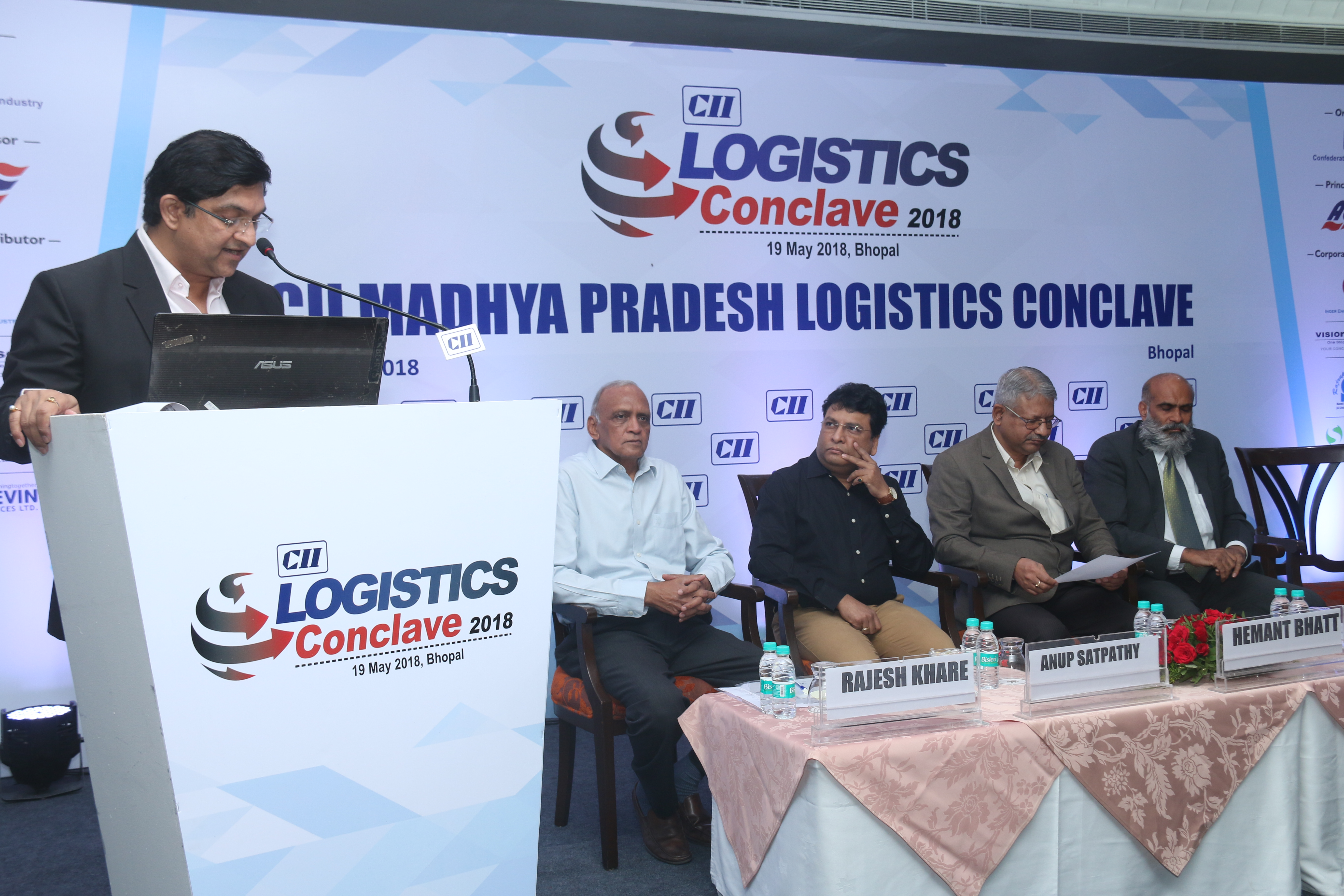
Confederation of Indian Industry organized 'Madhya Pradesh Logistics Conclave' on Saturday, 19th May 2018 bringing together the different stakeholders of Logistics Sector on a common platform with an aim to explore the way forward for Madhya Pradesh to become the hub of Logistics Services in India. Conclave also focused on strengthening industry's competitive edge through showcasing best practices in Logistics and Supply Chain sector.
"After one-nation-one-tax concept of GST, when there is no entry tax, the geographical location of Madhya Pradesh can be exploited for sending goods. MP can be envisaged as a transit point for moving goods from the point of manufacturing for further distribution in other states" said Mr. Hemant Bhatt, Chief Commissioner, Custom, Central Excise & GST, who was also the Chief Guest of the event.
Mr. Anup Satpathy, Chief General Manager, CONCOR also addressed the gathering and stressed upon need of improving infrastructure in state for making it the hub of logistics services and explained the current setup & services of CONCOR along with the future plans.
Dr. Ravi Chamaria, CEO Sofocle Technologies made a presentation on application of Blockchain technology across the Supply Chain ecosystem in Logistics Sector. He explained how technology would play a key role and help eliminate duplicative and error-prone transactions, while Mr. Kapil Premchandani, MD, K. D. Logistics showcased the future of Warehousing in current scenario. Mr. Apurva Mankad, Founder & CEO, WebExpress shared his views on India's dream of becoming Logistics Superpower and ways in which 'E-way Bill' and data goldmine from GST would support the same.
Mr. Rajesh Khare, Chairman, CII Madhya Pradesh State Council gave the inaugural address and said "Madhya Pradesh due to its strategic locational advantage and size in terms of population & geography has a huge requirement of transport & logistics services".
Conclave also witnessed a panel discussion on "Future of Logistics in an age of Digital Disruption" and received an overwhelming response by industries operating in Logistics sector across the Madhya Pradesh state.
Enforcement Directorate Summons Nirav Modi's Father, Sister, Brother-In-Law'
MMNN:19 May 2018

NEW DELHI: The Enforcement Directorate (ED) has issued summons to absconding diamantaire Nirav Modi's father Deepak Modi, sister Purvi Mehta and her husband Mayank Mehta as part of its probe in the multi-crore Punjab National Bank (PNB) fraud, an official said here on Friday. The fraud was committed during 2011-17 by illegally issuing Letters of Undertaking (LoUs) and Foreign Letters of Credit (FLCs).
Deepak, Purvi and Mayank have been asked to appear before the ED investigators at its Mumbai office to record their statements in the case as the agency is in the process of filing chargesheet in a special Prevention of Money Laundering Act (PMLA) court in Mumbai, expectedly by the next week.
ED investigators said Nirav Modi's relatives were summoned in the first week of this month and were given 15 days time to appear before it in the ongoing money laundering probe of over Rs. 13,000 crore SCAM. The alleged banking fraud was committed by the diamond merchant, his group of companies -- Diamond R US, Solar Exports and Stellar Diamonds -- alongwith uncle Mehul Choksi and others.
Further notices would be issued to the three in case they fail to respond to the first summons, an ED official told IANS on condition of anonymity.
Deepak is reportedly based in Antwerp in Belgium, while Purvi and her husband are settled in Hong Kong. "They were sent the summons through mail," the official said.
(Also Read: PNB Fraud Effect: Small Businesses Find Credit In Short Supply)
Purvi is under ED's radar for her alleged role in round-tripping of Nirav Modi's laundered money via Foreign Direct Investment (FDI) back to India while her husband is suspected of supporting the diamond merchant in similar operations.
The multi-crore fraud was committed in connivance with PNB's Mumbai Brady House branch officers between 2011-17.
The ED had started money laundering probe against Nirav Modi, his brother Nishal, wife Ami and others, based on the Central Bureau of Investigation's (CBI) FIR lodged on January 31, following PNB's first complaint against the businessman for allegedly cheating it of Rs. 280.70 crore.
ED investigators have claimed to have traced over Rs. 5,000 crore assets of Nirav Modi so far. The official said that the crores said to have been sent as FDI transactions from Singapore-based firm Islington International Pte Ltd, whose beneficiary owner is stated to be Purvi's husband, are doubtful in nature.
0
COMMENTSThe ED investigations is also based on Income Tax department's February report to the Central Board of Direct Taxes (CBDT) and the Union Finance Ministry against Nirav Modi and his uncle Choksi in which it is reportedly mentioned that nearly Rs. 4,900 crore transactions were unexplained.
'RCom-Ericsson Agreement Over Unpaid Dues Unlikely For Now'
MMNN:18 May 2018

MUMBAI: Embattled telecoms firm Reliance Communications is in talks with Ericsson to reach a settlement outside of bankruptcy court over unpaid service dues, but a deal with the Swedish gearmaker looks unlikely for now, two sources said. The bankruptcy court earlier this week admitted an insolvency plea filed by Ericsson against debt-laden RCom, as the company is widely known, potentially derailing the telecoms firm's plans to sell assets to larger rival Reliance Jio to cut debt.
RCom has approached Ericsson, but with a lack of clarity around payment of dues "a settlement currently looks uncertain," one of the sources familiar with the matter said.
Both sources, who asked not to be named as the discussions are private, said a settlement could be reached if RCom agrees to deposit outstanding dues before Ericsson withdraws its plea.
Shares in RCom rose almost 30 per cent on Friday on media reports of talks with Ericsson.
RCom did not immediately respond to a request for comment, while Ericsson said it does not comment on speculation.
Ericsson, which signed a seven-year deal in 2014 to operate and manage RCom's nationwide telecoms network, is seeking Rs. 1,155 crore from the company and two of its subsidiaries.
RCom, controlled by businessman Anil Ambani, late last year announced plans to sell most of its wireless assets to mobile carrier Reliance Jio in a deal sources said was worth about $3.8 billion. Jio, the telecoms venture of Reliance Industries, is controlled by Anil's elder brother, Mukesh Ambani.
With debt totalling Rs. 45,733 crore at end-March 2017, RCom is the most-leveraged of all listed telecoms carriers in India.
The order from the National Company Law Tribunal (NCLT) allowing Ericsson's insolvency plea against RCOM means RCom's sale, or liquidation in case a deal does not work out within a maximum of nine months, will be overseen by a court appointed administrator.
0
COMMENTSA lawyer for RCom previously told Reuters that the company would appeal the NCLT's decision at an appellate tribunal.
Sensex Closes 238 Points Lower, Nifty Gives Up 10,700; ITC Down Over 2%
MMNN:17 May 2018

The BSE Sensex fell 238 points to close at 35,149 on Thursday. National Stock Exchange (NSE) benchmark index Nifty declined 58 points to settle at 10,682. Declines were led by FMCG and energy stocks, with the NSE's sectoral indices dropping 1.3 and 0.8 per cent respectively. Doubts whether the Bharatiya Janata Party (BJP) could prove its majority in Karnataka weighed on investor sentiment. Top laggards on the Nifty 50 included ITC, Bharat Petroleum, Hindalco Industries, HDFC and Axis Bank, finishing with losses of around 2-3 per cent each.
Here are 10 things to know about Thursday's trading session:
1-Thirty six stocks on the 50-scrip Nifty index finished the day in the negative zone.
2-FMCG stocks fell, with the Nifty FMCG index settling 1.3 per cent lower for the day. ITC fell 2.4 per cent, a day after the country's largest cigarette maker posted a better-than-expected quarterly profit of Rs. 2,933 crore in January-March quarter. Dabur India finished 0.7 per cent lower while HUL declined 0.3 per cent.
3-Energy heavyweights Reliance Industries and BPCL finished with losses of 1 per cent and nearly 2 per cent respectively. Indian Oil closed 0.7 per cent lower.
4-Karnataka elections had a temporary effect on the markets, but macroeconomic factors such as the rise in crude oil prices and inflation will have a bigger say in the medium term, according to analysts.
5-State BJP president B S Yeddyurappa was sworn in as chief minister on Thursday morning even though his party fell short of an outright majority. He has now 15 days to prove his majority in the state legislative assembly.
6-Retail inflation accelerated for the first time in four months in April, suggesting the Reserve Bank of India may turn hawkish at its policy meeting next month.
7-"There are also concerns over foreign institutional investments," said Deepak Jasani, head of retail research at HDFC Securities.
8-Among finance stocks, HDFC fell 2 per cent, LIC Housing Finance 0.9 per cent and Muthoot Finance 1.3 per cent.
9-Tata Steel Ltd dropped 1.9 per cent, a day after the company posted a quarterly profit of Rs. 14,688 crore ($2.17 billion) on the back of a one-off pensions gain.
10-Equities in other Asian markets fell marginally. MSCI's broadest index of Asia-Pacific shares outside Japan was down 0.22 per cent.
ITC Q4 Profit Rises 10% At Rs. 2,933 Crore, Beats Estimates
MMNN:16 May 2018

Country's biggest cigarette maker ITC Ltd posted a better-than-expected quarterly profit on Wednesday, helped by a fall in excise duty.
Profit for the quarter ended March 31 came in at Rs. 2,933 crore ($432.44 million) from Rs. 2,669 crore reported last year, the company, which also makes biscuits and noodles under the Sunfeast brand, said.
Analysts on average expected a net profit of Rs. 2,845 crore, according to Thomson Reuters data.
0
COMMENTSRevenue from operations fell 28 per cent to Rs. 10,813 crore, while excise duty paid was down about 94 per cent.
Fraud-Hit Punjab National Bank Reports Huge Loss Of Rs. 13,417 Crore In Q4
MMNN:15 May 2018

Punjab National Bank (PNB) reported on Tuesday a $1.98 billion fourth-quarter net loss, the worst ever by an Indian lender, after being hit by a massive fraud. The loss for the three months to March 31 came in at Rs. 13,417 crore compared with a net profit of Rs. 262 crore a year ago, the fourth-biggest Indian lender by assets said in a statement. Shares in PNB fell 6 per cent after the results.
For the March quarter, the bank saw its total provisions more than triple from a year earlier to Rs. 20,353 crore. Of that Rs. 7,178 crore were due to the fraud, the bank said.
In what has been dubbed as the biggest fraud in India's banking history, PNB in February disclosed two jeweller groups had defrauded it of more than $2 billion, raising credit overseas with fake guarantees issued by rogue PNB staff.
Police on Monday charged 22 people, including a former head of PNB and two of its current executive directors. A source familiar with the matter said more people are likely to be charged later this week.
Gross bad loans as a percentage of total loans jumped to 18.38 per cent at end-March from 12.11 per cent three months earlier and 12.53 per cent a year ago.
As of Monday, the stock had tumbled about 44 per cent since the fraud came to light, and is the worst performer among all Indian bank stocks this year.
Government of Madhya Pradesh signs MoU with CII as National Partner"
MMNN:14 May 2018
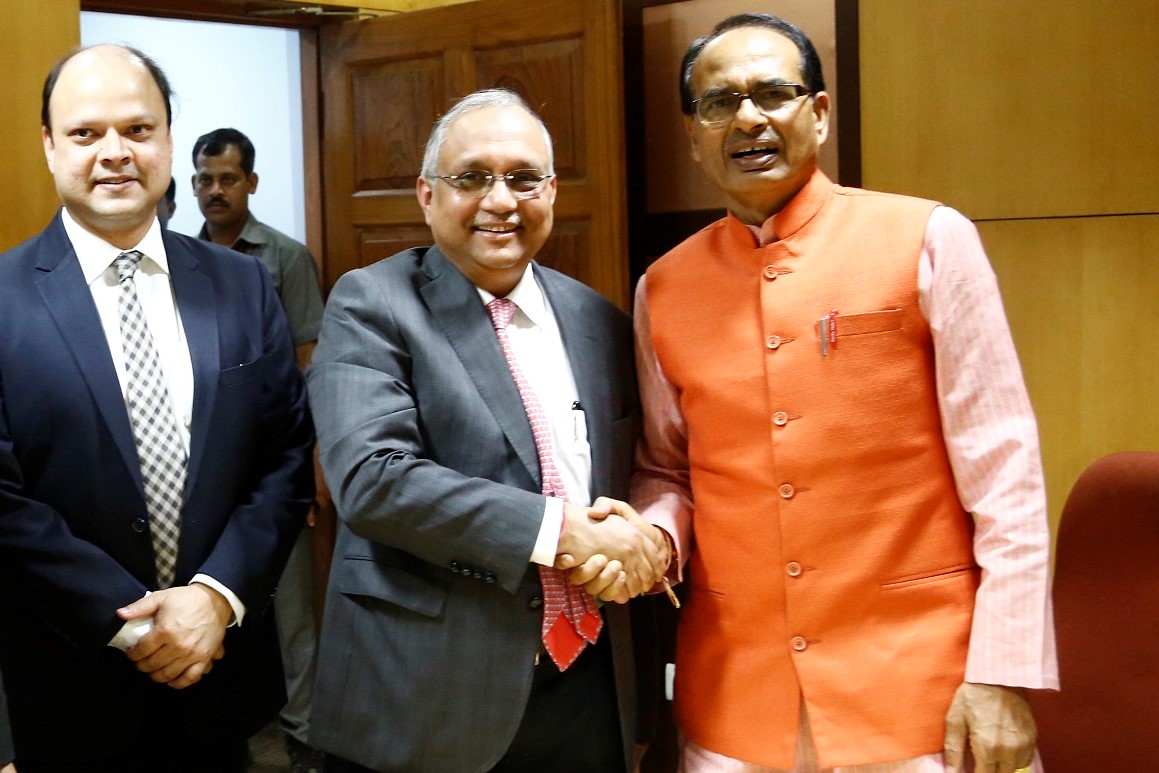
Government of Madhya Pradesh signed an MoU today with Confederation of Indian Industry (CII) to appoint CII as the National Partner of State Government for realising the vision of "Make in Madhya Pradesh'. As the National Partner, CII will help State Government in building and promoting the image of the State as a leading & preferred Investment destination in the country. CII will also work closely and advice the State Government for creating an enabling ecosystem for attracting investments in the State. Thought it's wide network and strong membership, CII will facilitate interactions with investors and provide handholding support.
As has been in the past, CII will partner and support the State Government in in organizing, managing and promoting the prestigious "Madhya Pradesh Global Investors Summit" which attracts a large congrgration of investors from within the country and abroad. The Global Investors Summit is scheduled in February 2019 at Indore. MoU was signed today in the presence of Hon'ble Chief Minister of Madhya Pradesh Shri Shivraj Singh Chouhan and Mr Chandrajit Banerjee, Director General, Confederation of Indian Industry (CII) at Bhopal.
Retail Inflation Accelerates To 4.58% In April As Prices Of Cereals, Meat, Fish, Fruits Harden
MMNN:14 May 2018

Annual consumer price inflation (CPI) accelerated to 4.58% in April, the government data showed on Monday. Retail or consumer inflation last month had eased for the third straight month to 4.28 per cent, driven by lower food prices. The government data, on Monday, also revealed annual wholesale price inflation (WPI) of last month that accelerated, facilitated by higher fuel and food product prices. Annual wholesale price inflation last month rose to 3.18 per cent from a year earlier, higher than a 2.47 per cent rise in March, and an increase of 2.86 per cent forecast by economists in a Reuters poll. Wholesale food prices in April rose 0.67 per cent year-on-year, compared with a fall of 0.07 per cent a month earlier, data showed.
0
COMMENTSAt the same time, India's industrial output growth released on Friday slowed to a 5-month low of 4.4 per cent in March, dragged down by smaller increases in mining, but the Reserve Bank of India (RBI) is expected to hold interest rates in its next policy meeting amid growing inflation concerns. The Reserve Bank of India, which is due to hold its next policy meeting on June 6, is widely expected to hold rates after having kept policy rates unchanged for the fourth straight meeting in April.
Economists surveyed by Reuters had forecast 5.9 per cent growth in output compared with a downward revised 7.0 per cent annual increase in February. Annual output growth was 4.3 per cent during the fiscal year that ended in March 2018, lower than 4.6 per cent in the previous year, data released on Friday by the Ministry of Statistics shows
Bad Loans Push Four Public Sector Banks To Combined $1.74 Billion Q4 Loss
MMNN:12 May 2018

Bengaluru/Mumbai: Four Indian state banks reported on Friday a combined net loss of Rs. 11,729 crore ($1.74 billion) for the fiscal fourth quarter due to a jump in bad-loan provisions following a tightening of central bank rules.
Bengaluru-headquartered Canara Bank Ltd, the biggest of the four, said its net loss was Rs. 4,860 crore for the three months to March 31, compared with a net profit of Rs. 214 crore a year earlier.
Allahabad Bank reported a net loss of Rs. 3,510 crore and UCO Bank a Rs. 2,134 crore loss. Dena Bank, the smallest of the four, made a net loss of Rs. 1,225 crore.
Indian banks, already burdened by a near-record Rs. 9.5 lakh crore of soured loans as of last year, were expected to report a further rise in bad loans in the March quarter after the central bank withdrew half a dozen loan-restructuring schemes and tightened some rules in February.
New Delhi owns majority stakes in 21 lenders that account for the bulk of the sector's bad loans, forcing the government to announce a $32 billion bailout package to help the lenders set aside funds for the soured loans and kickstart new lending.
Canara Bank's gross non-performing loans as a percentage of total loans rose to 11.84 per cent at the end of March, compared with 10.38 per cent in the preceding quarter and 9.63 per cent a year earlier. Provisions for non-performing assets almost tripled from a year earlier to Rs. 8,763 crore.
Allahabad, UCO and Dena also saw their bad loans and provisions for bad loans rise sharply in the quarter.
Union Bank of India, also state-run, reported on Thursday a Rs. 2,583 crore net loss for the fourth quarter.
1
COMMENTSTop state lenders State Bank of India, Punjab National Bank, Bank of Baroda and Bank of India are due to report fourth quarter results in the coming days.
Reliance Jio Announces Rs. 199 Jio Postpaid Plan With Zero-Touch Feature: 10 Points
MMNN:11 May 2018

Reliance Jio has announced new postpaid plans starting at Rs. 199 per month. Called "JioPostpaid", Reliance Jio's new postpaid plans will be available for subscription from May 15, 2018, the telecom company said in a statement. Reliance Jio has introduced a "zero-touch" feature for its Jio Postpaid plans, wherein all postpaid services such as voice, internet (data), SMS and international calling will be pre-activated, according to the company. Reliance Jio has also announced international calling from 50 paise per minute to Rs. 6 per minute under its new offerings. Reliance Jio has also announced MNP or Mobile Number Portability, wherein subscribers of other telecom operators can migrate to Reliance Jio without having to change their existing numbers.
Here are 10 things to know about Reliance Jio's new Rs. 199 plan:
1. Reliance Jio has announced a Jio Postpaid plan at Rs. 199 per month. This postpaid plan will come with unlimited voice calls and SMSes free of cost for the billing cycle, as well as 25 GBs of mobile data, among other benefits
2. This plan will be pre-activated for international calls. Subscribers will also be able to activate international roaming with "one click". Both services - international calling and international roaming - will be offered without any additional monthly charge or security deposit, according to Reliance Jio.
3. "JioPostpaid marks a paradigm-shift in the way postpaid services are offered and consumed, just like Jio did with its prepaid services," said Reliance Jio Infocomm, which offers telecom services under brand Jio.
4. Jio Pospaid series of plans are widely expected to trigger already high competition in the telecom sector, say analysts.
5. Jio Postpaid will "challenge the industry status-quo by offering the lowest tariffs in India and abroad to the postpaid users, who end up paying disproportionately higher as compared to the prepaid segment", the company said in its statement.
6. Reliance Jio has also announced international calling and international roaming tariffs for its prepaid and postpaid customers alike.
7. The latest entrant in the telecom sector has announced international roaming rates "starting at Rs. 2 - 2 - 2 for Voice - Data - SMS". That means subscribers will be able to make voice calls from Rs. 2 per minute, use data from Rs. 2 per MB, and send SMSes from Rs. 2 per unit on international roaming.
8. The Rs. 2 per unit services - for voice, data and SMS - are offered for international roaming in 33 countries, including the US, the UAE, the UK, Canada, New Zealand and the Netherlands, according to Reliance Jio. In 42 other countries, including Australia, China, Russia, Germany, Kuwait, Myanmar, South Korea and Spain, subscribers will be charged Rs. 10 per minute for calls, Rs. 10 per MB for data and Rs. 10 per unit for SMSes, it noted.
For international roaming, Reliance Jio has announced two options for customers. A customer can either choose from "unlimited data and voice packs" or enjoy the connectivity without opting for any pack.
10. Reliance Jio has introduced three new packs international roaming packs: Rs. 575, Rs. 2,875 and Rs. 5,751. The Rs. 575 pack will come with a validity of one day, the Rs. 2,875 pack with seven days and the Rs. 5,751 pack with 30 days. Among other benefits, while the Rs. 575 and Rs. 2,875 packs will come with 250 MBs of high speed data per day, the Rs. 5,751 pack will offer a total of 5 GBs of high speed data on international roaming. All three packs come with unlimited local voice calls (in foreign country) and SMSes. Subscribers, of any of the three packs, will continue to receive mobile data at a reduced speed of 64 Kbps after exhausting the quantity of high speed data prescribed.
Will "Brush Up Coding Skills": Co-Founder Sachin Bansal Who Quit Flipkart
MMNN:10 May 2018

Sachin Bansal, the group chairman of Flipkart, has announced his exit from the e-commerce company he co-founded in 2007. His exit comes in the wake of US retail giant Walmart announcing a deal to acquire Flipkart. "Sadly my work here is done and after 10 years, it's time to hand over the baton and move on from Flipkart. But I'll be watching and cheering from the outside - Flipsters, you better continue to do a good job!" Mr Bansal said in a Facebook post.
On his future plans, Mr Bansal said: "I'll be taking some long time off and focus on finishing a few personal projects which I haven't been able to find time for. Will catch up on gaming (and see what kids are playing these days) and brush up on my coding skills." Sachin Bansal's decision to exit Flipkart after its takeover by Warlmart was a "very emotional moment", said the company's co-founder Binny Bansal.
Before the deal, Sachin Bansal and the other co-founder Binny Bansal each owned about 5 per cent in the e-commerce company, and the Walmart deal should give each a fortune of about $1 billion, news agency Bloomberg had reported earlier.
India's biggest e-commerce marketplace was founded in 2007 in Bengaluru by Sachin Bansal and Binny Bansal, both former employees of Amazon. The Bansals met in 2005 at the Indian Institute of Technology, Delhi (IIT-Delhi).
Flipkart at first sold books, and later expanding to sell music, movies, games, electronics and mobiles, the category that has driven growth. The first book it sold was John Wood's 'Leaving Microsoft to Change the World'. It launched logistics arm Ekart in 2010 and started the now popular cash-on-delivery service.
On his Flipkart journey, Sachin Bansal said: "Flipkart truly upheld audacity and customer centricity and I got to work with the best people. We took on some of the biggest challenges and solved many complex problems for India."
In 2016, Binny Bansal took over as CEO and Sachin Bansal became executive chairman. Last year, Kalyan Krishnamurthy, previously an executive in Flipkart investor Tiger Global, took over as Flipkart CEO. Binny Bansal became CEO of the whole group, which includes fashion portals Myntra-Jabong, payments unit PhonePe and logistics firm Ekart.
Walmart announced on Wednesday that it was paying $16 billion for a roughly 77 per cent stake in the Indian online marketplace - the US retailer's biggest deal ever.
The remainder of the business will be held by some of Flipkart's existing shareholders, including Flipkart co-founder Binny Bansal, China's Tencent Holdings Ltd, Tiger Global Management LLC and Microsoft Corp.
4
COMMENTSUnder the Walmart deal, Sachin Bansal and another shareholder Japan's Softbank Corp Group are exiting from the e-commerce company, news agency Press Trust of India had reported earlier.
Walmart also that the deal included $2 billion of funding from new equity in Flipkart, which could be sold to additional investors in the future, diluting the US company's overall stake.
Walmart Is Purchasing Flipkart, Says SoftBank CEO: Report
MMNN:9 May 2018

US-based Walmart is purchasing Flipkart, news agency Reuters cited Masayoshi Son, CEO of Japan-based SoftBank, as saying. The Walmart-Flipkart deal was sealed on Tuesday night (Japan Time), Mr Son said on a conference call after SoftBank reported earnings, adding that its investment in the Indian online marketplace had almost doubled. Sources have previously told the agency that SoftBank would completely sell its shares in Flipkart to Walmart. The deal, likely to value Flipkart roughly at $18-20 billion, is likely to be the US retail giant's biggest acquisition, news agency Reuters had reported earlier. Google parent Alphabet Inc is likely to partner Walmart in the deal. Walmart is likely to own a roughly 60 per cent stake, while Alphabet will get about 15 per cent ownership of Flipkart, the report said, citing sources.
Here are 10 things to know:
Flipkart was founded in 2007 in Bengaluru by Sachin Bansal and Binny Bansal, former employees of Amazon.
The first billion-dollar Indian e-commerce company, Flipkart, sells 8 million products across 80-plus categories. It has 100 million registered users.
Japan's SoftBank Group Corp owns a fifth of Flipkart through its Vision Fund. Other major investors in Flipkart include Tiger Global, Naspers and Accel while the Bansals own just over 5 per cent each of the company, according to data from business intelligence platform paper.vc.
Last year, Kalyan Krishnamurthy, previously an executive in Flipkart investor Tiger Global, took over as Flipkart CEO. Binny Bansal became CEO of the whole group, which includes fashion portals Myntra-Jabong, payments unit PhonePe and logistics firm Ekart.
India's e-commerce market is tipped to grow to $200 billion in a decade, according to global financial services company Morgan Stanley, as cheap mobile data makes online shopping increasingly accessible.
Flipkart controls nearly 40 per cent of India's online retail market, according to estimates by researcher Forrester.
Flipkart, which is competing with Amazon.com Inc for market share in India's e-commerce market, gained online fashion market dominance with the 2014 acquisition of Myntra, which subsequently bought rival Jabong.
Meanwhile, Amazon - Flipkart's biggest rival in India - has committed to invest over $5 billion in India. Amazon's founder Jeff Bezos told shareholders in a recent letter that Amazon India is the fastest growing marketplace in the country. He said Amazon added more members to its Prime loyalty programme in India in its first year, than any previous geography in Amazon's history.
For Walmart, the Flipkart deal will deliver a big advantage in terms of presence in the Indian e-commerce market. Flipkart will benefit from deep pockets of Walmart as well as the US retail giant's decades of retailing expertise in skills from logistics to marketing.
India is the next big potential prize for global retailers after the US and China, where foreign retailers have made little progress against Alibaba Group Holding.
ICICI Bank Share Prices Surge 9% Today. Should You Buy?
MMNN:8 May 2018

Shares of ICICI Bank surged nearly 9 per cent today to Rs. 314.50 despite the private lender reporting its smallest quarterly profit in two years. ICICI Bank's net profit for its fiscal fourth quarter to March 31 almost halved to Rs. 1,020 crore, which was mostly in line with expectations. The Reserve Bank of India (RBI) in February did away with half a dozen loan restructuring schemes in a surprise move to hasten a clean-up of near-record levels of soured loans and tightened some other rules, which has led to banks disclosing more bad loans in the March quarter.
Many brokerages retained their 'buy' rating on the stock citing a significant decline in the "drilldown" list of potential troubled loans. The bank's drilldown list i.e. below investment grade exposure in key sectors identified earlier and promoter entities decreased from Rs. 44,065 crore at March 31, 2016 to Rs. 4,728 crore at March 31, 2018, it said.
Domestic brokerage Elara Capital has an "accumulate" rating on ICICI Bank shares, saying "loan book cleansing approaching an end". Another brokerage Edelweiss, which also has a "buy" rating on ICICI Bank shares said: "Upfront stress recognition, as anticipated, took the sheen off ICICI Bank's otherwise operationally steady Q4." Edelweiss has a target price of Rs. 370 on ICICI Bank shares.
HDFC Securities has maintained "buy" rating on ICICI Bank shares with a target price of Rs. 377."We believe the stress recognition process for ICICI Bank is nearing completion," the brokerage said.
ICICI's long-serving Chief Executive Chanda Kochhar said the focus is turning to recovery and resolution and the private lender would aim to lower its net non-performing loan ratio to 1.5 percent in two years from 4.77 percent at the end of March. "We believe that since a lot of the stress has already been recognised, going forward, in fact, our focus will be on recovery and resolution," she said.
She also outlined other medium-term goals for the bank such as growing retail loans to more than 60 per cent of total loans, bringing down overseas loans to less than 10 per cent, and boosting the provision coverage ratio of the bank to 70 per cent by March 2020.
The new RBI rules on bad loans led to Rs. 9,968 crore of bad loans being added to its pile in the March quarter, ICICI Bank said. Including other bad loans, the gross non-performing loan ratio shot up to 8.84 per cent from 7.82 per cent at the end of December. The net NPA ratio was 4.77% at March 31, 2018.
Domestic loans were up 15 percent year-on-year at the end of March, and the chief executive said the aim would be to increase the overall domestic loan book by 15 per cent a year, with retail loans growing at above 20 percent until March 2020.
0
COMMENTSLast month, Axis Bank posted its first ever quarterly loss last month as its bad loans surged. ICICI Bank shares settled 7 per cent higher at Rs. 309 as compared to a flat closing in Mumbai market.
At 12:43 pm, shares of ICICI Bank were up 8 per cent to Rs. 312 as compared to a marginal gain in Nifty.
PC Jeweller Share Price Jumps 2.5 Times In Just 3 Days, From Its 52-Week Low
MMNN:7 May 2018

Shares were PC Jeweller were sharply up today, continuing their recovery from 52-week lows hit last week. PC Jeweller shares rose as much as 38 per cent to Rs. 240.30 at their day's high today. Share prices of the jeweller hit a 52-week low of Rs. 95.05 during intra-day trade on May 3. The latest trigger for the rebound in PC Jeweller shares is the advancement of its board meeting to consider share buyback. In a communication to exchanges, PC Jeweller said a separate meeting of its board will be held on Thursday, May 10, to consider the proposal for buyback of fully paid-up equity shares of the company.
PC Jeweller also reiterated that its board will meet on May 25 to consider financial results and recommendation of dividend.
Last month, on April 29, 2018, PC Jeweller had in a communication to exchanges said that a board meeting of the company will be held on May 25 to consider and approve the financial results, consider recommendation of dividend and consider the proposal for buyback of fully paid-up equity shares of the company.
PC Jeweller share prices have been under pressure since hitting a 52-week high of Rs. 600.65 in January this year.
Last week, BSE had sought clarification from the company with reference to news reports that CBI has arrested the owner of PC Jeweller. Later, in a clarification issued to BSE, the company said: "We would like to clarify that the news item is factually incorrect."
0
COMMENTSIn the same clarification, PC Jeweller also said that "we would like to assure our investors, shareholders and other stakeholders that there is nothing wrong with the company and its operations, the fundamentals of the Company remain strong and it continues to move ahead on growth path."
At noon trade, PC Jeweller share prices were up 33 per cent to Rs. 233 as compared to a 0.44 per cent gain in Sensex.
Sebi Allows Exchanges To Extend Trading Hours For Derivatives Till 11:55 PM
MMNN:4 May 2018

Mumbai: The Securities and Exchange Board of India (SEBI) on Friday said that it has permitted stock exchanges to extend trading hours for the equity derivatives segment from October 1, 2018.
According to a SEBI cicular issued on Friday, stock exchanges have been allowed to set their trading hours between 9 a.m. and 11.55 p.m., similar to the trading hours for the "Commodity Derivatives Segment".
Currently, trading on the equity derivatives segment takes place from from 9.15 a.m. till 3.30 p.m.
Presently, the trading hours of "Commodity Derivatives Segment" has been fixed between 10 a.m. and 11.55 p.m. provided that "stock exchange and its clearing corporation(s) have in place risk management system and infrastructure commensurate to the trading hours".
The development comes after SEBI in December 2017 allowed stock exchanges to trade commodity derivatives along with other segments of securities market effective from October 1, 2018.
0
COMMENTSBesides, the cicular said that those stock exchanges which "are desirous of extending the trade timings beyond the extant trading hours, prior approval from SEBI shall be sought along with a detailed proposal including the framework for risk management, settlement process, monitoring of positions, availability of manpower, system capability, surveillance systems, etc".
PM Modi's Big Fix For Gaps In India's Job Data
MMNN:3 May 2018

For those trying to solve the Indian economy jigsaw puzzle, reliable jobs data has been one crucial missing piece. Prime Minister Narendra Modi has a plan to fix that defect.
The government is set to map employment in the economy's vast informal sector when the labor ministry starts publishing quarterly surveys on jobs in about a year's time, covering enterprises with less than 10 people, including those who are self-employed. These are businesses that are typically cash-based and don't pay tax.
"It's a huge survey and takes the entire country into account," B.N. Nanda, senior labor and employment adviser in India's labor ministry, said in an interview at his office in New Delhi last week. "This will be the first informal sector data from the government, enterprise-wise
With more than 90 percent of India's labor force estimated to work in the informal economy, a lack of periodic and credible data in this sector makes it difficult to assess the impact of policy actions and measure true growth.
Multiple data sets for formal jobs point in different directions, giving the perception that PM Modi has failed to generate employment. That's denting his popularity among young voters ahead of next year's election. He swept to power in May 2014 with the biggest electoral mandate in three decades after promising to create 10 million jobs each year for the country's burgeoning youth population.
About 12 million young people are set to enter the workforce every year in Asia's third-largest economy over the next two decades. The World Bank says India must create 8.1 million jobs a year to maintain its employment rate.
The state of joblessness is so dire that over 28 million people applied for about 90,000 vacancies this year at Indian Railways, the country's biggest employer, while engineers and lawyers vie for low-skilled jobs in the government.
Labyrinth
Much of the government's annual jobs data based on household surveys, which also captures the informal sector, is dated. The survey published for 2015-16 put the unemployment rate at 3.7 percent. The labor bureau will soon publish the data for 2016-17 -- after a lag of two years -- and has discontinued any more surveys, Nanda said.
The organized sector, for which data is available from multiple sources, creates some confusion. The labor ministry's figures released in March show India added 136,000 workers across eight sectors in the quarter starting July 2017, against 64,000 additions in the previous quarter.
The first set of data released by social security organizations in April showed over 3.5 million new payrolls were generated in the six months through February. The government said it's an "eye opener" and puts an end to "speculations and conjectures regarding job creation."
Bleak Picture
But not everyone bought the argument because payroll data could be more of a reflection of a formalization of jobs rather than a creation of new jobs.
"This, of course, is not employment data," Mahesh Vyas of the Centre for Monitoring Indian Economy Pvt., a business information company, wrote in a column published on CMIE's website. "Growth in EPFO enrollments largely reflect the conversion of hitherto informally employed people into formal employment," he said, referring to the Employees' Provident Fund Organization data on payroll.
Private surveys paint a bleak picture. India's jobless rate rose to 6.23 percent in March from 6.06 percent in February -- the highest monthly rate in the past 15 months, data from CMIE show.
The statistics office has also started conducting surveys for generating estimates of various labor force indicators on a quarterly basis for urban areas and an annual basis for rural. The results of the surveys will be published this year.
1
COMMENTSThe economy, which saw world-beating growth prior to a surprise cash ban in 2016, is forecast to have slumped to a four-year low of 6.6 percent in the fiscal year 2018 that ended March 31. Unemployment remained high even during the boom years and that led to PM Modi's opponents concluding that the $2.3 trillion economy was seeing jobless growth. The International Monetary Fund sees India's economic growth at 7.4 percent in fiscal year 2019.
"I don't believe in all this talk about jobless growth because your economy cannot grow at 7.4 percent without employment," said Nanda. "If productivity has not been spectacular and capital growth isn't remarkable the growth is basically coming from employment."
Amazon Offers To Buy 60% Stake In Flipkart: Report
MMNN:2 May 2018

Amazon.com Inc has made a formal offer to buy a 60 per cent stake in online retailer Flipkart, CNBC-TV18 reported on Wednesday, citing sources.
Amazon also offered Flipkart a breakup fee of $2 billion and is likely to be on par with Walmart Inc's bid for the e-commerce company, CNBC TV-18 reported.
Flipkart's investors and founders are in favor of the deal with Walmart, with founder Sachin Bansal overseeing final negotiations with Walmart, CNBC-TV18 said.
Amazon is also seeking a non-compete agreement with Flipkart's founders, the report added.
Reuters in April reported that Walmart was likely to reach a deal to buy a majority stake in Flipkart by the end of June.
A deal with Flipkart would step up the Walmart-Amazon battle for a bigger share of the fledgling e-commerce market, which Morgan Stanley estimates will be worth $200 billion in a decade.
The Walmart global team may come to India soon to close the deal, the report added.
A spokesman for Walmart declined to comment, while Amazon said it does not offer comments on rumours and speculation.
0
COMMENTSFlipkart did not immediately respond to an email seeking comment.
1 Billion Dollars Is What Facebook Executive Will Lose If He Leaves Early
MMNN:1 May 2018

Jan Koum's exit from Facebook Inc. could prove costly. A speedy departure may prevent him from collecting as much as $1 billion in stock awards.
The chief executive officer of messaging unit WhatsApp confirmed in a Facebook post Monday afternoon that he was leaving the company. The announcement comes before the final three vesting dates of restricted stock unit awards tied to Facebook's $22 billion purchase of WhatsApp in 2014.
Koum, 42, got about 24.9 million restricted shares as part of the deal. The stock vests in increments until late 2018, with 1.9 million shares due to vest in mid-May and mid-August, plus a final tranche of 2.1 million set to be issued in November.
The awards are contingent on him still being employed through those dates. He would forfeit 5.8 million shares, worth $997.5 million as of Monday's close, if he left before May 15, unless his exit is categorized as an involuntary termination or a good-reason resignation, regulatory filings show.
The precise circumstances of his departure aren't yet clear. Facebook declined to comment on Koum's departure date.
The Washington Post reported earlier that Koum is exiting the company after clashing with Facebook over strategy, and that he also plans to leave the board. The other co-founder of WhatsApp, Brian Acton, also left recently -- and last month posted the #DeleteFacebook hashtag during the social network's scandal over user privacy.
Koum's decision may be made easier thanks to the $10.4 billion fortune he's already accrued, according to the Bloomberg Billionaires Index. He's already sold $8 billion worth of Facebook stock since 2015, according to data compiled by Bloomberg.
0
COMMENTS"It is time for me to move on," Koum said in the post. "I'm taking some time off to do things I enjoy outside of technology, such as collecting rare air-cooled Porsches, working on my cars and playing ultimate Frisbee.
RBI lifts key restriction on foreign investors in bond market
MMNN:28 April 2018
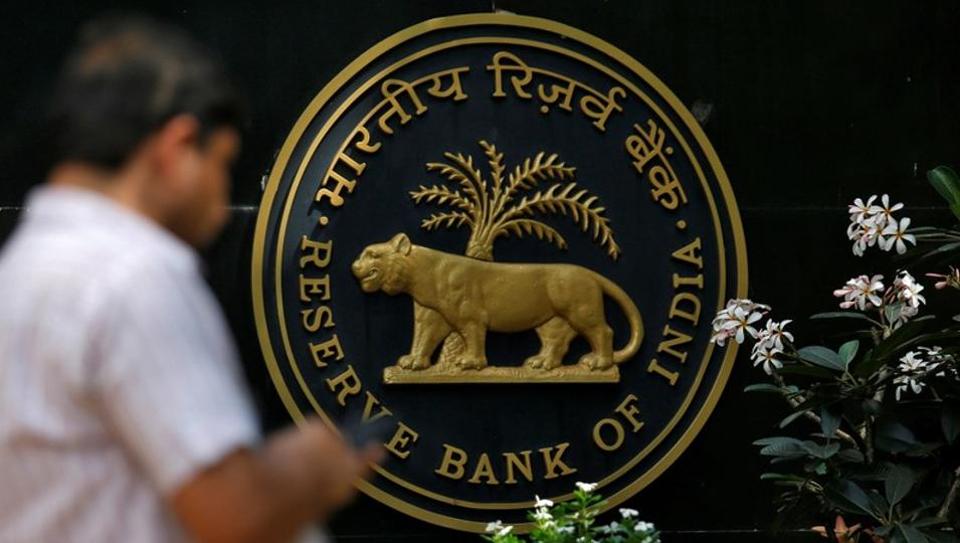
The Reserve Bank of India (RBI) said it is withdrawing a restriction that limited foreign investors to only investing in government and corporate bonds with tenures of three years or more, a move that could bolster the domestic bond market.
The decision by the RBI, announced late on Friday, came close on the heels of weak investor interest in two recent auctions that led to a spike in sovereign debt yields.
At Thursday's auction of a 7.37 percent 2023 bond, the Reserve Bank of India was only able to sell about Rs 430 million out of the 30 billion on offer into the market, with the remainder having to be bought by primary dealers.
Fitch Holds India's Sovereign Rating At Lowest Investment Grade
MMNN:27 April 2018

Global credit rating agency Fitch on Friday affirmed India's sovereign rating at 'BBB-' with 'stable' outlook, saying that the country's medium-term growth potential is strong. 'BBB-' rating indicates lowest investment grade.
"India's rating balances a strong medium-term growth outlook and favourable external balances with weak fiscal finances and some lagging structural factors, including governance standards and a still-difficult, but improving, business environment," Fitch said.
It projected India's growth at 7.3 per cent in the current fiscal year and further to 7.5 per cent in 2019-20. Growth is projected to be 6.7 per cent in the last fiscal year, which ended on March 31, 2018.
The Stable Outlook reflects Fitch's assessment that upside and downside risks to the ratings are broadly balanced," Fitch said.
The Fitch review for annual sovereign rating follows India's rating upgrade by Moody's after a gap of 14 years. S&P had retained the earlier rating.
Fitch said India's fiscal finances are weak but current account deficit position is favourable.
Per capita GDP is the lowest among 'BBB' range peers and continued structural reform implementation should enhance productivity.
"India has the highest medium-term growth potential among the largest emerging markets," according to Fitch analysis.
0
COMMENTSFitch had assigned the rating to the country 11 years ago
Fitch had last upgraded the rating from 'BB+' to 'BBB-' with stable outlook on August 1, 2006. Later, it changed the outlook to negative in 2012 and then again to stable in the following year, though it kept the rating unchanged at the lowest investment grade.
H-1B Visa Approvals For Indian IT Companies Drop Sharply: Report
MMNN:26 April 2018
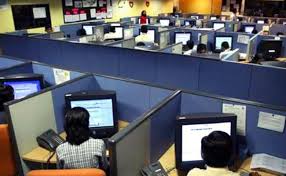
Washington: Top seven Indian IT companies experienced a whopping 43 per cent drop in their H-1B visa approvals between 2015 and 2017, a US think-tank has said. The National Foundation for American Policy has said in a report that the 8,468 new H-1B visas for India-based companies in the financial year 2017 equalled only 0.006 per cent of the 160 million in the US labour force. The top seven India-based companies received only 8,468 approved H-1B petitions for initial employment in FY 2017, a decline of 43 per cent for these companies since FY 2015, when it received 14,792 H-1B visas.
Given that 1,99,000 applications were filed in FY 2017 for the FY 2018 cap year, 105,000 in excess of the FY 2018 H-1B annual limit, even if none of these companies received new H-1B visas the annual limit still would have been reached on the first day of the April filing period, it said.
"The data indicate the problem is not which companies are receiving H-1B visas, which some contend, but that the 85,000-annual limit is too low for an economy the size of the United States," it argued.
Based on the H-1B visa data obtained from the US Citizenship and immigration Services (USCIS), the foundation said that the Tata Consultancy Services (TCS) received 2,312 H-1B visas in 2017 as against 4,674 in 2015, registering a drop of 51 per cent.
Infosys, during the same period saw a whooping drop of 57 per cent from 2,830 in 2015 to 1,218 in 2017. Wipro received 1,210 H-1B visas in 2017 as against 3,079 in 2015. Among the seven India-based companies the H-1B approval of Tech Mahindra went up from 1,576 in 2015 to 2233 in 2017.
In its analysis, the National Foundation for American Policy said that the drop in H-1B visas for India-based companies is due to industry trends toward digital services such as cloud computing and artificial intelligence, which require fewer workers, and a choice by companies to rely less on visas and to build up their domestic workforces in the United States.
In most cases, companies require fewer people per project, it argued.
Also, like all companies, including US companies, restrictions on visas may result in more work being performed outside the US, which is the unintended consequence of many immigration restrictions in a global economy. India-based companies, of course, must compete for the same relatively limited pool of tech talent in the US as other companies, it said.
The foundation said, corporate clients of both the US and India-based IT services companies are requesting digital engineering and more sophisticated services, including better data analysis, that require fewer workers and more advanced technology, and this is reflected in the H-1B visa numbers.
While Cognizant, an IT services company headquartered in Teaneck, New Jersey, had the most H-1B petitions approved for new employment in FY 2017, with 3,194, that represented a decline of 800 approved petitions, or 25 per cent from FY 2016.
0
COMMENTSFurther, five of the seven top India-based companies saw declines in FY 2017 from FY 2016 Infosys, Wipro, HCL America, Larsen & Toubro and Mindtree.
Only TCS, with an increase of 13 per cent, and Tech Mahindra, which increased by 42 per cent, had more H-1B petitions for initial employment approved in FY 2017 than in FY 2016, it said.
Wipro March Quarter Profit Declines 20%, Misses Estimates
MMNN:25 April 2018

Wipro Ltd, India's third-biggest software services exporter by revenue, on Wednesday posted lower-than-expected fourth-quarter net profit, hurt by lower revenue from operations. The IT firm said it expected revenue from IT services to be in a range of $2.02-$2.07 billion in the June quarter. Net profit fell 20.3 per cent to Rs. 1,803 crore ($269.99 million) in the three months ended March 31, Bengaluru-headquartered Wipro said on Wednesday.
Analysts on average expected a profit of Rs. 2,132 crore, according to Thomson Reuters data.
Revenue from operations fell 1.6 per cent to Rs. 13,769 crore, while revenue from its key IT services business rose 5.5 per cent to $2.06 billion, in the range forecast by Wipro.
Wipro warned earlier this month an insolvency petition filed by an Indian telecom client on February 28 would hit net income by between 65 and 75 basis points. Though mobile carrier Aircel has filed for bankruptcy amid a price war triggered by a telecoms upstart, Wipro did not name the client.
Bigger rivals Tata Consultancy Services and Infosys Ltd posted rises in fourth-quarter profit earlier this month.
Infosys CEO Salil Parekh Reveals Three-Year Transformation Plan's new office premises at Bhopal
MMNN:24 April 2018
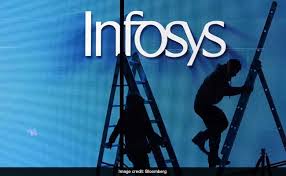
Global software major Infosys will invest more in digital technologies to drive business and look for strategic inorganic acquisitions. "As digital is not just about technologies but driving business outcomes, we will invest more in it as we are well positioned in it (digital)," Infosys Chief Executive Salil Parekh told analysts at a meeting. Presenting the company's strategic direction, Mr Parekh said there was tremendous loyalty and expectation from the clients on digital future.
"As lot of core areas needed digitsation, we are working on them," he noted.
The company has drawn a three-year road-map to achieve its digital goals - to stabilise the company in the first year, start the momentum in the second year and accelerate where it can have more share of clients' relevance in the third year.
(Read | "Most Bullish In A Decade" On Indian IT: Why Some Analysts Are Positive)
Admitting that the company had built its strategy on what the clients were telling its executives, Parekh said there was a huge growth in digital, which was a disruption in the IT industry through technology.
"We are not only digitising core areas, but also combining all our services to drive business outcomes for our clients instead of merely selling technologies or services," said Mr Parekh
The Bengaluru-based company plans to scale its digital business, which contributed $2.8 billion in fiscal 2017-18, energise its clients' core technology landscape via artificial intelligence (AI) and automation, re-skill its techies and expand its localisation in Australia, Europe and the US.
"Navigating Your Next' is our aspiration of how we will partner with each one of our clients", Mr Parekh said in a statement on April 13 after declaring the company's financial results for the last fiscal (FY 2018).
Digital offerings contributed 25.5 per cent ($2.79 billion) to the company's annual revenue of $10,939 million in fiscal 2017-18.
The company added 73 clients during the quarter, taking the total to 1,204 for the year from 1,191 quarter ago and 1,162 year ago.
Mr Parekh also spoke on the four pillars of the company's new business strategy - scaling up of its agile businesses, which brings more relevance to the future of its clients; energising core of AI; re-skilling employees to move into data and cloud and a localisation into its markets such as the US, Europe, Australia.
"We are ready with a digital framework for clients and have built a pentagon of five dimensions for digital business," said Parekh.
According to the company's estimates, market opportunities in digital are at about $160 billion and growing at 15 per cent or more.
"We are going to first scale our agile digital, helping our clients go on their digital journey, which is a large market," he added.
Infosys has projected a robust revenue growth of 9 per cent in dollar terms for the fiscal 2018-19 despite its net profit declining 28 per cent sequentially in the fourth quarter of the fiscal 2017-18.
2
COMMENTS"Consolidated revenues are expected to grow 7-9 per cent in dollar terms and 8.2-10.2 per cent in rupee terms for fiscal 2018-19," the company said on April 13 while announcing its financial results for FY2018.
Shri Rajendra Shukla inaugurates CII's new office premises at Bhopal
MMNN:23 April 2018
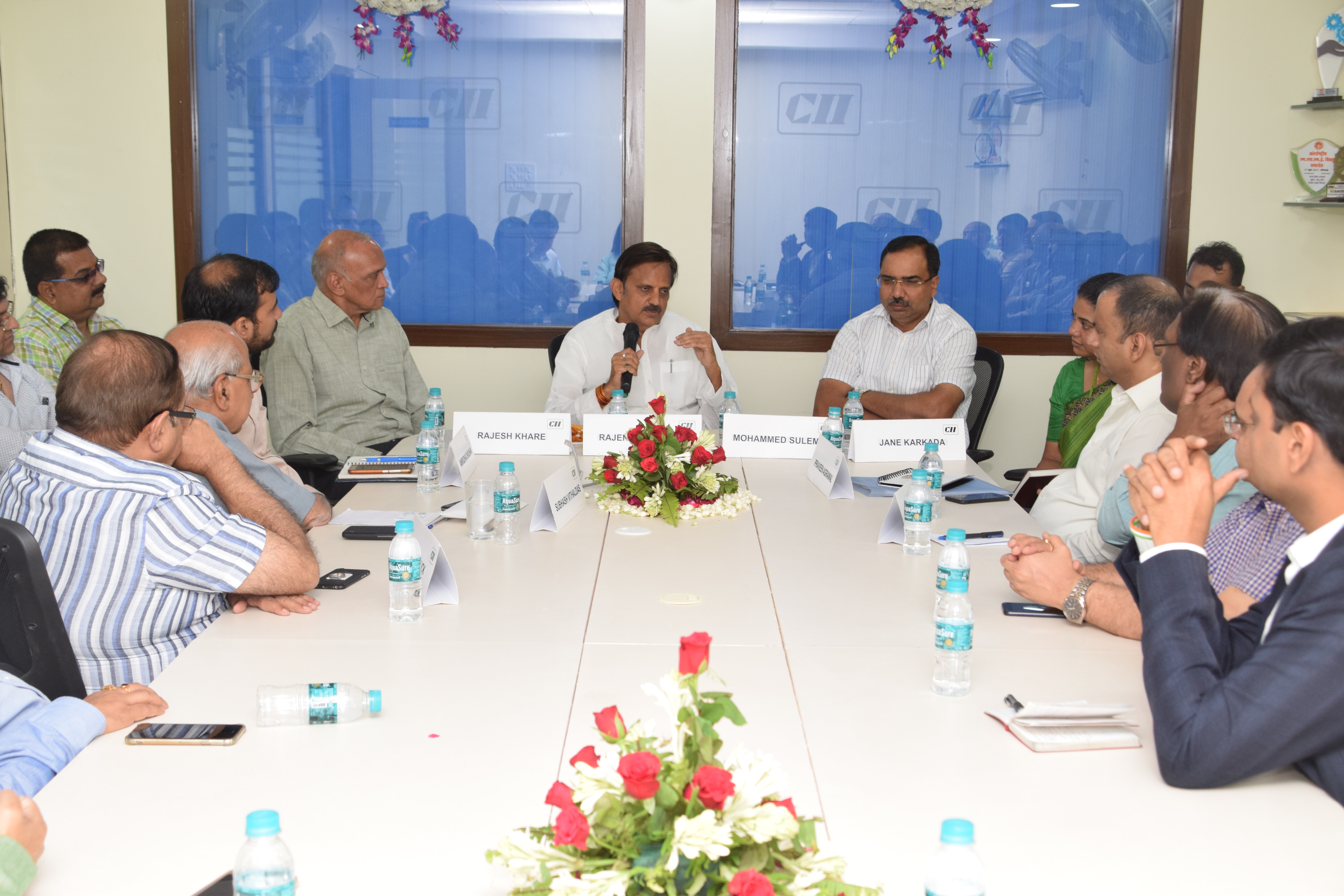
Hon'ble Industry Minister, Shri Rajendra Shukla inaugurated the new office premises of CII Madhya Pradesh at ISBT Complex, Bhopal. CII also organized an interaction of industry members with Hon'ble Industry Minister & Mr. Mohammed Suleman, Principal Secretary, Department of Industrial Policy Investment Promotion in the backdrop of inaugural function.
Mr. Rajesh Khare, Chairman, CII MP State Council welcomed Hon'ble Minister and presented CII's agenda for the year 2018-19. He informed that CII would be working on infrastructure development in the state including creating MP as logistics Hub, enhancing Air Connectivity of state, developing Skill Development centres and preserving Environment.
Hon'ble Minister in his address shared his vision for industries and informed industry members on the key development in the state. He assured CII for all the help required in setting up of Multi Skill Centres at Budhni & Rewa districts. He informed that MP is the only state complying with all the 372 points on the Government of India agenda on EODB. He also addressed the issues related to development charges levied on industries and refund of IIPA assistance.
Programme received an overwhelming response and more than 40 industry heads participated in the programme.
Is Jio Really Profitable? Audit To Answer Doubts And Controversies
MMNN:23 April 2018
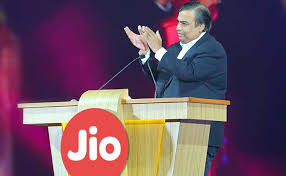
A smartphone in India cost more than $200 just two years ago. Now you can get a decent phone for nothing but a refundable deposit of $23. Data packages are cheap, and a startup company even throws in free voice calls for life. For this, consumers can thank Mukesh Ambani, a 61-year-old petrochemicals titan who is the country's richest man. From his perch overseeing Reliance Industries Ltd., one of India's largest conglomerates, Ambani has plowed more than $38 billion into his wireless entry, Reliance Jio Infocomm Ltd. It's a classic business disruption. Jio has quickly garnered 14 per cent of a market that is expanding rapidly, putting pressure on other mobile phone providers.
Along the way, virtually every promise Ambani made about the company's performance in the marketplace has held up, from inexpensive Jio handsets to state-of-the-art wireless connections.
But one claim merits a closer look: that Jio has been profitable virtually from its commercial launch. And it's a worthwhile exercise, given talk of a possible initial public offering for the unit or even an acquisition.
Unusual Accounting
A review of Jio's unaudited results for the last year shows that the wireless venture and its parent relied on a series of accounting decisions that wound up portraying Jio's financial performance in the best possible light.
Analysts have previously noted some anomalies in Jio's accounting, like the inclusion of six months of revenues in a three-month reporting period.
Another accounting decision reveals even more. Jio took advantage of a rule that allowed it to burn through billions of dollars in expenses during its rollout period without the costs showing up on its income statements.
Jio's auditor, Deloitte Haskins & Sells LLP, an Indian affiliate of Deloitte LLP, is conducting its annual review of Reliance's numbers. Audited results for the year ended March 31 are expected to be disclosed this week, for Jio as well. It will be the first time Deloitte has audited Jio's sales.
Jio will either get Deloitte's blessing or be pushed closer to norms in international financial reporting. A wholesale change is not expected, but any shift in approach could puncture the profitability story that Reliance has been trumpeting in India.
"I'm curious to see if Deloitte pushes back on some of management's aggressive estimates," said James Cox, a professor at Duke University School of Law and an adviser to the US regulator that oversees auditors.
Deloitte officials declined to comment.
'No Ambiguity'
A Jio spokesman said in a written statement: "The accounting statements of Jio are based on the applicable Indian Accounting Standards. The accounting treatment has been reviewed and approved by the audit committee of the company and also reviewed by the auditors. Significant accounting policies of the company are described in detail, along with the financial statements issued by the company, and there is no ambiguity involved in the manner that the accounts are prepared."
The vast majority of stock analysts who follow the conglomerate consider it a good investment. Reliance's shares, having languished for several years, took off in early 2017 after it said Jio would emerge from its trial period and begin charging for service. The shares have almost doubled since then.
I'm baffled by Jio's numbers," said Sanjiv Bhasin, executive vice president at India Infoline Ltd., a brokerage firm. "They are difficult to believe, but at the end of the day Jio is part of Reliance, which has a very strong balance sheet."
Jayanth Varma, an accounting professor at the Indian Institute of Management Ahmedabad, without referring specifically to Reliance, said that in India, "accounting quirks will pass through" when auditors don't push back. "In US, there is a lot of discipline because the SEC just picks up the annual reports of some companies by rotation every year and pores into them, and asks questions if they see anything unusual," he said.
Jio's Impact
Before Jio came on the scene, India's wireless world was dominated by five carriers, a collection of homegrown firms and Vodafone Group Plc. Unencumbered by legacy 2G and 3G networks, Jio boasted of 4G capability from its launch in September 2016. It offered free data service during its introductory period with a promise of free voice calls for life.
Making service available to the masses has been a personal passion for Ambani, who started another wireless company in 2002 called Reliance Infocomm. He lost control of it, though, after his father's death. When the family concern was divided, Mukesh got the old-world businesses based on oil and petrochemicals, and his younger brother got the wireless venture.
After striking a deal with his brother to get out of a noncompete clause, Mukesh came roaring back. For a second time, he sought to undercut competitors by selling the lowest-price devices and packages, so that most people -- including vegetable vendors and rickshaw pullers -- could have a phone.
"Reliance Jio is the biggest, boldest all-in bet by Mukesh Ambani," Bhasin said.
Big Launch
The splashy debut in late 2016 attracted millions of first-time users and lured some customers from other providers. Jio's entry nipped the profits of the country's three biggest providers -- Bharti Airtel Ltd., Idea Cellular Ltd. and the Indian unit of Vodafone. Each reported a steep decline in average revenue per user during the Jio launch period. By the end of it, Vodafone and Idea had proposed to merge their own operations. Ambani's brother's mobile company became an also-ran.
Meanwhile, by March 2017, Jio had signed more than 100 million users, or roughly 9 per cent of the market.
The company ran though an estimated $1.5 billion in its first seven months, when service was virtually free. Jio classified everything associated with the launch -- salaries, sales and distribution costs, interest payments and more -- as capital expenses. It therefore transferred the spending to the balance sheet as an asset that depreciates over time.
That practice is unusual for a global company, according to accounting experts. Jio says it complies with local rules.
"A company is operational when it begins providing services to customers, even if it's free service," said Parveen Gupta, an accounting professor at Lehigh University. "If you open up an ice cream shop, and give away the product for the first two weeks, you're incurring expenses, even if you're not generating revenue."
When asked about the matter, the Jio spokesman said that expenses can be capitalized until "commercial launch," in accordance with local rules.
Six-Month Quarter
Buoyed by its success in attracting users, Jio announced in February 2017 that it would begin converting to a paid service in April. The effort succeeded, as free subscribers migrated to bargain-basement data packages offering three months of free service in a four-month package. Based on expenses it counted in subsequent quarters, Jio could have lost as much as $1 billion for that quarter, April through June.
(Also Read: Reliance Jio's Net Loss Rises To Rs. 22.5 Crore In October-March)
But instead of reporting results for that period, management decided to wait a quarter, reasoning that the three months of free service justified a delay, a person familiar with the company said. When it posted for July through September, it effectively packed six months of sales into one quarter while counting only three months of expenses.
The total, more than $1 billion in sales at the exchange rate at the time, impressed analysts. Jio's operating earnings were $220 million. Overall, it had a modest loss of $41 million, and subscriber numbers were growing 12 per cent a quarter.
(Also Read: Reliance Industries Q2 Profit Rises 12.5%, Jio Loss At Rs. 271 Crore)
A few research analysts noted the sales irregularity. Morgan Stanley estimated that 20 per cent of the revenue came from the prior quarter, while ICICI Securities estimated that 13 per cent did.
Analysts from Bank of America Merrill Lynch and HSBC Global Research pointed out that Jio's expenses seemed unusually low. The company was still capitalizing a significant chunk of salaries and other expenses.
Jio's depreciation and amortization costs also surprised. Chris Lane, an analyst at Sanford C. Bernstein, described the rate as "too good to be believed." He calculated that Jio's annualized rate was 2 per cent, a quarter of the rate reported by Bharti Airtel and Idea.
"That's a warning sign," said Charles Mulford, an accounting professor at the Georgia Institute of Technology. "It signals that they'll likely have to write down the assets later on."
At the time of the Bernstein report, Jio said it was depreciating the wireless portion of the business, though it was spending on other future services, like broadband for business.
"Only the wireless assets are currently getting depreciated as they have been put to commercial use," the Jio spokesman said. "Other assets have not yet been capitalized."
The next quarter, Jio turned a profit. For the three months that ended in December, revenue grew by about 12 per cent and subscribers by 15 per cent. Net income was $76 million.
Government Help
Competitors have cried foul about Jio's practices. They have publicly protested several decisions by the Telecom Regulatory Authority of India that benefited Jio, including a rule change that subjected them but not Jio to pricing restrictions. Jio's competitors and the regulator declined to comment.
Rivals were also fined -- fines that they are contesting -- after they limited connections for Jio callers on their networks. They complained that Jio used its testing phase to sign up millions of subscribers with the promise of free calls. Call failures soared for Jio.
The Cellular Operators Association of India issued a statement saying, "For some reason these orders seem to be strengthening the ambitions of one particular operator with deep pockets and monopolistic designs at the expense of other operators."
Jio condemned the trade group's "reckless, willful and flagrant act of making slanderous and libelous accusations."
0
COMMENTSA few stock analysts are beginning to grow wary. UBS has a "sell" rating on Reliance Industries shares, while Jefferies and Macquarie have rated it "underperform." The company's total debt stands at about $25 billion, up more than $10 billion from 2010, before Reliance's spending binge on the wireless venture.
"Ambani has played a gamble," Bhasin, of India Infoline, said, "but he also has a proven track record in executing projects.
Walmart Close To Buying Majority Stake In Flipkart, Deal Likely By End-June: Report
MMNN:12 April 2018
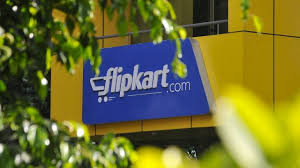
Hong Kong/Mumbai: Walmart Inc is likely to reach a deal to buy a majority stake in Indian e-commerce player Flipkart by the end of June in what could be the US retail giant's biggest acquisition of an online business, two people with direct knowledge of the matter said.
Reuters reported last week that Walmart completed its due diligence on Flipkart and had made a proposal to buy 51 percent or more of the Indian company for between $10 billion to $12 billion.
A deal with Flipkart would step up Walmart's battle with Amazon.com for a bigger share of India's fledgling e-commerce market, which Morgan Stanley estimates will be worth $200 billion in a decade. Local media have reported that Amazon is exploring a possible counter offer for Flipkart.
Both sources declined to be named as the talks are private.
Walmart will buy both new and existing Flipkart shares, with the new shares expected to value the Bengaluru-based firm at at least $18 billion, the sources said. The price for existing shares would value the firm at about $12 billion, one of the people said.
Japan's SoftBank Group, which owns roughly one-fifth of Flipkart via its Vision Fund, is unlikely to sell any of its shares due to the low price being offered for the existing shares, this source said.
Reuters has previously reported that early investors such as Tiger Global, Accel and Naspers will likely sell their entire stakes in Flipkart to Walmart if a deal is reached.
A deal is not yet finalised, and talks between Walmart, Flipkart and its investors are ongoing, one of the people said.
Flipkart also counts eBay, Tencent Holdings and Microsoft Corp among its investors.
Flipkart did not respond to a request for comment, a representative for Walmart in India declined comment while SoftBank said it doesn't comment on speculation.
BIG INDIAN BATTLE
For Walmart, the world's largest retailer known for its superstores, a deal with Flipkart would open up the vast Indian market.
Walmart has for years tried to enter India but has remained confined to a 'cash-and-carry' wholesale business amid tough restrictions on foreign investment. It currently operates 21 such stores in India.
By comparison, Amazon closely trails Flipkart, which along with its fashion units controls nearly 40 per cent of India's online retail market, according to estimates by researcher Forrester.
Flipkart's investors are concerned that any deal with Amazon would run into regulatory hurdles as a combination would have more than 70 percent of India's online retail market, one of the sources said.
Walmart's push into e-commerce comes as Amazon has embraced offline retail, with an affiliate of the Seattle-based company picking up a $27.6 million stake in Indian retailer Shopper's Stop Ltd.
In the United States, Amazon also bought high-end grocer Whole Foods Market Inc for $13.7 billion last year.
Walmart's investment would give Flipkart not just additional funds to fight Amazon, but also arm it with a formidable ally with extensive experience in retailing, logistics and supply chain management.
Former Amazon employees Sachin Bansal and Binny Bansal founded Flipkart in 2007 in India's tech hub of Bengaluru.
COMMENTSLike Amazon's founder Jeff Bezos, they began by selling books, but have diversified rapidly, including by selling smartphones, such as those made by China's Xiaomi, through exclusive flash sales, and now compete with Amazon in almost all product categories.
Gold Prices Shoot Up Today, Silver Rates Jump: 5 Things To Know
MMNN:11 April 2018

New Delhi:Gold prices today surged by Rs. 300 to Rs. 31,850 per ten gram at the bullion market. It had gained Rs. 200 in the previous three sessions. Strong buying by local jewellers amid higher global prices helped support domestic gold price. Silver prices also jumped due to increased offtake by industrial units and coin makers. Silver rates rose by Rs. 360 to Rs. 39,760 per kg. Markets are also awaiting cues on the outlook for US monetary policy from consumer inflation data and minutes from the Federal Reserve's March meeting, due later today. Tighter monetary policy raises the opportunity cost of holding non-yielding bullion.
5 Things To Know About Gold Price Rise Today
In Delhi, gold of 99.9 per cent and 99.5 per cent purity rose by Rs. 300 each to Rs. 31,850 and Rs. 31,700 per ten gram, respectively. Sovereign however held steady at Rs. 24,800 per piece of eight gram.
Following gold, silver ready advanced by Rs. 360 to Rs. 39,760 per kg and weekly-based delivery by Rs. 330 to Rs. 38,775 per kg.
Silver coins however continued to be enquired at previous level of Rs. 74,000 for buying and Rs. 75,000 for selling of 100 pieces.
COMMENTSGlobally gold rose for a fourth day on Wednesday as concerns over escalating tensions in Syria and US sanctions on Russia, fuelling demand for the safe-haven asset. Spot gold prices rose 0.5 per cent to $1,345.80 an ounce. Gold is often perceived as a safe store of value during times of political and financial uncertainty.
The dollar index today languished near a two-week low against a basket of currencies. The dollar index is a measure of the value of the US dollar relative to a basket of currencies. A weaker greenback makes dollar-denominated commodities cheaper for buyers in other currencies. When the dollar weakens against other major currencies, the prices of commodities like gold typically move higher
RAKESH BHARTI MITTAL IS NEW CII PRESIDENT
UDAY KOTAK TAKES CHARGE AS PRESIDENT-DESIGNATE
VIKRAM KIRLOSKAR IS NEW CII VICE PRESIDENT
MMNN:10 April 2018
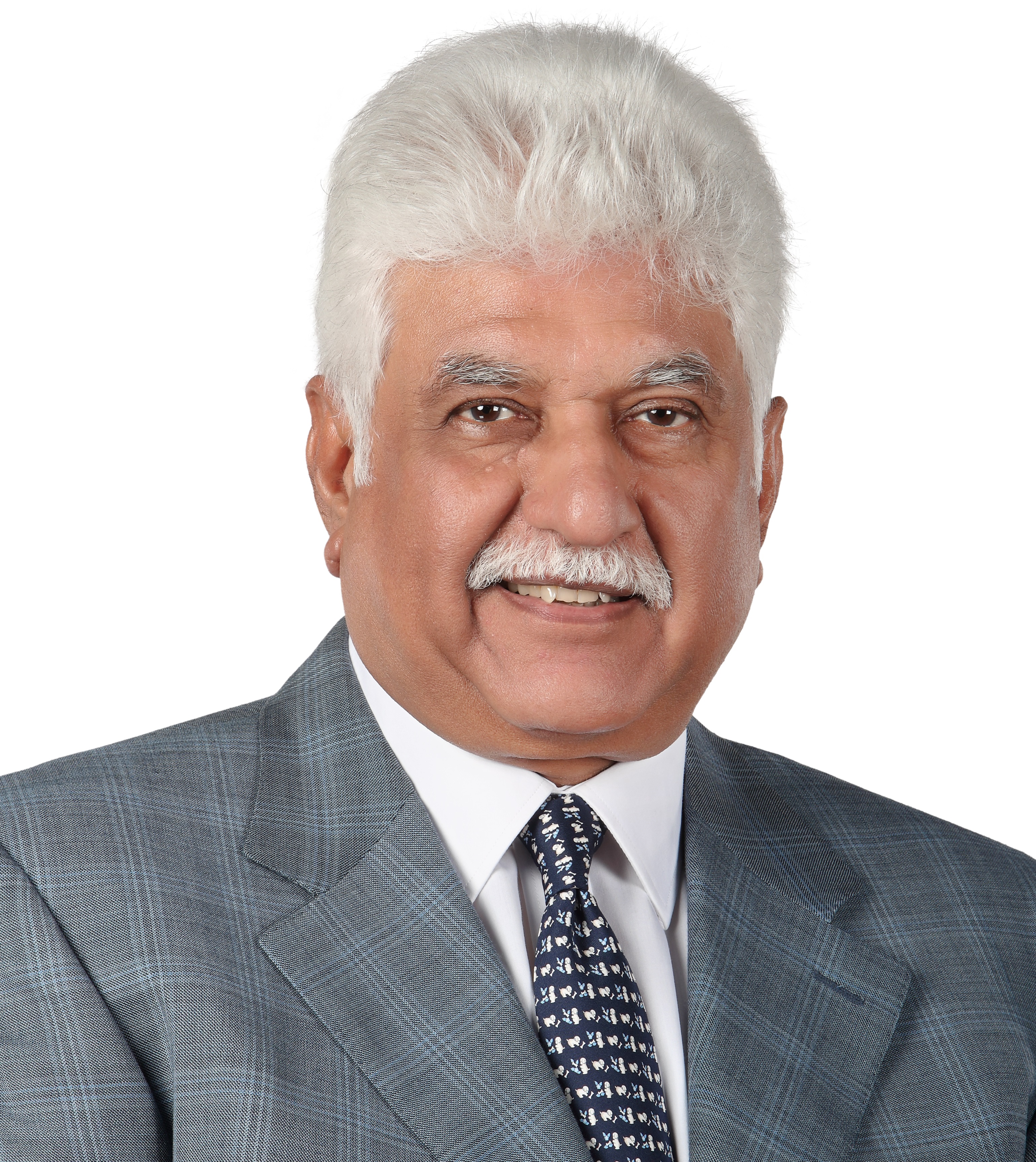
The Confederation of Indian Industry (CII) today announced new office-bearers for the year 2018-19. Mr Rakesh Bharti Mittal, Vice Chairman, Bharti Enterprises has assumed office as the new President of CII. He takes over from Ms Shobana Kamineni, Executive Vice Chairperson, Apollo Hospitals Enterprise Ltd.
Bharti Enterprises is one of India's leading business groups with interests in telecom, agri & food business, financial services, retail, realty, and communication and media devices. Mr Mittal is also Chairman of Bharti AXA Life Insurance, Bharti AXA General Insurance, Field Fresh Foods and Centum Learning. He is also on the Board of Bharti Airtel and is Managing Director-Bharti Realty Holdings. Mr Mittal was associated with CII for more than two decades. He has served as the Chairman of CII Northern Region in 2004 - 05. Besides being active at the Regional level, Mr Mittal, also Chaired the National Committees on CII Agriculture, CSR and Public Policy Council. He also served as member, India-Pakistan Joint Business Forum (IPJBF) and several Government Committees and Governing Councils of Institutions of Excellence like ICAR. Mr Mittal had been elected as a member of the National Council of CII several times since 1999.
Mr Uday Kotak, Founder and CEO of Kotak Mahindra Bank (Kotak Bank), takes over as President Designate of CII for 2018-19. Kotak Mahindra Bank became the first NBFC in India to get a banking license, and the Kotak Group's vision for equitable prosperity extends beyond banking and financial services. The Kotak Education Foundation works with some of India's most economically depressed communities, attempting to alleviate poverty in a sustainable way through education and livelihood programmes.
Mr Kotak holds a Bachelor's degree in Commerce and an MBA from Jamnalal Bajaj Institute of Management Studies, Mumbai. Mr Kotak has several awards to his credit including ET's Business Leader of the Year award. Mr Kotak is the Co-Chair of the India-UK Financial Partnership (IUKFP) with Sir Gerry Grimstone as the other Co-Chair.
Mr Vikram Kirloskar takes over as CII Vice President for 2018-19. Mr Kirloskar is the Chairman and Managing Director of Kirloskar Systems Ltd. and Vice Chairman of Toyota Kirloskar Motor. Mr Kirloskar has recently stepped down as Chairman, CII Southern Region during 2017-18 after completing his term. He has been President of SIAM during 2013-15. Mr Kirloskar has been associated with CII for many years and has been Chairman of Global Innovation and Technology Alliance (GITA) Board from its inception in 2012-13. Mr Kirloskar has chaired several National Committees and Councils of CII in the areas of Manufacturing, R&D, Design, Innovation, Technology and CSR.
Mr. Kirloskar also serves on the Boards of Kirloskar Pneumatic Company Limited, Kirloskar Proprietary Limited, Quadrant Communications Limited, Asara Sales & Investments Private Limited, Denso Kirloskar Industries Private Limited, Kirloskar Technologies Private Limited, Takshasila Healthcare and Research Service Private Limited, VikramGeet Investments and Holdings Private Limited, Toyata Material Handling India Private Limited, Takshasila Hospitals Operating Private Limited, VSK Holdings Private Limited and Global Innovation and Technology Alliance.
Axis Bank Shares Surge 5% As CEO Exit Seen As Chance For Change
MMNN:10 April 2018
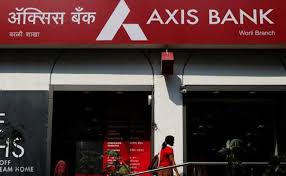
Mumbai: The impending exit of Axis Bank's long-serving CEO will allow it to mend relations with regulators and investors, some analysts said, helping shares of the third-biggest private sector Indian lender rise more than 4 per cent on Tuesday. Axis Bank announced on Monday that Chief Executive Shikha Sharma will step down at the end of 2018, days after India's central bank was reported to have expressed concerns about the lender giving her a three-year extension.
Ms Sharma, CEO since 2009, had asked the board to shorten her next term that is set to begin on June 1, the lender said.
While Axis Bank was silent on Sharma's replacement, the new CEO's most pressing task will be to tackle the lender's high level of soured assets and deteriorated financials.
"We hope the new person is an outsider, allowing fresh thoughts and strategy and to reestablish old links and rebuild credibility with investors," Jefferies analysts led by Nilanjan Karfa wrote in a note.
Axis has seen its gross bad loans jump more than six times over the last three years to Rs. 25,000 crore ($3.85 billion) as of end-2017. Investors have also been concerned after a central bank audit last year unearthed Rs. 5,633 crore more in bad loans than what the bank had originally reported for the fiscal year ended March 31, 2017.
Most Indian banks have seen their bad loans surge over the past three years, leading to higher scrutiny and a crackdown by the regulators. Several other bigger lenders have also reported additional bad loans after central bank audit.
In Axis's case, several run-ins with regulators in the recent past have added to the woes.
"The market is expecting probably the worst is going to be over for Axis Bank," said R.K. Gupta, managing director at Taurus Asset Management.
The CEO change also presented the "best opportunity" for forging a combination with Axis's smaller rival Kotak Mahindra Bank which last year was speculated to be eyeing Axis for a takeover, analysts at Nomura wrote in a note, adding they expected "limited pushback" from Axis for a merger this time. Axis had last year dismissed reports of a deal calling them baseless speculation.
Kotak Securities said it expected the bank to move further towards de-risking the business by increasing the share of deposits and loans to retail customers and better-rated companies.
It upgraded the stock to "add", retaining a target price of Rs. 600, citing current valuations after recent underperformance.
COMMENTSIn afternoon trade, Axis Bank shares were trading 4.7 per cent higher at Rs. 542, outperforming the banking sector index that gained 0.9 per cent and the main Mumbai market index that was up 0.3 per cent.
The stock is still down about 4 per cent so far this year.
ICICI Bank Board Divided Over CEO Chanda Kochhar: Report
MMNN:9 April 2018
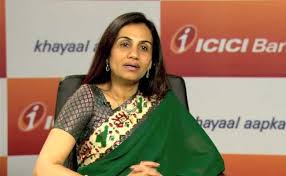
The board of India's ICICI Bank Ltd., which less than two weeks earlier expressed full faith in Chief Executive Officer Chanda Kochhar, is divided over whether to ask her to step down as federal central authorities investigate allegations of impropriety over loans made to Videocon group, people with knowledge of the matter said.
At least some outside directors are opposed to Kochhar continuing in her role, according to the people, who asked not to be identified as the information is not public. The board of India's second-largest private sector bank may meet as early as this week to consider its next course of action, the people said. Kochhar's current tenure as CEO is set to end on March 31, 2019.
ICICI's board, which consists of 12 members, reviewed credit approval processes and found them to be robust, according to a March 28 filing. The board headed by Chairman M. K. Sharma said there was "no question" of any quid pro quo, nepotism or conflict of interest and expressed "full faith and confidence" in Kochhar, according to the filing.
There are six independent directors on the ICICI board, including the bank's chairman as well as the head of state-owned Life Insurance Corp. of India, which owns about a 9.4 percent stake, according to data compiled by Bloomberg. The board also includes a government nominee and five executive directors from ICICI.
The Central Bureau of Investigation recently started a so-called preliminary enquiry into an alleged nexus between Videocon Chairman Venugopal Dhoot and Kochhar's husband, according to officials from the agency. A preliminary enquiry is the first step to assess allegations of wrongdoing.
"Your information is totally baseless and incorrect," an ICICI spokesman said in an email when asked if some board members want Kochhar to step down.
2
COMMENTSICICI shares were down 1.8 percent at 9:38 a.m. Monday in Mumbai, set for the biggest drop in a week, after earlier declining as much as 2.2 percent. The broader Bankex index of Indian lenders rose 0.3 percent. ICICI has been the worst performer among private-sector peers on the 10-member gauge since May 2009, when Kochhar took over as CEO, and has a bad-loan ratio that's one of the highest among its peers. Kochhar is on the bank's credit committee that approves loans and reviews key borrower accounts.
Bloomberg News couldn't reach Deepak Kochhar, Chanda's husband, for comment through phone calls made to NuPower Renewables, where he is CEO and founder. Dhoot has denied any wrongdoing.
Services Firms Return To Growth In March, Says Nikkei Survey
MMNN:5 April 2018

Bengaluru: The services industry returned to growth in March as new business picked up on improved demand, a private survey showed on Thursday, encouraging firms to hire at the fastest pace in nearly seven years.
Hit by disruptions from a shock ban of high value currency notes and confusion around product pricing after the implementation of a new tax, the services industry had a disappointing fiscal year 2017/18.
Performance in March, the final month of the last fiscal year, was only slightly better.
After taking a big hit in February, the Nikkei/IHS Markit Services Purchasing Managers' Index managed to narrowly push back above the 50-mark that separates growth from contraction, rising to 50.3 last month from 47.8.
"India's service activity stabilised at the end of the quarter, underpinned by a renewed rise in new work. Anecdotal evidence highlighted an improvement in demand conditions," Aashna Dodhia, an economist at IHS Markit wrote in a release.
The new business sub-index that tracks overall demand also returned to growth in March, rising to 50.6 from 48.0 in a reflection of increased levels of new work.
A slower increase in input costs allowed services firms to increase prices at a shallower pace in March, alleviating some of the burden on consumers.
Still, inflation is projected by the Reserve Bank of India to be above its medium term target of 4 per cent in 2018.
The RBI is expected to keep its policy steady this year but shift to a hawkish stance by end-2018, according to a Reuters poll of economists last week.
Optimism was at an eight-month high, the survey found, which alongside increasing demand pushed firms to hire at the fastest pace since June 2011.
COMMENTSThe service industry's bounce offset a slower pace of manufacturing growth and pushed a composite index, which takes into account performance of both sectors, to rise to 50.8 last month from 49.7.
Rs. 2.4 Lakh Crore Loans Written Off In Over 3 Years, Mamata Banerjee Slams Government
MMNN:4 April 2018
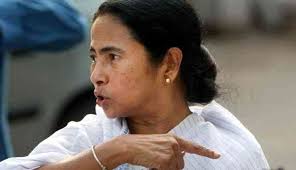
Public sector banks (PSBs) wrote off Rs. 2.41 lakh crore worth of loans in over three years, between April 2014 and September 2017. This was disclosed by minister of state for finance Shiv Pratap Shukla said in a written reply in Parliament on Tuesday. The disclosure came under strong criticism from Bengal chief minister and Trinamool Congress chief Mamata Banerjee. "I am shocked to see that at a time, when the farmers in the country are crying and committing suicide for their loan burden and asking for waiver of farmers' loan, the Government of India have not even considered that," the West Bengal chief minister said in a Facebook post.
In his reply to the Rajya Sabha, the union finance minister of state said that writing off non-performing assets (NPAs) or bad loans is a regular exercise conducted by banks to clean up their balance sheet and to achieve taxation efficiency
As per Reserve Bank of India (RBI) data on global operations, public sector banks have written-off (including compromise) an amount of Rs. 2,41,911 crore from financial year 2014-15 till September 2017," the minister said.
Borrowers, however, continue to be liable for repayment despite the write-off, the minister added.
Mr Shukla said the recovery of dues takes place on an ongoing basis under a legal mechanism so write-offs do not benefit borrowers.
The minister said also informed the Rajya Sabha that according to the Reserve Bank of India, borrower-wise credit information is not available for disclosure. The RBI Act provides that credit information submitted by a bank should be treated as confidential, he added. The non-disclosure of the borrower information was also criticised by the Bengal chief minister.
"Even in Parliament reply, the Government of India says that the details of credit information by a public sector bank cannot be disclosed," Ms Banerjee said.
The stressed-loan pile in the Indian banking system has more than doubled in the five years as a prolonged economic slowdown pressured companies' ability to service their loans, while in some cases profligate lending practices and fraudulent transactions have aggravated the problem. A Rs. 13,000-crore fraud in the second-biggest state-run lender Punjab National Bank that was first disclosed in early February has stunned the country's financial sector and has triggered a crackdown by regulators to unearth more such fraudulent deals.
13
COMMENTSAccording to the latest RBI data, 21 state-run banks which account for more than two-thirds of the country's banking assets had as of December 31 stressed loans of Rs. 8.26 lakh crore, or 15.8 per cent of their total loans
March Manufacturing Activity At 5-Month Low, Says Nikkei Survey
MMNN:3 April 2018
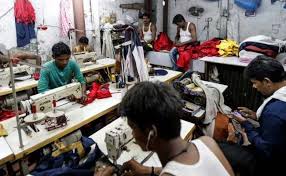
Bengaluru: Activity in India's manufacturing sector expanded at its weakest pace in five months in March as order and production growth slowed, discouraging firms from hiring, a business survey showed on Tuesday.
Orders softened despite manufacturers keeping price increases to a minimum, suggesting retail inflation will remain near the Reserve Bank of India's medium-term target of 4 per cent and reinforcing views it will hold interest rates steady this year.
The Nikkei Manufacturing Purchasing Managers' Index, compiled by IHS Markit, fell to 51.0 last month from February's 52.1, well short of a Reuters poll median of 52.8.
But it held above the 50-point threshold mark that separates growth from contraction for the eighth straight month.
"India's manufacturing sector continued to grow, albeit at the weakest pace since October, reflecting weaker gains in new business," Aashna Dodhia, an economist at IHS Markit, said in a release.
"PMI employment data signalled warning signs in the labour market as jobs growth was not sustained in March amid reports of spare operating capacity."
Firms shed staff for the first time in eight months, concerning for the world's seventh-largest economy as it tries to power-up its manufacturing sector.
That could add to pressure on Prime Minister Narendra Modi's government ahead of next year's general elections after it won power in 2014 by emphasising policies to generate employment.
Former RBI Governor Raghuram Rajan raised concerns about job creation last month, noting India's economic growth rate of 7.5 per cent would not be sufficient to provide employment to the 12 million people added to the labour force every year.
Giving scant reason for optimism, the new orders sub-index, a proxy for domestic demand, has been on a downtrend for three months and slumped to a five-month low of 51.5.
Optimism about future output also remained weak in March.
"Amid a slower expected pace of recovery in consumer spending, IHS Markit marginally downgraded its real GDP forecast to 7.3 per cent for fiscal year 2017/2018," Dodhia said.
Foreign demand for Indian manufactured goods also slipped to a four-month low amid growing fears of a trade war between the United States and China that could have a domino effect across the globe.
However, the impact of President Donald Trump's tariffs on imports of steel and aluminium will have limited impact on India as IHS Markit said exports of the two metals to the US accounts for just 0.4 per cent of total merchandise exports.
COMMENTS"On a negative note, further advances in trade disputes could potentially weigh on sales to international clients," Dodhia noted.
ICICI Bank Shares Slump After CBI Probe Into Videocon Loan
MMNN:2 April 2018
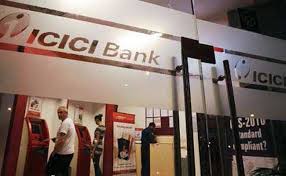
ICICI Bank shares plunged 6 per cent today after the Central Bureau of Investigation (CBI) launched a preliminary investigation to assess whether there was any wrongdoing in the bank's lending practices. The CBI launched a preliminary inquiry about two months ago into Deepak Kochhar, the husband of the bank's CEO, Chanda Kochhar, and officials at ICICI Bank and Videocon Group, news agency Reuters reported on Saturday, citing sources. Sentiment was also negative after the Reserve Bank of India fined the country's largest private-sector lender Rs. 58.9 crore for not sticking to certain rules about sale of government securities. ICICI Bank shares ended at Rs. 261 as compared to a 0.90 per cent gain in Sensex.
COMMENTS"While this fine will not have a material impact on earnings, it is negative on sentiment because other banks seem to have interpreted the rules correctly," IDFC Securities analysts wrote in a note. "We see pressure in the short term following the fine, allegations and CBI's preliminary enquiry," IDFC Securities added.
Meanwhile, Business Standard reported that Enforcement Directorate has initiated an enquiry in ICICI-Videocon loan. ICICI Bank in a clarification to exchanges said that the bank "has not received any communication from the Enforcement Directorate relating to any enquiry into the loan to Videocon group as on date."
Separately, ICICI Bank had earlier said that it will convene a board meeting today to review cases under the Insolvency and Bankruptcy Code which are before the National Company Law Tribunal along with other routine matters. The board meeting is the first one after a controversy broke out last week over alleged conflict of interest involving its CEO and MD Chanda Kochhar and Videocon group.
Gold Prices Fall Sharply By Rs. 650 Today: 5 Things To Know
MMNN:30 March 2018

New Delhi: Gold prices plunged by Rs. 650 to Rs. 31,300 per ten grams at the bullion market today on fall in demand from local jewellers and retailers at prevailing higher levels. In Delhi, gold of 99.9 per cent and 99.5 per cent purity plunged by Rs. 650 each to Rs. 31,300 and Rs. 31,150 per ten grams, respectively. Marketmen said gold prices sank on lacklustre demand from local jewellers and retailers at domestic spot market.
Five Things To Know About Gold Price Fall Today
Silver followed suit and lost Rs. 600 at Rs. 39,150 per kg due to reduced offtake by industrial units and coin makers.
Sovereign, however, remained unaltered at Rs. 24,800 per piece of eight grams.
COMMENTSIn line with gold prices, silver ready drifted lower by Rs. 600 to Rs. 39,150 per kg and weekly-based delivery by Rs. 660 to Rs. 38,320 per kg.
Silver coins, however, remained steady at Rs. 74,000 for buying and Rs. 75,000 for selling of 100 pieces.
Globally, gold prices had dipped on Thursday as the dollar held its strong gains from the previous session, but simmering tensions over Russia and a potential trade war offered support. Gold posted its biggest one-day percentage fall in nearly nine months on Wednesday after robust U.S. data lifted the dollar, which steadied at those strong levels on Thursday. Moscow has threatened to retaliate after the United States and other Western countries expelled more than 100 Russian diplomats. Concerns about a global trade war have eased but that does not mean it is over, said Brian Lan, managing director at dealer GoldSilver Central in Singapore
Karnataka Bank Reports 86.5 Crores Fraud Involving Gitanjali Gems
MMNN:29 March 2018
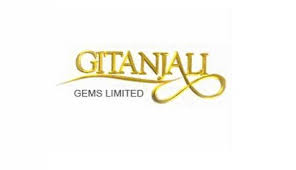
Bengaluru: Karnataka Bank Ltd has informed the Reserve Bank of India (RBI) that Gitanjali Gems of scam-hit Mehul Choksi had committed a Rs. 86.5 crore fraud in the fund-based working capital.
"We have reported a fraud to the RBI amounting to Rs. 86.47 crore in the fund-based working capital facilities extended to Gitanjali Gems Ltd on account of non-realisation of export bills and diversion of funds," said the Mangaluru-based bank in a regulatory filing on the BSE late on Wednesday.
The scheduled commercial bank, however, clarified it does not have any Letter of Understanding (LoU) exposure in Mehul Choksi's company.
COMMENTS"The working capital facilities were extended by the bank under consortium arrangement and provisions will be made as per the RBI guidelines," the bank's Company Secretary Prasanna Patil said in the filing.
Mehul Choksi and his nephew Nirav Modi are already facing investigation in the Rs. 13,540-crore fraud they committed on the state-run Punjab National Bank's Mumbai branch, which came to light after they left the country in early January.
April-February Fiscal Deficit At 120% Of Full-Year Target
MMNN:28 March 2018

New Delhi: New Delhi: The fiscal deficit soared to Rs. 7.15 lakh crore at the end of February, exceeding the revised target of Rs. 5.94 lakh crore for the entire 2017-18 fiscal.
As per data released by the Controller General of Accounts (CGA), fiscal deficit for April-February was 120 per cent of the revised estimates on account of increased expenditure and subdued revenue receipts.
The monthly account till February-end revealed that the government has collected Rs. 12.83 lakh crore revenue, which is 79.09 per cent of revised estimates.
Of this, over Rs. 10.35 lakh crore was collected from taxes, while over Rs. 1.42 lakh crore and Rs. 1.05 lakh crore accrued on account of non-tax revenue and non-debt capital receipts, respectively.
Non-debt capital receipts consist of recovery of loans of Rs. 13,301 crore. Besides, Rs. 92,493 crore has been mopped up through PSU disinvestment till February-end.
In the revised estimates of 2017-18, the government had raised the disinvestment target to Rs. 1 lakh crore, up from Rs. 72,500 crore in the Budget estimates.
In 11 months till February, over Rs. 5.29 lakh crore has been transferred to state governments as devolution of share of taxes by the Centre, which is Rs. 66,039 crore higher than the corresponding period of last year 2016-17.
Total expenditure incurred by the government during the period was over Rs. 19.99 lakh crore, which is 90.14 per cent of revised estimates for 2017-18.
Of this, Rs. 17.02 lakh crore is on revenue account and Rs. 2.97 lakh crore is on capital account.
Of the total revenue expenditure, Rs. 4.50 lakh crore is on account of interest payments and Rs. 2.27 lakh crore is on account of major subsidies.
In the Budget for 2018-19 presented on February 1, Finance Minister Arun Jaitley had revised upwards the fiscal deficit target to 3.5 per cent of GDP for 2017-18, as against the initial target of 3.2 per cent, on account of GST implementation and deferment of spectrum auction.
COMMENTSThe fiscal deficit or gap between total expenditure and revenues has been pegged at 3.3 per cent for 2018-19.
GST Collection Dips For Second Straight Month In February
MMNN:27 March 2018
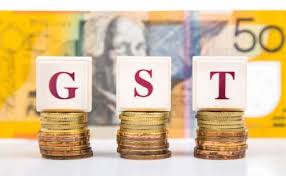
New Delhi: GST collections slid for the second straight month to Rs. 85,174 crore in February as only 69 per cent of the assessees filed returns.
Around 59.51 lakh GSTR 3B returns were filed for the month of February till March 25. This is 69 per cent of total taxpayers who are required to file monthly returns, the finance ministry said in a statement.
"The total revenue received under GST for the month of February 2018 (received up to March 26) has been Rs. 85,174 crore," it said.
The collection in January was Rs. 86,318 crore, while in December and November was Rs. 88,929 crore and Rs. 83,716 crore respectively.
Of the Rs. 85,174 crore collected as GST for the month of February, Rs. 14,945 crore have been garnered as Central GST and Rs. 20,456 crore as State GST. Beside, Rs. 42,456 crore has been collected as Integrated GST and Rs. 7,317 crore as compensation cess.
A total amount of Rs. 25,564 crore is being transferred from IGST to CGST/SGST account by way of settlement.
"Thus, the total collection of CGST and SGST up to 26th March (for February) is Rs. 27,085 crores and Rs. 33,880 crore respectively, including transfers by way of settlement," the statement added.
Till March 25, 1.05 crore taxpayers have been registered under GST. Of these, 18.17 lakh are composition dealers which are required to file returns every quarter and the rest of 86.37 lakh taxpayers are required to file monthly returns.
COMMENTSAccording to a finance ministry reply to the Lok Sabha, GST collections were Rs. 93,590 crore in July, Rs. 93,029 crore in August, Rs. 95,132 crore in September and Rs. 85,931 crore in October.
As Rupee Tumbles, Bonds Lose Their Charm For Foreign Investors
MMNN:26 March 2018
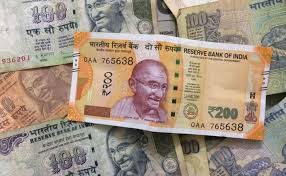
Mumbai: After betting strongly on Indian bonds last year, foreign investors are cutting their holdings as a tumbling rupee erodes their returns and economic risks cloud the outlook of a once-hot emerging market play.
With only three trading sessions left in March, foreign investors have sold a net $1.12 billion in Indian debt, the strongest monthly outflow since December 2016, and are now on the verge of turning net sellers for the year so far.
Overseas investors had previously proven remarkably resilient, helping support debt markets at a time when tumbling bond prices had spooked domestic players, with the benchmark 10-year yield up around 110 basis points since the end of July.
But a near 2 percent fall in the rupee this year is now starting to erode returns for foreign investors at a time when emerging markets continue to lose favour as rising U.S. interest rates narrow the yield differentials.
More problematically for India, foreign investors say outflows also reflect rising economic concerns.
Chief among those concerns is inflation, which has stayed above the Reserve Bank of India's 4 percent target for five consecutive months, feeding fears the central bank could hike its policy rate as early as this year.
Rising energy prices are widening India's trade and current account deficits, while the government has also loosened its fiscal deficit targets to finance increased spending ahead of general elections due by 2019.
Ashley Perrott, head of pan-Asia fixed income at UBS Asset Management in Singapore, is one cautious foreign investor holding back from adding investments.
"India has had a few negative aspects circling around, besides bonds and currency moves," he said.
"There are some signs sentiment is improving, but I expect we will wait to see if this increase in confidence and stability in the market continues over the next few weeks or months before deciding to add exposure."
This reduced confidence comes after foreign funds had bought $26.3 billion in Indian bonds in 2017, as a nearly 6 percent rise in the rupee helped deliver returns of around 7 percent, one of the highest in Asia.
Those flows had led foreign investors to use up almost all of the allocation of Indian government debt to foreign investors, which is capped at 5 percent of total outstanding securities, or around $40 billion.
But returns on Indian bonds have turned a negative 2 percent since the start of 2018, traders said, the second-worst performance for Asian bonds after the Philippines, as the weak rupee erodes returns.
The rupee has also turned more temperamental, with an overnight implied volatility of 6.6 percent, up from 4.9 percent at the same period last year, according to traders.
Such performance gauges are leading even long-time India bulls to seek opportunities elsewhere.
Kenneth Akintewe, head of Asian Sovereign Debt at Aberdeen Standard Investments in Singapore, says his team continues to be bullish on India, which remains a key overweight position, but are also looking at other opportunities around the region given the recent rise in market volatility.
"With higher volatility we have seen opportunities opening up elsewhere, such as Indonesia, Philippines and even China," he said.
COMMENTS"There have been markets that performed better like Thailand, which has seen strong currency performance, supported by its robust current account fundamentals.
Deadline For Filing Income Tax (I-T) Return Just One Week Away. 10 Things To Know
MMNN:24 March 2018

Although the deadline for filing income tax (I-T) return is July 31 in the assessment year for the preceding year, there could be stray cases wherein tax payers skipped filing their income tax (I-T) returns within the stipulated time. In such cases, they are eligible to file the belated income tax returns by March 31 of this year. This implies that he tax payers still have one more week to file their returns. Those who missed filing their tax returns for the financial years (FY) 2015-16 and 2016-17 are eligible to file the belated returns before April 1, 2018. The financial years 2015-16 and 2016-17 are also known as assessment years 2016-17 and 2017-18, respectively, in the income tax parlance.
Filing Belated Income Tax Return By March 31, 2018. Ten Things To Know
-1. It must be noted that even if you paid the income tax of these financial years, nothing should stop you from filing the returns. You can file your income tax return on the department's official website, which is https://incometaxindiaefiling.gov.in/home.
2. The system will ask you mention the details of user ID, password. Following this, you will be made to enter the captcha code after which you can upload the details pertaining to your income as well as the bank accounts you operate.
3. As per the Income Tax (I-T) Act, following persons are meant to mandatorily file the income tax return. A) All companies/partnerships and LLPs B. Trusts, associations and political parties. C. Individuals and HUFs who have annual income of more than Rs. 2.5 lakh.
4: For senior citizens, the threshold for filing income tax (I-T) return is Rs. 3 lakh instead of Rs. 2.5 lakh for those under the age of 60.
5. Those who are above the age of 80 years need to file an income tax (I-T) return only when their income is above Rs. 5 lakh per annum. (Also Read: Revised Income Tax Returns To Be Filed By March 31: Details, Features Of Permanent Account Number)
6. The income tax department warns that in case you have deposited high amounts in your bank or carried out high value transactions then you must consider those while filing your income tax return. For instance, in case you have filed the income tax return of Rs. 5 lakh, while you also received Rs. 10 lakh in your bank as rental income during the financial year then you must account for the same while paying your tax and filing the return.
7. The department also warns that non-filing of return or incorrect filing of return is violation of law and hence, it may result in prosecution or penalty by the income tax department as per the law.
8. In order to assuage the tax payers' worries, the tax department says that the tax payers should not refrain from filing the income tax return for fear of coming under scrutiny. The department says that less than one percent of the tax payers are put under scrutiny. The scrutiny is a close examination of income tax return wherein a tax payer is given an opportunity to validate the income declared in relation to the expenses, deductions, losses, exemptions claimed in the return. (Also Read: How To File Income Tax Returns In Three Steps By March 31, 2018)
9. The cases that are shortlisted for scrutiny are done so electronically without any human interface.
10. The individuals who are entitled to use the simplest form for filing of income tax return, known as Sahaj, include the following. Those who have their main source of income in form of salary or pension income or income from house property (not a case of brought forward loss) or income from other sources (not being lottery winnings and income from race horses), among others.
Bhushan Steel Acquisition: Tata Steel Emerges As Successful Resolution Applicant
MMNN:23 March 2018
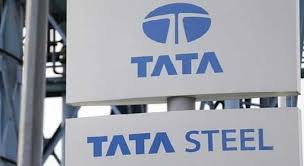
Tata Steel Ltd said on Friday that it had been selected as the successful resolution applicant for buying Bhushan Steel, Tata Steel announced in a stock market filing on Friday. Tata Steel has been declared as the successful resolution applicant by the committee of creditors of Bhushan Steel on March 22 subject to obtaining regulatory approvals, including approvals from the NCLT (National Companies Law Tribunal) and the competition commission of India (CCI)
Tata Steel is among the the top global steel companies with an annual crude steel capacity of 27.5 million tonnes per annum as on March 31, 2017. The Committee of Creditors of Bhushan Steel had on Thursday declared salt-to-software conglomerate Tata Group's steel business as the successful resolution applicant, subject to obtaining necessary regulatory approvals, Tata Steel said in a stock exchange filing.
Tata Steel has accepted the Letter of Intent for Bhushan Steel, it added. Earlier this month, the company had been selected as the highest bidder to buy a controlling stake in Bhushan Steel, as part of bankruptcy proceedings.
Tata Steel and India's biggest domestic steelmaker JSW Steel Ltd were the two primary industry bidders for the acquisition of Bhushan Steel. Tata Steel is the world's second-most geographically-diversified steel producer, with
operations in 26 countries and a commercial presence in over 50 countries. The Group recorded a consolidated turnover of US $18.12 billion in FY17. Tata Steel Group is spread across five continents with an employee
base of nearly 70,000. Having bagged the Deming Application Prize and Deming Grand Prize for continuous
COMMENTSimprovement in 2008 and 2012 respectively, Tata Steel has now been recognised as the global 'Industry Leader' in 'Steel category' by Dow Jones Sustainability Index (2015). Besides being a member of the World Steel Climate Action
Programme, Tata Steel has also been felicitated with several awards including the Prime Minister's Trophy for the best performing integrated steel plant for 2013-14
Payment Of Gratuity (Amendment) Bill Passed In Parliament. Details Here
MMNN:22 March 2018
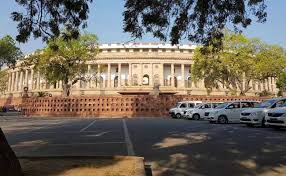
In a move that will benefit millions of workers of private and public sector companies, the Rajya Sabha on Thursday passed the Payment of Gratuity (Amendment) Bill, 2017. Now, the government will be able to enhance the ceiling of tax-free gratuity to Rs. 20 lakh from the existing Rs. 10 lakh for employees under the Payment of Gratuity Act, news agency IANS reported. It means that it your tax liability will be nil in case you receive any amount upto Rs. 20 lakh as gratuity. After the Amendment bill comes to force, the government may raise the limit of Rs. 20 lakh further to increase the cap in gratuity amount as and when the need arises without having to change the law. Also, the amendment bill will allow the government to fix the period of maternity leave for female employees.
Gratuity Amendment Bill Passed. Five Things To Know
How To Calculate Gratuity:
Amount of gratuity is directly proportional to the tenure of service, and also to the last drawn salary. The gratuity is given at the rate of 15 days of last drawn salary for each year of service. And the salary that is considered for the calculation of gratuity is the last drawn salary that includes basic pay and dearness allowance. It is typically calculated according to this formula: Last drawn salary (basic salary plus dearness allowance) X number of completed years of service X 15/26. According to this formula, the time period of over six months or more is considered as one year. This means if you have completed five years and seven months of service, the number of years would be considered as six years for calculation of gratuity benefit. On the other hand, if the service period is five years and five months, for gratuity calculation will be considered as five years
Seventh Pay Commission:
After the implementation of the 7th Pay Commission, the ceiling of gratuity amount for central government employees was doubled to Rs. 20 lakh. The Payment of Gratuity (Amendment) Bill is in tandem with the new pay commission.
Maternity Leave Benefits:
The amendment to the payment of gratuity law comes in the backdrop of Maternity Benefit (Amendment) Act, 2017 enhancing the maximum maternity leave period to 26 weeks. So, it means the maternity leave of 26 weeks will be considered as continuation of service for the purpose of calculating the amount of gratuity.
When is gratuity applicable:
Gratuity is a benefit received by an employee for services rendered to an organisation. For companies covered under the Gratuity Act, this benefit is paid when an employee completes five or more years of service with the employer. The Gratuity Act applies to establishments employing 10 or more persons.
Who Are Eligible:
The Payment of Gratuity Act, 1972 allows for the payment of gratuity to employees in any establishment, factory, mine, oil field, plantation, port, railways, company, or shop employing 10 or more workers
Supreme Court Directs Jaiprakash Associates To Deposit Rs. 200 Crore By May 10
MMNN:21 March 2018

The Supreme Court has directed Jaiprakash Associates to deposit Rs. 200 crore with the court registry before May 10. The first instalment of Rs. 100 crore, the court ordered, has to be deposited by April 15, while the second and the last by May 10 this year.
As of now, the Jaiprakash Associates has deposited Rs. 550 crore out of a total of Rs. 2,000 crore ordered by the apex court. The money will be used to make refunds to the buyers who have sought refund for their investments in a project Jaypee Wish Town in Greater Noida.
The Chief Justice Dipak Misra said, "You can't sit with the home buyers' money. We are concerned with the home buyers."
Once the first tranche of Rs. 100 crore is deposited by April 15, the apex court will take up the case on April 16, which is a day later. The court will then decide as to how to disburse the money on a pro rata basis to those who want refund.
The court was informed that out of a total of 31,000 home buyers, there are 2,800 buyers who want refund of money.
COMMENTSThe court also ordered that the Jaypee Associates should not issue demand notice for instalments to home buyers who are seeking a refund. The developer made a submission in the court that it intends to complete the project and it is spending money from its own pocket for the same.
The court battle started after the buyers of Jaypee Wish Town moved the court. The matter was precipitated after a subsidiary of Jaiprakash Associates, Jaypee Infratech, was taken for bankruptcy.
Piruz Khambatta of Rasna Pvt Ltd. elected Chairman, CII Western Region
and Sanjiv Bajaj of Bajaj Finserv Ltd. elected Deputy Chairman, CII Western Region for 2018-19
MMNN:20 March 2018
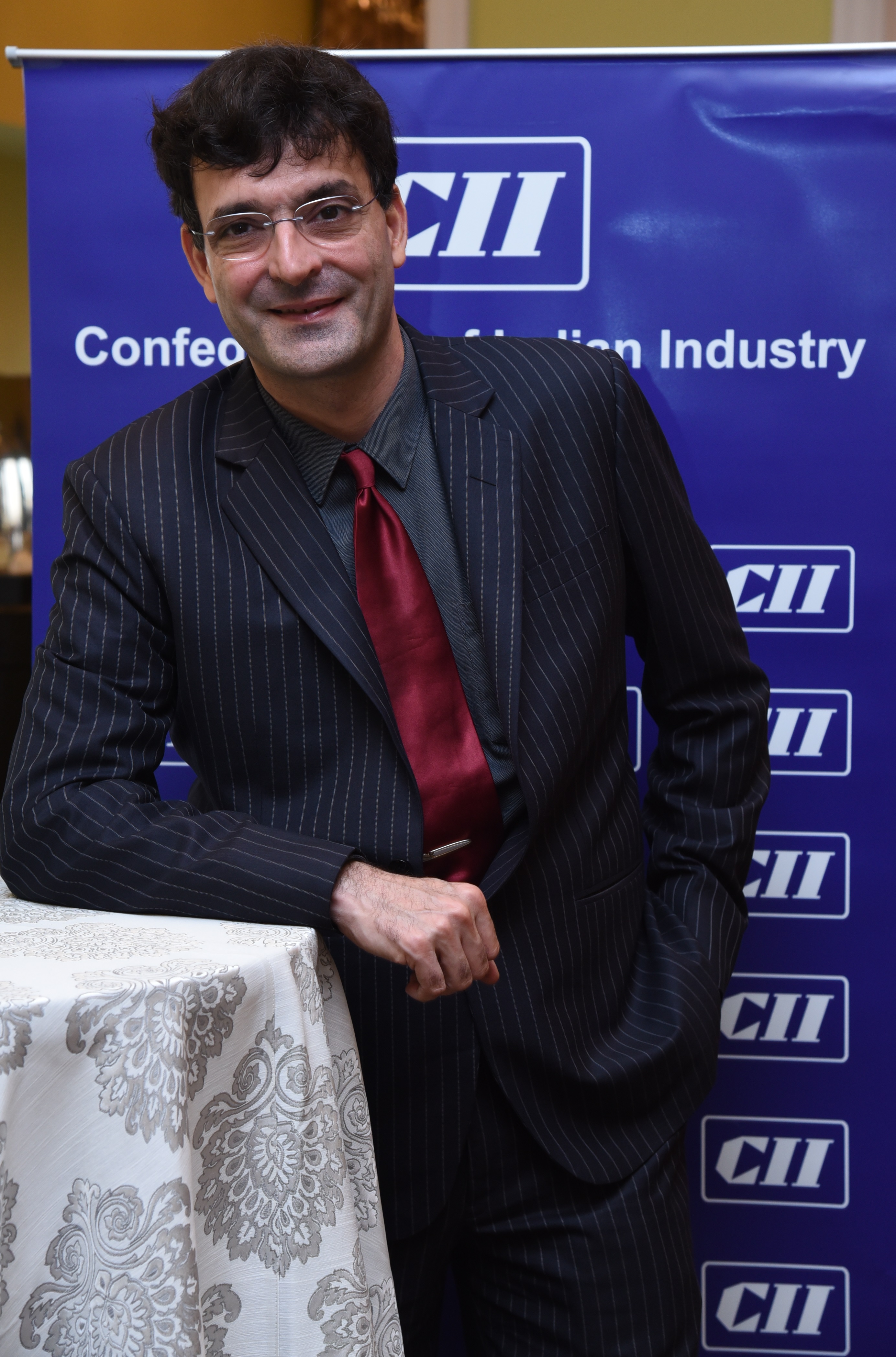
Mr Piruz Khambatta, Chairman & Managing Director, Rasna Pvt Ltd. has been elected as the Chairman of the Confederation of Indian Industry (CII) Western Region for the year 2018-19 while Mr Sanjiv Bajaj, Managing Director, Bajaj Finserv Ltd. has been elected as the Deputy Chairman of the CII Western Region for the year 2018-19. Their names were announced at the first meeting of the reconstituted Western Regional Council held in Mumbai.
The major focus areas would be Membership Engagement, Policy Advocacy, Ease of Doing Business Clinics, Policy Roundtables, Policy Formulation, Innovation & Start-ups, Making Members Future Ready, promoting industrial safety, water initiatives, Corporate Governance, Education & Skill Development and Job Fairs.
CII would also work closely with the State Governments on Clean & Safe City through City Connect initiatives and also on Water and Environment, Industry-Academia Linkages, CEOs Connect and the India We Want for school and college students.
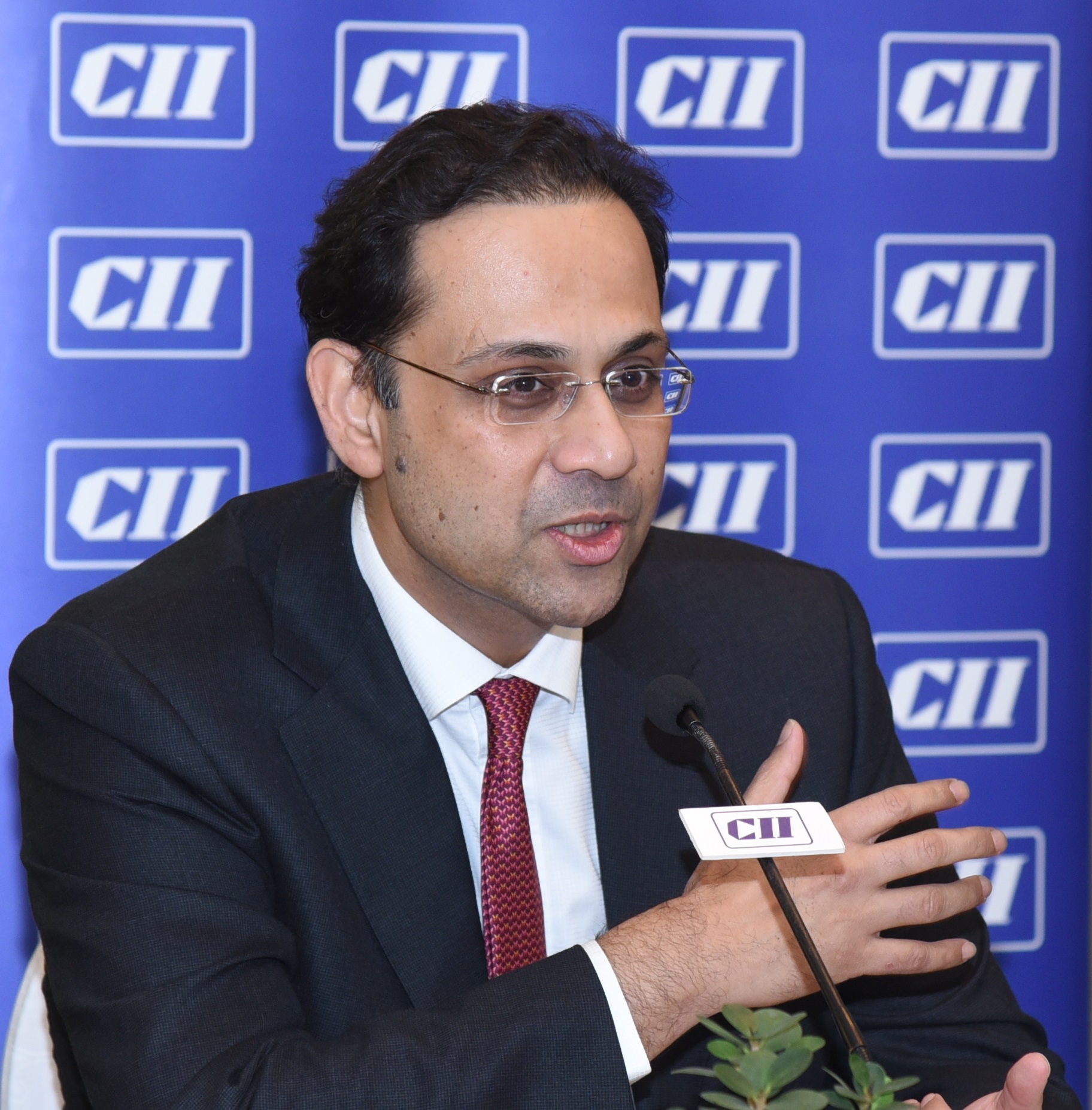 Mr Piruz Khambatta is the Chairman and Managing Director of Rasna Pvt Ltd., India's largest and the most popular Soft Drink Concentrates brand. Rasna's operations in more than 40 countries in the world are backed with a vast distribution network of 9 factories in India at various locations. Rasna's products are available in the remotest corners contributing to its enormous success.
Mr Khambatta has come a long way over two decades, when he first got involved with the company at the age of eighteen. His association with Rasna Pvt. Ltd. as Chairman and Managing Director dates back to the year 1997 after he took over the helm of affairs. Today, Mr Khambatta with his ingenuous qualities of hands-on-management and innovativeness in products and promotions has developed Rasna into an Indian success story.
Mr Khambatta is closely associated with CII Membership's Engagement for over a decade. He was Deputy Chairman of CII Western Region. He is the Past Chairman of CII Gujarat State Council. He has been Chairman of CII National Food Processing Committee for many years and was Chairman, Task Force on Nation Building in Western Region.
Mr Sanjiv Bajaj is Managing Director of Bajaj Finserv Ltd. Bajaj Finserv operates in the insurance business through Bajaj Allianz Life Insurance Company Limited and Bajaj Allianz General Insurance Company Limited, as well as in the lending business through Bajaj Finance Limited. His role includes guiding the current businesses and building new ones in the financial services space.
Mr Piruz Khambatta is the Chairman and Managing Director of Rasna Pvt Ltd., India's largest and the most popular Soft Drink Concentrates brand. Rasna's operations in more than 40 countries in the world are backed with a vast distribution network of 9 factories in India at various locations. Rasna's products are available in the remotest corners contributing to its enormous success.
Mr Khambatta has come a long way over two decades, when he first got involved with the company at the age of eighteen. His association with Rasna Pvt. Ltd. as Chairman and Managing Director dates back to the year 1997 after he took over the helm of affairs. Today, Mr Khambatta with his ingenuous qualities of hands-on-management and innovativeness in products and promotions has developed Rasna into an Indian success story.
Mr Khambatta is closely associated with CII Membership's Engagement for over a decade. He was Deputy Chairman of CII Western Region. He is the Past Chairman of CII Gujarat State Council. He has been Chairman of CII National Food Processing Committee for many years and was Chairman, Task Force on Nation Building in Western Region.
Mr Sanjiv Bajaj is Managing Director of Bajaj Finserv Ltd. Bajaj Finserv operates in the insurance business through Bajaj Allianz Life Insurance Company Limited and Bajaj Allianz General Insurance Company Limited, as well as in the lending business through Bajaj Finance Limited. His role includes guiding the current businesses and building new ones in the financial services space.
He is also the :
1- Vice Chairman of Bajaj Finance Ltd. since 15 October 2013.
2 - Chairman of Bajaj Allianz Life Insurance Company and Bajaj Allianz General Insurance Company with effect from 1 April 2013. Was the Non-Executive Director of these two companies from their inception in 2001 up to 31 March 2013.
3- Managing Director of Bajaj Holdings & Investment Limited with effect from 1 April 2012 (earlier its Non-executive Director). Role includes building the strategy and team, and guiding this investment company, which has almost Rs. 60,000 crore in cash and investments including over 30% stake in Bajaj Auto and around 40% in Bajaj Finserv.
4- Former Executive Director of Bajaj Auto Limited (until 31 March 2012), having headed Finance & Control, legal & international business functions of Bajaj Auto over different periods from 1994 until 2012 and currently its Non-Executive Director.
Mr Sanjiv Bajaj has been the Chairman of CII National Committee on Insurance & Pensions for the last 3 consecutive years. He was also the Chairman, CII WR Task Force on Entrepreneurship & Start Ups and Chairman, CII WR Sub-Committee on Governance.
Goldman Sachs Downgrades India's Growth Forecast For FY19 To 7.6%
MMNN:20 March 2018
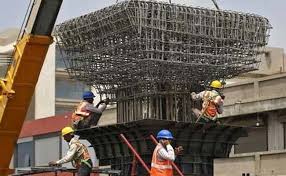
Mumbai/Bengaluru: Investment bank Goldman Sachs downgraded its forecasts for India's economy on Tuesday in the wake of a more than $2 billion fraud at Punjab National Bank (PNB), warning it could spark tighter regulation of the banking sector that would constrain credit growth.
In a note to clients, Goldman Sachs lowered its real gross domestic product (GDP) forecast on India for the year to March 2019 to 7.6 per cent from 8 per cent earlier.
Last month's disclosure of the fraud by PNB, the second-largest state-run lender has sent bank shares tumbling.
The case, along with a flurry of smaller loan frauds since reported by other banks, has sparked new concerns that credit growth is unlikely to pick up quickly in an economy where state-run lenders that account for two-thirds of banking assets are already saddled with a mountain of bad debt.
The Goldman warning is a blow for the government, which had hoped that a $32 billion, two-year, bank recapitalisation programme it unveiled last year would help banks to begin to restart lending, spurring elusive job growth in the economy.
State-run lenders account for the bulk of the close to $150 billion of soured debt in India. They have already seen the amounts they must set aside to cover bad debts grow due to new central bank rules, and are staring at further loan losses as they pursue a host of defaulters through the bankruptcy court.
Goldman said it feared a regulatory crackdown after the huge PNB fraud, and the mountain of soured debt, could increase banks' provisioning burden and so slow credit growth.
"Markets and investors are questioning whether the problem is more systemic," Goldman analysts wrote in the note, referring to the PNB fraud, adding that markets feared the fraud would likely offset some of the positive effects of the bank recapitalisation and hit overall credit, investment and GDP growth.
India regained its status as the world's fastest growing major economy in the October-December quarter, as it grew 7.2 per cent, its fastest in five quarters.
Goldman, which forecasts the economy to grow 6.6 per cent in the current fiscal year which ends in March, said it retained its 2019/20 growth forecast at 8.3 per cent.
Goldman said its analysts believe PNB was likely to take the hit of the entire $2 billion, wiping off more than a quarter of its net worth.
It also said the average haircuts on impaired loans banks would need to take could be 60-65 per cent over the next two years, higher than the 50 per cent it had assumed earlier, meaning overall provisions would rise.
The still unravelling PNB fraud, the biggest in the banking history, has prompted the government to ask banks to scan all their bad loans above 50 crore ($7.7 million) for any sign of wrongdoing.
Other small cases of fraud have come to light in the past month, while investigations into ongoing cases have picked up pace.
COMMENTSShares in another state-run lender, Canara Bank, tumbled as much as 5.4 per cent on Tuesday morning after the police filed charges against its former chief and others over allegations that the officials helped a company defraud the bank of about $10.5 million taken in loans over four years ago.
Asian Shares In The Red As Nervous Markets Await Federal Reserve Decision
MMNN:19 March 2018
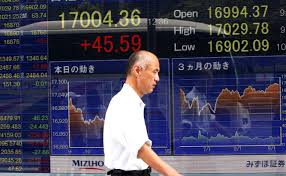
Sydney: Asian share markets slipped into the red on Monday as caution gripped investors in a week in which the Federal Reserve is likely to hike US interest rates and perhaps signal that as many as three more lie in store for the rest of the year.
Japan's Nikkei extended early losses to drop 1.3 per cent as exporters were undermined by recent broad-based gains in the yen.
MSCI's broadest index of Asia-Pacific shares outside Japan eased 0.5 per cent, while Australia's main index lost 0.2 per cent.
The pain was not confined to Asia, with the June contract for E-Minis futures on the S&P 500 down 0.3 per cent and FTSE futures off 0.4 per cent.
While Wall Street had bounced on Friday, the major indices still ended lower for the week. The Dow lost 1.57 per cent, the S&P 1.04 per cent and the Nasdaq 1.27 per cent.
The decline was surprising given figures from Bank of America Merrill Lynch showed a record $43.3 billion of inflows into equities last week, outpacing bond flows for the first time since 2013.
For the year so far, $9.8 billion has gone into tech stocks and $7.3 billion into financials, while $41 billion has flowed into emerging markets and $31 billion into Japan.
Whether the cash continues to flow could depend on what the Fed decides on Wednesday. All 104 analysts polled by Reuters expected the Fed would raise rates to between 1.5 per cent and 1.75 per cent on Wednesday.
They were less certain on whether the "dot plot" forecasts of committee members will stay at three hikes this year or shift higher.
It will also be the first press conference for new Fed Chair Jerome Powell.
"Expected is a confident Fed Chair, both with respect to the economy's strength and the Fed's approach to policy," said analysts at Westpac in a note.
"While growth forecasts and the distribution of rate projections are likely to drift up, the median fed funds forecast should remain unchanged at three in 2018 and three more in 2019," they added. "Gradual and timely are the operative words for policy."
Any nod to four hikes would normally be considered as bullish for the US dollar, yet the currency has shown scant correlation to interest rates in recent months, falling even as policy tightened.
Reasons cited by dealers include concerns about the US budget and current account deficits, political chaos at the White House, better growth in competing countries, particularly Europe, and the risk of a US-led trade war.
Trade will be top of the agenda at a two-day G20 meeting starting later on Monday in Buenos Aires and any signs of escalating stress between the US and China could make investors in Asia nervous.
The cautious mood was evident in demand for the safe-haven Japanese yen which climbed against a raft of currencies last week. On Monday, the dollar was off 0.22 per cent at 105.78 yen and not far from its recent trough at 105.24.
The dollar was a fraction firmer against a basket of currencies at 90.289, while the euro eased 0.1 per cent to $1.2268.
COMMENTSThe prospect of higher US interest rates was been a burden for non-yielding gold, which slipped 0.8 per cent last week. Early Monday, the metal was down at $1,311.20 per ounce.
Oil prices eased after ending last week with a solid bounce. Brent futures were down 38 cents at $65.83 a barrel, while US crude futures for April, which expire on Tuesday, dipped 36 cents to $61.98 a barrel.
METROMIRROR.COM Invites Exclusive Research Features/Findings related to various disciplines of Business,Industry,Economy and Economic Intelligence.Please send your Research/findings at Email:editormetromirror@gmail.com with Profile and Photo.
Analytical Report from FICCI Frames 2018: 4-7 March, 2018, Grand Hyatt, Mumbai
Print Lowest & Digital Highest Growth in the Half Full Glass of Indian Media.
Prof Ujjwal K Chowdhury, School Head, School of Media, Pearl Academy, Delhi & Mumbai
Glass Half Full, Half Empty
"Indian media and entertainment industry story, the big ambassador of Indian soft power, is that of
a glass half full and half empty", Siddharth Roy Kapur, Co-chair, FICCI Media & Entertainment
Committee, notes almost prophetically at the inaugural session of the annual jamboree of India M&E
Industry, FICCI Frames, at Grand Hyatt held from 4th to 7th of March, 2018.
Rightly so, indeed.
Healthy Domain Growth
The sector, according to the industry status report released by Ernst & Young and FICCI during the
event, touched Rs.1.5 trillion ($22.7 billion) in 2017, a growth of 13% over the last year, while the
economy overall grew at half of that rate. It is all poised to cross Rs.2 trillion or $31 billion by 2020,
which is a healthy growth. On the other hand, a few large areas of the industry, i.e. print, radio,
music, out of home and television: all grew at less than 10% over the previous year, print being at a
lowly 3%. Animation, films and digital media grew from 25 to 30% over the earlier year.
Employment@Crossroads
Look at another perspective. The direct employment in M&E sector has crossed 1 million people,
and the total including indirect and induced employment is above 5 million, which is a substantial
number, but is miniscule in front of 1.3 billion people strong nation, and a huge majority of this
number is under-trained and digitally semi or sparsely skilled whereas the growth of the digital
media last year was the highest, at 30% over 2016. The needs for structured and formal training in
content production, re-skilling of people already in the industry for long, and entertainment business
management skills to monetize content across all platforms, are all the more urgent today than ever
before. Media jobs being non-repetitive and imagination driven, though technology facilitated
heavily today, remain an area which will not be largely replaced by machines and hence are a long-
term job prospect, which is often missed out by learners and mentors alike.
Films Fast Forward
Look at the film industry which has grown by a very healthy 27% over the earlier year, and stands
now at Rs.156 billion in 2017, which is still less than half of what Avatar film earned in all languages
globally. While India has produced more than 1500 censored films in all languages together last year,
Hollywood has not crossed 700 films, but we have earned roughly 1% of the total income of
Hollywood! For us $100 million income of a film is outstanding success of a film, for Hollywood it is
$1 billion! We had around 8000 film screens by the turn of this decade in 2010 and China some
9000. But today China has crossed 45,000 screens for films, and we are at 9000 total. Dangal with
more income in China than in India and Bahubali in all languages together and both parts included
have earned like successful Hollywood films. Even Marathi and several South Indian language films
have earned more than 100 crores each: these being matters of pride and hope ahead. But low-cost
screens in the hinterland are a must. "Dial up the screen density for future growth in film sector
since supply is interestingly an important vector of demand here," rightly says Sudhanshu Vats,
Group CEO, Viacom 18.
TV to Stay
India produces 16,000 hours of fresh entertainment content for all general entertainment channels
together, which is 12 times more than USA, but earns less than 8% of the TV income of them. We
have 784 million TV-viewing people in India, more than the total population of European continent,
but an income much lower than them and with opportunities to grow further more in a nation which
is almost double at 1.3 billion.
Where is Digital Value Adds?
In spite of the enormous 30% growth of the digital media in 2017, to Rs.120 billion (up from Rs.92
billion in 2016), use of Virtual Reality, Augmented Reality and Artificial Intelligence in the
entertainment sector is still in its infancy. Shooting in physical sets, use of given resources and
human skills are almost the sine que non of Indian entertainment content production, whereas
globally AR-VR- AI contribute to content generation heavily, cutting down human interference and
costs drastically.
Media as Force Multiplier
We are all aware of the force multiplier impact of media and entertainment sector on other sectors
of the economy like tourism (e.g. Ladakh after 3 Idiots), fashion and merchandise, retail sales, mall
sales wherever multiplexes are there, etc. Tourism is already an industry of $150 billion and media
fuels the same. Media has seamless linkages with e-commerce. However, the potential in all of these
is not even a quarter exploited yet. There is enough headroom and tailwind for growth.
Industry's Self Introspection
There are several things that the industry itself can do to strengthen its reach, impact, business and
engagement of audiences. First, it has to realise that collaboration is a better strategy than
competition or even when you compete with your peers. Also, industry has to take common stands,
when facing the government, when combating attacks from fringe elements on itself, and when
upgrading its standards. Second, each media platform or initiative needs to learn to have some
unique positioning, specialization and focus and not do everything for everyone. Third, industry
needs to wake up to measurements, accountability and big data analytics, especially in the rising
digital age. Approximation and befooling audiences and advertisers, and data-fudging shall be
matters of the past, going ahead. Fourth, an immense quantum of collaboration with youths will be
needed, for example on the lines of V-SEP program of the Viacom group: Viacom Start-up
Engagement Program.
Government as Game-changer?
On the other hand, the government can be a game-changer too. And the biggest aspect in it is the
commencement of e-enabled time-bound single window of clearances for events, licensing, varied
content production permissions, et al, on which the Niti Ayog currently is working with support from
the industry. But that is a long way to go yet. With the data-prices falling, the digital access of
entertainment and information content has grown tremendously and audio-video consumption
experiences should be even better with 5G connectivity coming ahead. But for that the process of
auctioning 5G spectrum, facilitating ease of doing content and digital business etc need a major push
from the government at the Centre. Policy paralysis to uncertainty have often plagued the industry.
Since demonetization and GST implementation have been a twin attack on media economy, its
industry status now needs a strong fillip from the government to gain lost ground, credits, outreach
and credibility ahead.
Quest of a Positioning
The Union Minister for Information & Broadcasting, Smriti Irani, interestingly noted in her
interaction at FICCI Frames, that Indian M&E industry should not compare itself with Hollywood and
China (except for business numbers), but should position itself uniquely with its story-telling skills
with the largest media consumer base in the world being here.
Re-imaging the Future
The next move of this sector has to be re-imagine itself, and in digital language and space more
particularly, to create global capacity going beyond domestic market and the NRI-PIO circles (just as
seen in the case of Dangal or Bahubali). Media can be the true-blue Make In India success-story with
stories, people, technologies, places and force multiplier synergies with other sectors of the
economy: all being here and now in India.

Prof Ujjwal K Chowdhury
School Head, School of Media, Pearl Academy, Delhi & Mumbai
Former Dean, Amity University, Mumbai.
Former Director, Symbiosis Institute of Media & Communication & Dean, SIU, Pune.
Former Dean, Whistling Woods School of Communication, Mumbai.
Former Media Adviser, Textiles Ministry, GOI; The Nippon Foundation & WHO, India.
Top Stocks That Should Be On Your Radar Today - SBI, PNB, Airtel, Infosys, IndiGo
MMNN:16 March 2018

Indian stock markets are likely to start Friday's session on a weak note with the SGX Nifty trading 38.50 points lower at 10,324.50 on Singapore Exchange. SGX Nifty is an early indicator of NSE Nifty. On Thursday, the 50-scrip NSE Nifty declined 50 points to gave up the psychologically crucial mark of 10,400 while the S&P BSE Sensex closed below the 33,700 level, shedding 150 points. Going ahead, if the Nifty50 continues to trade in the range of 10,480-10,300, traders should follow a stock-centric approach, according to experts. "Positional traders should keep a close track of the trading range 10,480-10,300 and as long as index oscillates within this, it would be a prudent strategy to continue with a stock-centric approach," said Sameet Chavan, chief analyst-technical and derivatives, Angel Broking. HDFC Bank would play a key role in deciding the near term direction for the banking index, he added.
Here are five more shares you should keep an eye on during Friday's stock trading session:
State Bank of India (SBI): The largest public sector lender clarified on Thursday that 41.6 lakh accounts which were closed between April to November this fiscal were not closed suo-motu. The response came after media reports said that after introduction of the requirement of average monthly balance, SBI closed 41.16 lakh accounts. (Read more)
Punjab National Bank (PNB): PNB has uncovered another credit-guarantee fraud within the Mumbai branch which is already at the centre of a similar scam worth over $2 billion. This alleged embezzlement of around Rs. 9 crore involved executives of a company called Chandri Paper and Allied Products, according to the complaint filed by PNB with the Central Bureau of Investigation. (Read more)
Bharti Airtel: The largest telecom services operator has landed in a soup after the telecom regulator issued a show-cause asking it to share details about offering discriminatory and non-transparent tariffs to customers, according to a report by the Economic Times.
InterGlobe Aviation: IndiGo, which is owned by InterGlobe Aviation, would be cancelling as many as 488 flights during the period March 15-31, following grounding of 11 A320 neo planes with faulty Pratt & Whitney (P&W) engines. IndiGo has the largest share in the domestic aviation market. (Read more)
COMMENTSInfosys: The tech giant announced on Thursday that it will open its next technology and innovation hub in Hartford, Connecticut and hire 1,000 American workers in the state by 2022
SBI Lowers Charges On Non-Maintenance Of Minimum Balance To Rs. 15 From Rs. 50
MMNN:13 March 2018

Mumbai: The State Bank of India today reduced its charges on non-maintenance of an average monthly balance (AMB) in savings account by up to 75 per cent, effective April 1. The charges for non-maintenance of AMB for customers in metro and urban centres have been reduced from a maximum of Rs. 50 per month plus goods and services tax (GST), to Rs. 15 per month plus GST. The above revision will benefit 25 crore bank customers.
For semi-urban and rural centres, the charges have been reduced from Rs. 40 per month plus GST to Rs. 12 and Rs. 10 per month plus GST, respectively, the bank said in a release.
"We have reduced these charges taking into account the feedback and sentiments of our customers," SBI's managing director (retail and digital banking) P K Gupta said.
"The bank has always focused on keeping the interests of its customers first and this is one of our many efforts towards fulfilling customers' expectations," he said.
The SBI also offers its customers to shift from a regular savings bank account to basic savings bank deposit account (BSBD) on which no charges are levied.
A customer always has the option of converting the regular savings bank account to BSBD account free of charge, in case he desires to avail basic savings bank facilities without being subject to maintenance of AMB, Gupta said.
COMMENTSThe lender has 41 crore savings bank accounts, out of which 16 crore accounts under the Pradhan Mantri Jan Dhan Yojna/ BSBD, and of pensioners/ minors/ social security benefit holders are already exempted from charges on non- maintenance of minimum balance.
26th GST Council Meet: E-Way Bill Rollout From April 1, Exemptions Extended By 6 Months
MMNN:10 March 2018
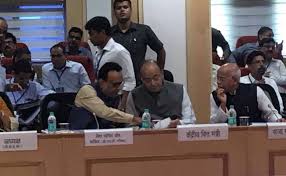
In its 26th meeting on Saturday, Arun Jaitley-chaired GST Council (Goods & Services Tax) extended the existing system of filing returns by another three months till June. Besides this, group of ministers (GOM) on the IT will look into the tax filing process and consult tax experts before taking a call, among other decisions, Union Finance Minister Arun Jaitley tweeted.
Union Finance Minister Arun Jaitley on Saturday, after the GST Council meet, said the electronic way or e-way bill for movement of goods between states will be implemented from April 1.
However, for intra-state movement, the e-way bill would be rolled out in a phased manner starting April 15, and will cover all the states by June 1.
The Goods and Services (GST) Council was expected to simplify the return filing process on Saturday, however, the Council could not decide on a simplified GST return form and entrusted the ministerial panel under Sushil Modi to chalk out a single page form which is simpler and evasion proof. Besides, tax exemptions to exporters have also been extended by six months to September.
On February 24 this year, Bihar's deputy chief minister and state finance minister Sushil Modi had said that the e-way bill would be made mandatory from April 1.
In the 23rd GST council meeting, it was decided that filing of GSTR-2 and GSTR-3 forms would stop and only the filing of GSTR-1 and GSTR-3B would continue.
According to the recommendation made by Nilekani, instead of supplying invoices to be uploaded, a module can be formed where supplying invoice details can be posted, and based on the invoice data fed by the supplier, the system by itself generates the return.
GSTR-3B Return: Due Dates For February And March
Due date of filing GSTR-3B return is 20th of the next month. For instance, the 3B return for the month of March can be filed anytime before April 20, and similarly, the 3B return for the month of February can be filed anytime before March 20.
GSTR-1 Return: Due Dates For February And March
Taxpayers with an annual turnover that amounts to Rs. 1.5 crore or less are obligated to file their GSTR-1 returns quarterly. The due date for such taxpayers is 30th of the month following the end of respective quarter. For the March (Jan 1 to March 31) quarter, for instance, the deadline would be 30th of April.
Those with a turnover of Rs. 1.5 crore and above are meant to file monthly returns of GSTR-1. The deadline for monthly return is 10th of the month that comes two months after the end of respective month. For instance, the GSTR-1 return for the month of January can be filed by March 10. Likewise, returns for the months of February and March can be filed by April 10 and May 10.
26th GST Council Meet: E-Way Bill Rollout From April 1, Exemptions Extended By 6 Months
MMNN:10 March 2018

In its 26th meeting on Saturday, Arun Jaitley-chaired GST Council (Goods & Services Tax) extended the existing system of filing returns by another three months till June. Besides this, group of ministers (GOM) on the IT will look into the tax filing process and consult tax experts before taking a call, among other decisions, Union Finance Minister Arun Jaitley tweeted.
Union Finance Minister Arun Jaitley on Saturday, after the GST Council meet, said the electronic way or e-way bill for movement of goods between states will be implemented from April 1.
However, for intra-state movement, the e-way bill would be rolled out in a phased manner starting April 15, and will cover all the states by June 1.
The Goods and Services (GST) Council was expected to simplify the return filing process on Saturday, however, the Council could not decide on a simplified GST return form and entrusted the ministerial panel under Sushil Modi to chalk out a single page form which is simpler and evasion proof. Besides, tax exemptions to exporters have also been extended by six months to September.
On February 24 this year, Bihar's deputy chief minister and state finance minister Sushil Modi had said that the e-way bill would be made mandatory from April 1.
In the 23rd GST council meeting, it was decided that filing of GSTR-2 and GSTR-3 forms would stop and only the filing of GSTR-1 and GSTR-3B would continue.
According to the recommendation made by Nilekani, instead of supplying invoices to be uploaded, a module can be formed where supplying invoice details can be posted, and based on the invoice data fed by the supplier, the system by itself generates the return.
GSTR-3B Return: Due Dates For February And March
Due date of filing GSTR-3B return is 20th of the next month. For instance, the 3B return for the month of March can be filed anytime before April 20, and similarly, the 3B return for the month of February can be filed anytime before March 20.
GSTR-1 Return: Due Dates For February And March
Taxpayers with an annual turnover that amounts to Rs. 1.5 crore or less are obligated to file their GSTR-1 returns quarterly. The due date for such taxpayers is 30th of the month following the end of respective quarter. For the March (Jan 1 to March 31) quarter, for instance, the deadline would be 30th of April.
Those with a turnover of Rs. 1.5 crore and above are meant to file monthly returns of GSTR-1. The deadline for monthly return is 10th of the month that comes two months after the end of respective month. For instance, the GSTR-1 return for the month of January can be filed by March 10. Likewise, returns for the months of February and March can be filed by April 10 and May 10.
Infosys Says Not Named In FIR In Income Tax Fraud Case
MMNN:9 March 2018
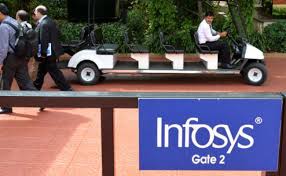
IT major Infosys has clarified that the company has not been named as an accused party in First Information Report (FIR) filed by the Central Bureau of Investigation (CBI) in relation to an alleged income tax fraud. The IT major also said that the CBI has not contacted the company in connection with this matter. Infosys will co-operate with law enforcement agencies as and when approached, the IT major said. A Times Of India report had said that the CBI is investigating a "revised tax returns" fraud case involving several unknown employees of Infosys and officials from the income tax department.
According to the report, some "income tax officials and a few staffers of Infosys connived with a fake CA (chartered accountant) - now disowned by the Institute of Chartered Accountants of India (ICAI) - and filed 1,010 revised tax returns using forged documents in the names of 250 taxpayers of various private firms, during three assessment years and claimed refunds illegally." Infosys is the vendor for online processing of income tax returns. Bombay Stock Exchange had later sought clarification from Infosys over the matter.
COMMENTS
In a statement to Bombay Stock Exchange, Infosys on Thursday clarified: "We have taken note of the media articles in relation to the alleged fraud concerning the Income Tax department and the First Information report ("FIR") by the Central Bureau of Investigation ("CBI") in relation to these allegations. Infosys Limited is not named as an accused party in the said FIR."
Infosys added: "So far we have not been contacted by the CBI in connection with this matter. Infosys will co-operate with law enforcement agencies as and when we are approached. As per our obligations under the SEBI Listing Regulations and the Company's Disclosure Policy Infosys will make appropriate disclosures."
Centre Seeks Parliament Approval For Rs. 85,300 Crore More Spending
MMNN:8 March 2018
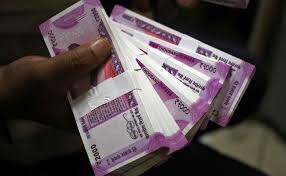
New Delhi: The government on Thursday sought parliament's approval to spend a net additional Rs. 85,300 crore ($13.14 billion) in new spending in the current fiscal year to end-March 2018, a finance ministry statement said.
Prime Minister Narendra Modi, who faces national elections next year, has pushed up spending on rural infrastructure and jobs-creating sectors to bolster his popularity among voters.
This extra spending is unlikely to impact the country's fiscal deficit target for 2017/18 as India had raised the target to 3.5 per cent of gross domestic product from 3.2 per cent earlier.
The spending would include Rs. 62,700 crore compensation to the state governments and union territories following the launch of Goods and Services Tax in July last year, and Rs. 9,260 crore for pension payments to the armed forces.
COMMENTSIndia grew 7.2 per cent in the December quarter, its fastest pace in five quarters, beating China's 6.8 per cent growth in that quarter.
PM Modi faces criticism over mounting bad loans at state banks and a $1.77-billion fraud at state lender Punjab National Bank, the biggest in the country's banking history
GDP Data Today, India Could Top China's Growth Rate: 10 Points
MMNN:28 February 2018
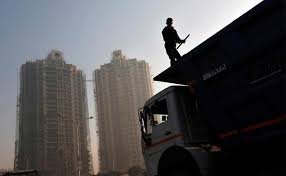
GDP or gross domestic product grew at 6.9 per cent in the October-December quarter from a year earlier as the transient effects of GST fade away, according to a Reuters poll of more than 35 economists, taken over the past week. If the GDP growth numbers come in line with the Reuters poll, it will be the best growth rate recorded in a year. It would also help India regain the status of the world's fastest-growing major economy. The government is likely to release the GDP data at 5:30 pm on Wednesday, February 28.
Here are 10 things to watch out for in today's GDP data:
If there was 6.9 per cent growth, that would top China's 6.8 per cent annual pace for October-December. The last time the economy had a faster growth rate was in the final three months of 2016.
A slowdown mainly in the agricultural sector is likely to be compensated by a higher growth rate expected in industrial sector and services, says Abheek Barua, chief economist of HDFC Bank.
"An expected strong rebound in the industrial sector, particularly manufacturing, as the transient effects of GST fades away, corroborates well with improvement in corporate earnings and other fast moving indicators such as IIP and PMI for the third quarter," he said.
Mr Barua remains "optimistic about the growth outlook in FY19 as the economic recovery gains momentum and the effects of the demonetisation shock and GST related disruptions fade away".
GDP growth had fallen to a three-year low of 5.7 per cent in the April-June quarter due to destocking in the run-up to the July 1 launch of the goods and services tax (GST) and a lingering impact of demonetisation. But in the July-September quarter, the economic growth picked up to 6.3 per cent annually, a return to a faster growth trajectory after five consecutive quarters of slowdown.
The Economic Survey says a series of major reforms undertaken over the past year will allow real GDP growth to rise to between 7.0 per cent and 7.5 per cent in 2018-19, thereby reinstating India as the world's fastest growing major economy.
The International Monetary Fund projects India's GDP to grow at 7.4 per cent in 2018 as against China's 6.8 per cent, making it the fastest growing country among emerging economies following last year's slowdown due to demonetisation and the implementation of the GST.
The IMF's update, released last month, projects a 7.8 per cent growth rate for India in 2019.
Some economists are however concerned about the non-performing assets of state-run banks, and say if they are not handled effectively it would hurt economic activity.
Adding to those worries, Punjab National Bank (PNB), the second biggest state-run lender in the country, this month revealed a loan fraud that's the biggest in India's banking history. The fraud has cast a shadow over the workings of state-run lenders, already reeling from accumulated bad loans that are higher than those of banks in most major economies.
Aadhaar For Children: Aadhaar Card Needs Two Mandatory Biometric Updates, Says UIDAI
MMNN:27 February 2018
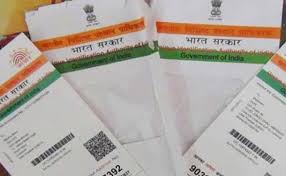
Aadhaar card can be owned by anyone, from children to the elderly. However, the biometric details of children enrolled with Aadhaar need to be updated when the child attains the age of five years, and then once again at the age of 15 years. This was said by the UIDAI or Unique Identification Authority of India - the issuer of Aadhaar card as well as the 12-digit Aadhaar number - on microblogging site Twitter. Also, the UIDAI further said, the mandatory biometric update for children is free.
The UIDAI has said that an Aadhaar issued to a child needs to undergo two mandatory biometric updates. One when the child reaches the age of five years, and another when he or she reaches the age of 15 years. Biometric data refers to data collected by way of iris or fingerprint scans. For enrolling a child for 'Baal Aadhaar' card, the child's birth certificate and the Aadhaar card number of one of the parents is required, according to the UIDAI.
The UIDAI recently introduced a blue-coloured Aadhaar card, called 'Baal Aadhaar', for children below the age of five years. For enrolling a child into the Aadhaar system, the child's school ID be used, according to the UIDAI. This photo identity card has to be issued by a recognised educational institution. The child's school ID will serve as an identity proof for Aadhaar enrolment, said the UIDAI. (Read more)
Here are five things to know about the Baal Aadhaar:
1. Biometrics is not developed for children before five years of age.
2. According to UIDAI, a child's blue coloured Aadhaar data does not include biometric information like fingerprints and iris scan.
3. A Baal Aadhaar can be obtained for a child by visiting an Aadhaar enrolment centre (or 'Aadhaar Kendra') and filling out an enrolment form.
COMMENTS4. The child's birth certificate and a mobile number also have to be provided at the time of enrolment.
5. Additional, one of the parents must provide their Aadhaar card number to enroll their child to obtain a Baal Aadhaar
Trading Calls: Buy Ashok Leyland, Aurobindo Pharma, Says Expert
MMNN:26 February 2018
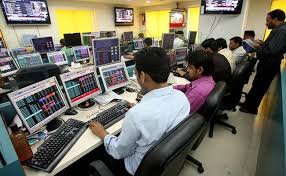
Indian stock markets are likely to start Monday's session on a positive note, with the SGX Nifty on Singapore Exchange trading 49 points higher at 10553.50. Shares in the other Asian markets traded with a cautious mood as investors braced for an event-packed week headlined by US inflation data and the first House testimony by the new head of the Federal Reserve. Japan's Nikkei 225 was trading up 0.8 per cent, China's Hang Seng up 0.6 per cent and Shahghai Composite up 0.3 per cent, and South Korea's KOSPI up 0.2 per cent. MSCI's broadest index of Asia Pacific shares outside Japan nudged up 0.3 per cent. Investors initially took heart from Friday's rally on Wall Street which saw the VIX volatility index end at 16.49 per cent, far below the 50 per cent peak touched at the height of market turmoil in early February
On Friday, the BSE benchmark index Sensex closed 322 points higher to regain the 34,000 mark, while the NSE Nifty settled at 10,491, 108 points, or 1 per cent, higher. (Read more)
Simi Bhaumik, research analyst, shared her trading picks:
Buy Ashok Layland at a minor dip for a target price of Rs. 139 with stop loss at Rs. 131
Buy Aurobindo Pharma at a minor dip for a target price of Rs. 624 with stop loss at Rs. 588
Buy Hindalco at a minor dip for a target price of Rs. 254 with stop loss at Rs. 242
Buy Motherson Sumi at a minor dip for a target price of Rs. 325 with stop loss at Rs. 314
COMMENTSBuy SAIL at a minor dip for a target price of Rs. 95 with stop loss at Rs. 84
Bank fraud cases will impact ease of doing business in India: Jaitley
MMNN:24 February 2018
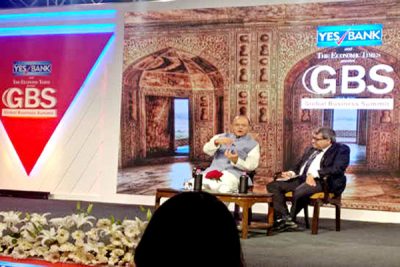
Finance Minister Arun Jaitley said on Saturday that incidents of bank frauds will impact ease of doing business in India and if incidents like this place periodically, the entire effort gets relegated to the background and these scars on the economy take the front seat.
Speaking at the Global Business Summit here, Mr Jaitley said the fact that loan frauds went on undisclosed in the banking sector and no one raised any red flag was worrisome.
Terming wilful defaulters"scars on the economy", he said such cases will impact ease of doing business in India."If you periodically have incidents like these, the entire effort of ease of doing business goes to background and these scars on the economy take the front seat," Mr Jaitley said.
He said regulators have a very important function and they ultimately decide the rules of the game, adding that they have to have a third eye which perpetually is open. Unfortunately, in the Indian system, politicians were accountable instead of regulators, he stated.
A few days ago, in a rebuke to the auditors and the management of Punjab National Bank for their failure to detect the Rs 11,400 fraud, Mr Jaitley had said,'Supervisory agencies need to assess as to what new system has to be put in place to detect irregularities.should ensure the stray cases are nipped in the bud and they are never repeated.
PNB, Already Reeling Under Nirav Modi Fraud, Now Hit By Data Breach
MMNN:23 February 2018

New Delhi: Some 10,000 credit or debit card holders have been affected by a data breach reported by Punjab National Bank (PNB), which is already reeling under a multi-crore rupee financial fraud by two fugitive luxury jewellers.
According to an Asia Times report, security experts believe that the sensitive details of customers of the state-run bank were offered for sale through a website for at least three months.
The Hong Kong-based English language news website reported that the bank was tipped off on Wednesday night about the data breach by CloudSek Information Security, a company registered in Singapore that also has its office in Bengaluru. The firm monitors data transactions.
"We have a crawler that is deployed in the dark/deep web. These are sites on the Internet which are not indexed by Google or other major search engines. They are used to buy and sell sensitive data illegally," chief technical officer Rahul Sasi was quoted as saying by the news site.
"Our crawler detects any such data and sends it to a Machine Learning software that we have created. If this detects anything that is suspicious, and of interest to our clients, we immediately take action."
PNB's Chief Information Security Officer T.D. Virwani has confirmed it was working with the government to contain the fallout from the release of the data.
The data available for sale includes names, expiry dates, Personal Identification Numbers and Card Verification Values (CVV).
COMMENTSSasi said two sets of data were released: some with CVV numbers and some without. The last date stamp on the data is January 29, 2018, indicating that the details are still current for thousands of card customers.
Budget Slippage Worrying RBI, Minutes Show
MMNN:22 February 2018
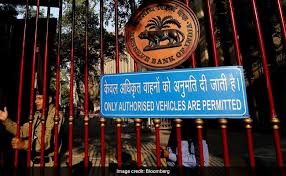
Members of India's rate setting committee are concerned about the inflationary impact from Prime Minister Narendra Modi's expansionary budget, minutes of the February central bank policy meeting showed. Most of the six members of the monetary policy committee turned hawkish at the Feb. 6-7 meeting, when the central bank decided to keep the benchmark repurchase rate at 6 percent. One member voted for an interest rate hike while another, known from his dovish stance, gave up his call for a cut, dashing any lingering hopes that the central bank could still ease policy in coming months.
Governor Urjit Patel said there were several upside risks to inflation, while his deputy Viral Acharya noted that if growth remains robust and inflation prints continue to be well above the target of 4 percent, a change in stance from "neutral" to "withdrawal of accommodation" might have to be considered. Another central banker, Michael Patra voted for a quarter percentage-point hike, according to the minutes published Wednesday.
The RBI's neutral stance earlier this month brought relief to the bond market, which has endured the worst sell-off in two decades.
And with Ravindra Dholakia jettisoning his rate cut call, bond investors who are grappling with tight liquidity conditions are slowly accepting the next move will probably be a hike. The swaps market showed investors are betting the central bank will raise the key rate to at least 6.5 percent before the end of 2018.
"Fixed income markets are telling us that we have fallen behind the curve," said Patra. "The target is in danger of getting out of reach and over the next few months, the upper tolerance band is under threat. This could seriously dent the credibility of the committee's commitment to the target," he said of inflation.
The RBI is forecasting inflation for April to September at 5.1 percent to 5.6 percent before easing to 4.5 percent to 4.6 percent for the second half of the financial year, although risks are tilted to the upside. The bank's goal is to keep headline inflation close to 4 percent over the medium term.
The central bank expects gross value added -- a key measure of growth -- to increase 7.2 percent next fiscal year from 6.6 percent this year. Forward-looking surveys show there's still slack in the economy though, with capacity utilization at 71.8 percent in the second quarter of 2017/18. While consumer confidence is sluggish, household inflation expectations remains elevated, underlining the RBI's hawkishness.
Budget Pangs
Earlier this month, Finance Minister Arun Jaitley presented a budget that boosted spending in a bid to placate angry voters before next year's general election. It also included higher procurement prices for food grains from farmers and hiked custom duties to boost domestic manufacturing.
The spending boost meant India will miss its fiscal deficit target with the budget shortfall at 3.5 percent of gross domestic product in the year ending March 31, wider than the previous 3.2 percent target. The government will aim for 3.3 percent next year rather than its earlier 3 percent goal.
"Impact of the increase in customs duty and MSP proposed in the budget on the headline inflation is again uncertain," said Dholakia.
Another MPC member Pami Dua cited the decision to raise procurement prices for farmers as a risk to inflation. This warranted "a wait and watch strategy with status quo in policy interest rate and a neutral stance is currently recommended."
COMMENTSMPC Member Febrauary December Patel (slight hawk) "There are several upside risks to inflation, especially from the staggered impact of HRA increases by various state governments; policy for arriving at the minimum support prices for Kharif crops; and the fiscal slippage as indicated in the Union Budget, which also has attendant "crowding-out" implications with regard to the cost of private domestic credit." "Several uncertainties, especially on the fiscal and external fronts, persist. It is, therefore, important to be vigilant. Hence, I vote for status quo in the policy rate, while maintaining the stance as neutral; this allows us the flexibility to respond appropriately to incoming data." Acharya (hawk) "The next few months of inflation and growth data will be key to determining the evolution of policy rates. If growth remains robust and inflation prints continue to project headline inflation a year ahead well above the target, then a change in stance from "neutral" to "withdrawal of accommodation" might have to be considered." "There seems little scope for accommodation or for change of stance at the present juncture. Incoming data will be key to shape the policy going forward." Dua (middle) "Fiscal deficit slippage and the slower than expected fiscal consolidation as well as the staggered impact of house rent allowance by state governments may also exert pressure on inflation." "In the current scenario, a wait and watch strategy is recommended, with continuous monitoring of data." Dholakia (dove) "The fiscal space to accommodate future higher oil price shocks seems to be absent given the slippage in the Union budget for 2018-19. Impact of the increase in customs duty and MSP proposed in the budget on the headline inflation is again uncertain. Although there is substantial fiscal slippage by the Centre, the fiscal performance of major states needs to be watched." "By cutting the policy rate, the domestic corporate bond market, stock market and hence investment demand could be encouraged and growth can be accelerated to bridge the output gap." Ghate (middle) "While details on the exact procurement policy are awaited, the enactment of a more elaborate procurement policy in the 2018-2019 Union Budget will put stress on state finances as well. Fiscal slippages in India are inflationary!." "Compared to the last review, various risks are materializing around inflation becoming generalized and need to be watched carefully." Patra (uber-hawk) "The target is in danger of getting out of reach and over the next few months, the upper tolerance band is under threat. This could seriously dent the credibility of the Committee's commitment to the target." "It is time now to signal its end and commence the withdrawal of accommodation, consistent with the evolving stance of liquidity management
Decision On Provident Fund Interest Rate Today: 10 Things To Know
MMNN:21 February 2018
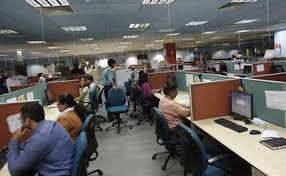
The highest decision making body of EPFO or Employees' Provident Fund Organisation is meeting today to decide on interest rate for its nearly 5 crore subscribers. The EPFO may pay an interest rate of 8.65 per cent to subscribers for 2017-18, the same rate as that of the previous year, news agency Press Trust of India (PTI) said in a report, citing sources. For 2016-17, EPFO had paid an interest rate of 8.65 per cent to its subscribers, lower than 8.8 per cent offered in 2015-16
Expectations From EPFO's Meeting On Interest Rate In 10 Points:
1-After the EPFO decides on the interest rate for subscribers, it is ratified by the finance ministry and then credited to the accounts of the subscribers after the end of the financial year. An EPFO subscriber can check the balance in his/her account online or through apps.
2-Even if EPFO decides to pay an interest rate of 8.65 per cent to subscribers for 2017-18, it will be viewed as positive in a situation where other savings instruments such as bank deposits and PPF or Public Provident Fund fetch much lower interest rates.
3-The Press Trust of India report, citing sources, said that to maintain the 8.65 per cent interest rate for this fiscal, the EPFO had sold a portion of its investments in the exchange traded funds (ETF) worth Rs. 2,886 crore earlier this month, the sources said.
4-The retirement fund body has earned a return of Rs. 1,054 crore on sale of ETFs this month, which would be sufficient to provide 8.65 per cent rate of interest this fiscal, the report said.
5-An ETF is a basket of stocks that reflects the composition of an Index.The EPFO has been investing in stock markets through ETFs since August 2015.
6-The Press Trust of India report, citing sources, said that a proposal to reduce administrative charges to 0.5 per cent from existing 0.65 per cent of the total wages of employees will be discussed today.
7-The report further said that the draft bill to amend Employees Provident Fund & Miscellaneous Provisions Act would also be placed for vetting by the trustees.
8-The bill proposes to give one-time option to choose between the Employees Provident Fund scheme or National Pension System (NPS) run by Pension Fund Regulatory and Development Authority.
9-The employer and employee typically contribute 12 per cent of basic salary towards employee provident fund (EPF).
10-An employee's 12 per cent contribution goes towards the EPF kitty, while 8.33 per cent out of the total 12 per cent of the employer's contribution is invested in EPS or pension scheme. The balance 3.67 per cent is invested in EPF.
Rupee Falls Sharply Against US Dollar Today, Down To 3-Month Low
MMNN:20 February 2018
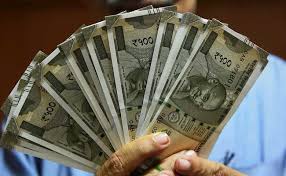
The rupee (INR) fell 64 paise to 64.85 against the US dollar (USD) at the interbank forex market today. Traders attributed higher demand for the US dollar from importers and banks and broad strength of the greenback for the rupee's decline today. On Friday, the rupee had ended 30 paise lower at 64.21 against the US dollar on rising global crude prices and worsening trade deficit. The currency markets were closed yesterday. In recent trade, rupee traded near its day's low, at 64.82.
1) Domestic equity markets struggled for gains today in noon trade today, further weighing on the rupee. Weakness in domestic stocks is weighing on the rupee, forex advisory firm IFA Global said in a note. The sentiment in banking stocks is also negative due to developments around PNB scam and rising rates, it added.
2) On a net basis, foreign investors withdrew Rs. 895.79 crore from stocks yesterday, according to a provisional data.
3) In global markets, the US dollar continued its rebound from three-year lows of 88.253 set on Friday. The dollar index is a measure of the value of the US dollar relative to a basket of foreign currencies. The dollar index against a basket of six major currencies was 0.3 per cent higher at 89.346.
4) "The Indian rupee fell to two month low amid broad dollar strengthening ahead of Wednesday's Fed meeting minutes and key Fed member's speeches," IFA Global added.
5) The Sensex and Nifty were mildly lower in late trade today.
Reliance To Launch 4th Industrial Revolution In Maharashtra With An Investment Of Rs. 60,000 Crore
MMNN:19 February 2018
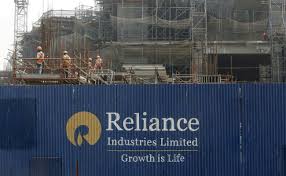
Mumbai: In a bonanza for Maharashtra, Reliance Industries Chairman Mukesh Ambani on Sunday announced plans to launch the 'Fourth Industrial Revolution' in the state with an investment of Rs. 60,000 crore and collaboration of over 20 global conglomerates.
He said that the initiative will take forward the flagship Jio Movement with the ambitious new plan for a New India and New Maharashtra by setting up the country's first-ever 'Integrated Industrial Development Area' in the state over the next 10 years.
"The company will make Maharashtra the birthplace and cradle of the Fourth Industrial Revolution in India, which is a convergence of disruptive technologies in the physical, digital and biological spheres. It is going to transform the world and our society in unimaginable ways," Ambani said in his address at the 'Magnetic Maharashtra: Convergence 2018' inaugurated by Prime Minister Narendra Modi.
The company will invest more than Rs. 60,000 crores along with a coalition of global companies over the next 10 years in this collaborative initiative, he said.
Some of the global companies who have already agreed to co-invest with Reliance include: CISCO, Siemens, Corning, HP, Dell, Nokia and Nvidia, he said, assuring Modi that "this mega-project will make Maharashtra even more magnetic".
Ambani said there is a global race to harness Artificial Intelligence, Robotics, Blockchain, Internet of Things, Next-Generation Virtual and Augmented Reality, Life Sciences, New Materials and New Sources of Energy and other futuristic technologies.
"India cannot afford to lag behind in this race and indeed has an opportunity to be a global leader," he said.
The Fourth Industrial Revolution will help Maharashtra and India solve the most difficult problems in socio-economic development in health-care and education, water security and environmental security, boosting agriculture production, in making all our towns, cities and villages SMART, and generate millions of new employment opportunities for youth of the state and in India.
Ambani described Mumbai as the 'janmabhoomi' (birthplace) of Reliance and his own 'karmabhoomi' (workplace) where the start-up company was established by his father, the late visionary Dhirubhai Ambani with a seed capital of just Rs. 1,000 and one employee.
"Today, Reliance employs over 350,000 people... it's the largest 'wealth-creator for India'. Reliance always invests in India's Big Dreams in building businesses of the future with Indian talent and Indian youth," he said.
He said Mumbai is also home to Jio, the newest tech-startup in the Reliance family, and when the Prime Minister unveiled his vision for a Digital India, it also became Jio's own mission.
"Before Jio's launch, India was 155th in the world in mobile broadband consumption. Today India is No. 1. Over 170 million Indians enjoy the highest quality date services at the lowest prices in the world," he said.
COMMENTSSo far, the company has invested Rs. 250,000 crore in India, of which the highest share - Rs. 22,000 crore - came to Maharashtra, and within two years, Jio will connect every village panchayat, every school, college and hospital in the state to bring the benefits of digital revolution to the last person in society, he said.
Gitanjali Gems Shares Plunge 35% In Two Days After PNB Fraud
MMNN:16 February 2018

Shares of Gitanjali Gems declined nearly 20 per cent today to Rs. 37.55 on the Bombay Stock Exchange (BSE), extending its two-day loss to nearly 35 per cent. Shares of Gitanjali Gems had plunged nearly 20 per cent on Thursday after the company came under the scanner of various investigating agencies following Punjab National Bank's over Rs. 11,000 crore fraud. Meanwhile, PNB shares were trading 2.5 per cent lower today at Rs. 125.20. PNB shares had also plunged in the previous two sessions after the fraud came to the light.
Meanwhile, Bombay Stock Exchange has sought clarifications from Gitanjali Gems on reports that "Big jewellers Gitanjali, Ginni, Nakshatra under scanner". A Press Trust of India had earlier reported that major jewellers Gitanjali, Ginni and Nakshatra are under the lens of CBI, ED in PNB's Rs. 11,000 crore fraud. The state lender said that fraudulent transactions took place in one of its branches in Mumbai for the benefit of a few select account holders with their apparent connivance.
Punjab National Bank, India's second-largest state-run lender, on Thursday sought to soothe investors after the discovery of the fraud sent its shares plunging and raised fears about the scale of fraud in the sector. Investigators launched raids across Mumbai and New Delhi, targeting offices and homes linked to Nirav Modi, a billionaire jeweller and diamond merchant the bank has accused of being at the centre of the fraud.
COMMENTSPNB executives said the lender was working with regulators to determine how the largest fraud that took place in India could have gone undetected for years.
PNB said two junior officials at one of its branches in Mumbai had issued "letters of undertaking" to get overseas branches of other lenders to extend credit to "a few select account holders". Letters of undertaking (LoUs) are issued by a bank giving some sort of a guarantee on behalf of a company. Other lenders give credit based on the LoU
PNB Loses Over 20% Of Market Cap In Two Days On Rs. 11,000 Crore Nirav Modi Fraud
MMNN:15 February 2018
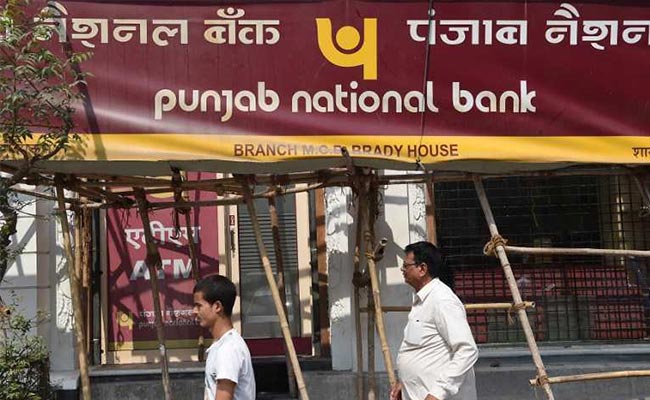
The Punjab National Bank (PNB) shares plunged 11.97% on Thursday to close at Rs. 128.35, a day after the scrip lost nearly 10% in the market capitalisation after a colossal banking fraud was brought to light. The fraud amounts to the tune of $1.77 billion in which the billionaire jeweller Nirav Modi allegedly acquired fraudulent letters of undertaking (LoU) from one of its branches for overseas credit. In the morning trade, the state lender's scrip slipped to a low of Rs. 133 after it opened at Rs. 137 on the BSE. The scrip had lost nearly 10% on Wednesday after the news relating to fraud had the D-street jittery. An expert advises caution on PNB's stock after the fraud. Jaikishan J Parmar, research analyst, Angel Broking, said, "The PNB stock tanked nearly 10% on Wednesday considering the magnitude of the scam which is nearly 1/3rd the market capitalization of PNB. The case assumes significance because based on these transactions other banks had advanced loans to these clients abroad. This dampens the sentiments around PNB, which had seen a marginal improvement in its asset quality in this quarter."
Following the PNB fraud's news break, the stock of Gitanjali also fell in tandem. The shares of Gitanjali lost over 12% on Thursday to trade at Rs. 51.30 after hitting the intra-day low of Rs. 47.50 on the BSE.
Jewellers too under scanner
Three other jewellers, Gitanjali, Ginni and Nakshatra are under the scanner by the federal agencies, CBI and ED, in view of their arrangements with various banks and end use of money, a senior official of a public sector bank told PTI. No immediate comments were available from these companies. Last week, PNB had lodged an FIR with the CBI stating that fraudulent LoUs worth Rs. 280.7 crore were first issued on January 16. At the time, PNB had said it was digging into records to examine the magnitude of the fraud.
In the complaint, PNB had named three diamond firms -- Diamonds R Us, Solar Exports and Stellar Diamonds -- saying they had approached it on January 16 with a request for buyers' credit for making payment to overseas suppliers, PTI reported. The bank sought 100 per cent cash margins for issuing LoUs for raising buyers' credit, which was contested by the firms, saying they had availed of the facility from as early as 2010.
Nirav Modi, his wife Ami, brother Nishal and Mehul Choksi are partners in Diamonds R US, Solar Exports and Stellar Diamonds, which has shops in foreign locations such as Hong Kong, Dubai, and New York. Among those named is a deputy manager, Gokulnath Shetty, who was posted at PNB's foreign exchange department in Mumbai since March 31, 2010. He had allegedly along with another official Manoj Kharat fraudulently issued LoUs to these firms without following prescribed procedure or making entries in the banking system, avoiding detection of transactions.
"This (investigation) is a part of the clean up drive that started with AQR (Asset Quality Review) in 2015. Post clean up, this is going to make banks clean forever, healthy, responsive and enable them to provide hassle-free banking to all honest borrowers," Kumar said.
1
COMMENTSA senior official of a public sector bank said there is strict instruction from the finance ministry to all banks that no big fish should go scot-free and no honest borrower is harassed. Banks are now looking at their systems and processes so that such frauds are not repeated, he said, adding all banks have been asked to present a status report as soon as possible.
This could be the biggest banking fraud in India as its quantum was bigger than an estimated 9,000 crore scam at erstwhile Satyam computers. In 2015, Bank of Baroda -- another public sector bank -- had brought to light a scam in which two Delhi-based businessmen cheated it of Rs. 6,000 crore (slightly less than $1 billion at that time).
RBI's New Norms On Bad Loans A Wake Up Call For Defaulters, Says Government
MMNN:14 February 2018
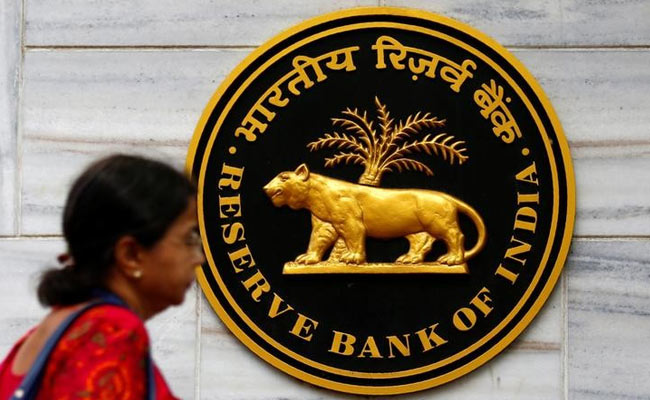
New Delhi: In a bid to hasten the resolution of bad loans, RBI has tightened rules to make banks identify and tackle any non-payment of loan rapidly, a move the government said should act as a "wake up call" for defaulters. The Reserve Bank of India abolished half a dozen existing loan-restructuring mechanisms late last night, and instead provided for a strict 180-day timeline for banks to agree on a resolution plan in case of a default or else refer the account for bankruptcy.
Financial Services Secretary Rajiv Kumar said the new rules are a "wake up call" for defaulters.
"The government is determined to clean up things in one go and not defer it. It is a more transparent system for resolution," he said," he told PTI here.
Under the new rules, insolvency proceedings would have to be initiated in case of a loan of Rs. 2,000 crore or more if a resolution plan is not implemented within 180 days of the default.
Banks will face penalties in case of failure to comply with the guidelines, RBI said.
Financial Services Secretary said the RBI's decision would not have much impact on provisioning norms for banks.
The revised framework has specified norms for "early identification" of stressed assets, timelines for implementation of resolution plans, and a penalty on banks for failing to adhere to the prescribed timelines.
RBI has also withdrawn the existing mechanism which included Corporate Debt Restructuring Scheme, Strategic Debt Restructuring Scheme (SDR) and Scheme for Sustainable Structuring of Stressed Assets (S4A).
The Joint Lenders' Forum (JLF) as an institutional mechanism for resolution of stressed accounts also stands discontinued, it said, adding that "all accounts, including such accounts where any of the schemes have been invoked but not yet implemented, shall be governed by the revised framework".
Under the new rules, banks must report defaults on a weekly basis in the case of borrowers with more than Rs. 5 crore of loan. Once a default occurs, banks will have 180 days within which to come up with a resolution plan. Should they fail, they will need to refer the account to the Insolvency and Bankruptcy Code (IBC) within 15 days.
Last year, the government had given more powers to the RBI to push banks to deal with non-performing assets (NPAs) or bad loans.
The gross NPAs of public sector and private sector banks as on September 30, 2017 were Rs. 7,33,974 crore, Rs. 1,02,808 crore respectively.
"In view of the enactment of the IBC, it has been decided to substitute the existing guidelines with a harmonised and simplified generic framework for resolution of stressed assets," RBI said in the notification.
As per the revised guidelines, the banks will be required to identify incipient stress in loan accounts, immediately on default, by classifying stressed assets as special mention accounts (SMAs) depending upon the period of default.
Classification of SMA would depend on the number of days (1- 90) for which principal or interest have remained overdue.
"As soon as there is a default in the borrower entity's account with any lender, all lenders - singly or jointly - shall initiate steps to cure the default," RBI said.
The resolution plan (RP) may involve any actions/plans/ reorganisation including, but not limited to, regularisation of the account by payment of all over dues by the borrower entity, sale of the exposures to other entities/investors, change in ownership, or restructuring.
The notification said that if a resolution plan in respect of large accounts is not implemented as per the timelines specified, lenders will be required to file insolvency application, singly or jointly, under the IBC, 2016, within 15 days from the expiry of the specified timeline.
All lenders are required to submit report to Central Repository of Information on Large Credits (CRILC) on a monthly basis effective April 1, 2018.
In addition, the lenders shall report to CRILC, all borrower entities in default (with aggregate exposure of Rs. 5 crore and above), on a weekly basis, at the close of business every Friday, or the preceding working day if Friday happens to be a holiday.
The first such weekly report shall be submitted for the week ending February 23, 2018, the notification said.
The new guidelines have specified framework for early identification and reporting of stressed assets.
In respect of accounts with aggregate exposure of the lenders at Rs. 2,000 crore and above, on or after March 1, 2018 (reference date), resolution plan RP should be implemented within 180 days.
"If in default after the reference date, then 180 days from the date of first such default," the notification said.
Retail Inflation For January Eases To 5.07%, IIP for December at 7.1%.
MMNN:13 February 2018

The annual retail inflation slightly eased in January to 5.07 per cent from the 17-month high hit in December, as food prices ebbed, data from the Ministry of Statistics showed on Monday. Based on Consumer price index (CPI), the inflation was at 5.21 per cent in December -- a 17-month high, and 3.17 per cent in January last year. On the other hand, the growth of India's factory production slowed in December to 7.1 per cent from a rise of 8.80 per cent in November and a 2.4 per cent increase in output during the corresponding period of 2016-17, the report showed.
The data released by the Central Statistics Office (CSO) showed that the rate of price rise for consumer foods eased to 4.7 per cent in January, from 4.96 per cent in December. Inflation in the vegetable basket slowed to 26.97 per cent as against 29.13 in December. Prices of fruits too rose at a lower pace of 6.24 per cent last month, as against 6.63 per cent recorded in the preceding month. For the fuel and light segment, inflation was 7.73 per cent last month compared to 7.90 per cent in December. Price data are collected from selected towns by the Field Operations Division of NSSO and from selected villages by the Department of Posts.
However, analysts polled by Reuters had forecast January's consumer price inflation to ease to 5.14 per cent from December's 5.21 per cent.
Meanwhile, Reserve Bank of India (RBI) on Wednesday held the policy repo rate at 6% as the central bank's Monetary Policy Committee (MPC) raised the estimate for fourth-quarter inflation and flagged concerns about the future outlook for price gains
$3.6 Billion In Hidden Bad Loans Spotlight Indian Banking Stress.
MMNN:12 February 2018
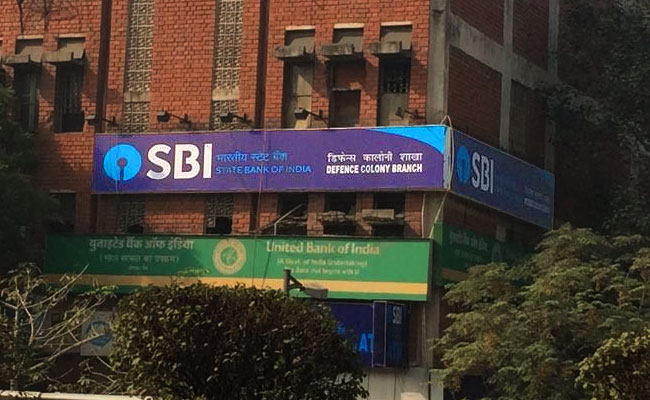
The Reserve Bank of India (RBI) unearthed about $3.6 billion (Rs. 23,200 crore) of bad loans in the books of the country's biggest bank, amplifying questions about distress in the financial sector given underreporting by some rivals as well.
State Bank of India on Friday said an audit by the central bank showed soured debt was about Rs. 23,200 crore ($3.6 billion) higher than what the state-run lender reported for the end of March 2017. The biggest private lender HDFC Bank Ltd. had a Rs. 2,050 crore divergence, while ICICI Bank Ltd. said -- without elaborating -- that it isn't required to make disclosures on the topic even as provisions for bad loans climbed. It had reported a divergence in the previous year.
Banks must disclose such discrepancies if the gap between reported numbers and the RBI's audit findings is more than 15 percent. State Bank of India's admission is particularly striking because the lender is often seen as a proxy for the nation's economy, where the ratio of bad loans has surged to be among the highest in the world. The problem has grabbed so many headlines that Prime Minister Narendra Modi cited it to attack the policies of his predecessor in parliament last week.
If India's premier state-run bank is reporting such divergence it shows how deep the rot runs in the nation's banking system," said Hemindra Hazari, a Mumbai-based independent banking analyst who has covered the sector for two decades and publishes at Smartkarma.com. "Cleaning up this mess is going to take much more effort and time than what people expect."
State Bank of India's shares fell 1.7 percent to Rs. 296.4 in Mumbai on Friday, extending this year's drop to 4.4 percent.
Most of the accounts identified by the RBI in its risk assessment were already on the stressed asset list "in one way or another," State Bank of India Chairman Rajnish Kumar said in a conference call with reporters. The bulk of the divergence -- about Rs. 10,000 crore -- came from the power sector, he said.
Divergences occurred earlier as well, though what's changed is the mandatory disclosure of the gaps, central bank Deputy Governor N S Vishwanathan said last month.
Unnerving Divergence
The RBI has also sought to reclassify loans given by a consortium as non-performing for all the lenders involved if it was considered non-performing on the books of one of them, as part of tighter asset classification norms that came into effect from 2016.
"The divergence in asset quality from numbers reported earlier is unnerving," said Asutosh Kumar Mishra, a Mumbai-based banking analyst at Reliance Securities Ltd. "While the loan growth is showing early signs of revival, provisions for bad loans will continue to weigh on profit growth in coming quarters."
State Bank of India on Friday reported a Rs. 2,420 crore loss for the quarter ended December 31, its first in at least 17 years. Analysts in a Bloomberg survey had predicted a Rs. 2,060 crore profit.
8
COMMENTSThe loss was due to hardening bond yields, treasury declines and provisions for payments to employees, Chairman Kumar said during the conference call.
"I don't want to be very optimistic about the March quarter, nor am I pessimistic," Kumar said. "We can hope for a much better performance in terms of most performance parameters" in the financial year starting April 1, he added.
CII's Buyer-Seller Meet on Electrical & Defence Component.
MMNN:12 February 2018
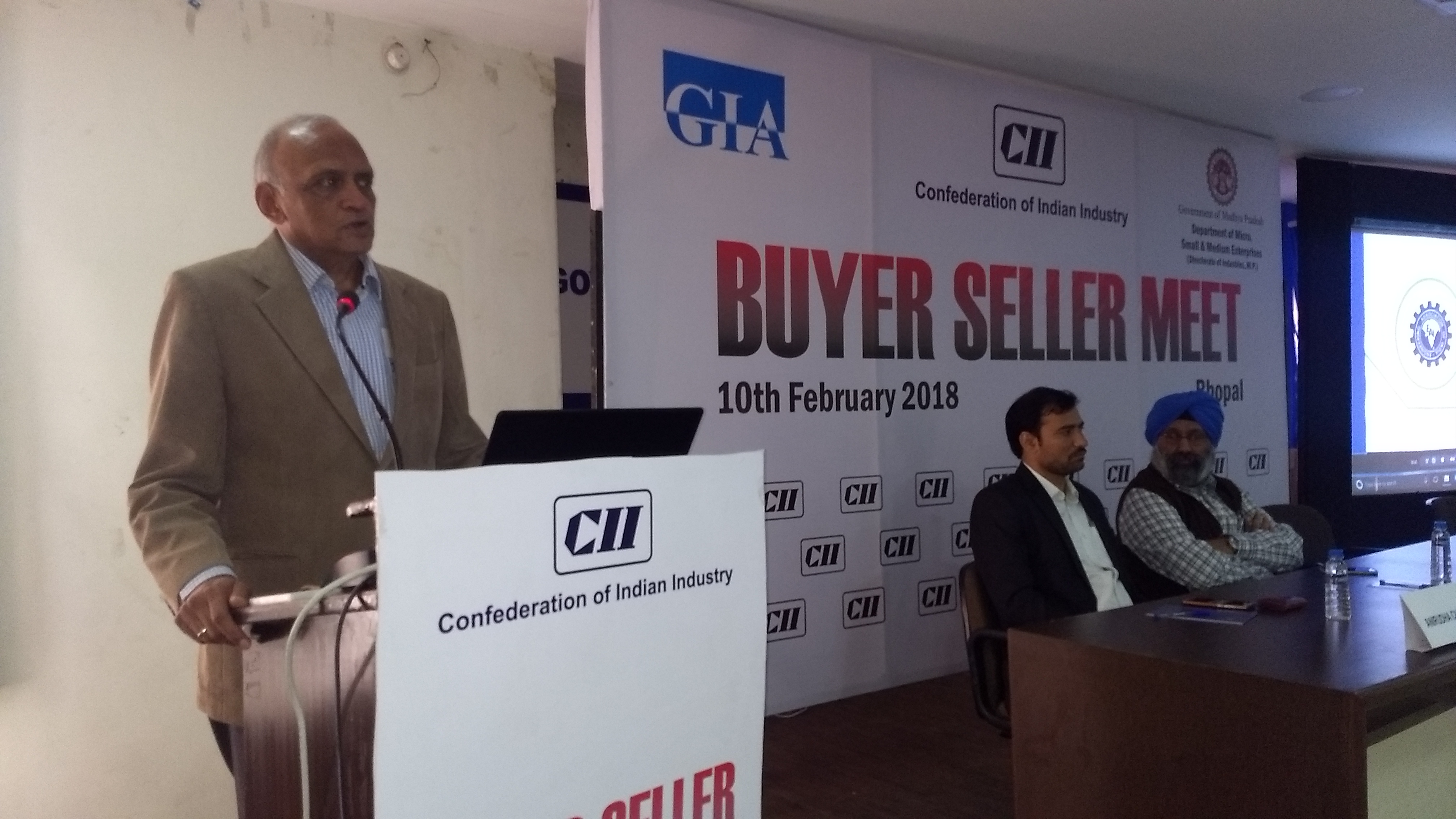
CII Madhya Pradesh organized a Buyer-Seller Meet for manufacturers of Defence & Electrical Equipment Manufacturers in Bhopal on Saturday, 10th February 2018. Anchor industries such as Indian Navy, Bharat Oman Refineries Ltd., Siemens, CG Global made presentation on their requirements and procurement process.
"Defence manufacturing would be the new buzzword for the country", said Captain S. B. Redekar from Indian Navy while making his presentation and showcasing Navy's requirement & procurement procedures.
Mr. P. K. Bhowmick, Head (Commercial), Bharat Oman Refineries Ltd. (BORL) appreciated CII initiative to create a linkage between large industries with smaller businesses in and around Bhopal which may result in mutually beneficial long term relationship.
"Development of any place is dependent on ambitious entrepreneurs. For place like Bhopal where relatively low industrial growth is observed, there is a requirement to showcase opportunities to business aspirant who can realize these promising business prospects and bring new perspective to local business scenario" said Mr. Rajesh Khare, Vice Chariman, CII MP State Council.
Participants also got an opportunity to register themselves at Government-e-Marketplace (GeM) along with understanding the opportunities available with Government and transparency offered by GeM.
Offering business linkages between OEM's and suppliers, the meet provided a single unique platform to enhance business relations with heavy weights of Indian Inc. and understand their sourcing requirements. Meet received an overwhelming response from supplier industries across the state.
No Worries About Fiscal Slippages, Rising Oil Prices, Says Arun Jaitley.
MMNN:10 February 2018
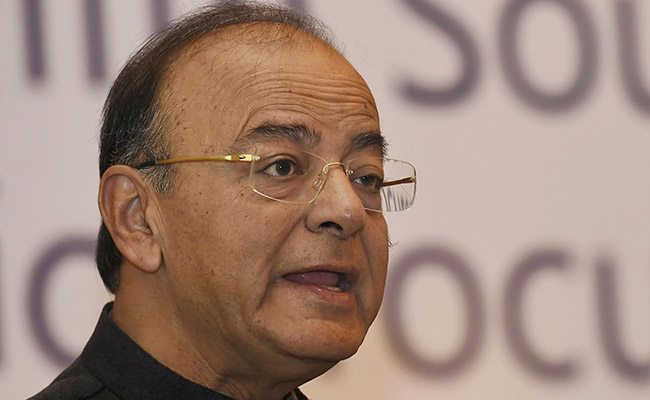
New Delhi: Finance Minister Arun Jaitley today said the fiscal situation should be comfortable next financial year and there are no worries at the moment regarding slippages in meeting the deficit targets.
Brushing aside any immediate need to worry about rising global oil prices, Jaitley said an assessment should not be made based on hypothetical situation concerning crude prices as the trend in the last three days has been opposite (with prices falling again), adding that at this stage he was not worried about any slippages on the fiscal front.
Addressing a press conference after meeting RBI's board in a customary post-Budget exercise, Jaitley also said that the last decision of the Monetary Policy Committee, chaired by RBI Governor Urjit Patel that decided to keep rates unchanged, was a "balanced decision".
"... as far as fiscal situation is concerned, I see next year to be more comfortable as far as revenues are concerned.
I cannot see at this stage that there would be any slippages," he said.
Jaitley, who also met Sebi's board and top officials earlier today, said one of the factors that stood out from the capital market regulator's presentation is that there is an increased reliance on corporate bonds as far as credit is concerned.
COMMENTSPatel said the equity-debt ratio for corporates is expected to get better going forward as the capital markets have shown a good trend in terms of raising funds through bonds.
Tax Department Asks Notes Ban Cash Depositors To File Returns By March 31.
MMNN:9 February 2018

New Delhi: The Income Tax Department today urged those who deposited "large amounts of cash" post demonetisation and all companies to file their returns by March 31, failing which they may face penalty and prosecution.
It also cautioned eligible trusts, political parties and associations to file their income tax returns by this final deadline and "come clean".
The department, in public advertisements issued in leading dailies, said it was the final call for filing of belated or revised ITRs for assessment years 2016-17 and 2017 -18.
It underlined that there was still time for these categories of taxpayers and that they should avoid last minute rush and file the ITRs well before the deadline.
"If you have deposited large amounts of cash in your bank account/made high value transactions, please consider the same while filling your ITRs.
"Non-filing or incorrect filing of return of income may result in penalty and prosecution," the public advisory said.
It said all companies, firms and limited liability partnership concerns were also required to do so.
The deadline is also applicable, it said, to trusts, associations and political parties whose income prior to claim of exemptions exceeds the minimum chargeable to tax.
Individuals and Hindu Undivided Families having income more than Rs. 2.5 lakh and senior citizens with income of over Rs. 3 lakh (60-80 years of age) and Rs. five lakh (over 80 years of age) too need to file their returns for the mentioned assessment years, it said
15 Companies Disqualified From Applying For H-1B Visas.
MMNN:8 February 2018

The United States Department of Labor has recently released a list of 15 employers who cannot apply for H-1B visas, which are much-sought after by techies all around the world, including India. The Wage and Hour Division of the Department of Labor termed the companies as "wilful violator employers" on its website. Wilful violators are subject to random investigations by the Department of Labor for a period of up to five years from the date that the employer is determined to be a wilful violator.
According to the US Department of Labor, wilful violator employers under the H-1B program are employers who are found to have "committed either a wilful failure or a misrepresentation of a material fact" when hiring foreign workers.
COMMENTSThe H-1B is a non-immigrant visa that allows US companies to employ foreign workers in areas that need theoretical or technical expertise. Thousands of Indian and Chinese workers are employed under it every year.
H-1B visas are aimed at foreign nationals in occupations that generally require specialized knowledge, such as science, engineering or computer programming. The US government uses a lottery to award 65,000 such visas yearly.
Since taking office last January, US President Donald Trump has been talking about cracking down on the H-1B visa scheme. He has called for stricter norms for issuance of H-1B visas.
RBI Leaves Interest Rate Unchanged, Raises Inflation Forecast.
MMNN:7 February 2018
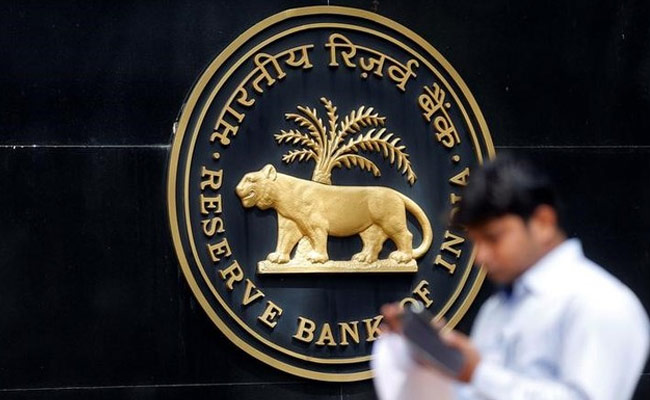
The Monetary Policy Committee of the Reserve Bank of India (RBI) kept repo rate, or key lending rate, unchanged at 6 per cent on Wednesday. A Reuters poll had shown 58 of 60 economists expected the repo rate to be kept at 6 per cent, the lowest since November 2010. The RBI's policy announcement on Wednesday was the first after the unveiling of Budget 2018 and came amid a turmoil in global financial markets. The reverse repo rate was held at 5.75 per cent. Five members of the monetary policy committee voted to keep rates unchanged, with one member, Michael Patra, voting for a 25-basis-point hike.
Despite the RBI keeping interest rate steady, many analysts see the possibility of monetary policy tightening down the road after surging oil and food prices pushed consumer inflation to a 17-month high of 5.21 per cent in December - well above the RBI's 4 per cent target in the medium term.
The central bank also sees inflation higher at 5.1 per cent in the March quarter, higher than its earlier forecast of 4.3-4.7 per cent in the second half of 2017-18.
"Domestic pump prices of petrol and diesel rose sharply in January, reflecting lagged pass-through of the past increases in international crude oil prices," the RBI said.
The RBI cited the need for vigilance around the evolving inflation scenario in the coming months.
"A pick-up in global growth may exert further pressure on crude oil and commodity prices with implications for domestic inflation. The Budget has proposed revised guidelines for arriving at the minimum support prices (MSPs) for kharif crops, although the exact magnitude of its impact on inflation cannot be fully assessed at this stage," the RBI said. "Fiscal slippage as indicated in the Union Budget could impinge on the inflation outlook."
On growth outlook, the RBI projects GVA or gross value added growth - a key input of GDP that strips out taxes and subsidies - for 2017-18 at 6.6 per cent, down from its earlier forecast of 6.7 per cent. For 2018-19, the central bank projects higher GVA growth for 2018-19 at 7.2 per cent.
"GST implementation is stabilising, which augurs well for economic activity. Second, there are early signs of revival in investment activity as reflected in improving credit offtake. Third, the process of recapitalisation of public sector banks has got underway. Large distressed borrowers are being referenced for resolution under the Insolvency and Bankruptcy Code (IBC). This should improve credit flows further and create demand for fresh investment," the RBI said in a statement.
Export growth is also expected to improve further on account of improving global demand, the RBI added.
COMMENTS"Despite the upward revision in the inflation forecast and concerns highlighted regarding growing inflation risks amid the crystallization of the fiscal slippage, the tone of the policy was not as hawkish as expected, given the comment that the nascent recovery needs to be carefully nurtured," said Aditi Nayar, principal economist at rating agency ICRA.
The RBI has held the repo at 6 per cent since a 25-bps cut in August, having taken advantage of a period of extraordinary low inflation to cut rates by 200 bps since early 2015.
Sensex, Nifty Crash Not Because Of LTCG Tax In Budget, Says Arun Jaitley.
MMNN:5 February 2018
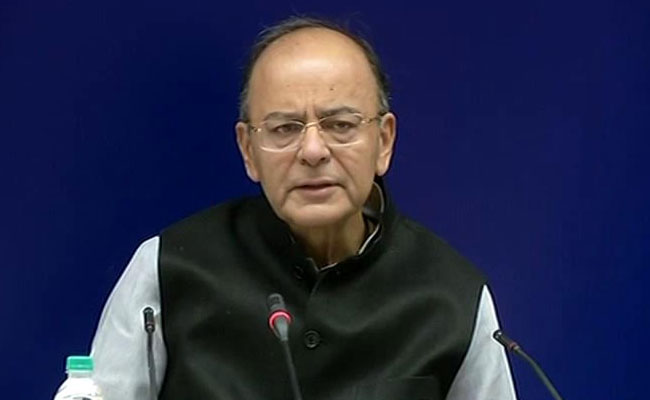
Even as the stock market continued its downward slide on Monday, Finance Minister Arun Jaitley said it was not in reaction to the Union Budget or the reimposition of Long Term Capital Gains (LTCG) tax, but due to global factors. Jaitley's remarks came after the Indian equity markets on Friday witnessed the steepest fall since November 2016, after LTCG tax on equities was re-introduced in the Union Budget for 2018-19, leading the Sensex to shed over 800 points and the Nifty50 over 200 points in a single day.
"It is not due to the Budget or the LTCG. Dow Jones has also fallen by over two per cent," Jaitley told reporters on the sidelines of an event here. Jaitley was referring to the sharp fall in the US stocks on Friday when Dow Jones Industrial Average lost 665.75 points, or 2.54 per cent, to close at 25,520.96.
The barometer Sensex of the BSE, however, continued its downward slide on Monday and fell by almost 550 points to 34,520 before recovering to some extent.
Hasmukh Adhia, who is also the revenue secretary, also attributed the fall to global factors.
"It is very unfortunate that our move came in at wrong time because of global markets also going down. There is a strong connection of all equity markets. The MSCI all country index of equity markets went down by 3.4 per cent in last week, especially on Thursday Friday," Mr Adhia said a post-budget meet organised by industry body CII.
Adhia also said that the income of government from Securities Transaction Tax (STT) is a paltry Rs. 9,000 crore.
"In equity market there are more number of short term capital gains transactions, so income of Rs. 9,000 is mostly from short term transaction," he said.
Meanwhile, explaining the reason behind imposition of LTCG, the government said that exempting such income from tax was inherently biased against manufacturing and encouraged diversion of investment to financial assets.
Railways to invest Rs 1,50,000 cr: Goyal.
MMNN:3 February 2018
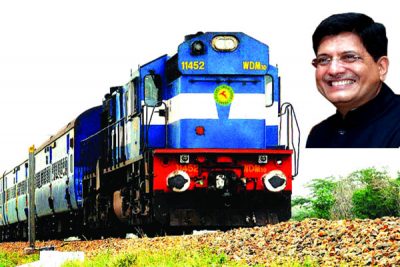
Railway Minister Piyush Goyal on Thursday said government has proposed a Rs 1,50,000 crore investment to make Indian Railways the most preferred transport of the country.
Addressing a press conference here, Mr Goyal said the proposals in the budget are aimed to transform Railways into a modern, safe, green, affordable and comfortable mode of transport.
The Rs 1,48,528 crore investment was three times more as against Rs 53,989 crore in 2013-14, he added.
Detailing a break -up of the finances, he said the project got budgetary support of Rs 53,060 crore. Besides it generated Rs 11,500 crore from internal resources, Rs 28,500 crore from Indian Railways Finance Corporation, Rs 26,400 crore from LIC and investments through PPP to the tune of Rs 27,000 crore.He pointed out that this was 22 per cent higher than Revised Estimates in 2017-18.
He said, around 600 railway stations would be developed with world-class facilities, Station having a footfall of more than 25,000 will be provided with escalators and all trains and stations will be provided with WiFi and CCTVs to enhance passenger security.
He said with safety being the highest priority, in 2018-19, a total expenditure planned on safety related activities was Rs 73,065 crore.
Mr Goyal said the entire Railways network will be electrified in the next five years with power sector sharing added energy with the Railways.
This will lead to an estimated saving of Rs 10,000 crore per annum, help in reducing carbon emissions and promote sustainable development, besides increasing the country's energy security by saving foreign exchange on imported fuels.
Budget Boosts Spending To Drive Economy, Big Focus On Farmers In Election Year.
MMNN:2 February 2018
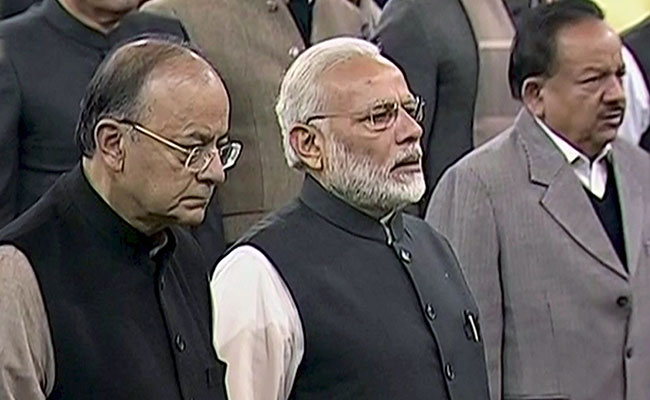
NEW DELHI: With a national election in 2019 and eight state elections this year, finance minister Arun Jaitley today announced massive spending for farmers and the rural poor, also projecting economic growth above 8 percent in an annual budget that won broad approval from economists, though bond and share markets fell. Delivering the last full-year budget before the national election due by May next year, Mr Jaitley allocated 14.34 trillion rupees ($225.50 billion) for rural infrastucture spending and extra support for farmers.
He also announced plans to introduce "the world's largest government-funded health care programme", saying it would cover 50 crore of the country's poorest people, giving 10 crore families cover of Rs. 5 lakh per family per year for secondary and tertiary care hospitalisation.
The minister also laid out plans to merge three public sector insurance companies and list the new entity. Spending in the year ending fiscal 2018-19 is projected to increase by 13.2 percent from the current year ending in March, with about three-fifths allocated to better infrastructure in the villages, where two-thirds of the country's 1.3 billion people live.
"This budget is farmer friendly, common citizen friendly, business environment friendly and development friendly. It will add to ease of living," Prime Minister Narendra Modi said after the budget announcement. Arun Jaitley said the spending in rural areas aimed at creating jobs and entrepreneurs, in addition to laying hundreds of thousands of miles of rural roads, building new houses, toilets, and providing electricity.
He made no changes in income tax slabs for individuals and increased cess on personal income tax and corporation tax to 4 per cent from the present 3 per cent. But he announced that all salaried people will get a standard deduction of Rs. 40,000 on their income in lieu of medical and transport reimbursements.
At press conference after the Budget Mr Jaitley said, "Step by step, in every budget, I have been putting surplus money in the hands of the middle-class taxpayer." During his presentation to parliament, Mr Jaitley switched from English to Hindi as he outlined schemes to promote agriculture, organic farming, animal husbandry and fisheries, ensuring that his message got through to rural communities.
The finance minister later told state-run TV Doordashan that the announcements had nothing to do with winning votes for the ruling BJP. Some analysts thought otherwise.
"It looks like that the BJP is aiming to shore up support among rural voters, there've been plenty of measures announced to boost the rural economy," said Shilan Shah, India economist, at Capital Economics in Singapore. "It was no surprise to us that they relaxed the deficit targets.".
The budget targeted a fiscal deficit of 3.3 percent of GDP in 2018/19, compared with expectations for a deficit of 3.2 percent. The 2018/19 deficit marks some slippage from a previous target of 3.0 percent for the year, and investors were also unnerved by the disclosure that this year's deficit was likely to come in at 3.5 percent, which was much higher than expected.
Unlike the bond market, analysts were un-alarmed.
Joy Rankothge, vice president at Moody's Investors Service, said the budget remained broadly in line with the government's fiscal consolidation path, and reinforced the credit rating agency's rationale for awarding India last November its first rating upgrade in 14 years.
The deficit numbers were too high for bond investors' taste as yields for India's benchmark 10-year bond rose as much as 17 basis points.
The share market also retreated following the imposition of a new tax on long term gains from stocks, though healthcare stocks rose thanks to the new health insurance progamme.
Regardless of the weaker markets, economists were in broad agreement that the budget should help foster economic growth. The economic survey released earlier this week laid out the government's expectations that India would soon become the world's fastest growing major economy.
The economy needs to grow over 8 percent annually to generate jobs for the hundreds of thousands of young people entering the labour market each year.
Mr Jaitley predicted growth would be above 8 percent soon, but for 2018/19, the economy was expected to expand by 7.2 percent, improving from 6.7 percent for the fiscal year ending this March, which was the weakest performance in three years.
This year's growth was slowed by the launch of a nationwide goods and service tax (GST) last year and a shock move to ban high value currency notes in late 2016.
"All-in-all, it was a business-as-usual budget for India and a great one for Bharat (rural India)," Amar Ambani, partner and head of research at IIFL in Mumbai. "The government did what it thought necessary to boost revenue, revive growth and get election-ready."
Main Opposition party the Congress has called it a "defeatist" budget and a "big letdown," with former finance minister P Chidambaram also saying, "I think they have thrown in the towel. It is a budget of a government which has conceded that it has failed to address key issues in the economy.
West Bengal Chief Minister Mamata Banerjee alleged that the budget is "anti-people."
"The BJP led government in Delhi is unfit to govern. It is a budget which is neither here, nor there. There is nothing new," she said.
Budget 2018: Free Health Care For 10 Crore Poor Families, Farmers Gain Too - 10 Facts.
MMNN:1 February 2018
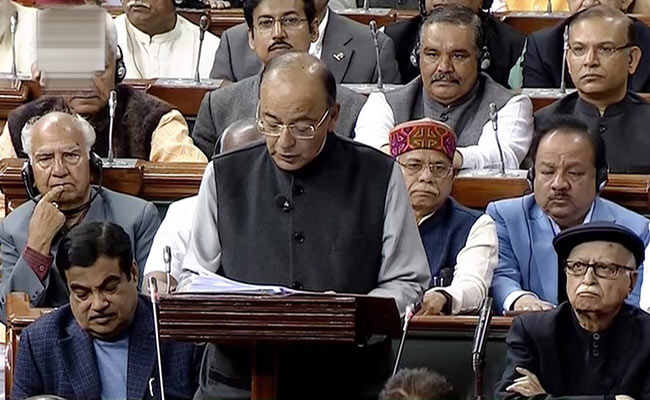
NEW DELHI: As Finance Minister Arun Jaitley rolled out a Budget focused on farmers and the rural poor today, while boosting jobs and private investment, he has pegged the fiscal deficit target for next year at 3.3 per cent, higher than the earlier 3 per cent goal. Presenting its last full-year budget before the 2019 general elections and ahead of eight state elections this year, the government has made a slew of farm-focused announcements, raising the minimum support price to 1.5 times the production cost for Kharif crops, a key demand of distressed farmers. Mr Jaitley also announced what he called the world's largest government-funded healthcare scheme to cover 10 crore poor families.
Here is your 10-point cheat sheet to Budget 2018:
1-Prime Minister Narendra Modi, who was seen thumping his table as Mr Jaitley spoke in Parliament, later congratulated the finance minister saying today's budget "is farmer friendly, common citizen friendly, business environment friendly and development friendly. It will add to the ease of living."
2-Mr Jaitley said in his budget speech that the flagship National Health Protection Scheme announced today will cover 10 crore poor and vulnerable families in the country, or about 50 crore beneficiaries, with a cover of 5 lakh per family per year for secondary and tertiary care hospitalisation.
3-He has also announced that eight crore free gas connections will be given to poor women.
4-Mr Jaitley has made no changes in income tax slabs for individuals this year. But all salaried people will get a standard deduction of Rs. 40,000 on their income in lieu of medical and transport reimbursements.
5-He announced a new 10% long-term capital gains tax on gains exceeding Rs. 1 lakh from investment in equities and equity mutual funds.
6-In a key announcement, Mr Jaitley said that the government will contribute 12% in the Employee's Provident Fund for three years for new employees.
7-Corporate tax rate for companies with up to Rs. 250 crore turnover has been reduced to 25% from 30%, Mr Jaitley announced.
8-The budget speech was watched closely for how the government balanced its need to reach out to voters ahead of eight state elections this year and the national election next year, with keeping investors' confidence by being seen to contain the fiscal deficit and also increasing spending in key areas of a slowing economy.
9-Mr Jaitley said the Narendra Modi government has been consistently focused on fiscal prudence. The revised fiscal deficit target for this year ending March is 3.5% of the GDP, he said, wider than the previous 3.2 per cent target.
10-Stock markets, which were up this morning, plunged into the red as Mr Jaitley announced a higher fiscal deficit target for next year and the new capital gains tax. They have now recovered
UNION BUDGET 2018-19 : REACTIONS.
MMNN:31 January 2018
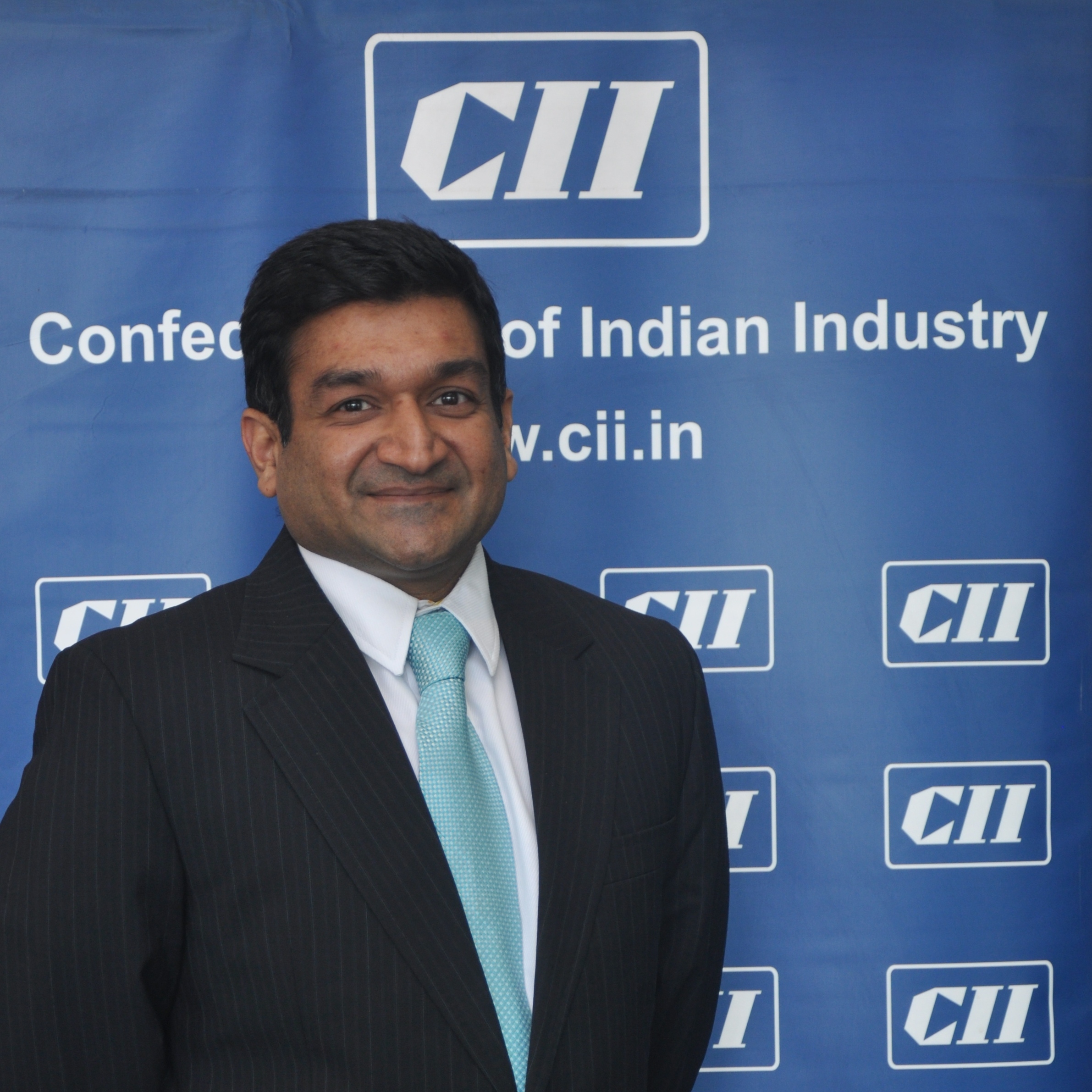
"We are hopeful that the MAT would be abolished, or alternatively, the rate would be brought down along with reduction in corporate tax rate in this budget. It is also recommended that just like domestic dividend, foreign dividend should also be exempt from MAT and SEZ profit should be removed from MAT calculation, thereby, reducing taxation impact on the Companies and leaving profits with the Companies for further investment."
Indian Oil Q3 Profit Nearly Doubles, Beats Estimates.
MMNN:30 January 2018
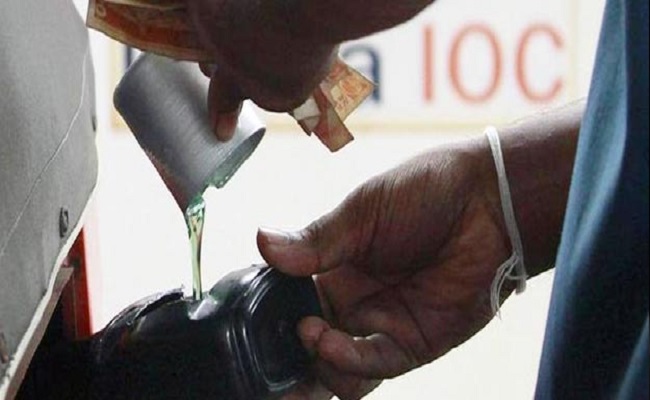
Indian Oil Corp Ltd said its third-quarter profit nearly doubled, handily beating estimates. Net profit surged 97 per cent to Rs. 7,883 crore ($1.24 billion) in the quarter ended December 31, from Rs. 3,995 crore a year earlier.
Analysts on average expected a profit of Rs. 5,149 crore, Thomson Reuters Eikon data showed.
Average gross refining margin improved to $8.28 per barrel in the April-December period from $7.36 per barrel in the year-ago period, the country's top refiner said on Tuesday.
COMMENTSShares of the company rose 3.8 per cent to Rs. 414.85 in a broader Mumbai market that was trading down 0.69 per cent.
Economic Survey Sees GDP Growth At 7-7.5% Next Year Vs 6.75% This Year.
MMNN:29 January 2018
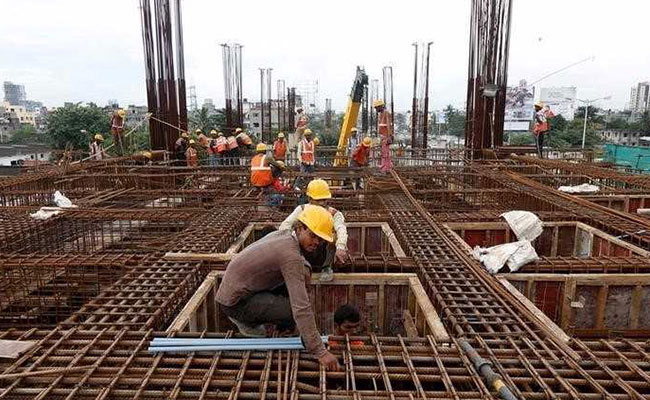
The economy should grow between 7 per cent and 7.5 per cent in the next fiscal year starting April 1, 2018, with exports and private investment set to rebound, the Economic Survey says. Finance Minister Arun Jaitley tabled the survey, the annual report card of the country's financial health, in Parliament on Monday as the Budget session began.
The Economic Survey sees GDP growth at 6.75 per cent in the current fiscal year, ending March 31, 2018. It says a series of major reforms undertaken over the past year will allow real GDP growth to rise to between 7.0 per cent and 7.5 per cent in 2018-19, thereby reinstating India as the world's fastest growing major economy.
The stock markets ended at record closing highs, with the Sensex gaining 232 points to 36,283 and the Nifty rising 60 points to 11,130.
Chief Economic Advisor Arvind Subramanian, who has prepared the Economic Survey, said in a tweet that growth is reviving after temporary decoupling. There are robust and broad-based signs of revival in economic activity, he added.
The economic survey says the launch of the Goods and Services Tax (GST), resolution of long-festering bad loans under the Bankruptcy Code, the implementation of a bank recapitalisation package for public sector banks and further liberalisation of the foreign direct investment regime will lift GDP growth, which began to accelerate from the second half of the current fiscal year.
The International Monetary Fund (IMF) projects the Indian economy to grow at 7.4 per cent in 2018, which will make it the fastest growing country among emerging economies. The IMF has also projected a growth rate of 7.8 per cent for India in 2019.
The economic survey has flagged risks from rising oil prices. "Some of the factors could have dampening effect on GDP growth in the coming year viz. the possibility of an increase in crude oil prices in the international market," it says.
It has also said that concerns have been expressed about growing protectionist tendencies in some countries but it remains to be seen as to how the situation unfolds.
12
COMMENTSThe survey also listed out a series of policy agendas for fiscal 2018-19. These include lending an unequivocal support to agriculture sector, stablilising the GST, completing and recapitalisation of PSU banks and privatisation of Air India.
The economic survey is tabled ahead of the presentation of the union budget. Mr Jaitley will present the budget for 2018-19 on Thursday, February 1.
Arun Jaitley Hints At Further Rejig Of GST Rates.
MMNN:27 January 2018
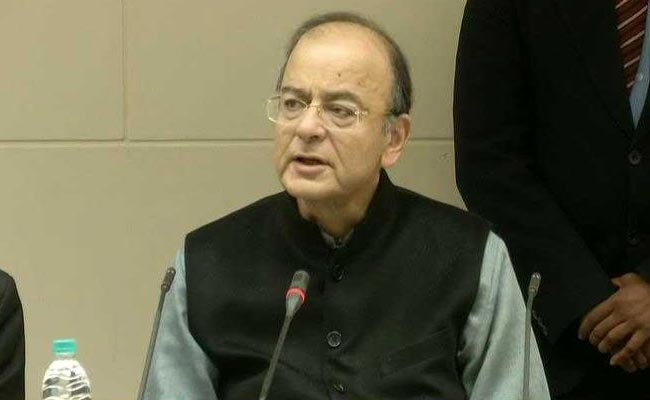
New Delhi: Finance Minister Arun Jaitley Saturday said the Goods and Service Tax (GST) has stabilised in a very short time that provides an opportunity to widen its base and further rationalise the rates in the future. Also, he said the GST has brought about an entire change in the indirect tax system in the country.
Jaitley further said the GST has "stabilised in a very short time in India" as compared to various other countries. "Therefore, it gives us an opportunity in the times to come to increase its base and rationalise the structure as it continues to evolve," he said at an event to mark the International Customs Day.
At present, the GST has four rates of 5 per cent, 12 per cent, 18 per cent and 28 per cent. It is to be noted that the GST Council in the November meeting had decided to keep only sin goods and white goods under the 28 per cent tax bracket and moved 178 items from the highest tax bracket to 18 per cent. Thirteen items were moved from 18 per cent to 12 per cent bracket; 8 items from 12 per cent to 5 per cent; 6 items from 18 per cent to 5 per cent, while 6 other items moved from 5 per cent to zero per cent slab.
Following the reduction on more than 200 items, the GST collections hit lowest in November from Rs. 80,808 crore in the previous month. However, halting two months of decline, the collections gathered momentum in December, rising to Rs. 86,703 crore. Total GST collections in October were over Rs. 83,000 crore. In September, the GST mop-up was over Rs. 92,150 crore.
SBI, Bank Of Baroda, Punjab National Bank Shares Fall After Recapitalisation Plan.
MMNN:25 January 2018
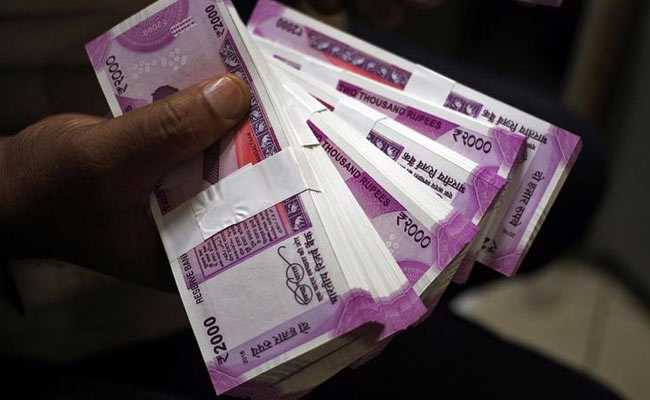
Mumbai: Shares in State Bank of India (SBI) and other big state-run banks fell on Thursday as they stood to receive less money than investors had expected from the government's much-awaited recapitalisation plan. By contrast, smaller state-run lenders such as UCO Bank gained, as analysts said they would receive more funds than expected.
The government pledged on Wednesday to inject nearly $14 billion (Rs. 88,140 crore) combined into all but one state-run lender by March in return for them implementing reforms, in a bid to boost lending and tackle a record bad debt problem.
But the government also said lenders must implement a series of reforms to get the funds, including improving due diligence, allowing specialised monitoring for loans above Rs. 250 crore ($39.35 million), and limiting the number of lenders that can club together to dole out loans.
"We believe this is overall positive for the banking sector, but not exactly in tune with Street expectations," Jefferies, a global investment banking firm, said in a note on Wednesday.
It said smaller lenders already closely monitored by the central bank had received more funds while the bigger and healthier banks would benefit less
This is in contrast to market expectations of bigger/healthier banks receiving a higher share of capital," Jeffries said.
The Nifty PSU bank index was trading down 4.5 per cent at 1:05 pm. State Bank of India shares were down 4.49 per cent, Punjab National Bank was down 5.21 per cent while Bank of Baroda was down 4.35 per cent.
COMMENTSSmaller banks however gained. UCO Bank was up 4.91 per cent, United Bank of India rose 0.56 per cent and Indian Overseas Bank was up 0.43 per cent.
Petrol Prices At 3-Year High; Diesel Rates Shoot Further.
MMNN:24 January 2018
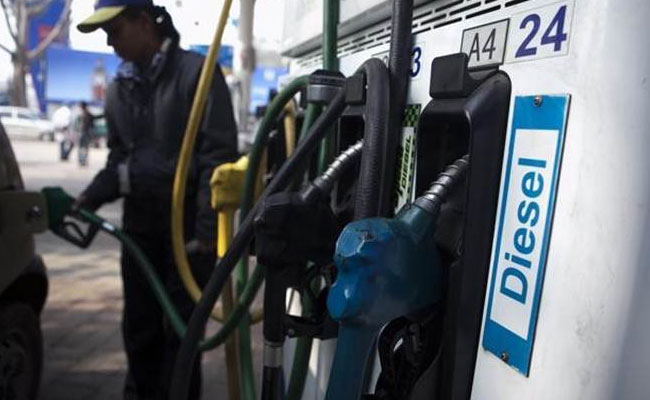
New Delhi: Petrol and diesel prices kept spiralling even on Wednesday, touching new highs in the national capital and other metros.
Petrol was sold at Rs. 72.43 per litre in Delhi, the highest in three years. It cost Rs. 72.51 on August 2014, according to data from Indian Oil Corp.
In Kolkata, Mumbai and Chennai, petrol was sold at Rs. 75.13, Rs. 80.30 and Rs. 75.12 per litre respectively, also at over three-year high levels.
The previous highs were Rs. 75.46 (Kolkata, October 2014), Rs. 80.60 (Mumbai, August 2014) and Rs. 75.78 per litre (Chennai, August 2014).
Similarly, diesel prices, which have been touching new levels, shot up further on Wednesday across all major cities.
In Delhi, diesel was sold at Rs. 63.38 per litre. In Kolkata, Mumbai and Chennai, it cost Rs. 66.04, Rs. 67.50 and Rs. 66.84 a litre respectively.
Diesel is widely used to transport goods including food products. Experts say this will push up inflation.
Several factors like production curbs by the Organization of Petroleum Exporting Countries and high demand have led to a surge in crude oil prices. As on January 24, price of Brent crude oil hovered around $70 a barrel.
Also, daily price revision in India allows for a rise in domestic fuel prices in accordance with international trends. The earlier system of price determination of petrol had a waiting period of 15 days.
COMMENTSOn the other hand, imposition of state taxes and levies generally hikes prices. Currently, the two fuels do not come under the ambit of the Goods and Services Tax.
Government of India is also emphasising on indigenous manufacturing of ESDM products: Sanjay Kr. Rakesh
.
MMNN:24 January 2018
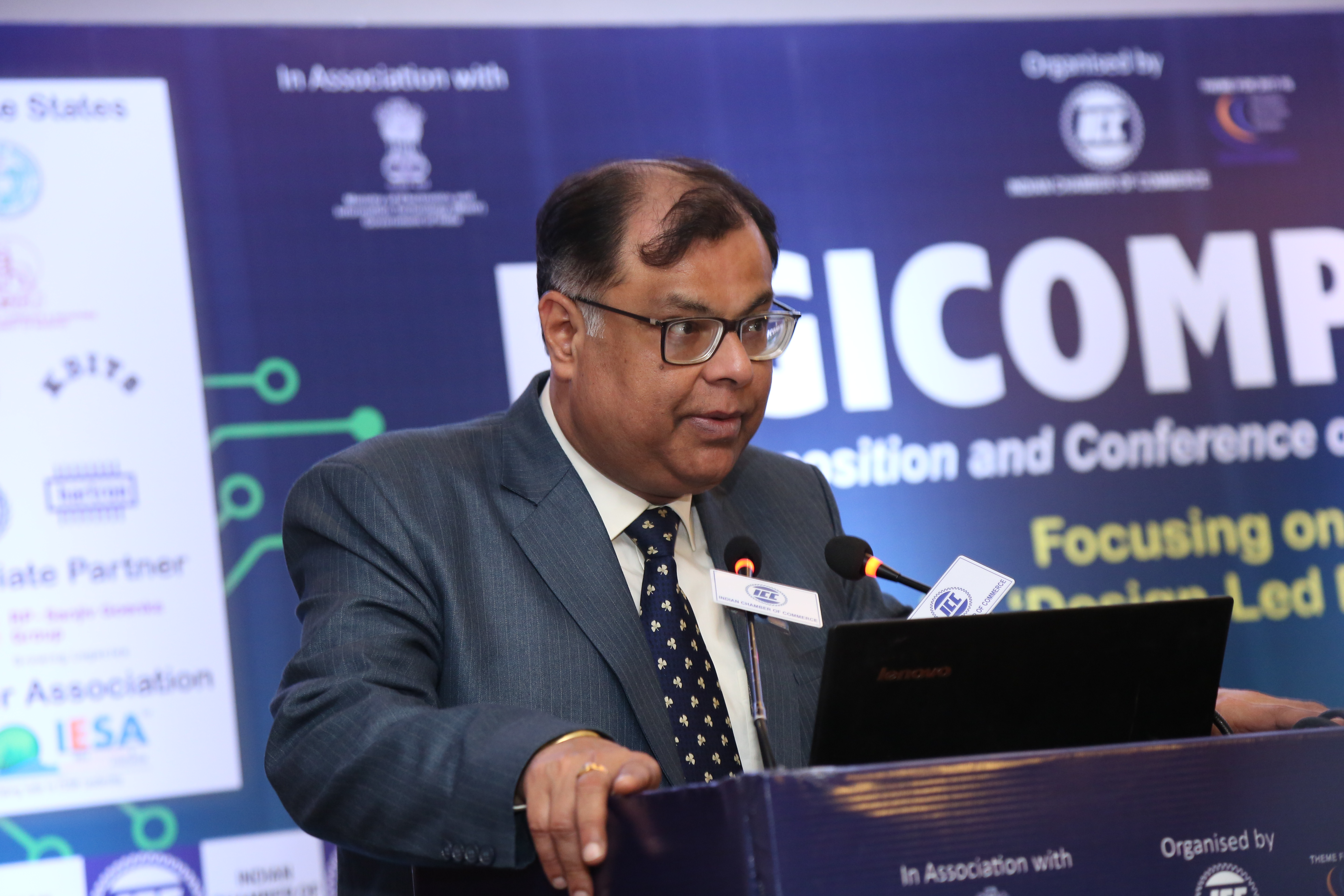
Indian Chamber of Commerce (ICC), under the aegis of Ministry of IT & Electronics, Government of India and with support from premier industry body IESA organised a two-day "Conference and Exhibition" on "Computer Hardware & Design-led Manufacturing" or ESDM products manufacturing in India.
The event entitled: "Digicomp 2018" is the latest sequel of ICC's initiatives in the field of ESDM sector. The main objective of this novel initiative of ICCs is to highlight the "Computer Hardware & Design-led ESDM Product" manufacturing industry of India. The inaugural session of the event was held today (16th January, 2018) at India Habitat Centre, New Delhi.
Speaking on the occasion, the "Chief Guest" of the Inaugural Session Mr. Sanjay Kr. Rakesh, Joint Secretary, Ministry of Electronics and Information Technology, Government of India mentioned that in last few years, there has been a sea change in government' s policies, as far as the IT Sector is concerned. A new policy document is also likely to come in place within next one or one & half months. In addition to IT & ITeS sector, the Ministry of IT & Electronics, Government of India is also emphasising on indigenous manufacturing of ESDM products. Government of India is now encouraging each individual State, to come up with more conducive industrial policies to attract private investment in the ESDM sector. States like Andhra Pradesh & Karnataka have really flourished in this respect, although response from Eastern and North-Eastern States have been found relatively laggard in this respect.
Mr. Devender Singh, Principal Secretary, Department of Electronics & Information Technology, Government of Haryana highlighted the opportunities for investment in ESDM sector of Haryana. Mr. Singh mentioned that apart from being a BPO Hub of India, Haryana is now strongly focusing on manufacturing of ESDM products in the State. Particularly in sub-sectors like 'Automotive Electronics, 'IT /OA' and 'Telecom'; the state is really striving ahead. Mr. Singh also mentioned about a few factors like State's strategic location, connectivity through 'industrial corridors' and existence of a well-designed 'GST Regime', that can add great value to the profitability factor of any private investor in the ESDM sector.
Ms. Richa Shrivastava, Vice President (Marketing & Strategy), Fintech, Government of Andhra Pradesh gave a crisp presentation on "Transforming the future for Fintech: How to create a new value proposition for the State?" Ms. Shrivastava dealt quite elaborately on the overview of Indian Fintech Ecosystem. She also spoke on topics like: Financial Electronics, Fintech Funding in India, 5 M Strategy for Fintech Ecosystem etc. She informed about incentives like 'Preferential Market Access" to Government Projects to Fintech Start-Ups.
Ms. Deepthi Ravula, Joint Director - IT, Electronics & Communication Department, Government of Telengana gave an elaborate presentation on "Electronics in Telengana". Ms. Ravula mentioned that, as the Second Largest Exporting State in IT Export, the State Telengana has made tremendous progress in the ESDM sector. She mentioned in detail about deciding factors for investment like: Telengana Fibre Grid, largest industrial Land Bank, T-Hub for Start Ups etc.
Among other experts who gave deliberations during the "Inaugural Session" included: Mr. Ashwini K. Aggarwal, Chairman-IESA, Director-Government Affairs, Applied Materials India Pvt Ltd & Mr. J.V. Ramamurthi, ICC etc.
A small exhibition is also organized on the sidelines of the 'Conference'. Five States & many important private players took part in this exhibition. Some fruitful B2B Meetings were also held during the programme
From Billboards To Platters, It's India Everywhere At Davos.
MMNN:23 January 2018
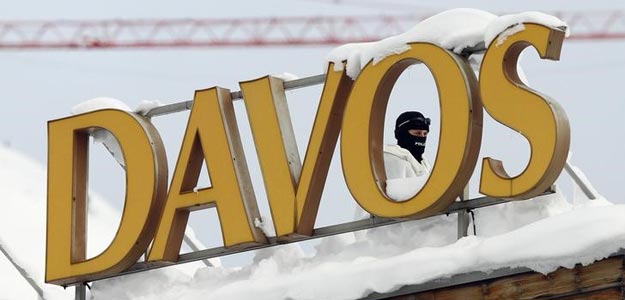
Davos: It's India everywhere in this snow- covered Swiss resort town -- once known for health tourism, always frequented by skiing enthusiasts and home to the annual week-long pow-wow of global elite in sub-zero temperatures. For now, it teems with huge billboards atop buildings and even on buses, promoting India and Indian companies, while the narrow roads made even narrower by heavy snowfall are full of lounges set up by the private and public sector from the country where Indian delicacies are flying off the counters.
Chai and pakodas are in high demand and so are vada pao and dosas. The choices to sit and munch over are plenty --there is the Indian government's official India Lounge, while Andhra Pradesh and Maharashtra governments too have set up their own lounges. Then, there are plenty of Indian companies with their own setups alongside those of the global ones.
The five-day WEF affair seems to be bigger this year and so does the snowfall, as the first day itself saw roads getting closed and serpentine traffic since morning. Flush with nearly three times its usual population, the Swiss resort of Davos is teeming with black business suits for the WEF annual gathering, but it still cannot deter the skiing enthusiasts and those coming for medical tourism.
There are warnings that the snow-laden town in the Swiss Alps can see temperatures dipping to as low as minus 30 degrees this season. But that does not seem to have dampened the spirits of those having come to the annual talkathon of the rich and powerful from across the world -- something that has become synonymous with this place for nearly five decades now.
The event has also brought thousands of army, police and other security personnel from across Switzerland and some neighbouring countries as well to secure the summit being attended by over 70 heads of states and governments. But it has a much older and fascinating history of its own, being a place of eminence for medical tourism as also winter sports.
Arthur Conan Doyle, creator of the famous detective character Sherlock Holmes, moved to this town along with his ailing wife that reportedly helped her live longer. Once famous for being a summer health resort, Davos has gradually emerged as a major winter sport hub on the Alps, but its biggest claim to fame for the past four decades has been the World Economic Forum's annual meeting every January, beginning 1971.
The Geneva-based WEF is hosting its 48th annual meeting here beginning today, where more than 3,000 leaders from across the world are expected to participate in a high-profile talk fest for five days.
To cover this global elite jamboree, there are nearly 2,000 journalists and support staff as well. While such a high-profile event leads to all hotels and rental apartments being occupied, the die-hard winter sport fans still throng this place as the WEF week also means relatively smaller crowds in ski areas and on mountain cableways.
The only drawback for tourists is that they cannot stay within the town, which has less than 10 medium-sized hotels and about 40 small ones, including in nearby areas like Klosters and Dorf. Besides, the so-called WAGs (wives and girlfriends) of those attending the WEF meet are also around in large numbers on ski circuits and at various tourist destinations of the town that comprises two big parallel roads and numerous connecting alleys.
Davos' history as a modern and popular holiday destination dates back to 150 years, when the first winter guests arrived here in 1865. Till then, it was just a summer mountain health resort with a strong reputation for treatment of tuberculosis patients.
One day in February 1865, Doctor Friedrich Unger and Hugo Richter from Germany arrived here and began a course of treatment on a bed made from a hay sled covered with boards. The treatment proved successful and both men were able to return to work. Soon after, Unger returned to Davos and worked as a doctor here for over 20 years
Richter married a Davos girl and took over the management of a guest house. Later, he also moved his publishing business to this small town and began printing two local newspapers. Another feather in its cap is Davos being home to painter Ernst Ludwig Kirchner, who spent his last 20 years in this town, which is full of many of his finest paintings.
Besides a museum devoted to Kirchner's work, his paintings can be seen everywhere in Davos. Towards the end of his life, Kirchner suffered a major nervous breakdown and spent his last days in a sanatorium in Davos.
This is the same sanatorium that inspired Noble laureate Thomas Mann's classic novel 'The Magic Mountain'. Davos' annual affair with WEF began in 1971 when the Forum was known as European Management Forum. That year, WEF founder Klaus Schwab invited over 400 European business leaders for a meeting at the Davos Congress Centre under the patronage of the European Commission.
Subsequently, WEF was formed and leaders from across the world began congregating here at the end of January every year.
Over the years, the WEF annual meeting at Davos grew larger and has been host to many historic accords and meetings, including one draft agreement on Gaza and Jericho between the then Israel foreign minister Shimon Peres and Palestine Liberation Organisation chairman Yasser Arafat in
1994.
In 1988, Greece and Turkey also signed their Davos Declaration here, which saw the two countries avoiding a war, while North and South Koreas held their first ministerial level meetings in Davos in 1989 -- a year that also saw German chancellor Helmut Kohl here discussing German reunification and then the knocking down of the Berlin Wall.
In the past 46 years, only once has WEF held its annual meeting outside Davos, when in 2002 it decided to shift the venue to New York to show solidarity with that city and the American public after the 9/11 terrorist attacks.
India's presence has also been increasing at the Davos meeting, during which hundreds of Indians can be seen strolling on its narrow roads, one of which has been hosting an 'India Adda' for many years.
5
COMMENTSFor the last two years, it had been renamed Make In India lounge to showcase the flagship programme of Prime Minister Narendra Modi, but regulars still prefer to call it by the old name of India Adda. This year, it is called simply India Lounge.
India Ranks Below China, Pakistan On This World Economic Forum Index.
MMNN:22 January 2018
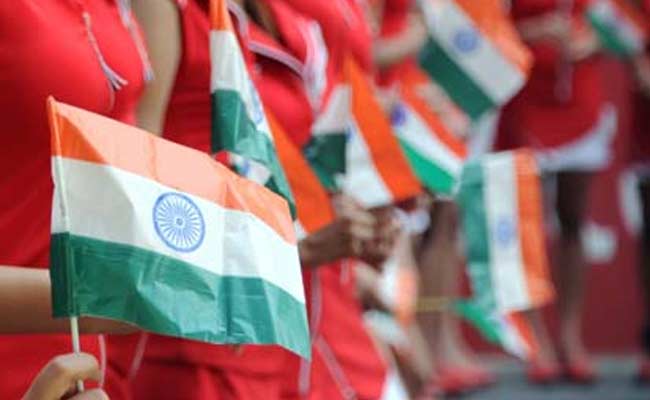
Davos: India was today ranked at the 62nd place among emerging economies on an Inclusive Development Index, much below China's 26th position and Pakistan's 47th.
Norway remains the world's most inclusive advanced economy, while Lithuania again tops the list of emerging economies, the World Economic Forum (WEF) said while releasing the yearly index here before the start of its annual meeting, to be attended by several world leaders including Prime Minister Narendra Modi and US President Donald Trump.
The index takes into account the "living standards, environmental sustainability and protection of future generations from further indebtedness", the WEF said. It urged the leaders to urgently move to a new model of inclusive growth and development, saying reliance on GDP as a measure of economic achievement is fuelling short-termism and inequality.
India was ranked 60th among 79 developing economies last year, as against China's 15th and Pakistan's 52nd position.
The 2018 index, which measures progress of 103 economies on three individual pillars -- growth and development; inclusion; and inter-generational equity -- has been divided into two parts. The first part covers 29 advanced economies and the second 74 emerging economies.
The index has also classified the countries into five sub-categories in terms of the five-year trend of their overall Inclusive Development Growth score -- receding, slowly receding, stable, slowly advancing and advancing.
Despite its low overall score, India is among the ten emerging economies with 'advancing' trend. Only two advanced economies have shown 'advancing' trend.
Among advanced economies, Norway is followed by Ireland, Luxembourg, Switzerland and Denmark in the top five.
Small European economies dominate the top of the index, with Australia (9) the only non-European economy in the top 10. Of the G7 economies, Germany (12) ranks the highest. It is followed by Canada (17), France (18), the UK (21), the US (23), Japan (24) and Italy (27).
The top-five most inclusive emerging economies are Lithuania, Hungary, Azerbaijan, Latvia and Poland.
Performance is mixed among BRICS economies, with the Russian Federation ranking 19th, followed by China (26), Brazil (37), India (62) and South Africa (69).
Of the three pillars that make up the index, India ranks 72nd for inclusion, 66th for growth and development and 44th for inter-generational equity.
The neighbouring countries ranked above India include Sri Lanka (40), Bangladesh (34) and Nepal (22). The countries ranked better than India also include Mali, Uganda, Rwanda, Burundi, Ghana, Ukraine, Serbia, Philippines, Indonesia, Iran, Macedonia, Mexico, Thailand and Malaysia.
Although China ranks first among emerging economies in GDP per capita growth (6.8 per cent) and labour productivity growth (6.7 per cent) since 2012, its overall score is brought down by lacklustre performance on inclusion, the WEF said. It found that decades of prioritising economic growth over social equity has led to historically high levels of wealth and income inequality and caused governments to miss out on a virtuous circle in which growth is strengthened by being shared more widely and generated without unduly straining the environment or burdening future generations.
Excessive reliance by economists and policy-makers on Gross Domestic Product as the primary metric of national economic performance is part of the problem, the WEF said.
The GDP measures current production of goods and services rather than the extent to which it contributes to broad socio-economic progress as manifested in median household income, employment opportunity, economic security and quality of life, it added.
1
COMMENTSThe WEF also said that rich and poor countries alike are struggling to protect future generations, as it cautioned political and business leaders against expecting higher growth to be a panacea for the social frustrations, including those of younger generations who have shaken the politics of many countries in recent years.
Income Tax Department Cracks Down On Cryptocurrency Traders, Again.
MMNN:20 January 2018

From finance ministry to Reserve Bank of India (RBI) to income tax (I-T) authorities, almost every regulator of any significance is bent upon tightening the noose on cryptocurrency users (including bitcoins, ripple, ethereum and litecoin, among others) and traders. On Friday, the income tax department issued notices to the hundreds of thousands of cryptocurrency users, reported Thomson Reuters.
B R Balakrishnan, a director general of investigations at the tax department in Karnataka, said the notices were sent following the nationwide survey to assess the penetration and patterns of virtual currency trade.
"We cannot turn a blind eye. It would have been disastrous to wait until the final verdict was out on its legality," he told Reuters on Friday.
However, the cryptocurrency market exchange operators believe that the government is going a bit too far and creating an environment where the bitcoin trading is being compared to a 'Ponzi' scheme. "Many of our customers are treating digital currency like gold," said Zebpay co-founder Saurabh Agarwal.
Aman Kalra, marketing head of Coinsecure, a bitcoin exchange in New Delhi, said more than 150 bitcoins were changing hands every week through its platform. The company has 100,000 registered users and is now launching a platform to sell ethereum and other digital currencies.
In recent weeks, Japan and China have made noises about a regulatory crackdown, while South Korean policymakers said they were considering shutting down domestic virtual currency exchanges.
A nationwide survey showed more than $3.5 billion worth of transactions have been conducted over a 17-month period, the income tax department said. The data was gathered from nine exchanges in Mumbai, Delhi, Bengaluru and Pune
GST Rate Changed For 29 Goods, 53 Categories Of Services.
MMNN:19 January 2018
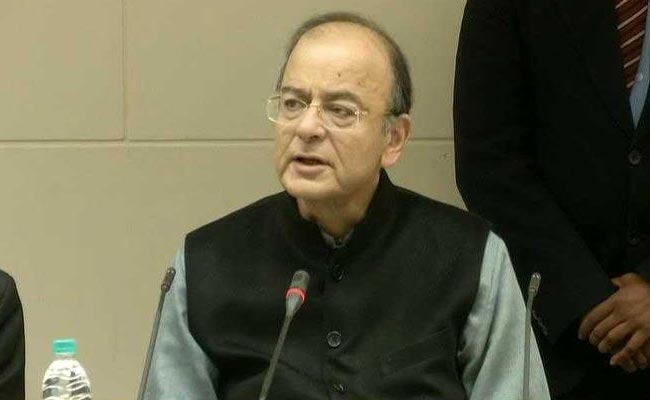
Days ahead of the Union Budget for 2018-19, the GST Council today approved a change in tax rates of 29 goods and 53 categories of services, Finance Minister Arun Jaitley said. Mr Jaitley, who heads the powerful GST Council, said the new rates will be effective from January 25.
The Council in its 25th meeting today also considered simplification of the return filing process and Infosys chairman Nandan Nilekani will meet members to work on this, Mr Jaitley said. Mr Nilekani was present at today's meeting and made a presentation. Infosys is the IT service provider for GST technological network.
The Union finance minister said that in the next meeting, the Council may consider bringing petroleum and other exempt items within purview of GST.
The Council cut GST rate on second-hand medium and large cars and SUVs from 28 per cent to 18 per cent and on other old and used motor vehicles to 12 per cent. "This move seems targeted towards providing benefit to middle-class consumers, especially the youth, buying their first car from small-scale dealers," said Abhishek A Rastogi, partner at Khaitan & Co.
GST on LPG supplied for supply to household domestic consumers by private LPG distributors will come down to 5 per cent from 18 per cent.
The GST rate on bio-fuel powered buses has been cut to 18 per cent, from 28 per cent. The rate on diamonds and precious stones has been cut from 3 per cent to 0.25 per cent. Sugar boiled confectionary and drinking water packed in 20 litre bottles will attract GST of 12 per cent, instead of 18 per cent earlier. Drip irrigation system including laterals, sprinklers will also attract lower GST of 12 per cent, instead of 18 per cent earlier.
Cigarette filter rods will attract higher GST rate of 18 per cent as against 12 per cent currently. (Full list of new GST rates on goods)
The GST Council also decided to exempt supply of services by way of providing information under the RTI Act. The council also exempted legal services provided to the government. The council decided to reduce the tax rate on tailoring service from 18 per cent to 5 per cent. The admission to theme parks, water parks, joy rides, merry-go-rounds, go-carting and ballet will also be reduced from 28 per cent to 18 per cent. (Full list of new GST tax rates on services)
Mr Jaitley said the GST provision requiring transporters to carry an electronic waybill or e-way bill, when moving goods of over Rs. 50,000 in value between states, will be implemented from February 1. This will help in checking tax evasion, he added.
As many as 15 states have decided to implement the provision for intra-state movements as well, Mr Jaitley said.
Once the e-way bill system is implemented, tax avoidance will become extremely difficult as the government will have details of all goods above the value of Rs. 50,000 moved and can spot the mismatch if either the supplier or the purchaser does not file tax returns, say experts.
GST collections with regard to the composition scheme is a matter of concern, Mr Jaitley said. There seem to be cases of under declaration under the composition scheme, he said.
25
COMMENTSComposition scheme allows small businesses to pay taxes at a concessional rate and makes compliance easy under the Goods and Services Tax (GST).
Why Infosys, TCS, HCL Tech, Tech Mahindra Shares Have Rallied To 1-Year Highs.
MMNN:17 January 2018
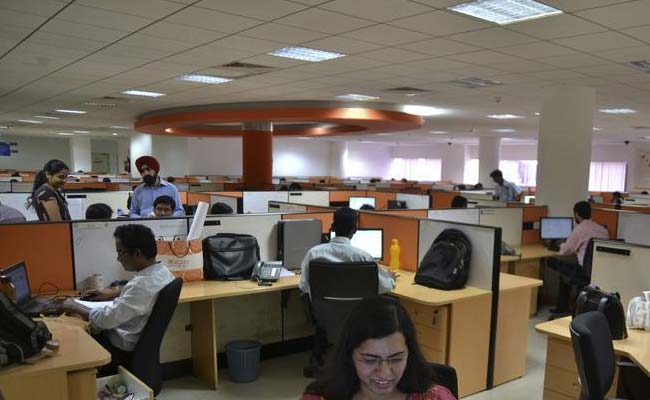
IT stocks, including TCS, Infosys and HCL Tech, continued their rally today. Shares of TCS, Infosys and HCL Tech rose to their 52-week highs. TCS shares rose over 2 per cent to Rs. 2,925, Infosys gained 2.6 per cent to Rs. 1,160 while HCL Tech edged higher by 0.70 per cent Rs. 962.70. The momentum in IT stocks come in the wake of weakness in the rupee as well as bets by investors that global IT spending will pick up this year, benefitting the Indian outsourcers. Tech Mahindra shares also hit a fresh 52-week high of Rs. 564 on Wednesday.
Last week, IT majors TCS and Infosys announced their Q3 earnings which were mostly in line with the Street's estimates. Even though IT underperformed the benchmark Sensex in 2017, the possibility of a pickup in tech spending during the current year could help improve investor sentiment towards these stocks, global brokerage Morgan Stanley said in a report on Tuesday.
"IT (large cap stocks) underperformed the Sensex in 2017 as revenue growth was tepid while investment in the business and a strong rupee kept margins in check," Morgan Stanley said. "We believe a turnaround in IT spending is imminent, which could quickly turn sentiment on these stocks. While structurally the sector faces risks from automation and a slower pace of market share gains from global vendors, we believe a cyclical rally could be in the offing," it added.
But the report flagged the rising rupee, saying it could be a headwind for its optimism.
India's largest IT services firm TCS or Tata Consultancy Services (TCS) has bagged another big outsourcing contract. TCS on Tuesday said it has signed an over GBP 500 million ($690 million) deal with M&G Prudential, the UK and European savings and investments business of Prudential plc. TCS has over the last few weeks announced a slew of large client wins including American insurer Transamerica (over $2 billion), television rating measurement firm Nielsen and British retailer Marks & Spencer. (Read more)
The rupee fell sharply on Tuesday settling beyond the 64 mark against the US dollar.
"The ongoing rupee appreciation is a margin headwind. Any renewed concerns on regulations, especially visas, or new US tax laws could hurt," Morgan Stanley warned in its report.
The brokerage has upgraded Infosys, Tech Mahindra and HCL Tech to overweight as valuations are at or below long-term averages. It said that an improvement in BFSI/retail verticals could help the industry leader TCS and hence it has upgraded it to equal weight (EW).
Research firm Gartner on Tuesday said global IT spending is expected to grow 4.5 per cent to $3.68 trillion this year. "Global IT spending growth began to turn around in 2017, with continued growth expected over the next few years," Gartner Research vice president John-David Lovelock said.
COMMENTSProjects in digital business, blockchain, Internet of Things (IoT) and progression from big data to algorithms to machine learning to artificial intelligence (AI) will continue to be main drivers of growth, Mr Lovelock added.
Ramdev's Patanjali Makes Big Online Push, Partners With Flipkart, Amazon, Paytm.
MMNN:16 January 2018
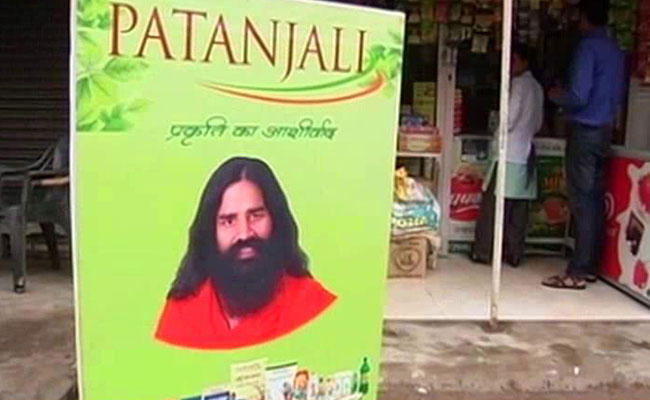
Yoga guru Ramdev's Patanjali Ayurved today formally launched its e-commerce operations, in its bid to reach out to more customers. Haridwar-based Patanjali has also entered into agreements with e-retailers such as Amazon, Flipkart, Paytm Mall, Bigbasket and Grofers, among others, to sell its products through their platforms. Patanjali Ayurved said it has developed a detailed plan to make its products available from "Haridwar to every door step online". Patanjali Ayurved said in a statement that its e-commerce platform www.patanjaliayurved.net "yielded good dividend and response at trial stage itself" with online sales crossing Rs. 10 crore mark in December.
"Online mechanism aims to provide convenient and efficient option along with extension of traditional retail market," said Ramdev.
In 2016-17, Patanjali had crossed a turnover of Rs. 10,500 crore. It eyes a two-fold growth this fiscal year.
Patanjali Ayurved managing director and CEO Acharya Balkrishna said the new e-commerce platform and partnerships will help the company in reaching more people. It will help "reach those who do not have access to the point of purchase and they are looking for alternate mechanism to shop and can get Patanjali products at home", he said.
Patanjali said it has an annual production capacity of Rs. 50,000 crore. According to the company, it is the highest in the FMCG (fast-moving consumer goods) sector so far.
Commenting on the partnership with Patanjali, Amazon India VP (category management) Manish Tiwary said: "We are thrilled to partner with Patanjali and enable easy access of their products to customers across the country. We are committed to work together with Indian-grown brands with the aim to give customers unique products combined with a delightful online shopping experience."
Besides the FMCG segment, Patanjali Ayurved is present in other sectors such as education and healthcare. Last month, it had announced venturing into manufacturing of solar equipment.
Flipkart CEO Kalyan Krishnamurthy said: "Both Patanjali and we have a common vision of making top quality products available to customers at the best value, so this partnership benefits consumers in a big way.
Capital First Shares Jump 8%, IDFC Bank Shares Fall 3% On Merger Plans.
MMNN:15 January 2018
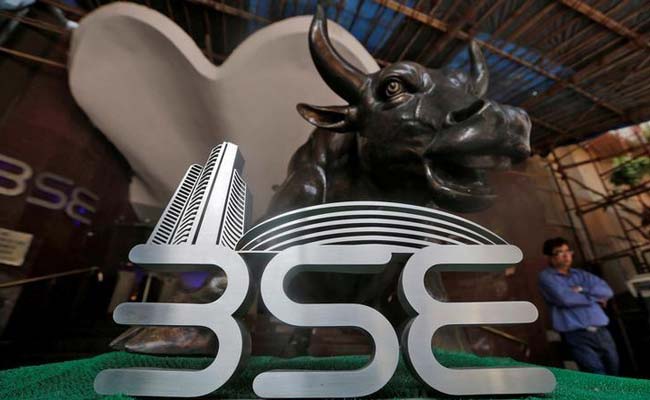
New Delhi: Shares of Capital First on Monday surged nearly 8 per cent while IDFC Bank slipped more than 3 per cent in morning trade following their announcement of merger to create a Rs. 88,000-crore combined entity. IDFC Bank and non-banking financial company Capital First on January 13 said they have received approval from their respective boards for a merger. Shares of Capital First surged 7.90 per cent to a high of Rs. 902 on the BSE, while on the NSE the stock jumped 7.68 per cent to Rs. 901.85.
Meanwhile, IDFC Bank slipped 3.62 per cent to a low of Rs. 65.20 on BSE and on the NSE it fell 3.48 per cent to Rs. 65.15. Under the deal, IDFC Bank will issue 139 shares for every 10 shares of Capital First. Post-merger, the combined entity will have an AUM of Rs. 88,000 crore; PAT of Rs. 1,268 crore (FY17); and a distribution network comprising 194 branches (as per branch count of December 2017 of both entities), 353 dedicated BC outlets and over 9,100 micro ATM points, serving more than five million customers across the country.
V Vaidyanathan, who is currently chairman and MD of Capital First, will succeed IDFC Bank managing director and CEO Rajiv Lall as MD and CEO of the combined entity upon completion of the merger and necessary regulatory approvals. IDFC Bank is one of the youngest private lenders while Capital First is an NBFC backed by Warburg Pincus
IDFC Bank To Acquire Capital First In $1.5 Billion Deal.
MMNN:13 January 2018

Mumbai: IDFC Bank, one of India's two newest banks, will acquire non-bank financial firm Capital First Ltd in a share swap deal valued at about $1.5 billion as it looks to boost its retail lending activities. According to terms of the deal announced on Saturday, shareholders in Capital First will receive 139 shares of the bank for every 10 shares held. The deal is conditional on central bank and other regulatory approvals.
The deal values Capital First - owned more than a third by private equity firm Warburg Pincus - at Rs. 938.25 a share based on the two companies' Friday closing price and giving the company a market value of Rs. 9,278 crore ($1.46 billion), Reuters calculations showed.
That is a premium to Capital First's Friday closing price of Rs. 837.50, or equal to a market capitalisation of about Rs. 8,300 crore, according to Thomson Reuters data.
The deal is "pursuant to IDFC Bank's stated strategy of 'retailising' its business to complete their transformation from a dedicated infrastructure financier to a well-diversified universal bank," the two sides said in a joint statement.
Capital First's founder and chairman V. Vaidyanathan will become chief executive of the combined entity, the statement said.
IDFC Bank - which was spun off from infrastructure financier IDFC Ltd in 2015 - is currently heavily reliant on wholesale lending.
At a time when a surge in bad loans and weak economic growth have crimped lending to big industries, banks and financial institutions are growing the less-riskier retail loans faster.
Capital First, which also counts Singapore state investor GIC among its major investors, will bring in a loan book of almost 230 billion rupees as of Sept. 30, three million customers and a distribution network spanning 228 locations across the country.
IDFC Bank and its parent IDFC Ltd last year announced talks to acquire some of Shriram Group's financial services businesses but the deal fell through due to disagreement on a share swap ratio
Infosys Net Profit Jumps 38% To Rs. 5,129 Crore On Tax Reversal.
MMNN:12 January 2018
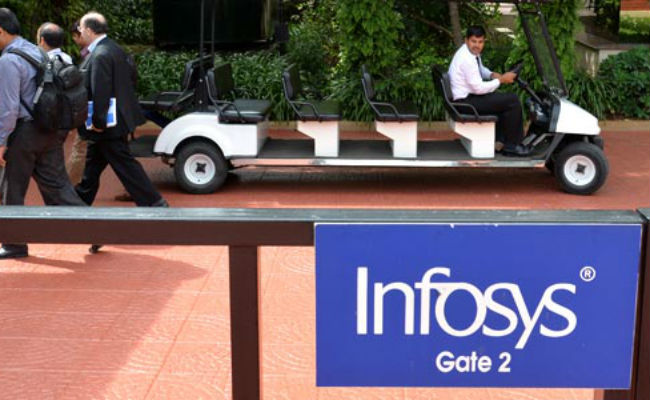
Infosys, India's No. 2 IT major, today reported a net profit of Rs. 5,129 crore for the quarter ended December 31, 2017, aided by reversal of the tax provisions of approximately Rs. 1,432 crore. This is a jump of 37.6 per cent on quarter-on quarter basis and 38.3 per cent on yearly basis. Infosys had reported a net profit of Rs. 3,726 crore for the quarter ended September 30, 2017. In the December quarter, Infosys posted revenue of Rs. 17,794 crore. The numbers were in line with the Street's estimates.
Commenting on the Q3 earnings, Salil Parekh, CEO and MD of Infosys, said: "It is a privilege for me to be appointed as the CEO & MD of Infosys, helping our clients navigate the digital future and employees build new skills and capabilities. Our Q3 performance is strong. We had 8 per cent year-on-year growth and 24.3 per cent operating margin with $593 million of free cash flow."
"We are progressing towards stability and are well positioned to serve our clients in the new areas of demand," he added.
Infosys maintained its FY18 revenue guidance at 5.5-6.5 per cent in constant currency. Its Q3 operating margin improved to 24.3 per cent, from 24.2 per cent in the September quarter. Attrition on a standalone basis declined to 15.8 per cent from 17.2 per cent in September quarter. In dollar terms, Q3 revenue grew 8 per cent year-on-year and 1 per cent sequentially to $ 2,755 million.
"Our operating margins were stable on the back of broad-based improvement in operational efficiency parameters. Our cash generation continued to be robust during the quarter." said CFO MD Ranganath said. "We successfully executed the share buyback of Rs. 13,000 crore in line with our capital allocation policy."
COMMENTSCOO Pravin Rao said: "Increased adoption of our digital offerings and new services helped stabilize price realization. We were able to grow client relationships across revenue categories."
"During the quarter, we provided compensation increases and higher variable payouts to our employees. Our investments in employees continue to deliver results as reflected in lower attrition," Mr Rao added
Mukesh Ambani's Jio Poised To Report Profit In Major Milestone.
MMNN:11 January 2018
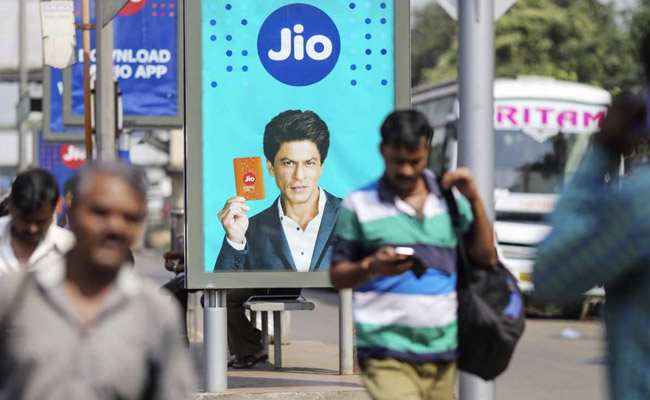
Richest Indian Mukesh Ambani's telecom venture is on course to record its first-ever quarterly profit this financial year, aided by the government's decision to slash interconnection fees, people with knowledge of the matter said.
Reliance Jio Infocomm Ltd., a unit of the nation's most valuable company Reliance Industries Ltd., may report a net income this month itself when it lays out its December-quarter performance, the people said, asking not to be identified discussing private information.
The crucial financial milestone would come less that 18 months after Jio, as the company is known, stormed into India's mobile-phone market with free services that triggered a tariff war and forced consolidation in the sector. Achieving profitability would be one of the parameters that will decide the company's path to an initial public offering after Ambani pumped at least $31 billion into the venture. Parent Reliance Industries has surged 77 per cent since Jio started operations and dislodged rivals to become the nation's No. 4 wireless carrier.
A Reliance Industries spokesman didn't respond to an emailed query on Jio's timeline for reporting profits.
"We are ahead of our schedule in terms of the returns that we are generating," billionaire Ambani had said at a December 1 event without giving any timelines.
Jio reported a surprise operating profit in the September quarter, the first time the unit's results were segregated. It had a net loss of Rs. 271 crore ($42.5 million) on revenue of Rs. 6,150 crore.
Costs have since declined substantially after a reduction in the fee an operator pays its counterparts for allowing calls to go through. The saving will flow directly into Jio's net income, the people familiar said.
The Telecom Regulatory Authority of India reduced interconnect charges by 57 per cent to 6 paise a minute starting October 1 last year. The fee is set to drop to zero from January 1, 2020.
Jio spent more than Rs. 2,100 crore on access charges in the quarter ended September 30, or more than a third of its revenues, according to a company statement.
Interconnection Costs
The reduced interconnection costs will be pitted against any increase in depreciation charges and in the interest Jio pays on loans, which would erode net income. If these charges are high enough, the telecom unit may print a loss for the last quarter.
"Unfortunately a (unknown) portion of costs are still capitalized as RIL has not yet commissioned its entire telecom infrastructure," Sanjay Mookim, a Bank of America Merrill Lynch analyst in Mumbai wrote in a January 9 note, explaining why Jio's earnings numbers are hard to pin down.
Cost structures are also likely to change once Jio completes the acquisition of spectrum, tower and fiber assets from debt-laden Reliance Communications Ltd. The deal won't dent Jio's December earnings as it is expected to close between January and March.
Profits for Jio may be around the corner, boosted by a customer base that has swelled to about 160 million and tariff hikes in October, Jefferies analysts led by Mumbai-based Somshankar Sinha wrote in a January 8 report.
Telecom could turn profitable in the three months to December 31 despite higher capital charges, Sinha wrote in the report, describing it as "a quarter of many firsts" for Reliance Industries earnings
IKEA, Other Single-Brand Retailers And Air India Get FDI Boost: 10 Points.
MMNN:10 January 2018
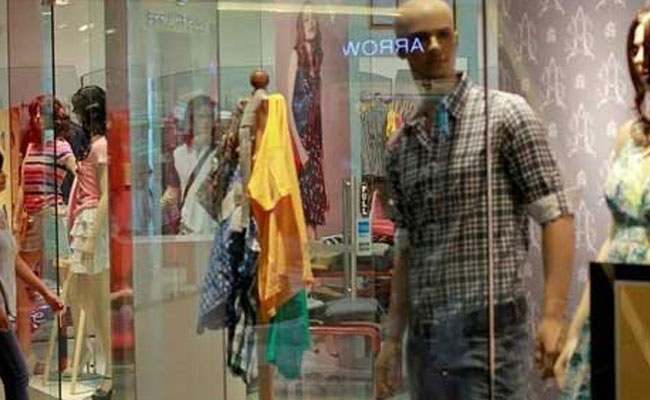
The Cabinet today liberalised FDI or foreign direct investment in key sectors including allowing 100 per cent FDI under automatic route in single brand retail trading. It also allowed foreign airlines to invest up to 49 per cent under approval route in national carrier Air India. This move is expected to expedite the divestment process for Air India. It is also likely to benefit big foreign single-brand retailers such as IKEA. 100 per cent FDI in construction development via automatic route was also cleared. The decision was taken during the Cabinet meeting chaired by Prime Minister Narendra Modi. Measures taken by the government have resulted in increased FDI inflows into the country. In the financial year 2016-17, a total of $60.08 billion was received in FDI - which is an all-time high.
10 Things To Know About Key FDI Decisions Today:
1-Currently, FDI up to 49 per cent is permitted under automatic route in single brand retail but beyond that limit, government nod is required.
2-The government said that the decision to liberalise FDI norms would help provide ease of doing business and also lead to larger FDI inflows contributing to growth of investment, income and employment.
3-"The approval through automatic route with respect to single brand retail trading will quicken the FDI clearance process as no prior government approval would be required. We expect that FDI in single brand retail trading sector will now gain further momentum due to the process not being subject to regulatory scrutiny and approval process," said Rabindra Jhunjhunwala, partner at law firm Khaitan & Co.
4-The relaxation of norms for foreign airline investment in Air India is subjected to certain conditions. The government said that foreign investment in Air India including that of foreign Airline (s) shall not exceed 49 per cent either directly or indirectly and "substantial ownership and effective control of Air India shall continue to be vested in Indian National".
5-According to the current FDI policy, foreign airlines are allowed to invest under government approval route in Indian companies operating scheduled and non-scheduled air transport services, up to the limit of 49 per cent of their paid-up capital. But the provision was not applicable to Air India.
6-Last year, the Cabinet Committee on Economic Affairs (CCEA) gave its in-principle nod for the strategic disinvestment of Air India.
7-Debt-laden Air India is staying afloat on taxpayers' money. Air India has a total debt of about Rs. 48,877 crore at the end of March 2017, of which about Rs. 17,360 crore were aircraft loans and Rs. 31,517 crore were working capital loans.
8-Currently, a group of ministers is in the process of finalising the contours for the proposed strategic stake sale in the national carrier and expression of interest is likely to be invited from bidders soon.
9-Among other decisions today, the Cabinet clarified that real-estate broking service does not amount to real estate business and is therefore, eligible for 100 per cent FDI under automatic route.
10The Cabinet also decided to allow foreign institutional investors (FIIs)/foreign portfolio investors (FPIs) to invest in power exchanges through primary market as well. Earlier, FII/FPI purchases were restricted to secondary market only
GVKPIL signs concession agreement with Cidco for Navi Mumbai International Airport.
MMNN:9 January 2018

GVK Power & Infrastructure Ltd said that it has signed a concession agreement for the Navi Mumbai International Airport project.
The agreement has been signed through the creation of a Special Purpose Vehicle ,Navi Mumbai International Airport Pvt Ltd(NMIAL) with Cidco, the nodal authority of the Maharashtra government for the implementation of the project.
GVKPIL, through its subsidiary, Mumbai International Airport Pvt Ltd, holds 74
percent equity shares in the proposed Navi Mumbai Airport Ltd, with Cidco holding the balance 26 per cent. The initial concession period is 30 years from the appointed date, which is extendable for a further period of 10 years.
The agreement was signed in the presence of Maharashtra Chief Minister Devendra Phadnavis, GVK Executive Chairman MIAL, GVK Reddy, and Chairman and Managing Director of Cidco, Bhushan Gagrani at Mumbai, GVKPIL said in filing with BSE.
GVK Reddy said, ''GVK has got the opportunity to yet again display its technical and managerial prowess in the airports sector after having created the award winning Mumbai airport, for developing and maintaining Navi Mumbai International Airport.
With the support of the Central and Maharashtra Governments and Cidco, we are confident of delivering the much needed second airport for the twin cities of Mumbai and Navi Mumbai.''
GVK subsidiary MIAL was declared the successful bidder for Navi Mumbai International airport in February 2017 and received the Letter of Award from Cidco on October 25, 2017
SBI To Raise Up To Rs. 12,600 Crore Via Overseas Bonds.
MMNN:8 January 2018
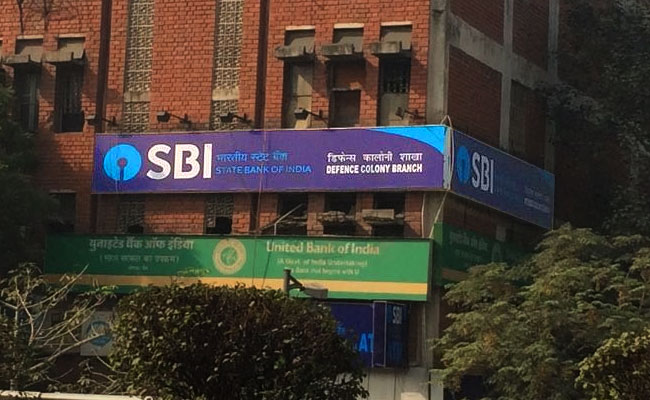
New Delhi: State Bank of India (SBI), the country's largest lender, plans to raise up to $2 billion (over Rs. 12,600 crore) by issuing bonds in US dollar or other convertible currency.
"The executive committee of the Central Board.. has approved long term fund-raising in single/multiple tranches up to $2 billion," SBI said in a regulatory filing.
COMMENTSIt said the fundraising will take place through a public offer and/or private placement of senior unsecured notes in US dollar or any other convertible currency during fiscal years 2017-18 and 2018-19.
At 2:31 pm, shares in SBI were trading 0.40 per cent lower at Rs. 305.10 apiece on the NSE, whose benchmark Nifty index was trading 0.45 per cent at 10,607.25
Infosys: Ex-CFO pats Nilekani for correcting previous 'wrongdoings' over CEO's pay.
MMNN:6 January 2018

BENGALURU: Former Infosys Chief Financial Officer V Balakrishnan on Saturday praised the company's co-founder Nandan Nilekani for correcting the 'wrongdoings' committed by previous board, by fixing a reasonable salary for the incumbent CEO.
"I think the board under Nandan has done the right thing to correct the previous wrongdoings. The salary structure for the current Chief Executive Officer Salil Parekh looks reasonable with a large part tied to variable salary with greater focus on long-term retention," he told PTI here.
Balakrishnan said it is important for the board to clearly articulate the performance metrics for the vesting of variable salaries to senior management.
"The metrics should have clear focus on increasing shareholders' value by achieving superior growth.. If the board wants to exercise any discretion it should be explained to the shareholders with proper reasoning," he said.
Infosys has fixed Parekh's salary at Rs 6.5 crore with an eligibility for variable pay of Rs 9.75 crore at the end of the 2018-2019 fiscal year.
Elaborating on the 'wrongdoings' by the previous board, Balakrishnan said, "unfortunately, it never clearly understood the culture or value systems followed by Infosys under its founders, which resulted in excessive senior management salaries and a huge disconnect with rest of the organisation."
"The former CEO's (Vishal Sikka) salary was increased substantially without clear reason while the rest of the organisation had to contend with meager salary hikes and reduced variable compensation," he added.
The $20 billion target by 2020 was loosely used to justify the pay increase to the CEO that lacked conviction, Balakrishnan alleged.
Recalling N R Narayana Murthy's views, he said excess in capitalism will make the acceptance of capitalism difficult to a large sections of the society.
"The CEO compensation should be reasonable enough to attract top talent while at the same time be comparable with peer group companies," the company's former CFO said.
"It should also reflect the realities within the organization otherwise selling it internally will be difficult," he added.
Balakrishnan also said when the founders ran the company, the senior management salaries were reasonable enough to attract top talent and were never considered excessive.
GDP Expected To Grow At 6.5% In 2017-18, Forecasts Government.
MMNN:5 January 2018
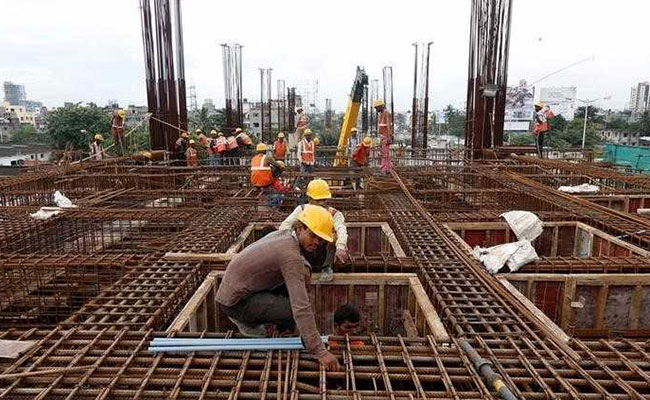
The GDP or gross domestic product economy is expected to grow at 6.5 per cent this fiscal (2017-18), according to the first advance estimates of the Central Statistics Office. This is lower than the 7.1 per cent growth rate clocked by the economy in 2016-17 and 8 per cent in 2015-16. The estimate is crucial as the finance ministry prepares Budget 2018, which is set to be presented on February 1.
GDP growth recovered to 6.3 per cent in the September quarter, higher than a three-year low of 5.7 per cent growth recorded in the April-June quarter.
A string of data released this week point to an on-going economic recovery after economic growth had slowed down to a three-year low in the April-June quarter, on the back of destocking ahead of GST implementation and the lingering impact of demonetisation.
Factory activity expanded at the fastest pace in five years in December, a private sector survey showed on Tuesday, buoyed by a rise in output and new orders. Activity in the services industry also bounced back to modest growth in December after contracting in the previous month, a private survey showed on Thursday.
Eight core sectors grew by 6.8 per cent - the highest in 13 months - in November 2017, mainly helped by a robust performance in segments like refinery, steel and cement, official data showed on Monday.
The International Monetary Fund (IMF) expects India's GDP to grow at 6.7 per cent in 2017-18. The RBI estimates the economy to grow at 6.7 per cent in terms of gross value added (GVA), which is GDP minus taxes.
Analysts remain optimistic of economic growth recovering further in 2018-19. "We expect growth to normalise gradually over the next four to six quarters as the disruptive impact of major policy changes fades," Standard Chartered said in its Economic Outlook report.
Government Seeks Parliament Nod For Rs. 80,000 Crore Bank Recapitalisation Plan.
MMNN:4 January 2018
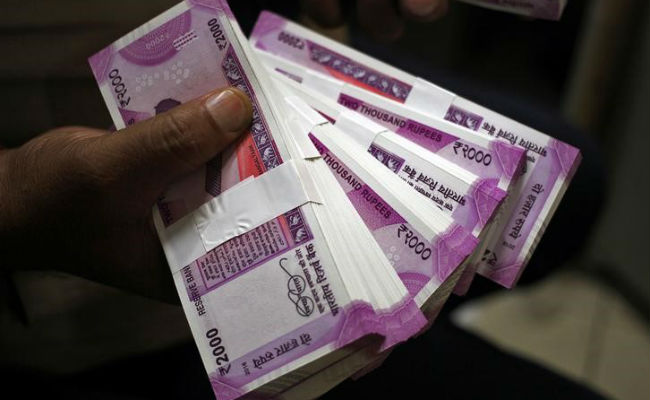
New Delhi: The government asked Parliament on Thursday for Rs. 80,000 crore ($12.62 billion) that it plans to spend by March as part of a two-year programme to recapitalise state banks to help them deal with bad debts and revive credit growth.
In October, Finance Minister Arun Jaitley announced the plan to recapitalise the 21 banks with Rs. 2.11 lakh crore, including Rs. 1.35 lakh crore through recapitalisation bonds and Rs. 58,000 crore from share sales by state-run banks.
The lenders which are majority-owned by the government have more than two-thirds of India's banking assets. These banks also account for the bulk of the sector's record $150 billion in bad loans, a major factor choking new credits, after years of profligate lending.
The banks also face higher capital requirements as mandated by the global Basel III banking rules to be fully implemented by March 2019.
On Thursday, the finance ministry presented the planned expenditure for state bank recapitalisation in the fiscal year ending in March in the lower house of parliament. It said this would not entail any cash outgo after taking into account the receipts on issue of securities to the banks.
Neither the finance ministry nor the central bank has given a breakdown, by bank, of the recapitalisation sum. Under the current plan, banks are supposed to subscribe to the bonds and the government will invest the funds raised in return for equity in the banks.
earlier on Thursday, Moody's Investors Service said it expected all the 21 state banks to meet the minimum Basel III requirement of 8 per cent common equity tier 1 (CET1) ratio by March 2019, aided by the recapitalisation.
Salil Parekh Excited To Lead Infosys As CEO, Asks Employees To Be Ready For Reskilling.
MMNN:3 January 2018
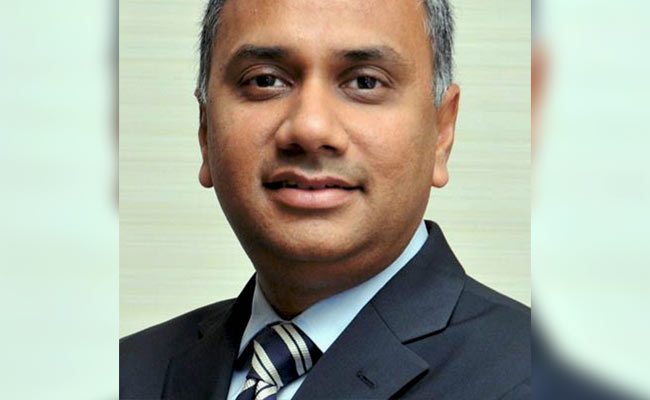
New Delhi/Bengaluru: Salil Parekh took charge as managing director and chief executive of IT major Infosys on Tuesday and said he is excited to lead the company at a time when technology is changing at a fast and disruptive pace. On his first day at the corner-office, Parekh met some employees and toured the sprawling Infosys campus. He was even seen posing for a selfie with a few of them.
In a video address to employees, Parekh is said to have emphasised that each worker has a role to play in this "world of continuous technology disruption" and that they will have to be ready for the future, geared with necessary skills. Parekh stated that he had met a few Infoscions and hoped that they can work together to accelerate the company's transformation.
Infosys, on its Twitter account, shared some pictures of the first day at work for Parekh. In one of the pictures, he is seen posing against a backdrop with the familiar blue Infosys logo and a message that read "Welcome to Infosys, Salil". In another photograph, the former Capgemini executive is seen interacting with some employees. A group of six also managed to get a selfie with the new CEO.
For Parekh, who has come on board for a tenure of five years, top priorities would include bringing back focus on revenue growth and business strategy. His role will also be challenging considering that Infosys is trying to put behind the almost year-long public standoff between Infosys' high-profile promoters and the past leadership.
COMMENTSSome of the big tasks for Parekh will include driving growth amid increasing scrutiny in key markets like the US, retaining talent and skilling manpower on new-age technologies like artificial intelligence and machine learning. Investors and market watchers will keenly wait for Parekh to spell out his strategy to spur growth for Infosys, which is slated to announce its third quarter financials on January 12.
Sebi Likely To Face Legal Challenges After December 22 Raids.
MMNN:30 December 2017
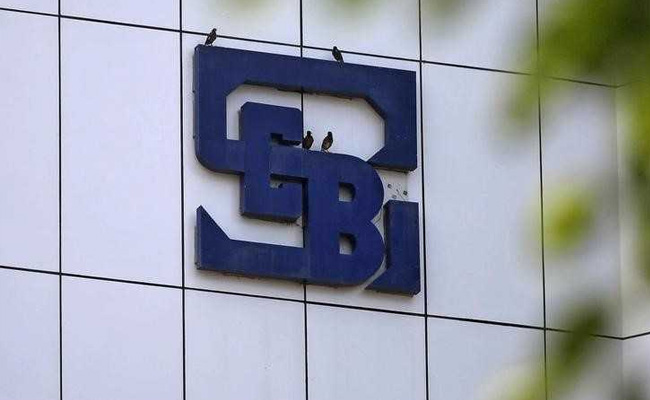
Mumbai: A series of raids by India's market regulator, investigating whether corporate announcements were prematurely leaked by market participants in social media chatrooms, were the largest it has conducted.
But despite the scale of the action, the Securities and Exchange Board of India (SEBI) will likely face several tough legal challenges in any prosecutions, according to four lawyers, including two former officials of the regulator.
Dozens of SEBI officials raided offices and homes of brokers on Dec 22, seizing mobile phones and laptops, one regulatory source told Reuters. As many as 30 brokers were targeted in the action, according to local media.
SEBI has broad search-and-seizure powers that enable it to seize "books, registers, other documents" and records of anyone associated with securities markets, according to the regulations laid out in the official act that governs the regulator's activity.
Those powers would likely allow the regulator to withstand in court any challenge to the seizure of electronic gadgets, the lawyers interviewed by Reuters said.
But whether SEBI has legal rights to get into individual social media accounts does not appear to have been established, the lawyers said. They said they were not aware of any explicit law that gives SEBI power to access social media accounts or compel users to provide passwords.
That would mean that the regulator would have to make a case that such accounts should be considered "books, registers, other documents" and records, they said.
SEBI did not respond to emailed requests for comment.
A senior official at SEBI expressed confidence that the regulator would be able to successfully prosecute any cases that came out of the investigation.
"We have enough powers to proceed," the official, who requested anonymity because he was not allowed to speak with media, told Reuters. SEBI was "testing if the powers given to us can stand the scrutiny of law. If not, we will again ask for amendment to the regulations and laws. We will strengthen it."
SEBI's chairman, Ajay Tyagi, at a press conference on Thursday said that pursuing suspected illegal activity taking place on social media was new territory for the regulator.
"Precedence, of course, there isn't," he said. But market participants "cannot hide behind technology", he said.
The lawyers interviewed by Reuters said defendants would likely counter efforts by SEBI to access their social media accounts on privacy grounds. Reuters was unable to reach lawyers representing brokers targeted in the raids.
"An individual who is involved could challenge the access to his or her social media as a constitutional breach of privacy," said Sandeep Parekh, a partner with Finsec Law Advisors, and former head of enforcement at SEBI.
In a landmark judgment, India'stop court unanimously ruled in August that individual privacy is a fundamental right, which lawyers said would have broad legal implications for Indians.
"Violation of privacy rights is definitely one of the potential challenges SEBI faces," said Vaneesa Agrawal, a former SEBI official who is now a partner at Suvan Law Advisors. "A number of aspects can be challenged, like the procedure of how the device was accessed, or the power of the court to issue a warrant."
Parekh said the challenge for SEBI was that any case on privacy issues would "take its time" to wend its way through India's cumbersome legal system.
The SEBI investigation was triggered last month after Reuters reported at least 12 instances of messages that predicted results and other financial metrics about companies had circulated in private WhatsApp groups.
On Wednesday, SEBI ordered Axis Bank (AXBK.NS), which was among the 12 companies mentioned in the Reuters story, to conduct an internal investigation into a suspected leak of financial information and to strengthen its handling of such data, as part of the investigation.
Under India's insider trading laws, it is illegal to circulate "unpublished price sensitive information", which is defined as "any information" that is not "generally available" and that could have a market impact.
The lawyers said that SEBI would need to conclusively prove that any messages posted by those under investigation qualified as constituting "unpublished price sensitive information."
Individuals could make the case that information was "generally available" if they had merely taken it from other WhatsApp groups, for example, and posted it elsewhere, or cite it as general market speculation, they said.
Economic Growth Slowed Down In 2016-17, Says Arun Jaitley.
MMNN:29 December 2017
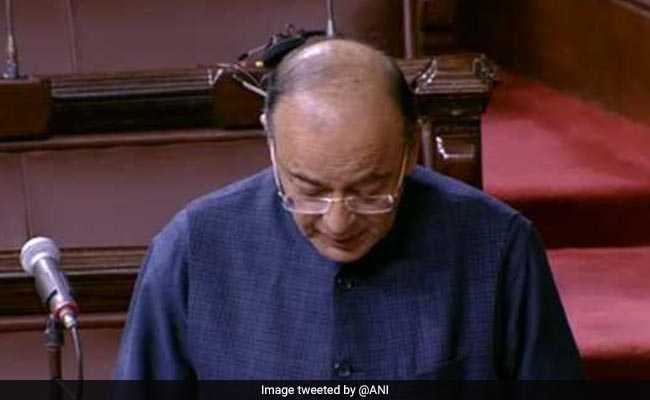
New Delhi: The Indian economy slowed down in 2016-17, with the gross domestic product declining drastically from 8 per cent in 2015-16 to 7.1 per cent the next year, government said on Friday.
Finance Minister Arun Jaitley said the slower economic growth reflected lower growth in the industry and the services sectors, due to a number of factors including structural, external, fiscal and monetary factors.
He said in the Lok Sabha that the lower rate of global economic growth in 2016, along with a reduction in gross fixed investment to GDP ratio, stressed balance sheets of the corporate sector, lower credit growth in industry sector were some of the reasons for the low growth rate in 2016-17.
"Slower growth in 2016-17 reflects lower growth in industry and services sector. Economic growth of a country depends on a number of factors including structural, external, fiscal and monetary factors," he said during Question Hour.
As per the latest estimates from Central Statistics Office, the growth rate of Gross Domestic Product (GDP) at constant prices was 7.5 per cent, 8.0 per cent and 7.1 per cent respectively in 2014-15, 2015-16 and 2016-17.
The growth in GDP at constant market prices was 5.7 per cent and 6.3 per cent in Quarter 1 (Q1) and Quarter 2 (Q2) of 2017-18 respectively.
Jaitley claimed that despite the slowdown, as per the IMF, India was the fastest growing major economy in 2016 and second fastest growing major economy in 2017 in the world.
He said the government has taken various initiatives to boost the growth of the economy, including giving a fillip to manufacturing, concrete measures for transport and power sectors as well as other urban and rural infrastructure, comprehensive reforms in the foreign direct investment policy and special package for textile industry.
The minister said the government had also announced various measures in the 2017-18 budget to promote growth which included a push to infrastructure development by giving infrastructure status to affordable housing, higher allocation to highway construction and focus on coastal connectivity.
"For highways development, the Bharatmala Pariyojana has been launched. The government has launched a phased programme for bank recapitalisation. This entails infusion of capital to the public sector banks, that is expected to encourage banks to enhance lending," he said.
Jaitley said the Insolvency and Bankruptcy Code was enacted to achieve insolvency resolution in a time bound manner.
He said the other growth promotion measures included lower income tax for companies with annual turnover up to Rs. 50 crore, further measures to improve the ease of doing business, and a major push to the digital economy.
Jaitley said as per information available from Reserve Bank of India, the gross bank credit (outstanding) for agriculture and allied sectors was Rs. 9,923.87 billion as of 2016-17 as against Rs. 8,829.42 billion as on 2015-16.
"The introduction of the Goods and Services Tax (GST) has provided a significant opportunity to improve growth momentum by reducing barriers to trade, business and related economic activities," he added
Cooking Gas Hike Of Rs. 4 Per Cylinder Every Month Withdrawn.
MMNN:28 December 2017
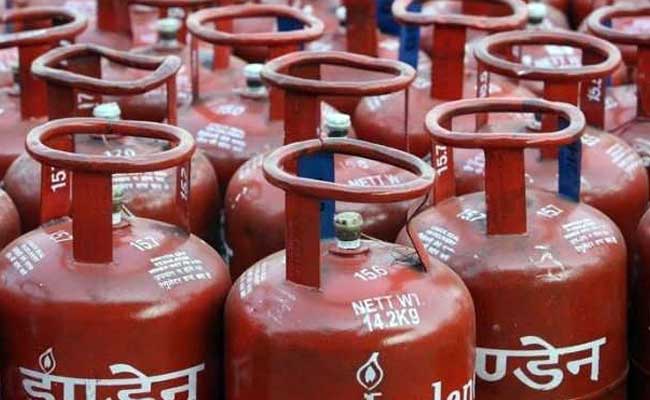
New Delhi: The government has withdrawn its decision to raise LPG prices by Rs. 4 per cylinder every month as the move was seen contrary to its Ujjwala scheme of providing free cooking gas connections to the poor. The government had previously ordered public sector oil marketing companies to raise domestic cooking gas (LPG) prices by Rs. 4 per cylinder every month beginning June 2016 with a view to eliminating subsidies.
The order was, however, withdrawn in October, a top source said.
Subsequently, Indian Oil Corporation (IOC), Bharat Petroleum Corporation Ltd (BPCL) and Hindustan Petroleum Corporation Ltd (HPCL) have not raised LPG prices from October.
Previously, the oil firms were authorised to increase price of subsidised domestic LPG cylinder by Rs. 2 per 14.2-kg cylinder per month (excluding VAT) with effect from July 1, 2016. Oil companies had hiked LPG rates on 10 occasions since that go-ahead.
Every household is entitled to 12 cylinders of 14.2-kg each at subsidised rates in a year. Any requirement beyond that is to be purchased at market price.
The quantum of hike was doubled through an order dated May 30, 2017. That order authorised the state-owned firms to continue to increase the effective price of subsidised domestic LPG by Rs. 4 per cylinder effective June 1, 2017, per month (excluding VAT) till the reduction of government subsidy to 'nil' or March 2018 or further orders, whichever is earlier.
The source said it was felt that raising prices was giving a contrary signal to users. On the one hand, the government was pushing for giving free cooking gas connections to the poor, but on the other, it was raising prices every month.
To correct this, the order was withdrawn, he said.
He also said there have been increase in price of subsidised LPG even after October mainly because of taxation issues.
The taxation issue arose after implementation of the direct benefit transfer (DBT) scheme in which consumers are paid subsidy amount directly in their bank accounts, which is supposed to be used to buy market-priced LPG.
"Before DBT, LPG was available at dealers at subsidised price. VAT was levied on that subsidised price. Now, LPG is only available at market price and GST is applicable on that price. Besides being higher than the subsidised price, the market price fluctuates every month, compelling changes in retail prices to account for the taxes," he explained.
Cooking gas LPG price has been hiked by Rs. 76.5 in 19 instalments in 17 months.
State-owned oil marketing companies since July last year have been revising price of LPG on 1st of every month.
The price of subsidised LPG was last raised by Rs. 4.50 per cylinder on November 1 to Rs. 495.69, according to a notification issued by state-owned firms.
A 14.2-kg LPG cylinder was priced at Rs. 419.18 in June 2016.
According to the Petroleum Planning and Analysis Cell (PPAC) of the oil ministry, there is a subsidy of Rs. 251.31 on every 14.2-kg subsidised LPG cylinder.
Incidentally, the non-subsidised or market priced LPG rates were raised by Rs. 5 per cylinder to Rs. 747 a bottle on December 1. Non-subsidised LPG rates have moved in tandem with their cost since December 2013.
There are as many as 18.11 crore customers of subsidised LPG in the country. These include over 3 crore poor women who were given free connections during the last one year under the Pradhan Mantri Ujjwala Yojana.
There are 2.66 crore users of non-subsidised cooking gas, including those who gave up subsidy on call by Prime Minister Narendra Modi
RCom Announces New Debt Reduction Plan Without Write-Offs.
MMNN:26 December 2017
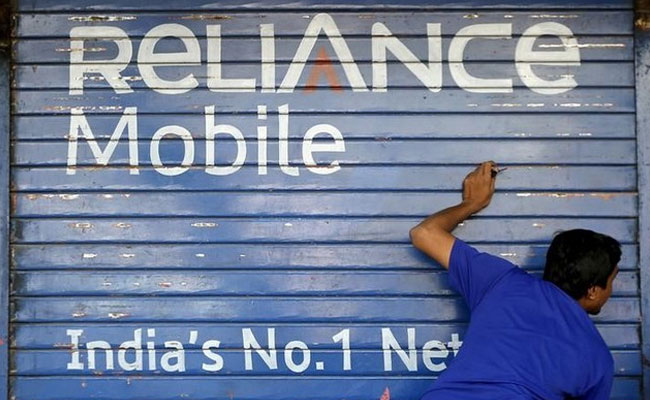
Mumbai: Billionaire Anil Ambani, the businessman backing Reliance Communications Ltd, said on Tuesday the company would reduce its debt by about Rs. 25,000 crore ($3.90 billion) through the sale of some of its spectrum, tower and real estate assets.
The reduction would allow the company to provide "zero" write-offs to lenders and bondholders, as well as no conversion of debt to equity, Mr Ambani told a news conference.
RCom shares surged as much as 40 per cent to an intraday high of Rs. 22.83 on Tuesday
GST Made 2017 Most Significant Year For Economy.
MMNN:25 December 2017
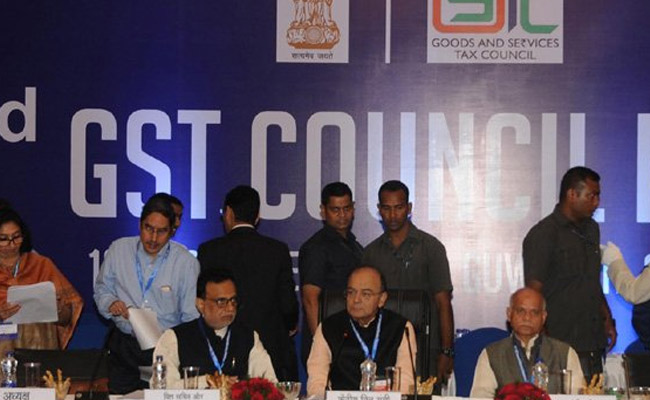
New Delhi: The 70th year since Independence will go down in the history of India since the country switched over to the Goods and Services Tax (GST) regime, realising, thereby, the vision of a unified market in a federal system that guided the nationalist bourgeoisie in joining Mahatma Gandhi's struggle to liberate India from the British. Of course, the structural reform came accompanied with pain for trade and industry caught off-guard by the rigours of new compliance procedures. Queried by corporate leaders at industry chamber Ficci's 90th AGM earlier this month on how GST was impacting through lower tax collections, Finance Minister Arun Jaitley put the onus on them.
"It is you from industry, who have been calling for so long to bring GST... and no sooner do these initial problems in implementing a reform of such scale appear, then you want to go back to the system we've had for 70 years," he said.
The earlier system was a myriad of central and state taxes where the movement of goods was slowed down by products being taxed multiple times and at different rates. State level taxes replaced by the pan-India GST include state cesses and surcharges, luxury tax, state VAT, purchase tax, central sales tax, taxes on advertisements, entertainment tax, various forms of entry tax, and taxes on lotteries and betting.
Central taxes replaced by GST are service tax, special additional customs duties (SAD), additional excise duties on goods of special importance, central excise, additional customs duties, excise on medicinal and toilet preparations, additional excise duties on textiles and textile products, and cesses and surcharges.
The new indirect tax regime unifying the Indian market has four tax slabs of 5, 12, 18 and 28 per cent.
It has a novel feature whereby goods and services providers get the benefit of input tax credit for the goods used, effectively making the real incidence of taxation lower than the headline taxation rate.
The second half of the year saw a radical reworking of the items within the four-slab tax structure by the supremely federal institution of the GST Council, whereby all but 50 of over 1,200 items remained in the highest 28 per cent bracket. Those retained included luxury and sin items, the cess on which goes to fund the compensation to states for the loss of revenue arising from implementing GST.
With the Council's decisions last month, GST has been cut on a host of consumer items such as chocolates, chewing gum, shampoos, deodorants, shoe polish, detergents, nutrition drinks, marble and cosmetics. Luxury goods such as washing machines and air conditioners have been retained at 28 per cent.
Eating out has become cheaper as all restaurants outside high-end hotels charging over Rs. 7,500 per room will uniformly levy GST of five per cent. The facility of input tax credit for restaurants has, however, been withdrawn as they had not passed on this benefit to consumers.
Petroleum, including oil and gas, is a strategic sector that is still not under GST, while the industry has been pushing for its inclusion so as not to be deprived of the benefits of input credit.
Including real estate is another matter pending before the GST Council.
On the functioning of the Council, Jaitley who is its head, had this remarkable insight about the way in which it had effected such large-scale rationalisation of the item rates in a short span of "3-4 months".
"Everything has been achieved by consensus in the best spirit of cooperative federalism. There has been no politics, even from states which are controlled by opposition parties," he told a gathering of industry leaders here.
The other side of GST was revealed through what the International Monetary Fund described as "short-term disruptions".
With businesses going into a "de-stocking" mode on inventories in anticipation of the GST rollout from July and sluggish manufacturing growth, among other factors, pulled down growth in the Indian economy during the first quarter of this fiscal to 5.7 per cent, clocking the lowest under the Narendra Modi dispensation. Breaking a five-quarter slump, a rise in manufacturing sector output, however, pushed the growth rate higher to 6.3 per cent during the second quarter (July-September) of 2017-18.
Besides, technical glitches appearing on the GST Network portal, often unable to take the load of last-minute rush to file returns, marred the filing of returns by traders, forcing the government to postpone filing deadlines several times. The glitches also led to export refunds piling up, resulting in a grave situation of cash crunch for exporters, whose working capital was getting blocked.
In the final analysis, the GST balance sheet is provided by Gita Gopinath, Professor of International Studies and Economies at Harvard University, who is also the economic adviser to the Kerala Chief Minister.
"GST is a real reform. It is a way of formalising the economy. It is a very effective way of ensuring tax compliance, making it harder to earn black money. I mean, nothing ever goes away completely, but it just makes it harder to make it happen," Gopinath said in Mumbai earlier this month.
The icing on the cake came with the World Bank announcing earlier this year that India had jumped 30 places in its Ease of Doing Business rankings to get among the top 100 countries on the list. Though reforms in India's direct tax regime figured among the parameters considered in evaluation, GST had not been taken into account by the multilateral agency since their cut-off date was June 30
SEBI Raids Brokers In Probe Over WhatsApp Messages.
MMNN:23 December 2017
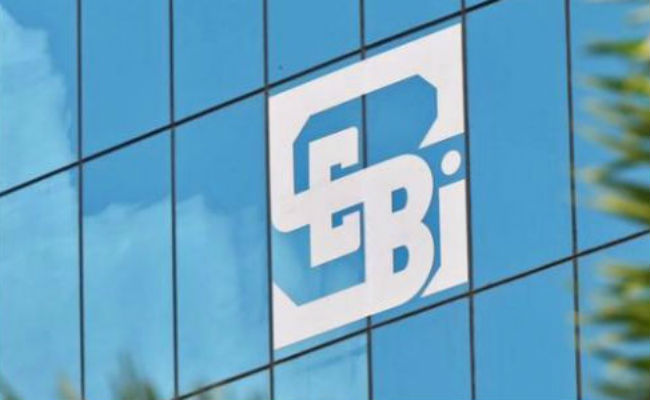
Mumbai: Dozens of SEBI officials descended on the homes of brokers and others on Friday in a widespread early morning raid in Mumbai, and possibly other cities, a regulatory source said. The Securities and Exchange Board of India (SEBI) raids are a sign that a probe by the regulator is gathering steam. The investigation is looking into who was responsible for circulating prescient messages about major Indian companies' corporate announcements in social media chatrooms, according to the regulator.
The investigation was triggered last month after Reuters reported at least 12 instances of messages that predicted results and other financial metrics about the companies had been circulated in private WhatsApp groups. These groups consisted mainly of traders and brokers. On Friday at least 70 SEBI officials searched homes and seized property, including mobile phones and laptops, the regulatory source said.
Two Reuters journalists covering financial markets were among those whose homes were raided.
A Reuters spokesperson said: "The two reporters were on the team that reviewed transcripts from these WhatsApp groups and documented at least 12 cases where there were prescient messages about major companies' financial information. That reporting appears to have now led to this investigation."
The regulator did not respond to a request for comment about the raids.
The premises of more than 30 brokers and dealers were searched, the Hindu BusinessLine newspaper reported.
SEBI Chairman Ajay Tyagi has previously said that the regulator launched its investigation after the Reuters story was published. Last month, a person familiar with the matter said the regulator had also asked for trading data on the companies mentioned in the story.
Stock exchanges are also cooperating with SEBI and looking into the matter, Vikram Limaye, chief executive of the National Stock Exchange, India's biggest bourse operator, said last week.
SEBI has in recent years beefed up insider trading rules and expanded what material constitutes "unpublished price-sensitive information
Tata Consultancy Services (TCS) Wins $2.25 Billion Outsourcing Contract.
MMNN:22 December 2017
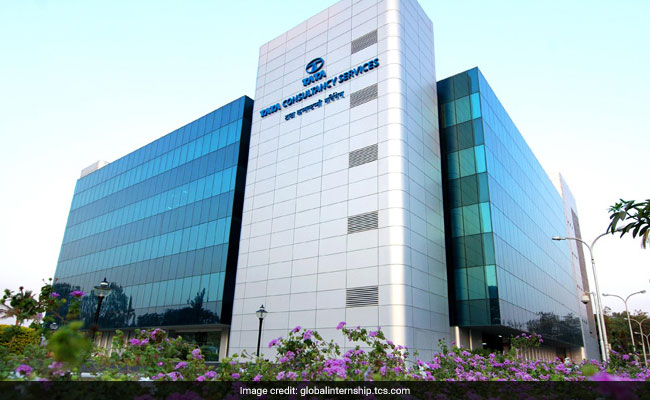
India's biggest IT services company, Tata Consultancy Services (TCS), has bagged a $2.25-billion outsourcing contract from Nielsen, a television rating measurement firm. The partnership, signed in October this year, is a renewal of TCS' existing collaboration with Nielsen. The two companies had struck a 10-year deal in 2008 for $1.2 billion. Under the new deal, the terms of the agreement have been extended for an additional five years so as to expire on December 31, 2025, with three one-year renewal options granted to Nielsen, the TV rating company said in a regulatory filing to the US Securities and Exchange Commission (SEC).
"Nielsen has committed to purchase services from TCS from the Effective Date through the remaining term of the Agreement (the 'Minimum Commitment') in the amount of $2.25 billion, including a commitment to purchase at least $320 million in services per year from 2017 through 2020, $186 million in services per year from 2021 through 2024, and $139.5 million in services in 2025," it added.
The filing stated that the Mumbai-based firm will globally provide Nielsen with professional services relating to IT - including application development and maintenance - BPO, client service knowledge process outsourcing, management sciences, analytics, and financial planning.
HDFC Bank Issues Rs. 385 Crore Equity Shares Under ESOPs.
MMNN:21 December 2017
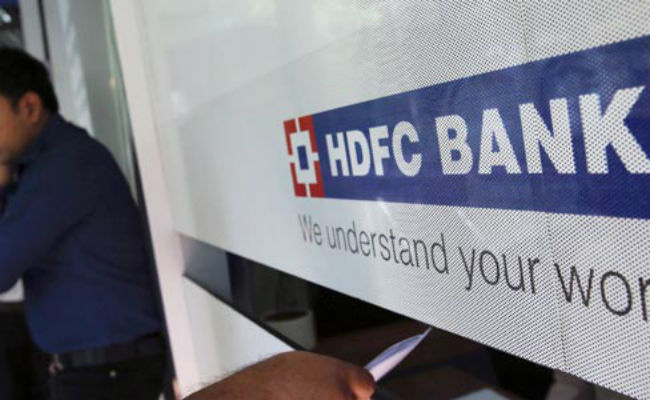
HDFC Bank issues 20,59,500 equity shares to the employees of the bank pursuant to exercise of options under its employees stock option. Following this, the paid up share capital will increase from Rs. 517 crore equity shares to Rs. 518 crore equity shares of Rs. 2 each, the company announced in a stock market filing. The HDFC Bank's shares are priced at Rs. 1,869.55 at 12.30 pm on BSE. At this price, the ESOPs are valued for Rs. 385 crore.
On Thursday, the shares opened at Rs. 1,871 while the scrip traded between Rs. 1,884 and Rs. 1,869, against the previous session's closing of Rs. 1,868. On Wednesday, HDFC Bank board had convened a meeting and decided to raise Rs. 24,000 crore. Following the announcement, the bank's shares touched the 52-week high of Rs. 1,903 on December 20.
It is noteworthy to mention that in the month of October, HDFC Bank had issued Rs. 370 crore worth equity bonanza to its employees through ESOPs.
On NSE, the bank shares opened at Rs. 1879.9 before touching a high of Rs. 1,885 and a low of Rs. 1,869. At 12.50, the scrip was trading at Rs. 1,869.95, 0.10% higher than the previous session's closing.
HDFC Bank's second quarter results announced recently met the market's estimates. The bank registered 15% rise in interest income to Rs19,670 crore in the September quarter.
A 9% rise in interest expenses to Rs. 9,918.21 crore saw net interest income grow 22% to Rs.9,752 crore. Other income grew 24% to Rs. 3,605.90 crore, which took net total income up 23% to Rs. 13,357.97 crore.
Tycoons Set To Remake India Steel As $26 Billion Battle Heats Up.
MMNN:20 December 2017
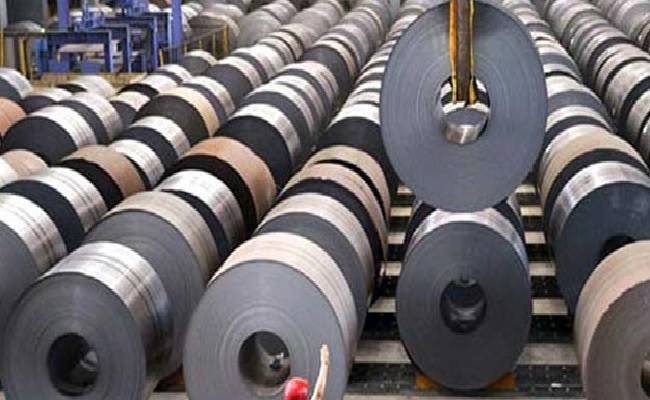
Surging steel prices and the new insolvency law have set the stage for an industry-defining battle between tycoons and producers for more than $26 billion of the sector's most-coveted assets.
Creditors are seeking the approval of the new bankruptcy court to sell assets of as many as 40 firms, including steel producers. That's spurred Lakshmi Mittal, head of the world's largest maker of the alloy, and fellow billionaire Anil Agarwal to vie for control of Essar Steel India Ltd., according to people with knowledge of the matter. Debt-laden Bhushan Steel Ltd. has drawn interest from Japan's and India's biggest producers, said the people, who asked not to be identified because the information is private.
Insolvent producers including Monnet Ispat & Energy Ltd. are attracting potential bidders as prices of the material soar and creditors embark on the first significant test of a bankruptcy law that's intended to encourage asset sales. Several deep-pocketed suitors have made expressions of interest for the Indian mills and some have already submitted bids for a series of deals with deadlines around year-end, according to the people.
"It just can't get better than this in India in terms of size or valuation in fully-baked assets," said Pooja Dutta, managing partner at Mumbai-based Astute Law. "At a time when too much capital is chasing too few opportunities across the globe, steel mills are set to see a bidding war as long as sales are executed in right and transparent manner."
Four makers of the alloy are among India's so-called " dirty dozen" -- debtors that the central bank has ordered be taken through the bankruptcy courts. Essar Steel, Bhushan Steel, Monnet Ispat and Electrosteel Steels Ltd. owe more than $26 billion combined, the people said.
Indian producers added leverage to fund expansion plans when the economy was growing at a much faster clip. The debt soured as economic activity slowed and demand for the alloy waned amid oversupply from China.
Now that Chinese mills are closing as the world's second-biggest economy seeks to ease pollution, prices for the material are rising. Demand in India is also expected to pick up after Prime Minister Narendra Modi promised to spend more on infrastructure and power.
Creditors, armed with the new insolvency and bankruptcy law, are seizing this opportunity to get repaid. Suitors see the potential purchases as a way to acquire a bigger share of a steel market that's forecast to produce more than 100 million tons this fiscal year.
"This level of bidding interest from such a wide range of investors, from strategics to private equity firms, for such large operational assets has been very rare in this country," said Rethish Varma, a Bengaluru-based researcher at MarketSmith India.
There's a lot at stake. Essar Steel's 10-million-ton capacity, in particular, could immediately give a new entrant a sizable presence in an industry expected to benefit from India's plan to invest trillions of rupees in infrastructure upgrades, creating ' Smart Cities' across the country. The producer is currently restructuring its roughly Rs. 45,000 crore of debt or about Rs. 77,000 crore including debt owed by subsidiaries, the people said.
Capacity Sought
Essar Steel has attracted suitors including ArcelorMittal, the world's largest producer, and Agarwal's Vedanta Ltd., according to the people. Neither company owns significant steel-producing assets in the country.
A spokesman for ArcelorMittal said in response to Bloomberg queries that "members of our management team are conducting due diligence on steel assets available through the current insolvency process."
At the same time, if Tata Steel, India's third-biggest producer, bought Essar Steel it could ascend to the country's No. 1 spot, given the new capacity it would acquire.
"As a process, we do assess and evaluate various strategic opportunities for growth," a spokesman for Tata Steel said.
The billionaire Jindal family's JSW Steel Ltd., which is also considering offers for assets, recently overtook Steel Authority of India Ltd. to become the biggest maker of the material that's used in everything from automobiles to skyscrapers.
With production capacity in demand, Bhushan Steel -- whose mills can produce 5.6 million tons of the alloy -- has drawn interest from Apollo Global Management-backed Aion Capital Partners Ltd., in addition to Nippon Steel & Sumitomo Metal Corp. and JSW, the people said. Vedanta and Tata Steel are also weighing bids, they said.
"On the path to India's aspirations to have 300 million tons capacity, we will see restructuring of the industry, which would primarily involve mergers and acquisitions," said Sanak Mishra, an independent steel consultant who was the former secretary general of the Indian Steel Association. "This would enable the industry to have better finances and better business."
Shares of Bhushan Steel fell 1.2 percent to Rs. 63 at 10:33 a.m. in Mumbai on Wednesday, while Monnet Ispat declined 1.1 percent. JSW Steel climbed 1.1 percent and Tata Steel weakened 1.6 percent.
Operational Assets
Representatives for Essar Steel, Nippon Steel, JSW, VTB Capital and Aion Capital declined to comment, while representatives for Bhushan Steel, Electrosteel, Monnet Ispat, Vedanta, Dalmia Cement and SAIL didn't respond to requests for comment.
Aion Capital along with JSW Steel are the only bidders for Monnet in the second round of bids, with lenders expected to decide on a sale as early as this week, the people said.
Despite all the demand for assets, not everyone can bid. The insolvency law was amended last month to prevent errant founders from regaining control of firms going through the process. Those with debt classified as non-performing for a year or more who can't pay overdue amounts are barred from repurchasing.
"Strong domestic demand and protectionist measures by the government makes operational steel mills an asset to vie for," said Varma
Customs Duty Hike To Pinch Buyers Of TV Sets, Microwaves.
MMNN:19 December 2017

New Delhi: Customers will have to shell out more to buy television sets, microwave, LED lamps and some other electronic items after the government last week hiked import duty on such items to drive up local manufacturing. According to the government notification, customs duty on television sets has been raised to 20 per cent while on imported smartphones, the duty has been hiked to 15 per cent.
LED lamps will now be charged with a 20 per cent import duty. The tax on import of microwave ovens too has been doubled to 20 per cent.
"Further to the government's notification, completely imported CBU (completely built units) will see a rise in the pricing of their product. For instance, a completely imported TV will incur BCD (basic Customs duty) of 20 per cent when compared to a domestically manufactured television," Consumer Electronics and Appliances Manufacturers Association President President Manish Sharma told PTI.
Sources who did not wish to be identified said LED TV sets will see an average increase ranging from Rs. 2,000 to Rs. 10,000, depending on the screen size.
Sharma, who is also the President and CEO of Panasonic India and South Asia, said local manufacturers will stand to benefit as it will not only encourage indigenous manufacturing but create a latent demand for 'Make in India' products.
The move is expected to encourage foreign players to manufacture products in India as the prices are expected to go up, especially for television sets.
Besides, those Indian manufacturers that have a manufacturing base across the country will benefit.
"Local manufacturers like Videocon will have no impact, but definitely there will be minimum 5-6 per cent hike for all other companies importing CBU. With this hike, international companies will have to look up for a solution locally rather than importing the products," CMS Electronic Junction Managing Director C M Singh said.
CMS Electronic Junction is a chain of electronic stores across the country.
On the increase in duty on import of microwave ovens to 20 per cent, Godrej Appliances Business Head and EVP Kamal Nandi said: "Overall, there will be a price increase of Rs. 400 to Rs. 500 in the microwave oven category, which will impact demand in the short term."
Apple has increased prices of various iPhone models by up to Rs. 3,720 after the duty hike, as per the updated prices on Apple India's website.
Customs duty on video recording equipment as well as TV cameras has been raised to 15 per cent from 10 per cent.
Import duty on set top boxes has been doubled to 20 per cent
Jaiprakash Group Gets 25 Days More To Deposit Rs. 125 Crore
MMNN:15 December 2017
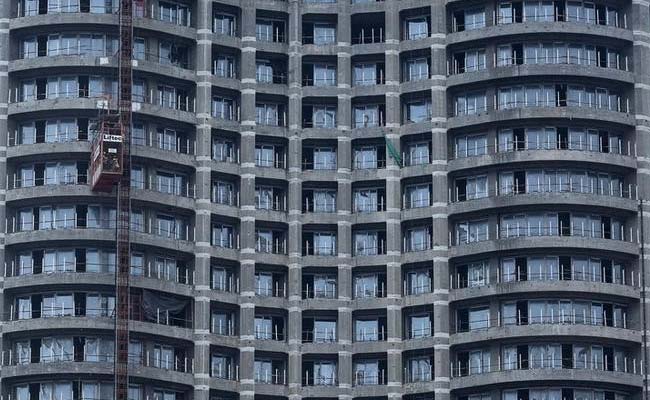
New Delhi: The Supreme Court on Friday granted time till January 25 next year to the embattled realty firm Jaiprakash Associates Limited (JAL) to deposit Rs. 125 crore more for safeguarding the interests of hassled home buyers. JAL, which deposited Rs. 425 crore with the apex court registry so far, had to deposit Rs. 125 crore by December 31 and wanted a two-month extension.
A bench comprising Chief Justice Dipak Misra and Justices A M Khanwilkar and D Y Chandrachud considered the statement of senior advocate Mukul Rohatgi and granted time to the firm till January 25.
The court has now posted the matter for further hearing on February 1 next year.
On Thursday, the group had deposited Rs. 150 crore in the apex court registry in pursuance of a direction aimed at protecting the interests of home buyers.
The court had on November 22 accepted a demand draft of Rs. 275 crore submitted by the real estate firm and directed it to pay another two tranches of Rs. 150 crore and Rs. 125 crore respectively by December 14 and 31.
Earlier, it had restrained 13 directors -- five promoters and eight independent directors -- from alienating their personal properties as well as that of their immediate family members.
The apex court's direction that the directors shall not alienate their or their family members' personal properties in any manner implies freezing of their assets.
The JAL directors had filed affidavits giving details of their personal assets and they are now required to appear again on January 10.
The apex court, on November 13, had also restrained the managing director and the directors of Jaypee Infratech Ltd from travelling abroad without prior permission.
The court had asked Jaypee Infratech to hand over the records to the interim resolution professional (IRP) to draft a resolution plan indicating protection of interests of over 32,000 hassled home buyers and creditors.
Homebuyers including one Chitra Sharma, through lawyer Ashwarya Sinha, had moved the apex court saying around 32,000 people had booked their flats and are now paying instalments.
The top court had on September 4 stayed insolvency proceedings against the real estate firm at National Company Law Tribunal (NCLT).
Flat buyers, under the Insolvency and Bankruptcy Code of 2016, do not fall in the category of secured creditors like banks and hence they can get back their money only if something is left after repaying the secured and operational creditors, Sharma, in her plea, said.
Hundreds of home buyers have been left in the lurch after the NCLT, on August 10, admitted the IDBI Bank's plea to initiate insolvency proceedings against the debt-ridden realty company for defaulting on a Rs. 526-crore loan, the plea said.
Centre Extends Deadline For Linking Aadhaar To Bank Accounts
MMNN:13 December 2017
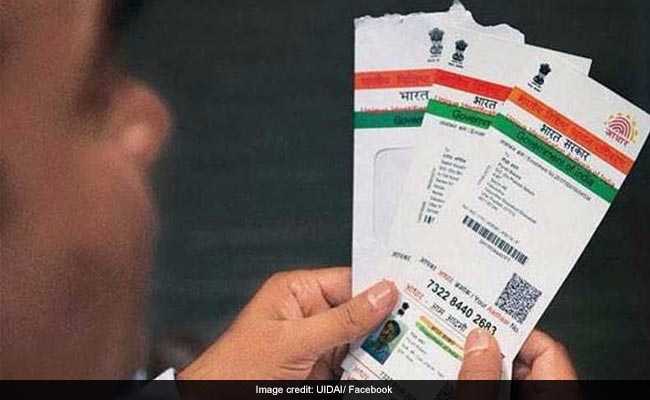
New Delhi: The government has extended till further notice the December 31 deadline for mandatory quoting of national biometric identifier Aadhaar and PAN for certain financial transactions like opening of a bank account.
While the deadline has been withdrawn through a Gazette notification issued yesterday, new timelines will be intimated later.
The new rule notified in the Gazette modifies the Prevention of Money Laundering Act of 2002 to replace the requirement of submitting "the Aadhaar number and Permanent Account Number by December 31, 2017" with a provision saying "submit the Aadhaar number, and Permanent Account Number or Form No. 60, by such date as may be notified by the Central Government".
While the 12-digit Aadhaar is issued by the Unique Identification Authority of India (UIDAI), PAN is allotted by the Income Tax Department. Form 60 is a declaration filed by an individual or a person (not being a company or firm) who does not have a PAN and who enters into any specified transaction.
Tuesday's notification by the Department of Revenue in the finance ministry effectively paves the way for extending the deadline for mandatory quoting of Aadhaar for activities like the opening of a bank account.
This is in line with the Centre last week informing the Supreme Court that it is willing to extend till March 31 the deadline fixed for mandatory linking of Aadhaar to avail various services and welfare schemes.
On December 7, the deadline for linking PAN with Aadhaar was extended by three months to March 31, 2018. Under the PMLA, Aadhaar, PAN and other official documents are required to be obtained by banks and financial institutions from anyone opening a bank account as well as for any financial transaction of Rs. 50,000 and above.
The notification issued on Tuesday stated that accounts where Aadhaar and PAN are not furnished by the date notified by the government will cease to be operational. If the account holder "fails to submit the Aadhaar number and PAN by such date as may be notified by the central government, the said account shall cease to be operational till the time the Aadhaar number and Permanent Account Number are submitted by the client", it said.
The Prevention of Money Laundering Act (PMLA) forms the core of the legal framework put in place by India to combat money laundering and generation of black money. The PMLA and its rules impose an obligation on reporting entities like banks, financial institutions and intermediaries to verify the identity of clients, maintain records and furnish information to the Financial Intelligence Unit of India (FIU-IND).
As per Rule 9, every reporting entity shall at the time of commencement of an account-based relationship identify its clients, verify their identity and obtain information on the purpose and intended nature of the business relationship. Intermediaries like stockbroker, chit fund company, cooperative bank, housing finance institution and non-banking finance companies are also classified as reporting entities. The broad rule also applies to all cash dealing of more than Rs. 10 lakh or its equivalent in foreign currency, cash transactions where forged or counterfeit currency notes have been used and all suspicious dealings.
All cross-border wire transfers of more than Rs. 5 lakh in foreign currency and purchase and sale of immovable property valued at Rs. 50 lakh or more also fall under this category, according to the reporting rules. The notification issued yesterday said amendments are being made in Rule 9 of the Prevention of Money-laundering (Maintenance of Records) Rules, 2005
Unitech Moves Supreme Court Against Government Taking Over
MMNN:11 December 2017
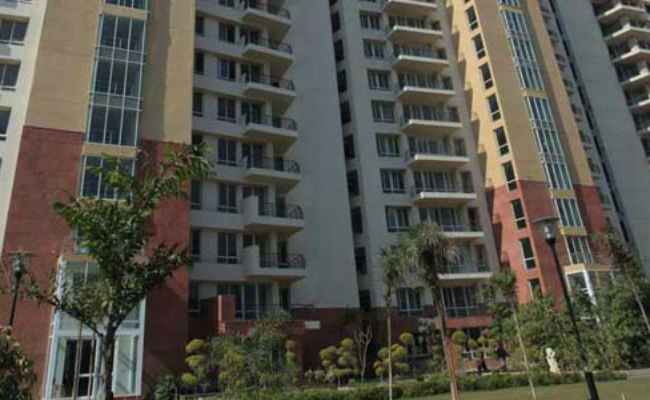
Real estate developer Unitech moved the Supreme Court today against a tribunal's order allowing the government to take over the company. The court will hear the petition tomorrow and has also sought the government views on how to protect the interest of those who have bought homes from Unitech.
Unitech shares have meanwhile continued to surge, rising as much as 20 per cent for the second day. The National Company Law Tribunal had on Friday suspended all the eight directors of the realty firm over allegations of mismanagement and siphoning of funds, while authorising the government to appoint its 10 nominees on the board.
In a rare move, the government had approached the tribunal to take over the management to protect the interest of nearly 20,000 home buyers, and 51,000 depositors to whom the company owes Rs. 723 crore. The government's intervention in this case comes almost a decade after it had taken over the board of IT firm Satyam (now Tech Mahindra) and sold it to the Mahindras.
The National Company Law Tribunal (NCLT) said the government must name its nominees by the next date of hearing, December 20, while restraining Unitech's eight suspended directors from selling their personal and company properties. The tribunal's order came after the government filed a petition arguing that Unitech was a fit case for winding up but considering the interest of thousands of home buyers and small depositors, it wanted to take over the company management.
Unitech had challenged the tribunal's order saying that "no coercive steps for execution" can be taken in view of a November 20 order of the Supreme Court.
The Supreme Court had recently asked Unitech to deposit Rs. 750 crore by December-end in bail pleas of Sanjay Chandra and Ajay Chandra, who were arrested by the Economic Offence Wing (EOW) of the Delhi Police in April for allegedly not developing a project despite receiving funds from investors
Former Infosys CFO Demands Discontinuance Of Some Board Members
MMNN:9 December 2017
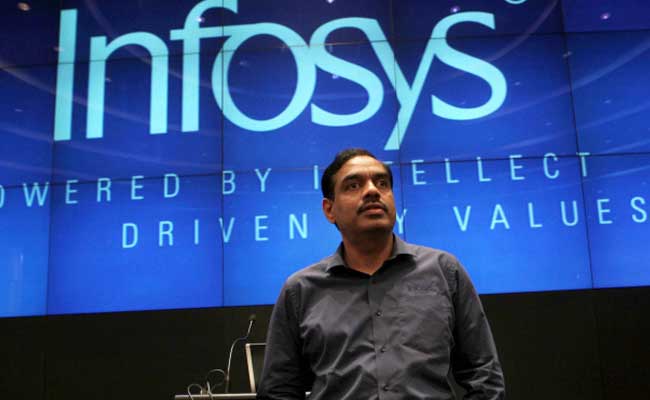
Bengaluru: Former Infosys chief financial officer V Balakrishnan Saturday sought the discontinuance of certain board members in light of the company filing a settlement plea with SEBI on corporate governance lapses relating to severance payment to its former CFO Rajiv Bansal.
"I think the continuation of certain board members like the erstwhile co-chairman (Ravi Venkatesan) and the audit committee chairman (Roopa Kudva) looks highly untenable in light of the current development of the company filing consent agreement with SEBI over Bansal's severance payment case," Balakrishnan told PTI here.
In view of the current development it is all the more important to restructure the board and fill it with people of high integrity and stature, he added.
The scathing communication to the stock exchanges blaming Infosys Co-Founder N R Narayana Murthy for all of the board's lapses was 'unprecedented,' Balakrishnan, who is known supporter of Murthy, said.
He also said all along, the board had consistently denied any wrong-doing and in fact blamed Murthy terming his questioning as a "misguided campaign." Earlier, Murthy had accused Infosys and its board of failing in disclosure and corporate governance norms.
The board of Infosys owes an apology to Murthy and should take steps to retract that statement, he said.
"Murthy always stood for high level of corporate governance and only acted in the interest of protecting a great institution like Infosys," Balakrishnan said. On December 6, Infosys said it had approached SEBI with an application to settle the issues arising out of alleged disclosure lapses on the severance package paid to Bansal.
India's second-largest IT firm, in a regulatory filing to the BSE, had said the settlement application made to SEBI was neither admission of guilt nor a denial. It, however, did not disclose what it had proposed in the settlement application. Infosys, under new Chairman Nandan Nilekani, moved the application as part of its attempt to settle the issues that
had cropped up during the tenure of former CEO Vishal Sikka Murthy had first raised the issue of failure in corporate governance at Infosys soon after the company gave a huge severance pay to Bansal after the acquisition of Israeli technology firm Panaya. The founder continued to put pressure on Infosys to come clean, including seeking the resignation of then Infosys Chairman Seshasayee.
Tribunal Allows Government To Take Control Of Unitech
MMNN:8 December 2017

New Delhi: The National Company Law Tribunal (NCLT) on Friday allowed the government to appoint 10 directors on the board of debt ridden realty firm Unitech Ltd. The two-member NCLT bench headed by Chairman Justice M M Kumar has directed the government to submit the 10 names by December 20, the next date of hearing.
The government had approached the NCLT to take over the management of Unitech alleging mismanagement and siphoning of funds by the management. NCLT has also issued notice to Unitech Ltd directing it to file the reply.
"They have permitted the central government to appoint 10 nominee directors to run the day to day business and list of that would be given by 20th December," said Additional Solicitor General Sanjay Jain who had appeared on behalf of government in NCLT.
He further said: "In the meanwhile the suspended directors of the company shall not sell, mortgage or create charge either their properties or company's properties
Shalby Hospitals IPO Fully Subscribed On Last Day: Ten Things That You Should Know
MMNN:7 December 2017

The initial public offer (IPO) of Shalby, the Ahmedabad-based multi-specialty hospital chain, was oversubscribed 1.08 times in morning session on the last day of the bidding on Thursday. The IPO, which aims to raise Rs. 504 crore, received bids for 1,57,11,900 shares against the total issue size of 1,45,21,686 shares - a subscription of 1.08 per cent - data available with NSE till 11.30 am showed.
The initial share sale, which opened to public subscription on December 5, will close today. Shalby on Monday raised over Rs. 150 crore from anchor investors. The IPO comprises a fresh issue of shares aggregating up to Rs. 480 crore and an offer for sale of up to 10 lakh equities.
The price band has been fixed at Rs. 245-248. At the upper end, the public issue would fetch Rs. 504 crore. Proceeds of the IPO will be utilised towards repayment of borrowings by the company, besides purchase of medical equipment for the existing, recently set-up as well as upcoming hospitals.
In recent months, healthcare services firms like Alkem Laboratories, Dr Lal Pathlabs, Narayana Hrudayalaya, Thyrocare and Eris Lifesciences have tapped the primary market through the IPO route.
Ten things that you should know about the Shalby IPO
1. The Shalby IPO opened on December 5 and will end on December 7, 2017.
2. The shares will be issued in the price band of Rs. 245 and Rs. 248 for shares with a face value of Rs. 10.
3. The P/E ratio (price in the upper band of Rs. 248) is 42.8 of company's earnings in the fiscal 2017 and 71.3 and 104.1 of the earnings of fiscal 2016 and 2015, respectively, says Reliance Securities.
4. The company's strengths include leadership in orthopedics, and company's good track record of healthy operating and financial performance, Reliance Securities says in an IPO note.
5. The major risks for Shalby Healthcare are too much dependency on two hospitals SG Shalby and Krishna Shalby, and on orthopedic for a substantial portion of revenue.
6. The company runs 11 hospitals with an aggregate bed capacity of 2,012 beds.
7. The IPO, which aims to raise Rs. 504 crore, received bids for over 29.32 lakh shares against the total issue size of more than 1.45 crore scrips.
8. Proceeds of the IPO will be utilised towards repayment of borrowings availed by the company besides purchasing medical equipment for existing, recently set-up as well as upcoming hospitals.
9. Another risk that the company faces is that revenue is primarily derived from inpatient treatments, which could decline due to multiple factors.
10. The company's sales grew by a strong 12% YoY in fiscal 2017 from 5% in the fiscal 2016. Its operating income and net profit grew by 30% year on year and 60% year on year in fiscal 2017.
Statement of Chandrajit Banerjee, Director General, CII on the Fifth Bimonthly Monetary Policy
MMNN:6 December 2017
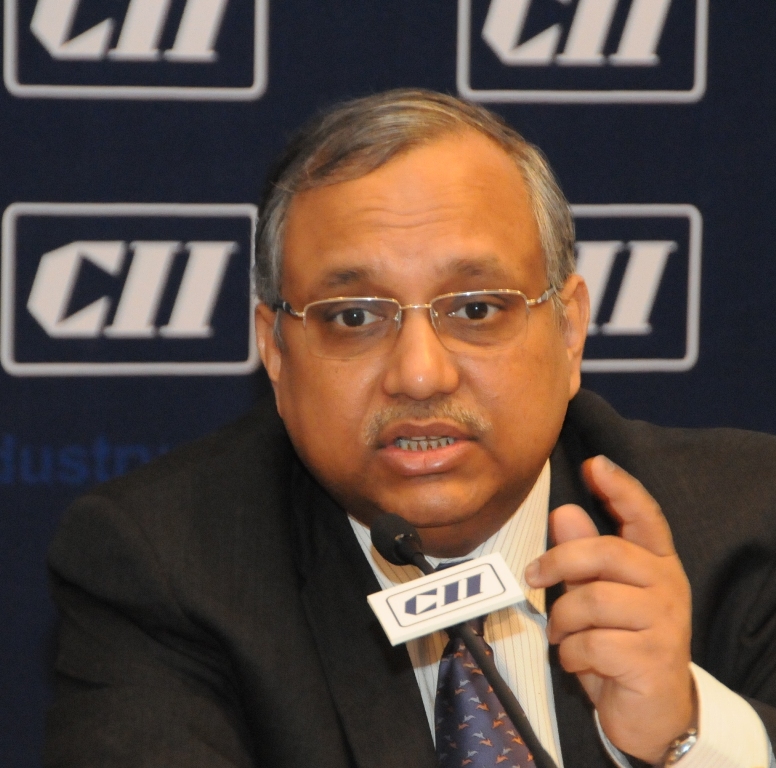
CII notes the RBI's decision to maintain a status quo in policy rates for the second time in a row.
Commenting on the Monetary Policy, Mr Chandrajit Banerjee, Director General, CII said "We are hopeful that going forward the RBI would shift its policy stance from neutral to accommodative and effect a cut in interest rates to revive domestic demand which would provide a fillip to broad-based investment activity which has yet to take off in a big way. A reduction in interest rates would give the necessary signal that fiscal and monetary policy are working in consonance to give a boost to growth", he added.
This message, including any files transmitted with it, is for the sole use of the intended recipient and may contain information that is confidential, legally privileged or exempt from disclosure under applicable law. If you are not the intended recipient, please note that any unauthorized use, review, storage, disclosure or distribution of this message and/or its contents in any form is strictly prohibited. If it appears that you are not the intended recipient or this message has been forwarded to you without appropriate authority, please immediately delete this message permanently from your records and notify the sender. CII makes no warranties as to the accuracy or completeness of the information in this message and accepts no liability for any damages, including without limitation, direct, indirect, incidental, consequential or punitive damages, arising out of or due to use of the information given in this message.
Disclaimer
This message, including any files transmitted with it, is for the sole use of the intended recipient and may contain information that is confidential, legally privileged or exempt from disclosure under applicable law. If you are not the intended recipient, please note that any unauthorized use, review, storage, disclosure or distribution of this message and/or its contents in any form is strictly prohibited. If it appears that you are not the intended recipient or this message has been forwarded to you without appropriate authority, please immediately delete this message permanently from your records and notify the sender. CII makes no warranties as to the accuracy or completeness of the information in this message and accepts no liability for any damages, including without limitation, direct, indirect, incidental, consequential or punitive damages, arising out of or due to use of the information given in this message.
RBI Keeps Interest Rate Unchanged, Raises Inflation Forecast
MMNN:6 December 2017
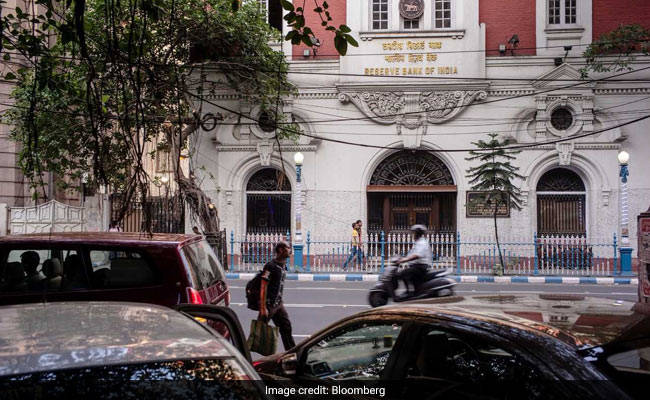
The monetary policy committee of Reserve Bank of India (RBI), as widely expected, kept repo or key lending rate unchanged at 6 per cent amid inflation concerns. The central bank reiterated that it is maintaining a "neutral" stance in monetary policy. Five members of the monetary policy committee voted to keep rates unchanged, with one voting for a 25-basis-point cut. The RBI kept its growth forecast for the current fiscal year ending March 31 unchanged at 6.7 per cent. RBI however raised inflation forecast to 4.3-4.7 per cent in third and fourth quarters of current fiscal.
The October bi-monthly statement projected inflation to rise and range between 4.2-4.6 per cent in the second half of this year.
The RBI pointed to several factors that could push inflation higher. "Moderation in inflation excluding food and fuel observed in Q1 of 2017-18 has, by and large, reversed. There is a risk that this upward trajectory may continue in the near-term. Second, the impact of HRA by the Central Government is expected to peak in December," the RBI said.
The central bank also said that the "recent rise in international crude oil prices may sustain, especially on account of the OPEC's decision to maintain production cuts through next year. In such a scenario, any adverse supply shock due to geo-political developments could push up prices even further."
RBI also expressed concern over risk of fiscal slippage. "Implementation of farm loan waivers by select states, partial roll back of excise duty and VAT in the case of petroleum products, and decrease in revenue on account of reduction in GST rates for several goods and services may result in fiscal slippage with attendant implications for inflation," the RBI said.
The government reported a fiscal deficit of Rs. 5.25 lakh crore for April-October, or 96.1 per cent of the budgeted target for the current fiscal year that ends in March 2018. The deficit was 79.3 per cent of the full-year target during the same period a year ago.
With inflation trajectory likely to remain upward in the coming months, many analysts see a prolonged pause from RBI.
Suvodeep Rakshit, senior economist at Kotak Institutional Equities, said: "It is unlikely that the RBI will move in the February policy too, given the inflation trajectory which is likely to peak in June 2018. Further, global policy rate cycle and commodity prices along with consolidated fiscal position will keep the RBI cautious. However, incoming data versus the RBI's projections will remain key."
"We maintain our call that the RBI will be on a pause in the near term," he said.
Bitcoin Now Bigger Than Buffett, Boeing And New Zealand Economy
MMNN:5 December 2017
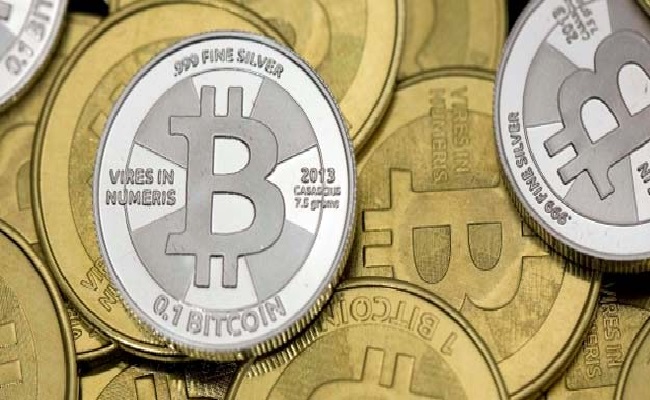
Bitcoin's extraordinary price surge means its market capitalization now exceeds the annual output of whole economies, and the estimated worth of some of the world's top billionaires.
With the debate over its bubble status still raging, the flagship cryptocurrency continued its march higher on Monday, solidifying above $11,000 and bringing its climb this year to more than 1,000 percent. With market tracker Coinmarketcap.com putting the total value of all bitcoins in circulation at $190 billion, it's come a long way from August, when one coin could buy you a hefty supply of avocados.
Here are five things that have been eclipsed by bitcoin in terms of market capitalization:
- New Zealand's GDP: The South Pacific nation's farm-and-tourism-led economy is valued at $185 billion, according to World Bank data as of July, putting it some $5 billion below bitcoin. The cryptocurrency's market cap is also bigger than the likes of Qatar, Kuwait and Hungary.
- Goldman Sachs, and UBS: Bitcoin's run-up has even seen it valued more highly than two of the world's most influential banks. Goldman Sachs's market cap was $97 billion as of Friday, while Zurich-based UBS Group came in at about $67 billion. Add those numbers together and it still falls short of bitcoin.
Both financial heavyweights have taken a hands-off approach to the digital currency, with Goldman CEO Lloyd Blankfein saying it's too early to draft a bitcoin strategy and UBS -- the world's biggest wealth manager -- saying it won't allocate it in portfolios because of the threat of a government crackdown.
- Boeing: It may make jumbo jets but Boeing's market cap of $162 billion is also less than that of a digital currency that didn't exist 10 years ago. The Chicago-based company, which describes itself as the world's largest aerospace firm, is more than a century old and employs 140,000 people in more than 65 countries, according to its website. Rival Airbus fares no better -- it's got a market value of 66 billion euros ($78 billion).
- 14 aircraft carriers: If bitcoin's market cap could be used to buy military equipment, it would pack a mighty punch. The USS Gerald R. Ford, the first of a new class of nuclear-powered supercarriers, was delivered to the U.S. Navy in May. It cost an estimated $13 billion, so if investors put all their bitcoins together they would be able to buy a fleet of fourteen ships.
- Bill Gates, Warren Buffett, Queen Elizabeth: They sit atop Bloomberg's Billionaires Index, but even if Gates and Buffett pooled their fortunes they wouldn't have enough to buy all the bitcoins in circulation. Gates is worth $90 billion and Buffett has $83 billion, according to the index. Not even Queen Elizabeth II could get them over the line if she brought her $383 million to the table.
New CEO Salil Parekh Faces Twin Tests At Infosys
MMNN:4 December 2017
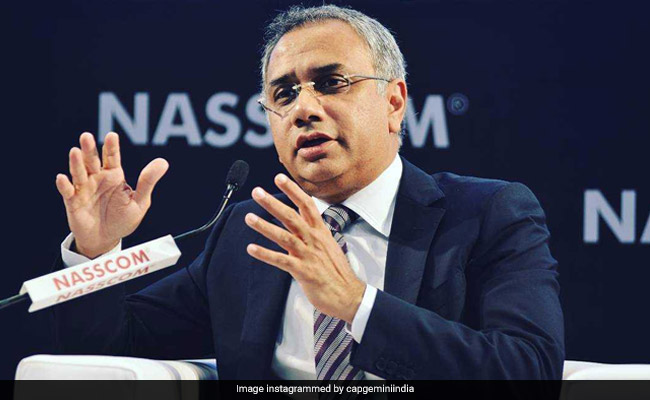
After well over a decade with Capgemini, Salil Parekh is returning home to head software services firm Infosys, where he will seek to replicate his success in notching up record growth at the divisions he ran.
Alongside, Parekh has to help the bellwether of India's $154 billion software services sector recover from a nasty public spat between its board and founders that led to the dramatic exit of the previous CEO, Vishal Sikka, in August.
Parekh joins Bengaluru-based Infosys in January from Paris-headquartered Capgemini, where he headed their core application services business in key markets like North America and the United Kingdom, and their cloud services and cloud infrastructure businesses. He also managed Sogeti - a unit of Capgemini focused on digital transformation.
As the CEO, Parekh will have to achieve growth while being careful not to antagonize Infosys' founders, who own about 12 percent of the company.
His priority will be to assure clients and employees of "business continuity without rocking the boat," Harit Shah of brokerage Reliance Securities wrote in a note to clients after Infosys announced the appointment on Saturday,
The founders, led by Narayana Murthy, the doyen of India's IT services sector, engaged in a lengthy public feud with Sikka on issues ranging from flights on private jets, to over-spending on a takeover, and on the pricey rent for his US office, to the largesse of payouts given to certain executives following their exits.
Sikka, widely known as an innovator in the global software industry, joined Infosys from German software maker SAP in 2014. He was the first outsider to be made CEO of Infosys.
The spat culminated with the exit of both Sikka and Infosys' then chairman R. Seshasayee in August, and the return of one of its founders, Nandan Nilekani, as chairman. Nilekani, a highly regarded industry veteran, had remained silent throughout the public confrontation led by Murthy.
For Parekh, the discord that led to Sikka's departure could prove to be beneficial, although he may have to work to convince Murthy.
"Sometimes coming on the back of a controversial exit is easy, because expectations would be realistic," a tech industry consultant said.
Being hand-picked by Nilekani should give Parekh some cover. Two weeks ago, Murthy endorsed Nilekani, saying "absolutely, all is well," with Nilekani at the helm.
In a statement on Saturday, Murthy wrote, "I am happy that Infosys has appointed Mr. Salil Parekh as the CEO. My best wishes to him."
In Parekh, India's No. 2 IT firm gets an executive with vast experience in some of its biggest Western markets and one who has led high-margin businesses like cloud services, where it is keen to accelerate growth.
His Capgemini colleagues say Parekh pushes people to work hard, believes in sharing information and cutting across hierarchy to deliver on projects.
"IT services is a very different business from products and someone like Sikka who came with a mindset of doing new things constantly may not have been a good idea for a firm like Infosys," a senior executive at Capgemini said, declining to be named.
"Parekh, though, is a core services executive who knows how to deliver projects within tight deadlines, with the resources at hand
RBI May Hold Rates As Economy Rebounds To 6.3% In September Quarter
MMNN:1 December 2017
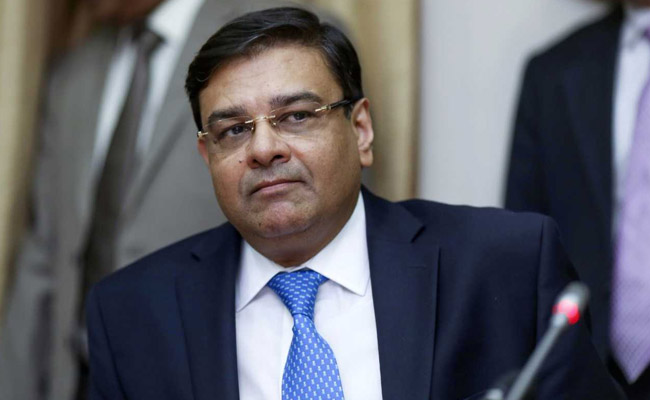
The economic growth bounced back from a three-year low, giving the central bank enough ammunition to keep interest rates on hold on December 6 amid an uptick in inflationary pressures.
Gross domestic product in of the Indian economy expanded 6.3 per cent in July to September from a year earlier, the Statistics Ministry said in a statement in New Delhi on Thursday. That's slower than the 6.4 per cent median estimate in a Bloomberg survey of 51 economists but faster than 5.7 per cent in the previous quarter. Gross value added, a key input of GDP that's tracked by the central bank, rose 6.1 per cent compared with an estimated 6.2 per cent gain.
It comes as good news for Prime Minister Narendra Modi who is facing elections in his home state of Gujarat on December 18. He has been grappling with slowing growth in the past five quarters, with the economy dragged down by subdued private investments, an unprecedented cash ban imposed last year and the introduction of a country-wide consumption tax in July.
"After five quarters we are seeing a reversal -- it is very encouraging," TCA Anant, chief statistician told a press conference in New Delhi. He added the manufacturing sector had led the recovery as the impact of the goods and services tax began to wane. The tax had hit entire supply chains with costs for businesses jumping, hurting sentiment.
Data showed manufacturing GVA rose 7 per cent in July-September from a year earlier, while trade, hotel and similar services rose 9.9 per cent.
Thursday's data underlined that a nascent recovery is taking place and expectations are building that private investments will pick up next year after a landmark proposal to recapitalize struggling state-run banks. That may unclog bank credit to industry and lead to higher investment growth.
Encouraging Trend
"Looks like India's turning a corner," said Devendra Pant, chief economist at India Ratings & Research.
"And although we believe there is some effect of the low base of last year's second quarter, the growth trend in core GVA -- that's excluding state and farms' spending -- is very encouraging. There seems to be some restocking after GST and manufacturing is doing relatively well. This trend needs to be nurtured."
RBI On Hold
An acceleration in growth is expected to prompt Reserve Bank of India Governor Urjit Patel to be more hawkish in next week's rate review. The benchmark rate is at its lowest in seven years, while consumer price inflation has surged to a seven-month high, inching towards the central bank's medium-term target range of 4 per cent.
Along with expectations that inflation will rise given the hardening in global crude oil prices, there are growing concerns that the government may have to borrow more to plug any fiscal slippage due to slowing revenues. This has driven government bond yields higher in the past few months.
"Today's data points rule out any policy rate reduction in December," said Rupa Rege Nitsure, chief economist at L&T Finance Holdings Ltd. "The RBI will be duly worried about worsening fiscal position and hardening of crude oil and other mineral prices. However, they will not raise the rates soon as overall investment sentiment is still weak."
Bloomberg Economics analyst Abhishek Gupta, however, says unless the RBI eases policy soon, investments are unlikely to pick up.
"On one hand we have structural reforms, which are pointing to potential growth and on the other, RBI's tight monetary policy is holding back consumption and investment," Gupta said. "We expect the RBI to cut rates in December and switch to an accommodative stance
Reliance General Insurance IPO: Sebi Issues Final Observations
MMNN:30 November 2017
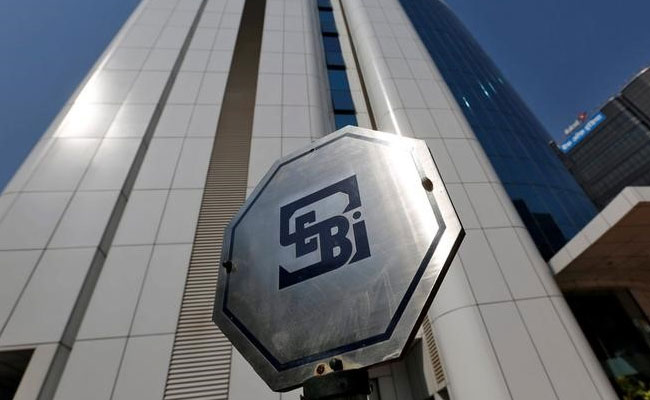
The financial markets regulator Securities and Exchange Board of India (Sebi) has issued its final observation letter to the draft red herring prospectus (DRHP) filed by Reliance General Insurance Company Limited, Reliance Capital said in a stock market filing on Thursday. The DRHP was issued by Reliance General Insurance on October 9.
The IPO (initial public offer) comprises over 1.67 crore fresh equity shares and will constitute up to 25% of the post issue paid-up capital of Reliance General Insurance Company Ltd (RGICL). The issue also entails an offer for sale (OFS) by Reliance Capital Ltd of over 5 crore equity shares.
The face value of equity shares is Rs. 10 per share. Reliance General Insurance has appointed Motilal Oswal Investment Advisors Limited, Credit Suisse Securities (India) Private Limited, Edelweiss Financial Services Limited and UBS Securities India Private Limited as the global coordinators.
Net proceeds from the fresh issue will be put to use for augmenting the solvency margin and consequently increase the solvency ratio, to meet future capital requirements which are expected to arise out of growth.
Anil Ambani-led RGICL provides a wide range of general insurance products such as fire, motor, health, home, travel, weather, crop, etc. Reliance General Insurance is a wholly owned subsidiary of Reliance Capital
Inflation Likely To Rise, Interest Rates Won't: Poll
MMNN:29 November 2017
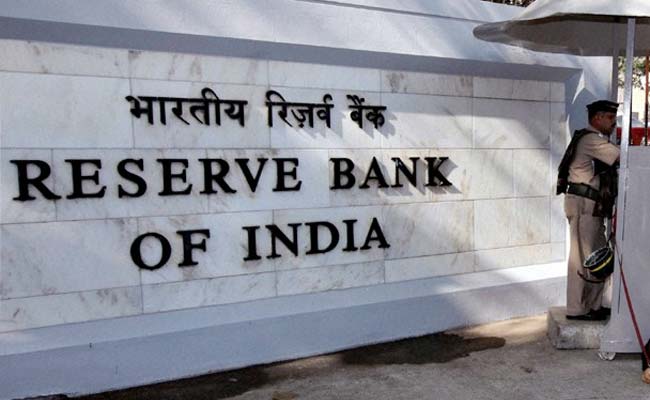
The Reserve Bank of India is likely to leave interest rates unchanged at its December policy meeting and through the end of next year, despite expectations that inflation will breach its 4 percent target in the next few months, a Reuters poll showed.
The results, from a poll of economists taken over the past week, also found there is a bigger risk the next move is a cut, even though forecasts diverge in three directions starting from the second quarter of next year.
That suggests both that policymakers have little room for manoeuvre and the outlook for rates beyond the next few months is exceptionally fuzzy, with several respondents saying they were unwilling to look much beyond the turn of the year.
The poll comes at a possible turning point for Asia's third- largest economy, with a separate Reuters survey showing economists now expect a rebound in economic growth after five consecutive quarters of deceleration.
"In the RBI's perception, inflation is inching up and the risks of that remaining high remain for a longer duration, say a couple of quarters or so, it may be difficult for the RBI to consider a rate cut around that scenario," said Shubhada Rao, chief economist at Yes Bank in Mumbai.
"In our opinion, a December rate cut is ruled out. Maybe next year (but) a lot depends on how inflation plays out," said Rao, who was the most accurate forecaster on the Indian economy in Reuters Polls last year.
The latest survey found 52 of 54 economists expected the RBI to hold the repo rate at 6.0 percent on Dec. 6, with just two forecasting a 25-basis-point cut to 5.75 percent.
The RBI's Monetary Policy Committee at its meeting in October expressed concern about rising inflation, one of the reasons it decided to keep rates steady then. Inflation rose to 3.6 percent at last count, the highest in seven months.
In the poll, 20 of 26 economists who answered an additional question said inflation was likely to rise above the RBI's 4 percent medium-term target by March, with forecasts split nearly evenly between the current quarter and early 2018.
But not all economists were concerned about inflation, which is still low by historical standards.
Finance ministry officials told Reuters that India's government is lobbying for a rate cut.
"We expect the RBI to cut policy rates, if not in December then in its next policy review," one ministry official told Reuters on condition of anonymity.
Prime Minister Narendra Modi's government has hit the economy with sweeping changes over the past year by removing more than 85 percent of the currency in circulation as well as implementing a new national goods and services tax.
But if the RBI were to cut rates, it would be out of step with the latest trend among major central banks, which are now looking to either tighten policy or move away from ultra-easy policy in place since the financial crisis a decade ago.
The U.S. Federal Reserve has been raising rates for the last two years, the Bank of Canada has lifted them twice this year and even the Bank of England put up borrowing costs earlier this month, in part on inflation concerns.
The global economy is also fairly strong, with most economies growing simultaneously. Yet at its last policy review, the RBI cut its growth outlook for the current fiscal year to 6.7 percent from 7.3 percent, suggesting it is not close to considering raising rates.
The latest Reuters poll found economists overwhelmingly expected no changes to that domestic outlook at the December policy meeting, further evidence that the repo rate is likely to remain on hold at 6.0 percent then and for a while longer.
Sajjid Chinoy, chief India economist at JP Morgan, wrote in a recent note to clients that the significant rise in oil prices over recent months, which will pinch consumers through higher inflation, is a good reason for pause.
"The resulting jump in inflation, which we now see rising to above 4.5 percent next quarter, is likely to keep the RBI cautious at its December review."
Telecom Regulator Recommends Rules In Support Of Net Neutrality
MMNN:28 November 2017

Mumbai: The telecom regulator on Tuesday recommended explicit restrictions on any discrimination in internet access as part of its much-awaited recommendations on net neutrality.
The Telecom Regulatory Authority of India (TRAI) said it was not in favour of any "discriminatory treatment" with data, including blocking, slowing or offering preferential speeds or treatment to any content.
In February 2016, TRAI ruled in favour of net neutrality by prohibiting discriminatory tariffs for data after an extended campaign by internet activists, who argued that Facebook's Free Basics platform and other offerings by Indian telecom companies violated net neutrality principles.
GoI setting up global organisation to promote exports: Suresh Prabhu, Minister of Commerce and Industry
GoI to link SMEs to global markets: Suresh Prabhu
Minister of Commerce and Industry sets $1 trillion revenue target for Manufacturing Sector
CII Manufacturing Sector Report released
MMNN:27 November 2017
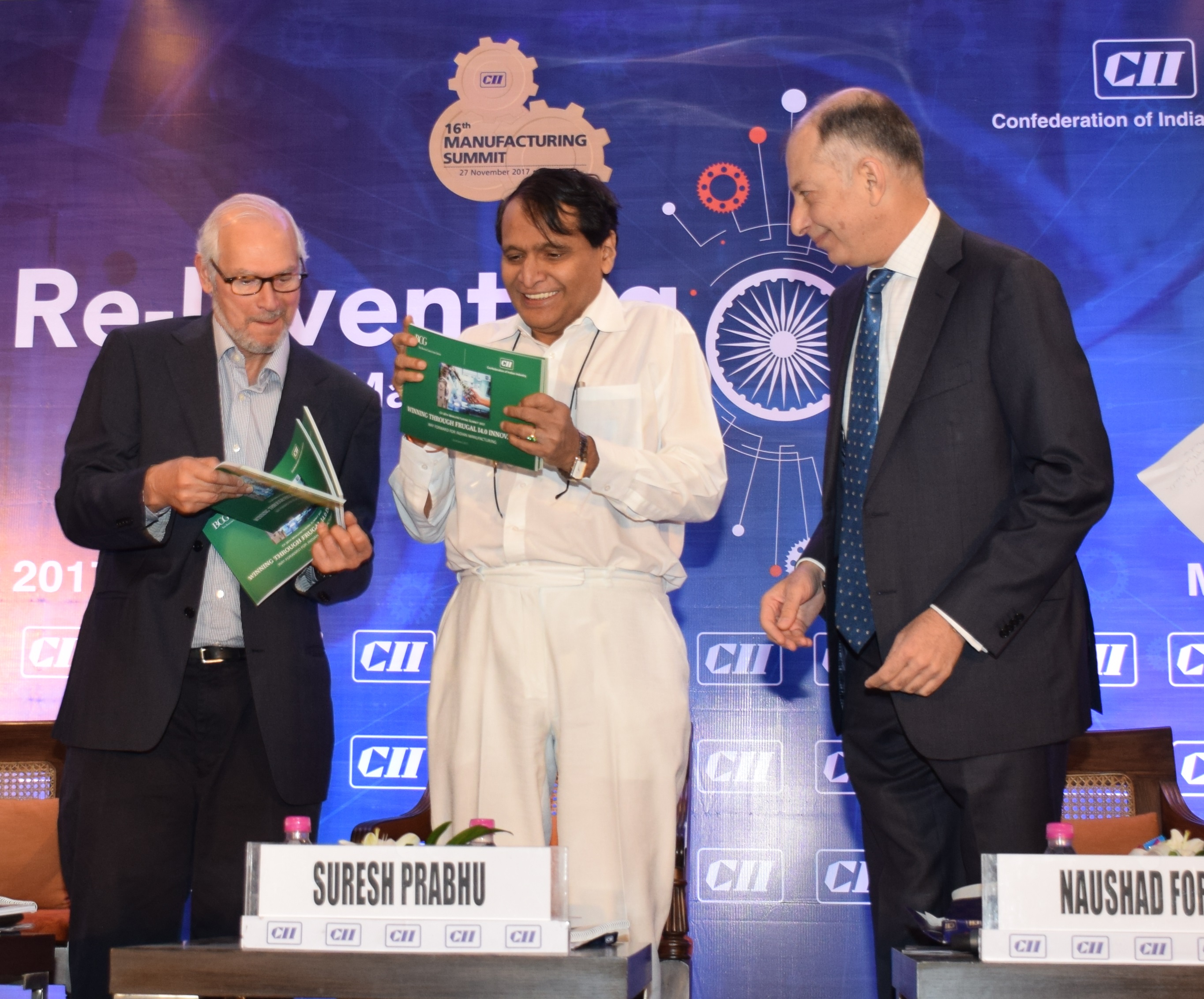
The Government is in the process of setting up an organisation to promote India's exports in different geographies of the world, developing global linkages and promoting the brand equity of India, said Mr Suresh Prabhu, Union Minister of Commerce and Industry, while addressing CII Manufacturing Summit organised by the Confederation of Indian Industry (CII) in Mumbai.
"For the first time, the Government is working on creating a new organisation to promote India's exports globally. We will have offices at least in 10 different geographies, with market research back-up and promotional activity. With a completely different approach, we will work with the private sector on this, so that we can penetrate global markets effectively," said Mr Prabhu.
"It is not possible for a small businessman to sit in India and do business globally. We want to create support system, especially for small businesses, by creating brand equity for India globally. Linkage with global market is necessary for promoting Indian products and we will do that," the Minister of Commerce and Industry added.
The Government is trying to identify specific products that can be sold in specific geographies globally through market research, the minister said.
"An industry should have to compete with the best benchmark in the world and build global scale to reap the full benefit as a manufacturer," said the minister adding that because you are part of the global environment.
Setting the $1 trillion revenues target for the manufacturing sector, the minister asked the industry to set the timeline and roadmap for achieving the same. "Without the number it was not possible for the industry to prepare a roadmap for achieving the milestone," Mr Prabhu added.
India, which has jumped 30 rankings to 100 in Ease of Doing Business, is planning to achieve a position of top 50 ranks in the world.
Mr Prabhu said that districts must be taken as a unit for overall industrial development. "Unless the administration is sensitised there is no sustainable benefit to the people. We will develop the ecosystem around districts," he added.
Mr Prabhu identified two initiatives through which this target can be achieved - identifying industries that are yet to born for entry and modernisation of the existing industries. "Imagine a top company on Wall Street, it has a market cap of a $trillion, not many countries in the country can boast of that kind of GDP. Where was that company 25 or 15 years ago?," the minister asked.
Citing the example of the once flourishing textile industry in Mumbai, Mr Prabhu said that while nearly half a million people were employed by them 20 years back, they could not sustain due to lack of modernisation.
Dr Naushad Forbes, Summit Co-chairman, immediate past president of CII, and Co-chairman of Forbes Marshal said, "Now 120 firms have been identified for setting up and for strengthening their footprint globally. The aim is to take the number to 2000 in a few years."
India needs to build 1,000 India MNCs around the world to achieve greater heights. For this, we may have to develop strong base of R&D, Dr Forbes added.
India has made a mark in improving its ranking in 'Ease of Doing Business', but we have to ensure that it should be perceived so by industries in district and taluka levels too, said Mr Jamshyd Godrej, Chairman, CII Manufacturing Summit, and Past President of CII and Chairman and Managing Director of Godrej and Boyce Manufacturing Co. Ltd.
Mr Jamshyd Godrej highlighted that CII Manufacturing Summit has over the years been the trend setter as far as manufacturing sector is concerned. He also highlighted that the 16th Edition is having a special focus on "Make in India", Ease of Doing Business: The Road Ahead, Millennial MSMEs: Future of Industry 4.0 and Start- up 4.0: India Centric Technology Innovation.
CII-BCG report, titled 'Winning Through Frugal I4.0 innovation', outlining the way forward for the Indian manufacturing sector, was released earlier at the summit. As per the report, respondents surveyed acknowledge Make-in-India has been closer to reality in 2017. This is a good start, this optimism could translate into growth on ground. However, it will require continued efforts from both industry and policymakers alike. Respondents believe that the government drive to improve manufacturing has been effective.
In Photo : CII Manufacturing Sector Report released
Shri Suresh Prabhu, Union Minister of Commerce and Industry released CII Report on Manufacturing Sector in Mumbai.
In Photo :
· Shri Suresh Prabhu, Union Minister of Commerce and Industry released CII Report on Manufacturing Sector in Mumbai
· Mr Jamshyd Godrej, Chairman CII Manufacturing Summit and Past President, CII and CMD Godrej and Boyce Manufacturing Co. Ltd.
· Dr Naushad Forbes, Summit Co-chairman, immediate Past President CII and Co-Chairman of Forbes Marshal
Traders Say Delay Of Crores In Tax Refunds Has Slowed India's Exports
MMNN:27 November 2017
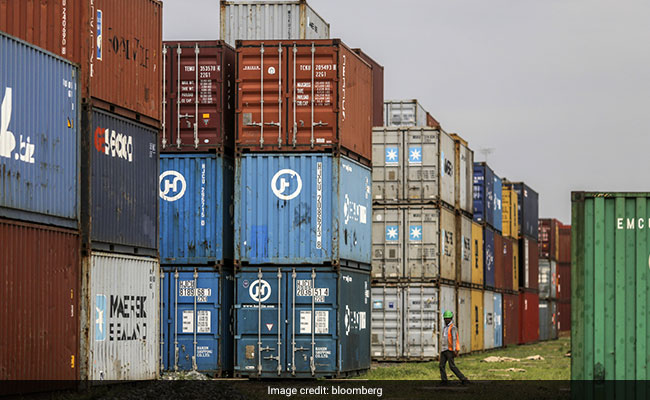
The country's exporters are a worried lot.
Four months after India's biggest tax overhaul, traders are still waiting for Rs. 50,000 crore ($7.7 billion) they say the government owes them in refunds, leaving them short of operating capital as overseas sales suffer.
"It's an alarming situation," said A. Sakthivel, regional chairman of the Federation of Indian Exporters Organisation in southern India. "Our working capital is stuck, we're losing revenues and now we're having to let workers go." More than 10,000 workers have lost their jobs in the Tirupur export hub that employs half a million in the state of Tamil Nadu, according to Sakthivel.
India's exports dipped for the first time in 15 months this October, falling 1.1 percent to $23.1 billion, even as the government tinkered with ways to simplify the hurriedly implemented nationwide goods and services tax (GST). While last month's trade deficit widened the most in three years to $14 billion, exports are expected to fall further in November if prices of crude oil, India's biggest import, continue to climb, traders say
The decline in exports combined with the slowing of India's $2.3 trillion economy contrasts with the accelerating global economy. With elections due in key states over the next few months, including Prime Minister Narendra Modi's home state of Gujarat, the country's second-most industrialized state with annual exports worth $60 billion -- his government faces the twin challenges of restoring business and saving informal sector jobs.
Nitin D. Wakankar, a spokesman in the commerce ministry, didn't respond to calls seeking comment.
Small, unorganized businesses -- especially in traditionally dominant textiles and jewelry sectors -- have witnessed the worst supply chain disruptions since July, exporters say. Two-thirds of India's exports basket comprises traditional product groups, including gems and jewelry, pharmaceuticals, textiles, engineering goods, food and fuel. In spite of extended deadlines for tax filing and large-scale reviews that eased rates for merchant exporters, the flow of cash refunds remains slow, according to traders.
Although exports are likely to stabilize after the GST-driven distortions subside, the traditional product mix will hinder the country's ability to participate in the ongoing trade upturn, according to Radhika Rao, Singapore-based economist at DBS Bank.
"Idiosyncratic drags from GST-related uncertainty and the effect of duty drawback" have added to trade headwinds, Rao wrote in a report on Nov. 22.
The government's efforts to address exporters' concerns will begin to show results shortly, according to Ajay Sahai, director general of the Federation of Indian Export Organisations. But in the meantime, many of the smaller exporters had to stop accepting fresh orders for lack of funds after paying taxes, he said.
The liquidity crunch has worsened with banks unwilling to lend exporters for GST payouts while they wait for refunds. Having to borrow more was further hurting profitability, said Ganesh Kumar Gupta, Mumbai-based chairman of Akaash Textiles Pvt. Ltd. and Vijay Silk House Group.
"GST will help the whole nation but the system is just not working," Gupta said. "We'd rather the government kept exporters out of the GST completely
Lack Of S&P Upgrade Will Not Impact India: SBI Chairman
MMNN:25 November 2017
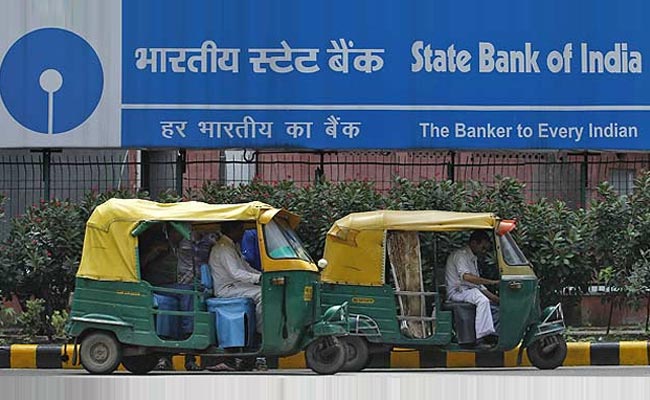
New Delhi: Rating agency Standard & Poor's (S&P) refusal to upgrade India's sovereign ratings will have no major impact on the country's creditworthiness, state-run State Bank of India (SBI) said on Friday
Earlier in the day, the American rating maintained status quo on India's soveriegn rating at BBB- with a stable outlook, a development that comes a week after Moody's did an upgrade.
"That S&P did not upgrade India's sovereign rating will have no impact on the country's economic prospects. In fact, just last week Moody's has upgraded the sovereign rating," state-run SBI's Chairman Rajnish Kumar told reporters here on the sidelines of the launch of SBI's integrated lifestyle and banking digital platform YONO.
Signalling a boost to investor sentiments last week, US agency Moody's Investor Service upgraded India's sovereign rating to Baa2 from its lowest investment grade of Baa3 after 14 years, while changing the outlook to stable from positive, and said its upgrade was based on the Indian government's "wide-ranging programme of economic and institutional reforms".
"If you see the overall business environment in India and the reforms undertaken in recent years, a rating upgrade was long overdue and Moody's have done so," said the chairman of the largest Indian lender.
"If S&P have not done so, it is their prerogative, but it will have no impact whatsoever," he added.
While granting a stable outlook for India, S&P said that there could be downward pressure on the ratings if GDP growth disappoints, if net general government deficits rose significantly, or if the political will to maintain India's reform agenda significantly lost momentum.
Wilful Defaulters Can't Bid For Assets Under Amended Insolvency Law
MMNN:24 November 2017
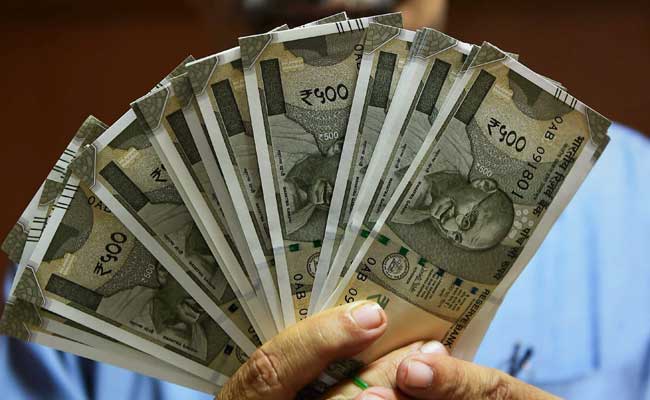
New Delhi/ Mumbai: Government tightened its fledgling bankruptcy and insolvency rules on Thursday, potentially barring owners of 12 of the country's biggest loan defaulters from bidding to buy back their assets when they are auctioned as part of bankruptcy proceedings.
The government passed an executive order that aims to "keep-out such persons who have wilfully defaulted, are associated with non-performing assets, or are habitually non-compliant and, therefore, are likely to be a risk to successful resolution of insolvency of a company," the corporate affairs ministry said in a statement.
Under the revised rules, borrowers whose loan accounts are classed as non-performing for a year or more will not be eligible to bid for the assets in bankruptcy proceedings, the ministry said.
The revised rules also bar "wilful" defaulters and associates of the defaulting borrowers from bidding for the assets, according to the statement.
In June, India's central bank ordered 12 of the country's biggest loan defaulters to be forced intobankruptcy courts as it tries to cut the record $147 billion soured loans accumulated in the country's banking sector.
Experts appointed to steer the companies through a possible sale or eventual liquidation have sought interest from potential suitors to take over the defaulter companies as part of the resolution process.
Media reports have said that in some cases, the companies' erstwhile promoters, or the main shareholders, may be looking to bid for the companies again.
The Reserve Bank of India has also asked banks to take nearly 30 more companies tobankruptcy proceedings if any other form of loan resolution does not take place by around mid-December.
Sajjan Jindal, chairman of the steel-to-cement JSW Group who had lobbied against big defaulters who wanted to bid for their own insolvent assets, welcomed the move.
"This will facilitate healthy competition in maximising value to lenders which is in the public interest," Jindal said in a post on Twitter.
His company JSW Steel Ltd, in which Japan's JFE Holdings Inc has a stake, is preparing to jointly bid with the Japanese company for the assets of insolvent Bhushan Steel Ltd, sources told Reuters this week.
Rajnish Kumar, chairman of top lender State Bank of India, said on Thursday the bank expected considerable interest from investors other than the promoters or major shareholders for the assets in bankruptcy.
After Sovereign Ratings, Moody's Upgrades Outlook For India Inc
MMNN:22 November 2017
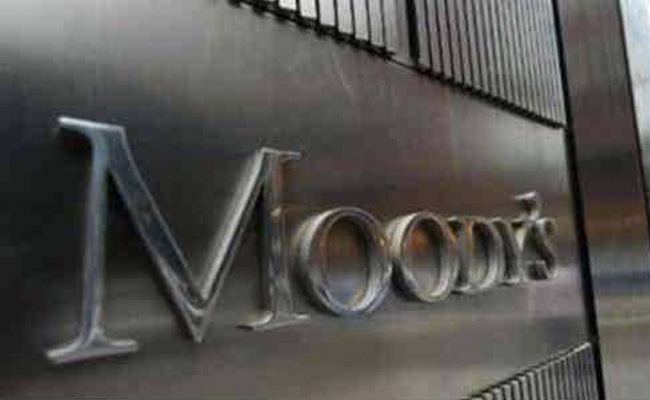
Mumbai: Rating agency Moody's sees an improvement in the credit profiles of India Inc next year, driven by better sales as it expects GST-related disruptions to wane, leading to an allover recovery in economic activities.
It can be recalled that for the first time in almost 14 years, over the past weekend, Moody's had upgraded the country's sovereign ratings to Baa2 with a stable outlook. The last rating revision was in 2004.
"We expect GDP growth of around 7.6 per cent will result in higher sales volumes, which, along with new production capacities and benign commodity prices, will support pre-tax growth of 5-6 per cent over the next 12-18 months," Kaustubh Chaubal, a vice-president and senior analyst at Moody's said today in a report on the 2018 outlook for non-financial Indian corporates.
He said refinancing needs in 2018 will be manageable for most companies, given their improving access to capital markets and their large cash balances.
"Corporates' cross-border bond maturities will also be manageable for the next three years," Saranga Ranasinghe, an assistant vice-president and analyst at Moody's, said. The agency said a further simplification of GST and other structural reforms, or an improvement in commodity prices, resulting in higher operating profit could further improve companies' credit profiles.
That apart an improvement in asset valuations, providing a means of deleveraging for some corporates will also result in improvement in their credit profiles, they said. But the report said downside risks to its expectation include GDP growth falling below 6 per cent and weakening of commodity prices, resulting in lower pretax growth.
A slowdown in the pace of reforms, political uncertainty, higher interest rates brought on by rising inflation and exchange-rate volatility, resulting in a tight funding environment may also impact companies credit profiles, they warned.
The agency has stable outlook for oil companies, real estate, auto and auto suppliers and IT services, expect telecoms, on which it is negative.
The agency is negative on the telecom sector as it expects the intensifying competition to continue to pressure revenue and margins over the next 12 months, while industry consolidation will result in the emergence of three big players
The Contrasting Telecom Fortunes Of Mukesh And Anil Ambani
MMNN:21 November 2017
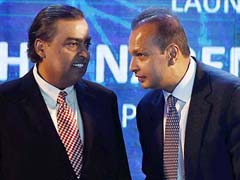
Two billionaire brothers, two bonds, two very different fates. This isn't the plot of yet another sequel to Jeffrey Archer's Kane and Abel, though it could very well be.
Mukesh Ambani, India's richest man, sold 10-year dollar notes at just 130 basis points over U.S. Treasuries on Monday. None of the existing debt of Indian nonfinancial issuers, including state-owned firms, was raised this cheaply, according to Bloomberg News reporters Carrie Hong and Neha D'silva.
Moreover, Reliance Industries Ltd.'s $800 million offer came days after a default by Reliance Communications Ltd., run by Mukesh's younger sibling, Anil Ambani. My apprehension that global investors would paint all Reliance bonds with the same brush -- and punish the older brother for the younger's missed coupon -- turned out to be unfounded.
The unraveling of Reliance Communications boils down to a combination of poor balance-sheet management ($7 billion in debt) and intense competition from Mukesh Ambani's Reliance Jio, a new fourth-generation wireless service that upended the business model of companies like RCom by offering free calls and cheap data. Meanwhile, the older Ambani's good fortune in the bond market is thanks in part to an unexpected one-notch upgrade of India's sovereign rating on Friday by Moody's Investors Service.
Mukesh Ambani has played it well. The Jio network has cost Reliance Industries $30 billion. But while betting big on telecom, which won't make any money until India's data use explodes and Jio comes to dominate the industry, Ambani also invested heavily in his refining and petrochemicals empire, which spews out cash by the truckload. S&P Global Ratings expects Reliance Industries' Ebitda to exceed 900 billion rupees ($13.8 billion) in fiscal 2019, which would be double last year's level and cut debt-to-adjusted Ebitda to 2 times, from 3 currently.
Also, the Reliance Industries bond issue isn't a sale of new debt, but merely a refinancing of the $800 million, 5.875 percent perpetual notes the firm had sold four months before the 2013 taper tantrum shuttered emerging markets.
Before you conclude that Mukesh Ambani has emerged victorious in securing cheap refinancing, think about the real winners here: the Asian private-bank clients who lapped up the 5.875 percent note
At the time, Reliance probably took the bet that Treasuries would continue their decline, and capital for emerging-market borrowers would become costlier. When Ambani sold his perpetuals in January 2013, 30-year Treasury yields had hardened to about 3 percent, a half-percentage-point increase from July 2012. They would go on to rise to almost 4 percent by the end of 2013.
But that long-term U.S. risk-free rate is now down to a quiescent 2.77 percent. Ambani was wrong to be bearish on Treasuries and lock in such a high cost. Had the company issued five-year notes instead of perpetuals, its borrowing expense might have been a lot less than 5.875 percent. ONGC Videsh Ltd., a unit of state-owned Oil & Natural Gas Corp., sold five-year notes a few months after Reliance at 2.57 percent.
All the older Ambani is doing now is closing his costly short. It appears to be the smart thing, though investors who have pocketed the perps' juicy coupons have been smarter.
As for who got the lemons, that answer is clear: investors who backed the younger sibling's 2015 bond, rated four rungs lower on Moody's scale back then. The defaulted note is going for 35 cents on the dollar.
The billionaire brothers' fates and fortunes decoupled; some investors just didn't get the memo.
This column does not necessarily reflect the opinion of Bloomberg LP and its owners
Highest Credit Rating In Decades By Moody's Makes PM Modi's Job Harder
MMNN:20 November 2017
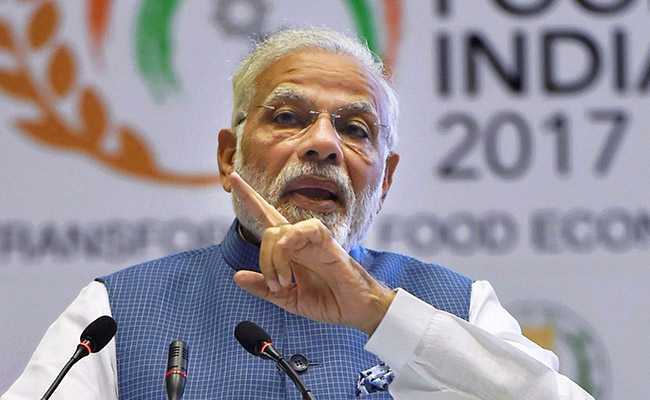
Prime Minister Narendra Modi's wriggle room to relax his deficit targets just got reduced by Moody's Investors Service.
On Thursday, the government was talking about easing its budget goals as sweeping policy changes hurt growth and revenue. Then, early Friday, Moody's upgraded India's sovereign rating to the highest since 1988, prompting a U-turn from the administration.
"We'll continue to maintain the glide path," Finance Minister Arun Jaitley said at a briefing in New Delhi on Friday, referring to his plan to shrink the budget shortfall to 3.2 percent of GDP in the year through March 2018 and a decade-low of 3 percent the next year. "The upgrade is a recognition of the fact that India continues to follow a path of fiscal prudence."
Mr Jaitley's words contrast with his comments to investors in Singapore on Thursday, when he said "challenges arising from structural reforms could change the glide path." He can't afford to follow through on that now because Moody's one-notch rating upgrade is a bet that India will contain public debt.
Both S&P Global Ratings and Fitch Ratings rate India at BBB-, a notch above junk status. S&P's highest ever rating for India stood at BBB in 1990 from which it was downgraded in March 1991. Fitch Ratings' current rating stands as its highest ever.
While rating companies have lost some of their allure abroad after they failed to predict the financial crisis of 2008, they're still considered a stamp of credibility in emerging markets, where local statistics can often be dodgy.
PM Modi needs such a boost: he faces elections in his home state of Gujarat next month, where polls point to the closest contest in years. Voters are concerned about a lack of jobs and higher inflation after the Prime Minister's decision last year to invalidate almost 90 percent of currency in circulation and the disruptive roll out of a consumption tax this July.
"The government will likely remain on the path of fiscal consolidation as it is mindful of maintaining investor confidence," said Dhawal Dalal, chief investment officer for debt at Edelweiss Asset Management Ltd. "There has been significant increase in positivity generated among foreign investors as they have appreciated fiscal policy and various measures taken by the present government in order to improve economic growth."
The rupee strengthened as much as 1 percent in Mumbai on Friday, the most since mid-March, while the main equity index rallied 0.7 percent. The yield on 10-year sovereign bonds, which slipped from a 14-month high to 7.05 percent, could fall to 6.95 percent by March, according to Yes Bank Ltd. It predicts the currency may strengthen further if Fitch Ratings and S&P Global Ratings follow Moody's in upgrading India.
Indian stock markets were under pressure today after seeing a strong rally on Friday. Weak Asian markets and profit-taking at higher levels hurt domestic markets, traders said. With Q2 earnings season coming to an end, global stock markets and oil price will determine the trend in domestic equities in near term, say analysts.
Currency and bond markets have come under pressure in recent weeks due to rising crude oil prices and talk of potential fiscal slippage.
"The timing is a surprise given concerns regarding the fiscal metrics right now," said Sue Trinh, head of Asia foreign-exchange strategy at RBC Capital Markets in Hong Kong of Moody's move.
More Cautious
"S&P and Fitch are more cautious and will not follow suit soon," said Anthony Chan, an Asian sovereign strategist at AllianceBernstein Holding Ltd. in Hong Kong. "The upgrade cited reform progress, especially GST, but GST's tax dilution was a disappointment and caused many to forecast bigger fiscal slippage."
Chan was referring to Mr Jaitley's decision last week to slash tax rates on more than 200 goods and services. The move will cost Rs. 20,000 crore ($3 billion) in lost revenue. It is seen as a step to curb prices that are rising at the fastest pace in seven months and an attempt to encourage companies to invest and hire more, ultimately soothing voters.
Growth in gross domestic product slipped to a three-year low in the April-June quarter, muddying the near-term outlook, though the GST is expected to boost productivity in the longer term. Moody's predicts annual expansion will slow to 6.7 percent in the year through March 2018 - from 7.1 percent - but rebound to 7.5 next year.
"The space for expenditure contraction is much less than other years," said Pronab Sen, country director at New Delhi-based International Growth Centre and India's former chief statistician. "There will be pressure when it comes to meeting the fiscal deficit target."
Moody's Raises Ratings Of SBI, HDFC Bank, Two Other Financial Institutions
MMNN:17 November 2017
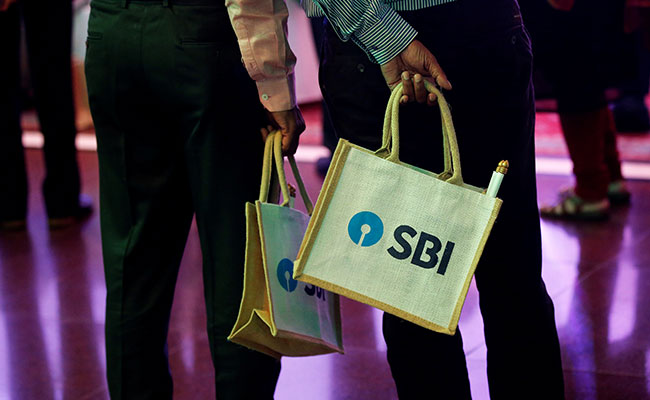
New Delhi: Moody's Investors Service on Friday upped the long-term ratings of four Indian financial institutions including SBI and HDFC Bank by a notch to 'Baa2' following the upgrade of the country's sovereign rating to the same level.
The four institutions with revised rating are Export-Import Bank of India (EXIM India), HDFC Bank, Indian Railway Finance Corporation Limited (IRFC) and State Bank of India (SBI), Moody's said in a statement.
In the case of HDFC Bank, the rating agency has also upgraded the bank's baseline credit assessment (BCA) and adjusted it to Baa2 from Baa3, it said.
Moody's has assigned a stable outlook to SBI's DIFC branch. The US-based agency today upped India's rating to Baa2 from Baa3 and changed its rating outlook to 'stable' from 'positive', saying the reforms will help stabilise rising levels of debt.
Ambanis Wealthiest In Asia, 18 Indian Families In Top 50: 10 Points
MMNN:16 November 2017
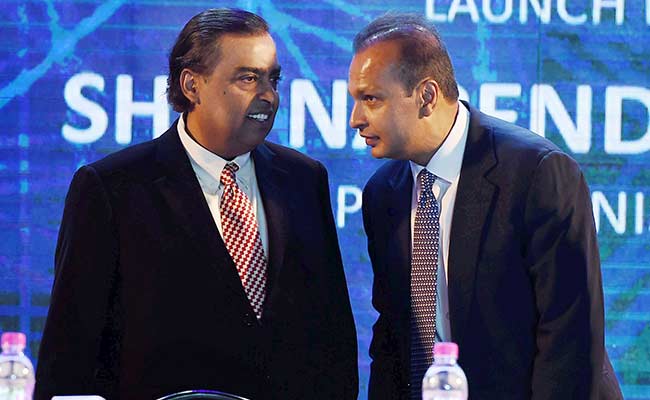
The Ambani family, led by brothers Mukesh Ambani and Anil Ambani, has claimed the top slot in Forbes list of 50 richest Asian families with a net worth of $44.8 billion, up $19 billion from the previous year. India enjoys the biggest presence on the list, with 18 families among the region's top 50. The Ambanis superseded the Lees of the Samsung empire to claim the No. 1 spot. The wealth of oil-to-telecom tycoon Mukesh Ambani, who is also the richest Indian, surged over a rally in shares of Reliance Industries and strong customer response to Reliance Jio. His younger brother Anil Ambani heads Reliance Communications.
Here are 10 things that you must know about Forbes list of Asia's richest families:
1. The combined wealth of the Ambanis soared by a whopping $19 billion as they pipped South Korea's Lee family to claim the top notch rank in Forbes list of Asia's wealthiest clans.
2. "Because of India's size, the Ambanis can never be as dominant there as Samsung's Lees have been in Korea. But with Mukesh's next generation establishing a presence at the Reliance Jio telecom operation, this story could play out for years," Tim Ferguson, Editor of Forbes Asia, said on Forbes website, forbesindia.com.
3. The Ambanis are the only Indian family on the top 10 richest families list in Asia. "No family highlights this surge better than the Ambanis of India, this year's biggest gainer in dollar and percentage terms," Forbes said.
4. Other richest Indian families on the list feature the Premjis (rank 11, $19.2 billion net worth), the Hindujas (12th, $18.8 billion), the Mittals (14th, $17.2 billion), the Mistrys (16th, $ 16.1 billion) and the Birlas (19th, $14.1 billion).
5. Other Indian families that got into the exalted list include the Godrej family (20th, $14 billion), the Bajajs (26th, $9.3 billion), the Jindal family (32nd, $7.68 billion), Dabur's Burmans (35th, $7.05 billion), Eicher Motors' Lals (36th, $7 billion) and Shree Cement's Bangur family (37th, $6.7 billion).
6. Motherson Sumi Systems' Sehgal family (41st, $6.15 billion), the Wadia family (42nd, $6.14 billion), DLF's Kushal Pal Singh (44th, $6.1 billion), the Patel family which controls Cadila (45th, $6 billion), the Piramals (47th, $5.38 billion) and the Munjals (48th, $5.37 billion) also made it to the list.
7. South Korea's Lee family which ranked second on the Forbes list saw their wealth soar by $11.2 billion to $40.8 billion this year as shares of Samsung Electronics moved up 75 per cent over the past year.
8. Hong Kong's Kwok family, which controls Sun Hung Kai Properties, ranked third this year with a net wealth of $40.4 billion.
9. The list of Asia's 50 Richest Families is a snapshot of wealth using stock prices and currency exchange rates from the close of markets on November 3. Private companies were valued by using financial ratios and other comparisons with similar publicly traded firms.
10. The ticket to entry for this year's list was $5 billion, $1.6 billion more than in 2016.
'GST Blues' For Some, But Big Firms Benefit, Get Bigger Market Share
MMNN:15 November 2017
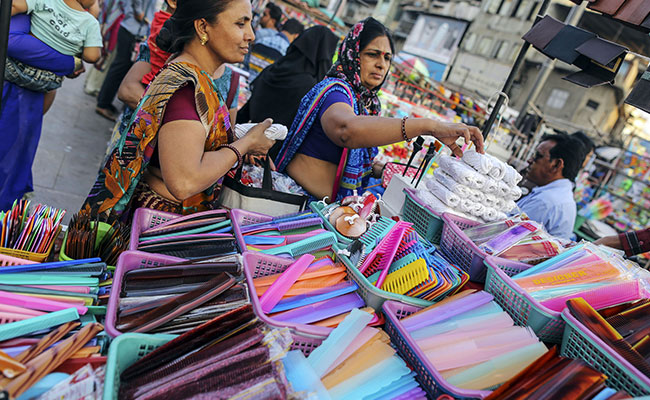
India's biggest tax overhaul since independence has driven a wedge between companies that have adapted to the new levies and a vast swath of small businesses, representing almost half the economy, that are struggling.
The trend emerging from the first quarter of earnings since the goods and services tax, or GST, was introduced on July 1 shows bigger companies such as the Tata Group's Titan Co. Ltd, India's largest carmaker Maruti Suzuki India Ltd. and Godrej Consumer Products Ltd. have used the disruptions to gain market share. Smaller operations are reporting that increased compliance costs, supply-chain disruptions and policy changes have hurt profits and forced some to shed workers.
Last week the government cut the tax payable on about 200 items and eased filing norms after it was criticized by some for a chaotic roll-out as companies grappled with the multi-tier structure and onerous reporting system.
The disruptions have hit traders, traditionally a large vote base for Prime Minister Narendra Modi's BJP. Addressing any slump in activity among the country's 58 million small enterprises, and the businesses they supply, will be crucial for growth to rebound in Asia's third-largest economy.
It will take time for small and medium-sized enterprises to recover from the "GST blues" as many weren't prepared and couldn't deal with the changes, said M.S. Mani, a partner overseeing GST at Deloitte India. "This led to some of them putting all operations on hold and it will now take some time for them to revive their business. Many smaller companies are suppliers to large businesses and they were worried about business continuance and tax challenges."
The GST has been more than a decade in the making and is expected to make dodging taxes more difficult, bringing the nation's vast cash economy into the mainstream. But its disruptive roll out and concerns about a widening gap between better-run companies and the laggards -- often smaller firms and those in the informal sector -- poses a challenge to PM Modi who rode to power in 2014 on the promise of more inclusive growth.
The difference for Mithun Chittilappilly, managing director at V-Guard Industries Ltd., which deals with both large and small companies, is down to how cash intensive a business was as well as how prepared they were to make the necessary accounting and technology changes. The consumer durable goods sector, which is more formalized, has better transitioned than others including electrical goods players, said Mr Chittilappilly, whose company manufactures stabilizers, pumps, cables, electrical and solar water heaters.
"In the case of the electrical trade, in many other parts of the country we saw that they were not doing really anything. There is a lot of unorganized sales happening," he said, adding that many companies didn't even have technology systems in place on July 1.
Citigroup Inc. analysts Jamshed Dadabhoy, Aditya Mathur and Arvind Sharma traveled through the state of Madhya Pradesh in October to meet local companies, wholesalers and traders. In most conversations, owners indicated increased compliance costs and difficulties with the technology and network to upload tax invoices.
On the other hand, Nisaba Godrej, executive chairwoman of Godrej Consumer Products Ltd., said remaining "agile" helped her 120-year-old soap company navigate channel disruptions and deliver 10 percent volume growth.
The gold and jewelry industry is another example of how organized retail has side-stepped any overall volume declines. Titan -- which gets 80 percent of its revenue from jewelry -- reported a 71 percent rise in second-quarter net profit from a year earlier and a 29 percent increase in sales.
At the same time, gold consumption in India dropped to a seven-year low in 2016 as efforts to formalize purchases damped demand. Volumes will probably remain near last year's level in 2017 as well, estimates the World Gold Council.
"There are a few companies that are doing well from a market share capture perspective, like Titan Co. Ltd, Maruti Suzuki India Ltd., Hero Motocorp India and organized retailers, but we didn't get the impression of an acceleration in demand yet," the Citigroup analysts wrote in a report.
That view was shared by the chief of one of India's largest electrical equipment manufacturer, Havells India's Anil Rai Gupta. Businesses have been slow to replenish inventories that were emptied out before GST due to the uncertainty stemming from the new levies, he said.
Credit Suisse analysts Neelkanth Mishra and Prateek Singh cited surveys by Tally Solutions Pvt. Ltd, a software provider, to highlight the pain of many small enterprises.
The surveys indicate businesses are holding back payments to their suppliers till they are convinced the supplier has paid the tax and uploaded the invoice.
"This is because they are unsure they will get any credit," they wrote in a report. "If this is systemic and not just a few anecdotes, it could slow down activity levels in many supply chains for several months
Anil Ambani Telecom Is High-Profile Default On International Debt
MMNN:14 November 2017
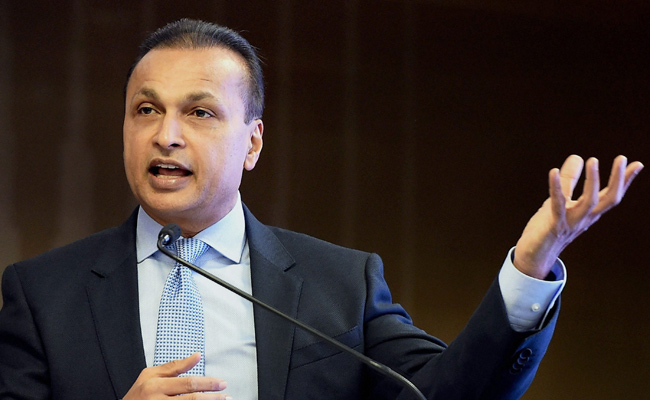
The first default on US dollar bonds by an Indian company in 15 months may become a closely-watched test case for how international creditors will fare under the country's new bankruptcy laws.
Reliance Communications Ltd., the mobile phone operator controlled by billionaire Anil Ambani, failed to pay a coupon on its 2020 dollar notes before the expiry of a grace period on Monday, according to a person familiar with the matter. It's India's most high-profile default on international debt since the nation's insolvency and bankruptcy code was passed in May 2016.
The new rules, part of Prime Minister Narendra Modi's push to make India more investor friendly, are designed to speed up debt restructurings in a country whose banking system is plagued by the highest stressed-asset ratio in 17 years. An improved resolution process would not only encourage foreign money managers to increase holdings of Indian distressed debt, it could also help reduce borrowing costs for companies across the credit spectrum.
If the restructuring is done properly and fairly, this could set a good precedent and global creditors will take comfort that debt restructuring can have a satisfactory outcome in India," said Dhiraj Bajaj, Singapore-based portfolio manager at Lombard Odier. "Historically, some debt restructurings have taken years and proved to be very costly for creditors from a time, capital and opportunity cost perspective."
Test Case
While it's unclear whether offshore creditors will utilize the new rules, Ernst & Young LLP says bondholders can prompt companies to come up with a debt resolution plan or face liquidation if they fail to do so after 270 days. There hasn't yet been a case in India where this process was initiated by offshore bondholders, according to Ernst & Young. The last Indian dollar bond default was Rolta India Ltd., which failed to honor an obligation in August 2016.
Under the old rules, "the only option available to bondholders was liquidation," said Abizer Diwanji, partner and national leader for financial services at Ernst & Young. "And that took forever."
The defaulted 2020 notes issued by Reliance Communications, once India's second-largest wireless operator, were trading at about 35.6 cents on the dollar as of 2:15 p.m. in Hong Kong. The company also missed interest payments due on November 2 and 7 on two rupee-denominated bonds.
Reliance Communications reiterated on Saturday that a standstill period for interest and principal repayments continues until December 2018.
The company has proposed a debt resolution plan to lenders that includes lenders converting part of their debt to equity. A filing under the insolvency and bankruptcy code would force the company to come up with a debt resolution plan for all its creditors.
Under India's new rules, anyone who has debt due of more than Rs. 100,000 ($1,528) can file for taking the company to a corporate insolvency process, according to Ernst & Young's Mr Diwanji. The threat of bondholders taking action in courts could prompt a company to begin talks with bond investors, according to Gunjan Shah, partner at Indian law firm Shardul Amarchand Mangaldas & Co.
"The moment an action is filed under the court, the company's management loses all its powers," said Ms Shah, adding that noteholders have to weigh their recovery prospects in a liquidation situation.
While the problems at Reliance Communications highlight the dangers of investing in Indian companies with high debt, a successful restructuring process could ultimately make the country more attractive for investors. "Recent defaults in the Indian offshore dollar market are going to be interesting test cases for the evolving Indian regulatory system," said Manjesh Verma, Hong Kong-based head of Asia credit sector specialists at Citigroup Inc
Eating Out To Get Cheaper, GST Rate On Restaurants Slashed To 5%
MMNN:11 November 2017
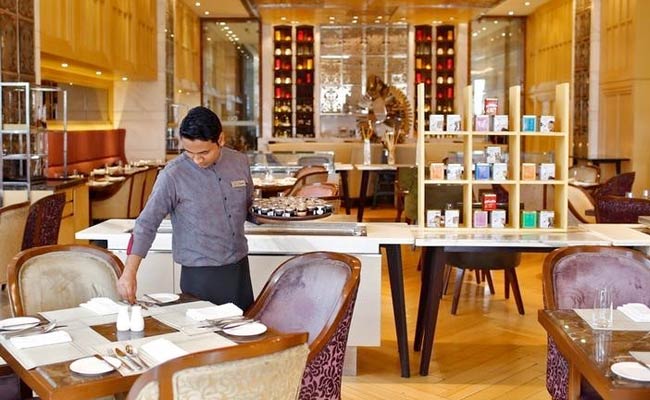
The next time you go to restaurants you will have to pay a uniform GST rate of 5 per cent, instead of 12 per cent or 18 per cent earlier depending on AC or non-AC restaurants. This was decided at the 23rd meeting of the GST Council meet today in Guwahati. But restaurants won't get the benefit of input tax credit, a facility to set off tax paid on inputs with final tax. Currently, GST is levied at 12 per cent on food at non-AC restaurants, while it is 18 per cent for air-conditioned ones with input tax credit benefit for restaurants.
Finance Minister Arun Jaitley, addressing a press conference, said that the Council was of the view that most restaurants did not pass on the benefits of input tax credit to customers by reducing prices after GST was implemented from July 1.
Experts said that it needs to be watched how restaurants price their food after removal of input tax credit benefit. Restaurants currently get input tax benefit on rent, food and other items.
"Five per cent rate on restaurants (except those in star hotels) without any input credit might not be the best decision from a tax policy standpoint and breaks the chain (of input tax benefits), which is not desirable. From a consumer standpoint, however, it should lead to some decrease in prices particularly in case of small restaurants," said Pratik Jain of PwC. "This decision seems to be based on government's belief that the industry has not passed on the input credit benefit to customers."
Mr Jaitley also said restaurants within five-star hotels (room rent above Rs. 7,500) will attract 18 per cent GST with input tax credit benefits. Outdoor catering will attract 18 per cent GST with input tax credit benefits, he added.
Mr Jaitley also said that out of the 228 items in the 28 per cent tax bracket, 178 have been put into lower tax category of 18 per cent.
He also said that tax rate on 13 items has been reduced from 18 per cent to 12 per cent; on five items it has been cut to 5 per cent from 18 per cent and on six items lowered to zero from 5 per cent.
Oil Morphs From PM Modi's Blessing To Burden. This Is Why
MMNN:10 November 2017
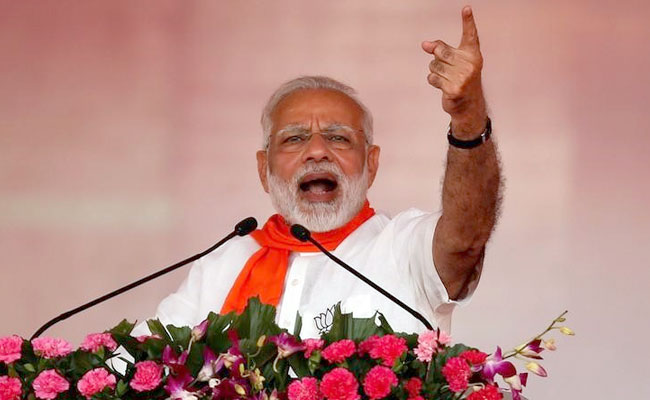
Narendra Modi's first term as leader of the world's fastest-growing oil market coincided with the biggest price crash in a generation. Crude's rebound into a bull market is set to test the Indian Prime Minister as he gears up for re-election in 2019.
While low prices helped shrink deficits as PM Modi cut subsidies after taking the reins of Asia's third-largest economy in 2014, a 33 percent jump in global benchmark crude since June has lifted oil close to $65 a barrel. If it hits and stays at that level in the year through March, inflation could rise by 30 basis points and a key measure of growth may weaken by 15 basis points, the central bank estimates.
That threat is ill-timed for PM Modi. His government's grappling with weaker economic growth that's forecast to slow to a four-year low in the wake of an unprecedented cash ban and the chaotic roll out of a goods and services tax. How he tackles oil's surge will determine the credibility of criticism that he got lucky with low crude prices, a refrain he's rebutted. Data due Monday will probably show inflation quickened to a seven-month high in October.
"For a net oil importer like India, a sustained rise in crude oil prices would have adverse macroeconomic implications," Sonal Varma, chief India economist at Nomura Holdings Inc., said in a report last week. "Higher oil prices are tantamount to negative terms-of-trade shock that weakens growth, pushes up inflation and deteriorates the twin deficits
Oil's jump is expected to push the yield on India's 10-year government bond to a 2017 high of 7 percent from 6.93 percent on Thursday. Consumer prices rose 3.4 percent in October from a year earlier, according to the median estimate of 13 economists, quickening from September's 3.28 percent pace.
That means the Reserve Bank of India will have less room to lower interest rates and spur flagging growth. However, Bloomberg Economist Abhishek Gupta says that while the oil-price surge may push up inflation, bond investors should be comforted by a cut in domestic fuel prices, a high probability of more reductions in the GST, and his prediction that the local currency will strengthen.
When PM Modi was sworn in as Prime Minister in May 2014, after promising in his campaign to introduce market-friendly policies and boost economic growth, global benchmark Brent crude was trading at more than $100 a barrel. The very next month, crude began a descent that dragged it down all the way to below $30 in early 2016 amid concern over a global glut and surging U.S. shale production.
Oil Leeway
That collapse helped PM Modi during the first two years of his five-year term, giving him the leeway to cut subsidies on diesel and cooking gas, a move that may have been politically unpopular if oil weren't so low. It also allowed him to raise taxes on fuel, helping shrink Asia's widest budget deficit.
Now, oil's rising as OPEC and allies including Russia curb output to clear the global oversupply, while the Indian rupee is weakening against the dollar. Both are risks for Sankaran Naren, chief investment officer at ICICI Prudential Asset Management Co., the country's largest money manager. He estimates that Brent at $65 would add $5 billion to the nation's current-account deficit, which ballooned to $14.3 billion in April-June from $3.4 billion the previous quarter.
Nomura, meanwhile, estimates a $10-per-barrel increase in oil would worsen the current-account balance by 0.4 percent of GDP, widen the fiscal shortfall by 0.1 percent of GDP, and increase wholesale inflation by about 1.4 percentage points.
The WPI gauge averaged 2.5 percent in April to September, a period when India's oil bill rose more than 17 percent from a year earlier even though PM Modi's abrupt cash clampdown dampened demand for fuel. Consumption has since recovered -- demand in September grew the most in 10 months -- threatening to inflate costs even more.
As crude rallied, the government last month moved to cut taxes on gasoline and diesel. The decision was triggered by a public outcry and is estimated to cause a 130 billion-rupee loss to government revenue in the current fiscal year. Meanwhile, the economic slowdown has re-energized PM Modi's political opposition.
Before the reduction in fuel costs, PM Modi's administration had raised taxes nine times, resulting in a nearly five-fold jump in levies on diesel and an increase of more than double for gasoline.
Finance ministry spokesman D.S. Malik didn't respond to calls to his mobile phone.
The spurt in oil "will impact the current-account deficit and inflation," said Gopikrishnan MS, head of foreign exchange, rates and credit for South Asia at Standard Chartered Plc in Mumbai. "Any cut to taxes to reduce the burden on users will impact the fiscal situation
HDFC Life IPO Subscribed 4.88 Times On Last Day
MMNN:9 November 2017
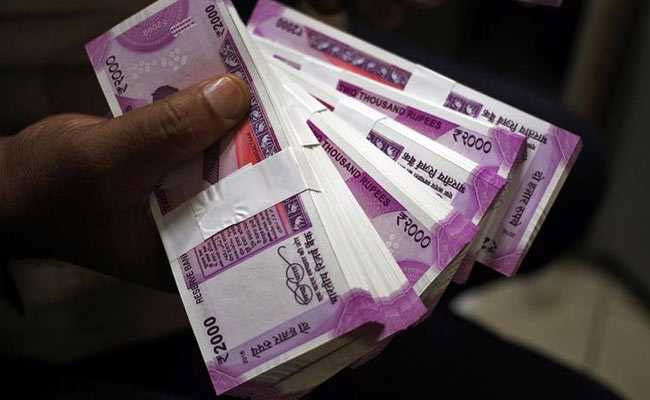
HDFC Standard Life Insurance (HDFC Life), the third largest private sector life insurance company, was subscribed on second day of the initial public offer (IPO). The issue was subscribed 4.88 times today, the last day for subscription. The initial public offer of HDFC Standard Life Insurance Company was oversubscribed 1.15 times on the second day of bidding on Wednesday.
Ten Things to know about HDFC Life IPO:
1. The IPO, estimated to raise Rs. 8,695 crore, received bids for 1,07,23,34,400 shares against the total issue size of 21,97,59,218 shares, NSE data showed.
2. Total size of the IPO is nearly 15 per cent of the paid-up capital that amounts to Rs. 8,245 crore to Rs. 8,695 crore. Till Tuesday, the IPO got subscribed 46 per cent.
3. Price band for the offer has been fixed at Rs. 275-290 per share.
4. HDFC Standard Life Insurance Company on Monday raised Rs. 2,322 crore from anchor investors. HDFC Life's profit after tax for past three fiscals was Rs. 786 crore, Rs. 817 crore and Rs. 887 crore and it rose by 8 per cent, 4 per cent and 9 per cent, respectively.
5. HDFC Life's earnings per share for the past three fiscal years stood at Rs. 3.9, Rs. 4.1 and Rs. 4.4. The price equity ratios (P/E) for past three fiscal years (2015, 2016, 2017) were 74, 71 and 66, respectively. Price to book value (P/BV) ratios were 23, 19 and 15.
6. At the upper band of Rs. 290, the issue is valued at 4.2 times of second quarter of 2018 fiscal embedded value (EV) of Rs. 14,011 crore, a bit higher than close listed players SBI Life and ICICI Pru which are trading at 3.6 times and 3.3 times of their second quarter earnings, respectively. However, Angel Broking believes that the slight premium is justifiable, considering, consistent growth across premium categories, improving dividend payout over the last four years, strong parentage, trusted brand name, highest VNB margin (22 per cent for FY2017) and well balanced business mix.
7. Morgan Stanley India Company, HDFC Bank, Credit Suisse Securities (India), CLSA India and Nomura Financial Advisory and Securities (India) are the global co-ordinators and book running lead managers to the offer.
8. HDFC Life was established in the year 2000 as a joint venture between HDFC and Standard Life Aberdeen Plc, initially through wholly owned subsidiary. At present, HDFC owns 61.41 per cent stake in HDFC Standard Life and Standard Life has about 34.86 per cent stake, while the remaining is with employees and PremjiInvest. Currently, HDFC owns 61.21 per cent in the joint venture, which will come down to 51.69 per cent, while Standard Life's 34.75 per cent shareholding will come down to 29.35 per cent post the IPO.
9. Over the past two financial years (2015 to 2017), overall total premium grew at compound annual growth rate or CAGR of 14.5 per cent to Rs. 19,445 crore. It has reported healthy return on equity of 23 per cent and Operating Return on Embedded Value of 21.7 per cent for the fiscal year 2017.
10. The VNB (Value of New Business) margin has increased by 350 basis points to 22 per cent over the past two fiscals, which is the highest in the industry - ICICI Prudential has 10 per cent, SBI Life has 15.4 per cent. Angel Broking said that healthy VNB margin has kept HDFC Life self-sustained, and hence, it would not require diluting capital very often
Some Items May Get Cheaper As Centre Hints At Pruning 28% GST Slab List
MMNN:7 November 2017
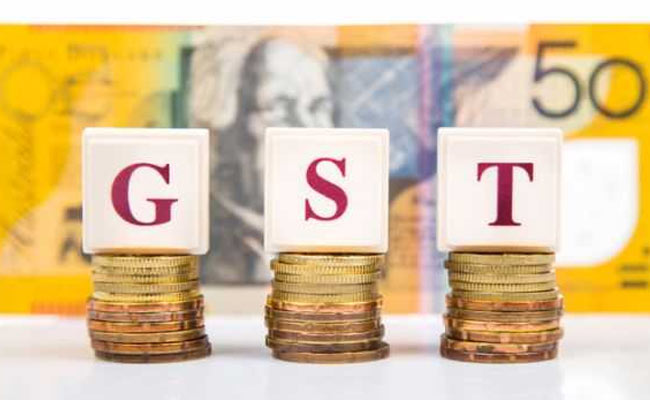
New Delhi: Finance Minister Arun Jaitley on Tuesday hinted at pruning the list of items in the highest GST tax bracket of 28 per cent after revenue in the new regime equalises previous collections. Under the Goods and Services Tax (GST) regime implemented from July, over 1,200 products and services have been fitted into one of the 5, 12, 18 and 28 per cent tax slabs based on the principle of keeping the total tax incidence at almost the same level as previously as well as keeping revenue collections neutral.
Jaitley said some of the items should never have been in the 28 per cent slab and the GST Council in the last three-four meetings has slashed rates on over 100 items, thereby bringing them down either from 28 per cent to 18 per cent or from 18 per cent to 12 per cent.
"We have been gradually bringing them down. The whole idea is, as your revenue collections neutralise we must prune it and that's the pattern in which the Council has so far been functioning. I see that as a future guide as far as the Council is concerned," Jaitley said at the India Today
Conclave here.
The GST Council is scheduled to meet next on November 10 and may consider lowering tax rates on a host of goods such as handmade furniture, plastic products and daily use items like shampoo.
The Council last month approved an Approach Paper to be followed by the fitment committee while deciding on future rate revisions.
He said consumers are noticing the tax paid on goods they buy in the GST regime as previously excise duty was embedded in the price of the product.
The GST regime, which has subsumed more than a dozen central and state levies including excise duty, service tax and VAT, is a more transparent tax. The product, in the previous regime, "didn't show you are paying so much excise (duty)," he said.
A Year After PM Modi's Notes Ban, What's Changed - And What Really Hasn't
MMNN:6 November 2017
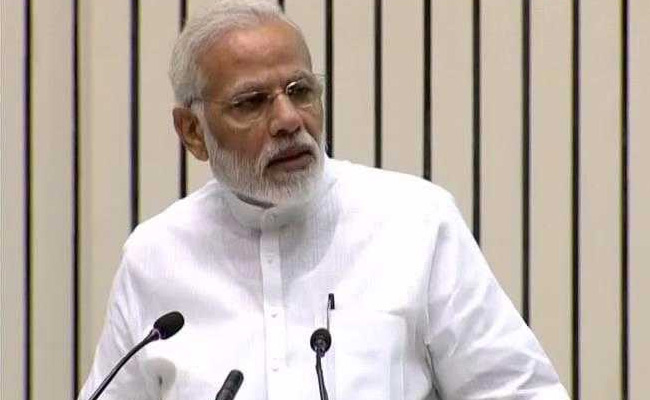
Corruption, black money, terrorism, fake currency - Prime Minister Narendra Modi resolved to eliminate all in one stroke when he announced India's biggest-ever cash ban on November 8 last year.
However, the short term costs of his move are outweighing the benefits. He invalidated 86 percent of currency in circulation, saying the move was essential to combat graft and terrorism, often funded with cash or counterfeit bills. He hasn't had much success, though the outlook has dimmed substantially for Asia's third-largest economy following the cash shock.
The biggest blow for PM Modi, who faces re-election early 2019, is that growth has slowed to levels last seen during his predecessor's administration. India's previous government was criticized for massive corruption scandals and a policy paralysis, helping Mr Modi sweep to power in 2014 with the biggest mandate in three decades.
"The process of curbing black money and corruption does not begin or end with demonetization," said Sonal Varma, chief India economist at Nomura Holdings Inc. in Singapore, using the local term for cash stashed away to avoid taxes. "Black money is held not just in cash but also real estate and gold."
PM Modi later widened his objectives to include digitization and boosting the number of tax payers. Here's a look at how he's fared:
PM Modi had said the ban on 500- and 1,000-rupee notes was needed as these high-value bills helped "enemies from across the border run their operations." While the detection of counterfeit currency increased in the 12 months through June 30, it was still just 0.08 percent of total currency in circulation compared with 0.07 percent the previous year. More importantly, the Reserve Bank of India hasn't been able to protect its new notes from counterfeiters, as fake versions of the 2,000-rupee note announced Nov. 8, 2016, have been detected.
Black Money
Soon after the cash ban was announced last year, the government's counsel told the Supreme Court that about a third of the Rs. 15.44 lakh crore of bills invalidated wouldn't be deposited into banks, implying that Indians would rather forfeit this money rather than risk detection. However, 99 percent of the notes have been returned.
"As almost all cash withdrawn has been translated into a rise in bank deposits, one can question to what extent demonetization has really been effective in wiping out black money," Arjen van Dijkhuizen, senior economist with ABN Amro Bank NV in Amsterdam, said by email.
Tax evasion
Widening the tax base is probably where analysts are most optimistic about demonetization. The government has said it will scrutinize the deposits that have flowed into banks since the cash ban to detect any tax evaders. Success in widening the tax base would ease pressure on public finances in a nation where less than 5 percent file tax returns.
"The exercise changed the public's perception of what the government can, and will do to root out corruption," said Shailesh Kumar, senior analyst for Asia at Eurasia Group. "In some ways PM Modi was rewarded for it, as he was seen taking on the issue of corruption which many believe is one of India's biggest problems."
The gamble seemed to have paid off in the electorally important state of Uttar Pradesh, where PM Modi's Bharatiya Janata Party swept elections in March. However, growth has since slowed and there are rumblings of dissatisfaction going into elections in Mr Modi's home state of Gujarat next month. Opinion polls still call the vote for the BJP, and the party has said it will mark Nov. 8 - the anniversary of the decision - as anti-black money day every year.
"It is clear that the short-term pains from these currency operations have been more concrete and visible than potential long-term gains, but that does not mean that there aren't any," said Dijkhuizen.
Digitization
A vanguard of digital payment providers have benefited from PM Modi's move. The biggest player is Paytm, backed by China's Alibaba Group Holding Ltd., which has seen its customer base surge since November. Demonetization also triggered record domestic inflows into mutual funds, which have gushed into the equity market and pushed the key indexes to multiple records.
While overall digital transactions have dipped as cash returns to the economy, the government points to relatively lower levels of currency in circulation as a win. If it wasn't for demonetization, India would have had some Rs. 18 lakh crore in high-value bills today -- instead it has Rs. 12.5 lakh crore, Economic Affairs Secretary Subhash Garg estimates. "So the potential of storing black money is so much reduced. You are doing the same economic activity with the money in circulation," he said.
Terrorism
Instances of stone pelting in the border areas of Jammu & Kashmir fell drastically after the cash ban but started rising again. While the period immediately after demonetization showed a dip in fatalities in insurgent violence, a direct link isn't clear.
Reliance Communications To Shut Voice Call Service From Next Month
MMNN:4 November 2017
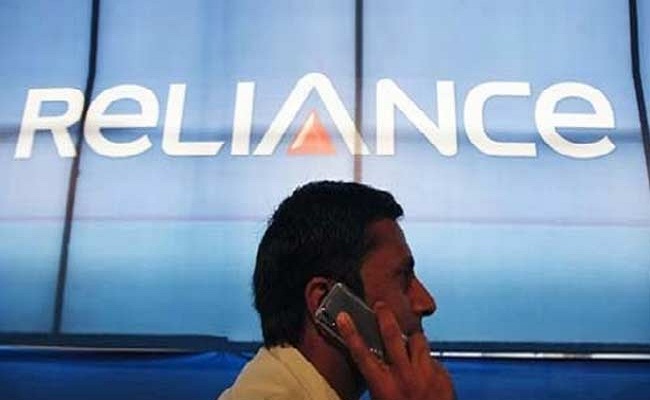
New Delhi: Telecom operator Reliance Communications (RCom) will shut down voice call service from December 1 and its customers can move to other networks by the end of the year, as per a direction issued by telecom regulator TRAI (Telecom Regulatory Authority of India) on Friday. In its direction to all telecom operators, TRAI said that RCom on October 31, 2017 intimated it that "RCL (Reliance Communications Limited) shall provide only 4G data services to its customers and as a result will discontinue to provide voice services to the subscribers... with effect from 1st December 2017."
RCom informed TRAI that it is providing 2G and 4G services in eight telecom circles of Andhra Pradesh, Haryana, Maharashtra, UP East and West, Tamil Nadu, Karnataka and Kerala.
The Anil Ambani-led firm has informed TRAI that the company will be upgrading CDMA network of Sistema Shyam Teleservices, which has been merged with it, to provide 4G services in Delhi, Rajasthan, UP West, Tamil Nadu, Kerala, Karnataka, West Bengal, Gujarat and Kolkata service areas.
The telecom regulator said that RCom has informed it has sent all the necessary information regarding closure of voice calls along with option to port out any operators in case subscriber do not wish to continue with 4G data services of the company.
The regulator has directed RCom to not reject any porting out request of its subscribers and asked all telecom operators to accept request of RCom subscribers till December 31, 2017.
RCom, reeling under debt of around Rs. 46,000 crore, decided to shut down its voice call services after it failed to close its wireless business merger deal with Aircel in the beginning of this month.
RCom and Aircel had in September last year signed a binding agreement to merge their mobile businesses. But RCom said the agreement lapsed owing to legal and regulatory uncertainties, objections by interested parties and delays in receiving relevant approvals
Punjab National Bank Q2 Profit Beats Estimates, Shares Surge
MMNN:3 November 2017
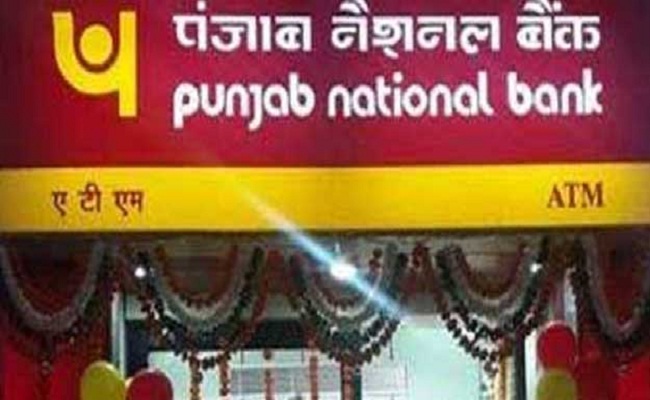
State-run Punjab National Bank, the country's fourth-biggest lender by assets, reported a 2 per cent rise in second-quarter profit, beating forecasts. Its shares rose over 5 per cent to Rs. 208 at day's high. Net profit rose to Rs. 561 crore for the quarter ended September 30, from Rs. 549 crore a year earlier, the state-run bank said.
Analysts polled by Reuters on average had expected a net profit of Rs. 433 crore, according to Thomson Reuters data.
Gross bad loans as a percentage of total loans stood at 13.31 per cent at end-September compared with 13.66 per cent at end-June quarter and 13.63 per cent a year earlier
SBI Cuts Home Loan Interest Rate To Lowest In Industry; Car Loan Rate Reduced
MMNN:2 November 2017
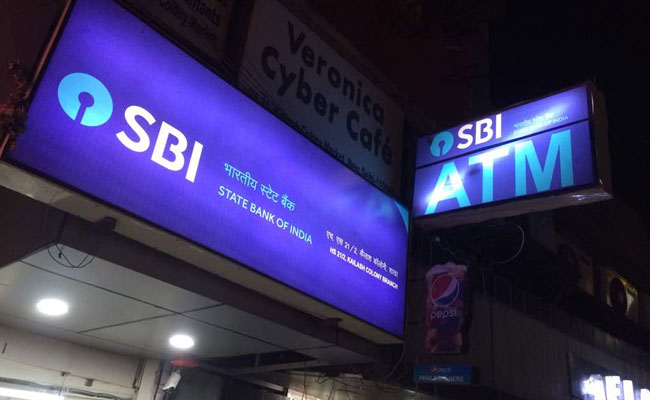
SBI or State Bank of India has reduced its interest rate on home and auto loans. India's largest bank SBI said that it has reduced its interest rates on home loan and auto loan by 5 basis points, effective November 1. After the latest rate revision, SBI is offering home loans at an interest rate of 8.30 per cent, from 8.35 per cent earlier, which it claims to be the lowest in the industry. Similarly, SBI has reduced its interest rate on auto or car loan to 8.70 per cent, from 8.75 per cent earlier. Other banks are expected to follow suit and reduce their home and auto loans rates.
In a statement, SBI said: "The effective interest rate for all eligible salaried customers will be 8.30 per cent for (home) loans up to Rs. 30 lakh."
Over and above of 8.30 per cent rate, an eligible home loan customer can also avail of an interest subsidy of Rs. 2.67 lakh under the Pradhan Mantri Awas scheme.
SBI also said that home loan rates have been reduced by 5 basis points in all the brackets.
PK Gupta, MD for retail and digital banking at SBI said: "With this reduction in rates, we are offering lowest rates for most of our product offering in the retail loans. Lower rates along with wide distribution network and use of digital technology to enhance customer experience is a perfect package for any retail loan customer."
For SBI car loan customer, the interest rate ranges from 8.70 per cent to 9.20 per cent per annum compared to earlier range of 8.75 per cent to 9.25 per cent. The exact rate depends on the amount of loan and the credit score of the individual.
SBI is the largest commercial bank in India in terms of assets, deposits, profits, branches, customers and employees. The bank has a deposit base of 26.02 lakh crore.
From November 1, SBI also cut interest rate it offers on fixed deposits or FDs. It has interest rate by 25 basis points across most maturities. The one-year SBI fixed deposit will fetch an interest rate of 6.25 per cent, from 6.50 per cent earlier.
CII MP Chairman's statement on India's ranking in World Bank Doing Business Report 2018
MMNN:1 November 2017
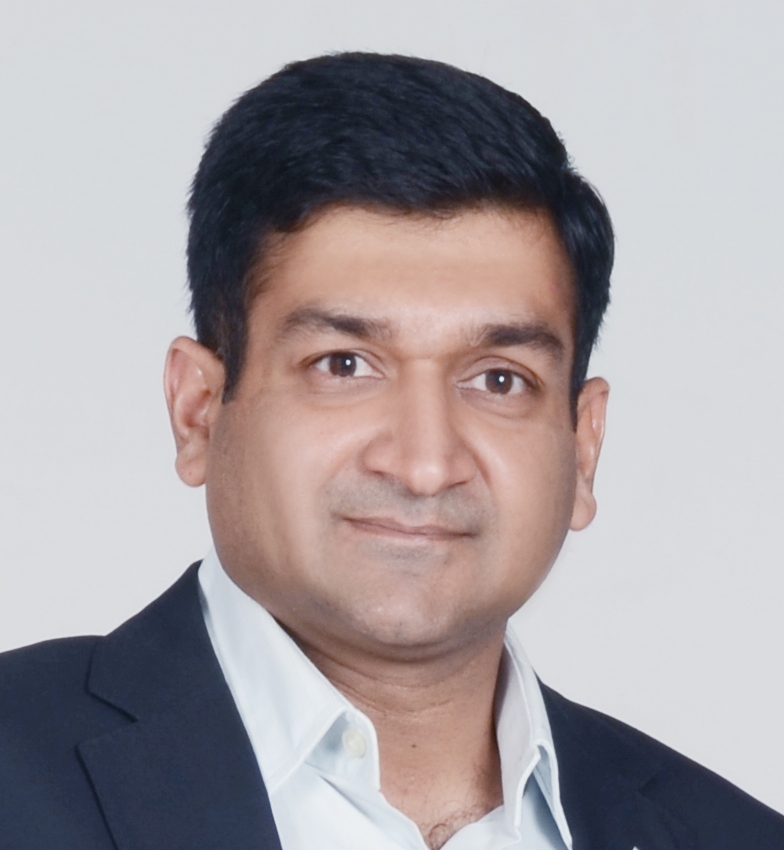
India for the first time has moved into the top 100 in the World Banks Ease of Doing Business (EODB) global rankings from last years 130. The latest ranking is a significant achievement for India, which has been working on the 10 criteria to improve the ease of doing business. The improvement will further enhance Indias attractiveness amongst the global investors.
The speed at which reforms have been happening have been remarkable and it was only a matter of time, before India was rewarded for its initiatives. One of the most important reforms has been GST and unfortunately that has not be considered in this years report owing to cut off date. We look forward to reforms related to Registration of Property & Commercial Courts being taken to logical conclusion and taking India in the elite top 50 club. CII is confident that on the reforms that are planned, India would see an equally impressive improvement next year
Airtel Shares Hit 52-Week High Despite Poor Show in September Quarter
MMNN:1 November 2017
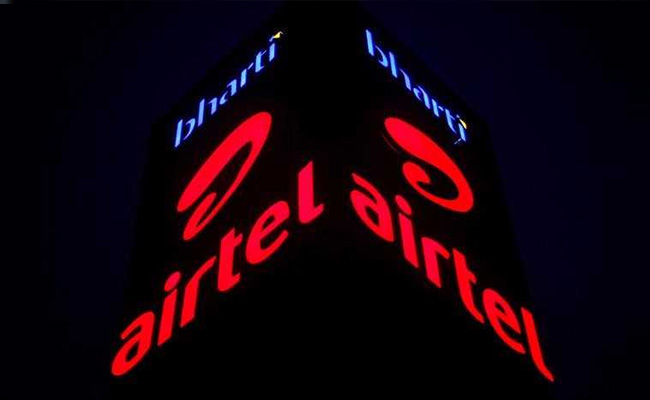
New Delhi: Shares of Bharti Airtel on Wednesday surged 9.5 per cent even as the company posted sixth straight quarter of drop in earnings as its consolidated net profit plunged 76.5 per cent for the September quarter. After making a positive opening, shares of the company further jumped 9.41 per cent to Rs. 544.50 - its 52-week high - on BSE. At NSE, shares of the company gained 9.49 per cent to touch its one-year peak of Rs. 544.40.
The stock was the biggest gainer among the bluechips on both the key indices during the morning trade.
India's largest telecom company Bharti Airtel on Tuesday posted sixth straight quarter of drop in earnings as its consolidated net profit plunged 76.5 per cent to Rs. 343 crore for the September quarter, hit by the price war triggered by newcomer Reliance Jio.
Airtel has warned that financial stress in the industry "continues" and will be "further accentuated" by cut in call connect charges in the next quarter (October-December).
The September quarter profit is the lowest since January-March 2013 for Bharti Airtel which like other established telcos has been engaged in a fierce tariff war with Mukesh Ambani-led Reliance Jio, to wrest control of the market.
The total revenue of Airtel - which has operations in 17 countries across Asia and Africa - fell 11.7 per cent to Rs. 21,777 crore during the quarter under review from Rs. 24,651.50 crore in the year-ago period.
The net profit was 6.5 per cent lower compared to Rs. 367 crore in the June quarter, but a whopping 76.5 per cent down over Rs. 1,461 crore logged in the corresponding period of last fiscal.
The Africa market fared better with revenue rising 2.8 per cent on an underlying basis, while the operating profit margins improved over 9 per cent year-on-year buoyed by "continuous cost control initiatives
Mahindra Logistics IPO: Should You Subscribe? What Brokerages Say
MMNN:31 October 2017
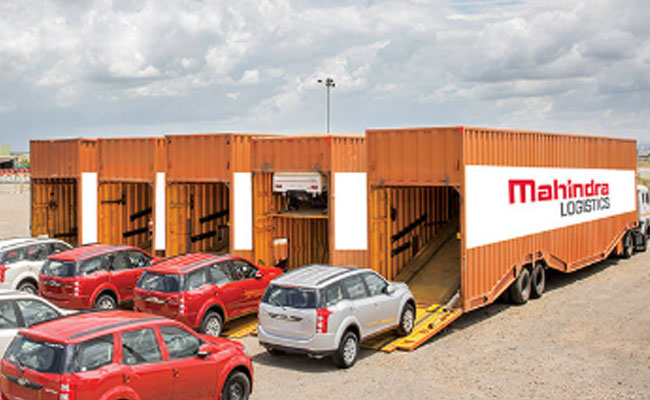
Mahindra Logistics Rs. 829 crore IPO opened today and will remain open till November 2 (Thursday). The IPO is priced in the band of 425-429/share, valuing the service provider at Rs. 3,052 crore at upper end of the price band of Rs. 429 per share. Retail investors can subscribe in lot size of 34 shares and in multiples thereafter. The issue is a 100 per cent offer for sale (OFS) issue with over 1.9 crore shares on offer in the IPO.. Through this IPO, the promoter, Mahindra and Mahindra, will sell total 96.7 lakh shares (R 411 crore on the lower band) and Rs. 415 crore on the upper band) while equal number of shares will be offloaded by some private equity investors. Capital. Promoter, Mahindra and Mahindra's stake would come down to 58.77 per cent after the IPO.
On Monday, Mahindra Logistics allocated 57.62 lakh equity shares at Rs. 429 per equity share to 15 anchor investors aggregating to Rs. 247.2 crore. As of 1:45 am, the issue was subscribed 26 per cent, according to NSE data.
Mahindra Logistics Limited, part of Mahindra & Mahindra group, is a third party logistics services provider. Mahindra Logistics was incorporated in 2007 and is one of the largest third-party party logistics solutions providers in India. The company follows an asset light model in which most assets (vehicles and warehouses) are owned /provided by its business partners. The company operates in two business segments": Supply Chain Management (SCM) and corporate People Transport Solutions (PTS). The supply chain management segment offers customized and end-to-end logistics solutions and services including transportation and distribution, warehousing, in-factory logistics and value added services to clients.
In corporate people transport solutions segment, Mahindra Logistics provides technology enabled people transportation solutions and services across India to over 100 domestic and multinational companies operating in the IT, BPOs, KPOs, financial services, consulting and manufacturing industries.
Mahindra Logistics IPO Registrar
Link Intime India is the registrar for Mahindra Logistics IPO.
Mahindra Logistics shares allotment and listing
Finalization of allotment around November 8 and listing on stock exchanges around November 10, according to a note from Aum Capital.
Mahindra Logistics Financials
In FY17, Mahindra Logistics posted net sales of Rs. 2,667 crore, growing at a CAGR of around 15 per cent from FY13, according to a note from Angel Broking. In the last few years, Mahindra Logistics has successfully diversified its business and 45 per cent of its revenues are derived by non-Mahindra clients. "The company hired global consultant McKinsey in 2015 to scale up its business, especially that of the non-Mahindra segment and results are clearly visible with the 17.5% top-line CAGR between FY2015-17," says Angel Broking in a note.
On the margins front, company saw margins improving from 2.4 per cent in FY2013 to 2.9 per cent in FY2017. Adjusted for the consultant fees paid to McKinsey, the FY2017 EBITDA o operating margins work out to be 3.6 per cent, indicating a 125 bps appreciation in the EBITDA margins since FY2013. Its adjusted PAT grew at a CAGR of 25 per cent from Rs. 24 crore in FY13 to Rs. 60 crore in FY17.
Mahindra Logistics IPO - What Brokerages Say
The Indian logistics industry is expected to grow and will benefit from these rising opportunities, says Aum Capital, which has a subscribe rating on the IPO. Mahindra Logistics' focus on enhancements in technology, leveraging on the changing logistics industry dynamics particularly with the implementation of GST regime and exploration in new business opportunities in new industry verticals shows bright prospects in the future, it added.
Domestic brokerage KRChoksey Research also has a subscribe rating on Mahindra Logistics IPO. " In terms of valuation, on the upper price band of Rs. 429, the company has been valued at around 65 times FY17 earnings as against 71 times for Blue Dart Express, 34.2 times for Gati Ltd and 54 times for TCI Express," it says. Though valuations look expensive, Mahindra Logistics "plans to support this growth by focusing on increasing business from non-Mahindra Group clients, leveraging the changing industry with the implementation of GST regime with greater focus on warehousing, continuing focus on technology enhancements and diversifying into other industry verticals," the brokerage says.
Another domestic brokerage Angel Broking has a subscribe rating to the issue, based on its growth story, diversification strategy, strong parent repute and post GST attractiveness of the logistics sector.
India's logistics industry is estimated at Rs. 6.4 lakh crore in FY2017 and it is expected to grow at a CAGR of 13 per cent to Rs. 9.2 lakh crore in FY2020. The logistics industry is dominated by transportation (nearly 88 per cent share of the logistics industry), which is expected to remain high over the next 3-4 years. Large segment of the industry is fragmented, hence dominated by the unorganized players.
The GST is seen as a game changer for the logistics sector. "As the sector is largely fragmented, the share of the unorganized players is very high in this sector. Implementation
of GST will result in most business decisions being focused on supply chain efficiency and not on state-wise tax benefits. Many businesses have already started considering a complete redesign of their supply chain network. This will be a boon to the logistics sector and to the large organized players in the sector," says Angel Broking.
Risk Factors
Mahindra Logistics depends significantly on clients in the automotive industry and is highly dependent on the performance of the automotive industry. A loss of or a significant decrease in business from clients in the automotive industry could adversely affect the business and profitability, says Aum Capital.
The company depends on a limited number of clients, which exposes to a high risk of client concentration, the brokerage adds. Fluctuations in the performance of the industries in which their clients operate may result in a loss of clients, a decrease in the volume of work they undertake or the price at which they offer their services
ONGC Gains 4% On Second Quarter Earnings
MMNN:30 October 2017
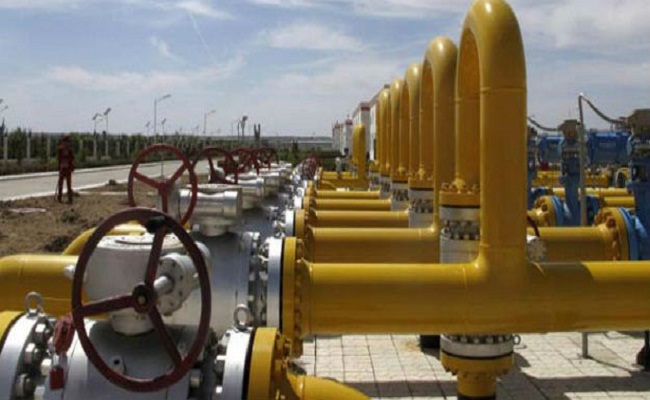
New Delhi: Shares of Oil and Natural Gas Corp (ONGC) on Monday rose by move than 4 per cent, after the company reported a 3.1 per cent rise in second quarter net profit. The stock gained 4.14 per cent to Rs. 191.15 on the Bombay Stock Exchange (BSE). At the National Stock Exchange (NSE), ONGC shares rose 3.99 per cent to Rs. 191.35. In terms of equity volume, 7.73 lakh shares of the company traded on BSE and over one crore shares changed hands at NSE in morning trade.
State-owned ONGC on Saturday reported a 3.1 per cent rise in second quarter net profit as impressive gain from rising oil prices were taken away by fall in government-mandated natural gas rates.
Net profit of Rs. 5,131 crore in July-September was 3.1 per cent higher than Rs. 4,975 crore reported for the corresponding period last year, the company said in a press statement.
Revenue was up 3.1 per cent at Rs. 18,966 crore.
State-level convention of Micro, Small and Medium Enterprises on November 17-18
MMNN:29 October 2017
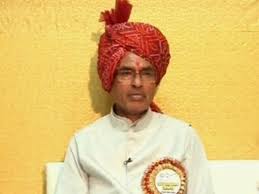
A state-level convention of Micro, Small and Medium Enterprises (MSME) is being organized in Bhopal on November 17-18 in the state. Chief Minister Shri Shivraj Singh Chouhan will inaugurate the convention while Union Minister of State Shri Giriraj Singh would be the chief guest.
Giving this information Principal Secretary Shri V.L. Kantarao told that the convention of Micro, Small and Medium Enterprises was started in the year 2016 in the state. Shri Rao told that this year a state-level Swarozgar Sammelan will also be organized besides an entrepreneur convention.
An attractive exhibition will be organized during the MSME convention in which MSME entrepreneurs will exhibit their products while big industries and public sector units will also put up their stalls. The exhibition will prove to be platform for big industries and MSME industries where units of both will get opportunities for mutual dialogue. It will also increase trade possibilities between the units. Technical sessions on five subjects related to MSME units will be held at the convention.
Online EDP to be started
An Entrepreneurship Development Programme (EDP) will begin on the first day of the MSME Convention on November 17. The scheme is special as it provides a month-long training to rural and urban literate youths to start their own enterprise and prepare entrepreneurs. They are then helped to set up their enterprise by helping them obtain loans through prevalent schemes in the state after the training. MIMSE Hyderabad has been authorized to make EDP online.
Seven awards to be given-
Principal Secretary Shri Kantarao told that 5 awards related to self-employment and two other awards would be given at the 2-day MSME convention. Any one district will be awarded in MUDRA Yojana and Stand-Up Yojana. Collector, Leading Bank Manager (LDM) and concerned District General Manager of any one selected district will be honoured for best performance in Mukhya Mantri Yuva Udyami Yojana, Mukhya Mantri Swarozgar Yojana and Pradhan Mantri Rozgar Srijan Karyakram.
The first three District General Manager and Collector will be awarded with the award started this year based on the completion of targets against the Udyog Aadhar Memorandum (UAM) allotted to districts in year 2016-17 and 2017-18 in the MSME Department. Micro and Small state-level awards will also be given at the convention. This award scheme has been implemented in 2006. In this the nominated committee selects first, second and third awards
Wall Street Ends Week On A High As Tech Stocks Surge
MMNN:28 October 2017

New York: Wall Street climbed on Friday as a surge in the tech sector and a rally in Amazon shares helped push the Nasdaq to its best day in nearly a year.
The S&P technology index led the way higher, up 2.91 percent. The index notched its best day since March 1, 2016 and is up nearly 35 percent on the year versus the 15-percent gain in the S&P 500.
Google-parent Alphabet gained 4.26 percent as its revenue got a boost from advertising sales. Microsoft jumped 6.41 percent after the world's largest software company reported further gains from its cloud computing services.
Also lifting the sector were shares of Apple , which rose 3.58 percent after the company allayed concerns of muted demand for its 10th anniversary phone. Intel soared 7.38 percent after its quarterly results topped estimates and the chipmaker raised its full-year forecasts.
Amazon, up 13.22 percent, was responsible for the biggest boost to the S&P 500 after reporting a quarterly sales surge. Its gains helped lift the consumer discretionary sector 1.60 percent to its best daily performance since Dec. 7.
"Anyone who is drawing parallels to the tech bubble of 1999 has to at least consider that this rally in those large names is really fuelled in large part by earnings, not just hope," said Jack Ablin, chief investment officer at BMO Private Bank in Chicago.
"They are the ones that everyone wants to own, has to own because they are the ones reporting the best earnings. They definitely came through, that is very positive."
"There are certainly similarities between the tech bubble and now, but the underpinnings of this rally are still a lot more solid."
Adding to the positive sentiment was the third-quarter GDP data that showed the U.S. economy unexpectedly maintained a brisk pace of growth, at a 3-percent annual rate, despite a hurricane-led drop in consumer spending and construction activities.
A report about President Donald Trump favouring Federal Reserve Governor Jerome Powell as the head of the U.S. central bank also provided a boost for stocks. In Powell's potential appointment, investors see a continuation of the current monetary policy.
The Dow Jones Industrial Average rose 33.33 points, or 0.14 percent, to 23,434.19, the S&P 500 gained 20.67 points, or 0.81 percent, to 2,581.07 and the Nasdaq Composite added 144.49 points, or 2.2 percent, to 6,701.26.
Forgot to update the weekly #'s. For the week, the Dow rose 0.5 percent, the S&P 500 gained 0.2 percent and the Nasdaq advanced 1.1 percent. The S&P has notched gains for seven straight weeks, its longest weekly winning streak in three years.
Earnings growth for the third quarter is now 6.7 percent, according to Thomson Reuters data. Of the 273 companies that have posted earnings, 74 percent have topped expectations, compared with the 72 percent beat rate over the past four quarters.
Not all earnings were positive, however. Chevron's 4.14 percent fall weighed on the S&P and the Dow after the oil company's profit missed estimates.
Merck dropped 6.05 percent after the company reported a revenue drop due to a cyber attack and loss of market share for many of its older drugs.
Advancing issues outnumbered declining ones on the NYSE by a 1.62-to-1 ratio; on Nasdaq, a 1.70-to-1 ratio favoured advancers.
About 7.43 billion shares changed hands in U.S. exchanges, above the 6.04 billion daily average over the last 20 sessions.
Sensex, Nifty Fall Off Record Highs, Yes Bank Slumps on Bad Loan Concerns
MMNN:27 October 2017
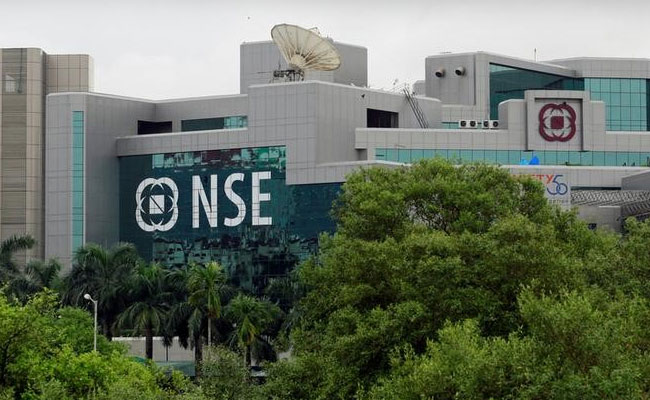
Mumbai: Indian shares traded flat on Friday, after hitting record highs earlier in the session, as Yes Bank Ltd slumped on concerns over bad loans, while investors booked profits in recent gainers.
The NSE Nifty and BSE Sensex were set to gain more than 1.9 per cent each for the week after the cabinet's decision to inject $32.4 billion into state-run lenders over the next two years boosted sentiment.
Analysts said markets may take a breather as investors digest corporate results. Indian Oil Corporation, down 1.5 per cent, and ICICI Bank Ltd, down 3.4 per cent, will report their numbers later in the day.
"Markets are looking at consolidating before moving," said Arun Kejriwal, founder, Kejriwal Research & Investment Services, an advisory firm.
The broader Nifty was down 0.11 percent at 10,332.35 as of 11.28am, and was headed for its biggest weekly gain in three.
The benchmark Sensex was 0.11 percent higher at 33,183.65, and was headed for its fourth consecutive weekly gain.
Shares of Yes Bank dropped as much as 9.9 percent to their lowest since July 5 and were the biggest drag on the Nifty after the lender's bad loan ratio jumped to 1.82 percent at end-Sept, while the classification of an additional 63.55 billion rupees ($978.03 million) as bad loans also raised concerns.
United Spirits Ltd surged as much as 17 percent to its highest since January 2016 after strong performance in the second-quarter. Its peers United Breweries Ltd, GM Breweries Ltd and Radico Khaitan Ltd also gained between six-ten percent.
Bank Recapitalisation Plan 'Monumental Step Forward': Urjit Patel
MMNN:26 October 2017
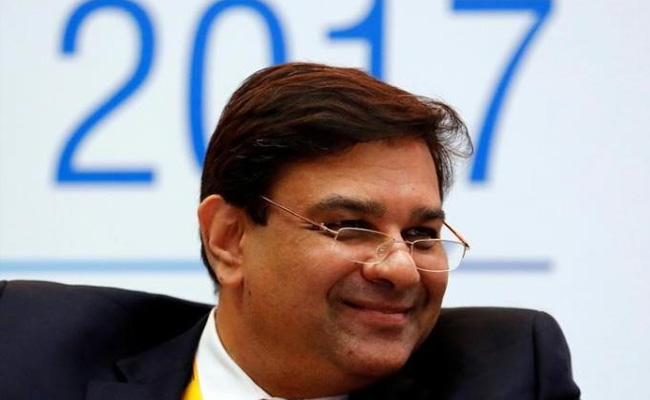
New Delhi: Reserve Bank of India Governor Urjit Patel said on Wednesday that the Rs. 2.11 lakh crore bank recapitalisation plan is a 'monumental step forward' in safeguarding India's economic future and a comprehensive policy would be put in place to address the challenges faced by the sector. Finance Minister Arun Jaitley on Tuesday announced that Rs. 2.11 lakh crore would be infused in public sector banks (PSU) banks over two years, of which Rs. 1.35 lakh crore will be through recapitalisation bonds. The remaining Rs. 76,000 crore would be from the budgetary support and market raising.
Welcoming the government's decision, Mr Patel in a statement said that a well-capitalised banking system is a pre-requisite for stable economic growth.
"Economic history has shown us repeatedly that it is only healthy banks that lend to healthy firms and borrowers, creating a virtuous cycle of investment and job creation. The Government of India's decisive package to restore the health of the Indian banking system is in the view of the Reserve Bank of India, a monumental step forward in safeguarding the country's economic future," he said.
Non-performing assets (NPAs) of banks have more than doubled to Rs. 7.33 lakh crore in June 2017 from Rs. 2.75 lakh crore in March 2015.
"For the first time in last decade, we now have a real chance that all the policy pieces of the jigsaw puzzle will be in place for a comprehensive and coherent, rather than piece-meal, strategy to address the banking sector challenges," Mr Patel said.
Outlining the 'desirable features' of the recapitalisation package, Mr Patel said the recapitalisation bonds will front-load capital injections while staggering the fiscal implications over a period of time.
"As such, the recapitalisation bonds will be liquidity neutral for the government except for the interest expense that will contribute to the annual fiscal deficit numbers," the governor said.
Mr Jaitley on Tuesday said that the impact of the recapitalisation bond on fiscal deficit would depend on the nature of the bond and who issues it.
The interest burden on the government for issuing recapitalisation bond would be about Rs. 8,000-9,000 crore, according to Chief Economic Advisor Arvind Subramanian.
Mr Patel said these bonds would involve participation of private shareholders of PSU banks by requiring that parts of the capital needs be met by market funding.
"Last but not the least, it will allow for a calibrated approach whereby banks that have better addressed their balance-sheet issues and are in a position to use fresh capital injection for immediate credit creation can be given priority while others shape up to be in a similar position," he said.
The issuance of bonds would provide for a good way of bringing some market discipline into a public recapitalisation programme compared to the past recapitalisation programmes.
Financial sector policies should support growth while maintaining financial stability, Mr Patel said.
"I commend the government on its bold steps in this direction, starting with implementation of the Insolvency and Bankruptcy Code that is helping resolve the underlying corporate stress, and culminating in yesterday's announcement of the public sector bank recapitalisation programme," Mr Patel said.
The RBI would work with the government to ensure these plans reach their natural completion to the benefit of the broader Indian economy, he added.
MPs new industrial policy is industry-friendly: CM Shri Chouhan
MMNN:25 October 2017
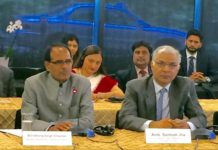
Chief Minister Shri Shivraj Singh Chouhan said that after making all essential infrastructure needed for industrial development in Madhya Pradesh, now the resolve is to double the income of farmers. Shri Chouhan was addressing a business seminar organized under the US-India Strategic Forum at Washington D.C. Shri Chouhan informed about the countless benefits of the new industrial policy of Madhya Pradesh to companies and investors showing interest in investment in Madhya Pradesh and invited them to the state. He said that the new industrial policy of Madhya Pradesh is totally industry-friendly.
Shri Chouhan said that Madhya Pradesh has progressed in every field in the last one decade. He explained in detail how irrigation area has increased in one decade and how investment started in new fields like food processing. Shri Chouhan said that food is reaching our dining tables directly from the fields due to strong logistics infrastructure. He said that the focus is fully on organic farming now which is also being expanded. He appealed to the investors to visit Madhya Pradesh with their delegation and reap benefits of investment possibilities.
CM Shri Chouhan said that skills of 7.5 lakh youths are being enhanced every year in Madhya Pradesh. These Youths are capable enough to take up the responsibility of all kinds of industries with their talent and capacity. Several types of discounts are being granted to the new industrial projects. Several foreign companies showed interest in investment in the fields like defence, production, storage, cheap flights etc.
Principal Secretary Industry Shri Mohammed Suleman gave a detailed presentation on policy-based reforms that promote states industrial scenario and industries. Americas business community, industrialists, intellectuals, commerce experts and heads of multinational companies took part in the forum.
Crackdown On Shell Companies Has Unearthed $1 Billion Cash, Says Minister
MMNN:24 October 2017
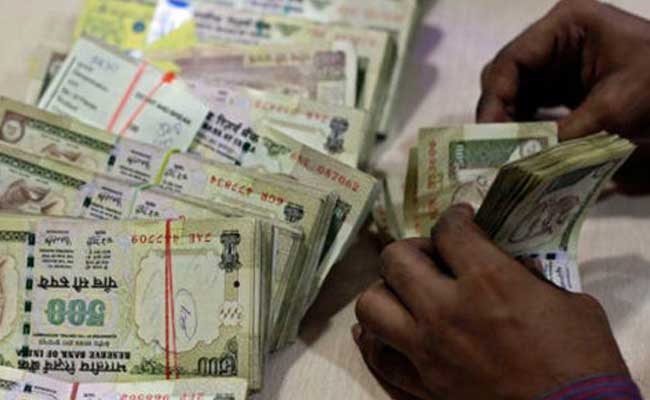
The government is intensifying its crackdown on dubious companies after it unearthed over $1 billion in suspicious cash deposits as part of its crackdown on corruption and efforts to boost foreign investment, a union minister has said.
While the government has already de-registered the business licenses of over 200,000 companies, and restricted their bank accounts, it is now working on limiting property transfers to trace any further generation of black money, said P.P. Chaudhary, junior minister for corporate affairs, in an interview last week in New Delhi.
The ministry is probing deposits of over $1 billion made by around 20,000 companies during the cash ban last year, while its Serious Fraud Investigation Office is investigating 1,505 companies for allegedly violating the Companies Act. It is examining another 809 listed companies, found untraceable by SEBI, to check their status, existence of their offices and directors, the minister said.
"Our purpose is to increase compliance so that investors' confidence increases in Indian companies," Mr Chaudhary said. "This will also attract foreign investors who would be sure that the companies they are investing in are genuine. We will have to curb shell companies if we want to increase confidence of investors in India."
Anti-Corruption Platform
After winning the 2014 election in a landslide on the promise of tackling corruption and improving the ease of doing business, Prime Minister Narendra Modi has been taking measures to prevent money laundering, counterfeiting, hoarding and tax evasion. In November last year, he withdrew 86 percent of currency in circulation aiming to crackdown on unaccounted wealth and put an end to the country's vast shadow economy. In an Independence Day speech on August 15, PM Modi claimed the move had unearthed over 300,000 shell companies.
Following his speech, the ministry of corporate affairs struck off the names of 217,239 companies for failing to comply with regulatory requirements and disqualified directors on these companies' boards from assuming directorship at other firms.
"The final list of disqualified directors may touch up to 450,000," Mr Chaudhary said. "The companies which deposited money during demonetization are being investigated using artificial intelligence".
Data Mining
The ministry is conducting a massive data mining exercise to trail ultimate beneficiaries of these companies. Using data analytics and artificial intelligence, the information gathered will be used to take action against the offenders, the minister said.
It's also developing a state-of-the-art early warning system using artificial intelligence that will throw up red flags and provide information in case a company's financial health deteriorates or if its transactions are suspect.
"In the absence of technology we can be reactive but not proactive," the minister said. "To be proactive it is necessary that we develop artificial intelligence.
Unitech's Sanjay Chandra Asked To Deposit Rs. 1,000 Crore, No Bail Again
MMNN:23 October 2017
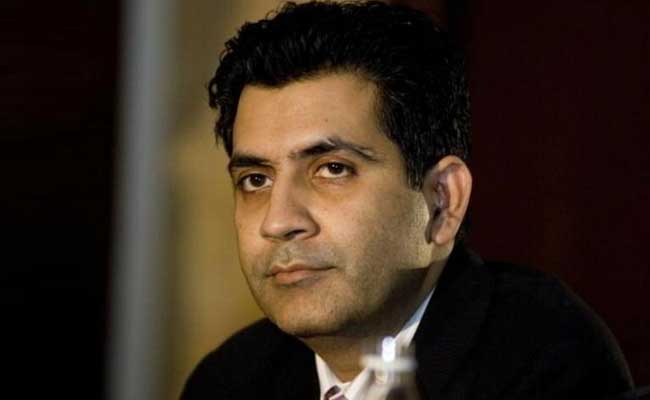
The Supreme Court on Monday refused to entertain the bail plea of real estate developer Unitech's Managing Director Sanjay Chandra and asked the real estate major to deposit Rs. 1,000 crore to prove its bonafides. Refusing the bail plea, a Supreme Court bench of Chief Justice Dipak Misra, Justice AM Khanwilkar and Justice DY Chandrachud suggested that the partially complete flats of the real estate major spread over its 64 projects across the country be auctioned.
The suggestion came after senior counsel Ranjit Kumar, appearing for Unitech, told the court the company could sell the flats in the 64 projects to raise money to refund the flat buyers. Amicus curiae (court's advisor) Pawan Shree Agrawal told the court that Rs. 1,865 crore was needed to pay the flat buyers who want refunds.
Ranjit Kumar, appearing for Unitech, urged that Chandra be granted bail for four to five weeks, adding he would during this period submit plans for raising the money for refunding the flat buyers.
He argued that Mr Chandra cannot raise the money required both for refunds and completing the ongoing projects without coming out.
Mr Chandra and his brother Ajay were arrested in April this year after flat buyers who did not get their flats as promised filed complaints of cheating against them. The Chandra brothers had moved the top court against the 11 August order of the Delhi High Court refusing to grant interim bail to them.
Corporate India Slashes Diwali Gifts Budget By 40%, Finds Survey
MMNN:18 October 2017

Lucknow: In sync with low-key festivities due to slowdown concerns and pressure on their balance sheets, corporate India is going rather lukewarm in Diwali gifts this year, slashing the budget by at least 35-40 per cent under this head, says a survey by industry chamber Assocham.
The reduction in gifts from corporate houses to their associates, networked partners, employees and other key personalities is more for outside connects than employees who are more or less receiving their annual gesture from their employers, the industry body said.
However, there has certainly been a downward impact on bonus payments with several corporates reeling under debt and cutting costs in their overall operations. Besides, disruptions arising out of demonetisation and roll out issues of the Goods and Services Tax (GST) too have affected the overall sentiment, it said.
"Consequent to slowdown in the Diwali gift sale, the FMCG companies which generally bet high on festive sales in the business of chocolates, cookies and sweets are reporting less than normal sales.
"Similar is the case with consumer durable firms engaged in washing machines, refrigerators, ovens, electric stoves and other such items. Even the festive sale of high-end smartphones seems to have taken a hit," Assocham secretary general D S Rawat said.
"The survey endorses the general low key mood of the industry and trade with the considerable trimming of the festive budget," he said.
The Associated Chambers of Commerce and Industry of India (ASSOCHAM) had conducted a telephonic survey of about 758 companies across tier I, II and III cities - Ahmedabad, Bengaluru, Chennai, Delhi-NCR, Hyderabad, Jaipur, Kolkata, Lucknow, Mumbai in the run-up to Diwali.
Dhanteras 2017: Gold Prices Lose Sheen, Silver Also Falls
MMNN:17 October 2017
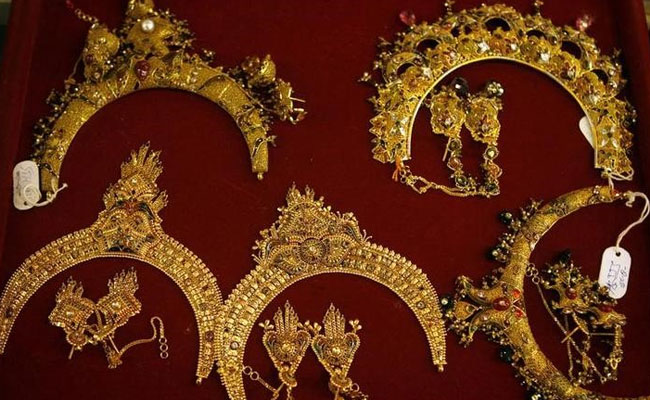
Gold price was subdued today even on the auspicious occasion of Dhanteras 2017 due to negative global cues. Spot gold closed Rs. 140 lower at at Rs. 30,710 per 10 grams due to a weak trend overseas even as the metal witnessed token buying by retailers and jewellers on auspicious 'Dhanteras'. In New Delhi, gold of 99.9 and 99.5 per cent purity fell by Rs. 140 each to Rs. 30,710 and Rs. 30,560 per ten gram, respectively.
In futures trading at the MCX, gold for delivery in December too was down by Rs. 104, or 0.35 per cent at Rs. 29,750 per ten gram.
Analysts said that apart from profit-booking by speculators at existing levels, fresh weakness in gold rate overseas weighed on gold futures.
Experts are not very hopeful of an uptick in gold demand during Diwali. "Even this Diwali, we will see gold buying like every year but nothing overwhelming that significantly lifts demand. This again, in a way, is a reflection that India continues to remain a price taker and global macros continue to set the price of gold. Given that the dollar index has appreciated over the past two days, some correction in gold prices is being seen despite auspicious buying during Dhanteras," said Chirag Mehta, Senior fund Manager, Alternative Investments, Quantum Mutual Fund.
Silver also recorded a fall of Rs. 400 to Rs. 41,000 per kg even as retailers made token buying in coins. Silver ready also dropped by Rs. 400 to Rs. 41,000 per kg, while weekly-based delivery was down Rs. 490 at Rs. 39,990 per kg.
Globally gold fell 0.45 per cent to trade at $1,288.70 an ounce in Singapore, while silver shed 0.64 per cent to $17.09 an ounce.
Meanwhile, Finance Minister Arun Jaitley today launched gold options trading on MCX and said this is one of the steps towards formalising gold trade. After the success of the gold options, MCX said it will approach the regulator Sebi (Securities and Exchange Board of India) seeking permission for other commodities like cotton, crude palm oil, silver and copper.
A Chipmaker Seeks iPhone Ban In China: Here's Why
MMNN:14 October 2017

Qualcomm Inc confirmed an earlier report that the chipmaker had filed lawsuits in China, seeking to halt the manufacture and sale of Apple Inc's iPhones in the country.
Qualcomm filed the suits in a Beijing intellectual property court, claiming patent infringement and is seeking injunctive relief, a company spokeswoman confirmed on Friday, but did not provide further details.
Bloomberg had earlier reported about the lawsuits in China.
Apple's shares were marginally up, while Qualcomm shares were marginally down in late-afternoon trading.
The iPhone maker has always been willing to pay fair and reasonable rates for the patents it uses, Apple told Reuters in an email.
"In many years of ongoing negotiations with Qualcomm, these patents have never been discussed and in fact were only granted in the last few months," Apple said.
Apple is waging a global legal battle on Qualcomm's long-held practice of charging a percentage of the total price of iPhones and other Apple devices as a licensing fee for its patents.
Bharti Airtel Shares Jump On Tata Teleservices Deal
MMNN:13 October 2017
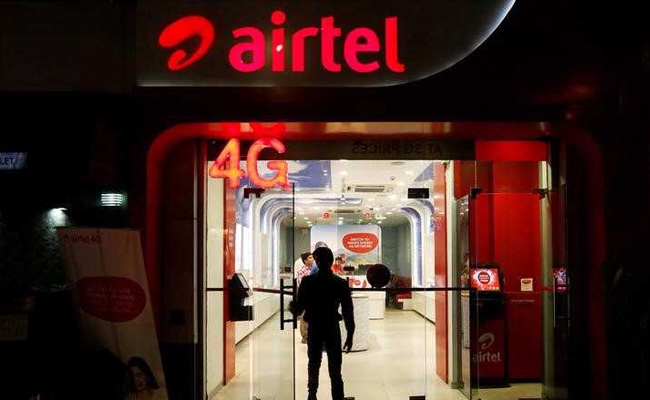
Mumbai: Bharti Airtel Ltd saw its share price surge as much as 8 percent in early Friday trade as investors cheered its purchase of Tata Group's mobile arm, in a deal that secures 40 million new clients and spectrum at little cost.
The deal with Tata Teleservices Ltd "is a sweet one for Bharti," domestic brokerage Kotak said in research note, raising its recommendation on Bharti stock to "add" from "reduce."
Bharti shares were up 7.08 percent at 12.35 pm, outpacing the broader NSE index's 0.63 percent. Shares of Tata Teleservices (Maharashtra) Ltd, a Tata Teleservices unit, were up 9.1 percent.
The deal outlined on Thursday, dubbed "debt-free (and) cash-free", spares Tata Group the trouble of any potentially drastic restructuring of the money-losing operation.
For Bharti - India's biggest telecommunications network operator - the deal could protect its lead, Bank of America Merrill Lynch said in a research note.
India's telecoms market has seen rapid consolidation since the entrance of Reliance Jio Infocomm Ltd sparked a price war.
The Indian unit of Britain's Vodafone Group PLC and Idea Cellular Ltd, the country's second and third biggest telecoms firms respectively, have won antitrust approval to merge. In addition, Bharti has agreed to buy the local unit of Norway's Telenor ASA.
Credit Suisse in a research note said Bharti's latest deal boosts its market position in the face of a Vodafone-Idea combination, and keeps the two roughly equal in terms of spectrum and revenue.
Uttar Pradesh Announces 30-Day Diwali Bonus For 8 Lakh Government Employees
MMNN:12 October 2017
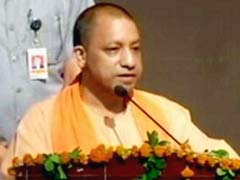
Lucknow: Uttar Pradesh Chief Minister Yogi Adityanath has announced a 30-day Diwali bonus for eight lakh government employees, a move which will cost the exchequer Rs. 967 crore.
An official statement issued by the UP government on Wednesday said the bonus for an employee will be up to Rs. 6,908.
All government employees including daily wagers, local bodies and government-aided school staff would get the benefit.
This will cost the state exchequer Rs. 967 crore, a UP government spokesperson said
PM Modi's Economic Advisory Team To Focus On Growth, Jobs: 10 Points
MMNN:11 October 2017
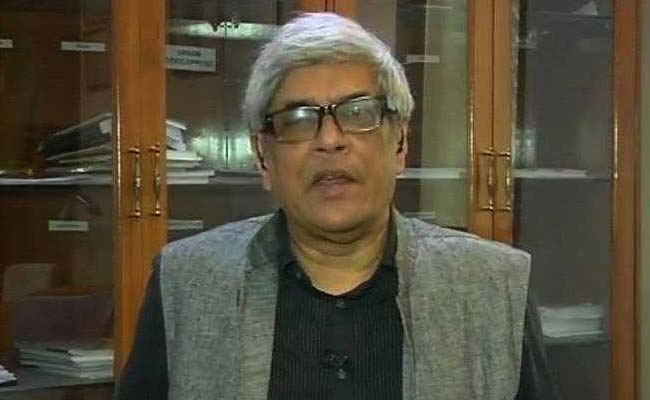
Prime Minister Narendra Modi's newly-constituted Economic Advisory Council has picked 10 issues to work on first, with a focus on accelerating growth and jobs, said economist Bibek Debroy, who heads the five-member panel, after its first meeting today. Mr Debroy chaired the meeting, with the government's Chief Economic Advisor Arvind Subramanian making a presentation.
:
Here is your 10-point cheat-sheet to this story?
1-
Mr Debroy, who is also a member of plan body Niti Ayog, said the council has identified major priorities for accelerating growth and employment over the next six months, identifying 10 themes around which detailed reports will be prepared by its members in consultation with government ministries and departments.
2-The need for "effective tracking of key economic parameters through possible mechanisms for instituting an economic tracking monitor using lead indicators and triggers for action and based on informed assessment and analysis" was also discussed.
3-"We will give our recommendations to the Prime Minister," said Mr Debroy, emphasising that it will be an "exercise of teamwork," and that the council will use resources of government departments like the Niti Aayog. The council would provide professional inputs into the policy making process, members said.
4-The next formal meeting of the Economic Advisory Council will be held in November. Panel member Surjit Bhalla said the council's next focus will be on the Budget.
5-PM Modi set up the Economic Advisory Council last month amid concerns over a slowdown as economic growth slumped to a three-year-low of 5.7 per cent in the June quarter.
6-Yesterday, the International Monetary Fund (IMF) lowered its growth projection for India to 6.7 per cent, from 7.2 per cent, in 2017, attributing it to demonetisation and the introduction of national tax GST. The IMF however said the slowdown is a "blip" and India will regain the tag of the world's fastest growing major economy, projecting the economy to grow at 7.4 per cent in 2018.
7-The government has been attacked by political rivals and by former union ministers like Yashwant Sinha and Arun Shourie over the June quarter slump and over what the opposition has called poor implementation of GST.
8-Finance Minister Arun Jaitley, who is in the US to attend annual meetings of the IMF and the World Bank, said the transition to GST has been "fairly smooth" despite attempts by "ill-informed" Opposition leaders to derail its implementation.
9-In a speech last week, PM Modi defended his economic policies asserting that fundamentals are strong and that the government is committed to reversing the setback of the June quarter. PM Modi stated that a "handful of people" are trying to spread a contagion of pessimism based on the slowdown of the June quarter.
10-The Economic Advisory Council is made up of top economists. Apart from Mr Debroy, who is also a member of plan body NITI Aayog, it includes Surjit Bhalla, Rathin Roy and Ashima Goyal. Ratan Watal, principal adviser of NITI Aayog, is the member secretary of the council.
Gujarat Government's Diwali Gift: VAT On Petrol, Diesel Cut By 4%
MMNN:10 October 2017
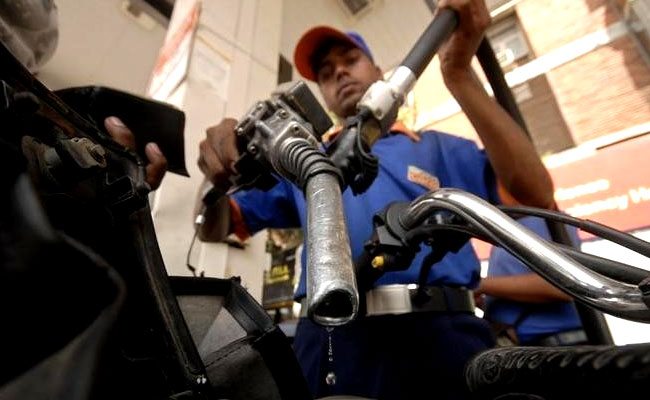
Gandhinagar: The Gujarat government has decided to reduce the value added tax (VAT) on petrol and diesel by 4 per cent, Chief Minister Vijay Rupani said on Tuesday. The reduction in tax comes just before Diwali in the state, where the Assembly polls are due around the year-end.
"After the central government's instructions, Gujarat has decided to reduce VAT on petrol and diesel by 4 per cent from today mid-night," Rupani said at a press meet here.
With this rate cut, the price of petrol will come down by Rs. 2.93 and that of diesel by Rs. 2.72 in the state, he said.
The effective price of petrol in Gujarat from mid-night on Tuesday will be Rs. 66.53 per litre and that of diesel Rs. 60.77 per litre, the chief minister added.
Because of this move, the state government will suffer a loss of Rs. 2,316 crore annually.
"But we have taken this decision in the interest of people," Rupani said.
The lowering of tax in the poll-bound Gujarat follows Union Finance Minister Arun Jaitley recently writing to all state governments nudging them to reduce taxes on petrol and diesel.
The Centre had recently brought down excise duty on petrol and diesel by Rs. 2 per litre.
Later the day on Tuesday, Maharashtra also followed in the footsteps of the Gujarat government and Centre to slash petrol and diesel rates
Make In India' Diwali: Sale Of Chinese Items May Drop 45%, Says Report
MMNN:9 October 2017

As people across the country get ready to go shopping ahead of Diwali, customers are increasingly asking for India-made products, said a survey by the Associated Chambers of Commerce of India (Assocham), an industry body. Assocham noted that there seems to be a decline of about 40-45 per cent in consumption of Chinese products this Diwali in comparison to last year. In recent times, China-made fancy lights, lampshades, Ganesha and Laxmi idols, rangolis and fire crackers have flooded the markets.
Be it decorative items like lights, gift items, lamps and wall hangings or other products, the sale of Chinese products may decline by 40-45% this Diwali as compared to last year which was about 30% according to market reports from various states, the survey by Assocham-Social Development Foundation (ASDF) showed.
According to an estimate, the value of Chinese goods sold in 2016 during Diwali was around Rs. 6,500 crore. Out of the total, goods over Rs. 4,000 crore were Diwali-related items such as toys, fancy lights, gift and decorative items, plasticware etc.
Shopkeepers interviewed for the survey said that people are not interested in purchasing Chinese products and are showing interest in local products including earthen diyas.
The demand of electronic items like LCDs, mobile phones and others items made in China has also declined by 15-20 per cent, said Mr D S Rawat, Secretary General ASSOCHAM releasing the Assocham paper.
Chinese products, especially fancy lights which were much sought-after by Indian customers, are losing their popularity due to quality issues as no shopkeeper gives guarantee on these items once they are sold.
Fire crackers made at Sivakasi in Tamil Nadu are preferred over their Chinese counterparts, the survey said.
Assocham interacted with wholesalers, retailers and traders in cities of Ahmedabad, Bangalore, Bhopal, Chennai, Dehradun, Delhi, Hyderabad, Jaipur, Lucknow and Mumbai to estimate the demand for Chinese products across India.
GST Council Announces Relief For Exporters, E-Wallets From April?
MMNN:7 October 2017
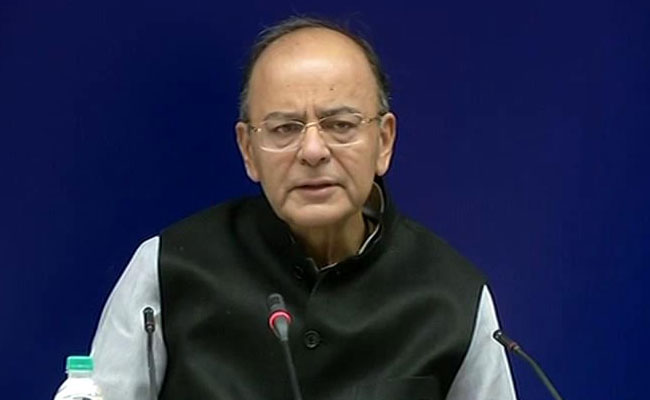
The GST Council in its 22nd meeting on Friday announced a slew of relief for exporters, some of whom are facing working capital squeeze due to delayed tax refund. Finance Minister Arun Jaitley, who heads the Council, said that the refunds for exporters will be expedited. For July, refund cheques of exporters will be processed by October 10 and for August exports by October 18. Mr Jaitley also said that an electronic wallet (e-Wallet) will be set up by April, 2018 for refunds to exporters. Exporters will get a notional advance amount in their e-Wallets and it will be later offset with tax refunds.
Exporters have complained that delayed GST tax refunds have resulted in fund shortage, hurting normal operations. Fearing that a staggering Rs. 65,000 crore could get stuck in GST refunds, exporters had urged the government to fast-track the refund process and avoid further deterioration in their "liquidity situation."
Exports are a crucial segment of the Indian economy, accounting for nearly 20 per cent of the GDP or gross domestic product.
Under the pre-GST system, exporters did not pay taxes for import of inputs for export purposes. But after GST came into effect, they had to pay Integrated Goods and Services Tax or IGST, which locked up their working capital, in absence of a quick refund mechanism.
The GST Council on Friday hiked the threshold limit of the composition scheme to Rs. 1 crore, from Rs. 75 lakh, The move will ease the compliance norms for small businesses. Businesses with annual turnover up to Rs.1 crore can now opt for the composition scheme, which enables them to pay tax at a flat rate without input credits. The objective of the optional composition scheme is to bring simplicity and to reduce the compliance cost for the small businesses. By opting to pay for tax under this scheme, small businesses can pay tax at a prescribed percentage of the turnover every quarter, instead of paying tax at normal rate.
The tax rates under composition scheme is 1 per cent for traders, 2 per cent for manufacturers and 5 per cent for restaurants. In the services sector, composition scheme is available only for one sector - restaurants. The businesses which opt for composition scheme have to file only one quarterly return with details of total turnover.
Mr Jaitley also said small businesses (turnover of up to Rs. 1.5 crore) would be allowed to file tax returns once a quarter instead of monthly returns.
Tax experts have welcomed the move. "The focus was on small businesses and exporters who were facing lot of issues in terms of compliances, refunds etc," said Pratik Jain of PwC. "This was perhaps the most important GST Council meeting after implementation of GST. Some far reaching decisions have been taken. Providing an option of quarterly return for all businesses up to Rs. 1.5 crore turnover is also a welcome step," he added.
MAS Financial Services IPO Off To A Strong Start: Should You Invest?
MMNN:6 October 2017
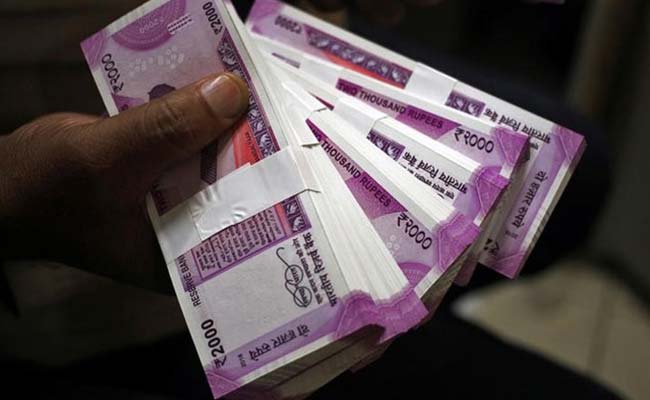
The IPO of MAS Financial Services opened today and by later afternoon it was subscribed nearly 70 per cent. The Gujarat-based non-banking financial company (NBFC) is set to raise Rs. 460 crore from the primary market through an initial public offer (IPO). The MAS Financial Services IPO opened for subscription today. Priced in a band of Rs. 456-459, the MAS Financial Services IPO is a mix of fresh issue and offer for sale by early investors and will give the company a post-issue valuation of Rs. 2,500 crore. The MAS Financial Services IPO can be subscribed in a lot size of 32 shares. Motilal Oswal Investment Advisors is the book running lead manager of the MAS Financial Services IPO.
Should You Invest In MAS Financial Services IPO?
1) The MAS Financial Services IPO is a mix of fresh issue (Rs. 233 crore) and offer for sale (Rs. 227 crore) by early investors like Sarva Capital and DEG (an entrepreneurial development bank of the Netherlands). The company want to use the proceeds of the MAS Financial Services IPO for augmenting its capital base to meet future capital requirement.
2) Gujarat-headquartered MAS Financial Services has been in operation for more than two decades. Its branches are spread across six states and the NCT of Delhi. The company started its operation with focus on micro enterprises (ME) loans and gradually expanded its loan portfolio to two-wheeler and commercial vehicle, SME and housing loans. To leverage its existing client base and network further, it has now extended loans to agricultural input and equipment segment.
3) MAS Financial Services' persistent efforts towards expanding distribution and diversifying product/customer franchise have resulted in a strong 33.4 per cent CAGR in its asset under management (AUM) during FY2013-17, says domestic brokerage IIFL. As of Q1 of FY18 its AUM stood at Rs. 3,451.7 crore with 60 per cent coming from ME loans and 23 per cent from SME loans.
4) Despite the robust growth in its AUM, MAS Financial Services' gross non-performing loans and credit costs have remained in a band of 1-1.2 per cent over the past many years, The company has a revenue-sharing arrangement with large number of sourcing partners, who are accountable for the quality of the loan. According to IIFL, such commercial arrangements have led to lower delinquency rates for MAS Financial Services. Its capital adequacy ratio (CAR) also remained robust at 23.8 per cent as of June 30, 2017.
5) MAS Financial Services has reported a net profit of Rs. 69 crore on net interest income (NII) of Rs. 172 crore in the previous fiscal year. Its net profit has grown at a CAGR of 26.43 per cent while its NII has witnessed a CAGR of 24.75 per cent over the FY2013-2017. At the upper end of the price band, MAS Financial Services shares are valued 3.7 times its post-issue book value, says IIFL. The brokerage has a 'subscribe' rating on the issue. "This valuation should be palatable for long term investors considering the impressive RoE profile of the business," the brokerage said. Angel Broking also has a "subscribe" rating on the issue.
The company deals with relatively risky customers and any default from them could affect its business negatively, say analysts. 22 per cent of MAS Financial Services' portfolio consists of unsecured loans, which could be a potential risk, according to brokerages
Prataap Snacks Makes Blockbuster Debut, Shares Soar 40% On Listing
MMNN:5 October 2017

Prataap Snacks, the maker of Yellow Diamond Chips which is endorsed by actor Salman Khan, made a blockbuster debut on stock exchanges today. Its shares rose as much as 40 per cent to an intraday high of Rs. 1,318.80 compared to its issue price of Rs. 938. With 40 per cent listing gains, Pratap Snacks joins a league successful IPOs in 2017 which include Capacit'e Infraprojects, Dixon Technologies, CDSL, Hudco, Avenue Supermarts and Shankara Building Product.
The initial public offer (IPO) Pratap Snacks, which ended on September 26, saw a robust subscription of 47 times. The portion reserved for institutional investors was subscribed 76.89 times while the segment reserved for non-institutional investors and retail investors saw subscription of 101.15 and 8.48 times respectively. Its Rs. 480 crore IPO was a mix of fresh issue (Rs. 200 crore) and offer for sale by existing investors.
Prataap Snacks issue was priced in a band of Rs930-938 per share. The company, which makes products under the 'Yellow Diamond' brand, aims to use the proceeds to expand capacity, marketing and brand building activities and retire the debt on its books.
According to Angel Broking, Pratap Snacks shares were issued at a steep valuation. At the upper end of the price band, Pratap Snacks shares were valued at 202 times its FY17 earnings, said Angel Broking.
However, despite steep valuation the issue got good response due to its strong growth prospects and earnings track record, say analysts. Pratap Snacks reported a revenue CAGR of 27 per cent during FY13-17.
Pratap Snacks shares closed 25.86 per cent higher at Rs. 1,180.65 apiece compared to its issue price of Rs. 938.
SBI Life Insurance Has A Modest Debut. Should You Buy Shares Now?
MMNN:3 October 2017
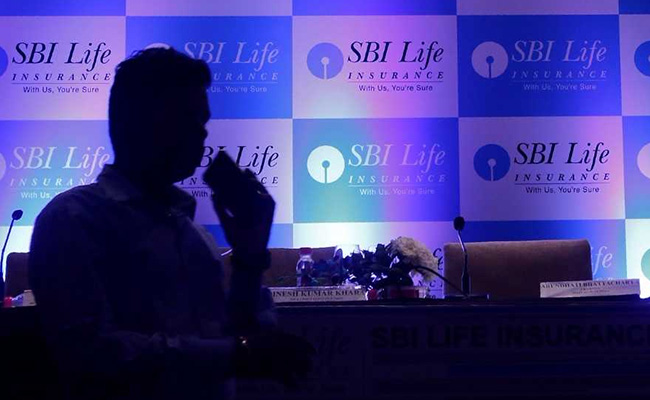
Mumbai: SBI Life Insurance Co Ltd made just modest gains in its trading debut on Tuesday after its IPO - India's biggest in seven years - raised $1.3 billion at valuations widely viewed as steep.
Although India could notch up a record-setting year for IPOs with almost $6 billion in deals done so far in 2017, concerns about high valuations have started to emerge with the stock market starting to pull back after a string of record highs.
Shares in India's biggest private sector life insurer, majority-owned by State Bank of India, were 3.6 percent higher than their IPO price of Rs. 700 on the National Stock Exchange in afternoon trade. At one stage they rose as much as 5.7 percent.
Some debuts earlier this year have been much stronger, with Avenue Supermarts, for example, doubling in price on its first day of trade. SBI Life's gains were, however, in line with ICICI Lombard General Insurance's performance last week when it ended its maiden day of trade 3 percent higher.
SBI Life's IPO, which raised funds for its two main shareholders, saw its valuation jump to Rs. 70,000 crore from an estimate Rs. 46,000 crore in December when it sold a small stake to investors including KKR & Co and Temasek.
Vrinda Aditya, an analyst at Asit C. Mehta Investment Interrmediates Ltd, said although the debut had not been particularly strong, she believed SBI Life was an attractive stock to hold long-term given rosy prospects for India's insurance industry.
"Overall for the insurance industry, it is growing much faster compared to its global peers, so lots to look forward to. But pricing and valuation will remain key in deciding the fate of upcoming IPOs," she said.
Insurers are expected to benefit from rising income levels in the world's second-most populous nation, where comparatively few people currently take out insurance.
IIFL Investment Managers has estimated India's gross direct premium income, a key metric for insurers, was only 0.77 percent of gross domestic product last year, compared to the global average of 2.81 percent.
RBI Policy, PMI Data Hold Key To Stock Markets This Week
MMNN:2 October 2017
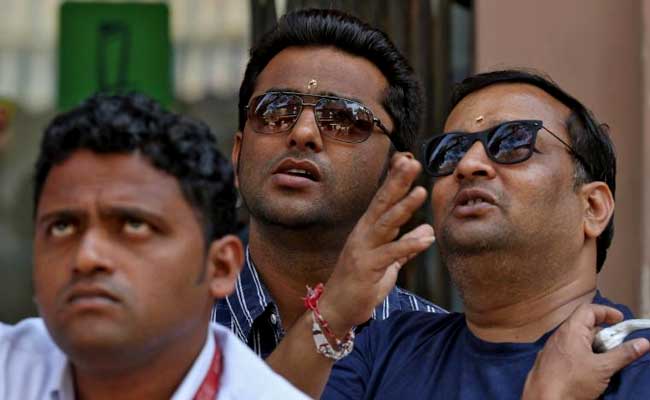
Outcome of RBI policy meeting, macroeconomic data points and investment trend of overseas investors will be the prime pointers of direction for the stock market this week, say experts. The markets are closed today for Gandhi Jayanti. "Going ahead, we expect the focus to shift to RBI's
policy and upcoming quarterly results and globally, on unwinding of balancesheet by the US Fed and the oil prices trend," said Teena Virmani, Vice-President - PCG Research, Kotak Securities.
PMI (Purchasing Managers' Index) data on manufacturing and services sectors, due this week, are also key determinants for the market movement, experts added.
"Last week, weakness in the indices continued, with the rupee becoming weak and crude prices rising. FIIs continued to be net sellers in Indian equities. However, DIIs gave good support with positive flows. The results season is approaching and in our opinion, FIIs would come back with positive flows if results are in line with expectations. One needs to closely watch FII flows, going ahead," said Anita Gandhi, Whole-Time Director, Arihant Capital Markets.
Foreign investors continued to be in exit mode as they pulled out over Rs. 11,000 crore from stock markets in September.
Market participants are now primed for the upcoming RBI policy review slated for October 3-4.
"RBI policy meet is the key event to watch out for this week," said Vinod Nair, Head of Research, Geojit Financial Services.
Reliance Offers To Buy Back Latest iPhones From Jio Users For 70% Of Price
MMNN:29 September 2017
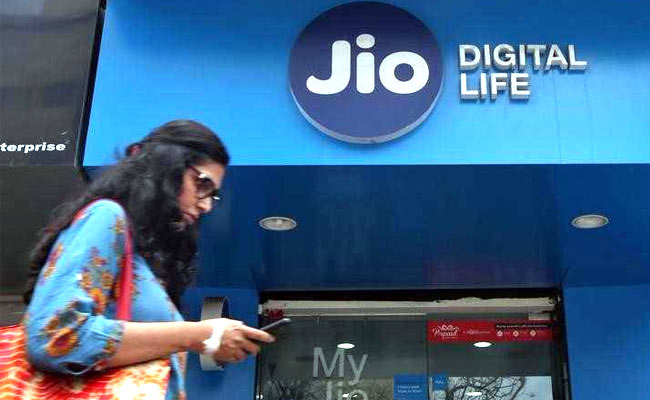
New Delhi: Reliance Industries is offering to buy back from Jio customers Apple Inc's latest iPhone models after a year's usage for 70 per cent of their price, a move that may boost the telecom unit's data sales and help the US firm expand in India. Cupertino, California-based Apple is keen to sell more iPhones in India, one of the world's biggest smartphone markets, as growth flags in its home market and China, but the high cost of its handsets has kept the aspirational smartphone out of the reach of hundreds of millions of Indians.
At an event on Friday to showcase Jio's launch of Apple's latest iPhones in India, Akash Ambani, the son of the country's richest man and Reliance chairman Mukesh Ambani, said the buyback offer would be available on all three latest models - the iPhone 8, 8 Plus and iPhone X.
The offer will be available to Jio customers who buy the iPhone and subscribe to its Rs. 799 monthly package for 12 months.
This is the first time a domestic telecom operator is offering such a hefty cashback.
The move could help boost Apple's market share in India from a meagre 3 per cent, while Reliance Jio could win the loyalties of high-spending Apple fans.
Apple is in talks with the government to make its phones in India and earlier this year started assembling its low-cost SE model in the country.
Reliance is already eyeing roughly 50 crore customers who use basic, low-cost phones through its Rs. 1,500 4G phone that blurs the line between a smartphone and a traditional feature phone.
The company, which has disrupted the price-sensitive telecom market, is eyeing between 25-30 crore customers in the next two years, a source told Reuters previously.
World Gold Council To Form Panel To Set Up Spot Gold Bourse In India
MMNN:28 September 2017

Mumbai: The World Gold Council (WGC) plans to form a committee soon to help set up India's first spot gold exchange within 12 to 18 months, a senior official of the industry body said on Thursday.
A dedicated exchange for physical gold is expected to pave the way for standard gold pricing practices in India, apart from bringing in transparency into a market which sees large cash transactions.
"We will be taking lead in forming the committee, which will have all the stakeholders," Somasundaram PR, managing director of the WGC's Indian operations, told Reuters.
The committee, which is likely to be formed in the December quarter, will not set up the exchange. It will provide guidance in setting up the exchange, he said, while releasing a WGC report highlighting the need for a dedicated spot gold exchange in the country.
In 2015, Indian government had floated the idea of setting up a national gold exchange.
India's push for an exchange follows the gold monetisation and sovereign bond schemes launched in last few years, designed to mobilise the country's gold hoard and reduce imports of the precious metal that weighs on the country's trade deficit.
The Multi Commodity Exchange (MCX) and National Commodity and Derivatives Exchange (NCDEX) currently offer gold futures contracts in India, but do not have a platform for physical trade.
A physical exchange would enable jewellers, retailers, refiners and banks to trade over a regulated platform, the WGC report said.
China, world's top gold consumer, runs such a bourse where gold, both domestically produced and imported, can be bought and sold.
RBI To Keep Rates On Hold In October, Cut Growth Forecast: Poll
MMNN:27 September 2017
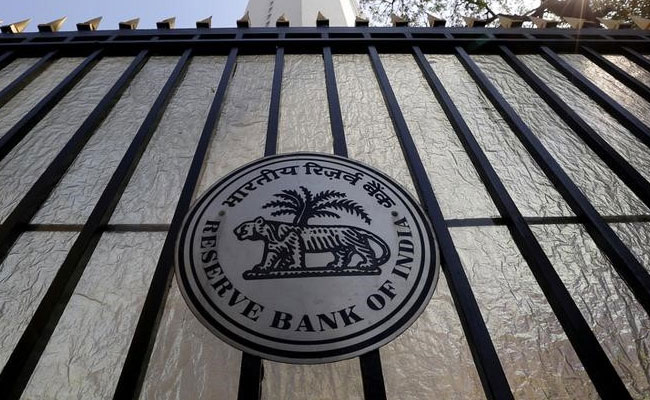
Bengaluru: The Reserve Bank of India will hold policy steady at its October 4 meeting, and well past next year, amid weak economic growth and signs inflation may soon overshoot its target, a Reuters poll found. Asia's third-largest economy started losing momentum after the government scrapped 86 per cent of currency in circulation late last year, hurting demand in the cash-reliant economy, and the slowdown was compounded by the implementation of a new tax system. In August, despite a neutral policy bias, the central bank cut the key policy rate after lowering its economic growth forecast in June to 7.3 per cent from 7.4 per cent for the current fiscal year.
The latest poll of 60 economists showed although the RBI will hold its key repo rate at a seven-year low of 6 per cent next week, it will downgrade its growth forecast again following disruptions caused by the new tax.
Introduced July 1, the national tax system caused confusion over product pricing and pushed activity in India's private sector into contraction.
Economic growth slowed to a three-year low last quarter, prompting some economists to lower their outlook.
"RBI has already been highlighting downside risks to growth, and that bias should now crystallize in the updated forecasts," said Abhishek Upadhyay, economist at ICICI Securities PD.
However, lacklustre growth and inflation hovering below the RBI's 4 per cent medium-term target - annual retail inflation was 3.36 per cent in August - would not be enough to drive the RBI into action, economists said.
Nearly two-thirds of forecasters who answered an extra question said there was a chance consumer inflation would overshoot the RBI's medium-term target this fiscal year and medians suggest the Bank would hold policy until at least April 2019, the end of the forecast horizon.
The reverse repo rate is expected to be left at 5.75 per cent across the same period.
However, not all economists are convinced the RBI will keep policy rates unchanged.
Credit Agricole CIB, Geojit Financial Services and Trust Capital predict a 25 basis point trim in the repo rate next week. Over a quarter of economists polled expect a cut by year-end.
"Growth is below the central bank's expectations and they will react to that by their easing policy stance as strong annual growth is not achievable after what happened in the first quarter of this fiscal year," said Darius Kowalczyk, senior economist at Credit Agricole CIB.
"So in order to stimulate aggregate demand, they will lower nominal rates and the time to do this is running out as inflation is rebounding.
PM Modi Has Limited Options In Quest To Reverse Economic Slowdown
MMNN:26 September 2017
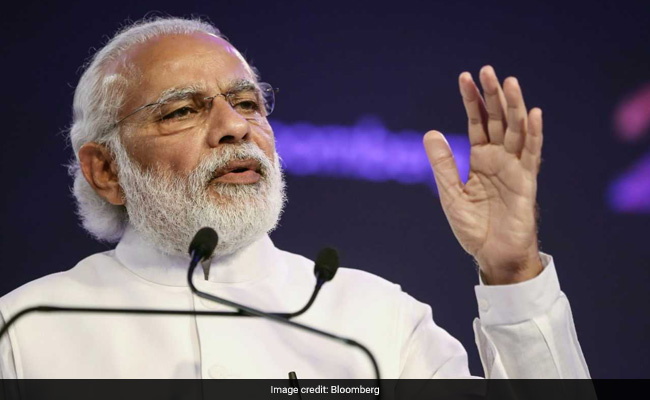
Growth in Asia's third-largest economy has been slowing for the past five quarters, blamed by experts on a chaotic roll out of the goods and services tax and a surprise ban on currency notes to pin down tax evaders
Prime Minister Narendra Modi is stuck between a rock and a hard place.
Growth in Asia's third-largest economy has been slowing for the past five quarters, blamed by experts on a chaotic roll out of the goods and services tax and a surprise ban on currency notes to pin down tax evaders. That has sparked talk of stimulus measures to boost expansion from the slowest pace in three years. But the Prime Minister's options are limited.
Sluggish output means revenue collections haven't kept pace and any spending boost would only widen one of Asia's largest budget deficits, stoke inflation and, possibly, prompt a review of India's investment grade rating. Standard and Poor's cut China's rating last week citing risks from soaring debt.
"The revenue uncertainty this year because of GST implementation and likely slippage in non-tax revenue should limit the government's ability to increase direct spending significantly," said Credit Suisse economist Deepali Bhargava
PM Modi's administration, which took power in 2014 promising to create jobs, is battling a public perception of economic mismanagement after growth fell below 6 percent in the June quarter. On top of it, foreigners are dumping stocks at the fastest pace this year as weak earnings fail to justify the boom in share prices.
Broader Reforms
The government's regular cash cows aren't in the pink of health either. The central bank has halved its annual payout, asset sale proceeds are far from the target, and telecom spectrum auctions may not find many takers as carriers struggle amid a brutal price war. Refund claims under the goods and services tax have further put receipts goal at risk.
"A policy stimulus, using some combination of monetary and fiscal policies, could provide a short-term boost to growth but is unlikely to be fully effective unless accompanied by a broader range of reforms that are essential to rebuild confidence and stimulate investment," said Eswar Prasad, a professor at Cornell University. He cautioned that a deviation from a path of fiscal consolidation could backfire without broader reforms.
PM Modi has tried, albeit unsuccessfully, to change archaic labor and land laws in the country to enable faster growth. Meanwhile efforts to clean bank balance sheets with a new bankruptcy framework has yet to yield results. Private investment has been sluggish with banks battling bad assets and credit growth for years now.
GDP growth is the weakest since 2014 -- the GST roll out in July dealt a fresh blow to businesses even before they could recover from the cash clampdown of November. The move to void 86 percent of currency in circulation hurt consumption and investment in what was once the world's fastest-growing major economy.
Budget Gap
Measures to support growth might come at the cost of fiscal slippage. The budget deficit is pegged at 3.2 percent of the gross domestic product in the year through March.
Any stimulus could potentially boost the budget gap to 3.5 percent to 3.7 percent and end hopes of a cut in interest rates, Deutsche Bank chief economist Kaushik Das wrote in a note September 22. "We don't expect monetary policy to be simultaneously accommodative with fiscal expansion, given Reserve Bank's focus to preserve macroeconomic stability."
Central Bank governor Urjit Patel last month cut interest rates to the lowest in seven years to boost flagging growth. India needs to find a balance between fiscal prudence and spending, finance minister Arun Jaitley said at Bloomberg Economic Forum on September 22.
Deterioration in public finances would deny India an upgrade from rating companies. Earlier this year, S&P Global Ratings retained India's rating at one step above junk. A cut might force investors to dump Indian assets in favor of safer heavens.
Letting the fiscal deficit widen to pump up growth could do more harm than good, said Priyanka Kishore, lead Asia economist at Oxford Economics, Singapore. "Modi doesn't have too much space to manoeuver,' she said.
ABB Buys General Electric's Electrical Equipment Unit For $2.6 Billion
MMNN:25 September 2017
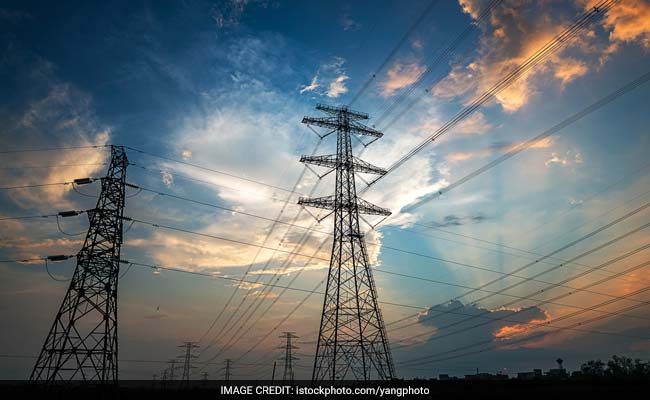
Zurich: Power grids maker ABB is buying General Electric's Industrial Solutions business for $2.6 billion in a bet it can improve the division's lacklustre margins over the next five years, the Swiss engineering company said on Monday.
Zurich-based ABB sees potential for annual cost benefits of $200 million with the deal, which includes an agreement for long-term use of GE's brand and a strategic partnership. In 2016, the GE business had sales of $2.7 billion.
The GE products include circuit breakers, switchgear, components for lighting control and power supply equipment for facilities including data centres. ABB's portfolio includes similar products.
ABB is seeking to better penetrate the North American market and gain access to GE's larger installed base of electrical installations worldwide.
ABB said the business had been "an unloved child" and pledged to upgrade aging products with its own technology to help arrest a declining U.S. market share.
ABB is suspending its $3 billion share buyback programme as part of the deal, which will bolster its position as the second-biggest supplier of electrical components behind France's Schneider Electric.
ABB is also wagering on being able to cut costs and boost profitability at the Georgia-based GE unit.
"The key rationale of the integration is, first we will make this business better. And then afterwards, we will make this business bigger and better," said ABB Chief Executive Ulrich Spiesshofer.
ABB expects integration costs of $400 million.
The GE unit's operating earnings before interest, taxes and amortisation (EBITA) are just 6 percent of sales, less than half the 15 percent operating margin at ABB's comparable Electrification Products division.
Spiesshofer said he agreed to the transaction only after striking a supply partnership where ABB and GE will increase buying and selling from each another.
"Without that, the economics wouldn't have worked," he told reporters on a call. "With the supply partnership, the economics at the price of 0.9 times revenue is working."
GE has been under pressure from activist investor Nelson Peltz's Trian Fund Management to sell assets and focus on higher-margin businesses.
Some analysts said the price was surprisingly high given the GE business's low profitability.
"GE Industrial Solutions isn't in top shape, so ABB has its work cut out for it," said Zuercher Kantonalbank analyst Richard Frei.
ABB said it would finance the deal -- likely its last for some time -- with cash and did not need to raise equity capital. Its shares were little changed in early trading.
GE had resumed negotiations to sell the business to ABB after moderating its price expectations, people familiar with the matter told Reuters in August.
Credit Suisse and Dyal Co acted as financial advisers to ABB, and Davis Polk & Wardwell provided legal counsel.
CII Calls for Interest Rate Cut, Rupee Depreciation
MMNN:22 September 2017

The Confederation of Indian Industry (CII) has called for an interest rate cut of 100 basis points for boosting the economic growth rate. It has also suggested interventions for depreciation of the exchange rate that would increase export-related jobs.
CII is of the firm belief that the current blip in growth rates is temporary and we are confident of a strong recovery by fiscal year end as industry gets over the teething problems of GST and other positive measures take effect. New investments will also start early next year as capacities fill up. said CII President Shobana Kamineni.
A cut in interest rates would encourage domestic demand in sectors such as affordable housing, consumer durables and construction. Interest Rate Subvention in certain sectors such as exports, housing and MSME would also help raise growth, noted the CII statement.
According to CII, there may be need to relax the fiscal deficit targets to accommodate stimulus measures, particularly for job-creating sectors. The FRBM Act permits a deviation of 0.5% of GDP on account of exceptional circumstances. The introduction of the historical tax reform of GST calls for certain adjustment time, said the CII statement.
The efforts of the Government towards building a formal, organised economy are encouraging and this requires all players to go through a period of adjustment. Industry is keen to accelerate this process while also creating the necessary jobs and lead into a virtuous cycle of higher incomes and demand, added Ms Kamineni.
On the GST front, CII recommends procedural changes to ease initial administrative processes. These include allowing C form set-off, addressing reverse charges, redressing mismatches of higher rates on inputs and lower rates on final goods, and grandfathering of existing regional incentives among others. Also, input tax credit refunds for exporters need to be passed on, said CII.
CII has also highlighted the need for bank recapitalisation for enabling credit growth to revive the economy. The Government may consider lowering its stakes in public sector banks for this purpose, suggested CII.
CII has developed policy recommendations for a number of sectors aimed at kickstarting investments and jobs. These include both urgent short-term policy initiatives and medium term enablers. Sectors such as infrastructure, construction, and power are particularly impacted by stressed assets. Government can also intervene to increase import duties on gold to discourage gold imports and boost shift to financial savings.
There is also urgency regarding reforms in the labour regulations, said CII. Fixed term employment and fiscal incentives for creation of incremental jobs would help new employment generation. In the longer term, it is important to simplify and address labour laws for creating better quality jobs.
PM Modi's Jobs Problem Is Growing, Government Remains Optimistic
MMNN:22 September 2017
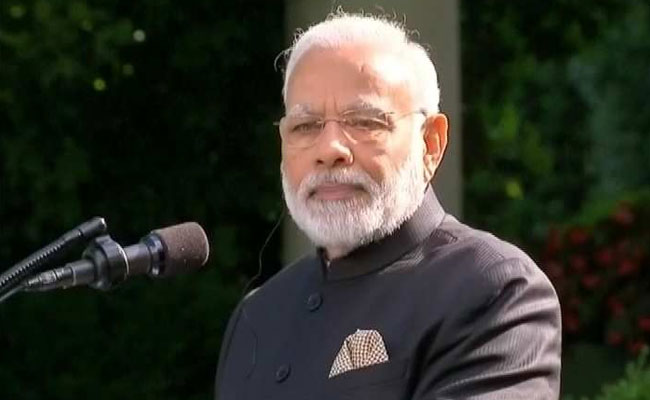
The jobs market has been slugged by last November's shock cash ban and July's imposition of the national goods and services tax or GST.
Prime Minister Narendra Modi has a jobs problem.
He swept to power three years ago promising India's poor and middle classes he'd restore their "dignity" after years of swelling inequality, with job creation central to his pitch. But now, the jobs market has been slugged by last November's shock cash ban and July's imposition of the national goods and services tax or GST.
And things look like they're about to get worse: India is set to see a further 30 percent-to-40 percent reduction of jobs in the manufacturing sector compared with last year, according to TeamLease Services Ltd., one of the country's biggest recruitment firms. While other surveys aren't quite so bleak, they also suggest PM Modi is a long way from creating the 10 million jobs a year needed to keep up with his young and rapidly expanding workforce.
The opposition -- in disarray since losing to PM Modi -- is dialing up its criticism as it eyes elections due in 2019.
"If India cannot give the millions of people entering the job market employment, anger will increase, and it has the potential to derail what has been built so far," Rahul Gandhi, heir-apparent to the main opposition Indian National Congress party, said in a speech at the University of California, Berkeley, on Sept. 11. "That will be catastrophic for India and the world beyond it."
Supporters Alarmed
PM Modi's backers are alarmed too. A key ally and member of PM Modi's party, Subramanian Swamy, told a TV channel over the weekend that he has conveyed concerns to PM Modi that the economy could be heading for a "major depression."
The Rashtriya Swayamsevak Sangh -- the ideological parent of the ruling Bharatiya Janata Party -- has alerted the BJP of signs of a shift in the public mood over the government's performance, though PM Modi still remains personally popular, according to a report in the Telegraph newspaper last week that cited unnamed RSS sources.
Munira Loliwala, a general manager at TeamLease, said the slowdown accelerated sharply with demonetization. Indian manufacturers, who previously preferred to cut white-collar jobs rather than factory-floor workers, are now slashing all over, she said.
.
"We see no option, things are not looking to improve much," Mr Loliwala said
Mr Loliwala was referring to PM Modi's move in November to scrap 86 percent of currency in circulation, which contributed to growth in gross domestic product slumping to the lowest since 2014 last quarter. PM Modi then pushed through a nationwide goods and services tax on July 1, which is expected to benefit India in the long-run but for now is roiling supply chains.
Manufacturing accounts for some 18 percent of GDP and directly employs 12 percent of the population, government data show. Mr Loliwala said that many of those who lose their jobs stay unemployed because they lack the communication skills required for the services sector, which accounts for 62 percent of GDP.
The struggle to create jobs threatens a key plank of PM Modi's populist push to reverse decades of widening income inequality, a problem highlighted in a new study by Lucas Chancel and Thomas Piketty published this month. The top 1 percent of India's population hold an unprecedented 22 percent of the nation's wealth, while the middle 40 percent benefited the least compared with China, France and the U.S. over 1980-2014, the study found.
Another recent report underscores the magnitude of PM Modi's challenge to boost employment. India ranks 103 out of 130 countries in the World Economic Forum's Global Human Capital Report 2017, published Sept. 13. Its youth literacy rate is 89 percent, well behind other leading emerging markets, and it has the world's largest employment gender gaps.
Elsewhere, PM Modi is making inroads on policy pledges. Higher savings rates offer funds for investment; record foreign-exchange reserves of around $400 billion provide a buffer to external shocks; steps have been taken to clean up a $191 billion pile of souring loans; and a crackdown on corruption may boost treasury coffers and capture the public's imagination.
Those strengths may help explain why the government remains optimistic.
"The economic slowdown and job losses are in line with a worldwide downward trend," Finance Ministry spokesman D.S. Malik said by phone. "There may be problems in the manufacturing sector, but services are growing well. And that's why our revenue collections are doing fine." Jagdish Thakkar, a spokesman in the Prime Minister's Office, didn't answer calls seeking comment.
Billionaire Rana Kapoor's Yes Bank Is Said To Cut 12% Of Jobs
MMNN:21 September 2017
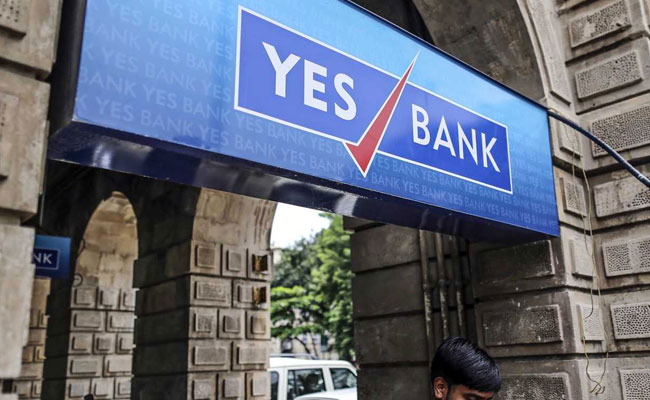
Yes Bank Ltd. has cut about 12 per cent of its workforce to lower expenses and push technology amid an industry-wide lending slump, said people familiar with the matter.
In its first widespread reduction of jobs since it was founded in 2004, the lender cut about 2,500 roles, the people said, asking not to be identified as they aren't authorized to speak to the media. Most of the cuts are in the bank's sales team, the people said. The bank had 20,851 employees at the end of June, exchange filings show. The Economic Times newspaper had earlier reported about the cuts.
Yes Bank, led by billionaire Chief Executive Officer Rana Kapoor, is an outperformer in India's banking system. It has one of the fastest paces of loan growth while the broader gauge languishes at a two-decade low, because companies staggering under bad debt and excess capacity are awaiting evidence of a pick up in demand before they invest more.
The bank's push toward automation and innovation will make some roles redundant, and other staff cuts were due to natural attrition and "performance-linked actions," a Yes Bank spokesman said by email. More details will be communicated in the September-quarter results, the spokesman said, without sharing the exact number of employees being dismissed.
Yes Bank shares rose as much as 1.9 percent as of 1:14 p.m. in Mumbai on Thursday, and have more than doubled in the past year. The lender had 1,020 branches and loans of 1.4 trillion rupees ($17.6 billion) as of end-June, exchange filings show.
Indian IT To Benefit From Fresh Processing Of H-1B Visas
MMNN:20 September 2017
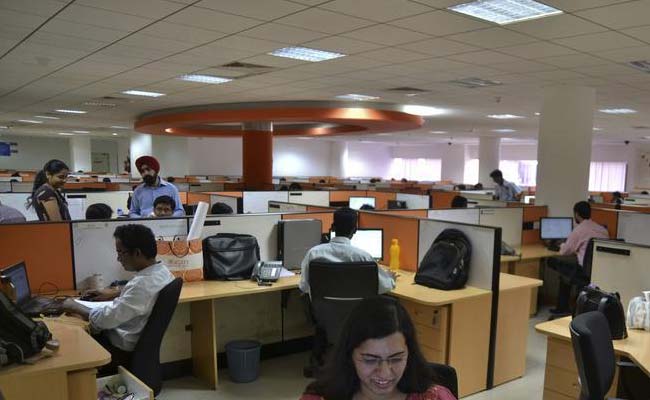
IT industry body Nasscom on Tuesday said resumption of fast processing of H-1B visas - most sought after by Indian IT professionals - by the US will help Indian technology companies smoothly conduct business even as they continue to focus on reducing their dependence on work visas. Nasscom president R Chandrasekhar said the applications for work visas by Indian IT companies have halved over the last few years as the companies are leveraging new technologies to reduce dependence on visas to send workers to client sites.
"This is certainly a welcome move. We were expecting this to come. Usually, when priority visa processing is suspended, it is done for 2 months or so. This time, it was more, which was different," he said.
The US has resumed fast processing of H-1B work visas in all categories subject to Congress-mandated limit, five months after it was suspended temporarily to handle the huge rush of applications for the work visas popular among Indian IT professionals.
When a petitioner requests the agency's premium processing service, the US Citizenship and Immigration Services (USCIS) guarantees a 15-day processing time. If the 15-day processing time is not met, the agency will refund the petitioner's premium processing service fee and continue with expedited processing of the application.
Mr Chandrasekhar said the resumption was important for "smooth conduct of business". "Applications have halved because of issues around visa, including long delays, increased scrutiny, and also because of changing business models, there is increased local hiring," he said.
Mr Chandrasekhar said the premium processing route is important because for special skill sets, it is difficult to anticipate the requirements in advance and file applications. Nasscom vice-president (global trade development) Shivendra Singh said the number of petitions granted to the top seven Indian companies has come down to under 10,000 in 2016, from over 18,000 in 2014.
"We are absolutely for it (due diligence for visa issuance) as long as it is not leading to any harassment and unnecessary delays," Mr Singh added.
Tata Sons Likely To Buy Rs. 2,000-Crore Stake In Tata Motors: Report
MMNN:19 September 2017
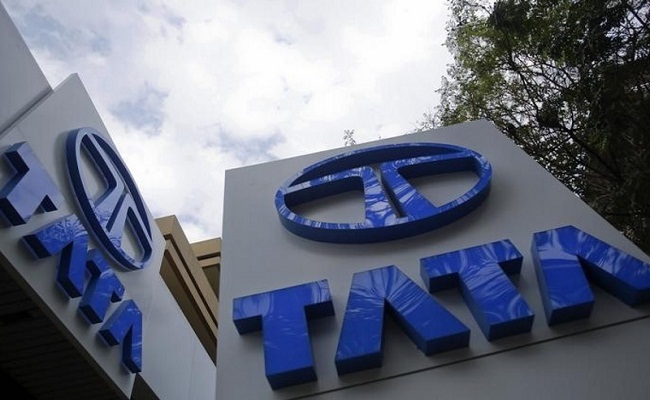
Mumbai: Citi is handling the process for a prospective buyer to acquire up to Rs. 2,000 crore ($311.8 million) worth of shares in Tata Motors Ltd on Tuesday, according to a term sheet seen by Reuters. A source familiar with the transaction said the buyer was Tata Sons, the holding company behind the Tata conglomerate which owns nearly 35 per cent of the vehicle maker through its affiliated companies and trusts. The Tata Group has previously said it wants to consolidate its holdings in group companies.
According to the term sheet, the buyer is offering a maximum of Rs. 421.56 apiece, or a 4 per cent premium to the stock's closing price on Monday. The purchase, which is being undertaken through a so-called reverse book build method, is for up to 1.71 per cent of Tata Motors, the term sheet showed.
Tata Sons, which last December bought a 1.73 per cent in the company through a similar reverse book build, did not immediately respond to a request for comment.
Dixon Technologies Makes Blockbuster Debut, Investor Wealth Surges 71% On Day 1
MMNN:18 September 2017
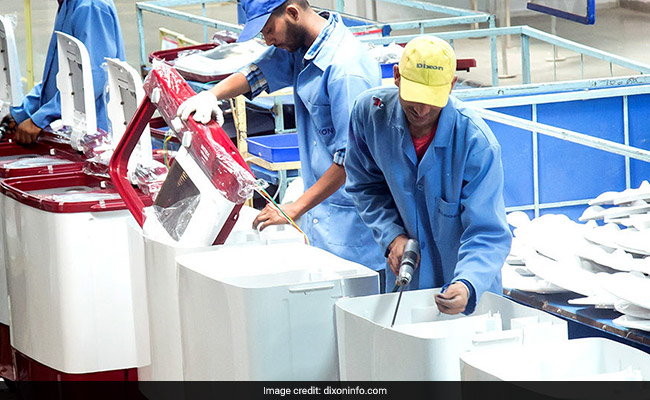
Analysts are optimistic about the future prospects of Dixon Technologies due to its focus is on expanding product basket, strengthening existing customer relationships and increasing customer base.
Dixon Technologies, which recently concluded its Rs. 600 crore initial public offer (IPO) with oversubscription of 118 times, saw a blockbuster listing on exchanges today. Its shares surged as much over 71 per cent to Rs. 3,024 against its issue price of Rs. 1,766. As against the 23.76 lakh shares on offer, Dixon Technologies IPO received bids for over 28 crore shares showing strong investor interest for the IPO. The segment reserved for qualified institutional buyers and high net worth individuals saw subscriptions of 135 and 346 times respectively. The retail buyer's portion was also subscribed 10.6 times.
Noida-based Dixon Technologies is the largest home-grown manufacturer of consumer electronic and lighting products in India, which manufactures products for Panasonic India, Philips Lighting, Gionee, Intex Technologies and Reliance Retail among others.
Analysts are optimistic about the future prospects of Dixon Technologies due to its focus is on expanding product basket, strengthening existing customer relationships and increasing customer base. The company has reported a compounded annual revenue growth of 33.8 per cent while its net profit has witnessed a CAGR of 78.3 per cent during FY2013-17. For FY2017, Dixon Technologies reported a net profit of Rs. 50 crore on sales of Rs. 2,457 crore in FY2017.
Angel Broking says, its new manufacturing unit which will commence operations this month will add to its revenue growth further. The Rs60 crore of fresh capital that the company has raised from the just concluded IPO, will be utilised for repayment of certain loans, setting up manufacturing facility for LED TVs, financing backward integration capabilities in the lighting segment and for upgradation of IT infrastructure, the company said.
As of 2:55 pm, Dixon Technologies shares traded 64.66 per cent higher at Rs. 2,908.00.
ICICI Lombard IPO Opens: All You Need To Know About The First Non-Life Insurer IPO
MMNN:15 September 2017

The Rs. 5,700 crore ICICI Lombard IPO will give the company a valuation of Rs. 30,000 crore post the issue.
ICICI Lombard General Insurance Company, India's largest private sector non-life insurer in India (in terms of gross direct premium income (GDPI), has launched the initial public offer of its shares. ICICI lombard IPO is the first of its kind by any non-life insurance company in India. The Rs. 5,700 crore public issue of ICICI Lombard will give the insurer a valuation of Rs. 30,000 crore post the issue. The issue will be open for three days through September 19 (Tuesday). Priced in a band of Rs. 651-661, the issue can be subscribed in lot sizes of 22 shares. ICICI Lombard has already raised Rs. 1,624 crore by allotting shares to anchor investors. Tthe issue was subscribed 6 per cent as of 1:15 pm, on the first day.
Here are 10 things to know about ICICI Lombard General Insurance Company IPO:
1) ICICI Lombard IPO is purely an offer for sale by its existing investors and the company does not intend to raise any fresh capital through this issue. Post this issue, ICICI Bank's shareholding in the company will fall to 55.9 per cent from 62.9 per cent while Fairfax Financial's holding will reduce by 12 per cent to 9.9 per cent.
2) ) ICICI Lombard General Insurance Company, which is a joint venture between ICICI Bank and Fairfax Financial of Canada, is India's largest private sector non-life insurance company with market share of 20.2 per cent in the first quarter of FY2018 among all the private non-life insurance players in India. While among all the non-life insurers, its share was 10 per cent.
3) ICICI Lombard has maintained its leadership position among private non-life insurers since 2004, supported by its robust franchise, comprehensive product portfolio and multi-channel distribution network, say analysts.
4) In FY2017, the company reported a gross direct premium income (GDPI) of Rs. 10,730 crore up 32.6 per cent over FY2016. Its GDPI has grown at a CAGR of 12 per cent in last four years. For the first quarter of current fiscal, ICICI Lombard has reported a GDPI of Rs. 3,321 crore with 43.2 per cent coming from direct sales channels compared to industry average of 31.6 per cent.
5) ICICI Lombard has a diversified product mix comprising motor, health & personal accident, crop/ weather, fire, marine and engineering insurance products, which contributed 42.3, 18.9, 20.1, 6.9, 3.2 and 2.1 per cent to its GDPI in FY2017 respectively.
6) ICICI Lombard's leadership position is also supported by its superior customer service experience. It settled 92.2 per cent of motor claims in FY2017 within 30 days compared to 81.9 per cent claim settlement by private sector players on an average. Further, the number of grievances against the company reduced to 3,515 in FY17 from 5,704 in FY15, despite rise in number of policies written to around 17.7 million from around 13.9 million during the same period.
7) ICICI Lombard's solvency ratio (size of its capital against the risk it has undertaken) is one of the best in the industry. In FY2017, it stood at 2.10 times compared to insurance regulator IRDAI-prescribed level of 1.50 times and industry average of 1.95 times.
8) ICICI Lombard has reported a net profit of Rs. 642 crore in FY17, up 27 per cent over the previous fiscal. For the first quarter of current fiscal, the company reported a net profit of Rs. 214.3 crore, an annual growth of 66 per cent.
9) At the upper end of the price band, ICICI Lombard shares are priced at 35 times its annualised earnings per share for the first quarter of FY2018, which provides a healthy investment opportunity for the long-term investors, says Reliance Securities. The brokerage has a "subscribe" rating on ICICI Lombard IPO. "Looking ahead, we expect ICICI Lombard to deliver strong performance on the back of lower general insurance penetration in India," the brokerage said. Angel Broking, another brokerage, also has "subscribe" rating on ICICI Lombard IPO.
10) Despite the promising growth potential that ICICI Lombard offers, its business comes with lots of risk. Catastrophic events could materially increase its liability for claims, say analysts. Other than this, adverse changes in regulatory framework, inability to address increasing competition are other risks in its business.
Google To Launch Tez, A Digital Payments App For India
MMNN:14 September 2017
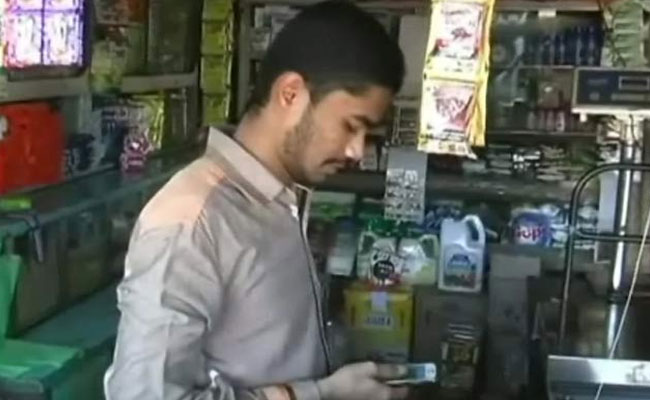
New Delhi: Joining the digital payment bandwagon in India and eclipsing WhatsApp's plans, Google is launching a Unified Payments Interface (UPI)-based digital payment service called "Tez" on September 18.
According to The-Ken.com, on September 18, "Google, Alphabet Inc's subsidiary, will make an entry into India's fast growing and super-competitive digital payment ecosystem".
After the story appeared in the media, Google India sent out an invite for an event in New Delhi on a September 18.
"As we continue to make strides in ensuring that our products continue to serve the needs of everyone, we invite you to a press conference to share details on the launch of a new product developed grounds up for India," the invite read.
This confirms that a Make in India product will be unveiled at the event addressed by Caesar Sengupta, Vice President, Next Billion Users, Google.
"Tez" (meaning fast in Hindi) may work like Android Pay.
UPI is a payment system launched by the National Payments Corporation of India (NPCI) and regulated by the Reserve Bank of India which facilitates the instant fund transfer between two bank accounts on the mobile platform.
The other big player to join India's growing digital payment market is Facebook-owned WhatsApp.
WhatsApp has been in the news for working towards a UPI-based interface on its platform.
According to media reports, the leading messaging platform is already in talks with the NPCI and a few banks to facilitate financial transactions via UPI.
According to the blog website "WABetaInfo", WhatsApp is giving shape to its plans towards bank-to-bank transfer using the UPI system.
Some mobile messaging platforms like WeChat and Hike Messenger already support UPI-based payment services.
The infrastructure of digital payments in India is expected to increase three-fold by the end of 2017 with almost five million electronic point of sale (PoS) machines, the Ministry of Electronics and IT (MeitY) has said.
"We expect that by December, the number will actually go up to five million PoS, which means that the infrastructure for digital payments is going to grow three times in the short span of one year," MeitY Secretary Aruna Sundararajan said.
Nifty Edges Higher, Near All-Time High; Tata Power, RIL Surge
MMNN:13 September 2017
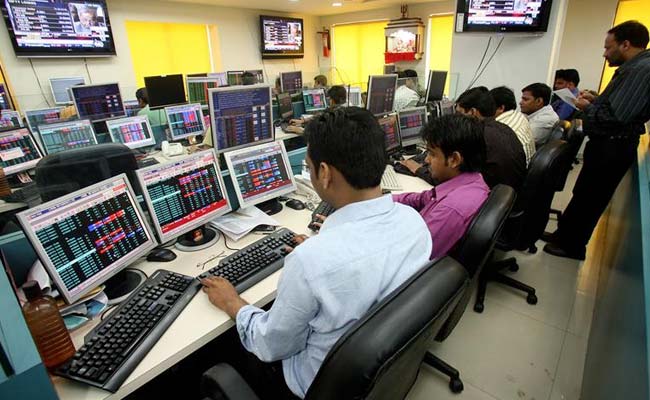
The benchmark BSE Sensex gained close to 100 points in early trade today on buying by domestic institutional investors even as retail inflation rose to a five-month high. Positive trends at other Asian markets also influenced trading sentiments here. The 30-share barometer, which had gained 496.69 points in the previous four straight sessions, was trading higher by 80 points in early noon trade with power, consumer durables, oil & gas, IT and PSU stocks leading the gains
The Nifty rose to 10,120 at day's high, not far from all-time highs of 10,137.
Prominent gainers were Reliance Industries, TCS, Dr Reddy's, Adani Ports, Sun Pharma, M&M, Tata Motors, Hero MotoCorp, Coal India, ICICI Bank, SBI, Bajaj Auto,ONGC and Maruti Suzuki. Tata Power surged nearly 6 per cent while RIL rose 3 per cent.
Brokers said sentiment remained upbeat despite retail inflation rising in August to a five-month high of 3.36 per cent. Industrial production grew by 1.2 per cent in July against 0.2 per cent contraction seen in the previous month.
Brokers said Asian markets were firm after Wall Street stocks jumped to fresh records yesterday on easing geopolitical worries and US hurricanes. Hong Kong's Hang Seng was up 12.03 points, Shanghai's Composite index rose 0.03 per cent, while Japan's Nikkei gained 0.47 per cent in their early trade. The US Dow Jones Industrial Average ended 0.28 per cent higher yesterday.
HDFC Bank Unseats TCS To Become Second Most Valuable Company In India
MMNN:12 September 2017
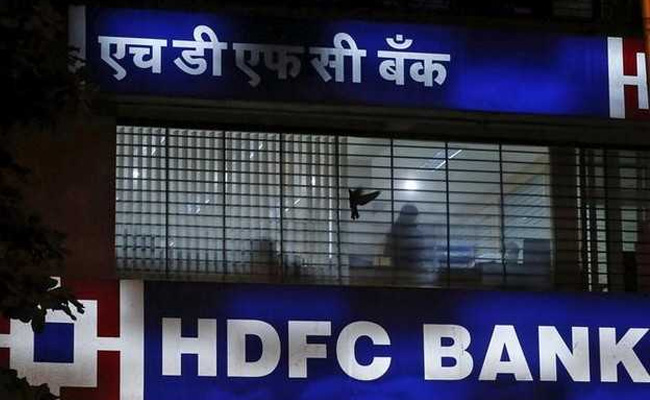
HDFC Bank, which was recently granted the status of a 'too big to fail' bank, today achieved another milestone. The Mumbai-based lender today became the second most valuable bank in India pipping IT bellwether TCS. HDFC Bank's shares touched an intraday high of Rs. 1,840, taking its total market value to Rs. 4,74,925 crore, while at the day's highest level of Rs. 2,479, TCS' total market capitalisation was Rs. 4,74,466 crore. Here are five key points that you must know about it:
1) Including today, HDFC Bank shares have gained for the sixth straight day. Global brokerage Nomura said "HDFC Bank is uniquely positioned to take advantage of the market share churn. It is ahead of competition in investing for the future (digital) and is very focused on reducing the turnaround time." The brokerage has a buy rating on HDFC Bank for a target price of Rs. 2,100, implying a potential gain of 15 per cent from Monday's closing price.
2) Shares of HDFC Bank have surged nearly 53 per cent so far this year, while that of TCS rose by nearly 5 per cent. Rupee's appreciation against the dollar and US government's crackdown on work visas has made the revenue outlook of Indian IT companies gloomy. Further, the rise of automation has also reduced the labour component of certain IT related activities. IT sector has been one of the worst performing sector in India this year.
3) Reliance Industries Ltd is the country's most valued firm with a market cap of Rs. 5,33,818.72 crore followed by HDFC Bank, TCS, ITC (Rs. 3,35,993.75 crore) and HDFC Ltd (Rs. 2,84,580.02 crore) in the top five list.
4)The Reserve Bank of India, on September 4, included HDFC Bank in the list of 'too big to fail' lenders, referred to as D-SIB or domestic systemically important banks. State Bank of India and ICICI Bank are the only other two banks which are also a part of this list. SIBs are subjected to higher levels of supervision so as to prevent disruption in financial services in the event of any failure.
5) As of 2.47 pm, HDFC Bank shares traded 0.55 per cent higher at Rs. 1,833.40 while TCS shares traded 0.73 per cent higher at Rs. 2,472.35 compared to Nifty, which was up 0.74 per cent.
A Human Problem Of High Magnitude': Top Court Asks Jaypee To Deposit 2,000 Crores
MMNN:11 September 2017
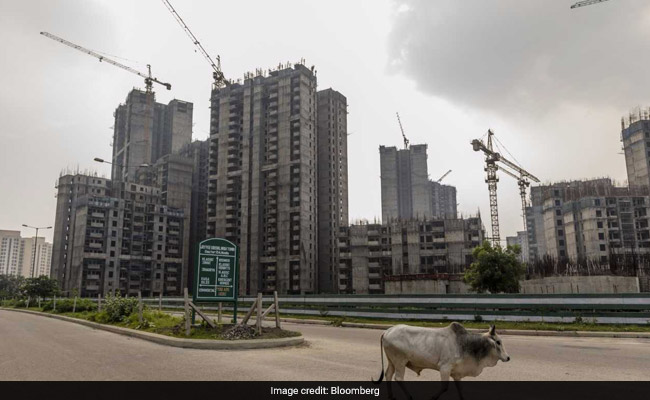
The Supreme Court directed the managing director of real estate company Jaypee Infratech - as well as the company's parent JP Associates - not to leave the country without the top court's permission.
Describing the turmoil faced by flat buyers of Jaypee Infratech a "human problem of high magnitude", the Supreme Court today directed the managing director of the real estate company - as well as the company's parent JP Associates - not to leave the country without the top court's permission. The court also directed JP Associates to deposit as security Rs. 2,000 crore on or before October 27 saying that the infrastructure company can sell land to pay the deposit money.
"We are interested and concerned with the home buyers who are middle class and we are not concerned with the company," the Supreme Court said. The top court had earlier stayed insolvency proceedings against Jaypee Infratech, which is into road construction and real estate business. It has constructed the Yamuna Expressway, connecting Delhi-Agra.
Hundreds of home buyers have been left in the lurch after the NCLT on August 10 admitted a plea by IDBI Bank to initiate insolvency proceedings against the debt-ridden realty company for defaulting on a Rs. 526-crore loan. Flat buyers, under the Insolvency and Bankruptcy Code of 2016, do not fall in the category of secured creditors like banks and hence can get back their money after repayment of dues to secured and operational creditors.
Some flat buyers then approached the Supreme Court, seeking protection of the interests of over 30,000 buyers who invested hard-earned money to book their dream homes in 27 different projects of debt-ridden realty firm Jaypee Infratech.
The Supreme Court also directed persons involved in the insolvency proceedings, except that of lenders like IDBI, ICICI Bank and SBI, not to leave the country. The Insolvency Resolution Professional has been also asked to submit a resolution plan indicating protection of interests of flat buyers and creditors within 45 days.
CII in association with EUIPO organized Seminar on Madrid Protocol:
MMNN:9 September 2017
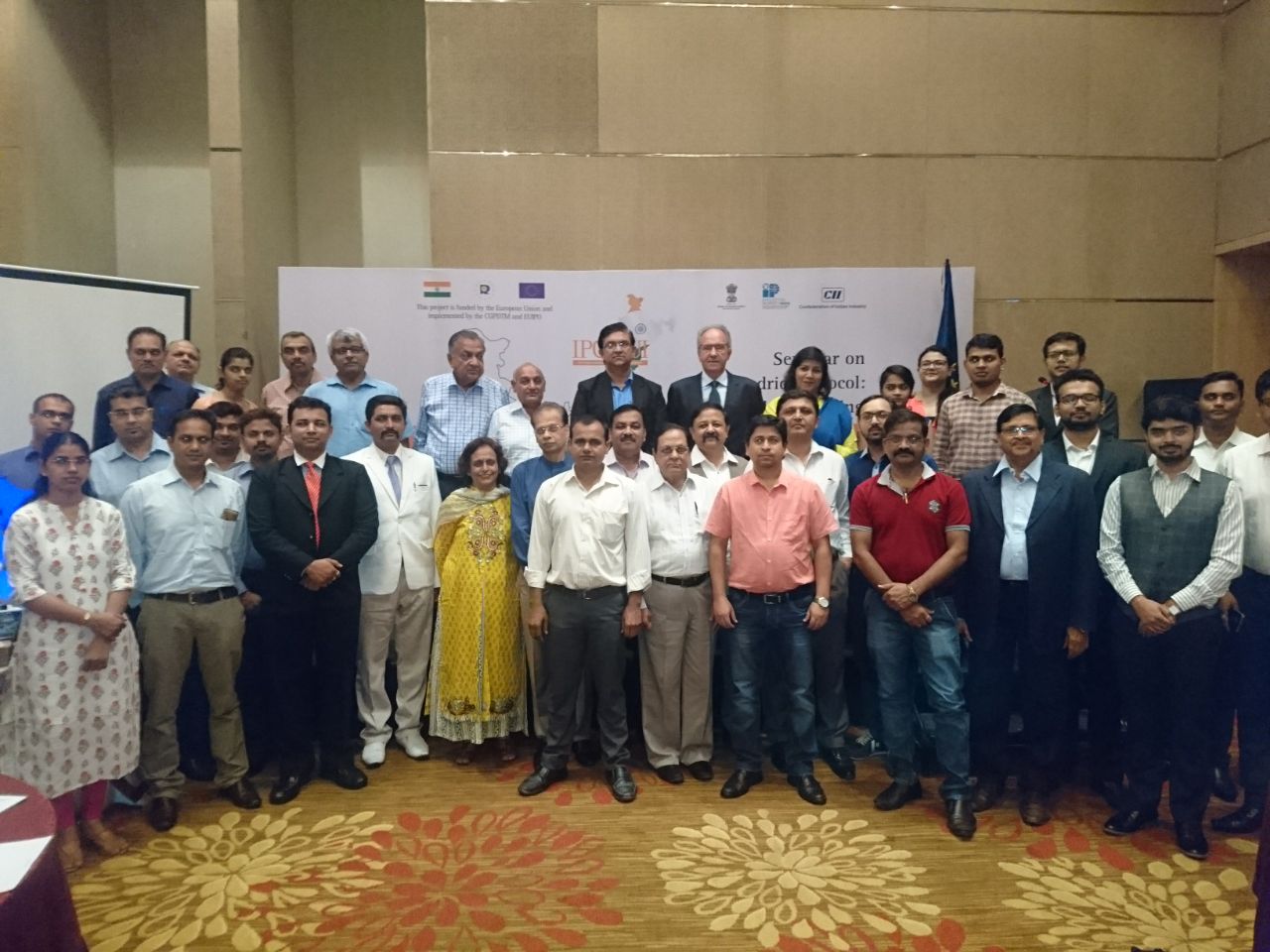
Confederation of Indian Industry (CII) in association with EUIPO (European Union Intellectual Property
Office), IPO (Intellectual Property Office), Govt. of India (Ministry of Commerce & Industry) organized
a Seminar on Madrid Protocol: Best Practices and Strategies for Brand Protection in India & Abroad on
9 September 2017 at Hotel Marriott, Bhopal.
The inaugural session of the seminar was addressed by Mr Abhishek Gupta, Vice Chairman CII Bhopal
Zonal Council. In his address he emphasized on the need of industry to create brands and take
advantage of the trademark system to protect these brands in Indian and Abroad. Mr. Shakti
Dhar Ojha, Assistant Registrar, Trademark & GI, CGPDTM in his special address provided the insight on
trademark protection in India and its importance especially for entrepreneurs and start-ups. Mr. Ernesto
RUBIO, International IP Consultant in his special address explained the overview of Madrid system and
its role in global brand protection. Mr Subhajit Saha, Head, Technology Centre of CII explained the
concept of trademarks, initiations taken by the Government of India and CII for IPR awareness and
promotions.
The main objectives of the program were to discuss on best practice in protection of brand across the
world, steps to be taken to register the trademark via Madrid route including pre and post registration
strategies which can be adopted for managing the trademarks globally. The program also discussed on
the Filing of Madrid International Applications at the Trade Mark Registry (CGPDTM) and the benefits of
using the Madrid and EUTM system by Indian applicants when obtaining Trade Mark registration
abroad. More than 60 Participants from several sectors including MSMEs have attended the seminar.
Rupee Vs Dollar: From 3 Week Low To One Month High In 2 Days
MMNN:9 September 2017
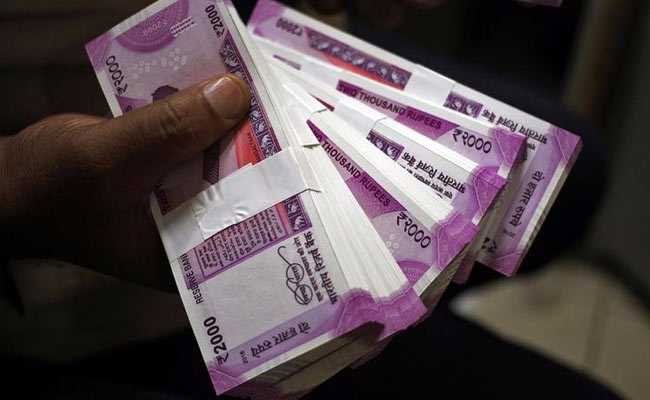
The rupee strengthened sharply against the dollar on Friday, rising to 63.78 against the dollar, a one month high. Including Friday's gains the rupee has surged nearly 0.75 per cent in two days from a three-week low of 64.26 hit on Wednesday. Traders said that selling of the US currency by exporters and banks lifted the rupee. Also, the dollar turned weaker against major currencies on Friday, further boosting the rupee. The rupee had closed at 64.05 against the US dollar on Thursday. Reduced expectations for another US Federal Reserve interest rate hike this year helped drive down the dollar to its lowest in more than 2-1/2 years on Friday.
Here Are 5 Things To Know About Rupee's Surge Against The US Dollar
1) The dollar index, which tracks the greenback against a basket of six major currencies, fell to a low of 91.011 on Friday, its weakest since January 2015.
2) The European Central Bank also raised its economic growth forecast for this year, which boosted the euro. The euro rose 0.12 percent to $1.2036 on Friday. Asian currencies like Yen, South Korean won and Singapore dollar also gained against the dollar.
3) Continued buying of Indian debt by foreign institutional investors also supported the local currency. In this year so far foreign investors have pumped in nearly $20 billion in Indian debt market.
4) Bond yield rose for the fifth straight session on Friday on geopolitical tensions. The 10-year benchmark government bond yield closed at 6.543 per cent on Friday, a level last seen on 28 August, against Tuesday's close of 6.515 per cent. Bond yields and prices are inversely co-related.
5) The rupee has surged over 6 per cent against the US dollar this year, boosted by strong inflows into debt and equity markets and a falling trend in inflation.
Dr Reddy's Stock Slumps After German Regulator's Observations
MMNN:8 September 2017

Dr. Reddy's Laboratories said on Friday a German regulator has made six major observations about its Duvvada drug making facility in the southern Indian state of Andhra Pradesh, sending shares down as much as 7.1 percent.
Dr. Reddy's, in an exchange filing, did not however elaborate on the observations, which typically refer to aspects of the production process that must be improved in order to gain regulatory approval for exports.
A company spokeswoman did not immediately respond to a request for details of the observations on Friday.
The products manufactured at the unit are not currently exported to the European Union, it said.
Germany and the United Kingdom contribute the most to Dr. Reddy's revenue from Europe, which rose 28 percent to 2.08 billion rupees ($32.57 million) in the June quarter.
Sensex Turns Flat; Midcap, Smallcap Shares Outperform
MMNN:7 September 2017
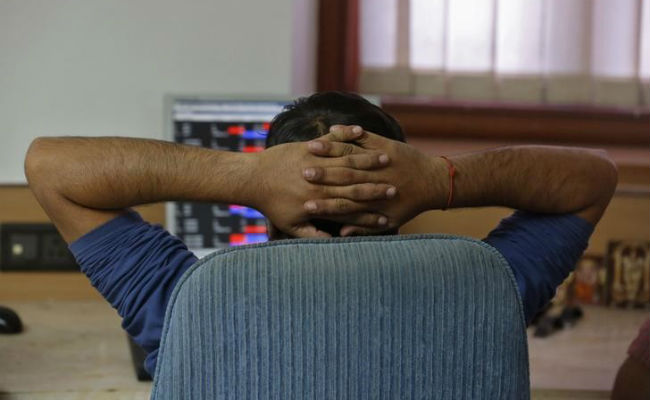
The BSE Sensex and Nifty turned flat during post noon trade on Thursday as energy shares led by Reliance Industries, which turned ex-bonus today, gave up early gains. As of 1.15 pm, Sensex was up 6.56 points or 0.02 per cent at 31,668.53 while the Nifty traded 0.09 per cent or 9.45 points higher at 9,925.65. Meanwhile, smallcap and midcap shares outperformed benchmark indices and were up 0.67 per cent and 0.60 per cent respectively.
Indian shares rebounded on Thursday, propelled by financial stocks such as Indiabulls Housing Finance Ltd, on positive sentiment as global markets recovered after the U.S. government agreed to raise its debt limit until December.
U.S. President Donald Trump forged a surprising deal with Democrats in Congress on Wednesday to extend the U.S. debt limit and provide government funding until Dec. 15, embracing his political adversaries and blindsiding fellow Republicans in a rare bipartisan accord.
The agreement, which eliminates the near-term risk of a government shutdown, helped the MSCI's broadest index of Asia-Pacific shares outside Japan gain 0.5 percent. Japan's Nikkei closed 0.2 percent higher.
The outlook for Indian markets still remains subdued given continued concerns over the escalating tensions around North Korea's nuclear test, but analysts said markets were still being supported by domestic retail investments, preventing any steep losses.
"There has been a sustained inflow trend into domestic mutual funds and retail participation into equities markets. The liquidity flow is reasonably abundant," said Harish Krishnan, senior fund manager - equity at Kotak Mutual Fund.
"Given the stretched valuations, we don't see a significant upside either," he added.
The Nifty Financial Services index climbed for the third consecutive session, led by Nifty 50 top percentage gainer Indiabulls Housing and Axis Bank Ltd, up as much as 4.2 percent and 1.3 percent, respectively.
Himachal Futuristic Communications Ltd, a maker of fibre cables and other telecom equipment, extended gains to rise as much as 9.96 percent to its highest in more than nine years after U.S.-based investment manager GMO LLC bought 11.1 million shares at a premium of about 12 percent in a bulk deal on Wednesday.
Eicher Motors Ltd, the maker of Royal Enfield motorbikes, rose as much as 2.5 percent after the Economic Times reported the company is set to make a binding takeover bid for Italian motorcycle manufacturer Ducati for $1.8 billion-$2 billion.
Top IT Companies Vow To Fight For Employees Hit By Trump's Latest Move
MMNN:6 September 2017
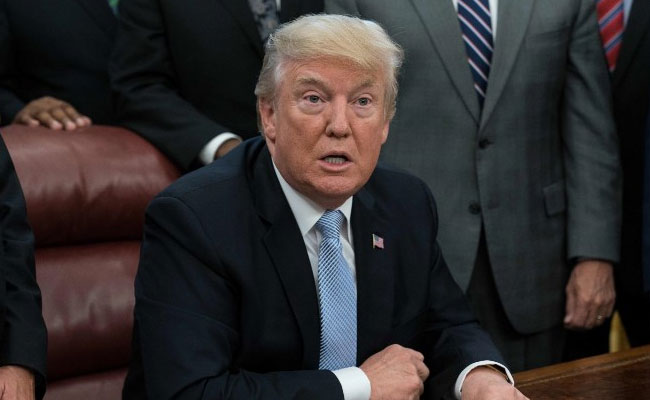
US tech giants, including Apple, and Microsoft, have pledged to stand by their employees after the Trump administration scrapped an amnesty programme that granted work permits to immigrants who arrived in the country illegally as children. US President Donald Trump on Tuesday scrapped an Obama-era programme - called Deferred Action for Children Arrival (DACA) - that protects from deportation immigrants brought illegally into the United States as children, giving the Congress six months to decide the fate of almost 800,000 young people. DACA gave work permits to people known as "Dreamers" who were brought to the United States illegally as children. Top executives of many tech companies including Google, Microsoft, and Facebook have urged the Congress to protect the "Dreamers".
The move is likely to impact 800,000 undocumented workers including more than 7,000 Indian-Americans. Trump shifted responsibility to a Congress controlled by his fellow Republicans and said it was now up to lawmakers to pass immigration legislation that could address the fate of those protected by DACA who would be in danger of deportation.
Brad Smith, president and chief legal officer of Microsoft in a blog post said that if Congress fails to act, the IT company will exercise its legal rights properly to help protect its employees. For the 39 Dreamers that we know of who are our employees, our commitment is clear. If Congress fails to act, our company will exercise its legal rights properly to help protect our employees. If the government seeks to deport any one of them, we will provide and pay for their legal counsel. We will also file an amicus brief and explore whether we can directly intervene in any such case. In short, if Dreamers who are our employees are in court, we will be by their side, he wrote in a blog post.
Google's India-born CEO Sundar Pichai in a tweet said: "Dreamers are our neighbors, our friends and our co-workers. This is their home. Congress needs to act now to
Facebook founder and CEO Mark Zuckerberg in a Facebook post said: "This is a sad day for our country. The decision to end DACA is not just wrong. It is particularly cruel to offer young people the American Dream, encourage them to come out of the shadows and trust our government, and then punish them for it."
After SBI And ICICI, HDFC Bank Gets 'Too Big To Fail' Status: 5 Things To Know
MMNN:5 September 2017
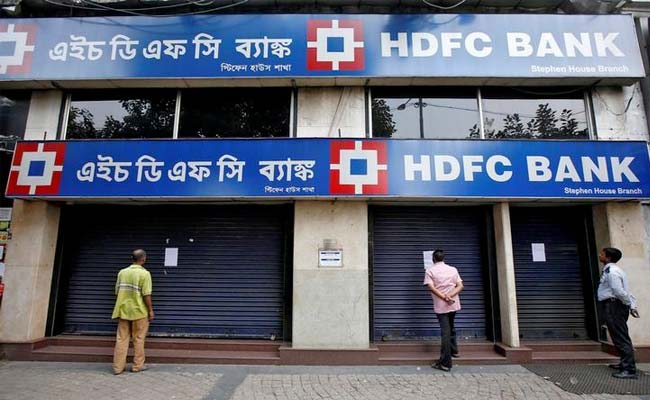
The Reserve Bank of India (RBI) on Monday added HDFC Bank to a list of "domestic systemically important banks", or the equivalent of "too big to fail". HDFC Bank, the second-biggest Indian lender by assets, joins top lender SBI and ICICI Bank in the list referred to as D-SIB or domestic systemically important bank. Being named systemically important imposes additional capital requirements on the lenders. The extra capital requirement for HDFC Bank will be applicable beginning April 1, 2018, RBI said.
Here are 5 things to know about 'Too Big To Fail' Status
1) The RBI had earlier announced SBI and ICICI Bank as domestic systemically important banks. With the inclusion of HDFC Bank in the list, there are now three 'too big to fail' financial entities in the country.
2) Systemically important banks are subjected to higher levels of supervision so as to prevent disruption in financial services in the event of any failure.
3) The Reserve Bank had issued the framework for dealing with Domestic Systemically Important Banks (D-SIBs) in 2014. The D-SIB Framework requires the Reserve Bank to disclose the names of banks designated as D-SIBs and place these banks in appropriate buckets depending upon their systemic importance scores.
4) Based on the bucket in which a D-SIB is placed, an additional common equity requirement has to be applied to it.
5) In case a foreign bank having branch presence in India is a global systemically important bank (G-SIB), it has to maintain additional CET1 capital surcharge in India as applicable to it as a G-SIB, proportionate to its risk weighted assets (RWAs) in India, says an RBI statement
New Face of Cabinet Represents Continuity and Change for New India: CII
MMNN:4 September 2017
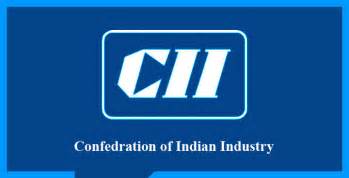
Honble Prime Minister Shri Narendra Modi has carried out a carefully strategized ministerial reshuffle, aimed at imparting fresh impetus to Indias development process. The elevation of new Cabinet ministers and induction of new ministers with independent charge in crucial infrastructure sectors is designed towards implementation and achievement of key targets, said Ms Shobana Kamineni, President, Confederation of Indian Industry (CII), welcoming the changes announced in the Council of Ministers today.
Industry welcomes the new ideas and fresh action agendas that the new ministers will bring to their portfolios. At the same time, continuity too has been maintained in the Council. Overall, the direction of the reshuffle inspires confidence that the path of reforms, ease of doing business and timely implementation will continue to be top priority. This is vital at time when the GDP growth has been flagging, added Ms Kamineni.
The Government has undertaken numerous reforms such as GST, tackling non-performing assets, introducing the Insolvency and Bankruptcy Code, and placing huge emphasis on transport and power infrastructure. CII appreciates the proactive development policies of the last three years. In coming years, CII expects that the reform process will continue as per the vision outlined by Honble Prime Minister to create jobs, boost investments and transform the country.
CII has worked closely with the concerned ministries in the last three years, and warmly felicitates the new ministers who have taken the oath today. CII looks forward to taking forward its agenda for national development in close alignment with the Government for building the New India.
Cooking Gas (LPG) Price Hiked By Rs. 7 Per Cylinder, ATF By 4%
MMNN:2 September 2017
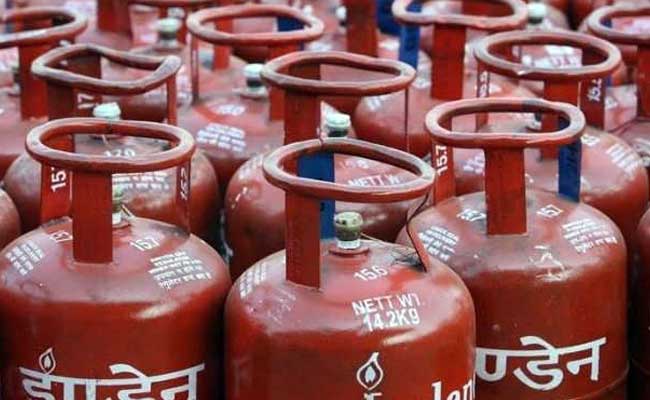
New Delhi: Subsidised cooking gas (LPG) price was today raised by over Rs. 7 per cylinder, in line with the government's decision to hike prices every month so that all subsidises are eliminated by this fiscal-end.
A subsidised 14.2-kg LPG cylinder now costs Rs. 487.18 in Delhi as against Rs. 479.77 previously, according to Indian Oil Corporation, the nation's largest fuel retailer.
Oil Minister Dharmendra Pradhan had on July 31 told the Lok Sabha that the government had asked state-owned oil companies to raise subsidised cooking gas (LPG) prices by Rs. 4 per cylinder every month to eliminate all the subsidies by March next year.
Rates were, however, raised by Rs. 2.31 per cylinder on the previous due date on August 1 and the oil companies have effected a larger hike to equalise that, sources said.
Since the implementation of the policy of monthly increases of Rs. 2 from July last year, subsidised LPG rates have gone up by over Rs. 68 per cylinder. A 14.2-kg LPG cylinder was priced at Rs. 419.18 in June 2016.
The government had previously asked IOC, Bharat Petroleum Corporation Ltd (BPCL) and Hindustan Petroleum Corporation Ltd (HPCL) to raise rates of subsidised domestic LPG (liquefied petroleum gas) by Rs. 2 per 14.2-kg cylinder per month (excluding VAT).
The quantum has now been doubled so as to bring down the subsidy to nil.
Every household is entitled to 12 cylinders of 14.2-kg each at subsidised rates in a year. Any requirement beyond that is to be purchased at market price.
The price of non-subsidised LPG or market-priced cooking gas has also been hiked by Rs. 73.5 to Rs. 597.50 per bottle. Rates were at the last revision cut by Rs. 40.
Simultaneously, the oil companies also raised prices of aviation turbine fuel (ATF) by 4 per cent, in keeping with rising global rates.
ATF, or jet fuel, now costs Rs. 50,020 per kilolitre, Rs. 1,910 more than Rs. 48,110 previously. This hike comes on the back of a 2.3 per cent increase effected from August 1.
Also, price of kerosene sold through public distribution system (PDS) was hiked by about 25 paise per litre.
The government is adopting the same policy as in LPG for eliminating subsidy on kerosene. Since July 1 last year, rates have been been hiked by 25 paise per litre each fortnight.
While Delhi has been declared a kerosene-free state, the fuel now costs Rs. 22.27 per litre in Mumbai compared to Rs. 22 previously. Kerosene was on July 1, 2016, priced at Rs. 15.02 per litre in Mumbai.
State-owned oil firms revise rates of LPG and ATF on 1st of every month based on average oil price and foreign exchange rate in the previous month.
Today's hike in the LPG price is fourth since the May 30 order of the oil ministry to raise rates by Rs. 4 per cylinder every month.
There are as many as 18.11 crore customers of subsidised LPG in the country. These include 2.6 crore poor women who were given free connections during the last one year under the Pradhan Mantri Ujjwala Yojna.
There are another 2.66 crore users of non-subsidised cooking gas.
Narayana Murthy's Charges Patently False, Slanderous: Infosys Ex-Chairman
MMNN:1 September 2017
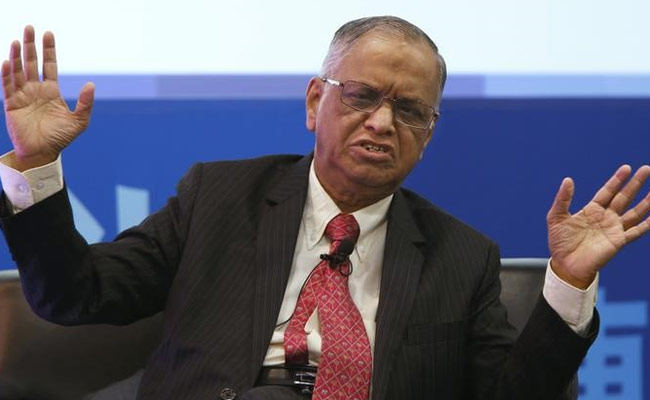
New Delhi: Infosys former chairman R Seshasayee hit out at company founder N R Narayana Murthy on Friday for carrying out "personal attacks" and making "false and slanderous accusations" against him, saying he was unable to understand the motivation for the persistent vendetta. Mr Seshasayee, who along with three other directors quit from the board of Infosys after Mr Murthy rallied other co-founders and institutional investors to bring back peer Nandan Nilekani, said he had always been candid and truthful in all his statements concerning Infosys.
"Since my resignation from the board of Infosys, I have kept away from making any public statements, despite provocations, since I sincerely want the company to move forward, and not be bogged down with the issues of the past," he said, adding he was forced to issue a statement after Mr Murthy's "personal attack and patently false and slanderous accusations" at an investor call earlier this week.
Days after installing Mr Nilekani, Mr Murthy had on August 29 stated that his concerns with the previous board led by Mr Seshasayee were poor governance and ex-CFO Rajiv Bansal being paid large severance as 'hush-money'.
Mr Seshasayee said Mr Murthy's statement to the investors "misleadingly attributes words" to him, words taken "completely out of context" to make it appear that he had lied.
Mr Murthy had in his investor call said that Mr Seshasayee had on October 14 told him that the board agreed to pay Mr Bansal a large sum of money as it "felt generous".
"To quote an anonymous whistle blower letter that alleged many things, which have subsequently been proved baseless and false through multiple investigations by highly respected counsel, in order to give an impression to the audience that I lied to the shareholders, is patently offensive," he said. Also, words that Mr Murthy attributes to independent directors Jeff Lehman and Roopa Kudva from their private conversation with him are also "egregiously taken out of context," he said.
Mr Murthy had stated that Lehman had told him that the reasons for payment to Mr Bansal were confidential while Ms Kudva asked him to sign a non-disclosure agreement if he wanted to know the reasons.
"It is regrettable that Murthy 's campaign on the alleged governance lapses has continually slipped into personal attacks and slander on individual board members," he said.
Seshasayee said he joined Infosys at the invitation of Mr Murthy, who in February this year issued a press statement to say that "I was a man of high integrity."
"I am therefore at a loss to understand the motivations for this persistent vendetta against me," he said.
The same statement went on to quote Mr Lehman, a former of director of Infosys who also resigned recently, to say that Mr Murthy should stop quoting "lies" floated in the anonymous letter on ex-CFO compensation and alleged irregularities in $200 million acquisition of Israeli firm Panaya."For the good of Infosys, I wish Murthy would stop quoting those lies as if they were reputable. For the good of Infosys, I wish Murthy would stop defaming Seshasayee and the other members of a Board who have served with dedication and integrity, who have turned the other cheek when slandered, and who have acted only in the best interests of the company," he said.
He said during his tenure, Mr Seshasayee was "scrupulously and tirelessly devoted to ensuring that the Board comply with all applicable principles of law and governance." "An anonymous, so-called 'whistle blower' made outrageous charges against management; the Board engaged several sets of outside counsel and investigators of impeccable reputation, and those investigators determined that every charge was false and without any foundation," he said.
The statement also quoted John Etchemendy, another former Director of Infosys who also resigned recently from the Board, to say that Mr Seshasayee is "a man of impeccable integrity. Faced with unfair, false, and outrageous attacks, he has consistently responded with scrupulous honesty and forthrightness." He said he was "fully conversant with the details of the Rajiv Bansal issue" and can categorically state that at no point did Mr Seshasayee say "anything in public or, to the best of my knowledge, in private that was untrue or did not reflect the collective view of the Board
Punjab National Bank To Cut Minimum Lending Rate From September
MMNN:31 Aug 2017
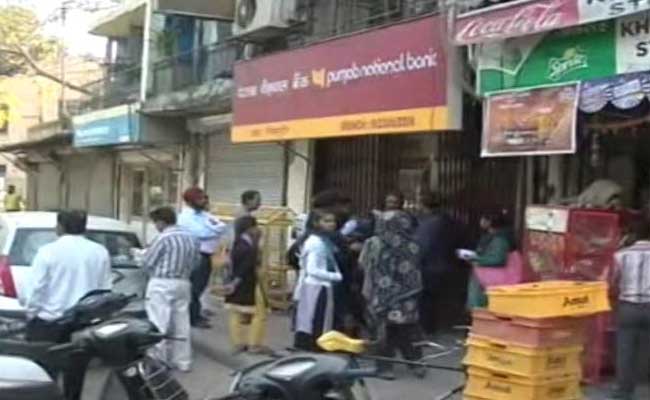
New Delhi: Punjab National Bank has cut marginal cost based lending rates by up to 0.25 per cent for select maturities, effective tomorrow. The state-owned lender has also slashed its base rate by 0.20 per cent to 9.15 per cent.
"The bank has reduced marginal cost of funds based lending rate (MCLR) by 20-25 basis points with effect from September 1, 2017," PNB said in a regulatory filing. It has trimmed the MCLR by 0.25 per cent each for overnight to 7.75 per cent.
Besides, it had reduced the MCLR by 0.20 per cent on one-month, three-month and six months maturities to 7.90 per cent, 8 per cent and 8.10 per cent respectively. It has also reduced the MCLR by 0.20 per cent on one-year, three years and five years maturities to 8.15 per cent, 8.30 per cent and 8.45 per cent respectively.
Banks had adopted MCLR from April 2016 following the directive of Reserve Bank of India. However, a majority of them still follow the base rate or the minimum lending rate formula to charge interest on loans.
MCLR, which is changed every month, is a uniform methodology which was introduced to ensure fair interest rates to borrowers as well as banks. The PNB stock was trading 0.25 per cent lower at Rs.
141.95 on BSE.
Settlement With Franchise Partner Vikram Bakshi Not Possible: McDonald's To Tribunal
MMNN:30 Aug 2017

New Delhi: Fast food chain McDonald's on Wednesday informed the National Company Law Appellate Tribunal (NCLAT) that settlement of dispute with Vikram Bakshi, its joint venture partner for north and east India, was not possible. The NCLAT, which had last week asked both the parties to consider settling the dispute among them, has ordered them to file within a week replies on cross petitions filed against each other. Posting the matter for next hearing on September 21, NCLAT Chairman Justice S J Mukhopadhyay said: "We find no scope of amicable settlement."
The Tribunal had last week asked both the parties to decide by August 30, whether they would consider settling dispute on their own or not
McDonald's on August 21 terminated franchisee agreement
for the 169 outlets in north and east that were operated by Connaught Plaza Restaurant Ltd (CPRL), the joint venture (JV) with Mr Bakshi.
As part of the termination, CPRL has ceased to use McDonalds's name, system, trademark, designs and its associated intellectual property, among others, within 15 days of termination notice.
Mr Bakshi was ousted from the post at the McDonald's franchise in August 2013, following which he approached the NCLT in September the same year. He has been at loggerheads with McDonald's over management of CPRL.
He was reinstated as the MD of CPRL by NCLT on July 14 following which McDonald's approached the Tribunal.
Nifty Regains 9,900 Amid Broad-Based Gains
MMNN:28 Aug 2017

Mumbai: The benchmark BSE Sensex advanced 179 points and the NSE Nifty reclaimed the 9,900-mark in early trade today on strong gains in IT, pharma and FMCG stocks. Positive global cues too influenced the investor sentiment.
The 30-share index was trading higher by 179 points, or 0.56 per cent, at 31,775.06. Sectoral Indices of IT, teck, power, realty, healthcare and banking rose by up to 1.60 per cent.
The gauge had gained 337.21 points in the previous three sessions.
Stock markets were closed on Friday on the occasion of Ganesh Chaturthi.
The NSE Nifty recaptured the 9,900-mark by rising 50.90 points, or 0.51 per cent, at 9,907.95. Brokers said persistent buying by domestic institutional investors and a firm trend at other Asian markets on fresh hopes Donald Trump will be able to push through market-friendly tax reforms buoyed the sentiment.
Infosys, the country's second largest software exporter, emerged as top gainer among Sensex components by rising 3.65 per cent to Rs. 945.85.
The stock was up after after the company on Thursday named former CEO and Aadhaar-architect Nandan Nilekani as its new chairman. Other big gainers were Adani Ports, NTPC, Sun Pharma,
ONGC, ICICI Bank, Cipla, Hindustan Unilever, L&T, Lupin, HDFC Ltd, Coal India and Hero MotoCrp.
Japan's Nikkei was up 0.28 per cent while Hong Kong's Hang Seng gained 0.47 per cent in early trade today. Shanghai Composite edged up 0.81 per cent.
The US Dow Jones Industrial Average ended 0.14 per cent higher on Friday
Narayana Murthy Gave Me My First Job, Says Nandan Nilekani
MMNN:26 Aug 2017
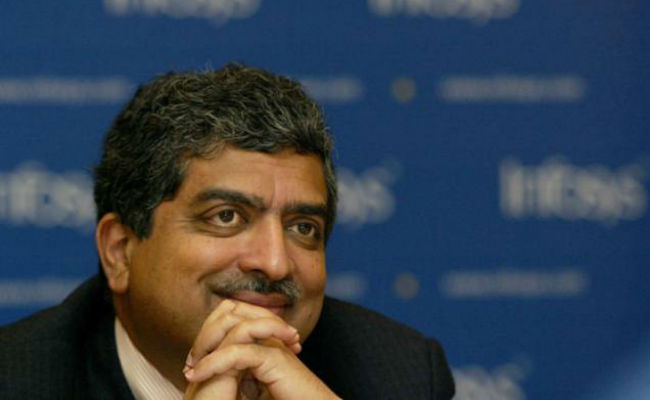
Bengaluru: Returning to the global software firm Infosys after eight years as its new non-executive chairman, co-founder Nandan Nilekani walked down memory lane on Friday to recall his contribution to the country too. Lauding Infosys co-founder N R Narayana Murthy for his contributions to the company and the country. Mr Nilekani said Mr Murthy was the father of corporate governance in India. Mr Nilekani further said: "Murthy is a great visionary leader. He gave me my first job when I graduated from IIT Bombay in the 1980s in Patni Computers in which he was a software engineer. He has made extraordinary contributions to the country."
"I was a CEO of this company (Infosys) and resigned from that position 10 years ago. In 2009, I was invited by then Prime Minister Manmohan Singh to take a job in the government in the status of a cabinet minister to do one of the world's most sophisticated technology projects - Aadhaar (card) that has given over a billion people an identity and is the fundamental basis for India's transformation," Mr Nilekani said at a news conference here
Mr Nilekani, 62, who was CEO of Infosys from March 2002 till April 2007 and its vice-chairman subsequently, quit the company in 2009 to head the Unique Identification Authority of India as its first Chairman till May 2014
Asserting that he was also the company's founder - of which he was proud, the technocrat entrepreneur said he was back because he believed that he had records of doing things.
"I believe in consensus building and my consultative skills have created factor," he noted.
Reiterating that he represented 100 per cent of the shareholders, Mr Nilekani assured them that he would discharge his responsibility with the highest standards of governance, treating all investors equally.
"We are trying to align complex things. This is not about founders and non-founders. This is about all of us working together to align a united company," he said.
Clarifying that he was not going to run the company based on comments on Twitter and TV channels or on all kinds of reporting by the media, Mr Nilekani said he was back at the request of all stakeholders to unravel a very complex situation and make sure that everybody was aligned and to take Infosys, which is a national icon, to its future.
"Can we have the next Infosys story in October? People are distracted by all kinds of reporting about us in the media. I seek your indulgence. We are going to reduce our interface with media for the next two months," he said.
Rs. 200 Note To Be Issued On Friday: Photo, Other Features
MMNN:25 Aug 2017
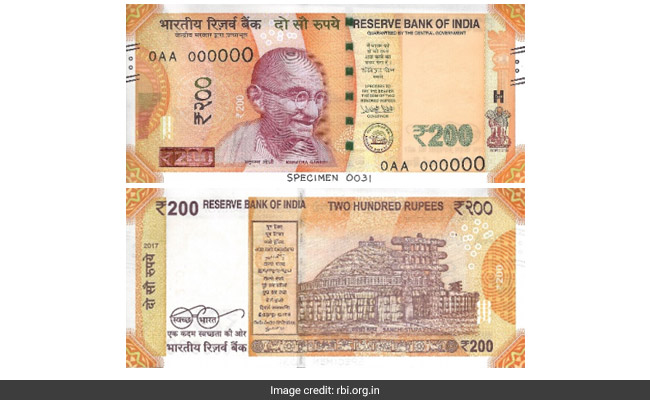
The Reserve Bank of India (RBI) will tomorrow issue Rs. 200 denomination banknotes in the Mahatma Gandhi (New) Series, from select RBI offices, and some bank. The notes will bear the signature of RBI governor Urjit Patel. The new Rs. 200 denomination has Motif of Sanchi Stupa on the reverse, depicting the country's cultural heritage. The base colour of the note is Bright Yellow. The note has other designs, geometric patterns aligning with the overall colour scheme, both at the obverse and reverse. The government had on Wednesday notified the new Rs. 200 note.
"Introduction of a new currency denomination and design is done keeping in consideration various factors like ease of transactions for the common man, replacement of soiled banknotes, inflation and the need for combating counterfeiting," the RBI said in statement. The new Rs. 200 note will facilitate exchange, particularly for the common man who deals with denominations at the lower end, the RBI said
Some features of new Rs. 200 denomination banknotes in the Mahatma Gandhi (New) Series are:
The dimension of the new Rs. 200 banknote will be 66 mm x 146 mm
See through register with denominational numeral 200
Latent image with denominational numeral 200
Denominational numeral 200 in Devnagari
Portrait of Mahatma Gandhi at the centre
Colour of the thread changes from green to blue when the note is tilted
Guarantee Clause, Governor's signature with Promise Clause and RBI emblem towards right of Mahatma Gandhi portrait
Denominational numeral with Rupee Symbol, Rs. 200 in colour changing ink (green to blue) on bottom right
Ashoka Pillar emblem on the right
Mahatma Gandhi portrait and electrotype (200) watermarks
Number panel with numerals growing from small to big on the top left side and bottom right side
Reverse (Back)features of Rs. 200 note
Year of printing of the note on the left
Swachh Bharat logo with slogan
Language panel
Motif of Sanchi Stupa
Denominational numeral 200 in Devnagari
Lupin Recalls Oral Contraceptive From US Market
MMNN:24 Aug 2017
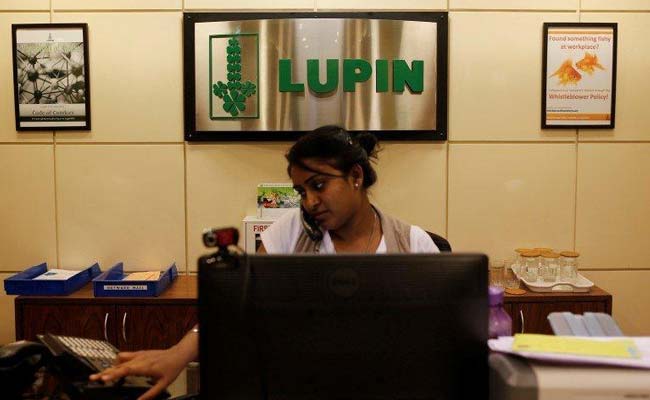
Hyderabad: Pharma major Lupin, through its USA subsidiary Lupin Pharmaceuticals, Inc has initiated voluntary recall of tablets Mibelas 24 Fe from the USA market as they are "out of sequence." According to a notification issued by the US Food and Drug Administration (USFDA), as many as 24,652 tablets are being recalled under 'class-I' classification.
According to the USFDA, class-I recall is a situation in which there is a reasonable probability that the use of or exposure to a violative product will cause serious adverse health consequences or death.
Tablet Mibelas 24 Fe (Norethindrone acetate and Ethinyl estradiol 1 mg/0.02 mg chewable and ferrous Fumarate 75 mg) is an oral contraceptive indicated for the prevention of pregnancy in women, who elect to use oral contraceptives. These products are packaged in blister packs containing 28 tablets.
"Contraceptive Tablets Out of Sequence- First 4 pills of the packet are brown, instead of the last four pills and the expiry/lot was not printed on the package," the FDA notification said as reasons for recall.
The product was manufactured by Lupin Limited, India and distributed by Lupin Pharmaceuticals Inc in the US
CII-MP CSR CONCLAVE:Businesses Touching Lives: 2% and Beyond
MMNN:23 Aug 2017
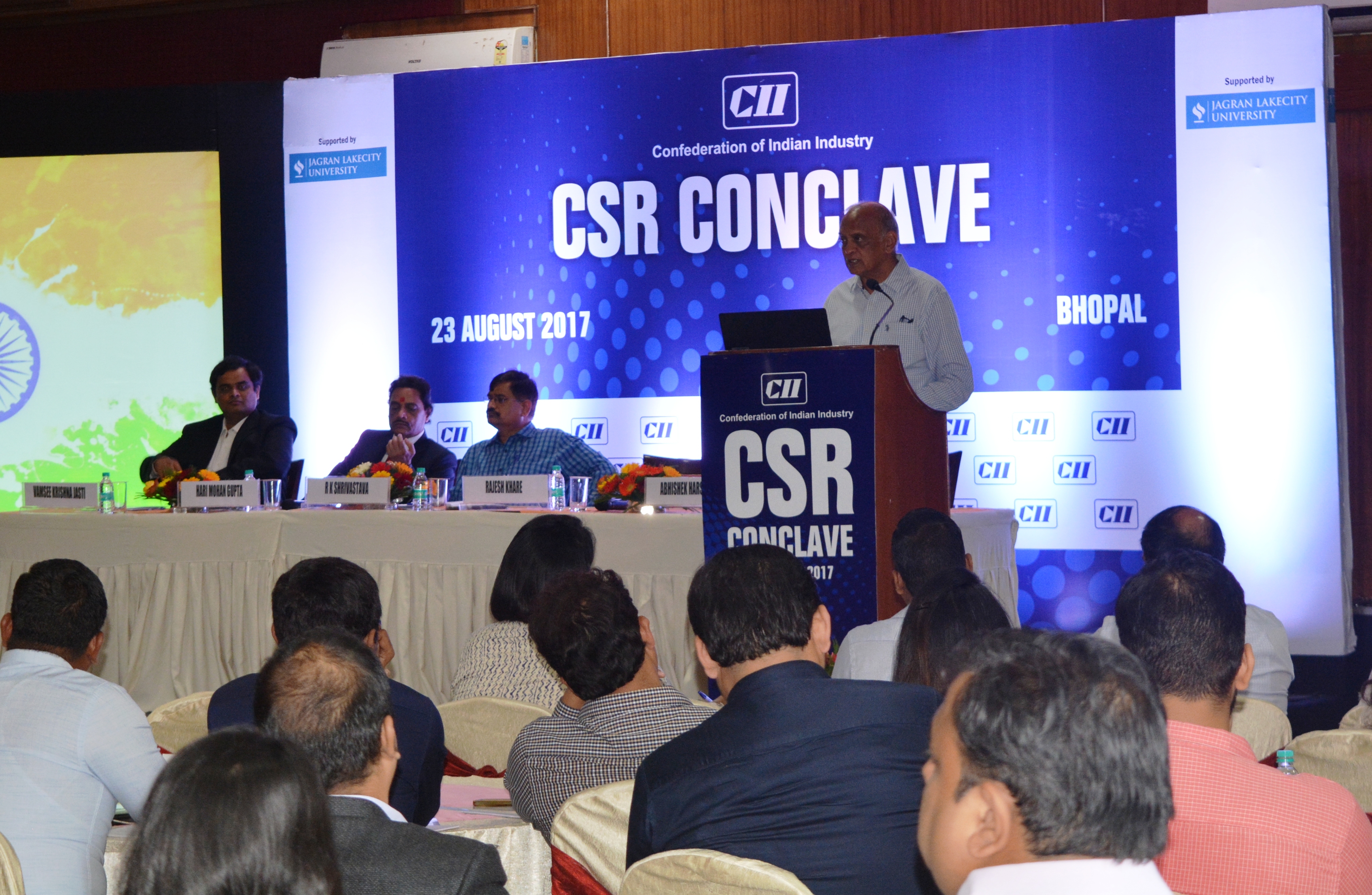
As India enters the 3 rd year of Corporate Social Responsibility (CSR), the interest has moved
beyond compliance and meeting statutory norms among many corporates, to tackling the
inclusive development agenda holistically by combining the strengths of business and civil
society.
With an aim to expand from spending efficiency to sustainable impact Confederation of
Indian Industry organized CII MP CSR Conclave on the theme Businesses Touching
Lives: 2% and Beyond at Hotel Palash. The Conclave brought together key stakeholders to
discuss and deliberate on these important issues and script a way forward.
Conclave witnessed a gathering of top business leaders, CSR heads and teams, Non-profit
leaders, industry bodies, community organizations,policy Makers, and CSR professionals
exchanging insights, discussing issues of importance and forge impactful partnerships in
social impact.
Mr R K Shrivastava, Principal Advisor, MP State Planning Commission delivered the
special address and said that Around Rs. 275 Cr. is being spent in more than 2000 villages
and 50 cities of Madhya Pradesh but unfortunately all organizations are working in isolation.
Its time to create a platform where all stakeholders can come together and formulate policy
towards synchronizing everybodys efforts. He further informed that State Planning
Commission is planning towards creating awareness at district level towards sustainable
development goals.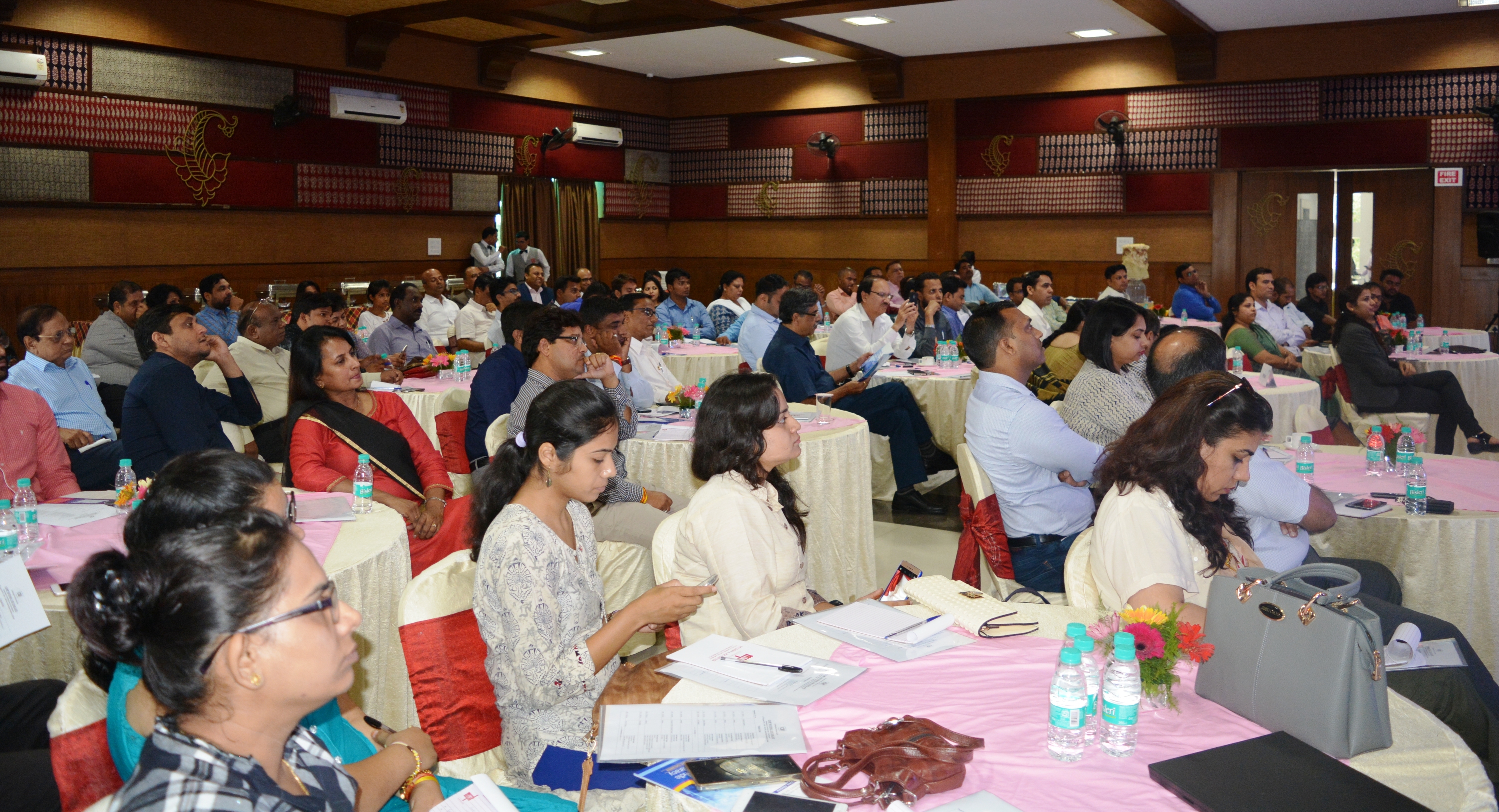 Amongst other speakers in the Inaugural Session were Mr. Vamsi Jasti, Programme Head,
Reliance Foundation, Mr. Hari Mohan Gupta, Chancellor, Jagran Lake University, Mr.
P Kulkarni, General Manager, JK Tyre & Industries Ltd. who informed the gathering
about their CSR activities in Madhya Pradesh and their further action plans.
Mr. Rajesh Khare, Vice Chairman, CII MP State Council presented the Welcome Remarks
while Mr. Abhishek Gupta, Co-Chairman, CII Bhopal Zonal Council gave the Vote of
Thanks.
Inaugural Session was followed by a round of question & answers where-in dignitaries on
dias addressed the different queries of delegates and replied to their suggestions & advice.
Conclave got well attended by more than seventy participants from different sectors of
industry & society and also by those who come outside the purview of Act and are involved
in CSR activities, totally on voluntary basis.
Amongst other speakers in the Inaugural Session were Mr. Vamsi Jasti, Programme Head,
Reliance Foundation, Mr. Hari Mohan Gupta, Chancellor, Jagran Lake University, Mr.
P Kulkarni, General Manager, JK Tyre & Industries Ltd. who informed the gathering
about their CSR activities in Madhya Pradesh and their further action plans.
Mr. Rajesh Khare, Vice Chairman, CII MP State Council presented the Welcome Remarks
while Mr. Abhishek Gupta, Co-Chairman, CII Bhopal Zonal Council gave the Vote of
Thanks.
Inaugural Session was followed by a round of question & answers where-in dignitaries on
dias addressed the different queries of delegates and replied to their suggestions & advice.
Conclave got well attended by more than seventy participants from different sectors of
industry & society and also by those who come outside the purview of Act and are involved
in CSR activities, totally on voluntary basis.
Rs. 200 Notes Notified, Likely To Be Introduced Soon
MMNN:23 Aug 2017

Rs. 200 notes could make their debut soon with the government notifying the new currency note. Experts say Rs. 200 notes will significantly ease transactions. "In exercise of the powers conferred by sub-section (1) of section 24 of the Reserve Bank of India Act, 1934 and on the recommendations of the Central Board of Directors of the Reserve Bank of India, the Central Government hereby specifies the denomination of bank notes of the value of two hundred rupees," according to Finance Ministry's notification issued in the Gazette of India.
The Reserve Bank of India (RBI) had reportedly decided to bring in the Rs. 200 notes in March, after consulting with the Finance Ministry. A Press Trust of India report had earlier said that there is no immediate plan to re-introduce Rs. 1,000 notes.
Last year in November, the government had demonetised the old 500 and 1,000 rupee notes. This exercise of printing Rs. 200 denomination notes is being undertaken to further improve the currency situation in the country, the report said, adding the problem people are facing due to high-value Rs. 2,000 notes would also be taken care of with the circulation of Rs. 200 notes.
In a surprise announcement, Prime Minister Narendra Modi announced scrapping of old notes of Rs. 1,000 and Rs. 500 denomination, wiping out over 85 per cent of the cash in circulation. The move was aimed at checking black money, counterfeit notes and terror financing.
Infosys Shares Under Sebi's Watch After Rs. 34,000 Crore Hit For Investors
MMNN:22 Aug 2017
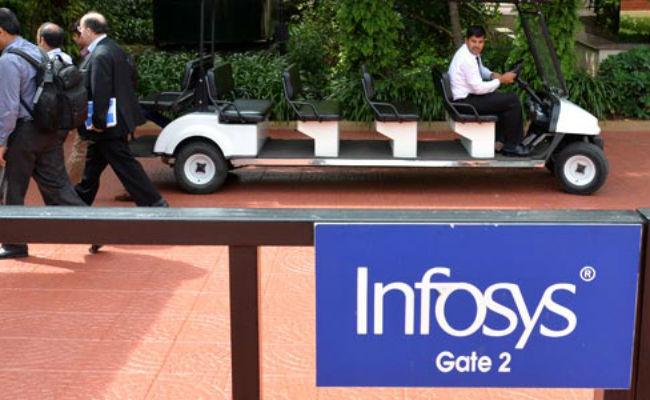
Market regulator Sebi is keeping a close watch on Infosys share prices after a surge in volatility, Sebi Chairman Ajay Tyagi said on Tuesday. Infosys shares have corrected sharply - nearly 15 per cent - in two sessions after Vishal Sikka on Friday abruptly resigned as the company's CEO and MD. This sharp fall in Infosys share prices wiped out Rs. 34,000 crore of investors wealth in just two days. With Dr Sikkas exit, hopes of a turnaround at the company are seen to have been pushed back and many brokerages including Nomura have downgraded Infosys shares and slashed their target price on the stock.
Infosys Rs. 13,000-crore share buyback announced on Saturday failed to cheer investors amid uncertainty around the appointment of a new CEO. According to global brokerage Nomura, a new CEOs appointment is likely to take time. Management churn at INFO (Infosys) would make clients cautious and competitors more aggressive, the brokerage added. Nomura has downgraded Infosys to reduce from neutral and slashed its target price on the stock to Rs. 875 from Rs. 1,000 earlier.
Infosys search for a new CEO may not be an easy one as the pressure of being under the scrutiny of the firms founders, who have alleged corporate governance issues, could see many candidates shying away, said experts.
Meanwhile, four US law firms have said they are investigating potential claims on behalf of Infosys investors on whether the IT major and some of its officials and directors have violated federal securities laws. One of the US law firms, Rosen Law Firm, said in a statement that it is investigating "potential securities claims on behalf of Infosys shareholders resulting from allegations that the firm may have issued materially misleading business information to the investing public.
It added that it is preparing a class action lawsuit to recover losses suffered by Infosys investors.
The equity shares of Infosys are listed on BSE and NSE in India, while its American Depositary Receipts (ADRs) are listed on the New York Stock Exchange (NYSE).
Infosys shares showed a mild recovery today and closed 0.41 per cent higher at Rs.877.15 on BSE.
Banking Transactions May Be Hit Tomorrow: 5 Things To Know
MMNN:21 Aug 2017
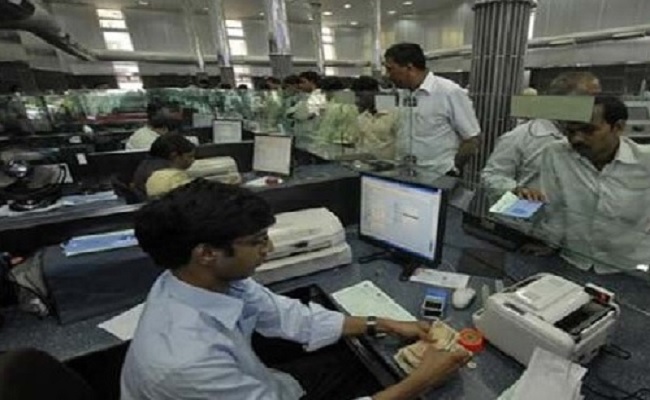
The United Forum of Bank Unions (UFBU) is an umbrella body of nine unions, including All India Bank Officers' Confederation (AIBOC), All India Bank Employees Association (AIBEA) and National Organisation of Bank Workers (NOBW)
Around 10 lakh employees of public sector banks may go on a nation-wide strike on Tuesday, August 22. Employee unions under UFBU or United Forum of Bank Unions, which claims membership of nearly 10 lakh across banks, have called for the one-day strike against reforms proposed by the government. "As the conciliation meeting before the Chief Labour Commissioner failed, unions are left with no other option but to go on strike. There was no assurance from the government and the management of banks," news agency Press Trust of India reported AIBOC General Secretary D T Franco as saying. The United Forum of Bank Unions (UFBU) is an umbrella body of nine unions, including All India Bank Officers' Confederation (AIBOC), All India Bank Employees Association (AIBEA) and National Organisation of Bank Workers (NOBW).
Here are five things to know about the proposed one-day strike tomorrow:
While most public sector banks have informed their customers that functioning of branches and offices will be impacted if the strike takes off, operations at private lenders - like ICICI Bank, HDFC Bank, Axis Bank and Kotak Mahindra Bank - are expected to be normal except delay in cheque clearances.
As many as 21 public sector banks control 75 per cent of the total business.
All attempts to hammer out solutions to the demands raised by the unions bore no fruit and hence, UFBU decided to proceed with the proposed strike on August 22, said Mr Franco of the UFBU.
The unions under the UFBU announced the strike after talks with the government over a proposed consolidation move across the sector were inconclusive, among other demands. They opposed the government's proposed consolidation move besides raising a host of other demands. West Bengal convenor of UFBU Siddhartha Khan had earlier said that the government is ushering in privatisation and consolidation in the Indian banking sector in the garb of reforms.
Other demands include a no write-off policy for non-performing assets (NPAs) or bad loans of corporate loans, declaring wilful default of loans as criminal offence and implementation of recommendations of Parliamentary Committee on recovery of bad loans, the agency cited AIBEA General Secretary C H Venkatchalam as saying. The unions have also requested the government for cost reimbursement of demonetisation to banks.
NPA Resolution Not To Liquidate Companies, But To Help Save Them: Arun Jaitley
MMNN:19 Aug 2017
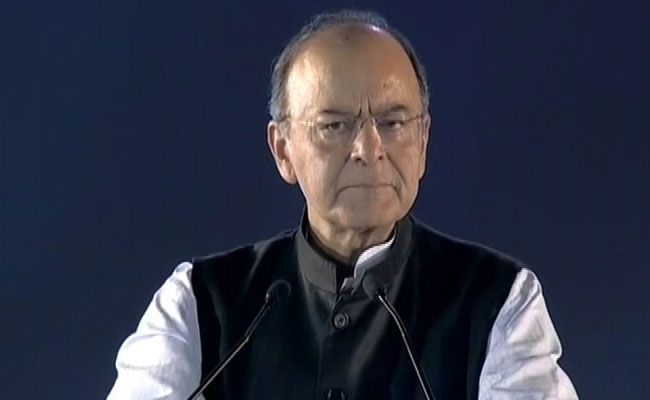
Mumbai: Assuring balance-sheet stressed firms that key objective of NPA resolution is not liquidation of their businesses but to save them, Finance Minister Arun Jaitley today said, the new insolvency law has significantly reversed defaulting debtor-creditor relationship.
"The ultimate objective really is not liquidation of assets, (but) to save these businesses, get either the existing promoters with or without new partners or new entrepreneurs to come in and make sure that these valuable assets are preserved," Mr Jaitley said.
He was addressing an insolvency summit organised by industry lobby Confederation of Indian Industry (CII) here.
Explaining the rationale for the new insolvency and bankruptcy code (IBC), he said, this was necessitated by the failure of debt recovery tribunals to effectively perform their duty after the initial success.
When enacted, the Sarfaesi (Securitisation and Reconstruction of Financial Assets and Enforcement of Security Interest) Act had succeeded in getting down NPAs drastically in the initial two-three years, Mr Jaitley said.
But then the debt recovery tribunals began to be less effective as envisaged, the minister noted, which led to the new law.
But the new regime under the IBC has significantly reversed the defaulter-debtor relationship, he noted, adding, "We lived in a system for many years which protected debtors and allowed assets to rust away."
"The old regime by which the creditor would get tired chasing the debtor and end up recovering nothing, is now over. If a debtor has to survive, he will have to service his debt, or he will have to make way for somebody else. I think this is the only correct way by which businesses would now be done and this message has to go loud and clear," Mr Jaitley said.
Calling for speedy and time-bound resolution of the bad loans issue which has become a major regulatory overhang, the FM expressed the hope that the mandated timelines will be adhered to so that implementation is effective.
Gross NPAs have crossed 9.6 per cent as of March 2017, while the stressed loans ratio is over 12 per cent.
Following this, the RBI has named 12 of the largest defaulters in June, which together owe more than Rs. 2.5 trillion to banks.
Almost all of them are under NCLT (National Company Law Tribunal) now, and may face liquidation if the promoters fail to come up with a sustainable resolution and capital infusion.
These 12 companies are from the list of 500 largest defaulters that the RBI has drawn up.
Vishal Sikka Resigns As Infosys CEO And MD Citing Personal Attacks, Shares Tank
MMNN:18 Aug 2017
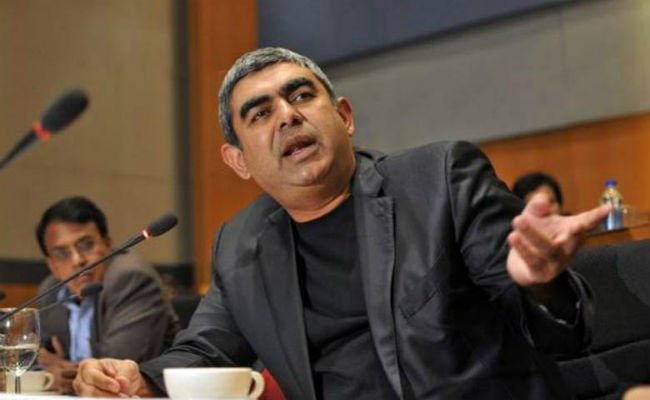
Vishal Sikka has resigned as managing director and CEO of Infosys and the companys board has accepted his resignation with immediate effect, the IT major said on Friday morning. The sudden move came amid growing acrimony between the companys board and its founders led by NR Narayana Murthy. Infosys said chief operating officer UB Pravin Rao will be interim managing director and CEO. Infosys shares plunged as much as 13 per cent today after the announcement.
Dr Sikka, 50, has cited increasingly personal attacks on him as one of the reasons for his sudden decision to resign, saying they were amplified by people who should have supported him. He said the attacks had hit morale at the company, which has been trying to keep pace with rapid changes in the industry.
For days, indeed weeks, this decision has weighed on me. I have wrestled the pros and cons, the issues and the counterbalancing arguments. But now, after much thought, and considering the environment of the last few quarters, I am clear in my decision. It is clear to me that despite our successes over the last three years, and the powerful seeds of innovation that we have sown, I cannot carry out my job as CEO and continue to create value, while also constantly defending against unrelenting, baseless/malicious and increasingly personal attacks,
Infosys founders, including NR Narayana Murthy, have in recent months criticised the companys leadership over executive pay packages and for what they called lapses in corporate governance, which Dr Sikka has stoutly denied. In an email to some of his advisers last week, Mr Murthy had reportedly said that he had been told by at least three independent directors of the company that Vishal Sikka was less CEO material and more chief technology officer (CTO) material. He also criticised the Infosys board for not upholding governance standards and for not creating checks and balances required in any well-run company, the newspaper Mint had reported.
The newspaper also quoted Mr Murthy as saying in the email, "I have nothing against Dr Vishal Sikka. I enjoy spending time with him. I have never commented about his strategy or its execution.
Earlier this year Dr Sikka had described Mr Murthy as an incredible man and said they enjoy a heartfelt, warm relationship. He told NDTV last month when asked about differences with the founders, I think there is a matter with the Board and I think you really have to bring that up with board. Our job and management is to run this great company, this iconic company...The founders have built this company and I am a custodian of this. My primary job is to stay focused on my job.
In his notice of resignation to the board, Dr Sikka reiterated his belief in the great potential of Infosys, but cited among his reasons for leaving a continuous stream of distractions and disruptions over the recent months and quarters, increasingly personal and negative as of late, as preventing managements ability to accelerate the companys transformation, Infosys said in its statement today, adding that the board understands and acknowledges Dr Sikka's reasons for resignation, and regrets his decision. In particular, the board is profoundly distressed by the unfounded personal attacks on the members of our management team that were made in the anonymous letters and have surfaced in recent months.
Dr Sikka will remain with Infosys as executive vice-chairman, the company said and will hold office until the new permanent chief executive officer and managing director takes charge, which should be no later than March 31, 2018. He will receive an annual salary of $1 during his tenure as executive vice chairman.
India Ahead Of China On Retail Development Index In First Half Of 2017
MMNN:17 Aug 2017
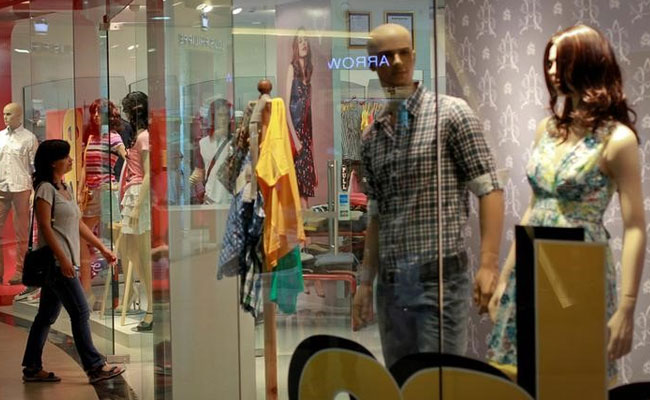
New Delhi: India has surpassed China in the global Retail Development Index in 2017, indicating growing prominence of the country as a preferred retail destination for global brands, says a report by real estate consulting firm CBRE South Asia.
Seven new global brands entered the country during the first half of 2017 and investments into the segment touched $200 million, said the India Retail Market View Report.
Besides, it added, international brands already present in the country also expanded their presence.
Several hypermarkets, including Big Bazaar which opened new stores in Mumbai, Bengaluru and Chennai, expanded their presence, it said, adding that clothing retailers such as Max and Pantaloons were also active during the review period.
Our ranking on the 2017 Global Retail Index for developing countries, as well as continued investment by private equity players, is a demonstration of the sustained preference of international brands to set up, or expand their operations in India, CBRE Chairman, India and South East Asia Anshuman Magazine said.
The brands which opened their first store in India during H1 include Kate Spade, Scotch & Soda, Pandora and Selected Homme while those who expanded operations were H&M, Jack & Jones, US Polo, Taco Bell and Forever 21, among others.
In terms of rental for the retail space, areas such as Connaught Place, Khan Market, and South Extension in the Capital and Park Street and Elgin Road in Kolkata witnessed appreciation.
While rentals in most other high streets remained stable, some high streets such as Linking Road in Mumbai and MG Road in Pune saw a marginal dip in rentals.
Amazon issues refund to customers who bought phoney eclipse glasses
MMNN:14 Aug 2017
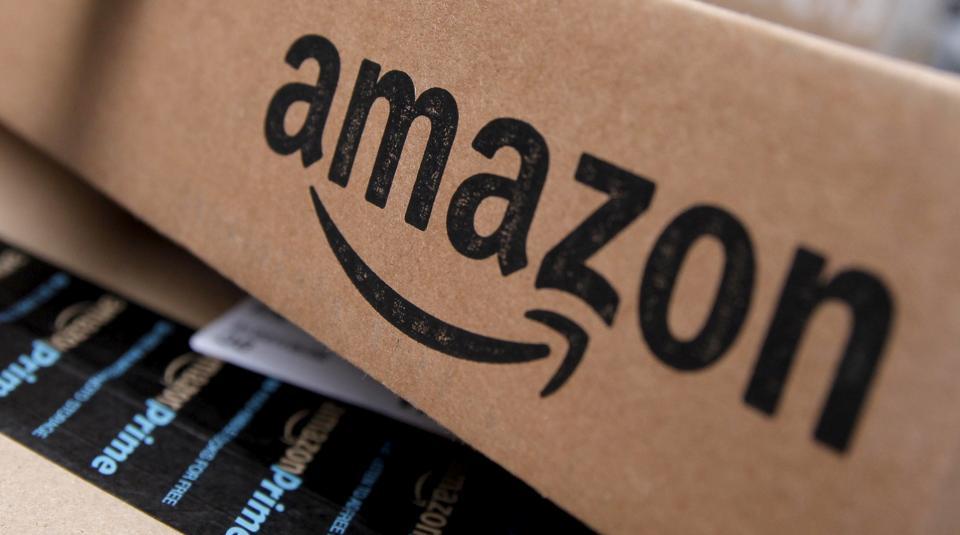
E-commerce giant Amazon is offering refunds to customers who purchased eclipse glasses from the platform and warned them not to use the spectacles to view the total solar eclipse that will occur on August 21.
The company began notifying the buyers about the "unverified" glasses on Saturday. Those who did not receive a recall email are safe to use the ones they purchased, CNET reported on Sunday.
"We recommend that you do not use this product to view the sun or the eclipse," the email issuing the warning read.
Amazon said it issued the recall over concerns with the quality of the glasses.
"Safety is among our highest priorities. Out of an abundance of caution, we have proactively reached out to customers and provided refunds for eclipse glasses that may not comply with industry standards.
"We want customers to buy with confidence anytime they make a purchase on Amazon.com and eclipse glasses sold on Amazon.com are required to comply with the relevant ISO standard," the company added.
The solar eclipse will cross the US from Oregon to South Carolina over the course of an hour-and-a-half and 14 US states will experience night-like darkness for approximately two minutes in the middle of the day.
In India, the Delhi-based Science Popularisation Association of Communicators and Educators will live-stream the upcoming celestial event from the US.
The live streaming will be done from Idaho using a 50 mm f/5 finderscope, a small auxiliary telescope mounted on an Astrotrac tracker - the main astronomical telescope - to follow the Sun.
The device will have a webcam and a solar filter fitted to it, which will enable streaming directly on the official YouTube channel of Space India and will also be available on the organisation's website.
Market update:?Key Indian equity indices trade lower in early session, Rupee plunges 19p against US dollar
MMNN:11 Aug 2017
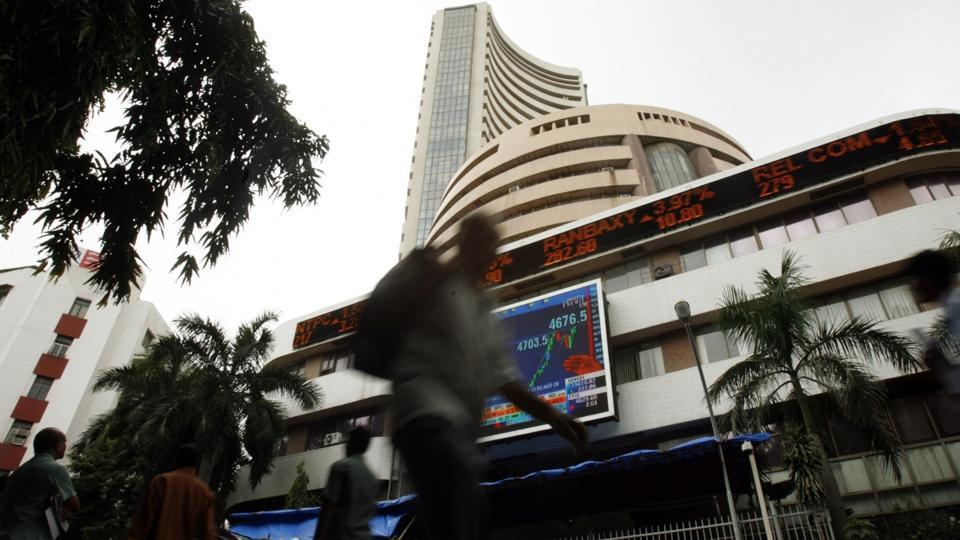
Key Indian equity market indices opened in the red on Friday following global cues.
The 30-scrip Sensitive Index (Sensex) was trading 321.23 points or 1.02 per cent lower during the early session.
The wider 51-scrip Nifty of the National Stock Exchange (NSE) was also trading 96.20 points or 0.98 per cent lower at 9,724.05 points.
The BSE Sensex, which opened at 31,355.92 points, was trading at 31,210.10 points (at 9.16 a.m.) in the early session, lower 321.23 points or 1.02 per cent from Thursday's close at 31,531.33 points.
The Sensex touched a high of 31,355.92 points and a low of 31,194.87 points in the trade so far.
The rupee fell further by 19 paise to 64.27 against the US dollar in early trade on?Friday due to strong demand for the American currency from importers amid foreign fund outflows.
PM Modi Tax Breaks Fire Up India's $704 Million Plane Care Market
MMNN:10 Aug 2017
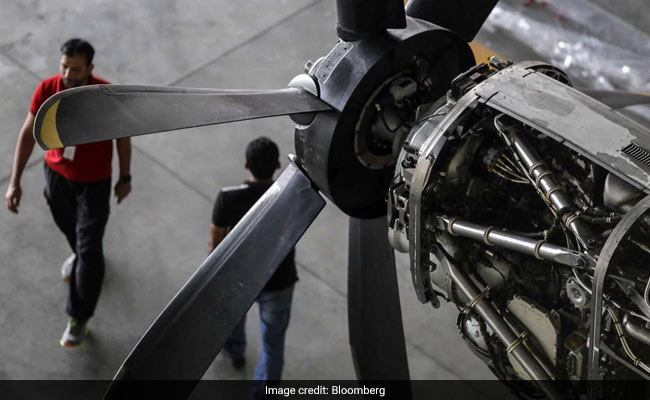
Air Works, which is aiming to conduct an initial public offering in three years, is among companies that could benefit from a surge in air travel in India, an aviation market poised to become the worlds third largest by 2025.
Prime Minister Narendra Modi's tax reforms will encourage more local airlines to service their aircraft within the country, a $704 million-a-year business that currently goes to Sri Lanka and Southeast Asia.
Simpler rules for doing business and scrapping of import duties on equipment and machine parts are benefiting companies that maintain, repair and overhaul planes, Air Works India Engineering Pvt. Managing Director Vivek Gour said in an interview. Air Works services Airbus SE and Boeing Co. single-aisle jets at an airport near Bengaluru.
Air Works, which is aiming to conduct an initial public offering in three years, is among companies that could benefit from a surge in air travel in India, an aviation market poised to become the worlds third largest by 2025. IndiGo, SpiceJet and other carriers have ordered more than $90 billion of aircraft from Airbus and Boeing in the past decade, which raises the potential of servicing about 1,000 aircraft in the next 10 years.
By government estimates, Indian carriers spend about Rs. 4,500 crore ($704 million) annually on maintenance work at facilities in Sri Lanka, Singapore and Malaysia. With the new policy unveiled by PM Modi last year, some of that business could be lured back to India, benefiting firms like Air Works, Gour said.
The latest rules also allow foreign carriers to park their aircraft in India for as long as six months for routine upkeep and repairs without prior government approvals. That has opened up Air Works' potential market to airlines from countries such as Oman, Maldives and Myanmar, Gour said.
Over the last two years, the government has made certain improvements, Gour, 55, said. MRO work in India has become cheaper for an airline
Air Works, which also has a contract to paint some Airbus aircraft in Toulouse, France, is aiming to have revenue of Rs. 1000 crore in three years, a 67 percent jump from its sales in the year ended March, Gour said.
Two US-based private equity firms New Enterprise Associates Inc. and GTI Capital Group together own about 55 percent of Air Works. Gour holds about 6 percent.
Get ready for first filing deadline, GST chief Navin Kumar says
MMNN:9 Aug 2017
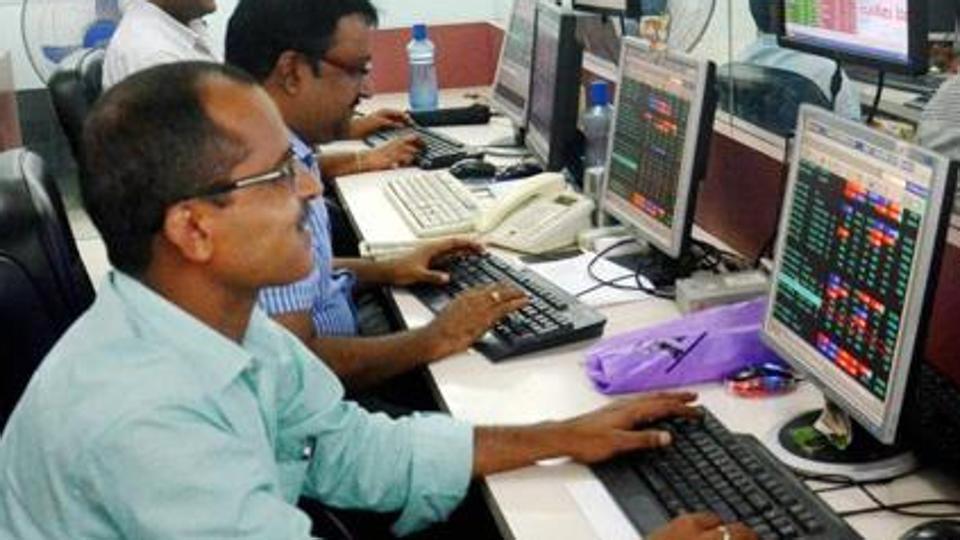
The government has allowed firms to file simplified, self assessed GST returns by August 20 for the month of July, when the tax was launched
Millions of companies in India are still not ready to file their first returns under the new Goods and Services Tax (GST) ahead of an August 20 deadline, a top official told Reuters, urging them not to leave things to the eleventh hour.
Navin Kumar, chairman of the GST Network, also said barely half of the 34 service providers accredited to help firms bulk file invoices online had received approval to go live.
Yet he gave an assurance that the huge IT back end that is designed to crunch up to 3 billion invoices a month and calculate companies' taxes would be stable, even if there is a last-minute rush to file.
It will not crash, he told Reuters in an interview. We are working on the assumption that 50% of the people will come on the last day.
Billed as India's biggest-ever tax reform, the GST has replaced a slew of federal and state levies. It has also cleared barriers between India's 29 states, uniting its 1.3 billion people into a common market for the first time
Yet the complexity of the tax - which has main rates of 5, 12, 18 and 28 percent and multiple exceptions - has raised concerns that companies will struggle to comply and file their monthly returns on time.
Even before the GST filings kick in, business surveys showed both the services and manufacturing sectors contracting at their fastest rate in years, heralding a likely dip in indirect tax revenues.
The government has allowed firms to file simplified, self-assessed GST returns by August 20 for the month of July, when the tax was launched.
They will have to file complete returns in early September that itemise and reconcile every single sales invoice under a regime that, by comparison with other countries, is labour- and data-intensive.
More than 7 million existing taxpayers have activated accounts on the GST's portal - although around a third have yet to complete the form-filling required to file a full tax return, Kumar said.
Another 1.3 million new firms have registered to pay GST.
He waved away concerns that companies would not be able to cope, saying that those used to paying value-added tax - now abolished - were used to online filing.
Although companies can upload invoices directly into the GST portal, big businesses will rely on a new breed of service provider whose applications can format, reconcile and upload invoices in bulk.
Of a first batch of 34 services providers that have been accredited, only 18 have received permission to go live. I have been urging them to speed up their work, Kumar said.
Airtel plans to sell 3.7% stake in Bharti Infratel for Rs 2500 crore
MMNN:8 Aug 2017
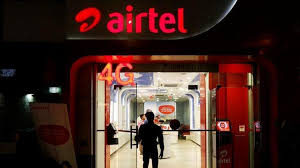
Bharti Airtel is learnt to be in process to offload 3.7 stake in Bharti Infratel for about Rs 2,500 crore, sources aware of the development said.
Bharti Airtel in March had transferred 11.32 stake in its mobile tower arm Bharti Infratel to its wholly- owned subsidiary Nettle Infrastructure at a value of around Rs 6,806 crore.
Airtel is in process of offloading 3.7 stake in Bharti Infratel held through Nettle Infrastructure. Expected amount is Rs 2,550 crore. It will help company lower its debt, the source said.
No immediate comments were received from Bharti Airtel.
Bharti Airtel's consolidated net debt at the end of June 2017 was Rs 87,840 crore.
Bharti Airtel and Nettle jointly hold 61.65% in Bharti Infratel.
In March, Bharti Airtel sold 10.3% stake in its mobile tower arm to a consortium of KKR and Canada Pension Plan Investment Board for Rs 6,193.9 crore.
Shares of Bharti Infratel closed at Rs 397.9 a unit, down by 2.06% over previous close at BSE.
Google Tests Publishing Tech Similar To Snapchat: Report
MMNN:5 Aug 2017
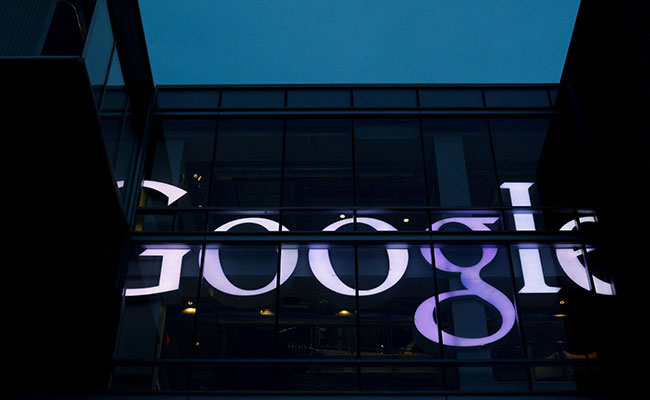
Snapchats Discover tab is distinct in the way it integrates video clips with text and photos, allowing users to skip to a new story or advertisement with the touch of a finger.
Alphabet Inc's Google is developing technology that media companies could use to create stories similar to those found on Snapchat's "Discover" platform, a person familiar with the plans said on Friday.
Google's project, dubbed Stamp, is in the early stages of testing with publishers, said the person, who spoke on condition of anonymity.
Tech firms including Google, Snapchat's owner Snap and Facebook Inc are racing to develop publishing tools for media companies, hoping to fill their own apps with news, entertainment, sports and other content.
The challenge for such tools is making them faster and easier to use than a web browser, while creating an interesting experience for users.
Snapchats Discover tab is distinct in the way it integrates video clips with text and photos, allowing users to skip to a new story or advertisement with the touch of a finger.
The Wall Street Journal first reported the development of Google Stamp earlier on Friday, citing people familiar with the matter.
Google has been in discussions with several publishers, including Vox Media, Time Warner Incs CNN, Mic, the Washington Post and Time Inc to participate in the project, the newspaper said.
Google said in a statement: We dont have anything to announce at the moment but look forward to sharing more soon.
The name Stamp echoes an existing Google product, Accelerated Mobile Pages, or AMP, that allows for faster loading of online news stories. Facebook has a competing product, Instant Articles.
Government Launches New Exchange-Traded Fund (ETF) Bharat-22
MMNN:4 Aug 2017
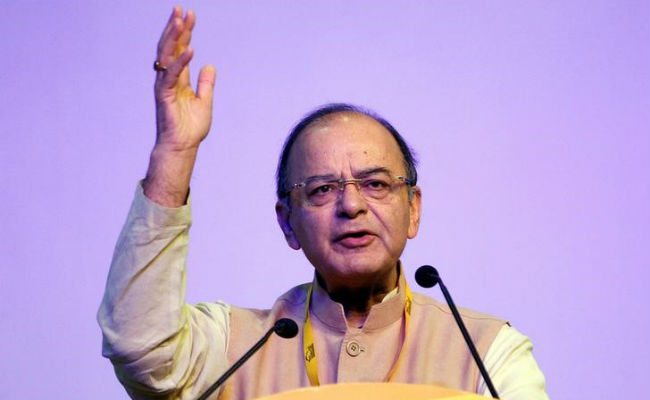
New Delhi: Finance Minister Arun Jaitley has announced a new exchange-traded fund (ETF) - Bharat-22 - to sell government stakes in 22 firms under its asset sale programme. The fund will trade government shares in 22 state-run companies, public sector banks and some private firms, Mr Jaitley said. ICICI Prudential will manage the fund, he added.
It will feature four banking stocks -- SBI, Axis Bank, Bank of Baroda and Indian Bank -- other than CPSEs such as Nalco, ONGC, IOC, BPCL and Coal India. Besides, there will be nine other PSUs as well as REC and PFC. SUUTI's holding in ITC has also been included. 90 per cent of the equities included are traded in futures.
India's gold imports likely to fall after introduction of GST, smuggling seen rising: WGC
MMNN:3 Aug 2017
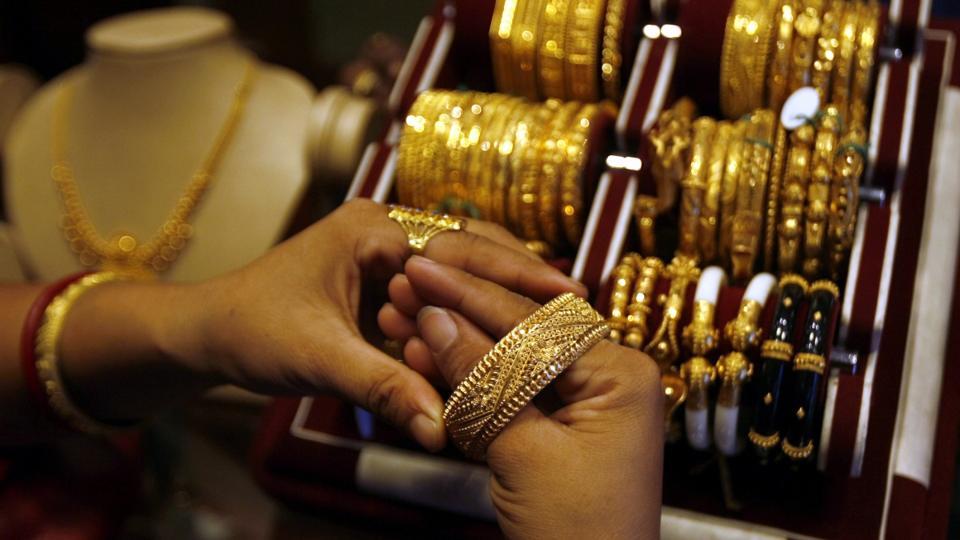
Indias gold imports will likely drop in the second-half of the year from the first six months after jewellers rushed to stock up ahead of new taxes introduced on July 1, the World Gold Council (WGC) said on Thursday.
Faltering appetite in a country where gold is used in everything from investment to wedding gifts could rein in a rally in global prices, trading near their highest level in seven weeks.
Expecting higher (taxes), certainly some of the imports and some of the demand from the second-half were advanced in the June quarter, Somasundaram PR, Managing Director of WGCs India operations, told Reuters.
As part of a new nationwide sales tax regime introduced in July, the goods and services tax (GST) on gold jumped to 3 percent from 1.2 percent previously. Jewellers have to pay that tax when buying gold imported by banks, while their customers must also pay when making purchases.
India is the worlds No.2 gold consumer. The countrys demand for the metal in the first-half rose 30 percent from a year ago to 298.4 tonnes, but imports during the period more than doubled to 518.6 tonnes, the WGC said in a report published on Thursday.
Indias gold imports typically strengthen in the second-half of the year as the precious metal is considered an auspicious gift at festivals such as Diwali and Dussehra.
Indian gold demand is expected to remain subdued for a few weeks as consumers who have recently purchased are unlikely to do so again in the short term, the WGC said.
There have been fears the tax increase could stoke under-the-counter buying in India, where millions of people store chunks of their wealth in bullion and jewellery.
Gold smuggling into India is likely to rise in 2017 from last years around 120 tonnes as the hike in sales tax has effectively lifted margins for grey market operators amid transition to the new tax system, Somasundaram said.
Already there is transitional challenge on GST. On top of it, if customs duty remains high, it could push a lot more trade into the grey market, he said.
India raised import duties on the metal to 10 percent in a series of hikes to August 2013, looking to curb demand to narrow a gaping current account deficit.
Despite robust demand in the first half, the WGC kept its forecast for Indias full-year demand at 650 tonnes to 750 tonnes, lower than a 10-year average of 845 tonnes, but just above last year's level.
RBI Rate Cut Important For Sustained Growth, Says Finance Ministry
MMNN:2 Aug 2017
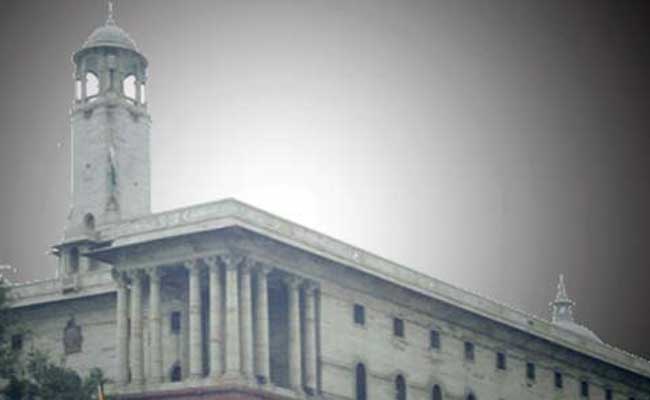
New Delhi The finance ministry today said the RBIs decision to cut key policy rate by 0.25 per cent is an important step to achieve sustained growth consistent with moderate inflation and Indias potential. The Reserve Bank, in its third bi-monthly monetary policy of the fiscal, today reduced the repo rate after a gap of almost 10 months.
The new repo rate at 6 per cent is the lowest in six-and-a-half years. The last rate cut was effected in October 2016.
RBI Governor Urjit Patel said the central bank has maintained the economic growth projection at 7.3 per cent for the current fiscal.
Commenting on the central banks decision, Economic Affairs Secretary Subhash Chandra Garg said the government welcomes the repo rate cut.
The government has taken note of the statement of the Monetary Policy Committee (MPC) and its assessment of the inflation and growth outlook, he added. We welcome the 25 basis points cut in the repo rate as an important step necessary to converge towards the appropriate real monetary conditions for sustained growth consistent with India's potential and for stable, moderate inflation," Garg said.
The government had been pitching for a rate cut to boost economic growth amid retail inflation falling to a historic low of 1.54 per cent in June. The monetary policy statement was arrived at after a two-day meeting of the MPC headed by RBI Governor Urjit Patel.
The MPC has decided to keep the policy stance neutral and to watch incoming data with a view to keeping headline inflation close to 4 per cent. It has stressed on urgent need to reinvigorate private
investments, clear infrastructure bottlenecks and provide a major thrust to the Pradhan Mantri Awas Yojana.
The RBI said it is working in close coordination with the government to resolve large stressed corporate borrowings and recapitalise public sector banks.
Snapdeal Calls Off Merger Talks With Flipkart, To Pursue Independent Path
MMNN:31 July 2017
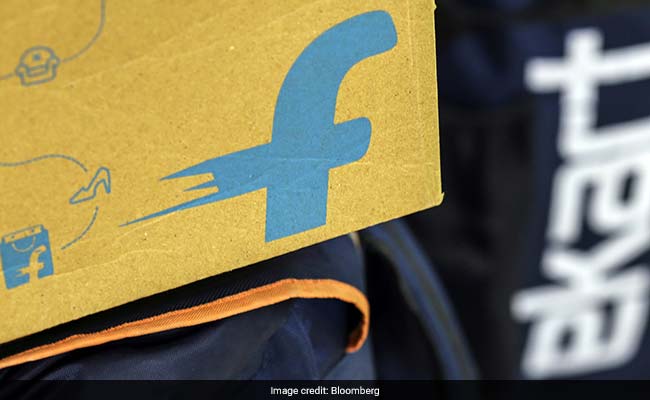
The failure to forge a merger would be a setback to Softbank Group, the largest investor in Snapdeal, as it has been attempting to engineer an all-stock deal for months, as a tie-up would help it secure a sizable stake in Flipkart
Gurgaon-based e-commerce firm Snapdeal today called off talks for a takeover by larger rival Flipkart, saying it will "pursue an independent path" to continue its operations. "Snapdeal has been exploring strategic options over the last several months. The company has now decided to pursue an independent path and is terminating all strategic discussions as a result," a Snapdeal spokesperson said in an emailed statement, without naming Flipkart.
The board of Jasper Infotech, which runs Snapdeal, had earlier in-principle agreed to Flipkart's revised buyout bid of up to $950 million and a deal was pending approval of smaller shareholders, sources said. Two early stage investors in Snapdeal, Kalaari Capital and Nexus Venture Partners, were also reluctant to back a deal with Flipkart, the sources added.
Jasper Infotech said it has a "new and compelling direction - Snapdeal 2.0" and has made significant progress towards the ability to execute this by achieving a gross profit this month. "In addition, with the sale of certain non-core assets, Snapdeal is expected to be financially self-sustainable," it added.
The latest developments come within days of Snapdeal agreeing to sell its digital payment platform, FreeCharge, to Axis Bank for Rs. 385 crore.
One of the leading contenders in the Indian e-commerce space, Snapdeal has seen its fortunes falling amid strong competition from Amazon and Flipkart. Its largest investor, SoftBank had been proactively mediating the talks for the sale. Japanese conglomerate SoftBank said supporting entrepreneurs and their vision is at the heart of Masayoshi Son's (SoftBank chairman and CEO) and SoftBank's investment philosophy.
"...we respect the decision to pursue an independent strategy. We look forward to the results of the Snapdeal 2.0 strategy, and to remaining invested in the vibrant Indian e-commerce space," a SoftBank spokesperson said.
The deal, if it had gone through, would have marked the largest acquisition in the Indian e-commerce landscape. Compared to a peak valuation of about $6.5 billion in February 2016, the talks had valued Snapdeal at about $1 billion.
SIS IPO Opens On July 31; To Raise Upto Rs. 780 Crore
MMNN:29 July 2017
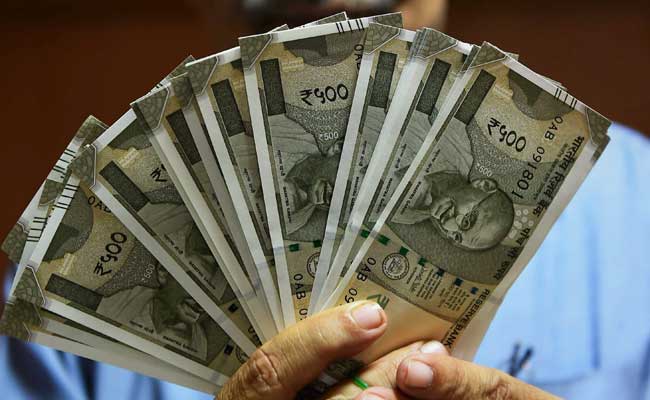
New Delhi: Security and Intelligence Services (India) Ltd (SIS) on Friday said it will launch an IPO on Monday and expects to raise up to Rs. 780 crore, a part of which will go towards debt repayment.
SIS has set Rs. 805-815 per share as the price band for the initial public offer (IPO) that closes on August 2.
The IPO comprises a fresh issue of equity shares valuing up to Rs. 362.25 crore and an offer for sale of up to 5,120,619 equity shares to be diluted by investors and promoters, the company said at a press conference here today
In a break-up for the offer for sale, SIS Group CEO Uday Singh said investors -- Theano Private Ltd and AAJV Investment Trust -- are completely exiting by selling their entire stake-holding of 3,402,764 equity shares and 68,336 shares respectively.
In the promoter selling shareholders, Chairman Ravindra Kishore Sinha will dilute up to 786,517 shares in the IPO; Rituraj Kishore Sinha 524,345 shares. Other selling the stake have put on the block up to 338,657 equity shares.
Bids can be made for a minimum of 18 equity shares and in multiples thereafter, SIS said.
"The Indian security market is worth Rs. 40,000 crore which is largely fragmented with not more than 15 big players. There is enough headroom for us to grow in a faster pace," Singh said.
Of the over Rs. 362 crore of the primary proceeds from the IPO, the company will use about Rs. 200 crore for high cost equipment financing and to retire high cost debt that will help improve company's profit after tax (PAT) and earnings per share (EPS), said Rituraj Kishore Sinha, the Group Managing Director of SIS.
Rest of Rs. 160 crore from the primary proceeds will be used for growth and general corporate purpose, he added.
Axis Capital, ICICI Securities, IIFL Holdings, Kotak Mahindra Capital Company are global coordinators and book running lead managers to the issue. SBI Capital Markets, IDBI Capital Markets and Securities and Yes Securities (India) are merchant bankers to the issue.
SIS said it ranks second in terms of security services solutions in India and has a number one spot in Australia.
It also offers cash logistics and facility management services.
Security services include security design and solutions, fire safety, event security, VIP protection, aviation security, emergency response, investigation work and integrated technology solutions providing man-tech solutions.
Cash logistics pertains to cash in-transit, doorstep banking, ATM-related services, bullion and cash vaulting services.
Facility management offers housekeeping services, janitorial support; heating, ventilation and air conditioning (HVAC) repairs and pest control.
Biocon Shares Fall 7% As Q1 Profit Slumps
MMNN:28 July 2017

New Delhi: Bio-pharmaceutical firm Biocon's shares dropped 7 per cent on Friday, a day after the company reported a 51.20 per cent decline in consolidated net profit for the quarter ended June 30. Shares of the company opened the day on a disappointing note and further declined 6.86 per cent to Rs. 371.70 on the Bombay Stock Exchange (BSE). On the National Stock Exchange (NSE), Biocon shares fell 7 per cent to Rs. 371.20.
Biocon had post-market hours on Thursday reported a 51.20 per cent decline in consolidated net profit at Rs. 81.3 crore for the quarter ended June 30.
The company had posted a net profit of Rs. 166.6 crore for the corresponding quarter of the previous fiscal year.
Total income of the company stood at Rs. 987.7 crore for the quarter under consideration, as against Rs. 1,032.9 crore a year ago.
Commenting on the results, Biocon chairperson and MD Kiran Mazumdar-Shaw said Financial performance was muted largely due to a combination of factors weakening of US Dollar, GST (Goods and Services Tax) impact and inclusion of operational and fixed costs of Malaysia
Sensex Ends Flat, Nifty Holds 10,000 Level; IT, Pharma Shares Fall
MMNN:27 July 2017

IT and pharma shares were the biggest hit in today's trade as rupee rose to a two and a half month high of 64.07 against the dollar
Indian equity indices ended flat on Thursday, as last hour selling in IT shares and market heavy-weight Reliance Industries, offset gains made by HDFC, HDFC Bank and Yes Bank. The Sensex closed 0.84 points higher at 32,383.30 and the Nifty settled 0.1 points lower at 10,020.55. Selling pressure also emerged amid expiry of the July series derivative contracts, analysts said. Reliance Industries closed 1.72 per cent lower at Rs. 1,594.80. Gains in the market were led by HDFC, Yes Bank, HDFC Bank, which rose 5.8 per cent, 4.31 per cent and 2.41 per cent respectively. These companies reported their earnings earlier this week. The banking sub-index of NSE, Nifty Bank closed 1.02 per cent higher.
IT and pharma shares were the worst hit in today's trade as rupee rose to a two and a half month high of 64.07 against the dollar. IT and pharma companies get a bigger pie of their revenues in the US currency. The Nifty IT and Nifty Pharma sub-indices of NSE, closed 1.58 per cent and 1.56 per cent lower respectively. Dr Reddy's Labs was the biggest loser in Nifty, down 3.21 per cent, followed by Tech Mahindra, Tata Motors, TCS and Indiabulls Housing Finance, which fell between 2.5-3.1 per cent.
Mid-cap and small -cap shares also witnessed profit booking today. The BSE Midcap and BSE Small cap indices closed 0.54 per cent and 0.51 per cent lower respectively. Market breadth was negative as 881 closed higher and 1,845 ended with losses.
Snapdeal Board Approves Flipkart's $900-$950 Million Takeover Offer: Report
MMNN:26 July 2017
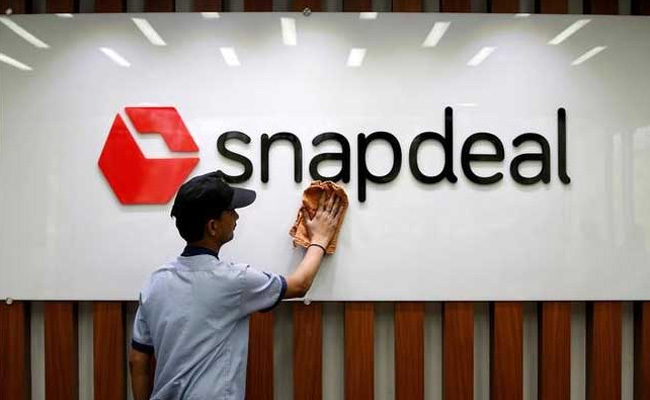
Mumbai: Online marketplace Snapdeal has accepted Flipkarts revised takeover offer of up to $950 million, two sources said on Wednesday, providing heft to its bigger rival in a high-stakes battle with Amazon.com Inc.
The board of Jasper Infotech, which runs Snapdeal, approved Flipkart's bid of $900 million-$950 million last week, the sources who were familiar with the matter said. A deal is now pending the approval of Snapdeal shareholders, they said.
Snapdeal declined to comment, while Flipkart was not immediately available for comment.
India's fledgling e-commerce sector is in the midst of a fierce war for supremacy between U.S. online retail giant Amazon and leading homegrown player Flipkart at a time more and more Indians shop on the web, helped by a spurt in availability of cheap phones and data plans.
Japan's solar-to-tech conglomerate SoftBank, Snapdeal's biggest investor, is keen to consummate the deal and take an equity stake in Flipkart to profit from India's booming online retail market.
A 2016 report from accounting firm EY noted that e-commerce has grown at a compound annual growth rate of over 50 percent in the last five years in India and the pace of growth is expected to continue, with e-commerce sales topping $35 billion by 2020.
Bengaluru-headquarterd Flipkart had revised its initial offer for Snapdeal to up to $950 million, Reuters reported last week.
The board also considered a $700 million share-swap offer by listed e-commerce firm Infibeam but rejected it as too low, one of the sources said.
Infibeam declined to comment.
Separately, Indian private-sector lender Axis Bank is the frontrunner to acquire Snapdeal's digital payments unit FreeCharge for $60 million, the sources said.
Axis Bank did not immediately respond to a request for comment.
All sources spoke on condition of anonymity as the discussions are not public.
Surevin IPO opens on July 28
MMNN:25 July 2017
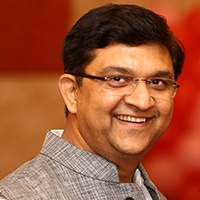
Leading BPO services provider surevin is a Bhopal based IT company ,it is ready to go public through SME platform .Talking exclusively to Metromirror,Abhishek Gupta ,Promoter-MD Surevin said"We would utilise the funds for
capacity building and technology upgradation .Presently our revenue is 50% through government .We also handle CM Helpline ." He said that the future of IT companies is bright and skilled IT Professionals would always find the right job.
IPO OFFER
*Face value of the share Rs.10/
*Price band of shares Rs.38-40/
*9,12,000 equity shares will be floated,8,64,000 shares are being offered to the public.
COMPANY STRENGTHS
*Secured resources of revenue for the next 7 years.
*25.97 is the cumulative growth rate in revenue of the company over the past 4years.
*Aspiring to enter into newage technologies .
More details on www.surevin.com
Consumer panel imposes Rs 1 lakh fine on SBI for frivolous appeal
MMNN:24 July 2017
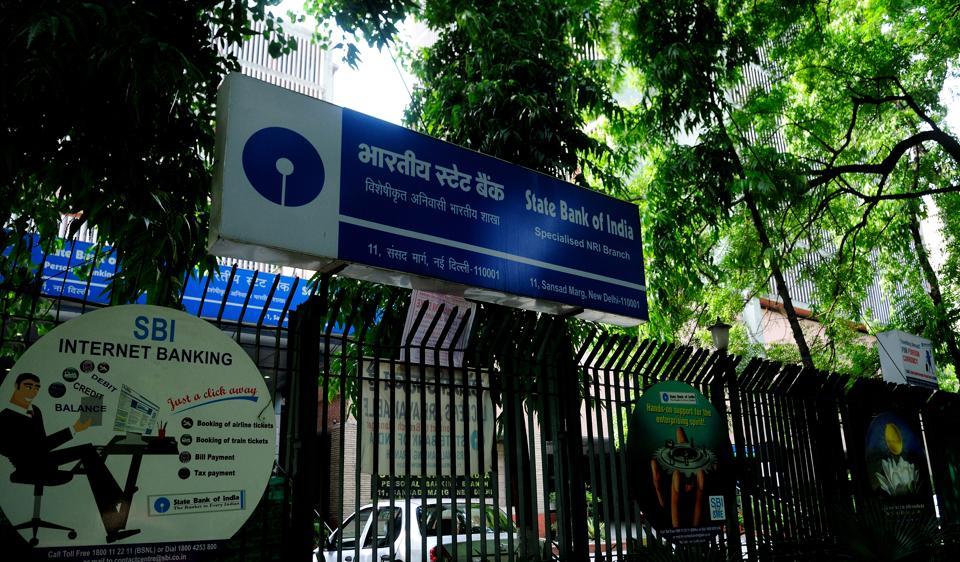
The Delhi state consumer panel has directed the State Bank of India to refund Rs 1.29 lakh to a customer for not taking effective steps to block her stolen ATM card in 2006
The state commission also imposed a cost of Rs one lakh on the bank for filing a frivolous appeal before it.
The commission, while dismissing the appeal filed by the SBI against the district forum order asking it to return the money, said that the bank failed to take effective steps for blocking of the stolen ATM card which was a clear case of deficiency in service.
It was the bank who failed to take effective steps for blocking of the ATM card. It is thus a clear case of deficiency in service. The incident took place in March 2006 and the complainant has not received a single penny in a span of 11 years, the judicial member of the state commission N P Kaushik said.
It said that instead of making the payment to the complainant, the bank rather filed a false and frivolous appeal.
The same is dismissed with costs of Rs 1,00,000, the commission said.
According to the complaint filed by Okhla resident Rahimunnisa Shahana, on March 13, 2006 her bag containing a new ATM card and an envelop having the pin number were stolen before she could even use it. The bag also contained Rs 5,000 among other things.
She went to her SBI branch in Nizamuddin on the same day and met an officer and the branch manager and made a request to block the card, it said.
She alleged that when she went to the branch after a fortnight and enquired about her credit balance, she learnt that the entire amount Rs 1,29,060 had been withdrawn through ATM during March 13 to March 21.
The plea claims that she made a complaint in writing on March 30, 2006 and filed a complaint with the police as well.
The bank had claimed in the district forum that the complainant herself was negligent in carrying the ATM card and the envelope containing the PIN code.
It also denied her visit to the bank on March 13, and said that she never met any of its officers on the day the theft took place.
However, the district forum had rejected the claims of the bank and asked the bank to return the money.
Six telecom companies under-reported revenue by over Rs 61,000 crore: CAG
MMNN:22 July 2017
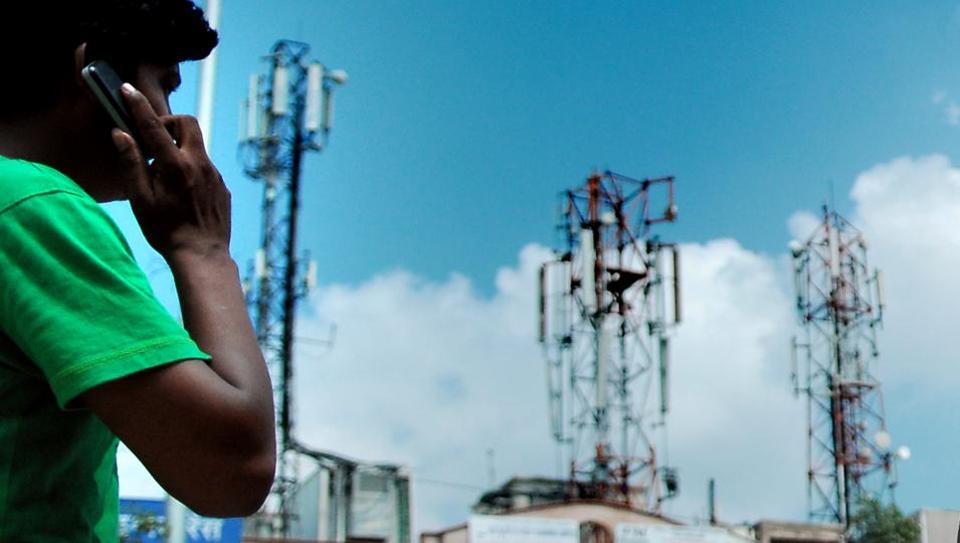
The CAG audited six telecom companies - Bharti Airtel, Vodafone, Aircel, Idea, Reliance Communication and Sistema Shyam Teleservices Ltd - and said they under-reported their adjusted gross revenue (AGR) by Rs 61,064 crore during 2010-2015.
Private telecom operators have understated revenues worth over Rs 61,000 crore from 2010 to 2015, leading to a shortage of payment to exchequer, a report by the Comptroller and Auditor General revealed on Friday.
The CAG audited six telecom companies - Bharti Airtel, Vodafone, Aircel, Idea, Reliance Communication and Sistema Shyam Teleservices Ltd.
The report tabled in Parliament said the companies under-reported their adjusted gross revenue (AGR) by Rs 61,064 crore during 2010-2015. This reduced the government's earnings in the form of spectrum charges and licensing by Rs 7,697.6 crore.
The report said the understatement was due to promotional schemes such as free talk time and discounts paid to postpaid subscribers on roaming services besides accounting adjustments for commission or discount paid to distributors.
According to the report, the netting of revenue from infrastructure sharing and non-inclusion of forex gains, interest income and sale of investment also led to understating of revenue. An amount of Rs 4,531 crore as interest arising out of short term payments is also due.
Reliance Jio to raise Rs 20,000 crore via rights issue to meet funding needs
MMNN:21 July 2017
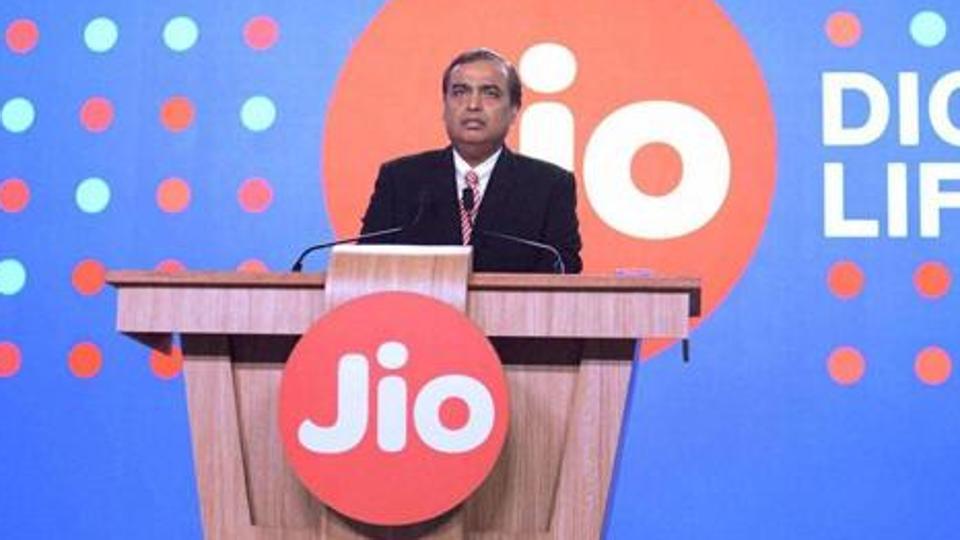
Reliance Jio, the latest entrant in the telecom sector, will raise Rs 20,000 crore through a rights issue to meet funding requirements.
The Board of Directors at its meeting held on July 20, 2017 has decided to make a rights issue of four billion - nine per cent non-cumulative optionally convertible preference shares (OCPS) of Rs 10 each for cash, at a premium of Rs 40 per OCPS, aggregating Rs 20,000 crore, Reliance Jio Infocomm said in a regulatory filing.
An aggressive newcomer, the Mukesh Ambani-led firm launched 4G services commercially on September 5, 2016 with free data and voice offerings, and signed up the first 50 million subscribers in just 83 days.
The company started charging for mobile services from April 1, but continues to offer disruptive data rates and free voice calls.
Earlier this month, Jio rolled out new plans after its Dhan Dhana Dhan offer launched on April 11 reached the maximum allowed 90-day period.
It has lowered validity and data on a revamped Rs 309 plan, but is dishing out a bumper 84GB for Rs 399. Jio had over 112 million users at the end of April 2017.
RIL plans to sell 200 million 4G feature phones in 2 years
MMNN:20 July 2017
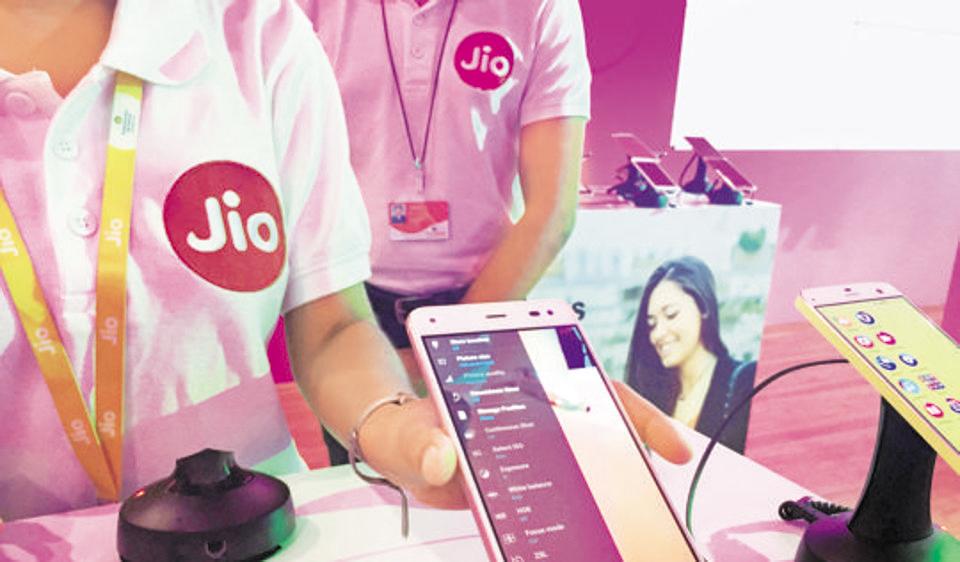
The company is planning to launch it in the second half of August. However, it could not be ascertained if the handsets will be sold by Reliance Retail or Jio.
With an eye on 2G mobile users, Reliance Industries is working on a strategy to sell 200 million 4G feature phones -- likely to be priced Rs 1,000- 1,500 -- in two years, industry sources told PTI.
The company is planning to launch it in the second half of August. However, it could not be ascertained if the handsets will be sold by Reliance Retail or Jio.
"Reliance has not yet finalised actual unit price of the feature phones, but it is likely to be in the range of Rs 1,000-1,500 a unit. It will be smart feature phone with pre- loaded apps of Reliance Jio like Jio TV Jio Money etc, one of the sources who did not wish to be named said.
He said the phone will not have touchscreen facility like smartphones, but will have rest of facilities like wi-fi connectivity and browsing and come with a cable that can connect the handset with television sets to watch Jio TV content.
"The company is eyeing 2G users who cannot afford expensive smartphones and are paying high call rates. Jios voice calls will be free which will encourage them to buy these handsets the source said.
Reliance Jio has started the process of importing handsets and is in discussion with Foxconn and Intex to make them in India.
"Around 10 million units are being planned for initial sales and the company has plans to increase inventory to 100 million in the first year and another 100 million next year. Discussions have started with Foxconn and Intex to make these phones in India, the source said.
Mobile industry body Indian Cellular Association in a submission to the government has said the total size of Indian mobile phone market was estimated to be around 280 million units in 2016 and is expected to grow to 320 million by 2018.
A source privy to discussions said Intex had approached RIL for bundling Jio service for a state government tender.
Intex will bid for a state government tender which has huge requirement of low-cost mobile phone, but it wants bidder to come with a service provider. The economy of scale is enough to bring down the cost of phone. The discussion with RIL started for this tender and is now moving in direction for low-cost 4G feature phones, the source said.
He said Jio will use Qualcomm chipsets in 4G feature phones.
When contacted, Reliance Jio declined to comment. Intex said: ...we are exploring various business opportunities, including those with Reliance Jio, and would keep you updated about the details as they materialise. We also keep participating in various state governments tenders and are always keen to work with them.
Infosys results look good only when compared to TCS
MMNN:17 July 2017
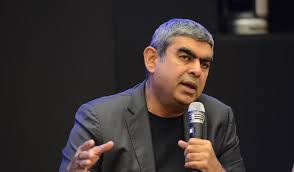
Infosys's Q1 results are better than TCS's, and to that extent come as a relief, but a 2.7% revenue growth is hardly a sign of recovery or return to double-digit growth
After Tata Consultancy Services Ltd's (TCS) weak performance in the June quarter, Infosys Ltd's results came as a relief for investors. Its revenues grew 2.7% in constant currency terms, in line with analysts' estimates, while profit margins were far ahead of the Street's expectations. TCS disappointed on both revenues and margins.
Infosys shares rose 3% in early trading, even while TCS fell by nearly as much. While the latter's shares, understandably, continue to be under pressure, Infosys's shares have given up most of their gains. After all, while the company's reported profit may be more than what analysts had estimated, nothing material has changed on the ground.
At the end of the day, growth in the core business remains sluggish. As the chart alongside shows, year-on-year volume growth has fallen below the levels it stood at when Vishal Sikka had taken over as chief executive officer. According to an analyst at a multinational brokerage, it's likely the half decent June quarter numbers were boosted by the GST (goods and services tax) project being handled by the company. Growth in core markets, he says, was far more subdued. For instance, growth in North America stood at just 1.3% sequentially, far lower than the company average.
Volvo V90 Cross Country: Should you consider it over other luxury sedans or SUVs
MMNN:15 July 2017

Volvo has found considerable success with its Cross Country models in India. First, there was the V40 Cross Country that continues to move decent numbers. Then, the company brought in the rugged S60 Cross Country sedan, which, it turns out, massively outsells its traditional sibling. The next luxury crossover from the Swedish carmaker will come in the form of the V90 Cross Country. Its a strongman-suit clad version of the V90, the estate sibling to the impressive S90 sedan. But should you consider it over typical luxury sedans or SUVs?
Youll find that the face, and much of the body up to the rear doors, is near-identical to the S90. From thereon, however, the V90s rear culminates in a sleek rear section, much unlike estates. Volvos signature tail-lamp cluster adds to the Cross Countrys handsome looks. For the luxury crossover, Volvo has toughened the design with some mild bumper cladding while standard 20-inch wheels fill out the large wheel arches nicely. Volvo has even raised the car by 60mm, giving it an SUV-rivalling 210mm of ground clearance. All-wheel drive is standard and, like the S90, there's adaptive air suspension at the rear. The estate shape has not done well in India so far, but the V90 Cross Country presents one of the prettiest ones to have hit our roads.
The cabin, based on the S90 sedan, features the same minimalist dashboard with a large 9.0inch touchscreen that controls most of the air con and infotainment settings. The V90 Cross Country, however, trades the veneer inserts on the dash and doors of the S90 for lovely aluminium panels.
The front seats are similar to the S90s heated and superbly supportive, and with electric adjust for the bolsters, lumbar support and extendable squabs. But the V90 takes it a step further with a cooling function and an enjoyable massage feature. Theres also a heated steering wheel. The rear seats in comparison are comfortable but on the firm side and come with none of the adjustability of the front. But, the new roofline means better headroom behind than the S90. Thigh support, however, is low and extendable squabs would have helped. Space at the back is good for two, but the large transmission tunnel eats into the middle passengers legroom.
What you will never complain about is storage space the wagon has an impressive 560 litres of wide and flat boot space. Should the need arise, the rear seats can be dropped to increase that number to 1,526 litres, enough for all your kitchen sinks. Recessed under the boot is a space saver spare tyre.
Theres just one fully loaded variant which comes with all the bells and every last whistle. The equipment list includes a panoramic sunroof, a sensational 19 speakers, 1,400W Bowers and Wilkins sound system, an electric tailgate, a heads-up display, four-zone climate control, full-LED headlights and paddle shifters for the automatic gearbox
Power comes from a 235hp, 2.0-litre turbo-diesel engine that is a significantly stronger unit than the 190hp motor found in the S90 sedan. It is smooth, refined, and dishes out power in a linear fashion. Power builds till just over 4,000rpm, after which the engine starts to get quite noisy.
This motor benefits from Volvos PowerPulse technology that helps keep the engine responsive even at low revs. The system works quite well, but put your foot down at low revs, especially on inclines, and you still feel the pause before the engine starts to pull convincingly.
The eight-speed gearbox offers smooth and near-seamless shifts in normal driving conditions, but is a bit slow to downshift when driven aggressively. There is no Sport mode either, so the best solution for spirited driving is to use manual mode through the paddle shifters. There are four driving modes - Eco, Comfort, Off-road and Dynamic. Eco dulls engine response a bit and slightly softens the steering. Comfort finds a middle ground while Dynamic offers heavier steering and sharper engine response. Dynamic also firms up the suspension a bit, but the overall differences between the modes are subtle.
The V90 Cross Country can even do a fair bit of off roading. Driving it up some broken muddy tracks through a coffee estate, the car impressed. Engaging Off-road mode sends more power to the rear wheels, and effects a small rise in ground clearance and engages hill-descent control.
Ground clearance is sufficient to deal with fairly deeply rutted tracks, and the all-wheel drive works quite nicely at pulling the car up steep tracks. In fact, the overall off-road ability is comparable with something like an Audi Q5.
The handling mannerism meets Volvos new relaxed confidence approach well. While rivals focus on a sportier experience, Volvo aims more at comfort, confidence and capability. Even in Dynamic mode, the V90 Cross Country wallows and sways a bit. However, the grip levels are quite impressive, thanks to the sticky Pirelli P Zero tyres that the car comes with. But given the large wheel and rather low profile, durability of the tyres on poor roads might be an issue.
In all, the car offers brisk and capable performance, but its not particularly sporty or engaging. However, ride quality is excellent and its only the deeper potholes that cause a thud if met with speed.
The V90 Cross Country will go on sale shortly and is expected to cost Rs 60-65 lakh (ex-showroom). What it has over the S90 sedan is a more powerful engine, additional equipment, and the ability to handle the worst that our roads can offer. Safety is given full priority, of course, with a raft of features which includes radar-assisted systems like Pilot Assist, Lane Keeping Aid (only works on clearly marked roads) and Front Collision Mitigation Support. Theres also a parking assist, adaptive cruise control, hillstart assist and hill-descent control.
The V90 Cross Country opens a new niche in the market and Volvo isnt sure if it will attract more sedan buyers or SUV buyers. It will more likely be the former as the V90 Cross Country doesn't offer the commanding presence that SUV buyers love. Either way, if you're considering a car or an SUV at this price point, this Volvo deserves your consideration.
Sensex breaches 32k-mark, Nifty at a fresh high too
MMNN:13 Jul 2017
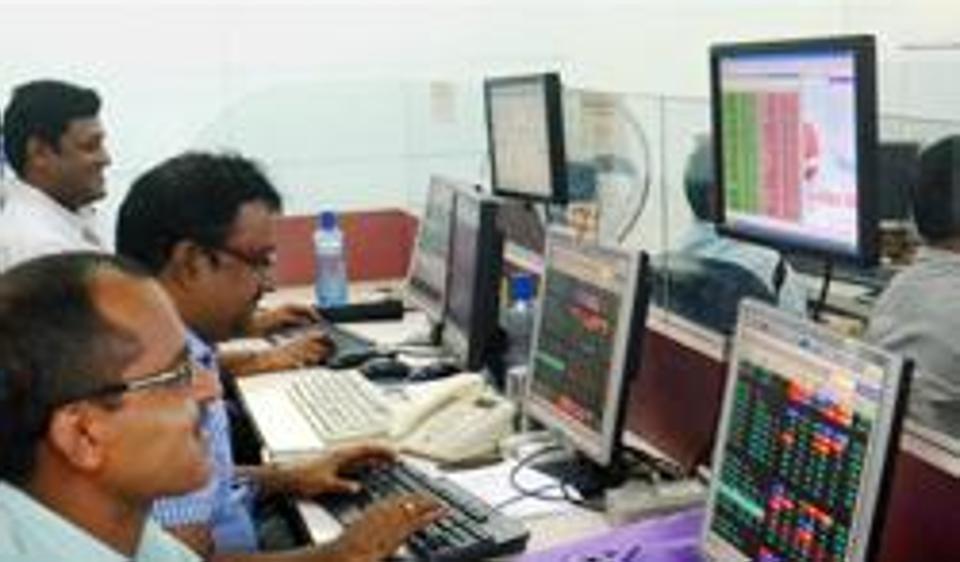
Breaking boundaries, the benchmark Sensex breached the 32,000 mark for the first time and the NSE Nifty hit a new peak of 9,879 today on strong buzz that a policy rate cut may be on the anvil after inflation touched a record low.
A positive lead from Asia after US Federal Reserve chief indicated a gradual approach to raising US interest rates made investors here go in for fresh bets.
The 30-share index zoomed 215.60 points, or 0.67 %, to hit a new peak of 32,020.42, surpassing previous intra-day record of 31,885.11 reached on July 11.
The gauge had rallied 444.18 points in the previous three sessions.
The stock of the largest IT exporter TCS was trading 0.65 % higher ahead of its earnings today.
All the sectoral indices, led by FMCG, capital goods, power, metal, banking and auto, were trading in the positive zone, with gains of up to 1.06 %.
Shattering records, the 50-share NSE Nifty too rose 62.40 points, or 0.63 %, to hit a new life high of 9,878.50. It had touched an intra-day record high of 9,830.05 on July 11.
There are renewed hopes of a rate cut by the Reserve Bank at its policy meet next month after retail inflation hit a historically low level of 1.54 % in June and industrial output growth slumped to 1.7 % in May.
Prominent gainers in the Sensex kitty were ICICI Bank, ITC Ltd, L&T and Sun Pharma, gaining by up to 1.69 %.
Hong Kongs Hang Seng rose 1.15 % while Japans Nikkei was up 0.15 % in early session. Shanghai Composite was up 0.33 %.
The US Dow Jones Industrial Average rallied 0.57 % to close at a record yesterday.
Amazon wins India's approval to invest in selling food and groceries
MMNN:11 Jul 2017
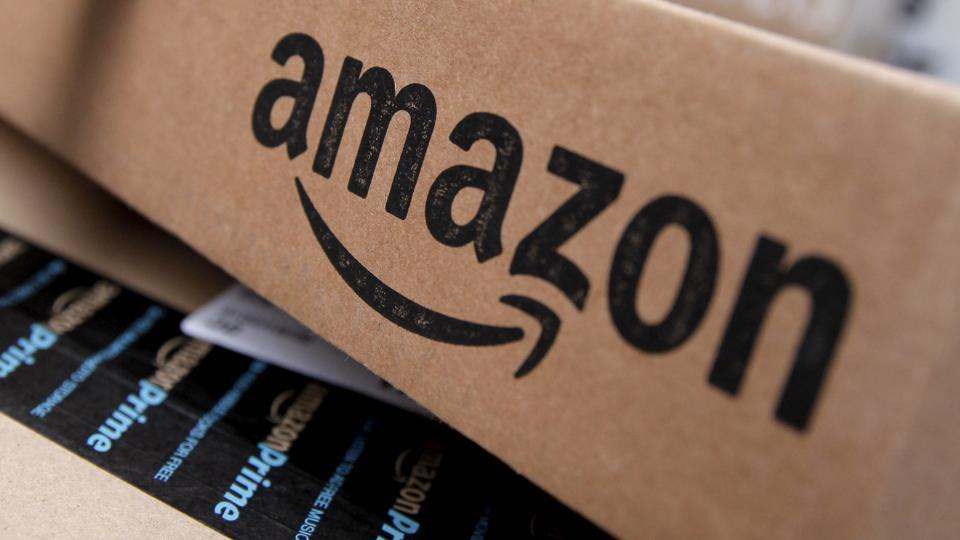
Amazon confirmed winning Indian government approval for its plan to sell food products, but it declined to provide further details
Online retail giant Amazon.com Inc has secured approval to stock and sell food and groceries in India, potentially expanding its business in the fast-growing economy where it is in a pitched battle with home-grown rival Flipkart.
Amazon confirmed winning government approval for its plan to sell food products, but it declined to provide further details.
Separately, a source familiar with the matter said Amazon planned to invest $500 million in the food segment, over and above the $5 billion it had already committed to investing in India.
Cheaper smartphones, increasing internet penetration and steep discounts have led to a surge in domestic online shopping for everything from gadgets to clothes and food items in India.
Still, mom-and-pop stores account for the biggest share of grocery sales, offering organised players huge growth potential.
Currently Amazon offers food products in India via Amazon Pantry, where retailers including joint venture Cloudtail sell various products. It also offers same-day grocery delivery on its Amazon Now app through a tie-up with Indian retailers Big Bazaar, Star Bazaar and Hypercity.
Amazon did not comment on whether its new investments would affect any of its existing tie-ups, or its Cloudtail joint venture.
Venture-funded Flipkart, whose backers include Tiger Global, Tencent Holdings and Microsoft, also plans to move into the groceries space, company executives have said.
Amazon last month announced plans to buy upscale U.S. grocer Whole Foods Market Inc for $13.7 billion.
Google search sammelan held
MMNN:10 July 2017
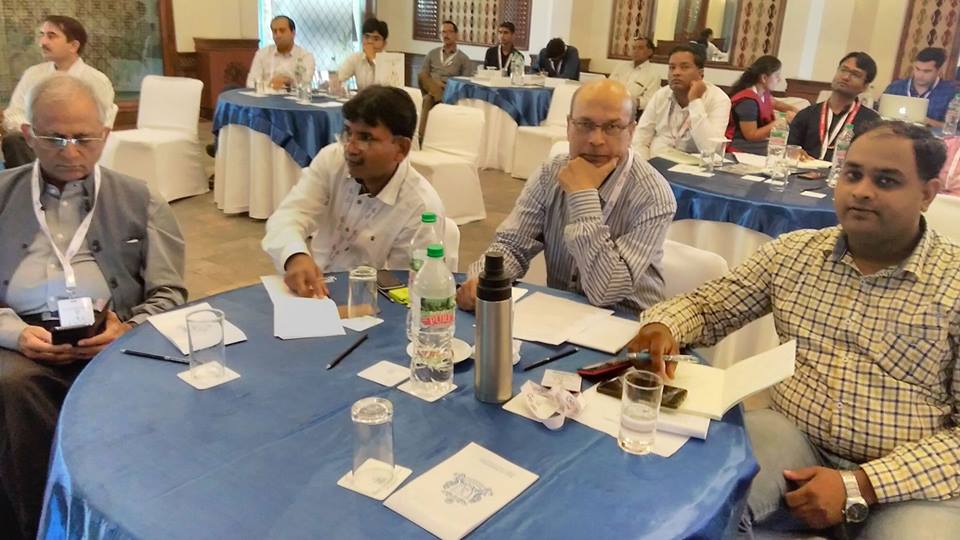
Google search sammelen for the online publishers was held at Hotel Noorus Sabha.Google team members enlightened the delegates about the Google search engine working and discussed Various useful points for the publishers Ms. Snigdha Bhardwaj welcomed the delegates and said that the number of internet users in india would rise to 65 crore by 2021.The number of indian language users have already overtaken the English users, she said.
Mr.Syed Malik and Abhash Tripathi explained to the delegates how to keep the web safe.They said we provide tools to help webmasters make the webpages mobile friendly.
Google provide many tools for the web masters.They also advised webmasters to access g.co/Search console that would provide all vital information about the website.
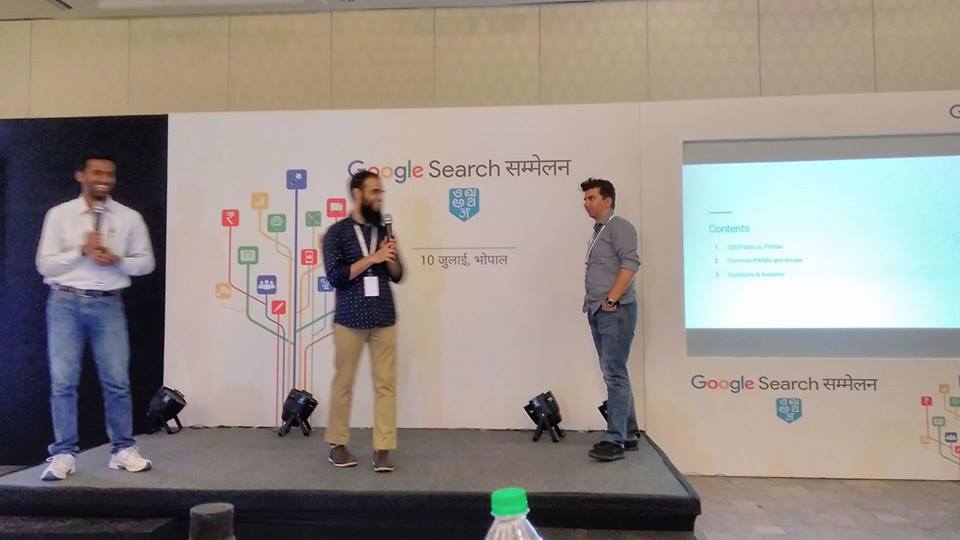 While exclusively talking to Metromirror.com Mr.Abhash Tripathi told "demand for the local language content is growing and online News is the top search category"
While exclusively talking to Metromirror.com Mr.Abhash Tripathi told "demand for the local language content is growing and online News is the top search category"
Ms.Sinha said by the year 2020 Adspend on the local language Ads would cross 9700 crore.
She also elaborated about the Google's Adsense program and how publishers are generating significant revenue allover the world.
Technical glitch hits NSE, F&O trading stopped
MMNN:10 Jul 2017
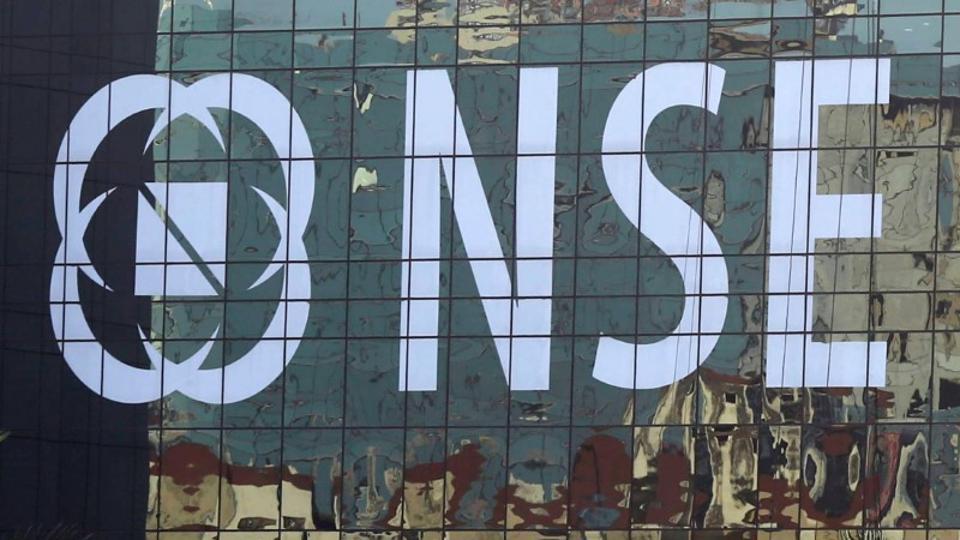
Trading was disrupted at the National Stock Exchange on Monday morning, after price quotations for individual stocks and indexes failed to update, but the exchanges interim chief executive said it was working to resolve the technical glitch. After resuming at 11:15am, trading was suspended again.
The technical problem on individual stocks affected traders from the start of Mondays session, preventing them from placing trades, multiple dealers said.
The exchanges stock indexes updated when trading opened but also stopped soon after. Futures and options began trading normally initially, but the NSE has stopped providing quotes, the dealers said.
The NSEs interim CEO J Ravichandran to CNBC-TV 18 was working to resolve the issue.
At this point our focus is to re-start the market and then we will have to analyse the cause.
NSEs rival, BSE Ltd, said its exchange was operating normally. The benchmark BSE index rose as much as 0.77 percent to a record high, surpassing its previous milestone hit on June 22.
It may be due to some technical glitch, said a dealer at a domestic brokerage.
Indian exchanges have previously suffered from occasional trading disruptions though they have tended to be quickly resolved.
The NSE is pursuing a listing that bankers say could raise up to $1 billion though it has yet to win approval from market regulator Securities and Exchange Board of India, which is looking into a disclosure from the exchange that some brokers may have been provided unfair access to its servers.
Tax on Rosogolla, mishti doi: GST injects bitterness into popular Bengali sweets
MMNN:6 Jul 2017

Rosogolla and sandesh, misti doi and pantua - sweets that represent the soul of Bengal - have turned a tad bitter since July 1 with makers busy negotiating the maze of GST rates on the sweets, so far left out of the tax ambit.
Walk into any sweet shop in Kolkata and the dominant discussion between customers and cashier are the GST rates that have been levied on all the dozens of items that are on display.
Currently we are calculating 5% GST on all sorts of sweets, except the chocolate-flavoured ones, where the rate is fixed at 28%. We will continue to do so unless there is further notification from the government differentiating between ordinary sweets, packaged suits and dry fruit- flavoured sweets. But the apprehension of harassment possibilities are always there, said Sudip Mullick, the proprietor of the 132-year old Balaram Mullick & Radharaman Mullick. One of the most prominent chains, it has a total of six outlets throughout Kolkata.
Sweet shops across Kolkata have turned into centres of chaos: Customers are unable to decide which sweets to buy given that the before and after tax prices vary and then they get into a long discussion with the cashier to figure the exact GST on their buy.
For example, if you buy a few pieces of rosogollas, they will attract 5% tax. But if you are taking a can for your friend who lives in another city, you will be taxed at 18%. If the sweetmaker adds pista, or kesar, the rosogolla will again be eligible for 18%. The logic: the GST rate fixed for food items made out of dry fruit is 18%.
The government has clarified that the GST rate on the main product, and not on the ingredients, will prevail. But shop owners complain of confusion.
We have about 200 products. There is one basic item with additives and condiments making a few value-added varieties out of the basic variant. So you can understand the complexity it can lead to, especially with the queue of customers in our stores where each customer has to wait for an average of 10 minutes to pay, said Dipak Kumar Mukherjee, executive director, operations of K C Das Private Limited. K C Das, which is famous all over the country for its sponge rosogolla, started its first outlet in 1930.
There are around one lakh sweet shops in Bengal. An overwhelming number of them work from hole-in-the-wall existence and cant think of buying computers and software to calculate and print bills.
These sweet traders of the state say that so far no official communication has reached them, or their association, and they are constantly in fear of inspectors turning up at their door.
But its not just the sweets but also the snacks accompanying them that have felt the GST pinch.
Popular snacks such as singara (a variant of samosa) and kachuri are confusing the maker and the consumers. The GST rate fixed for these two items is 12%, but the moment one adds dry fruits or nuts for taste, they are eligible for 18%. Again, if these items (plan, without additives such as nuts) are packed, they will be taxed at 18%.
Jiten Saha, the manager of Sri Gopal Sweets in Bondel Road pointed out problems in everyday life with retail customers. Suppose if a customer comes and buys eight pieces of singara, two cups of mishti doi, four rosogollas and two chocolate sweetmeats. There are different slabs for each. Imagine the herculean task of calculating, Saha said.
Alokesh Dholey, proprietor of Jagaddhatri Mishtanna Bhandar, said that this variety of GST slabs can create problems for both the sweetmeat retailers as for the government.
Business with annual turnover of Rs 20 lakhs are totally exempted from GST, while for those having the figure between Rs 20 lakh and Rs 75 lakh, the rate is flat at 1%. This will, on the one hand, discourage sweet retailers to expand their business. On the other, there will be tendency of under-reporting turnover. Those with Rs 25 lakh turnover will try to show it within Rs 20 lakhs, while those at Rs 80-90 lakhs will try to show it within Rs 75 lakh, he said.
Mullick also sniffs regional bias in fixing GST rates.
Lassi, a staple food among north Indians, has been totally exempted from GST. But, 18% tax has been imposed on mishti doi (sweet curd), a favourite in Bengal that carries the same ingredients as lassi, he told HT.
But whatever the confusion, one thing is for sure, GST will not be able dent the Bengali appetite for sweets.
Reliance Jio may launch 4G VoLTE feature phone worth Rs 500 soon: Report
MMNN:5 Jul 2017
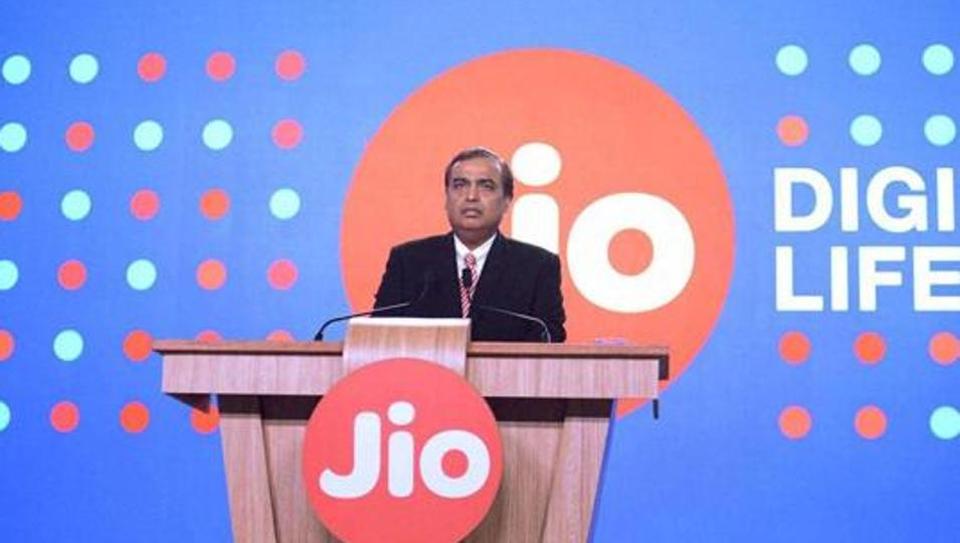
Reliance Jio is likely to launch its much awaited 4G feature phone priced as low as Rs 500, a media report said, which would further stiffen competition in the telecom sector which Mukesh Ambanis venture has already disrupted.
The launch could be during RILs annual general meeting on July 21, The Economic Times reported on Wednesday.
Rumour are also rife that Reliance Jio may soon launch a new 4G-capable laptop with dedicated 4G SIM slot, besides more offers and deeper discounts.
As its Dhan Dhana Dhan offer comes to a close, telecom sector observers say that Jio will continue on its customer acquisition spree with aggressive tariffs plans. Jio already has 112.55 million subscribers as of April 2017.
Currently, Jio offers smartphones under its Lyf brand, starting as low as Rs 3,000, in the economy 4G phones segment of the likes of Micromax and Intex. But a 4G phone worth Rs 500 would disrupt the Indian telecom sector that has been seen huge competition since the launch of Jio in 2016.
Mukesh Ambani has been capitalising on Indias growing internet users with big investment plans into his venture Jio. According to a recent Internet Trends 2017 report by Mary Meeker, Indias access to internet has growing exponentially from mobile phones, with 355 million users on phones in June 2016 and 277 million broadband users, as of March 2017. Only China has larger internet-using population of around 700 million.
Interestingly, 72% of Internet users in India are less than 35 years of age.
Reliance derives the bulk of its revenue from its core refining and petrochemicals operations, but the group has bet big on Reliance Jio Infocomm. When launched in September 2016, Jio offered a flurry of cheap phones, free voice and data plans, forcing some rivals to crumble and others to unite.
Mukesh Ambanis younger brother Anil Ambanis Reliance Communications merged with its smaller rival Aircel. In February, Indias biggest telco Bharti Airtel bought out the Indian operations of Norways Telenor. This was followed by Britains Vodafone announcing a merger with Aditya Birla Groups Idea Cellular, to together become the biggest telecom company in India.
Reliance Jio, however, controls the highest chunk of 4G airwaves across India.
Samsung to invest $19 billion in chip, display plants in South Korea
MMNN:4 Jul 2017

Global tech companies have been increasing servers and data centers to handle more data from mobile devices and auto vehicles and also on expectations that adoption of artificial intelligence would create even more demand for handling data.
Samsung Electronics said Tuesday it will invest 21.4 trillion won ($19 billion) in the next four years in its memory chip and display plants in South Korea.
The South Korean company's announcement comes as the global memory chip industry enjoys a massive boom thanks to a surge in demand for microchips. Global tech companies have been increasing servers and data centers to handle more data from mobile devices and auto vehicles and also on expectations that adoption of artificial intelligence would create even more demand for handling data.
Samsung said by 2021, it will spend an additional 14.4 trillion won ($12.5 billion) to increase the capacity in its memory chip factory in Pyeongtaek, south of Seoul, which began operating in the day. Samsung said the 15.6 trillion won ($13.6 billion) chip plant, which broke ground two years ago, is one of the largest semiconductor production lines in the world.
Samsung will spend 6 trillion won ($5.2 billion) in its memory chip cluster in Hwaseong as well.
Another 1 trillion won ($871 million) will be spent on its display factory in Asan, which produces OLED screens for mobile phones. Samsung uses OLED screens for its high-end Galaxy smartphones. The advanced displays have allowed Samsung to distinguish its Galaxy phones from rivals with curved forms. Samsung is the dominant supplier and OLED screens for mobile devices are a lucrative business for the company, along with memory chips.
Samsung added that it is considering adding more semiconductor production lines in its factory in Xi'an, China.
GST rollout to be very smooth, assures FM
MMNN:1 Jul 2017
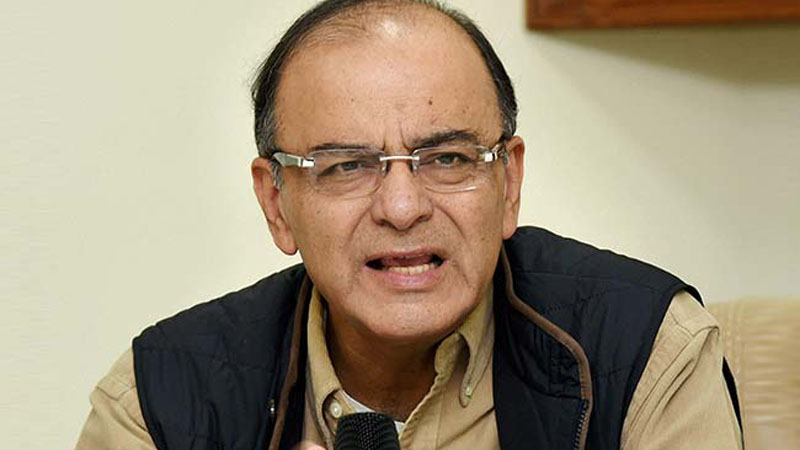
We will be very liberal in the first two months. For two months we have given a lot of laxity since we are getting into a new order,Arun Jaitley/ Finance Minister.
New Delhi : Finance Minister Arun Jaitley on Friday held out the assurance of a very smooth transition into the Goods and Services Tax (GST) regime, promising that the administration will be very liberal and not implement it very strictly in the first two months.
Acknowledging that there will be some minor problems when a massive change takes place, he said that things will smoothen out in the times to come
I think the roll-out will be very smooth, as smooth as possible. All systems are in place. When massive change takes place there is an element of uncertainty of the unknown and when there is unknown there is fear. The whole process will change. There will be some minor problems.I think that will be a matter of days, he said.
He was replying to a question at the Aaj Tak GST Conclave on how smooth he expected the transition into the new indirect tax regime. Asked if he would give a time-frame by when things will smoothen out, he said the process of registration is on. People will get attuned to the system, reports IANS.
We will be very liberal in the first two months. For two months we have given a lot of laxity since we are getting into a new order, he said.There may be glitches because of lack of awareness. In any technology, glitches are possible. But glitches are rectifiable almost immediately, Jaitley said. This is a formal launch, because the switch over will be from 12 midnight. Its an idea of the government, he said when asked why the midnight hour was chosen for the launch. Jaitley said that the July 1 roll-out date was not his decision. It was the GST Councils decision.
Last years constitutional amendment was valid till September 15. After September 15, we would have been a tax-less society. The Constitution does not allow this. There would be anarchy if we postponed it by six months, he said.
On the whole, he said, the new law will bring in the principle of equivalence and equity in the indirect tax regime.
Indirect tax is regressive. For a product, rich or poor has to pay same tax. To bring equity in indirect tax, the product being used by common man is being taxed at lesser rate. Single slab tax not possible in India. It may be possible in a developed country, he said.
There is a need to bring equity in indirect taxation, otherwise rich and poor will be paying the same tax. The Finance Minister said that the multiple tax slabs were chosen to keep a tab on inflation.
Multiple tax rates necessary to check inflation. To prevent inflationary impact, 12, 18 per cent tax rate was necessary. At some later stage, they may be converged into 15 per cent.
If you see the overall tax rate and the goods basket, the revenue will go up but the burden will come down, he said.
GST Launch 2017 Live: A milestone in cooperative federalism, says PM Modi in Parliament
MMNN:1 Jul 2017
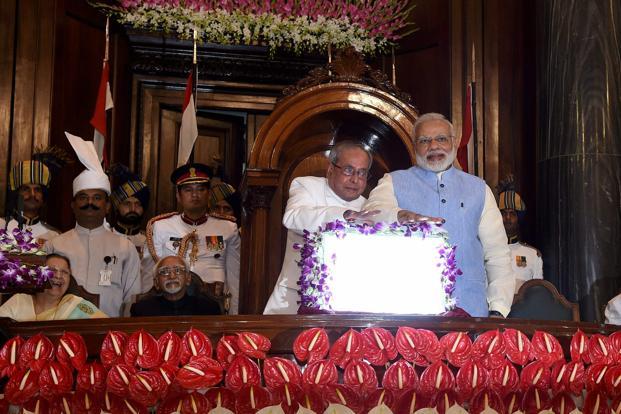
New Delhi: The much-awaited Goods and Services Tax (GST) was rolled out from midnight tonight from the historic Central Hall of Parliament in the presence of President Pranab Mukherjee, Prime Minister Narendra Modi, finance minister Arun Jaitley and other Cabinet ministers, many chief ministers and senior government officials. The Congress and the Left parties have decided to skipped the launch though some opposition parties attended the event.
The GST has replaced more than a dozen central and state taxes or Value Added Tax (VAT) with an aim to create a seamless unified market for the $2 trillion Indian economy.
Here are the live updates to the GST launch:
President Pranab Mukherjee, Prime Minister Narendra Modi press button to officially launch GST. (PTI)
President Pranab Mukherjee said the ambitious central tax is a tribute to the maturity and wisdom of Indias democracy.
The new era in taxation, which we are about to initiate in a few minutes, is the result of a broad consensus arrived at between the Centre and states, Mukherjee said minutes before the GST roll-out in his speech at a special function in the central hall of Parliament.
This consensus took not only time but also effort to build. The effort came from persons across the political spectrum who set aside narrow partisan considerations and put the nations interests first. It is a tribute to the maturity and wisdom of Indias democracy, he said.
The President termed the GST a disruptive change.
It is also a moment of some satisfaction for me because, as the Finance Minister, I had introduced the Constitution Amendment Bill on 22 March 2011 he said.
It is similar to the introduction of VAT when there was initial resistance. When a change of this magnitude is undertaken, however positive it may be, there are bound to be some teething troubles and difficulties in the initial stages, he said.
Mukherjee said these issues have to be solved with understanding and speed to ensure that they do not impact the growth momentum of the economy.
Success of such major changes always depends on their effective implementation. In the months to come, based on the experience of actual implementation, the GST Council and the Central and state governments should continuously review the design and make improvements, in the same constructive spirit as has been displayed till now, he said. (PTI)
Prime Minister Narendra Modi today termed the GST as a good and simple tax which will end harassment of traders and small businesses while integrating India into one market with one tax rate.
In the historic Central Hall of Parliament, Modi said the indirect tax reform is a result of combined efforts of various political parties at different points of time.
GST, he said, is an example of cooperative federalism as the centre and states together thrashed out the new law with consensus.
Besides being a transparent and fair system that will end generation of black money and corruption, GST will promote new governance culture that will end harassment at the hand of tax officials.
Touching upon initial teething troubles that may be witnessed because of unification of more than a dozen central and state levies into one and switching over to a new online return filing system, Prime Minister said even eyes have to adjust for a couple of days when a sight corrective spectacles are worn.
Modi said GST will eliminate the compounding effects of multi-layered tax system. (PTI)
Finance minister Arun Jaitley today said rollout of the GST will ease inflation, make tax avoidance difficult and boost GDP growth.
Addressing the midnight launch event of the GST in the Central Hall of Parliament, Jaitley said the implementation of the landmark unified tax should be seen as the beginning of a new journey that will expand the countrys economic horizon.
He further said that 17 transaction taxes in states and centre and 23 cesses would be subsumed in GST. An assessee will have to file only one return.
Inflation will come down, tax avoidance will be difficult, Indias GDP will be benefited and extra resources will be used for welfare of poor and weaker section, Jaitley said.
India is making history with the launch of GST, which is the biggest and most ambitious tax and economic reform in its history, the finance minister said.
The old India was economically fragmented. New India will create one tax, one market, one nation. It will be in India where Centre and states work together towards the common goal of shared prosperity, Jaitley said.
Terming GST as an important achievement for the country, he said not only will India write a new destiny, the new tax regime would also strengthen federalism.
The Constitution says India is a union of states. The union is strong if both Centre and states are strong. That is the real meaning of cooperative federalism.While enacting the GST, neither the states nor Centre gave up their sovereignty. They have pooled their sovereignty to make joint decisions in indirect taxation, the finance minister said.
In a large and complex federal system of multi-party democracy with Centre and 29 states and 2 UTs, Jaitley said India has implemented a constitutional amendment and brought in a large tax reform.
We have done this at a time when world is facing a slow growth, isolationism and lack of structural reforms. With the GST, India has showed that these forces can be overcome through display of inclusion, openness and boldness, he said.
He appreciated the efforts of all members of parliament, state finance ministers and officials in making GST a reality when many had expressed doubts whether it could be implemented from 1 July.
Jaitley also recalled the initiatives taken by his predecessors, including the then finance minister Pranab Mukherjee. He recalled the contribution of former finance Yashwant Sinha and former economic affairs secretary Vijay Kelkar.
All decisions of GST Council were taken uninamously.We did not want to burden common man and weaker section, Jaitley said.
President Pranab Mukherjee, PM Narendra Modi, VP Hamid President Pranab Mukherjee, PM Narendra Modi, VP Hamid Ansari arrive in Central Hall of Parliament for launch of GST. (PTI)
Rollout of the Goods and Services Tax is historical as it will bring about a revolutionary change in the country, Maharashtra Chief Minister Devendra Fadnavis said today, hours ahead of the high-profile event in Delhi to mark the transition to the new tax reform.
One nation, one tax, one market will come into effect with the rollout of GST. The taxation system will make trading easier. While Maharashtra will benefit from GST, other states too will benefit a lot and our economy will get a boost, Fadnavis said in a statement issued. (PTI)
With the Goods and Services Tax (GST) coming into effect from tomorrow, rail passengers will have to pay a little more to travel AC and first class. Service tax on AC ticket charges will be hiked from 4.5% to 5%, an increase of 0.5%, after the GST implementation. Similarly, GST on transport of goods by rail will be 5% in place of service tax of 4.5% levied earlier with exemption for essential goods like milk and agriculture produce. Service tax is levied only on AC and first class fares in the Railways. (PTI)
Retailers offered steep discounts before shutting shop for software updates before GST launch at midnight on Friday. Read more
Union minister M Venkaiah Naidu today said there would be some initial hiccups in rolling out the Goods and Services Tax (GST), but those can be addressed. (PTI)
Consumers will have to shell out more for banking services, insurance premium payments and credit card bills with GST rollout from Saturday. ATM withdrawals, debit card transactions, fund transfers too will cost more. read more
Restaurants will present diners with two bills in some places on Friday one before midnight, and one after that to reflect the tax change after GST launch. read more
Retailers on an overdrive to clear stocks before the GST launch at midnight kicked in, as they wanted to minimise their pre-tax regime inventory. Prices of branded garments would go up from Saturday in line with the 12% GST rate on garments priced above Rs1,000. Those that cost less than Rs1,000 will be taxed at 5% and could be priced lower.
What was driving the discounts was the fact that traders will get only 60% credit for taxes paid by them while sourcing their stocks for meeting the GST liability on the sales they make, if invoices for taxes paid previously are not available. If documents proving taxes paid previously are available, full tax credit will be granted under the GST regime.
Power Minister Piyush Goyal today said that GST rollout is a transformational move aimed at increasing revenues that will bring down the taxes in future. (PTI)
The Delhi BJP today said it will organise camps to help trader organisations and the common people on problems and misconceptions related to the Goods and Services Tax (GST). Delhi BJP president Manoj Tiwari said finance minister Arun Jaitley will address a GST-related meeting at the Talkatora Stadium on 6 July.
Nokia appoints Samsung executive as head of technologies
MMNN:30 Jun 2017

The badge Nokia is eyeing a comeback in the smartphone industry led by Apple iPhone and an array of Chinese players.
Senior Samsung executive Gregory Lee has been appointed as the head of Nokia's technologies unit and member of the group leadership team, the telecoms network equipment maker said on Friday.
"Gregory's passion for innovation and operational excellence, along with his proven ability to build and lead global consumer technology businesses, make him well suited to advance Nokia's efforts in virtual reality, digital health and beyond," the Finnish company added.
The badge Nokia is eyeing a comeback in the smartphone industry led by Apple iPhone and an array of Chinese players. Recently, the company, promoted by a group of former Nokia employees called HMD Global, launched three new Android-based smartphone range -- Nokia 6, Nokia 5 and Nokia 3.
Like several others, Samsung rose as a smartphone maker on Google's open-source Android operating system, which Nokia refused to adopt, eventually led to its downfall and bankruptcy.
IndiGo airlines expresses interest in buying stake in Air India: Report
MMNN:29 Jun 2017
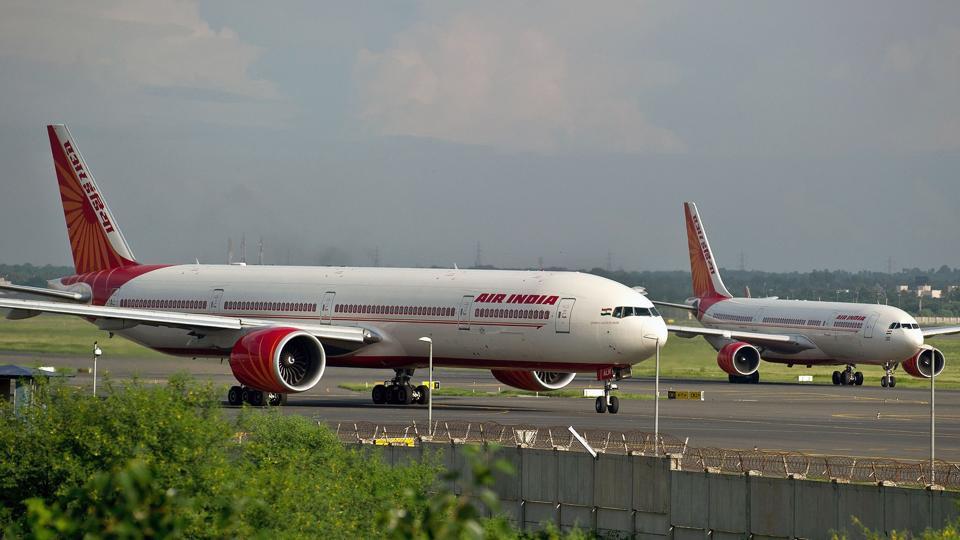
IndiGo airlines, owned by InterGlobe Aviation, has expressed an unsolicited interest in buying a stake in state-owned carrier Air India, television channel CNBC-TV18 reported on Thursday quoting the aviation ministry.
Cabinet on Wednesday gave approval to privatise debt-laden Air India, the first step of a process that could see the government offload an airline struggling to turn a profit in the face of growing competition from low-cost rivals.
Shares in InterGlobe Aviation were trading lower by 3.3 percent at 0841 GMT in a strong Mumbai market.
SpiceJet chief the man of the moment at Modi-Trump meet
MMNN:28 Jun 2017
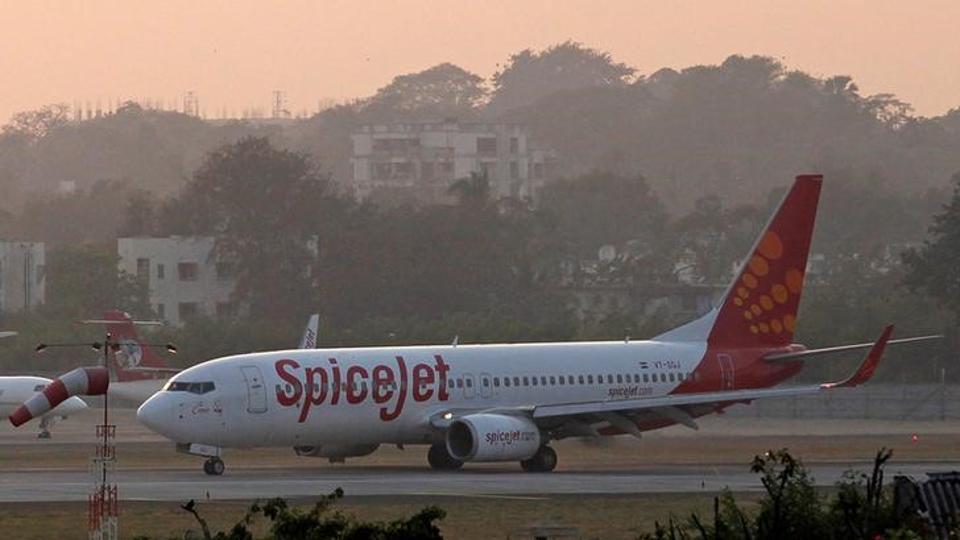
Starting a week before Trump's inauguration in January, SpiceJet has placed orders for 225 planes with Boeing, which is worth more than $22 billion
He is the man you didn't see at the Rose Garden presser by Prime Minister Narendra Modi and President Donald Trump, but heard about there. And his company's big deal with an American company has the whole town from the White House to US congress talking.
He is the man Vice-President Mike Pence sought out on Tuesday from a hall full of top business executives from India and the US at the annual summit of US India Business Council and met him backstage before taking the podium.
"He greeted me by my name and said, 'Look. I know about the company and I know about the order that's been placed by your company," Ajay Singh, the soft-spoken chairman and managing director of SpiceJet, who got a shout-out from Trump at the Rose Garden presser, said in an interview to Hindustan Times.
"I was pleased to learn about an Indian airline's recent order of 100 new American planes, one of the largest orders of its kind, which will support thousands and thousands of American jobs, the president had said, with the prime minister by his side, without naming either Singh or SpiceJet.
Starting a week before Trump's inauguration in January, SpiceJet has placed orders for 225 planes with Boeing, which is worth more than $22 billion and which will, according to a US government certification, create 132,000 jobs. The first planes will start arriving in 2018, with the last in 2024.
Ads by ZINC
In Singh's telling, it was Boeing's idea to let the US government know of the deal once work go under way on Modi's visit. It seemed like a good idea, and as it wound around the corridors of power in New Delhi and DC, it got even better, picked up backers and, finally, the PM's office asked for a note.
Singh says he never expected this kind of attention when he placed those orders turning around a company he had built and left and came back to rebuild, from near bankruptcy - "when I took over the company (in 2015) its stocks were at Rs 12 each, and they are now at Rs 125; (we have) done well".
Sure, well enough to be cited as an example of opportunities for American companies in the Indian growth story and find mention in the Fact Sheet issued by the White House after the meeting of the two leaders listing the highlights of the cooperation between the two countries.
In their short meeting backstage at the USIBC event, Singh said Pence expressed the desire to visit SpiceJet offices when he travels to India - on Prime Minister Modi's invitation, which he said he has accepted - at a date to be determined.
Later on Tuesday, Singh was on Capitol Hill to meet lawmakers.
So how does it feel? "It's great, fantastic," Singh said, leaning forward in his seat in the coffee shop of a hotel in downtown DC, "It's a great testament to what SpiceJet has achieved.and we are glad were a part of his whole .. important meeting."
Robots are coming: What jobs will still be around in 20 years?
MMNN:27 Jun 2017
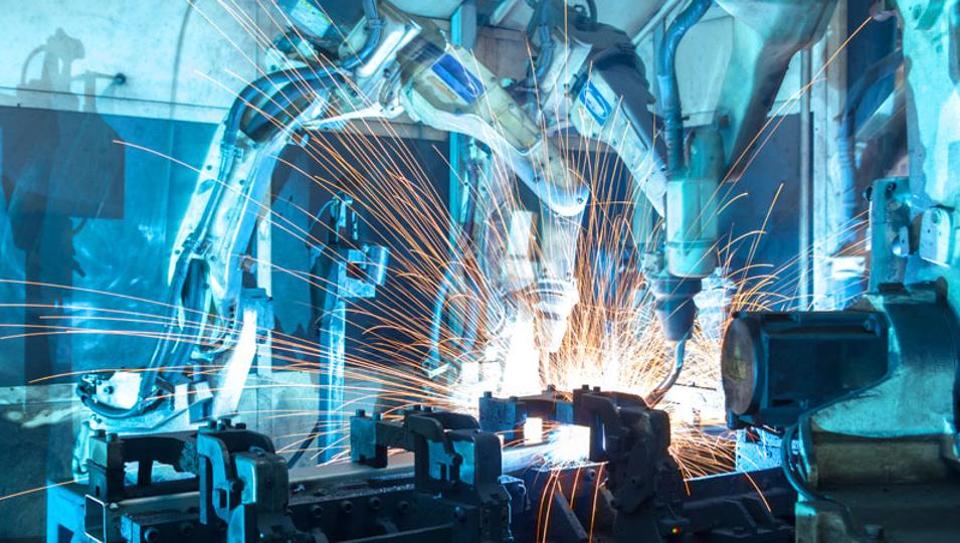
A study by Oxford University examined 702 common occupations and found that some jobs - telemarketers, tax preparers and sports referees - are at more risk than others including recreational psychologists, dentists and physicians.
The robots are coming, the robots are coming!
Regular reports warn us that an automation apocalypse is nigh. In January, a McKinsey & Company study found that about 30% of tasks in 60% of occupations could be computerised and last year, the Bank of England's chief economist said that 80m US and 15m UK jobs might be taken over by robots .
Of course, not all jobs are created equally. In 2013, a highly cited study by Oxford University academics called The Future of Employment examined 702 common occupations and found that some jobs - telemarketers, tax preparers and sports referees - are at more risk than others including recreational psychologists, dentists and physicians.
In the past, reports of the death of human jobs have often been greatly exaggerated, and technology has created a lot more jobs than it has wiped out. It's called the "Luddite Fallacy", in reference to the 19th century group of textile workers who smashed the new weaving machinery that made their skills redundant. Further, in the last 60 years automation has only eliminated one occupation: elevator operators .
While there have been optimistic predictions that new technology would increase prosperity and lower drudgery, very few of us are working the 15-hour work week that, in 1930, the economist John Maynard Keynes predicted would be the norm for his grandkids. If anything, we're working 15-hour days.
Today's technological revolution is an entirely different beast from the industrial revolution. The pace of change is exponentially faster and far wider in scope. As Stanford University academic Jerry Kaplan writes in Humans Need Not Apply : today, automation is "blind to the colour of your collar". It doesn't matter whether you're a factory worker, a financial advisor or a professional flute-player: automation is coming for you.
Before we get too deep into deep into doom and gloom, it's worth stressing that automation isn't synonymous with job losses. Speaking to me over the phone, Frey was quick to point out that his work doesn't make any explicit predictions such as "47% of US jobs will disappear". It simply says that these jobs are exposed to automation.
In other words, the jobs themselves won't entirely vanish; rather, they will be redefined. Of course, as Frey concedes, "from the perspective of the worker there is not much of a difference" between work disappearing and being radically redefined. It's likely they'll lack the new skill sets required for the role and be out of a job anyway.
Professor Richard Susskind, author of The Future of the Professions and Tomorrow's Lawyers , echoes this distinction. "What you're going to see for a lot of jobs is a churn of different tasks," he explains. "So a lawyer today doesn't develop systems that offer advice, but the lawyer of 2025 will. They'll still be called lawyers but they'll be doing different things."
So which professions are at greatest risk?
Martin Ford, futurist and author of Rise of the Robots: Technology and the Threat of a Jobless Future , explains the jobs that are most at risk are those which "are on some level routine, repetitive and predictable".
Telemarketing, for example, which is highly routine, has a 99% probability of automation. according to The Future of Employment report; you may have already noticed an increase in irritating robocalls. Tax preparation, which involves systematically processing large amounts of predictable data, also faces a 99% chance of being automated. Indeed, technology has already started doing our taxes: H&R Block, one of America's largest tax preparation providers, is now using Watson , IBM's artificial intelligence platform.
Robots will also take over the more repetitive tasks in professions such as law, with paralegals and legal assistants facing a 94% probability of having their jobs computerized. According to a recent report by Deloitte, more than 100,000 jobs in the legal sector have a high chance of being automated in the next 20 years.
Fast food cooks also face an 81% probability of having their jobs replaced by robots like Flippy, an AI-powered kitchen assistant which is already flipping burgers in a number of CaliBurger restaurants.
Ford, the futurist, classifies resilient jobs in three areas.
The first is jobs that involve "genuine creativity, such as being an artist, being a scientist, developing a new business strategy". Ford notes: "For now, humans are still best at creativity but there's a caveat there. I can't guarantee you that in 20 years a computer won't be the most creative entity on the planet. There are already computers that can paint original works of art. So, in 20 years who knows how far it's going to go?"
The second area is occupations that involve building complex relationships with people: nurses, for example, or a business role that requires you to build close relationships with clients.
The third area is jobs that are highly unpredictable - for example, if you're a plumber who is called out to emergencies in different locations.
You can see these parameters at play in the jobs The Future of Employment identifies as least at risk of automation, which include recreational therapists, first-line supervisors of mechanics, installers, repairers, occupational therapists and healthcare social workers.
While being in a creative or people-focused industry may keep your job safe for the next 10 years or so, it's very hard to predict what will happen 20 years into the future. Indeed, Susskind stresses that we should be wary of downplaying just how much computers might change the working world.
She says she believes that the 2020s are going to be a decade not of unemployment, but of redeployment. Beyond that, however, the picture is far less clear: "I don't think anyone can do long-term career planning with any confidence." As Susskind notes, "we make assumptions about the indispensability of human beings", but machines are already doing things we thought only humans might be able to. They're composing original music , for example, and beating professional players at complex board games with creative moves.
They're even helping us with our relationships with God. While the clergy only has a 0.81% probability of automation, according to data from The Future of Jobs, Susskind believes even algorithms might one day replace the ordained. As he notes, there are already apps like Confession which offer "drop-down menus for tracking sin".
While we've been doing a lot of robot-bashing, it should be noted that automation isn't the only phenomenon having an impact on the job market. Saadia Zahidi , head of the education, gender and work system initiative at the World Economic Forum (WEF), says that we "shouldn't forget that there are other drivers of change".
A 2016 WEF report identified such drivers as climate change, the rise of the middle class in many emerging markets, aging populations in certain parts of Europe and East Asia, and the changing aspirations of women as factors that will have significant impacts on jobs. "It's really the coming together of these various drivers of change that then leads to disruptions in the labor market," Zahidi notes.
The report warns that we're going to see significant ramifications from automation very soon. Zahidi explains: "The next three years will be a period of flux and a period of relatively higher losses than gains. This is not meant to be alarmist in the sense that there will be heavy job losses. But if we do nothing then this will be where we end up."
Automation may also exacerbate gender inequality, Zahidi says. Women don't make up a large proportion of people who are going into science, technology, engineering and math (Stem) and IT fields, which are likely to be the areas in which jobs will grow. On the other hand, Zahidi notes, there do tend to be more women in care-related professions, such as healthcare and education, which are at a lower risk of automation.
In the long run, women may actually end up faring better from technological change. A recent PricewaterhouseCoopers report found that a higher proportion of male than female jobs are at risk of automation, especially those of men with lower levels of education.
Related: Why robots should be taxed if they take people's jobs | Robert Shiller
Justin Tobin, founder of the innovation consultancy DDG, says he believes: "More and more independent thinkers are realizing that when being an employee is the equivalent to putting all your money into one stock - a better strategy is to diversify your portfolio. So you're seeing a lot more people looking to diversify their career."
Faith Popcorn, a futurist, echoes the idea that we will all have to become as agile as possible and "have many forms of talent and work that you can provide the economy".
In the future, she says, we'll all have seven or eight jobs, with the average adult working for a number of companies simultaneously rather than working for one big corporation.
"We're in the midst of this huge sweeping change that is going to impact all levels of society," Popcorn warns.
Predicting the future is Popcorn's livelihood, and she's made herself a bit of a legend over the years doing so, but even she seems a little unsettled by the pace of change today. As she tells me with a world-weary sigh, it "just makes you want to have some more tequila".
RBI reconstituted Overseeing Committee
MMNN:23 Jun 2017
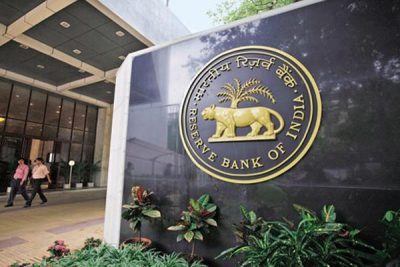
Agencies, Mumbai
The Reserve Bank of India(RBI) has reconstituted the Overseeing Committee (OC) to include five members from two earlier to expedite resolution of stressed assets in the banking system.
The three new members of the OC are: MBN Rao , YM Deosthalee and S Raman. Mr Raman will join the OC on September 7.
So far, the committee had only two members "Pradeep Kumar and Janki Ballabh. Kumar is the Chairman of the OC.
Are half-baked anti-profiteering rules a nightmare in the making?
MMNN:21 Jun 2017
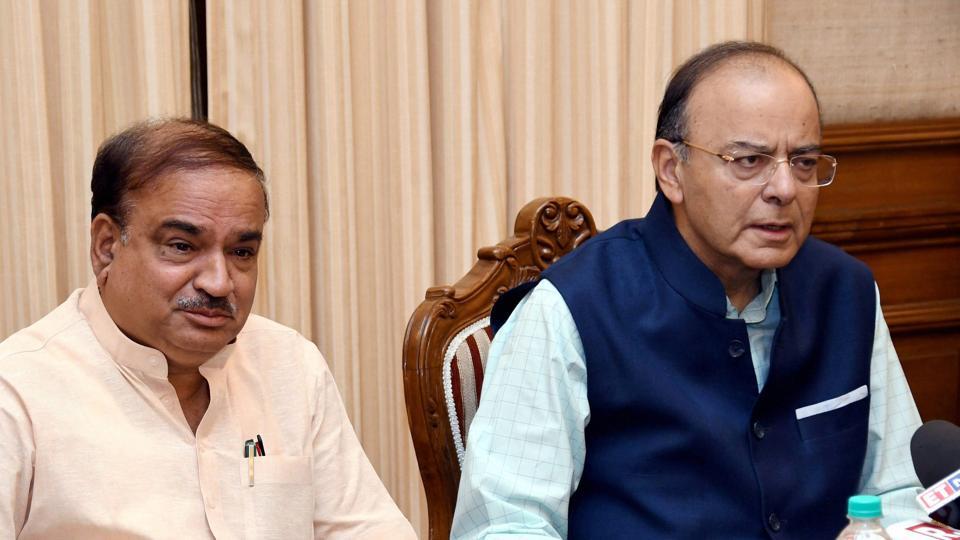
Businesses are worried whether anti-profiteering rules under GST would lead to witch-hunting by taxmen
In the current format, the government's anti-profiteering rules on the goods and services tax (GST) raise more questions than answers. While the intent is to curtail inflation post-GST implementation, the notification suffers from a lamentable lack of clarity on many aspects, increasing uncertainty for businesses.
To begin with, the law would be applicable to all businesses irrespective of their nature or revenue. Since businesses are already struggling to brace for the 1 July deadline, tax experts say it would have been better if these provisions were restricted to those having oligopolistic markets or ones where a significant inflationary spiral is expected due to GST.
"The concern at this point in time is whether the sweeping provisions provided in the law can be effectively enforced without affecting business confidence. Also, every reduction in tax rates or increase in input tax credit may not lead to a corresponding reduction in prices as there could be simultaneous upward movement of costs of raw material or forex swings," said MS Mani, senior director (indirect tax) at advisory firm Deloitte India.
Retro tax on Cairn: I-T dept orders recovery of Rs 10K cr, to seize shares in Indian firm
MMNN:19 Jun 2017

The Income Tax Department has ordered coercive action against Cairn Energy Plc to recover Rs 10,247 crore of retrospective tax after the British oil firm lost a challenge to the move before an international arbitration panel.
The department ordered taking away $104 million dividend due to it from its remaining stake in the erstwhile subsidiary Cairn India (now called Vedanta Ltd) and another Rs 1,500 crore of tax refund due to it, a top source said.
This follows an international arbitration panel last week deciding not to entertain a plea by Cairn Energy seeking injunction against the coercive action to recover the tax.
The source said the tax department will now move to take over the 9.8% shareholding Cairn Energy had in Cairn India.
In an emailed statement, Cairn Energy confirmed the tax department's move.
"On June 16, 2017 the Indian Income Tax Department (IITD) issued an order to Vedanta India Ltd (VIL) directing it to pay over any sums due to Cairn. Sums due to Cairn from VIL now total USD 104 million, including historical dividends of $ 53 million and a further dividend of $ 51 million after the merger of CIL and VIL," it said.
The company said however that it will continue with the international arbitration proceedings against the retrospective tax demand.
"Cairn is seeking full restitution for (UK-India Bilateral Investment Treaty) Treaty breaches resulting from the expropriation of its investments in India in 2014, the attempts to enforce retrospective tax measures and the failure to treat the Company and its investments fairly and equitably," it said.
The company said it has a high level of confidence in its case under the Treaty and, in addition to resolution of the retrospective tax dispute, its claim seeks damages equal to the value of the Group's residual shareholding in Cairn India at the time it was attached (approximately $1 billion).
US Fed raises key interest rate to 1.0-1.25%, unveils cuts to bond holdings
MMNN:15 Jun 2017

The decision lifted the Federal Reserve's benchmark lending rate by a quarter percentage point to a target range of 1.00% to 1.25%
The Federal Reserve raised interest rates on Wednesday for the second time in three months, citing continued US economic growth and job market strength, and announced it would begin cutting its holdings of bonds and other securities this year.
The decision lifted the US central bank's benchmark lending rate by a quarter percentage point to a target range of 1.00% to 1.25% as it proceeds with its first tightening cycle in more than a decade.
In its statement following a two-day meeting, the Fed's policy-setting committee indicated the economy had been expanding moderately, the labour market continued to strengthen and a recent softening in inflation was seen as transitory.
The Fed also gave a first clear outline on its plan to reduce its $4.2 trillion (3.28 trillion pounds) portfolio of Treasury bonds and mortgage-backed securities, most of which were purchased in the wake of the 2007-2009 financial crisis and recession.
"The committee currently expects to begin implementing a balance sheet normalisation programme this year, provided that the economy evolves broadly as anticipated," the Fed said in its statement.
The central bank said it would gradually ramp up the pace of its balance sheet reduction and anticipates the plan would feature halting reinvestments of ever-larger amounts of maturing securities.
The Fed said the initial cap for Treasuries would be set at $6 billion per month initially and increase by $6 billion increments every three months over a 12-month period until it reached $30 billion per month in reductions to its holdings.
For agency debt and mortgage-backed securities, the cap will be $4 billion per month initially, increasing by $4 billion at quarterly intervals over a year until it reached $20 billion per month.
US stocks rose after the Fed announcement, while the dollar reversed some of its earlier losses.
"The Fed announcing an update to their reinvestment principles leaves September open. The start of balance sheet runoff and the fact that they haven't slowed their projected path of rate hikes suggest they can do both balance sheet and rate hikes at the same time," said Gennady Goldberg, interest rate strategist at TD Securities.
Fed Chair Janet Yellen was holding a press conference at 2:30pm EDT (1830 GMT).
Eyes on inflation
The Fed has now raised rates four times as part of a normalization of monetary policy that began in December 2015. The central bank had pushed rates to near zero in response to the financial crisis.
Policymakers also released their latest set of quarterly economic forecasts which showed temporary concern about inflation and continued confidence about economic growth in the coming years.
They forecast US economic growth of 2.2% in 2017, an increase from the previous projection in March. Inflation was expected to be at 1.7% by the end of this year, down from the 1.9% previously forecast.
A retreat in inflation over the past two months has caused jitters among some Fed officials who fear that the shortfall, if sustained, could alter the pace of future rate hikes. Earlier on Wednesday, the Labor Department reported consumer prices unexpectedly fell in May, the second drop in three months.
The Fed's preferred measure of underlying inflation has retreated to 1.5%, from 1.8% earlier this year, and has run below the central bank's 2% target for more than five years.
Expectations of any fiscal stimulus in the near term from the Trump administration have also waned with campaign promises on tax cuts, regulation rollbacks and infrastructure spending either still on the drawing board or facing hurdles in Congress.
Interest rates are seen rising one more time by the end of this year, according to the median projection of the forecasts released with the Fed's policy statement, in keeping with the previous forecast.
Estimates for the unemployment rate by the end of this year moved down to 4.3%, the current level, and to 4.2% in 2018, indicating the Fed believes the labour market will continue to tighten.
The median estimate of the long-run neutral rate, which is seen as the level of monetary policy that neither boosts nor slows the economy, was unchanged at 3.0%.
Minneapolis Fed president Neel Kashkari dissented in Wednesday's decision.
WPI inflation in May cools to 5-month low of 2.17%
MMNN:14 Jun 2017
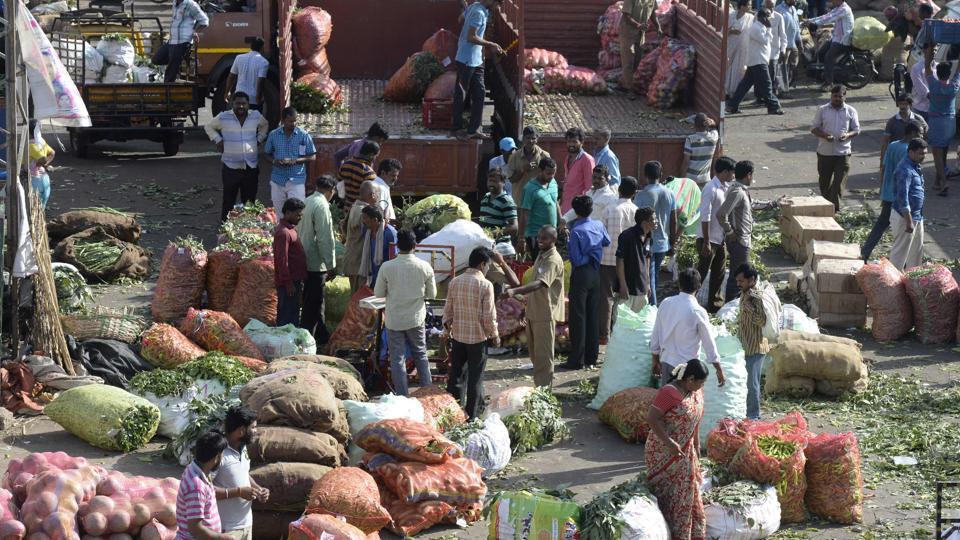
Inflation based on the wholesale price index fell to a five-month low of 2.17% in May, mainly because of a sharp drop in prices of vegetables.
In December, the reading was 2.10%.
WPI inflation was 3.85% in April and (-)0.9% in May 2016.
Pulses and cereals saw a slower growth in prices.
The wholesale price index (WPI) for the month is based on the new base year 2011-12, which was revised last month from 2004-05, with an aim to reflect the macroeconomic picture more accurately.
The slowdown in wholesale inflation comes against the backdrop of retail inflation easing to a multi-year low of 2.18% in May.
Government data showed that prices of food articles shrank by 2.27% in May on an yearly basis.
The inflation print for vegetables read (-)18.51 %. While potato saw a deflation of 44.36 %, for onion, it came in at 12.86 %.
The rate of price increase was 4.15 % in cereals, down from 6.67 % in May last year. Protein-rich pulses turned cheaper in May as prices fell by 19.73 %.
Eggs, meat and fish saw a price decline of 1.02 % annually.
The index basket of the new series has a total of 697 items, including 117 for primary articles, 16 for fuel and power and 564 for manufactured products.
There was acceleration in prices of fuel and power (11.69 %) and manufactured products (2.55 %).
However, the price rise in sugar, which falls under the category of manufactured items, slowed to 12.83 % in May, from 23.12 % a year earlier.
Google's Gboard to now recognise hand-drawn emojis, suggest phrases as you type
MMNN:13 Jun 2017

Google rolled out the Gboard for more than 200 languages, besides expanding support for languages like Hawaiian, Maori and Belgian French.
Thanks to the latest update of Google's Android keyboard, you will now be able to draw the emoji you wish to send across. The update makes the Google keyboard, called Gboard, more user-oriented on Android devices.
To start with, you can draw emojis which you are struggling to find on the emoji keyboard.
"In the emoji search box, you can now tap the emoji handwriting icon to draw emoji directly onto the screen. Your drawing will automatically be recognised and show results for your favourite emoji," Google said in a blogpost on Tuesday.
In the latest update, Gboard has taken predictive typing to next level. It now suggests phrases that could follow, instead of words, as you type.
Google gave an example: Try typing "looking forward" and Gboard suggests "to seeing" or "to it" as you type. This is supported in English today and will be rolling out to more languages soon.
The Google Search on Android phones will now show multiple, more interactive result cards.
Google rolled out the Gboard for more than 200 languages, besides expanding support for languages like Hawaiian, Maori and Belgian French
India's plan to develop Iran's Chabahar port yet to see light as US weighs sanction
MMNN:10 Jun 2017
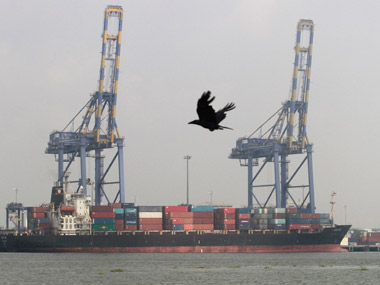
Western manufacturers are shying away from supplying equipment for an Iranian port that India is developing for fear the United States may reimpose sanctions on Tehran, Indian officials say, dealing a blow to New Delhi's strategic ambitions in the region.
Lying on the Gulf of Oman along the approaches to the Straits of Hormuz, the port of Chabahar is central to India's hopes to crack open a transport corridor to Central Asia and Afghanistan that bypasses arch-rival Pakistan.
India committed $500 million to speed development of the port after sanctions on Iran were lifted following a deal struck between major powers and Tehran to curb its nuclear program in 2015.
But the state-owned Indian firm that is developing Chabahar is yet to award a single tender for supplying equipment such as cranes and forklifts, according to two government sources tracking India's biggest overseas infrastructure push.
US President Donald Trump denounced the nuclear agreement on the campaign trail, and since taking office in January has accused Iran of being a threat to countries across the Middle East.
Swiss engineering group Liebherr and Finland's Konecranes and Cargotec have told India Ports Global Pvt Ltd, which is developing the deep water port, they were unable to take part in the bids as their banks were not ready to facilitate transactions involving Iran due to the uncertainty over US policy, the two officials said in separate conversations with Reuters.
These firms dominate the market for customised equipment to develop jetties and container terminals. One official said the first tender was floated in September, but attracted few bidders because of the fear of renewed sanctions. That fear has intensified since January.
"Now the situation is that we are running after suppliers," one official said, speaking on condition of anonymity because of the sensitivity of matter.
A Konecranes spokeswoman declined to comment beyond confirming the company was not involved in the project.
Cargotec and Liebherr did not respond to requests for comment.
Some tenders have been floated three times since September because they failed to attract bidders. A Chinese firm, ZPMC, has since come forward to supply some equipment, the same Indian official said.
Banks can now lend more, cheaper home loans likely
MMNN:8 Jun 2017

The reduction in the amount banks have to set aside (also called a provision) also mean lower home loan rates.
The Reserve Bank of India (RBI) on Wednesday made it possible for banks to lend more to home-buyers, and at lower rates, in a move that should benefit customers as well as real estate developers.
The central bank did this by reducing the amount of money banks have to set aside (as security) on home loans. Previously, they had to set aside 0.4% or Rs 400 per lakh. This has now been reduced to 0.25%, or Rs 250 per lakh.
Combined with the cut in the statutory liquidity ratio (the portion of deposits which banks have to invest in government securities) by 50 basis points, or 0.5 percentage point, this means banks now have that much more capital to lend.
The reduction in the amount banks have to set aside (also called a provision) also mean lower home loan rates.
The central bank also reduced the so-called risk weightage on home loans of between Rs 30 lakh and Rs 75 lakh to 35% from 50%, and over Rs 75 lakh to 50% from 75%.
Risk weights are used to calculate the minimum amount of capital that must be held by banks to reduce the risk of insolvency.
This could make bigger home loans less expensive (typically loans above Rs 75 lakh were up to 0.5 percentage points more expensive, in terms of interest than other loans).
"When risk weightage drops it means the banks have that much more money to lend. If it has dropped by one third it means the cost of doing business comes down which makes it possible for banks to then cut interest rate and pass it on to the borrowers," said Rajeev Ahuja, chief operating officer, RBL Bank Ltd.
The reduction in rates will be higher for bigger ticket size loans which are already more expensive when compared to loans of lower value.
Currently, the interest rate on home loans above Rs 75 lakh is higher. For instance, SBI offer an interest rate of 8.35% for loan amount below Rs 30 lakh while for loan above Rs 75 lakh the interest rate is at 8.65%.
RBI's decision was prompted by an understanding of the multiplier effect of home loans, according to N.S. Vishwanathan, deputy governor of RBI. His reference is to the fact that an increase in home loans means more home sales, which will benefit real estate developers, and companies in the construction, cement and steel businesses at one end, and companies in the furniture and appliance businesses at another.
"Delinquencies (are) generally among the lowest in home loan segment....It has been decided to reduce risk weight on certain categories on home loans and also the standard asset provisioning," Vishwanathan added.
According to Vishwanathan, reduction of statutory liquidity ratio (SLR) by 50 basis points will help banks in achieving 100% liquidity coverage ratio by January 2019. These two factors together will bring buoyancy to the home loan segment.
Credit to the housing segment has increased by 13.4% year-on-year at the end of April.
Banks are focusing on affordable housing as demand from other sectors of the economy has dried up and to take advantage of incentives offered by the government to home buyers. Many banks have reduced their home loan rates. The government on 31 December announced the Credit Linked Subsidy Scheme for Middle Income Groups, where interest subsidy of 4% was granted on housing loans of up to Rs 9 lakh and 3% on housing loans of up to Rs 12 lakh.
According to a report by CLSA India Pvt., housing sales could rise from Rs7 trillion in financial year 2017 to Rs17 trillion by fiscal 2024 on the back of market growth and impetus to affordable housing.
"The decision to reduce the risk weights for home loans over Rs. 30 lakh category will release capital for the banking industry and is a positive move," said Arundhati Bhattacharya, chairman of State bank of India (SBI).
Banks have already been aggressively cutting rates in the home loan segment. SBI, the country's largest lender, for instance, has already cut its one-year marginal cost of funds based lending rate (MCLR)--the rate linked to its home loans--to 8% currently from 9.20% in April 2016, when MCLR first came into effect.
15th meeting of GST Council in Delhi tomorrow
MMNN:2 Jun 2017

Union Minister for Finance, Defence and Corporate Affairs, Arun Jaitley, will chair the 15th meeting of the GST Council here tomorrow.
The meeting, to be held at Vigyan Bhavan, is important because it is likely to finalise the rates of tax and cess to be levied on the commodities remaining after the fitment exercise in the 14th GST Council Meeting, Ministry of Finance said in a statement today.
Besides, approval of amendments to the draft GST Rules and related Forms are also on the agenda of the one- day meeting. The meeting is likely to be attended by the Finance Ministers of different states/UTs besides senior officers.
Cabinet may decide on FIPB abolition today
MMNN:24 May 2017
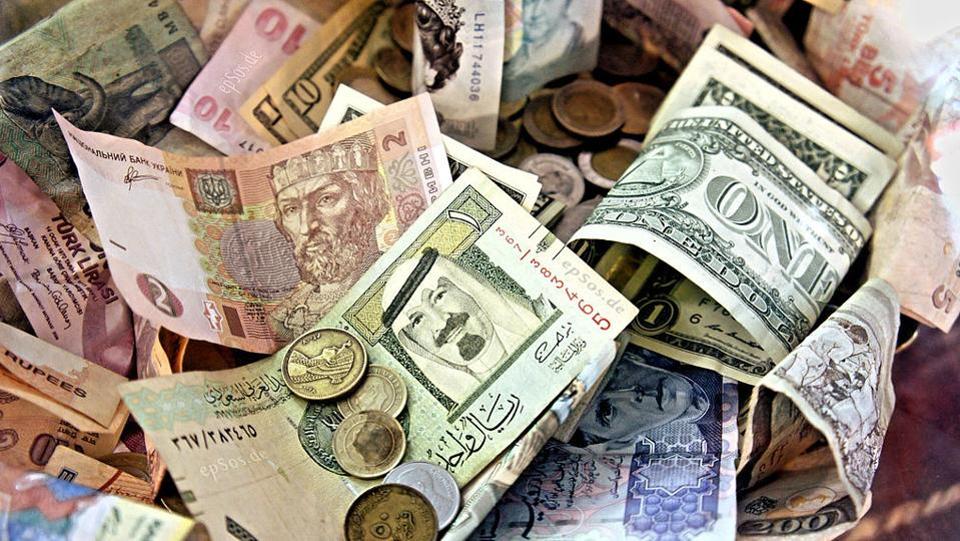
The Union cabinet is expected to clear a proposal on Wednesday to allow direct approval to foreign investment proposals by ministries as part of the government's efforts to expand the ease of doing business.
In the latest push for ease of doing business, the Union cabinet is expected to allow direct approval to foreign investment proposals by ministries.
The likely clearance of the proposal on Wednesday can also speed up the much-needed investment process amid the Narendra Modi government's desperate push for job generation.
During this year's Union budget presentation, finance minister Arun Jaitley had announced that the decades-old Foreign Investment Promotion Board (FIPB), which clears proposals up to Rs 5000 crore, would be scrapped.
India has opened up most of the sectors to enable foreign companies to set up shop in the country. This in turn has reduced the utility of the FIPB.
"The Cabinet is likely to take up the proposal of abolishing FIPB at its meeting on Wednesday," official sources said.
The Department of Industrial Policy and Promotion, DIPP, will act as the nodal body for all foreign investment proposals, a source added.
The FIPB was initially constituted under the Prime Minister's Office in the wake of economic liberalisation in the early 1990s. It vets sectors such as defence and retail trading.
After the abolition of the FIPB, sources said, ministries concerned will clear FDI proposals.FDI inflows touched a record $60.1 billion in 2016-17, as the Narendra Modi government eased rules to lure global conglomerates to enter India.
In the last three years, the government has eased 87 FDI rules across 21 sectors to accelerate economic growth and boost jobs.
Tata Motors cuts up to 1,500 managerial jobs
MMNN:24 May 2017
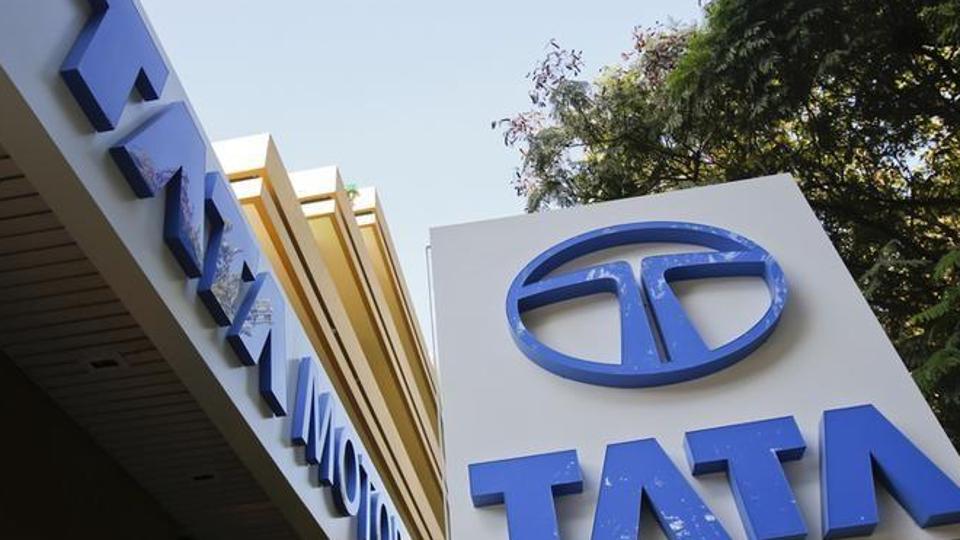
Tata Motors says blue collar or worker jobs have not been impacted as part of the exercise.
Tata Motors said on Tuesday it has reduced its managerial workforce by up to 1,500 people domestically as part of an organisational restructuring exercise.
"The reference (total managers) on which we started (the exercise) was in the vicinity of 13,000...we do see as far as the white collar population is concerned, an overall reduction in the vicinity of 10-12% (up to 1,500)," managing director and chief executive Guenter Butschek told reporters here.
He was speaking after announcing the company's earnings for the fiscal 2016-17.
The company joins a growing number of organisations adopting such strategies for a variety of reasons, ranging from cutting the flab to automation. These job cuts, which have led to concerns on 'jobless economic growth' in various quarters, have been across multiple sectors, including capital goods, banking & finance, and information technology.
Engineering, procurement and construction major Larsen and Toubro had announced shedding of 14,000 jobs in the first half of FY17, HDFC Bank has also reduced its workforce by over 10,000 in the second half of FY17 alone.
In the IT segment, the country's largest private sector employer, some estimates have pegged the job losses at over 50,000.
The Tata Motors management, however, said blue collar or worker jobs have not been impacted as part of the exercise.
With the aim to reduce the number of managerial levels to 5 from the earlier 14, the top automaker undertook a review during the last financial year and identified the possibilities for restructuring.
"We underwent a very detailed exercise in terms of the roles, the requirements and the fitment of the roles etc. It was a very comprehensive exercise which we rolled out over a 6-9 month period which also factored in performance and leadership qualities," the company's group chief financial officer, C Ramakrishnan, told PTI.
Terming it as a "holistic fundamental review", he said the programme has been completed now and the company will be coming out with a new structure soon.
Officials said the exercise was carried out with a view to get ownership and accountability within the organisation and not to cut costs.
While some of the affected employees were given voluntary retirement option, some were transfered to a services arm -- Global Delivery Centre, the officials said.
However, they did not quantify the number of people moved to the services arm which is based out of Pune.
Enough is enough: SC orders sale of Sahara's Rs 34,000 crore Aamby Valley
MMNN:17 April 2017
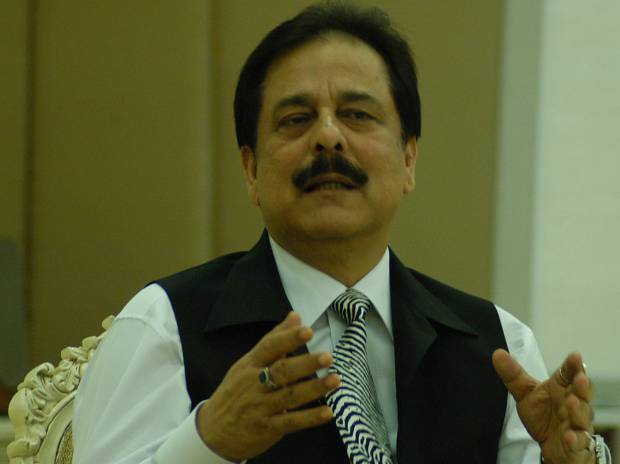
The Supreme Court today asked Bombay High Court's official liquidator to sell the Rs 34,000 crore worth of properties of the Aamby Valley owned by the Sahara Group and directed its chief Subrata Roy to personally appear before it on April 28.
"Enough is enough. You cannot say something today and resile tomorrow," a bench, comprising Justices Dipak Misra, Ranjan Gogoi and A K Sikri, said, taking strong note of non- submission of over Rs 5,000 crore by the Sahara group.
The bench also cautioned Roy from playing with the court's order and said non-compliance of its order would invite the wrath of the law and ultimately he will be at his own peril.
The bench asked the official liquidator, attached with the Bombay High Court, to auction the Aamby Valley properties, estimated to be worth Rs 34,000 crore, and directly report to it.
The bench also directed Roy and his group as well as SEBI to provide all necessary details relating to the properties to the official liquidator within 48 hours.
Meanwhile, the top court restrained one Prakash Swamy, who has filed an affidavit with regard to the sale of Sahara hotels in the USA, from leaving India and asked him to deposit Rs 10 crore as fine with the market regulator SEBI.
Swamy will also have to appear in person in the apex court on April 28.
The Supreme Court had on April 6 warned the Sahara Group that if it failed to deposit Rs 5092.6 crore in SEBI-Sahara refund account by April 17 in pursuance of its order, it will be "compelled" to auction its property at the Aamby Valley in Pune.
The top court had told the group that no extension of time would be granted for depositing the amount.
The observation had come when the lawyer mentioned an interim plea seeking extension of time for depositing the money in the SEBI-Sahara refund account.
The court had also observed that it had clearly told the group that a "substantial amount" must come in the refund account.
"Whatever you do, we had told you that a substantial amount must come. Otherwise we will be compelled to put up Aamby Valley for auction," the bench had said, noting "What matters is the money coming in the kitty." The apex court had on February 28 said "in case, the substantial amount is deposited, this court may think of extending the time, otherwise appropriate direction shall be issued".
The court had last month ordered an international real estate firm, which had shown willingness to buy Sahara's stake in New York-based Plaza Hotel for USD 550 million, to deposit Rs 750 crore in the SEBI-Sahara refund account, instead of the apex court registry to show its bonafide.
The top court had earlier directed attachment of Sahara Group's prime property for realisation of money to be paid to its investors.
It had also asked the group to provide it within two weeks the list of "unencumbered properties" which can be put up for public auction to realise the remaining over Rs 14,000 crore of the principal amount of around Rs 24,000 crore that has to be deposited in the SEBI-Sahara account for refunding the investors.
The court had on November 28 last year asked Subrata Roy to deposit Rs 600 crore more by February 6 in the refund account to remain out of jail and warned that failure to do so would result in his return to prison.
It had on May 6, 2016 granted a four-week parole to Roy to attend the funeral of his mother. His parole has been extended by the court ever since. Roy was sent to Tihar jail on March 4, 2014.
Besides Roy, two other directors -- Ravi Shankar Dubey and Ashok Roy Choudhary -- were arrested for failure of the group's two companies -- Sahara India Real Estate Corporation (SIRECL) and Sahara Housing Investment Corp Ltd (SHICL) -- to comply with the court's August 31, 2012 order to return Rs 24,000 crore to their investors.
However, director Vandana Bhargava was not taken into custody.
WPI inflation falls to 5.7% in March due to easing fuel prices
MMNN:17 April 2017
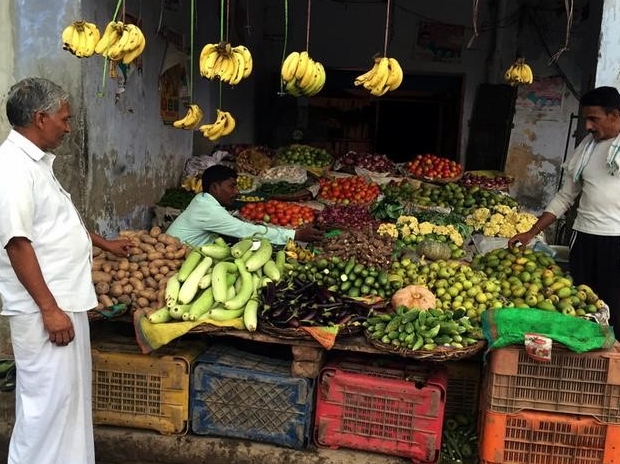
Inflation based on the wholesale price index slipped to 5.70 per cent in March due to easing fuel prices and cost decline of manufactured goods even as food prices hardened.
The WPI inflation, reflecting the annual rate of price rise, in February was 6.55 per cent. In March 2016, the print came in at (-)0.45 per cent.
According to official data released on Monday, food prices saw a sharp rise of 3.12 per cent in March compared to 2.69 per cent in the previous month.
This is primarily because of a steep price jump in vegetables where inflation stood at 5.70 per cent. As for fruits, the figure was also high at 7.62 per cent, while for egg, meat and fish, it was 3.12 per cent.
Fuel inflation declined to 18.16 per cent, from 21.02 per cent in February.
The manufactured items witnessed some softening in price rise, with inflation at 2.99 per cent in March, as against 3.66 per cent in the previous month.
The government also revised upwards January inflation to 5.53 per cent from the provisional estimate of 5.25 per cent.
Earlier this month, the Reserve Bank had left key policy rate unchanged at 6.25 per cent for the third review in a row citing upside risks to inflation. It had, however, increased the reverse repo rate -- which it pays to banks for parking funds with it -- by 0.25 per cent to 6 per cent, narrowing the policy rate corridor.
For 2017-18, it projected retail inflation to average 4.5 per cent in the first half and 5 per cent in the second half.
Data released last week showed that retail inflation touched a five-month high of 3.81 per cent in March on costlier food items and non-food products like fuel and light. RBI frames its monetary policy stance on the basis of retail inflation.
Flipkart raising $1.4 bn from Microsoft, Tencent, eBay shows Indian e-commerce is going strong
MMNN:10 April 2017
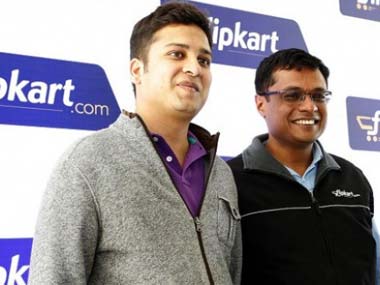
India's first and largest home-grown e-commerce player has moved to the centrestage with a funding of $1.4 billion from Tencent, eBay and Microsoft.
The transaction values Flipkart at $11.6 billion. This comes at a time when investors, concerned over the profitability and rising competition, are marking down the company's valuation. In February, Morgan Stanley mutual fund had marked down the valuation of the company for the fifth time to around $5.37 billion. Compare this with the $15 billion value the company commanded in 2015.
The latest round of funding has been viewed with much positivity by the trade primarily because many expect this to help the company get wings to soar and take on deep-pocketed Amazon.
The funding only shows that the ecommerce story in India is going strong and that there is market growth in the sector, said Paula Mariwala, partner, Seedfund and co-founder, Stanford Angels. "What did not work was the economics of acquiring customers and customer services. This development shows that the fundamentals of the growth story is intact and ecommerce continues to be a solution for products, consumers and marketers who want to reach out to consumers," said Mariwala. The funding only goes on to prove that the promise held out by the sector still holds true, she added.
The sector is ripe for correction and funding of this kind will buoy the sagging sector which is seeing many players bleeding on account of intense competition and the discounts game to attract customers. "The sector is right for course correction be it in furniture, food delivery or digital wallets. There are too many players across segments in the e-commerce space and it is time for the stronger players to consolidate their position with mergers and then becoming a stronger contender," says Arvind Singhal, chairman and managing director of Technopak Advisors, a retail industry consulting firm.
When one player dominates the market and the others are struggling to survive, it does not bode well for the industry per se and also the consumers, says an analyst.
The government has given a fillip to digital payments post-demonetisation which has further helped the ecommerce sector. People are adopting the digital medium faster than ever. The India story has got stronger with a large number of people using the Unified Payments Interface (UPI) platform developed by the National Payments Corporation of India. All this will only help ecommerce players to penetrate deeper into the market.
Under these circumstances, when a home-grown player like Flipkart gets a helping hand, it is a win-win situation for the company and its investors. "I don't think Flipkart qualifies to be called a home-grown player any more," said an analyst, pointing out to the fact that not just Flipkart but most ecommerce players are no longer run by the promoters but the investors who are keen on growth and not in a hurry to exit the market.
By the end of this year, more consolidations in the e-commerce sector is expected. "Consolidation is one solution to growth. It is happening all across the country," said Anil Talreja ,Partner, Deloitte Haskins & Sells. He said, in the ecommerce sector, there is always an issue with regard to startups and sustainability. If you are not in a position to sustain yourself and get a helping hand and subsume into that, it is a way to growth, he said.
According to another analyst, the biggest asset in the space is connect with customers. In this case, Flipkart is a company with this asset already. "The funders are willing to pump in money so as to enlarge the customer base and get loyal ones on board," the analyst said.
However, Singhal points out the development proves the sector has enough space for more than large players. "People have been speculating on the demise of Flipkart or its merger with partners not of its liking. This funding only goes to show that there is space for more players in the market," said Singhal.
What is curious about the Flipkart deal is its buying out eBay's India operation while the latter makes an investment in Flipkart. eBay, a first mover in the category, had lost much of its sheen and was not in the race at all for some years now. "It has had a face-saver with its buy-out by Flipkart and also by making an investment in Flipkart," said Mariwala.
With demands not yet met, petrol pumps threatens to take off every Sunday
MMNN:10 April 2017

With the government yet to decide on their demand for higher commission, the petrol pump owners have threatened to take off every Sunday. As per the report 'The Times of India' the petrol pump owners have also threatened to observe May 10 as 'No Purchase Day'.
In January, amid tussle between banks and petrol pumps, the central government had declared that the pump dealers and customers would not have to pay transaction cost after owners of petrol pump owners threatened to stop taking cards. A day before, the associations had threatened of not accepting debit or credit cards, even though there was no such notifications from the Reserve Bank of India on the matter.
Speaking to reporters, one of the petrol pump owners had said that for each payment on credit cards, the banks charged 1 percent. Speaking to reporters, Delhi Petrol Dealers Association president Anurag Narain had said that banks had levied a fee of 1 percent, due to which petrol pumps have an option but to stop EDC machines from operating.
The pump owners, who were not willing to pay such a huge amount, had voiced their concern in public and had promised to retaliate in kind against these banks. Some banks like ICICI Bank had however late on Sunday announced they had not issued any such orders and were not imposing any such charge.
Coming in their support, the Tamil Nadu Petroleum Dealers Association had also said it received a notice from banks saying that a Merchant Discount Rate of one percent will be taxed on all transactions done at the retail fuel outlets.
In a response to this, the associations had announced to stop digital payment for fuel on the day. Later in the night, the announcement was taken back, following intervention by authorities.
Fake rent receipt won't help you lower tax burden anymore
MMNN:5 April 2017
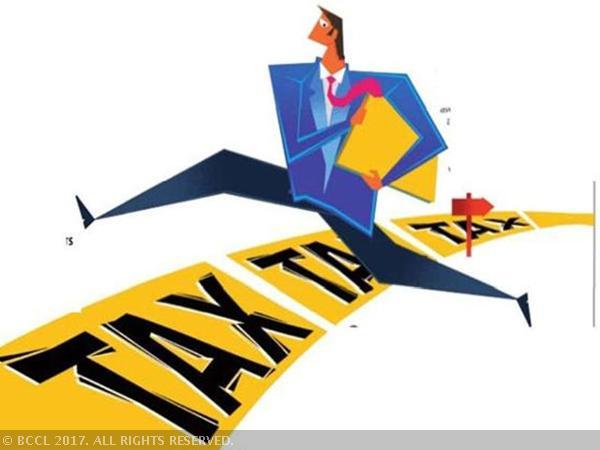
For as long as anyone can remember, producing fake property rent receipt, often from parents and relatives, has been an easy way to lower tax burden.
Such cavalier disregard for tax rule was overlooked by most employers as well as taxman, who possibly felt it was a minor transgression. Perhaps, not anymore.
The income tax department now has good reason to insist on proof from the tax payer showing that he is indeed a genuine tenant, staying in the property in question.
A salaried employee receiving 'house rent allowance' from the employer could escape paying tax on at least 60% of this amount by generating sham rent receipt.
However, according to a recent tribunal ruling, the assessing officer can now demand proof - such as leave and licence agreement, letter to the housing co-operative society informing about the tenancy, electricity bill, water bill etc. - in allowing a lower taxable income as computed by a salaried employee.
"The ITAT (Income Tax Appellate Tribunal) ruling has now laid down the criteria for the assessing officer to consider the claim of a salaried employee and if necessary question its justification. This will put the onus on the salaried class to follow the rules in availing the tax rebate," said Dilip Lakhani, senior tax advisor, Deloitte Haskins & Sells LLP.
Understandably, none of the required documents are available with salaried employees submitting fake rent receipts. There may not be any actual rent outflow from the person as he may be staying in his family home and collecting a receipt signed by his father. Even if a person is a genuine tenant, the amount mentioned in the receipt may be more than what's paid. This will not pose a problem if the person receiving the rent is outside the tax net. There are several instances where a person may be staying separately but claiming to pay rent to a relative owning another property in the same city; or, one of member of the family claiming a loan repayment deduction while another submitting a false rent receipt to evade tax.
Given the widespread practice of paying tax on only a small slice of HRA, it's unclear how far tax officials would go in questioning such claims and pinning down salaried employees.
However, ITAT Mumbai's decision to strike down the HRA exemption claim of a salaried individual for rent paid to her mother could set a precedent.
"Technology and stricter reporting system may make it easier for the (income tax) department. For instance, there was a time when many never bothered to pay tax on interest earned from bank fixed deposits. Today, it's almost impossible. In case of HRA exemption, the assessing officer may crosscheck whether the address mentioned in the ITR form is the same as the property on which rent is paid," said a tax officer.
The Tribunal ruling comes a few months after the government's decision to cap the loss on property bought with borrowed money. Till now, a person paying an interest of, say, Rs 3 lakh on a loan (he took to buy the property) and earning Rs 1.2 lakh as rent could show the difference of Rs 1.8 lakh as 'loss' and set it off against salary income to pay lower tax.
In the last Union budget it was laid down that such losses for an individual tax payer cannot exceed Rs 2 lakh.
SBI hikes transaction charges; customers decide to boycott bank on April 6
MUMBAI: MMNN:5 April 2017

After five years, the country's largest lender State Bank of India has decided to raise charges on various transactions through ATMs.
Some SBI customers have taken to social media to protest the hikes and called for a "no transaction day" on April 6.
They are also sharing the a text message calling for the boycott on April 6 and subsequent protests on April 24- April 26, if the bank does not remove the charges.
SBI has implemented a new list of rules for millions of its customers across India. Right from the introduction of an increased minimum balance to various new transaction charges. The new changes have been implemented from April 1.
Even customers of the six new banks that merged with SBI will have to follow this new list of rules. With the central bank introducing these new charges, there is a high probablity that other private sector banks will follow the suit and increase their banking charges.
The move came after private banks like ICICI, HDFC and Axis bank announced similar changes.
Banks including HDFC Bank, ICICI Bank and Axis Bank began charging a minimum amount of Rs 150 per transaction for cash deposits and withdrawals beyond four free transactions in a month.
The charges would apply to savings as well as salary accounts effective from last month.
Not in talks with Paytm, Flipkart for sale: Snapdeal
MMNN:22 March 2017

E-commerce marketplace Snapdeal on Wednesday firmly denied that it was in talks to sell the firm, after Mint newspaper reported the company was in talks with domestic rivals for a potential sale.
Mint had reported Snapdeal was in talks with Paytm and Flipkart for a potential sale, quoting sources.
"Snapdeal categorically denies having had any such discussion. The information is incorrect and without basis. We are making decisive progress in our journey towards profitability and all our efforts are aligned in this direction," a spokeswoman said in a written statement.
China, India led slowdown in coal power development, says report
MUMBAI: MMNN:22 March 2017
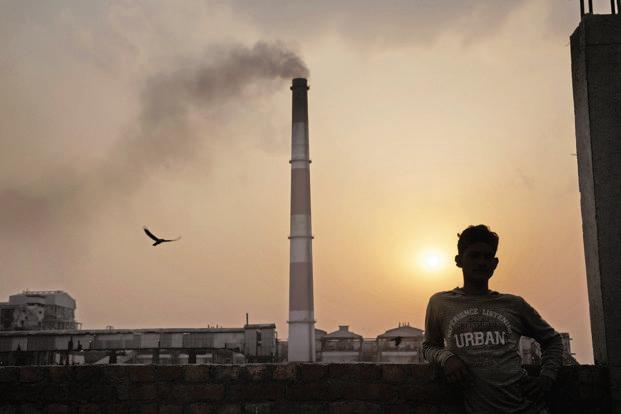
China's clampdown on new coal projects and a reluctance by backers to provide further funds in India are mainly responsible for last year's drop in the amount of coal-powered generation capacity under development, environmental groups said in a report.
Greenpeace, the Sierra Club, and CoalSwarm found global pre-construction planning fell 48% and new construction starts dropped 62% last year compared with 2015, according to the report, titled "Boom and Bust 2017: Tracking The Global Coal Plant Pipeline."
China last year imposed restrictions on further expansion of coal-power capacity amid increasingly low utilization rates at existing plants, according to the report. In India, the ministry of power said in June that the country had enough coal-fired plants to meet demand through 2019, while a draft National Energy Plan, released in December, said no further coal power capacity beyond that currently under construction will be needed until at least 2027.
In China and India, 68 gigawatts of construction is frozen at more than 100 project sites, according to the report. The research also found that coal plant retirements are taking place at an unprecedented pace, with 64 gigawatts of retirements in the past two years, mainly in the European Union and the US.
Meanwhile, the report identified 10 "hot spot" countries including Turkey, Indonesia, Vietnam and Japan, that have failed to develop their renewable-energy sectors in step with their peers while continuing to build and plan new coal plants.
SBI Justifies Penalty For Not Keeping Minimum Balance
MMNN:8 March 2017
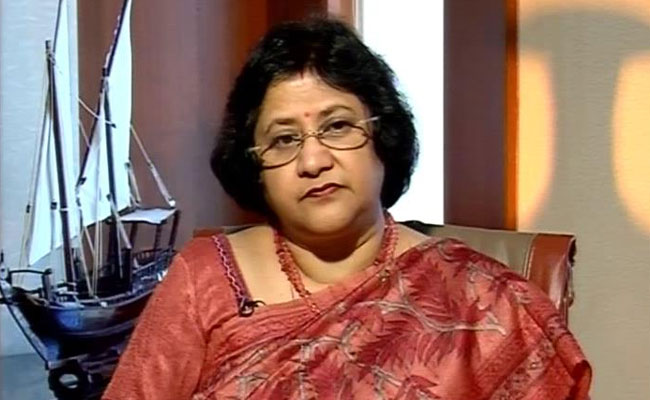
Facing a backlash for levying penalty on non-maintenance of minimum balance in accounts, State Bank of India, the country's largest lender, on Wednesday justified its move saying the bank needs to impose some charges to balance the "burden" of managing a large number of no-frills Jan Dhan accounts.
The bank also said it has not received any "formal communication" from the government for re-considering the penalty and it will take a call "if something comes". It also clarified the penalty would not apply to Jan Dhan accounts.
Last week, the country's largest bank decided to reintroduce penalty on non-maintenance of minimum balance in accounts and also revised charges on other banking services.
The new charges would be applicable from April 1. The move by the state-run banking major has faced a lot of criticism, including from the opposition parties.
"Today, we have lot of burden such as we have 11 crore financial inclusion or Jan Dhan accounts. To manage such a large number of Jan Dhan accounts, we need some charges. We have considered many factors and after analysing carefully, we have taken this step," State Bank of India chairperson Arundhati Bhattacharya told reporters here on the sidelines of a national convention of women entrepreneurs.
As per the list of revised charges of SBI, failure to maintain monthly average balance (MAB) in accounts will attract a penalty of up to Rs. 100 plus service tax.
In metropolitan areas, there will be a charge of Rs. 100 plus service tax, if the balance falls below 75 per cent of the monthly average balance of Rs. 5,000. If the shortfall is 50 per cent or less of the MAB, then the bank will charge Rs. 50 plus service tax.
The charges and monthly average balance varies according to the location of bank. It is minimum in case of rural branches.
Ms Bhattacharya said that all the banks have minimum balance requirement for account holders and SBI as such has the lowest minimum balance requirement.
She said the penalty was there earlier also and State Bank of India was the only bank to withdraw it in 2012.
"Our analysis have shown that most of the account holders maintain more than Rs. 5,000 on a monthly basis and so they do not have to worry about any penalty," Ms Bhattacharya said.
She clarified that the penalty on non-maintenance of minimum balance will not be applicable on Jan Dhan accounts.
Asked about the government's direction to the bank to reconsider the decision, SBI managing director (national banking) Rajnish Kumar said the bank has not received any communication on this issue.
"There is no formal communication. We will see if something comes," Mr Kumar said.
Under the revised charges, withdrawal of cash from ATMs will attract a charge of up to Rs. 20 if the number of transactions exceeds three from other bank's ATMs in a month and Rs. 10 for more than five withdrawals from State Bank of India ATMs.
However, SBI will not levy any charge on withdrawals from its own ATMs if the balance exceeds Rs. 25,000. In case of withdrawal by its customers from ATMs of other banks, there will be no charge if the balance exceeds Rs. 1 lakh.
"We are charging as people go to ATMs, withdraw cash and give it to somebody who in turns deposit it into the bank. This type of transaction involves a cost which is not known to public as bankers do not levy any charge on the customers."
"There is some cost involved in printing cash, in transportation, counting and providing security to cash. The cost is borne by the tax payers. There is a cost in installing an ATM and so we feel the charges are very reasonable," Ms Bhattacharya said.
She said the customers must use alternate channels like mobile, internet to do their transactions.
"We do not see there is a requirement for an household person to withdraw cash through ATMs for more than four times. Daily cash requirement is more for people doing businesses and we want them to use mobile and internet banking to do transactions," she said.
While addressing the convention, Ms Bhattacharya said the bank so far has given loan worth to Rs. 1,60,000 crore to the MSME sector.
"This year alone we have done more than Rs. 10,000 crore. We wish to do around Rs. 16,000 crore of Mudra loans by the end of this financial year," she said.
At present, nearly 55 per cent of the bank's balance sheet comprises retail segment and balance is to large segment.
"I have no problem at all if I am able to tilt that more in favour of retail. I would love to do that. Of course large segment needs support because of that you would have the airports ... the roads you have today, for defence you are going to set up an SME and for that you need steel, cement.
"So, the large sector also needs support from the bank. But that does not mean that we (banks) are not there for you (retail segment)," she said.
Watch out Ola, Uber's battle for market share in India is getting aggressive
MMNN:12 Oct. 2016

Ever since the taxi hailing application company Uber gave up on the Chinese market a few months back following intense competition from the local player Didi Chuxing, it became more or less clear that the focus for the US-based firm will now shift to the Indian market.
But here too, the world's largest startup company boasting a valuation of $69 billion, realises the growing competition from the domestic player Ola.
In China, Uber couldn't stand up to the growing onslaught from the deep-pocketed Didi, prompting the former to eventually merge its business in the Dragon nation.
With Uber exiting China, the company has got enough room now to focus on India.
As a recent Bloomberg report says, "India will be crucial in terms of both demonstrating success in large international markets and long-term growth potential".
Unlike Didi Chuxing, Ola, Uber's rival here, doesn't have deep pockets. Backed by venture capitalist, Ola has a war-chest of $1.2 billion, while Uber will divert a big portion of $10 billion it raised from Didi into the Indian market.
With the battle lines clearly drawn, Uber has been fast expanding in India and now has presence in 28 cities and handled 5.5 million rides per week in August, says the Bloomberg report.
While India's market is poised to grow at $10 billion, Uber has been making a strong pitch to enter other transport areas besides the traditional cab service via its mobile app.
According to a report in Mint, Uber plans to introduce buses and mini-vans for people through its ride-hailing app, and the service would be called Uber Everything.
"The next big innovation that the company plans to introduce is Uber Pool in buses and mini-vans," Mint report said.
The new initiative would be similar to its UberHop service, which functions more like a scheduled bus service, the report says.
Uber also looks to increase employee base at its Bengaluru engineering centre and also plans to recruit a million drivers over the next two years.
Last month, Uber also said it is betting big on its enterprise offering -- Uber for Business (U4B) -- to drive its growth in the country. In the nine months of operations, Uber for Business has seen a 50 percent month-on-month growth and the company is looking at scaling the offering further.
'Uber for Business' also allows corporates to automate uploading of employee lists and information that ensures only authorised employees have access to the company's U4B account.
"U4B was developed to provide an enhanced experience to companies, and employees, wanting to use Uber's global network for work travel. The U4B platform also includes a versatile and powerful travel dashboard that business administrators can use to manage budgets, enforce ride policies, and monitor usage and spends," Uber Asia Pacific Head (Uber for Business) Arjun Nohwar said.
Further, the US tech heavyweight is also making an aggressive drive into meal delivery backed by a wave of staff recruitment with plans to enter at least 22 new countries and take on local rivals.
India's forex reserves rise to $371.99 bn last week; overseas currency assets at $346.71 bn
Chennai: MMNN:8 Oct. 2016

India's foreign exchange reserves went up to $371.99 billion as on 30 September, the Reserve Bank of India (RBI) announced.
According to data released by the RBI on Friday, the reserves stood at around $371.99 billion as on 30 September as against $370.76 billion as on 23 September.
On 30 September, the foreign currency assets stood at $346.71 billion, gold at $21.40 billion, special drawing rights at $1.48 billion and the reserve position in the International Monetary Fund (IMF) at $2.38 billion.
The reserves as on 23 September comprised of foreign currency assets at $345.24 billion, gold at $21.64 billion, special drawing rights at $1.49 billion and the reserve position in IMF at $2.39 billion.
Automation threatens 69% jobs in India: World Bank
Washington: MMNN:5 Oct. 2016
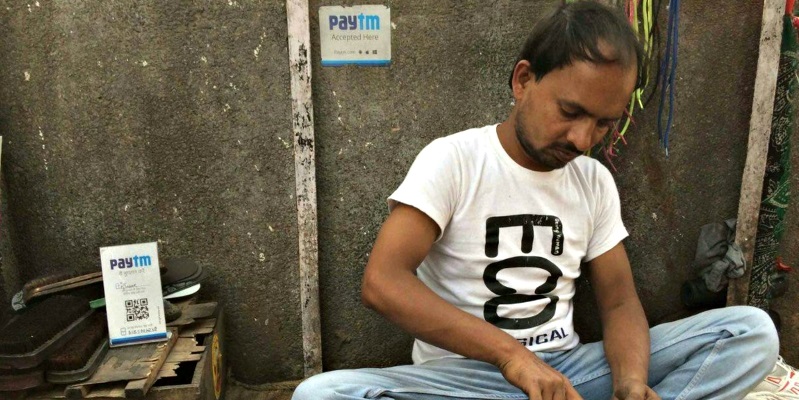
Automation threatens 69% of the jobs in India, while 77% in China, according to a World Bank research which has said that technology could fundamentally disrupt the pattern of traditional economic path in developing countries.
"As we continue to encourage more investment in infrastructure to promote growth, we also have to think about the kinds of infrastructure that countries will need in the economy of the future. We all know that technology has and will continue to fundamentally reshape the world," World Bank president Jim Kim said.
"But the traditional economic path from increasing productivity of agriculture to light manufacturing and then to full-scale industrialisation may not be possible for all developing countries," Kim said in response to a question at the Brookings Institute during a discussion on extreme poverty on Tuesday. "In large parts of Africa, it is likely that technology could fundamentally disrupt this pattern.
Research based on World Bank data has predicted that the proportion of jobs threatened in India by automation is 69%, in China it is 77% and in Ethiopia, the percentage of jobs threatened by automation is 85%," he said.
"Now, if this is true, and if these countries are going to lose these many jobs, we then have to understand what paths to economic growth will be available for these countries and then adapt our approach to infrastructure accordingly," Kim said.
He said one child policy could have been reason of sharp decline in child stunting and malnutrition, which is now at 10%.
"The one child policy could have been part of it, but anyway the point is, that if you look at educational outcomes and things like child stunting, India is at 38.7% child stunting, they are literally walking into the future with 40% of their workforce probably being unable to compete in the global digital economy, whereas China over the years has brought it down very, very low," Kim said.
"In India, it is probably partly because of sanitation that children are often in a just constant diarrheal stage, because of open defecation. There is a lot of different pieces of it. But I have been saying to the leaders of these countries that have these high stunting rates, there is like an emergency for you, you have got to tackle it," Kim said.
Better Targeting Of Kerosene Subsidy Is Government's Next Agenda: Arun Jaitley
NEW DELHI: MMNN:1 Oct. 2016
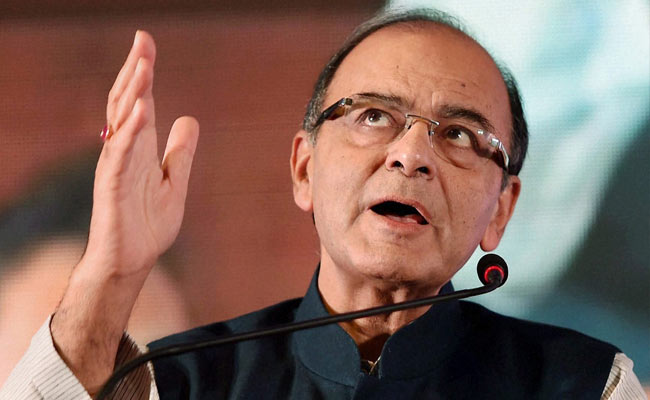
After the initial experiment in food and fertiliser, better targeting of kerosene subsidy is next on government agenda to plug diversion and black marketing of the fuel, Finance Minister Arun Jaitley said.
"Kerosene in some parts of the country is used as fuel, and in many parts... is misused. There is a huge amount of diversion... So, states are making efforts to become kerosene free because of a lot of diversion taking place," he said at an event of the Observer Research Foundation in New Delhi today.
He specifically made a mention of Union Territory of Chandigarh and Haryana trying to become kerosene free.
"That's one of the next items which is on the agenda as far as rationalisation is concerned, but there is still a section of society which uses kerosene as a fuel and therefore, you have to find a mechanism (as to) how to deal with the kerosene problem," he said.
With an aim to take PDS kerosene to the targeted beneficiary, it has been decided to implement the direct benefit transfer in kerosene (DBTK) in 39 districts in 2016-17. The districts spread across nine states have been identified in consultation with local governments, including Punjab, Gujarat, Himachal Pradesh, Madhya Pradesh and Chhattisgarh.
Giving examples of on-boarding of various government schemes on DBT, he said the government is now experimenting in various areas.
"Somewhere fertiliser is being experimented, somewhere food... One of the the great advantages would be to plug leakages, eliminate corruption and duplicacy and better targeting of subsidy," Mr Jaitley added.
It helps the government reach the targeted section more effectively and save money in the process that can be used for social programmes or alternatively, other developmental activities, he said.
"We are in the initial stages of various areas of implementation and I think the apprehensions which existed a couple of years ago have been to a large extent adequately addressed. Direct payment through this whole process of identification is slowly going to become the rule and not resorting to it would be an exception," he said.
"The whole idea is that in reaching the weakest section, the leakages takes place and only a small fraction reaches the targeted entity, and I think we will be able to get over that curse."
|